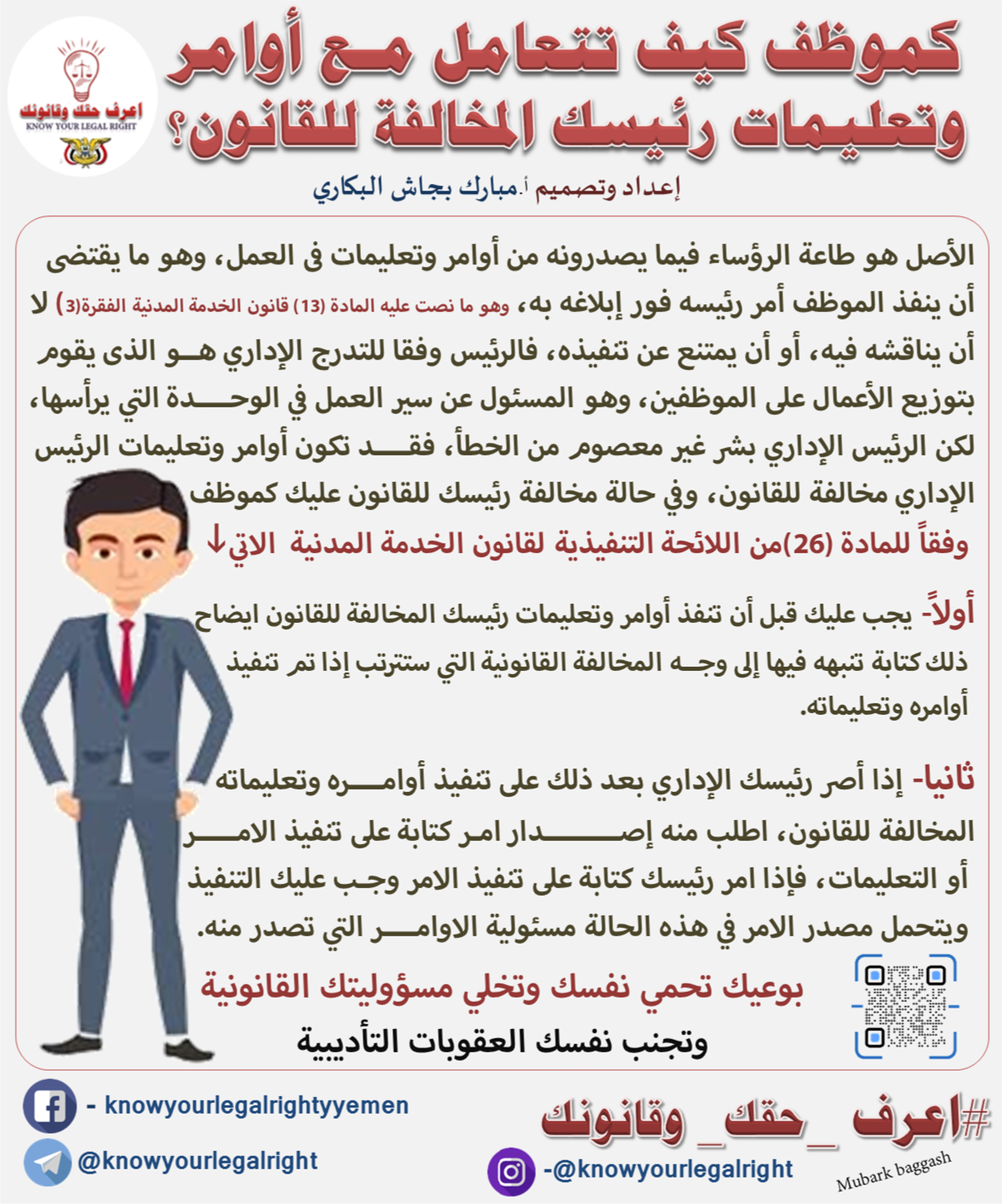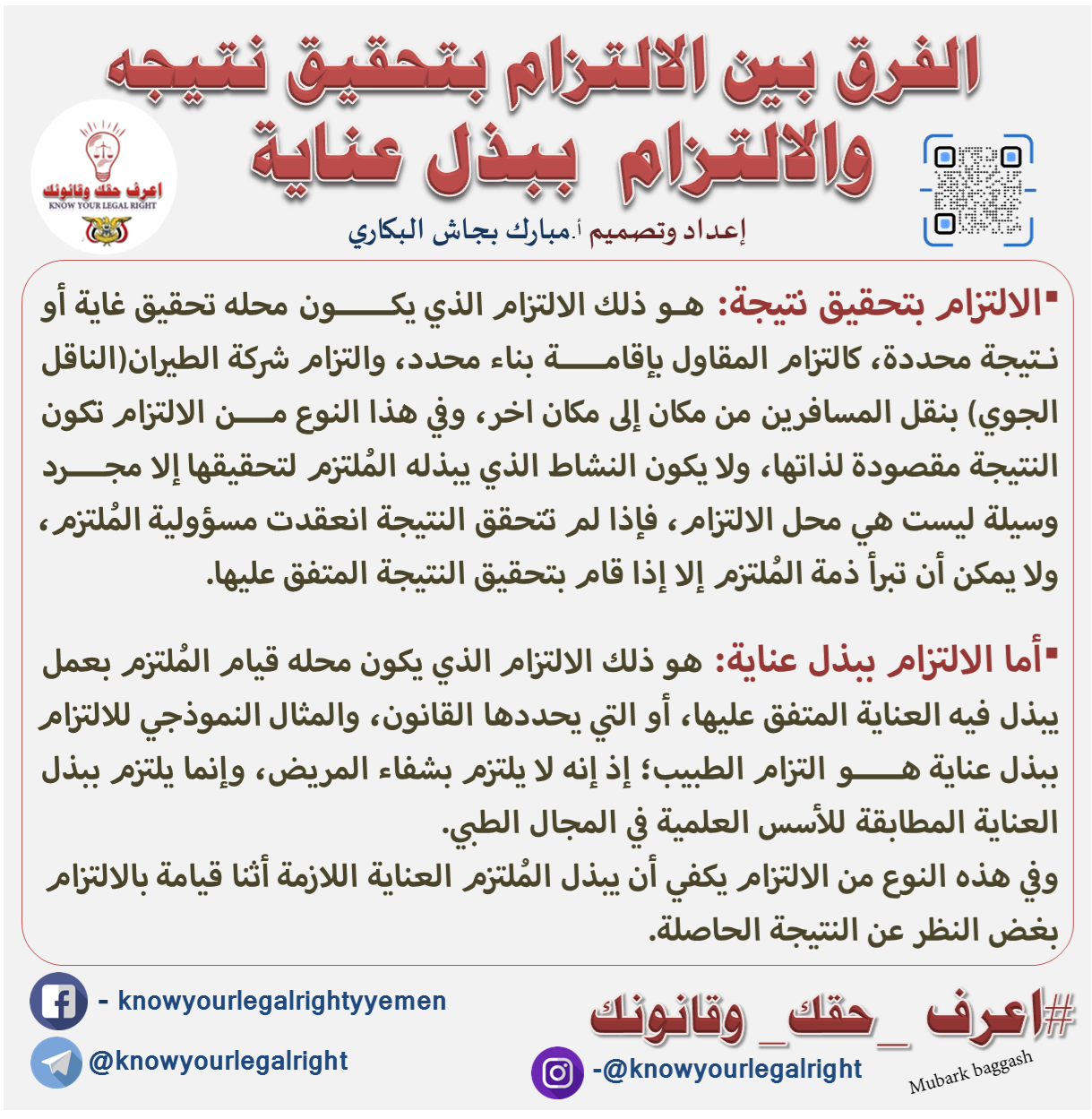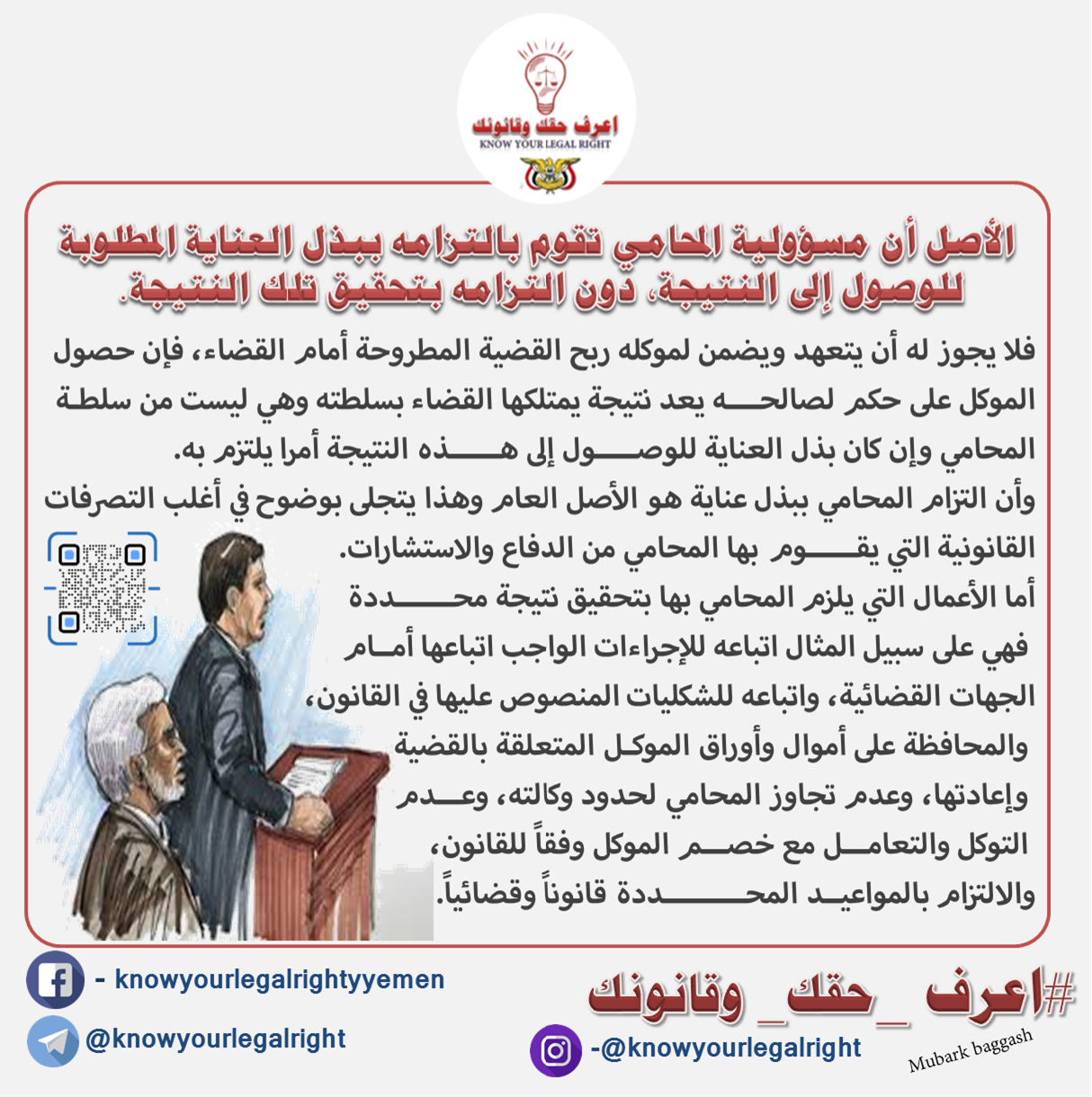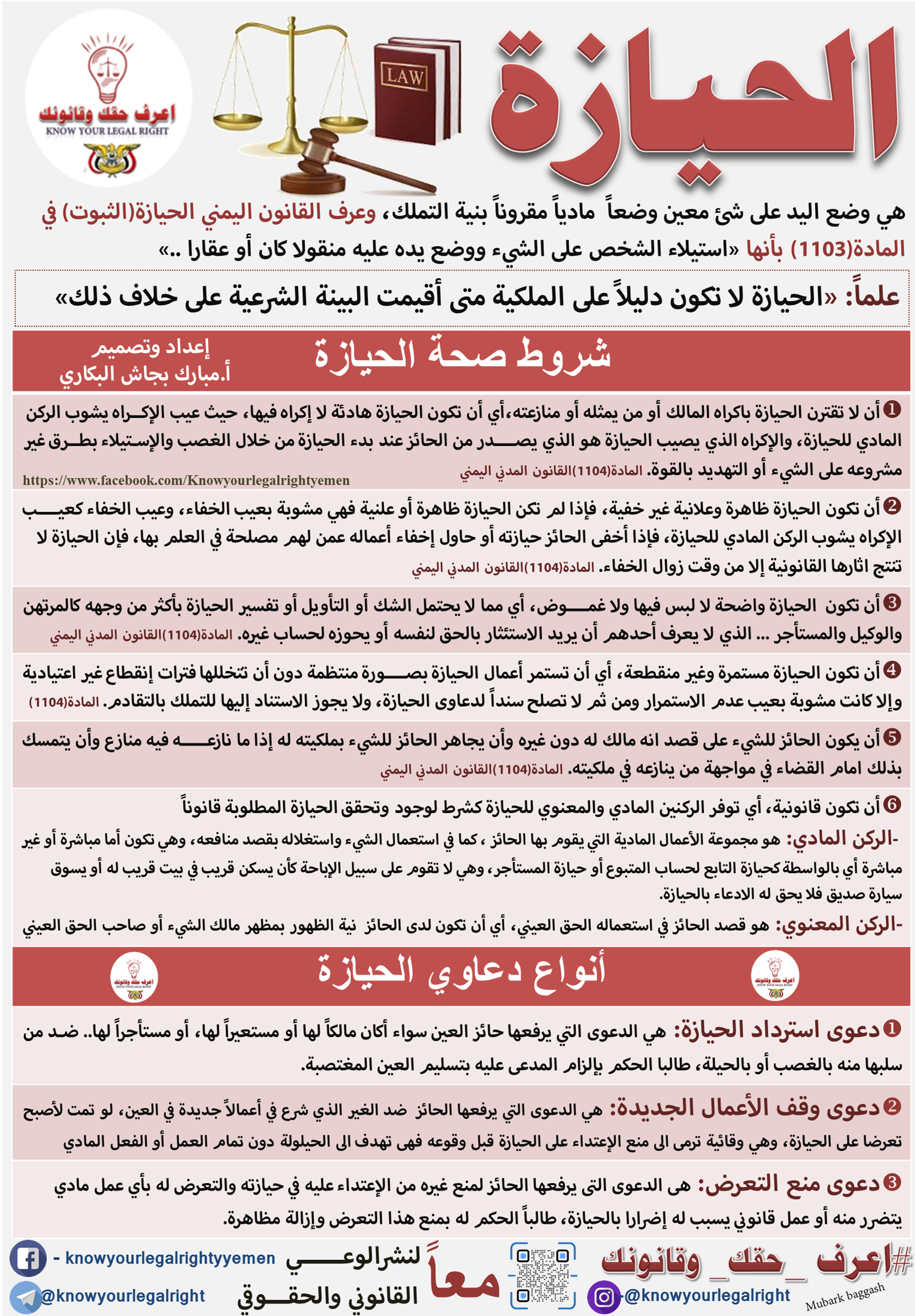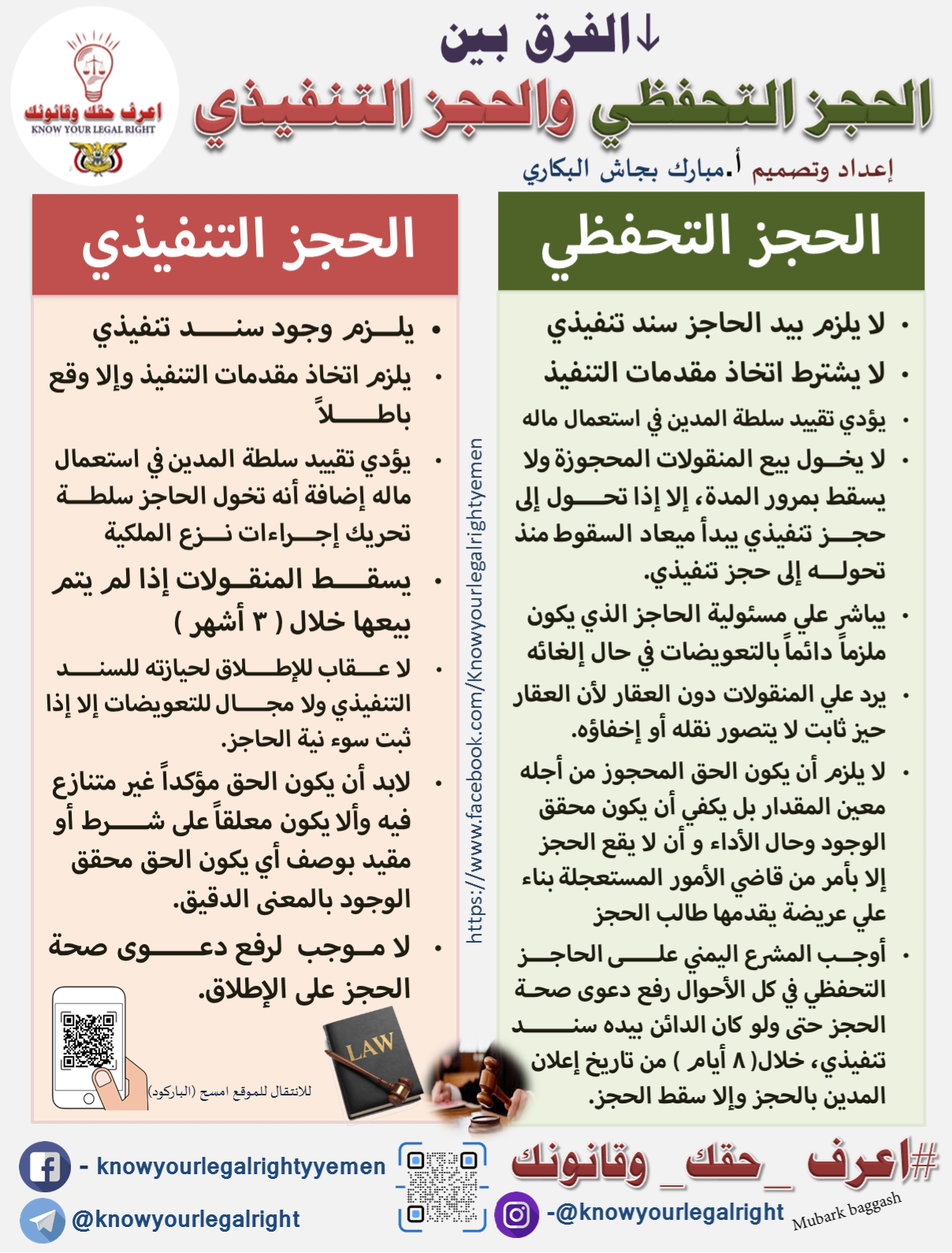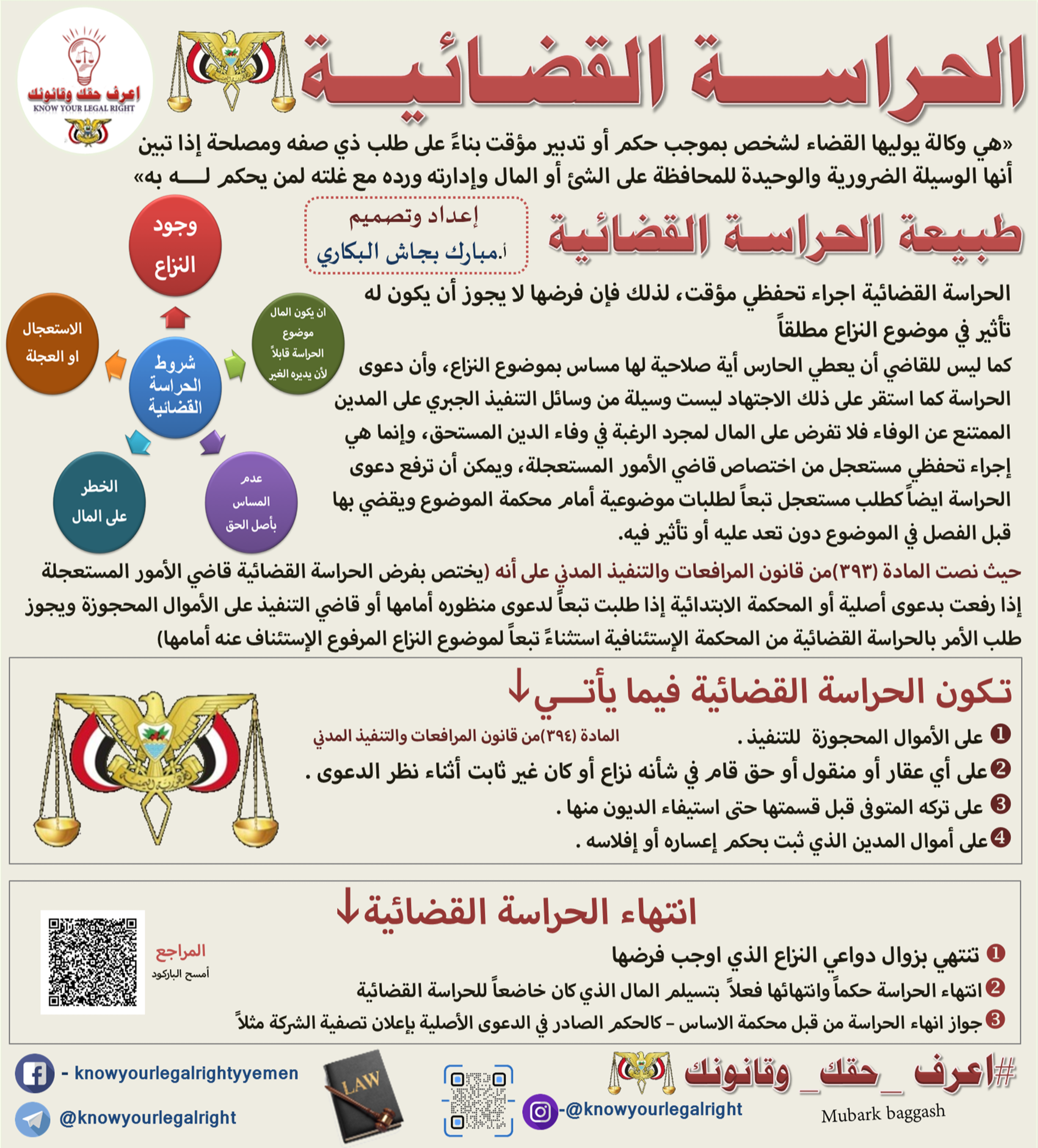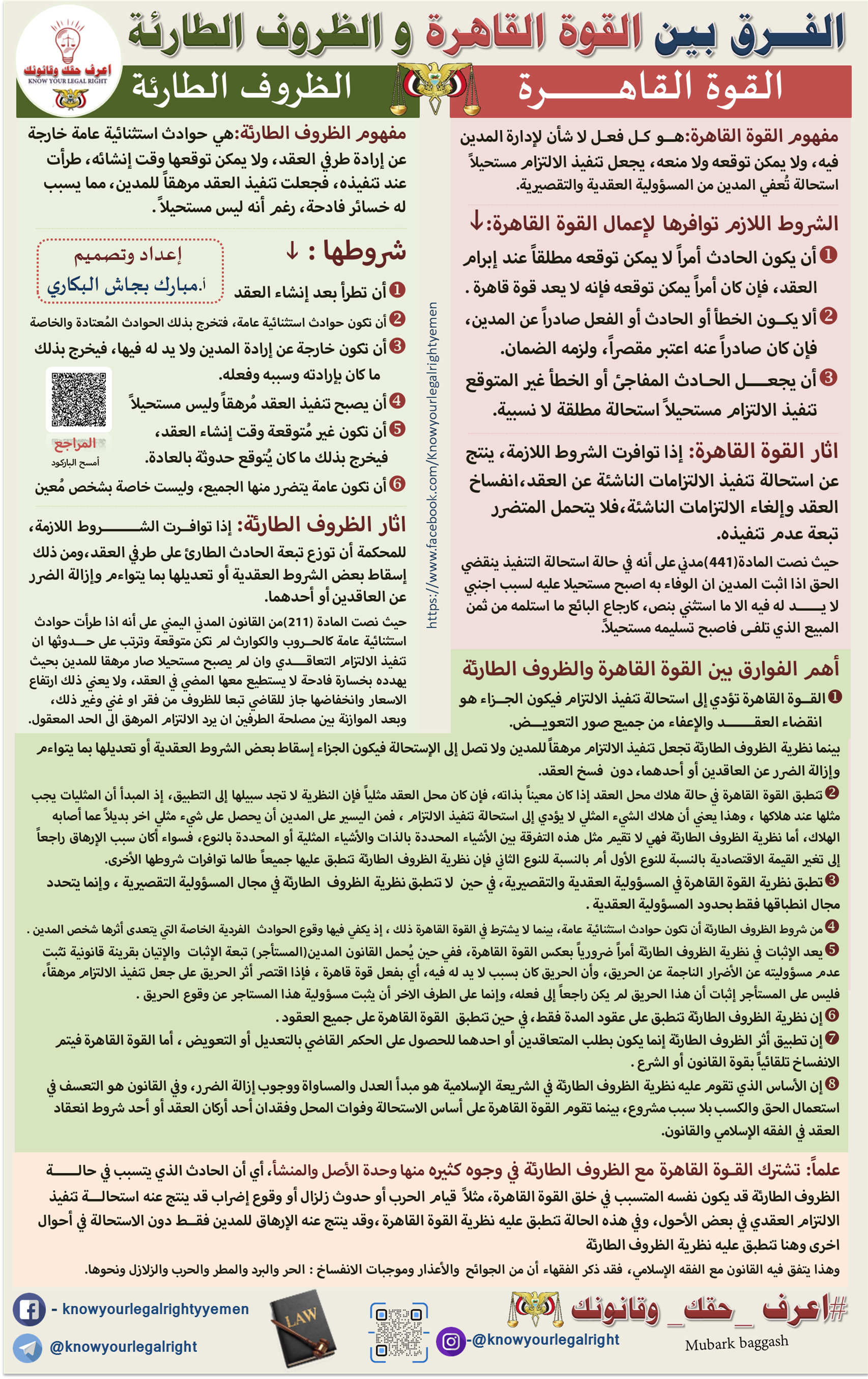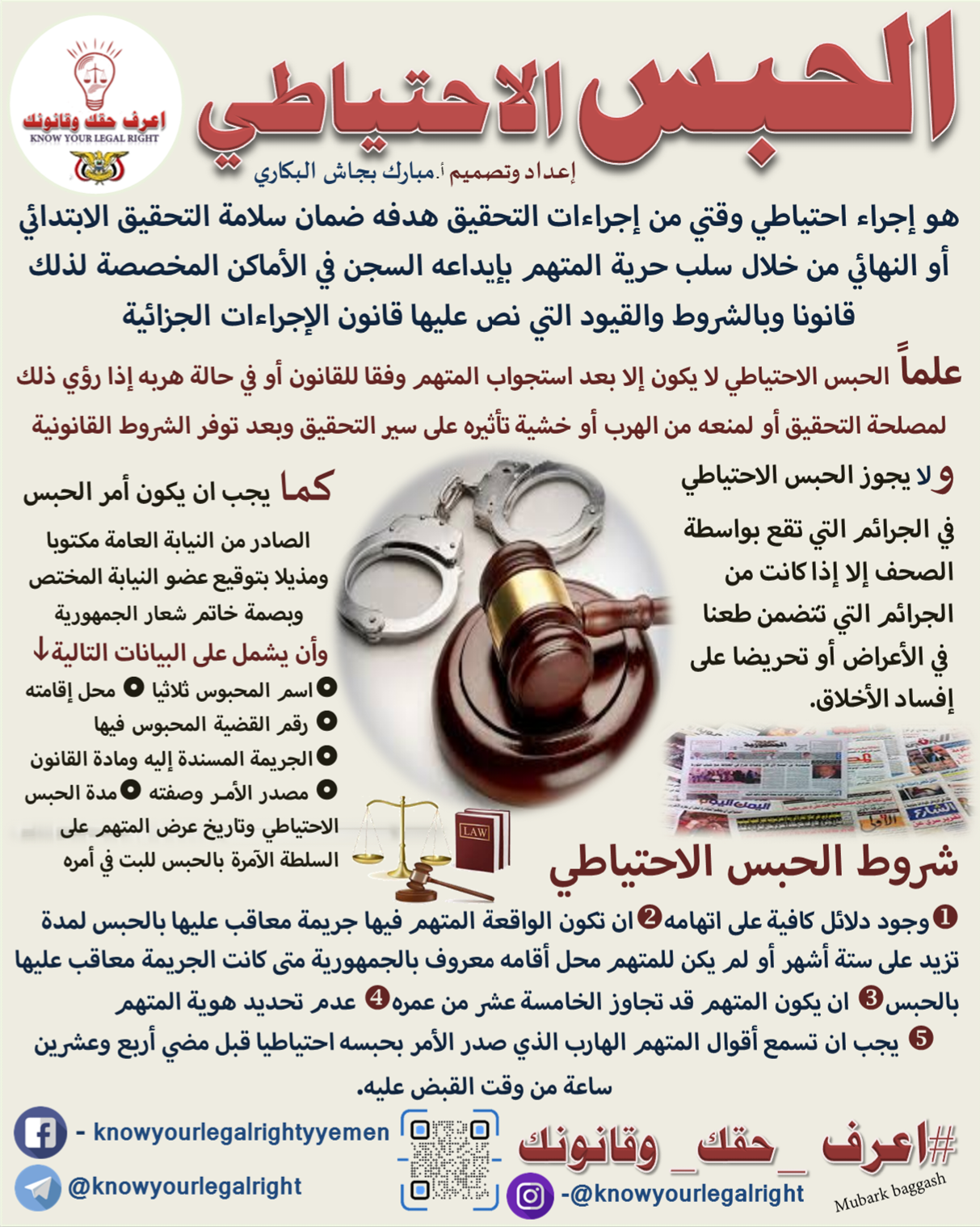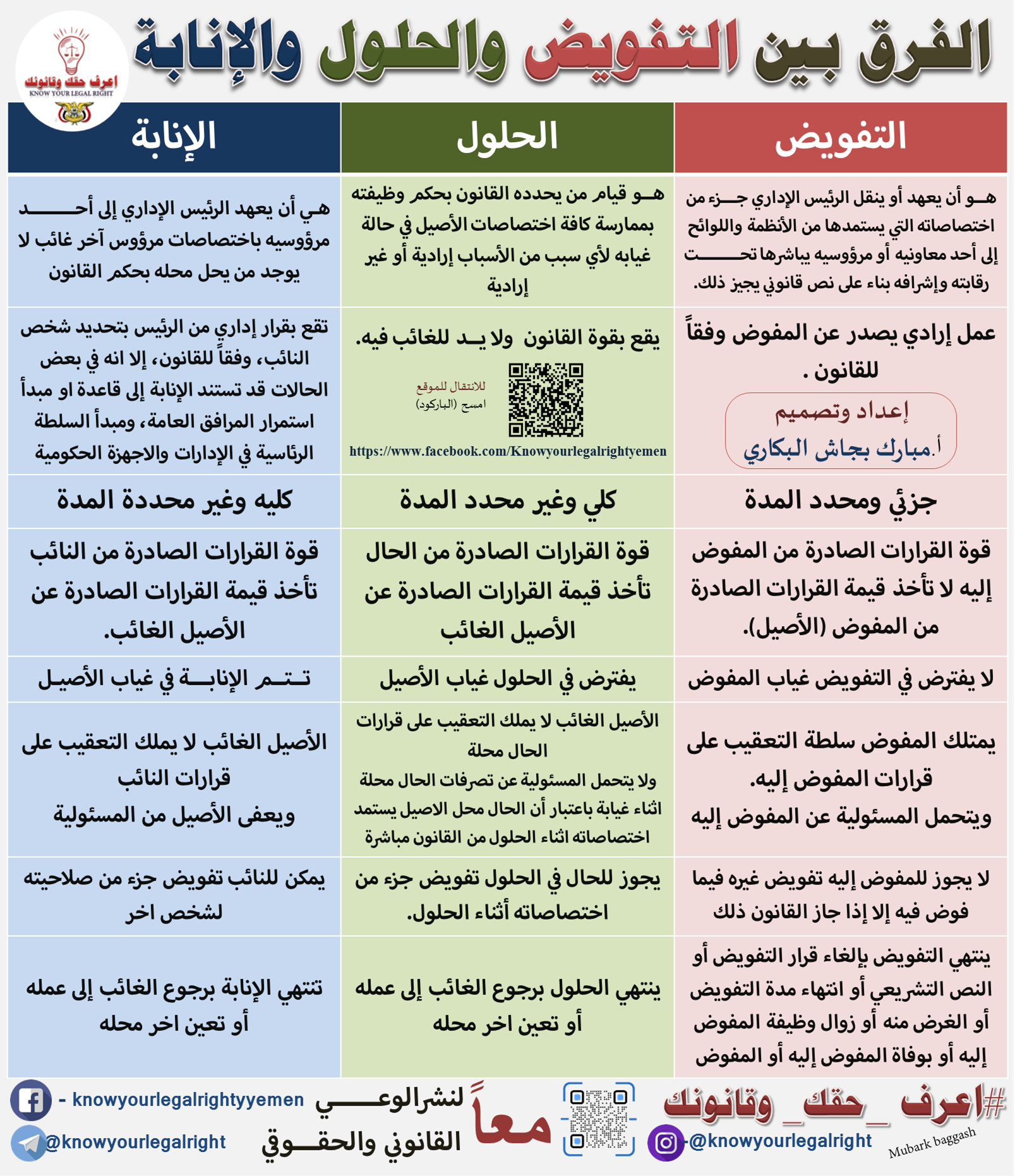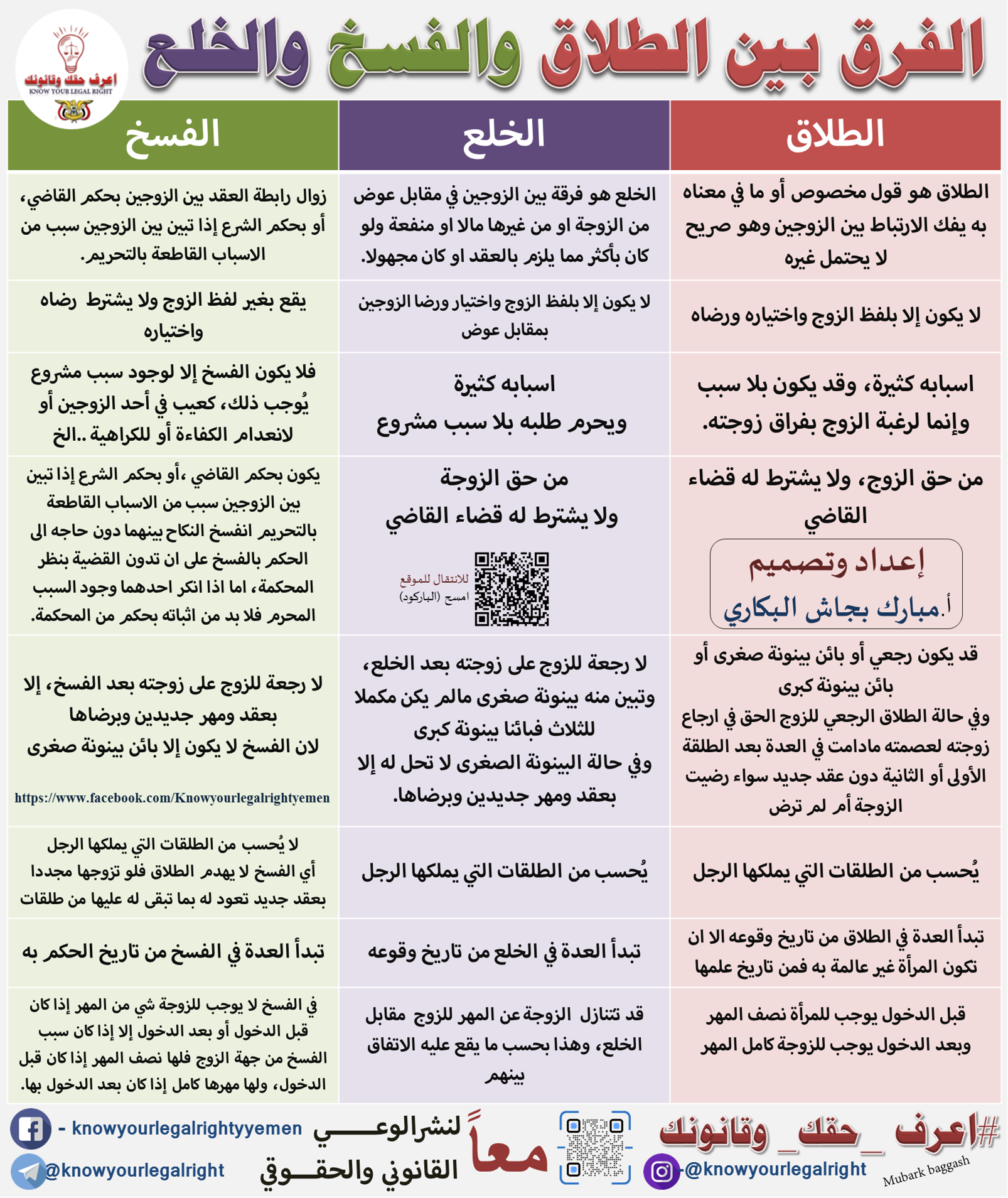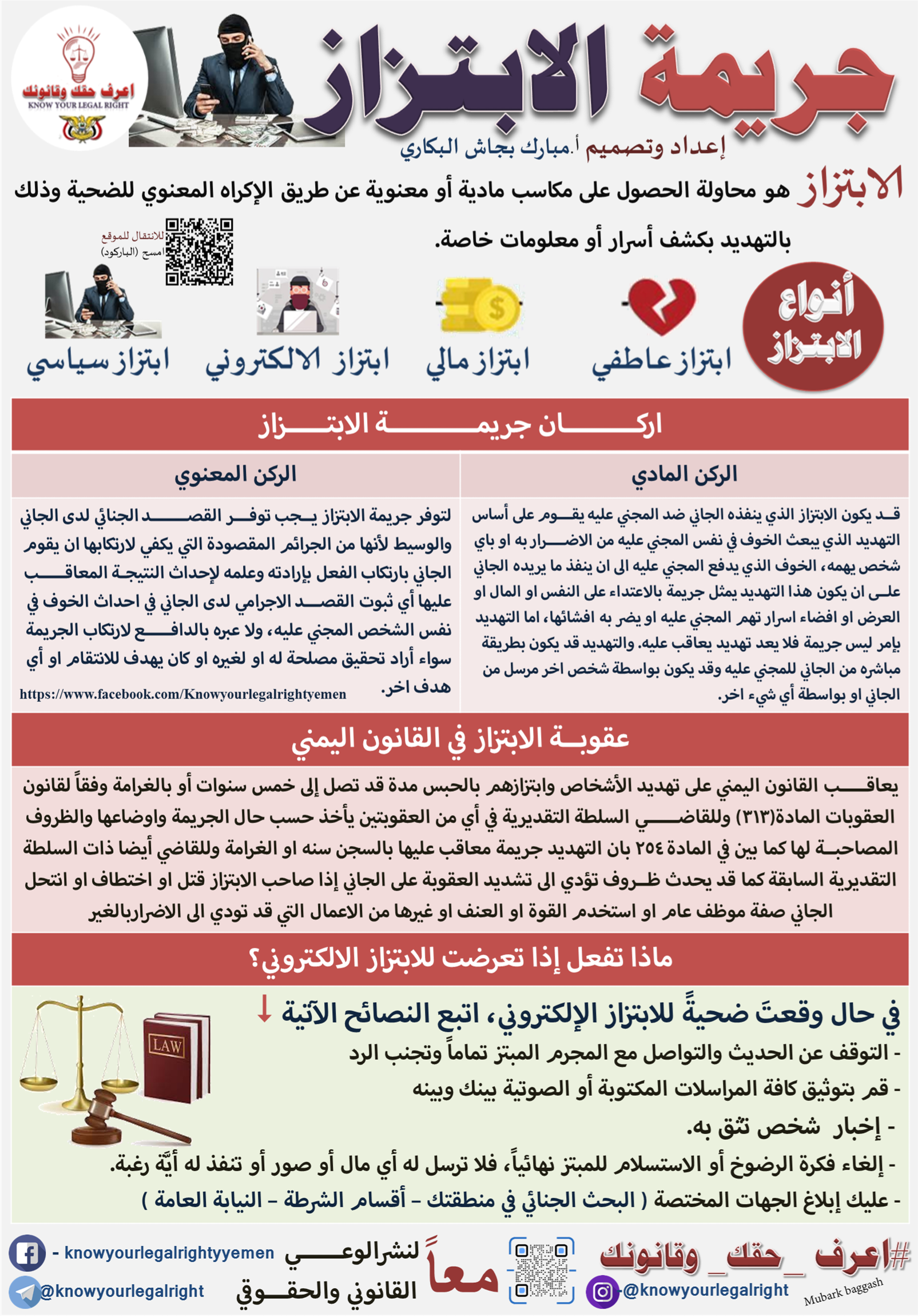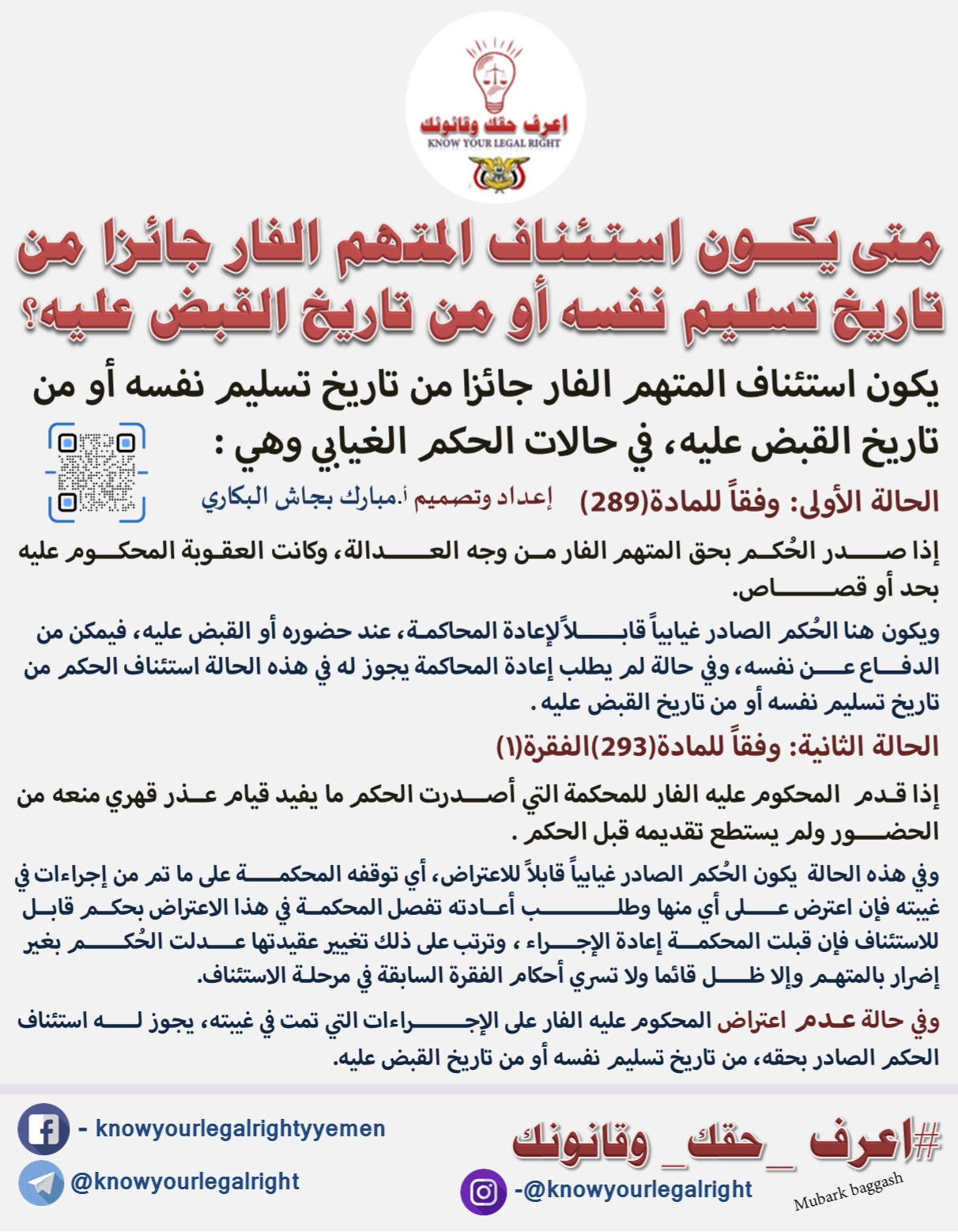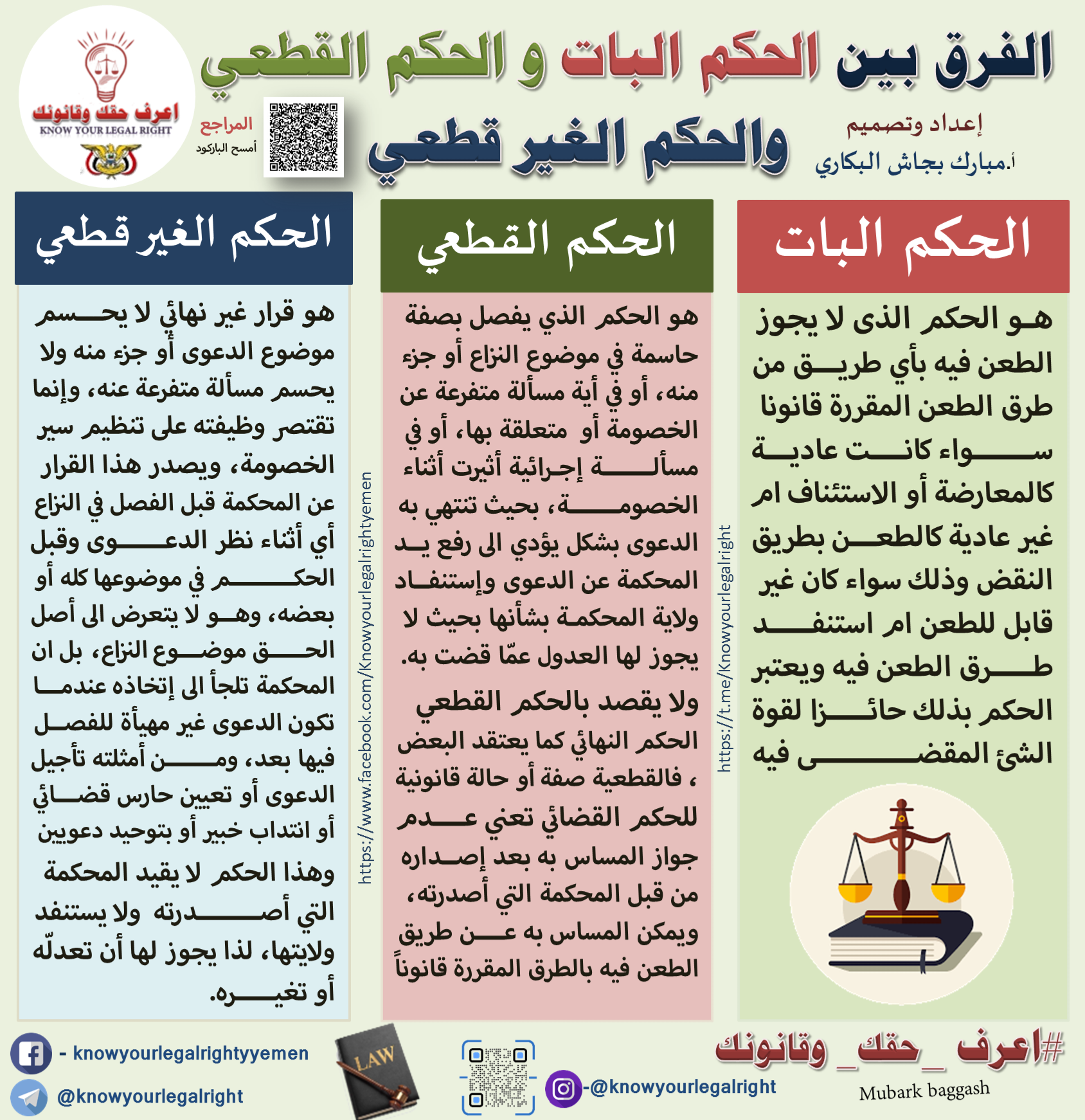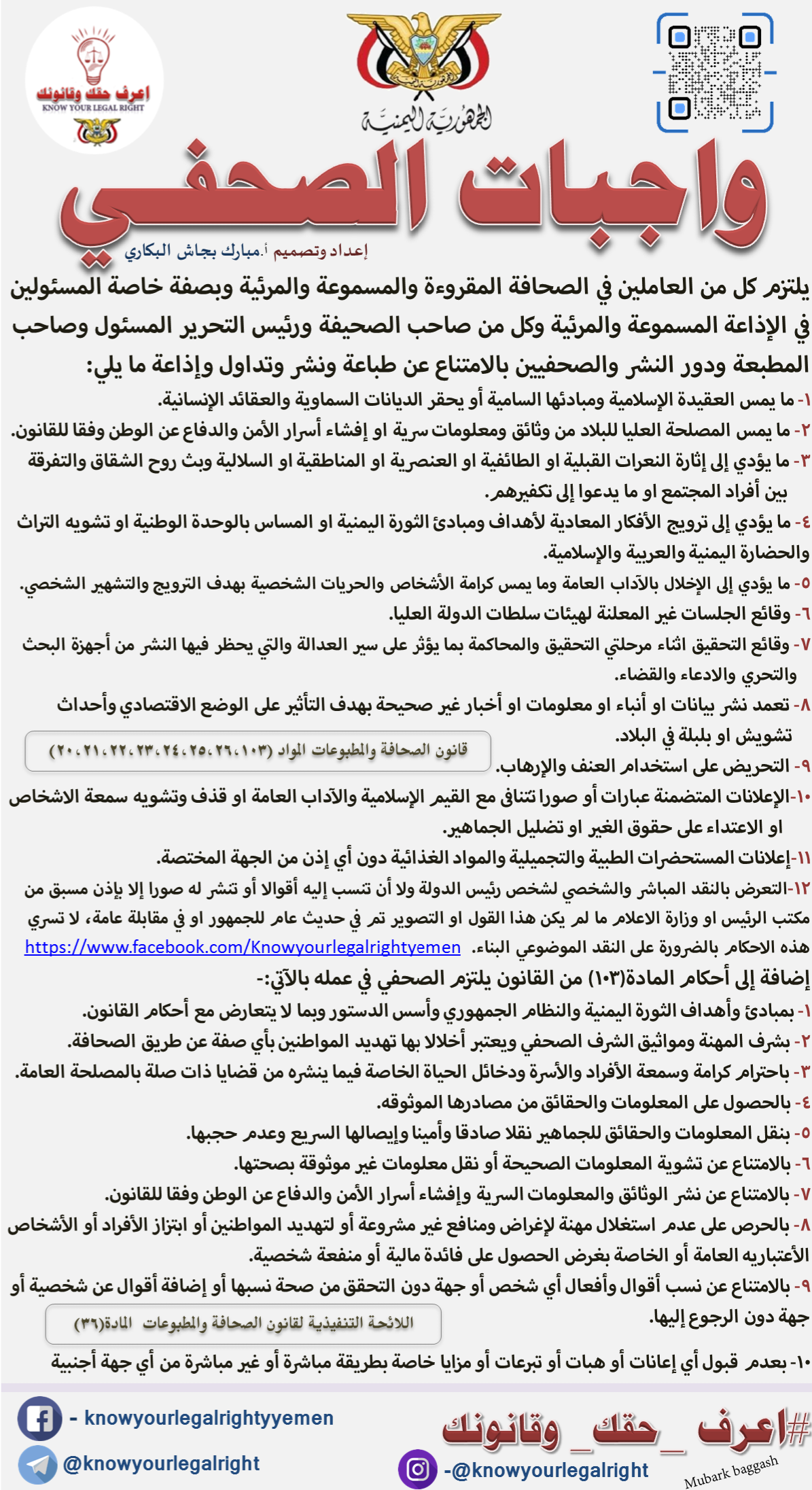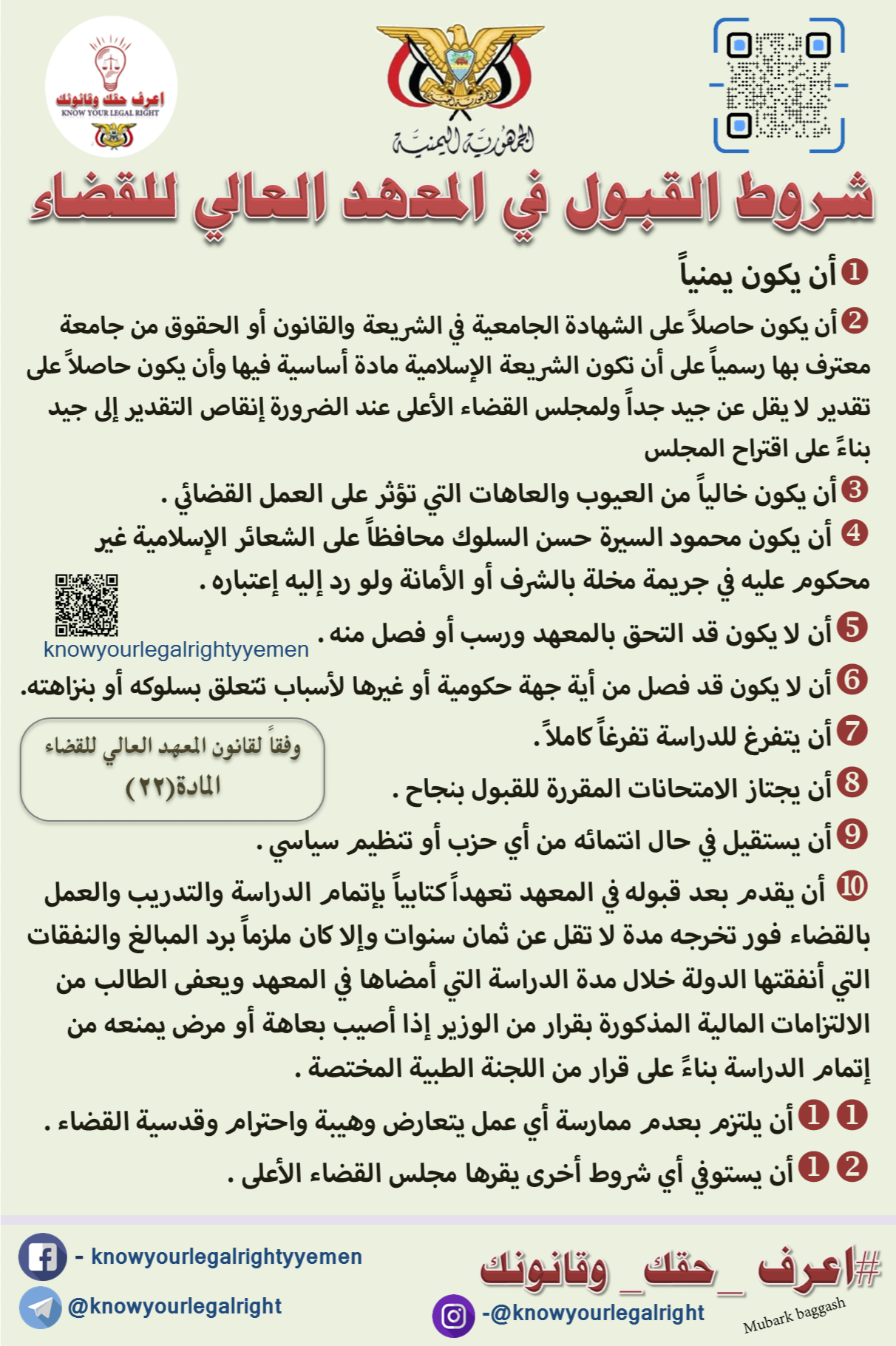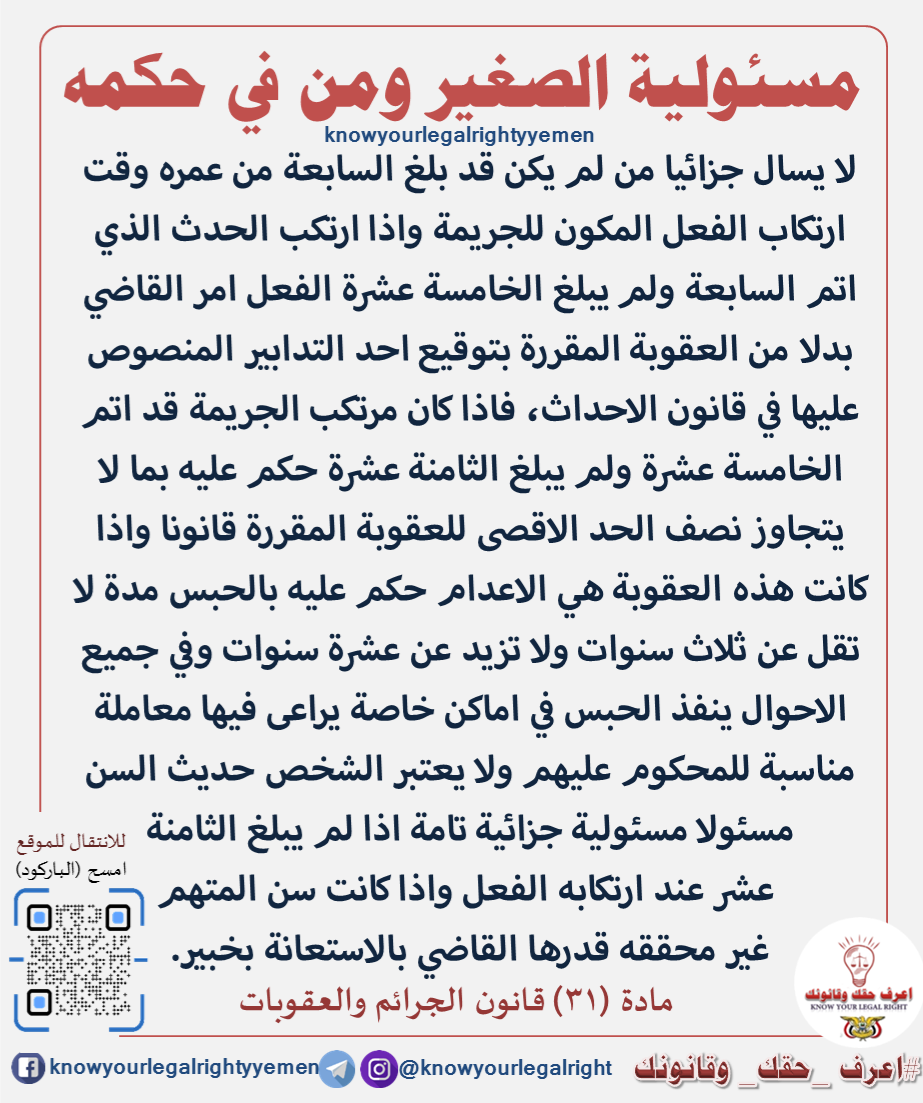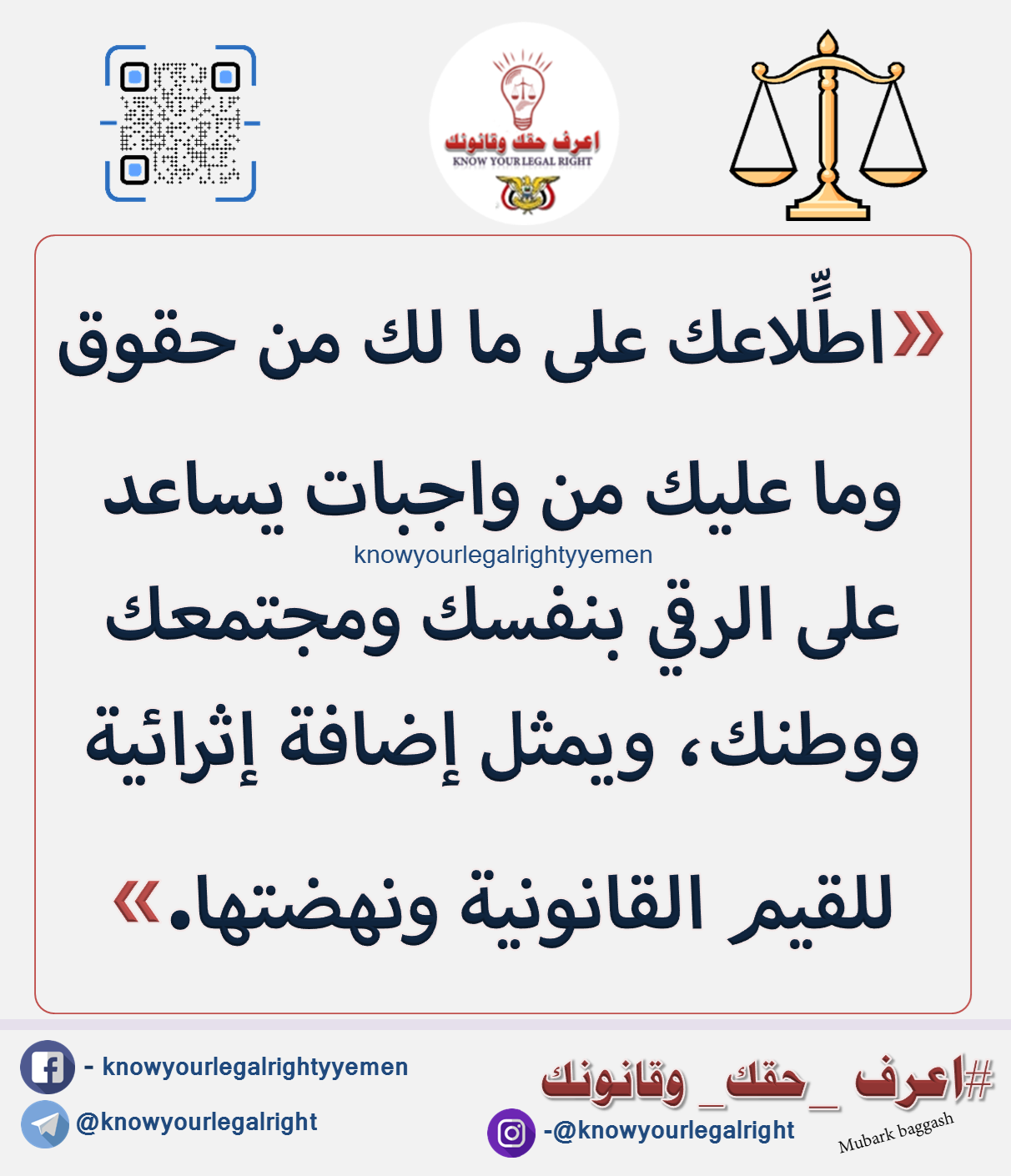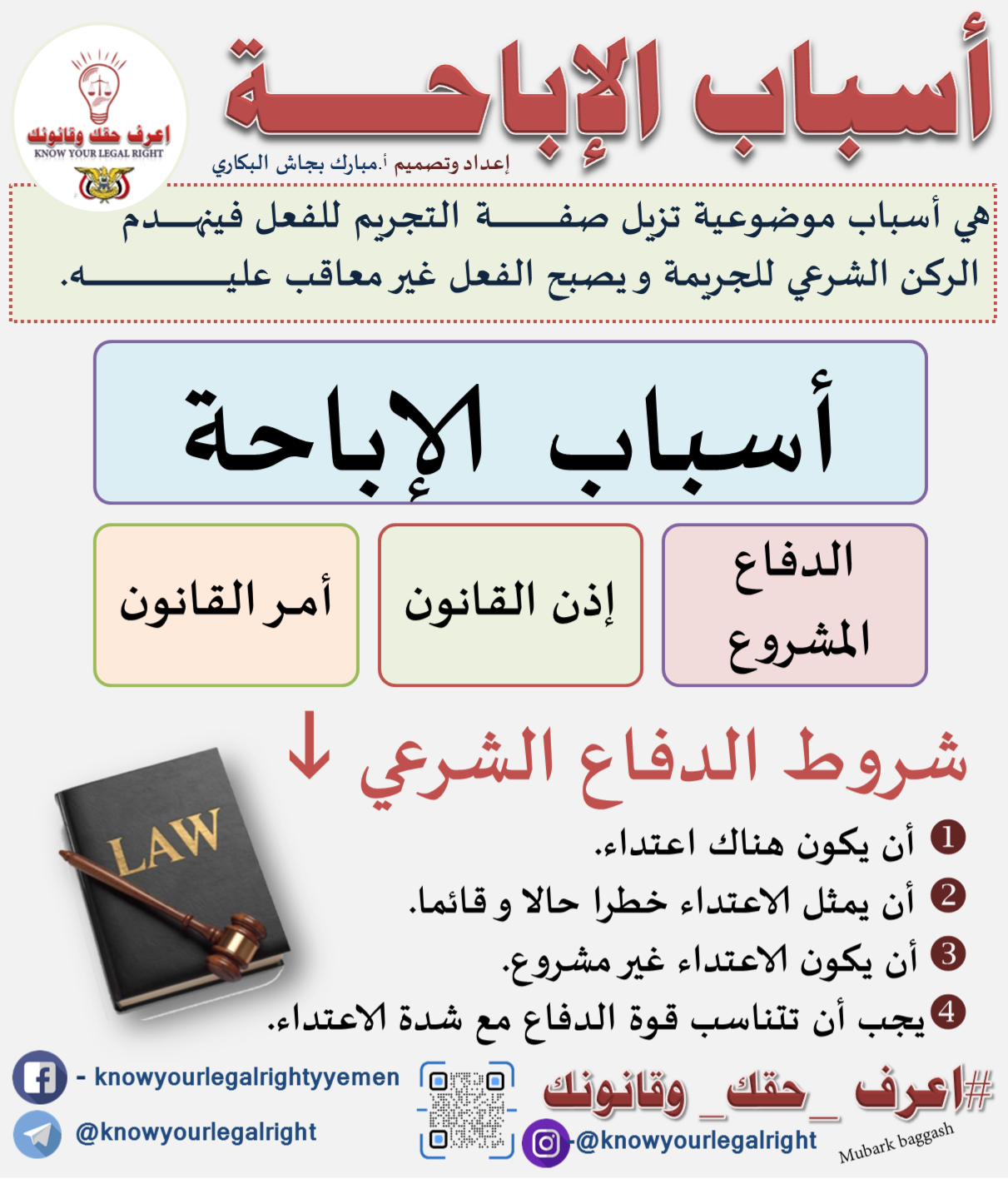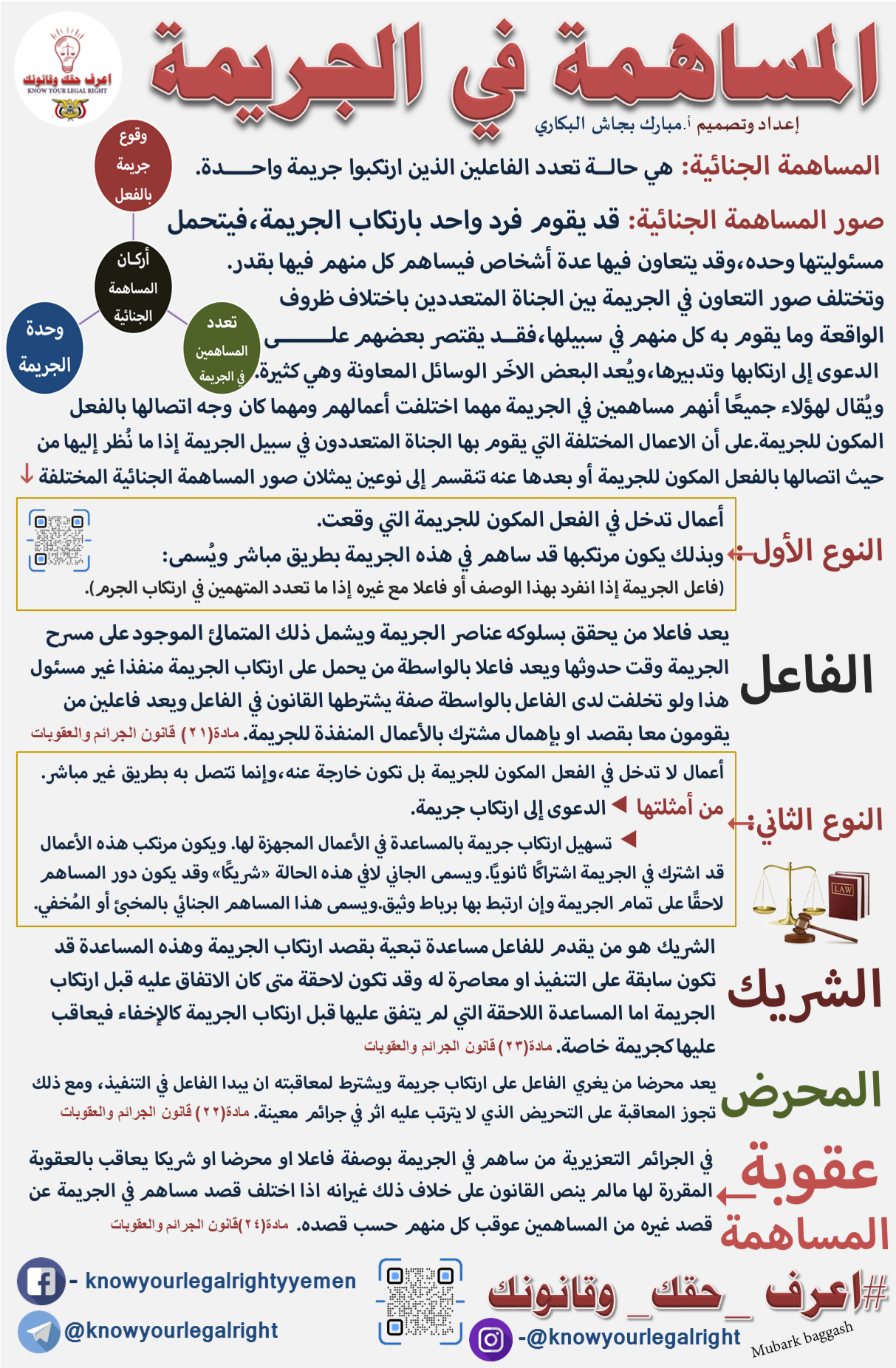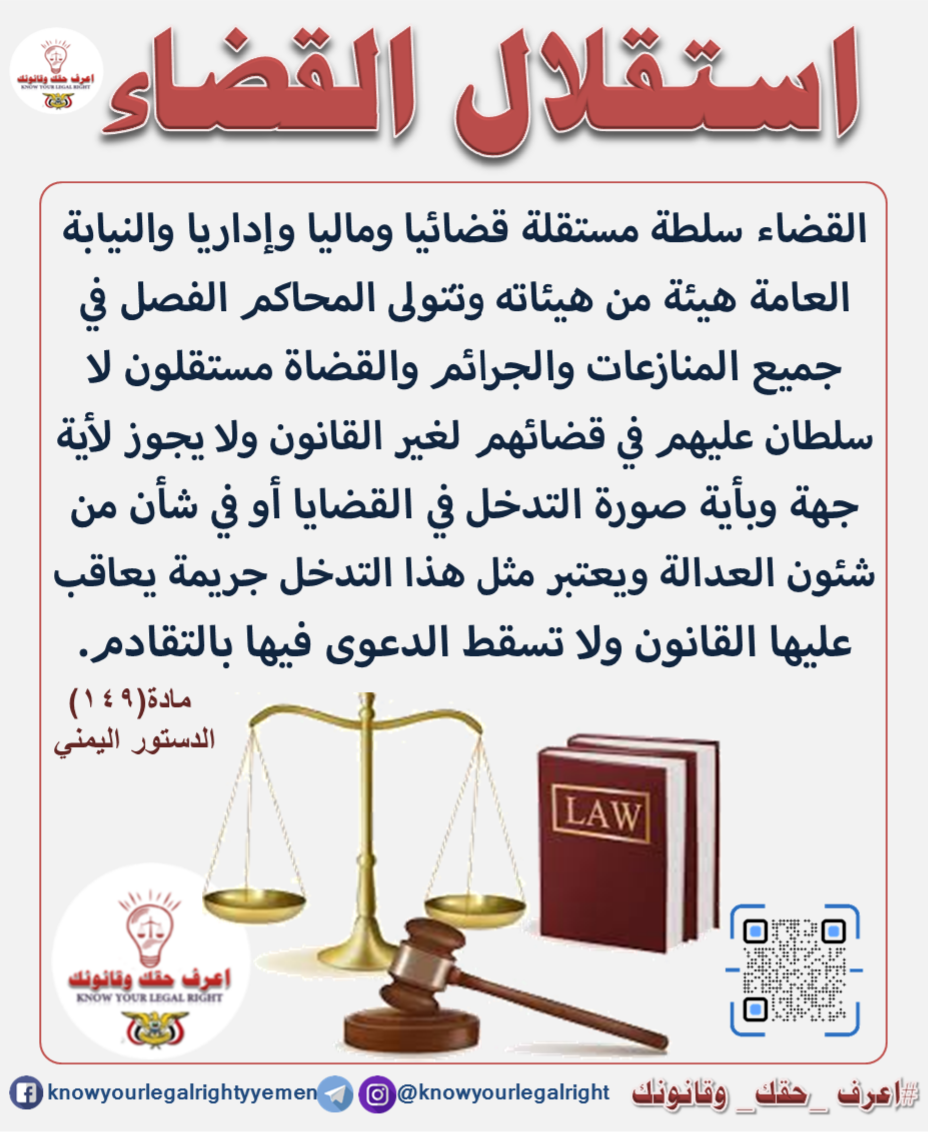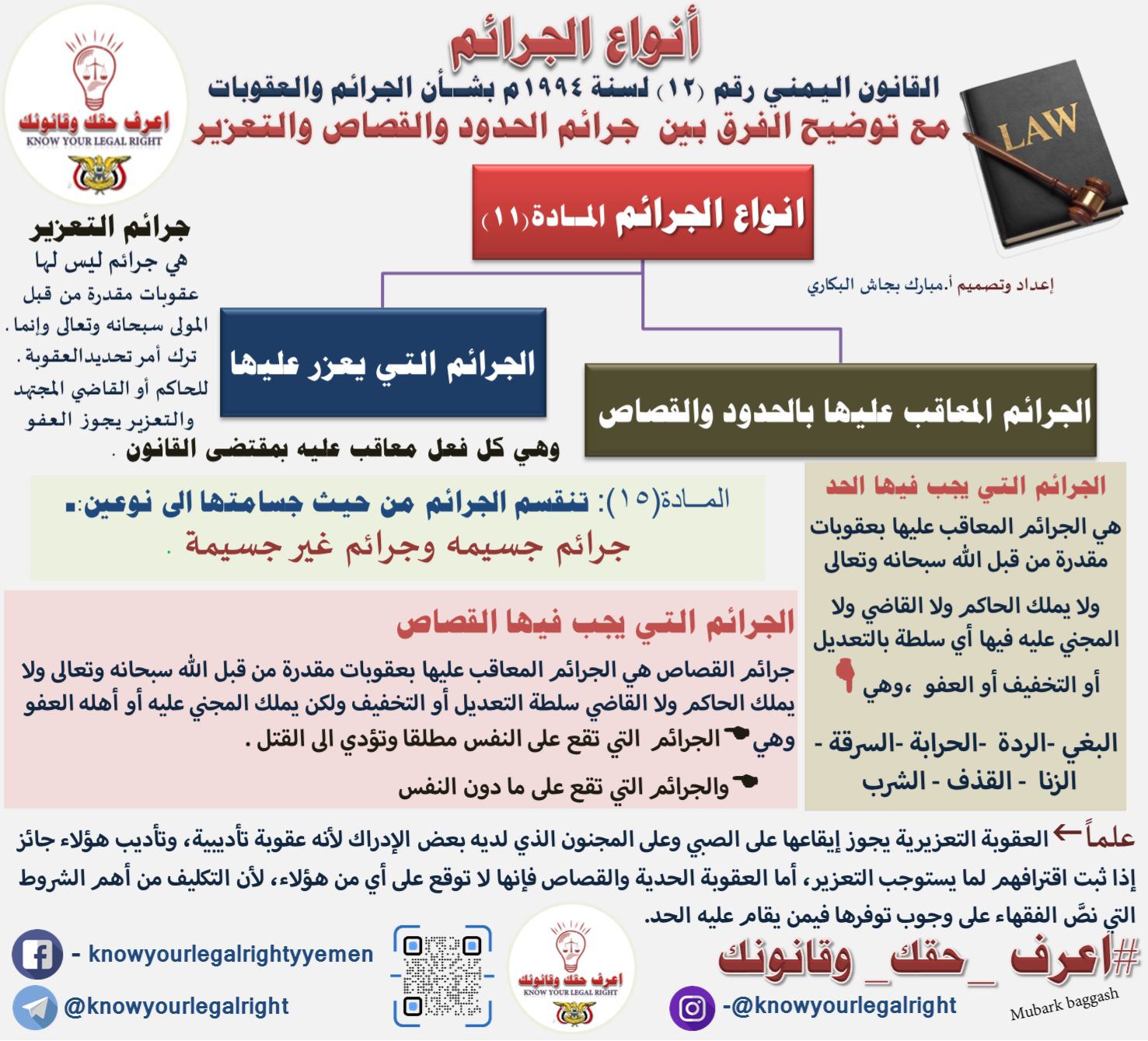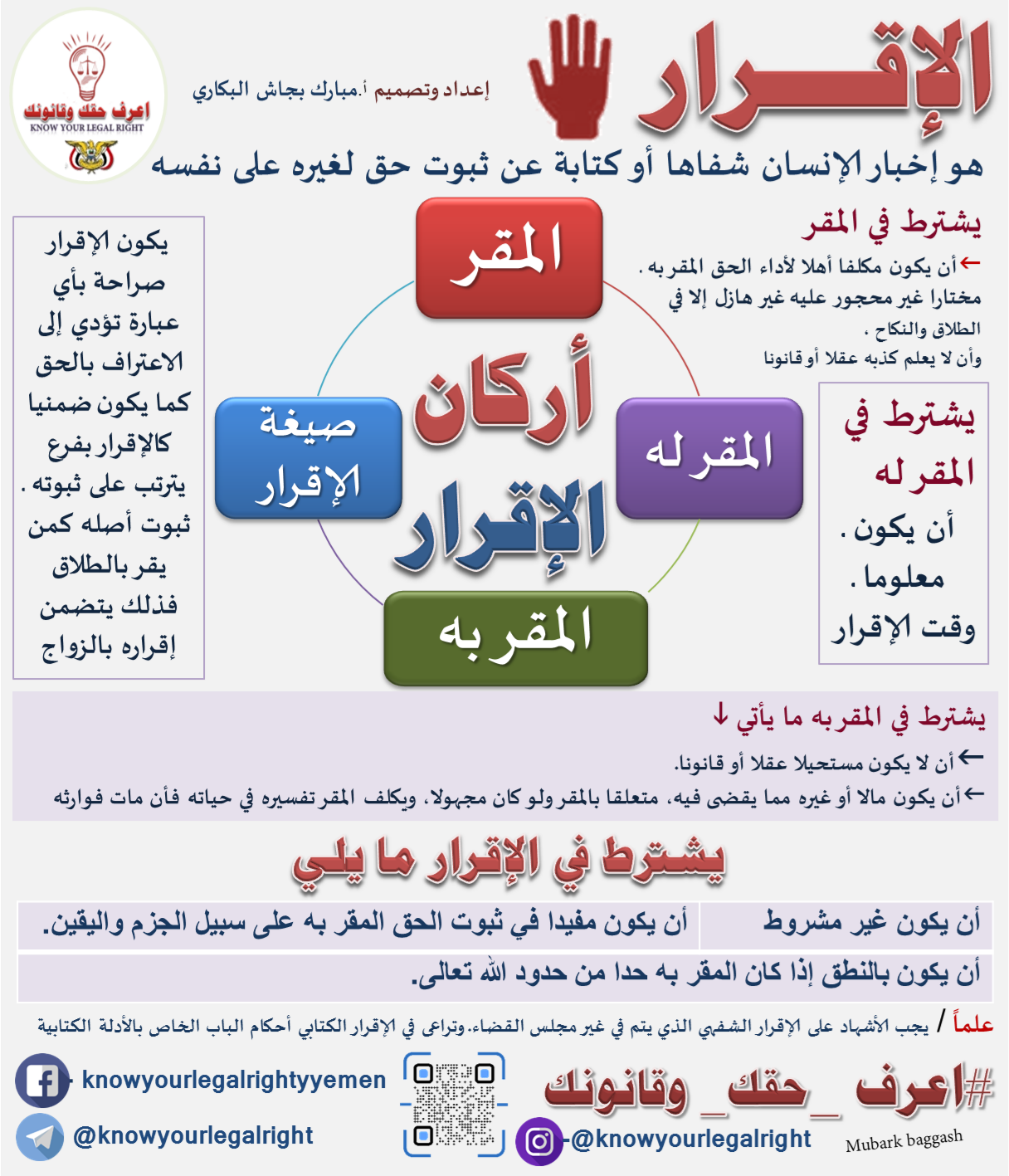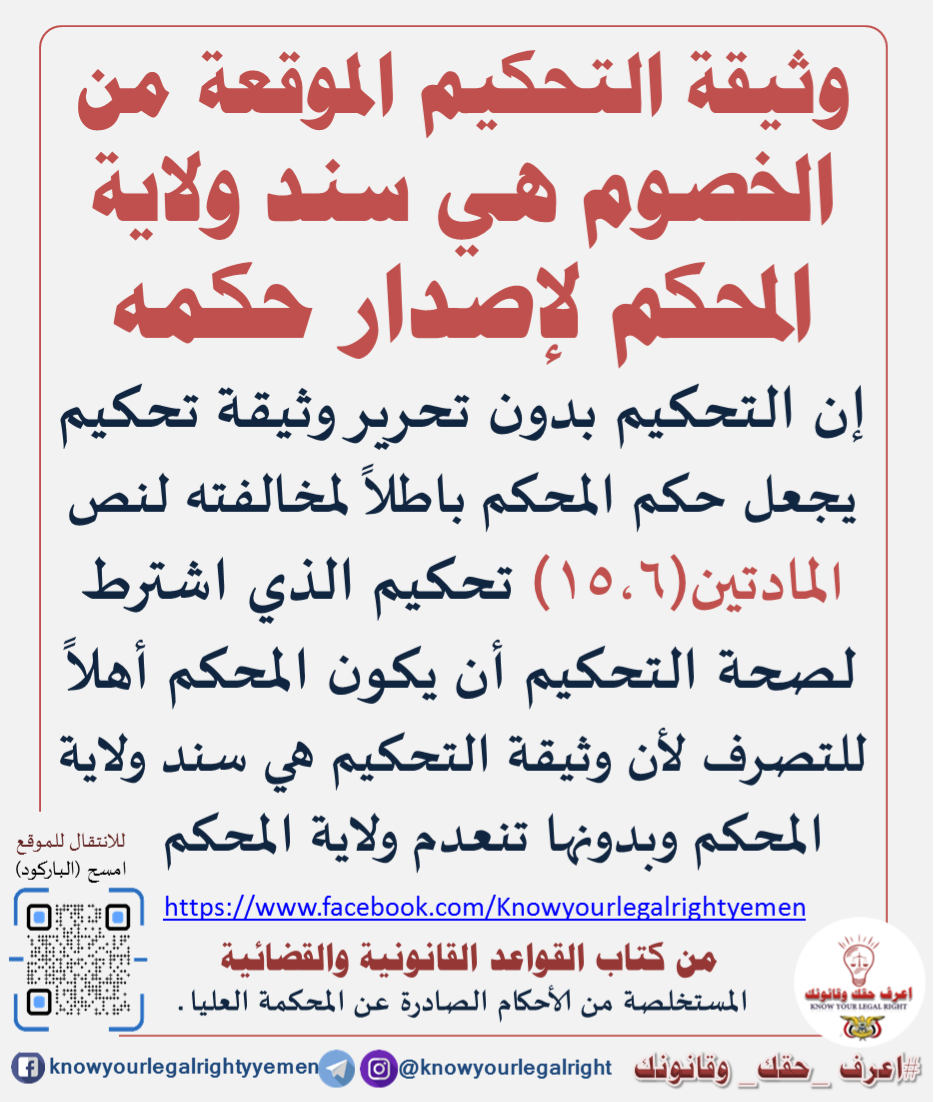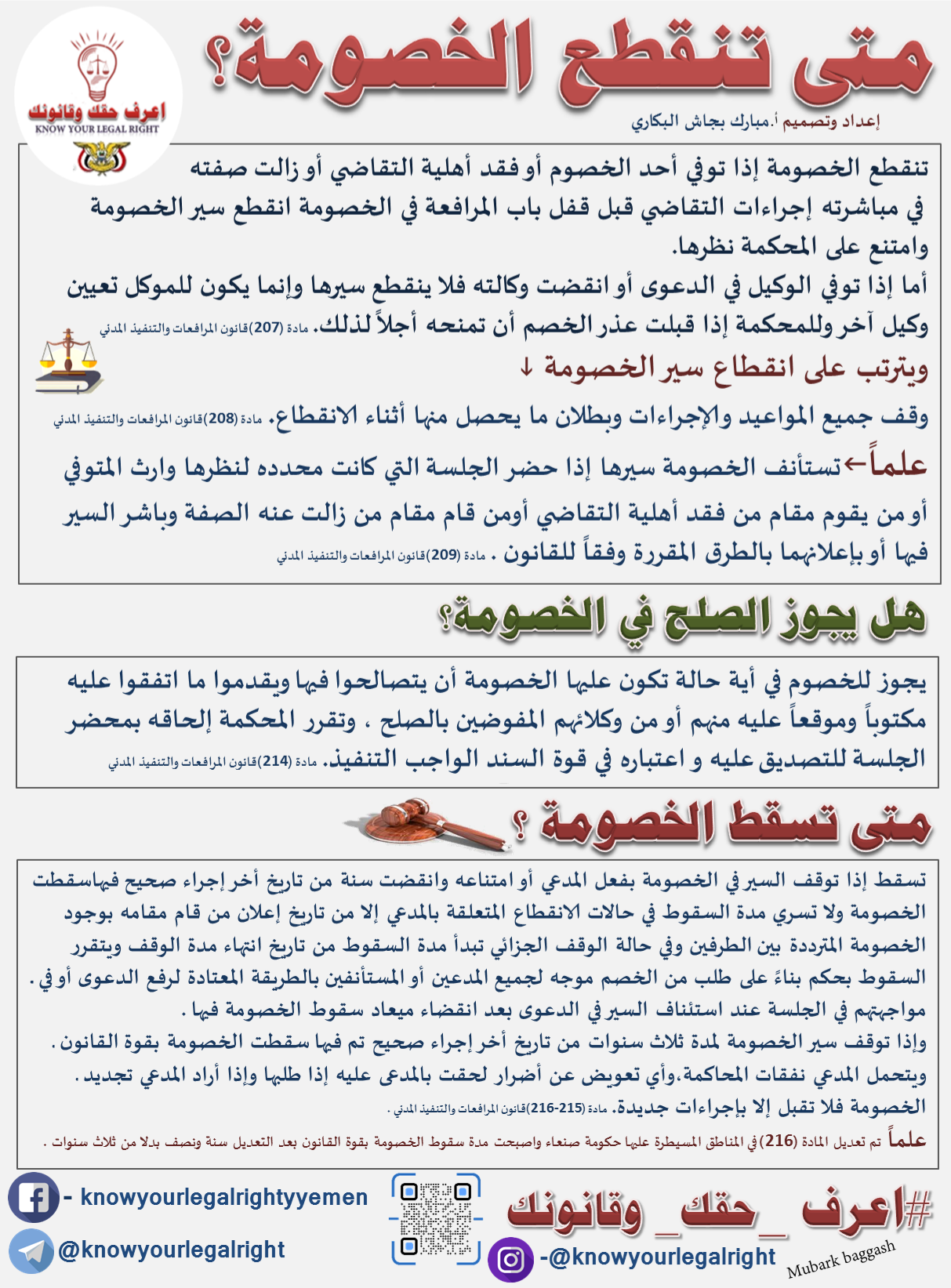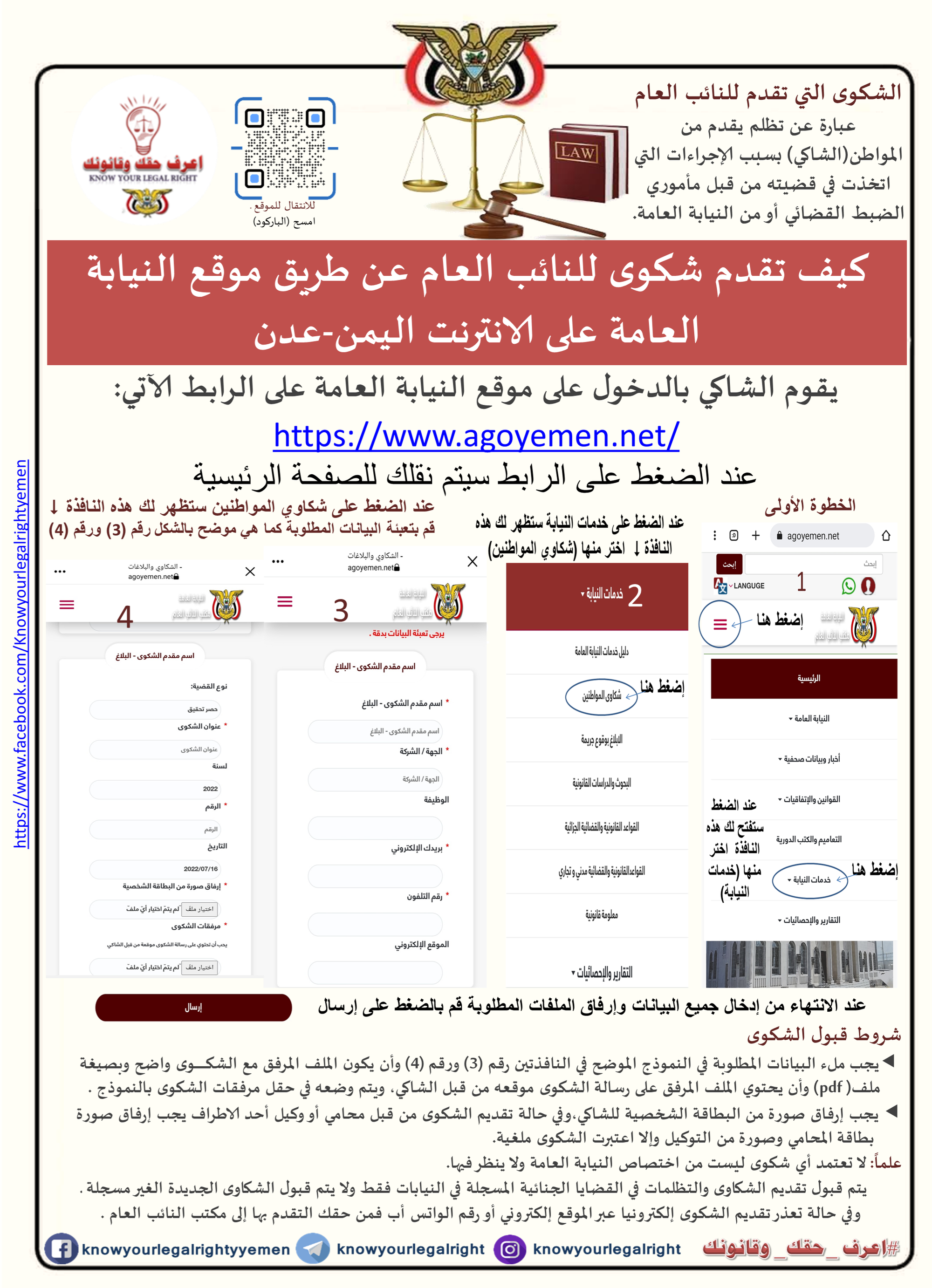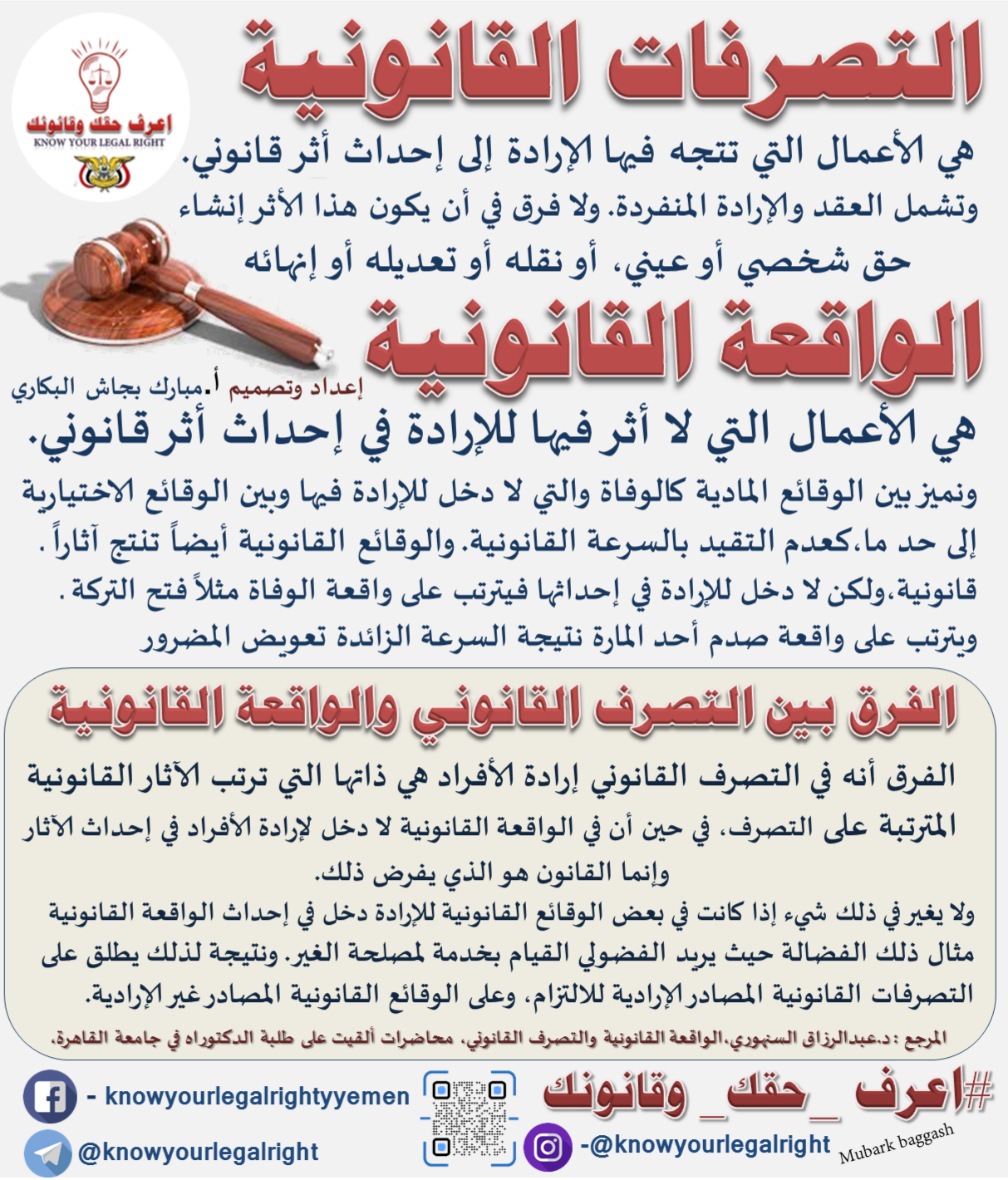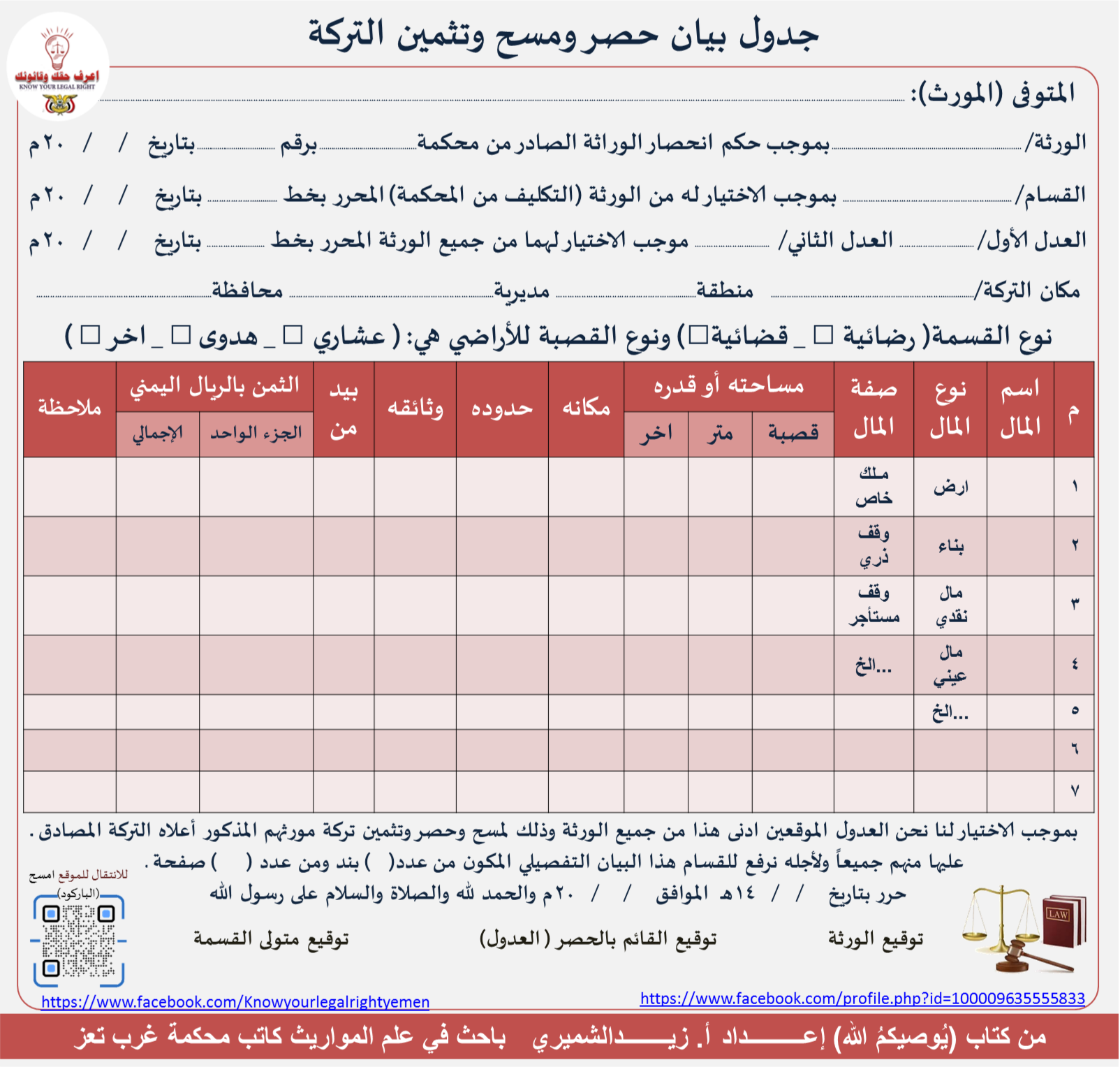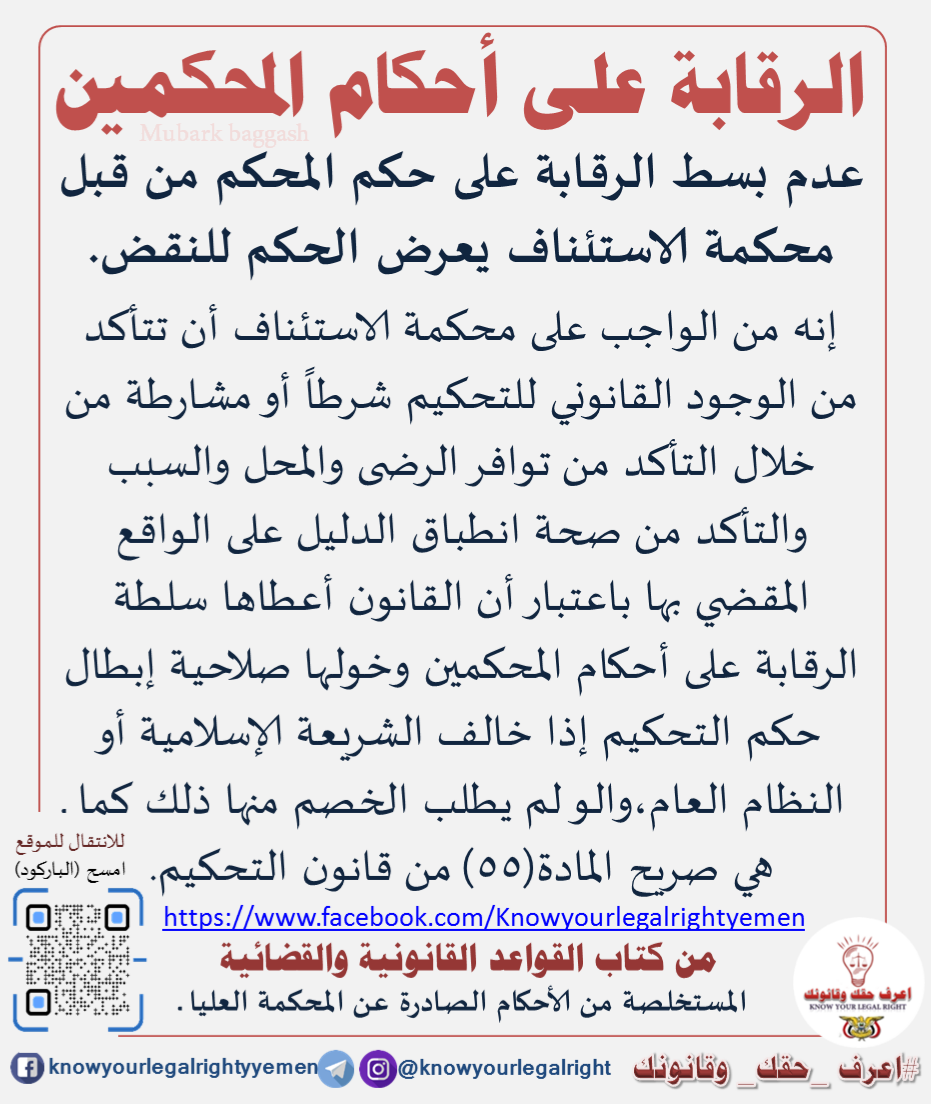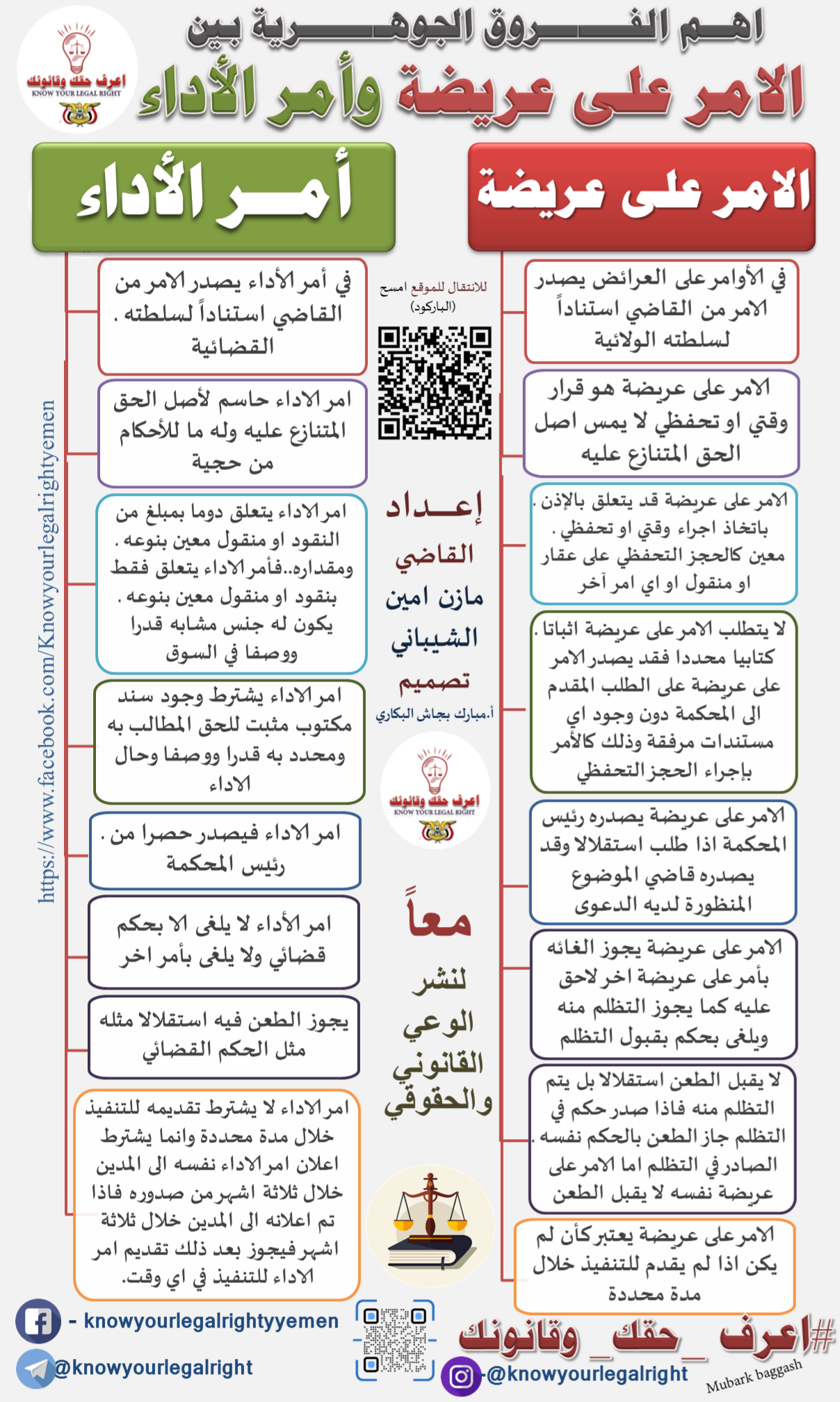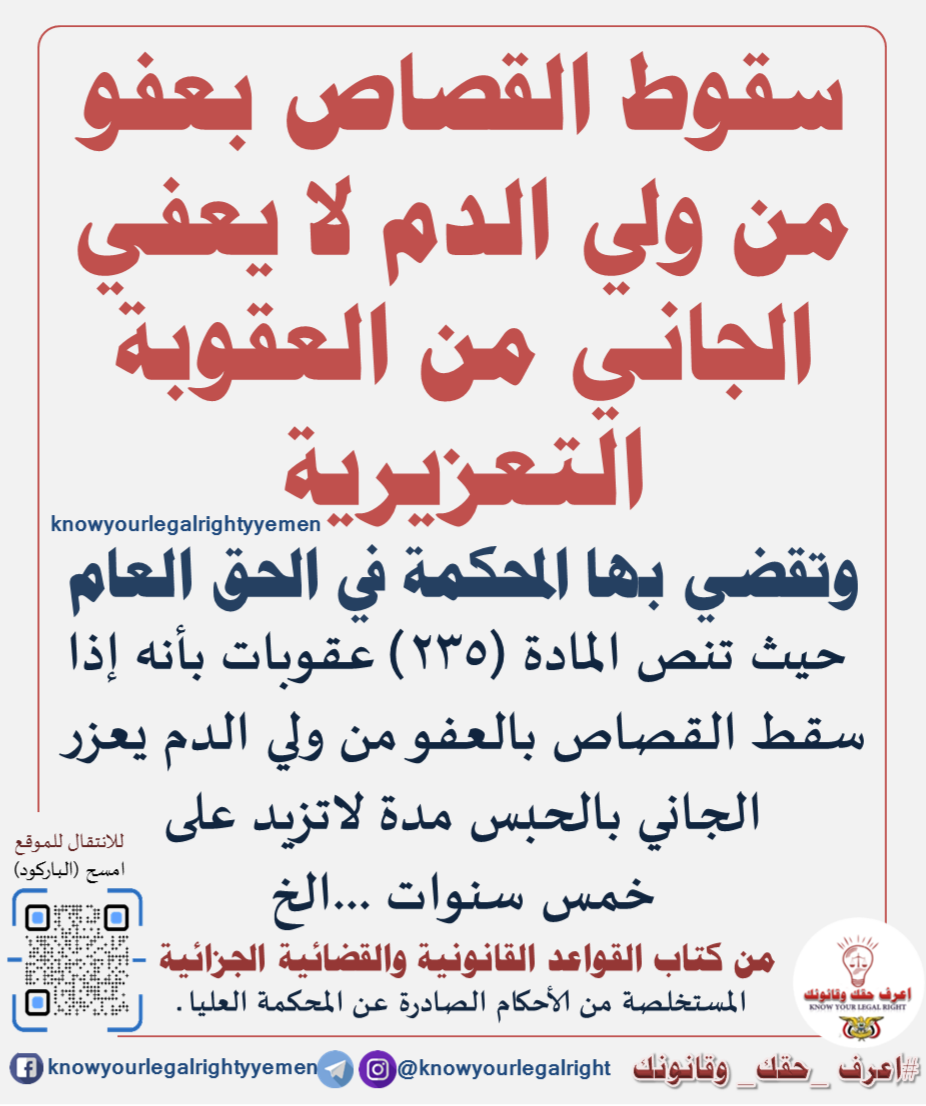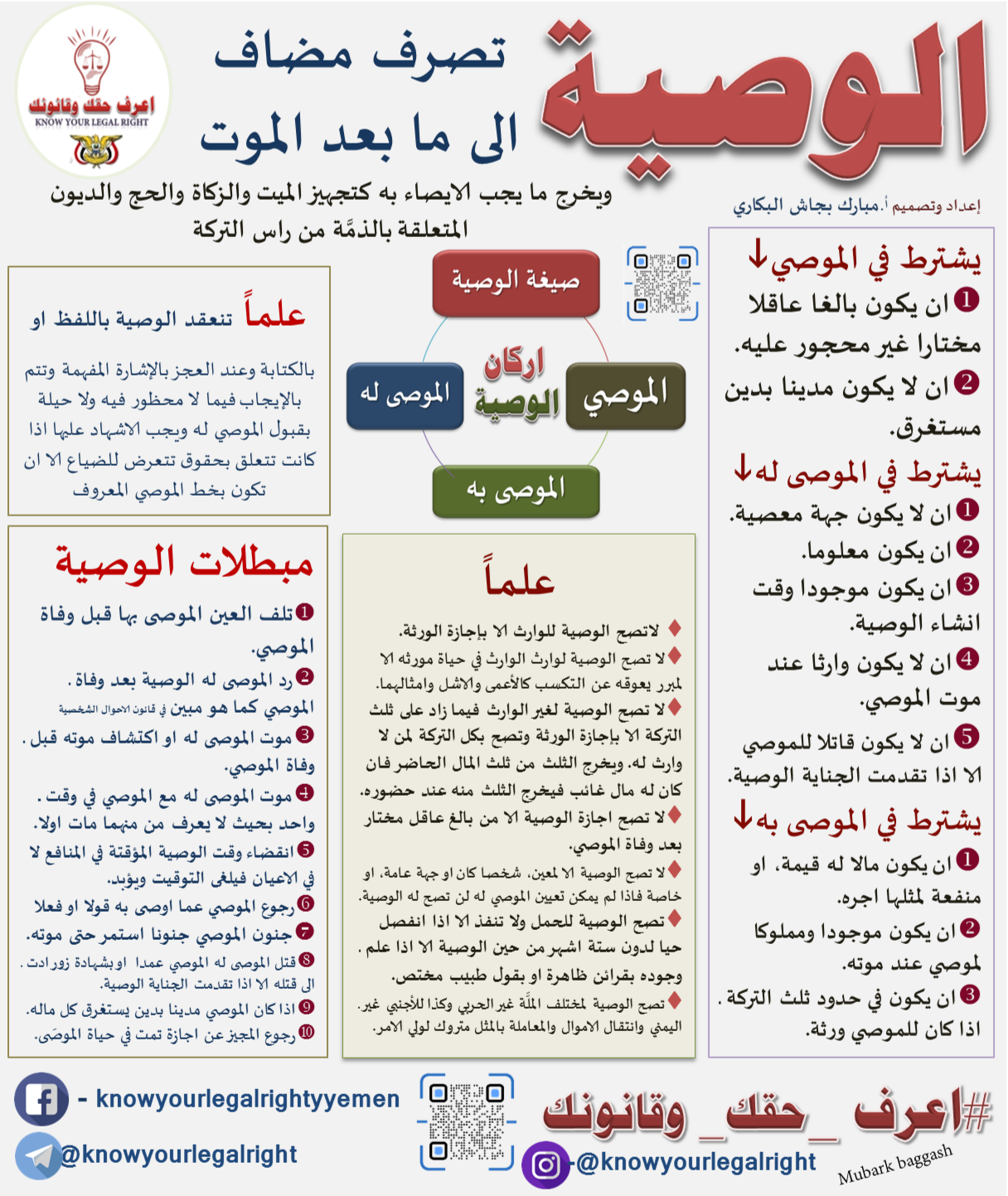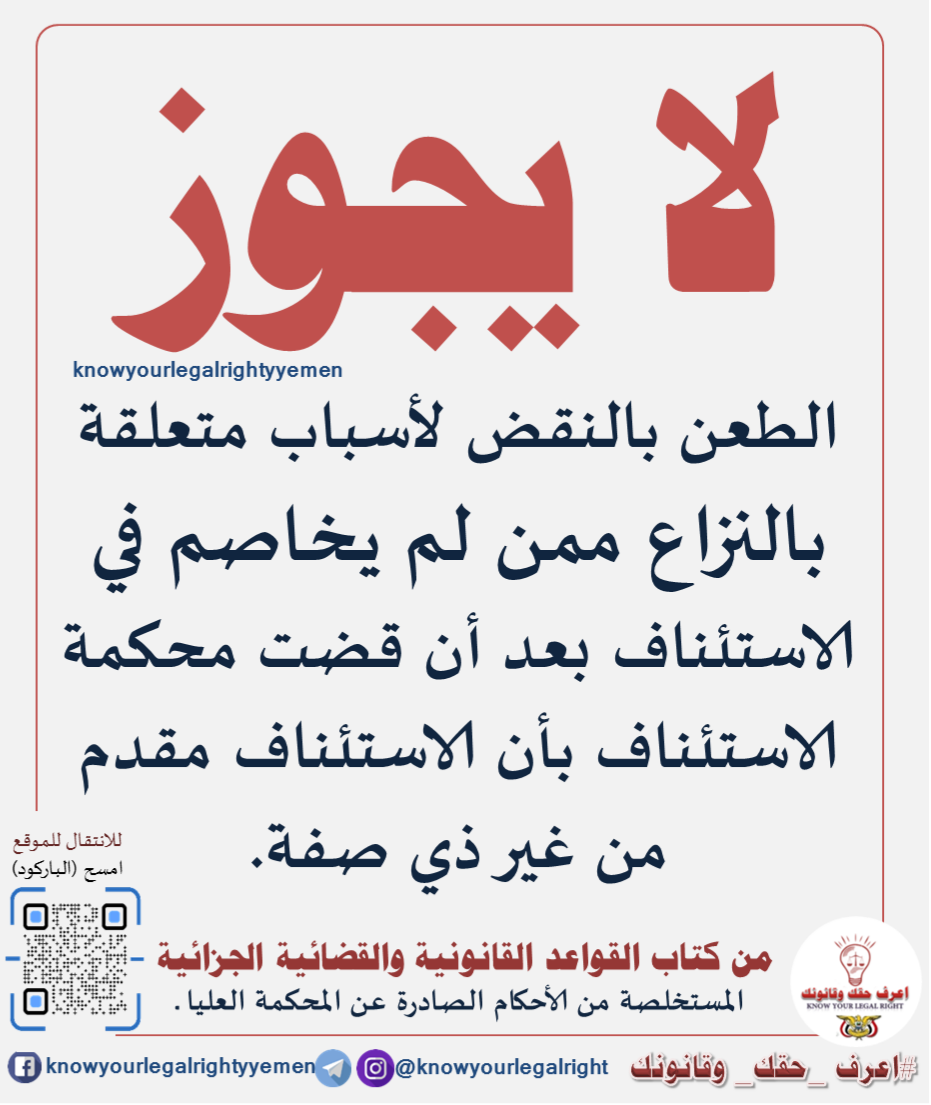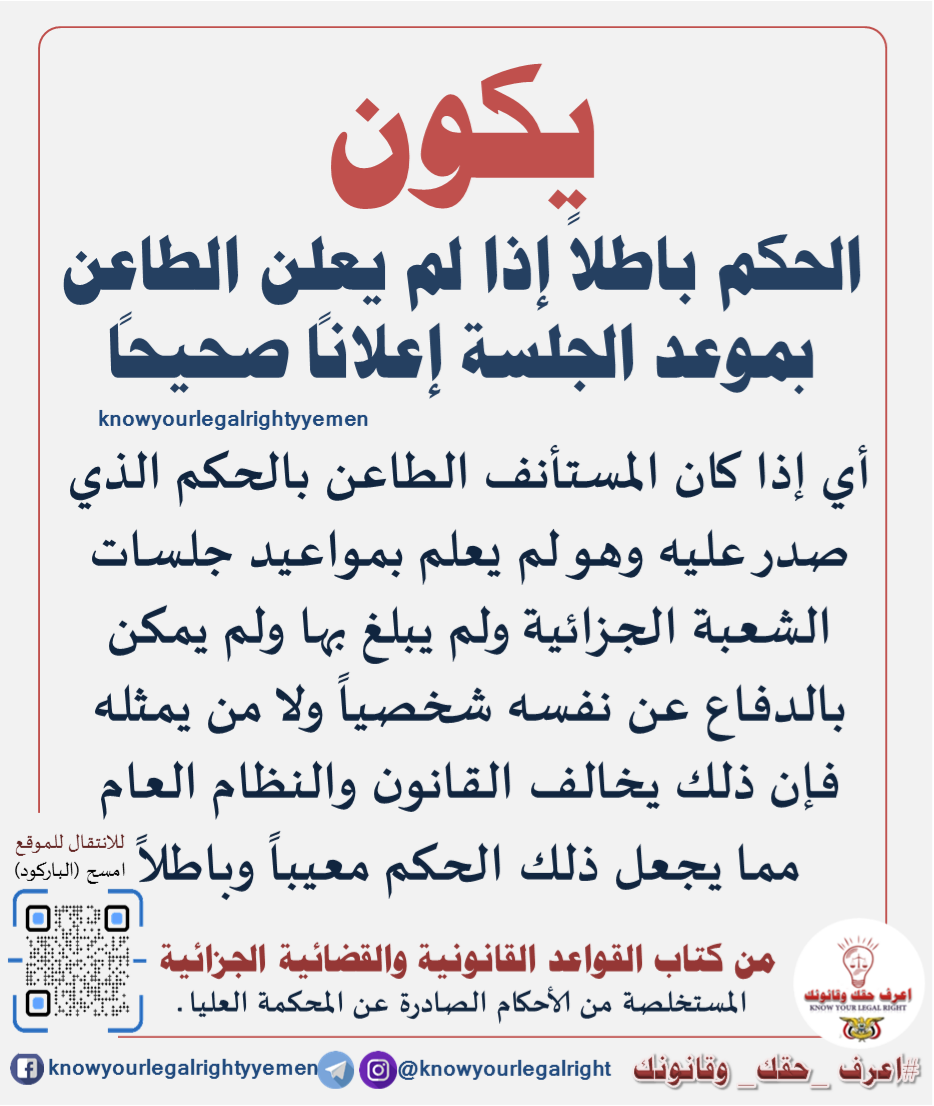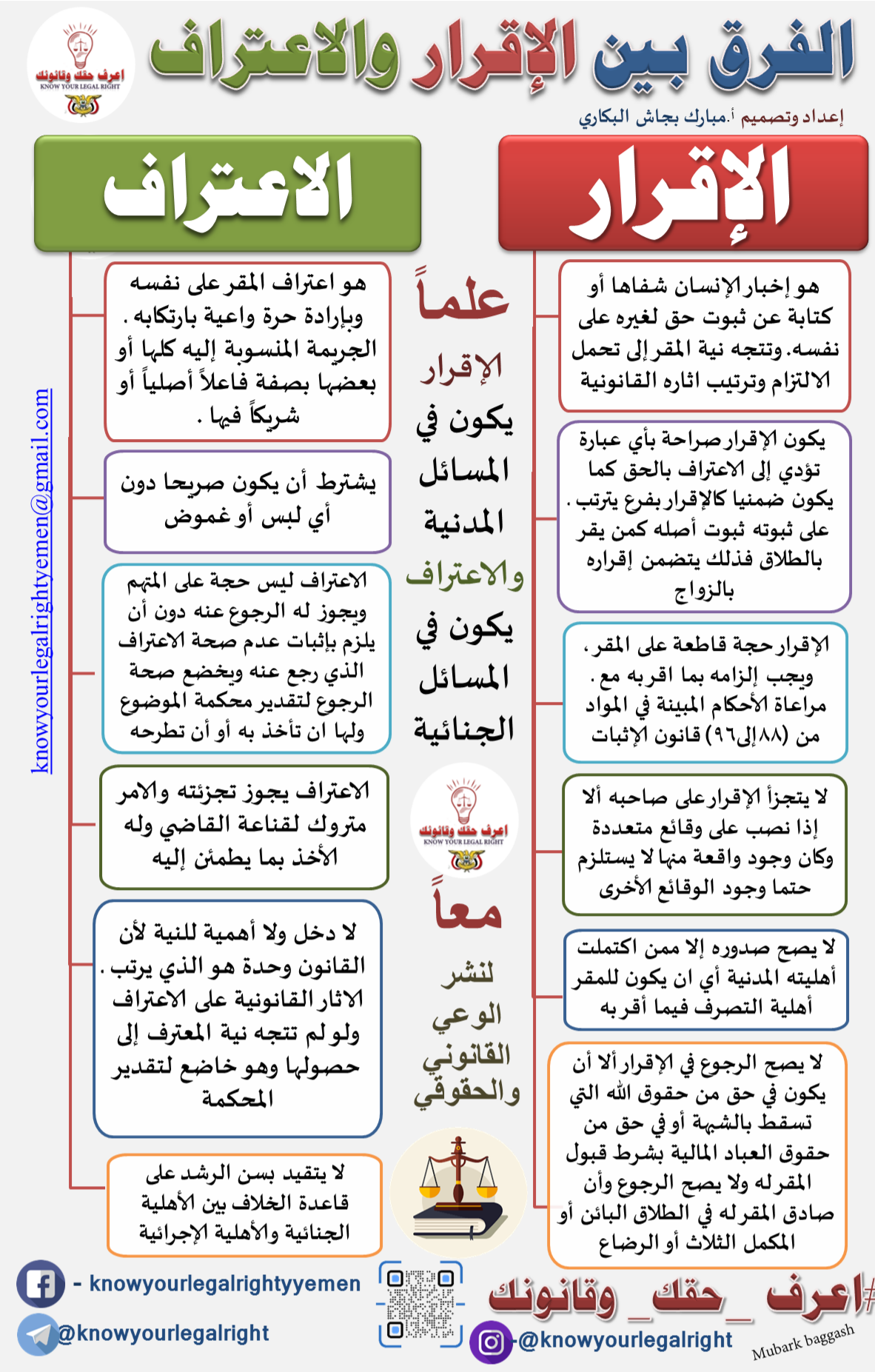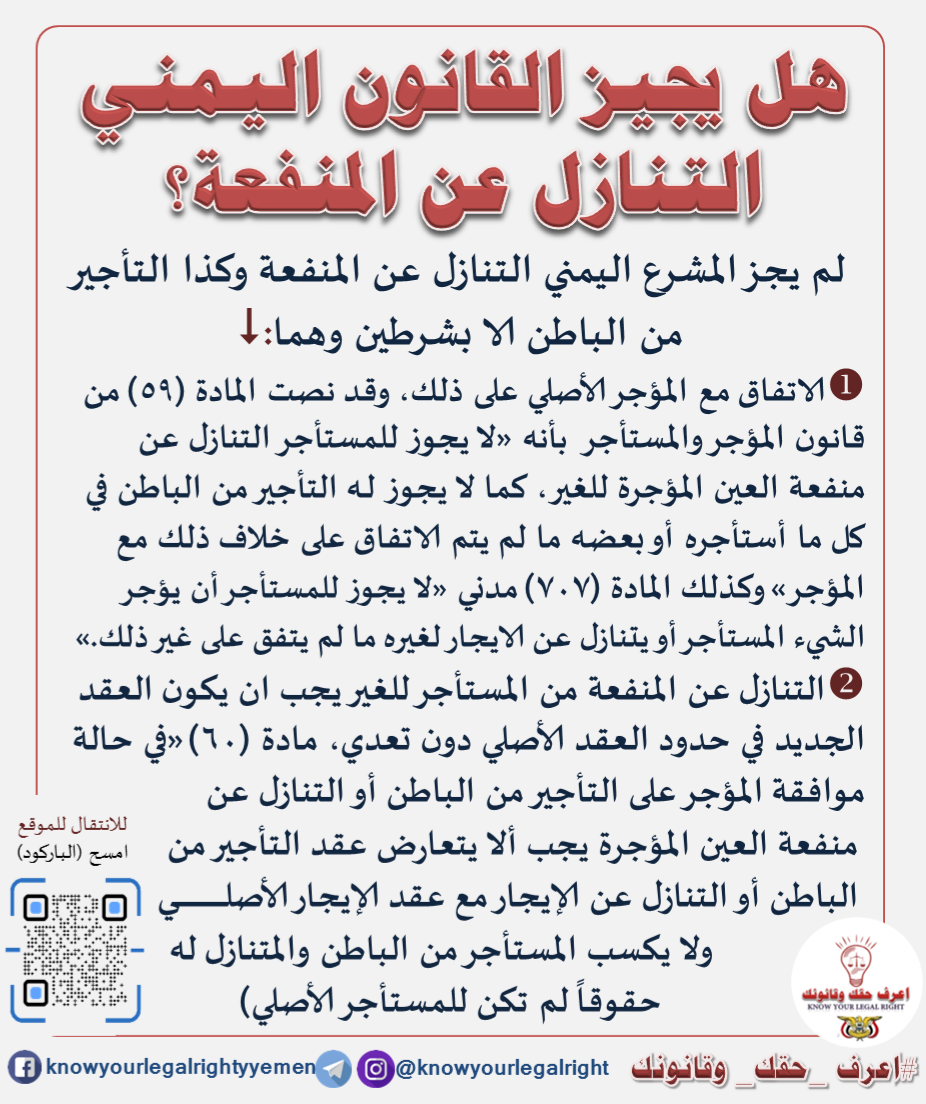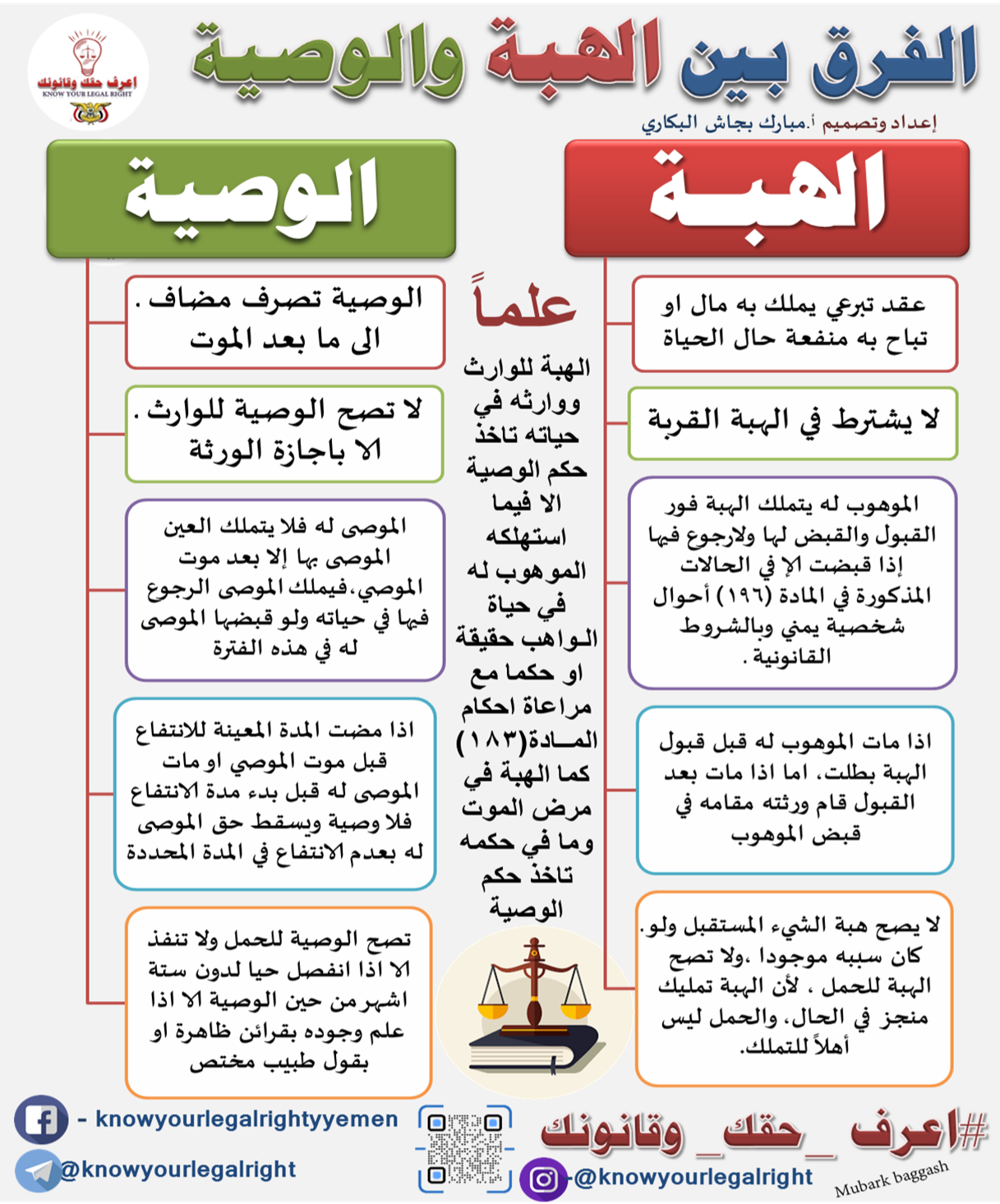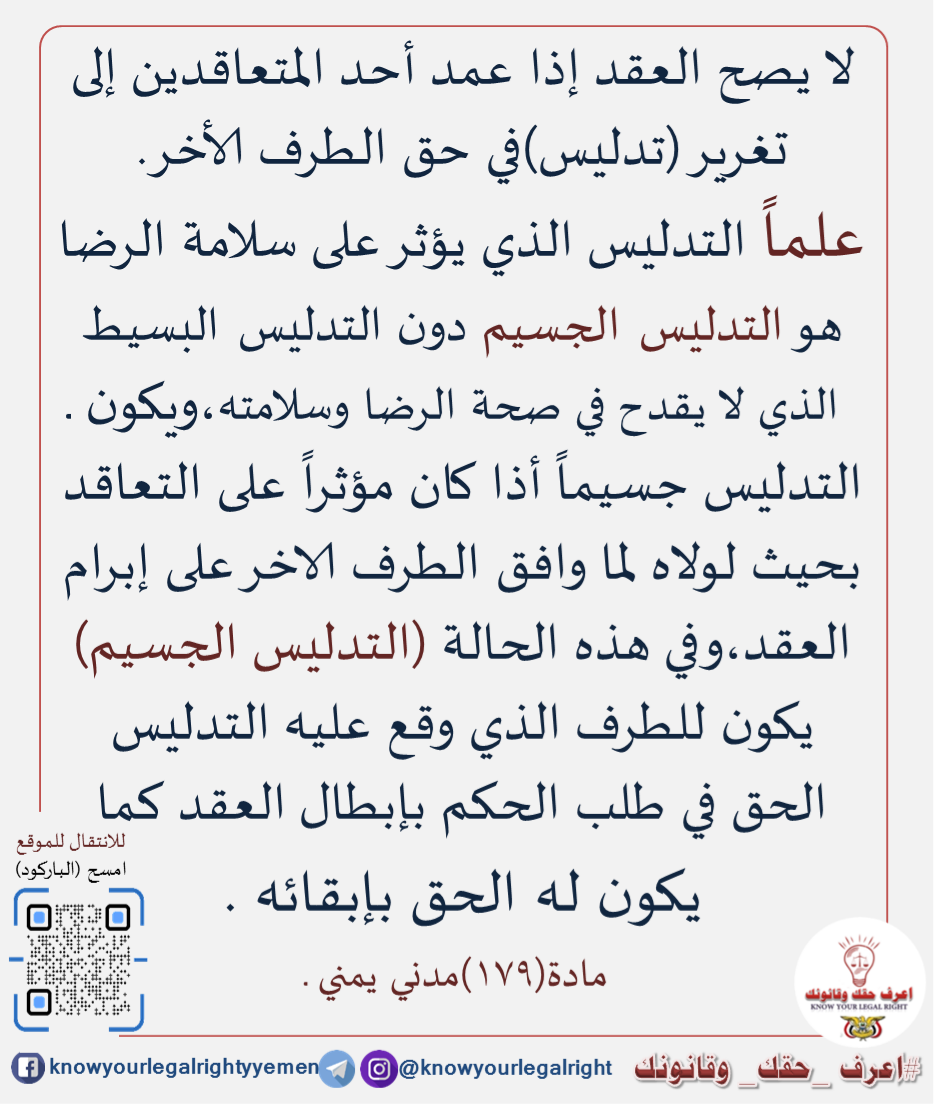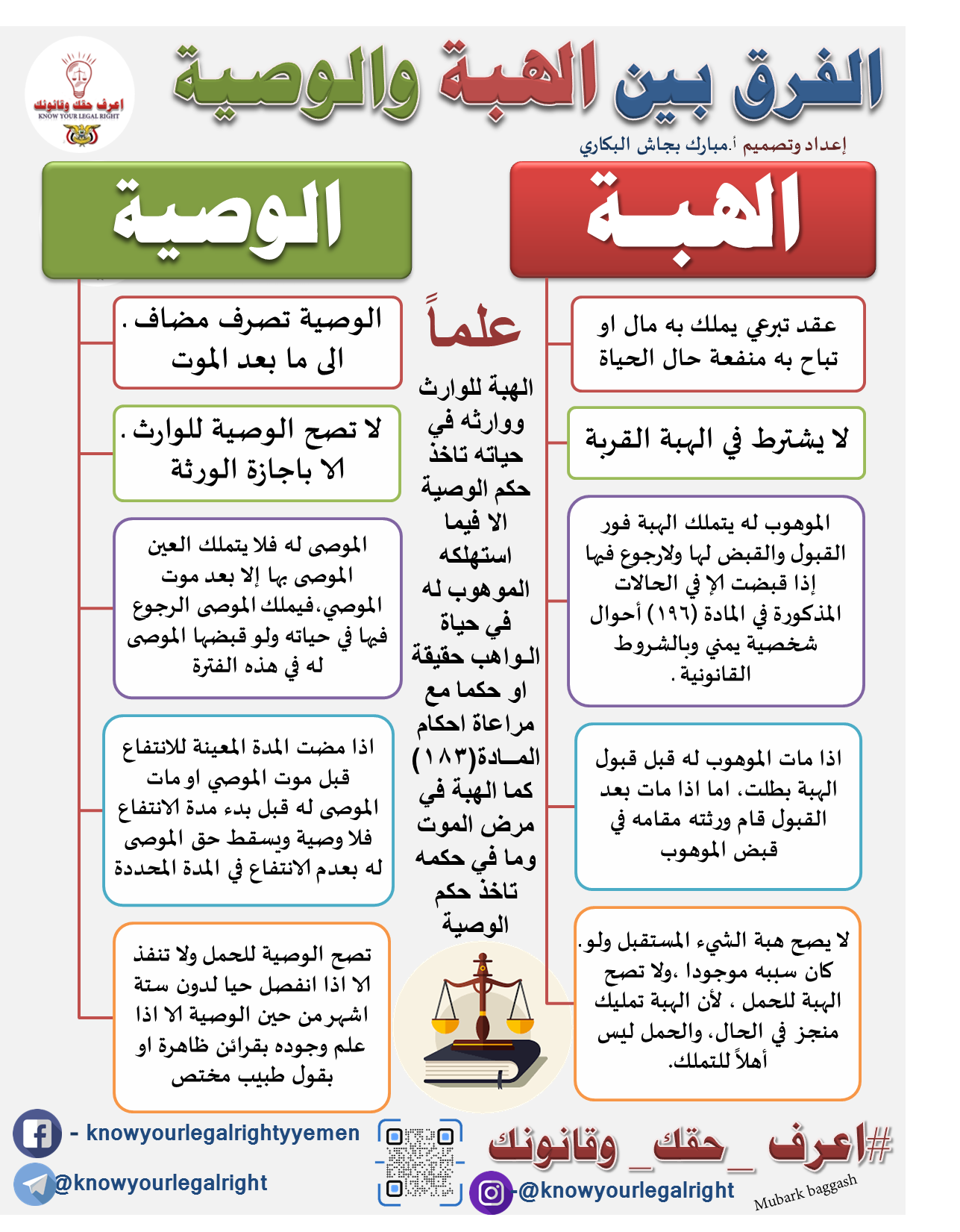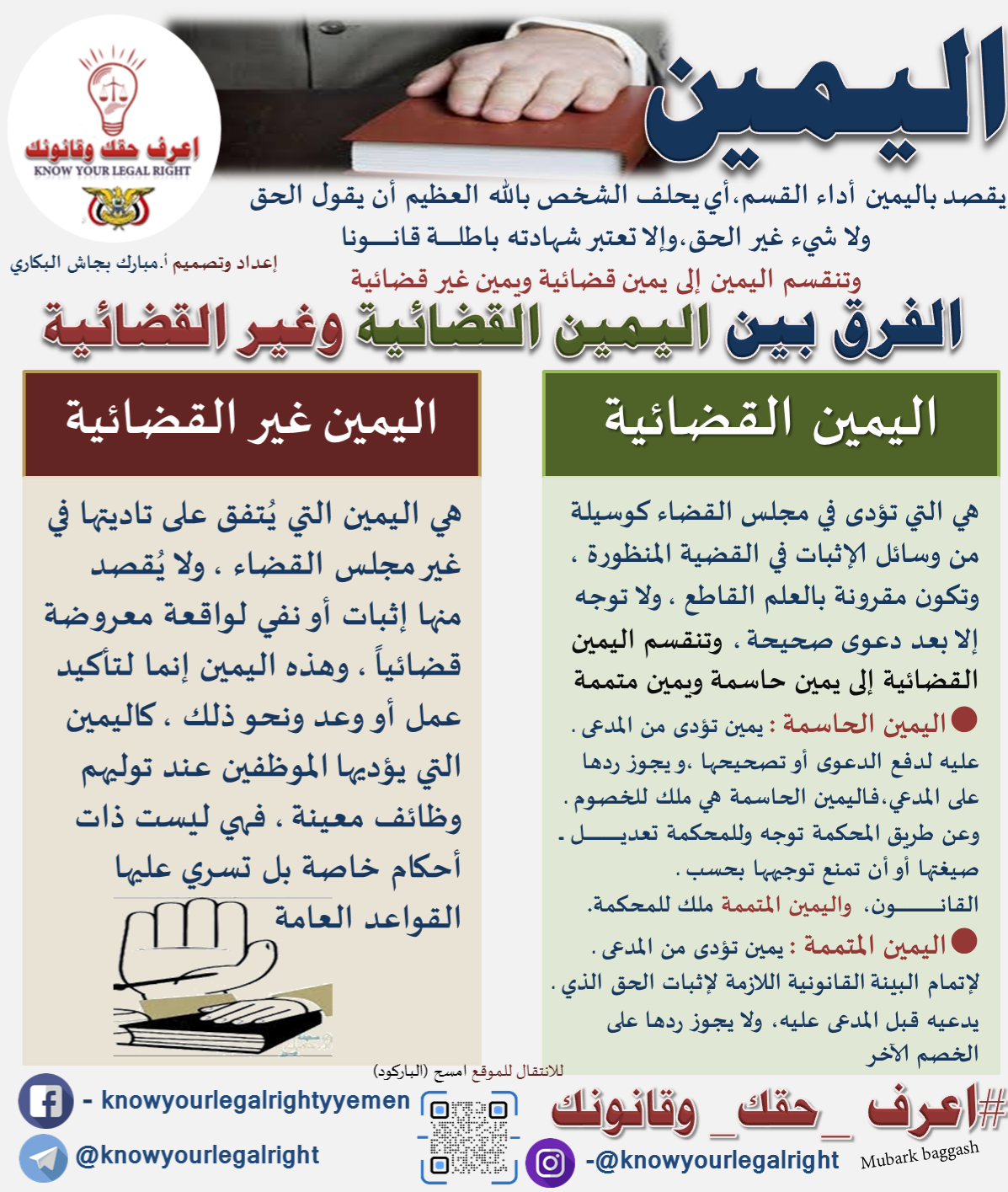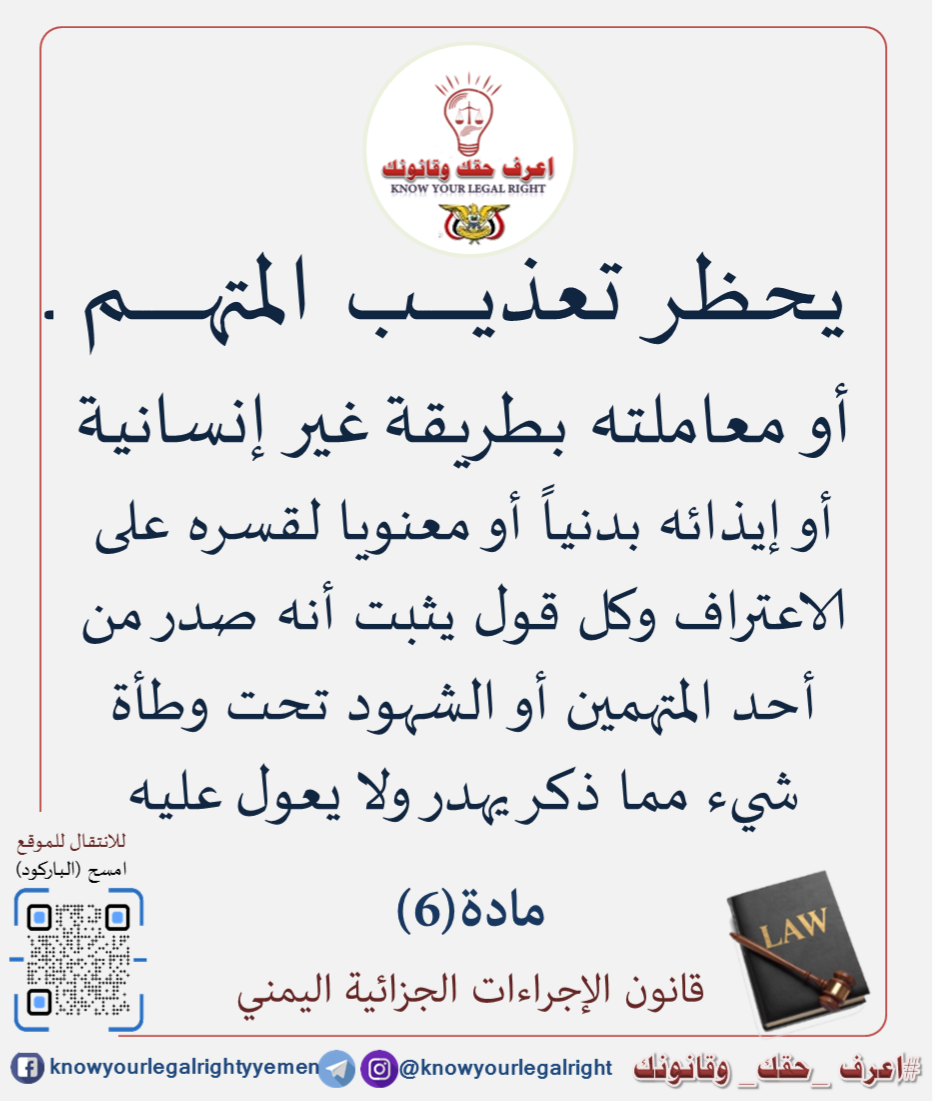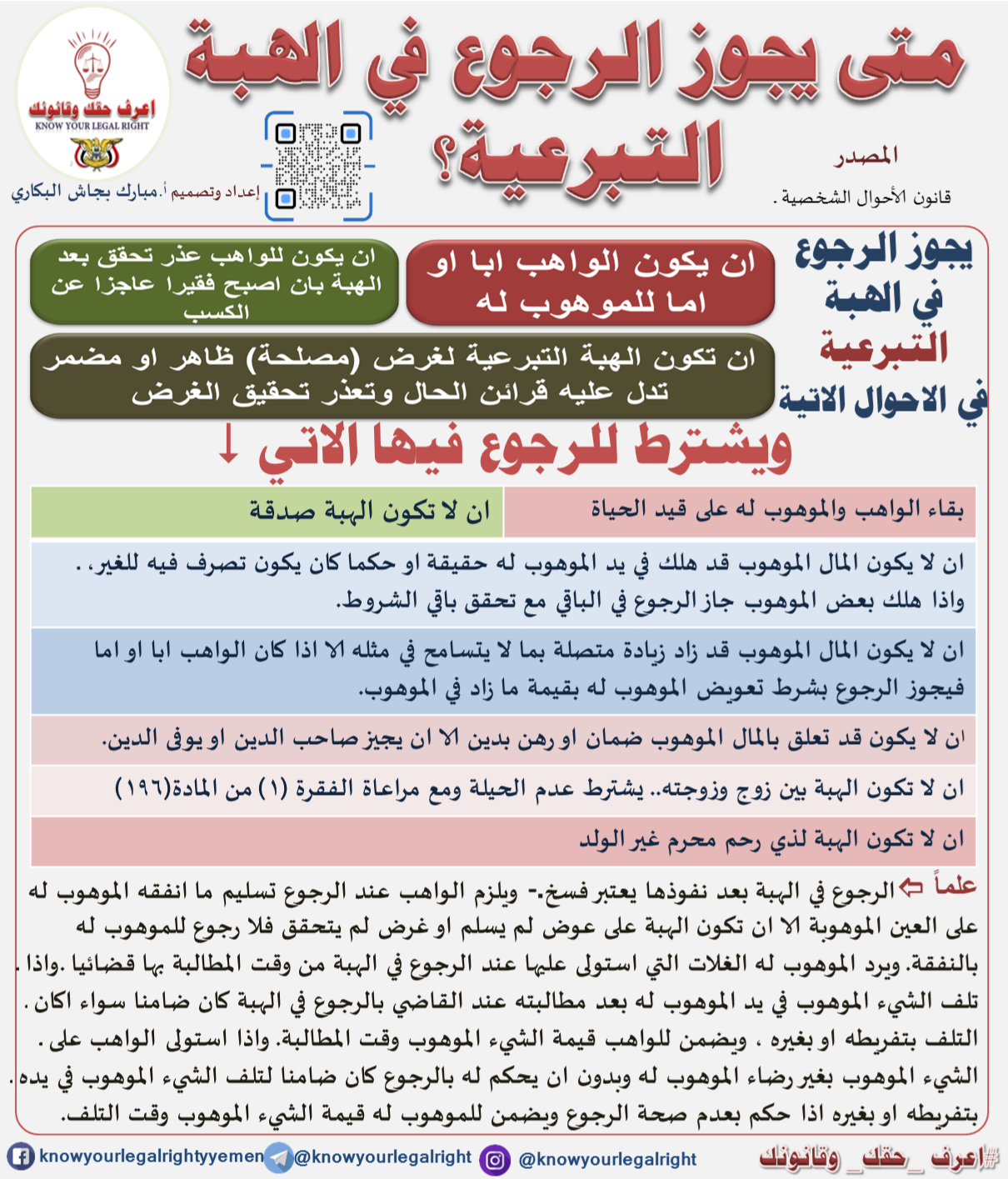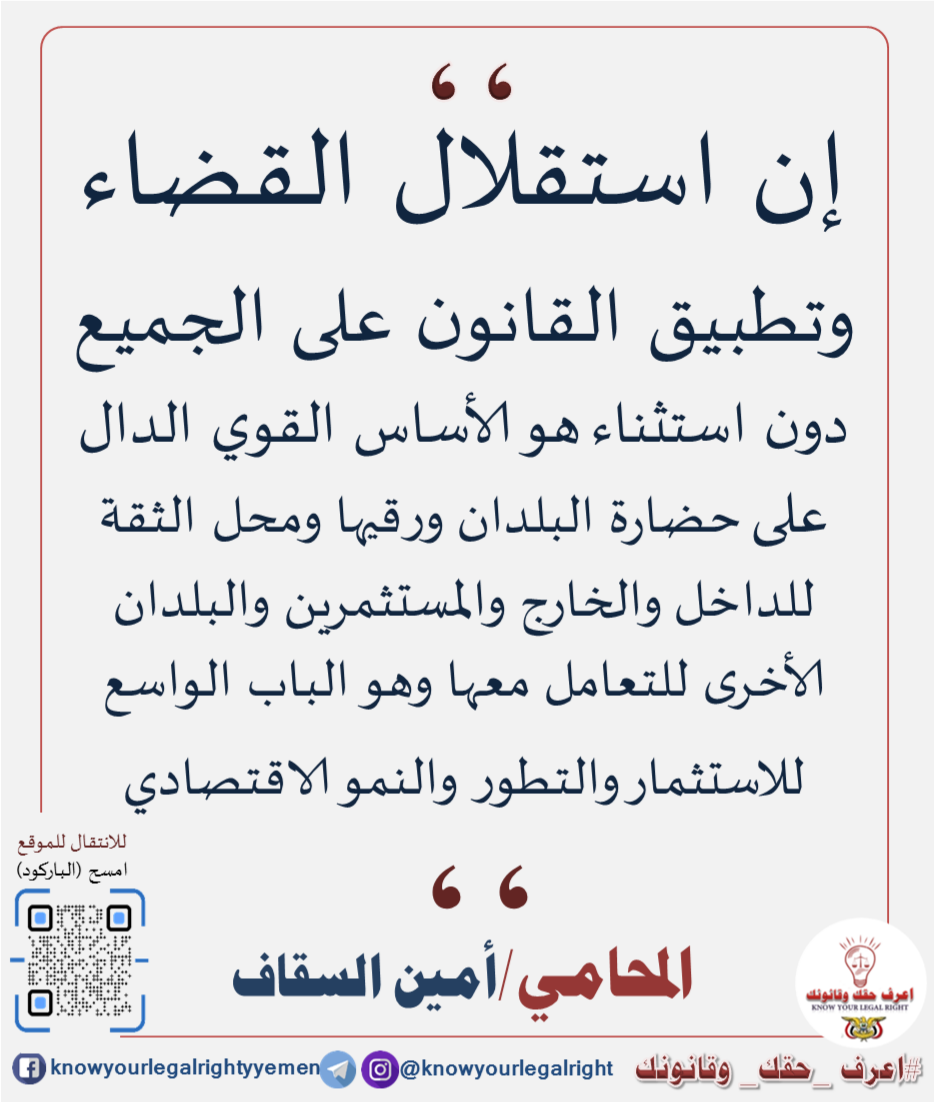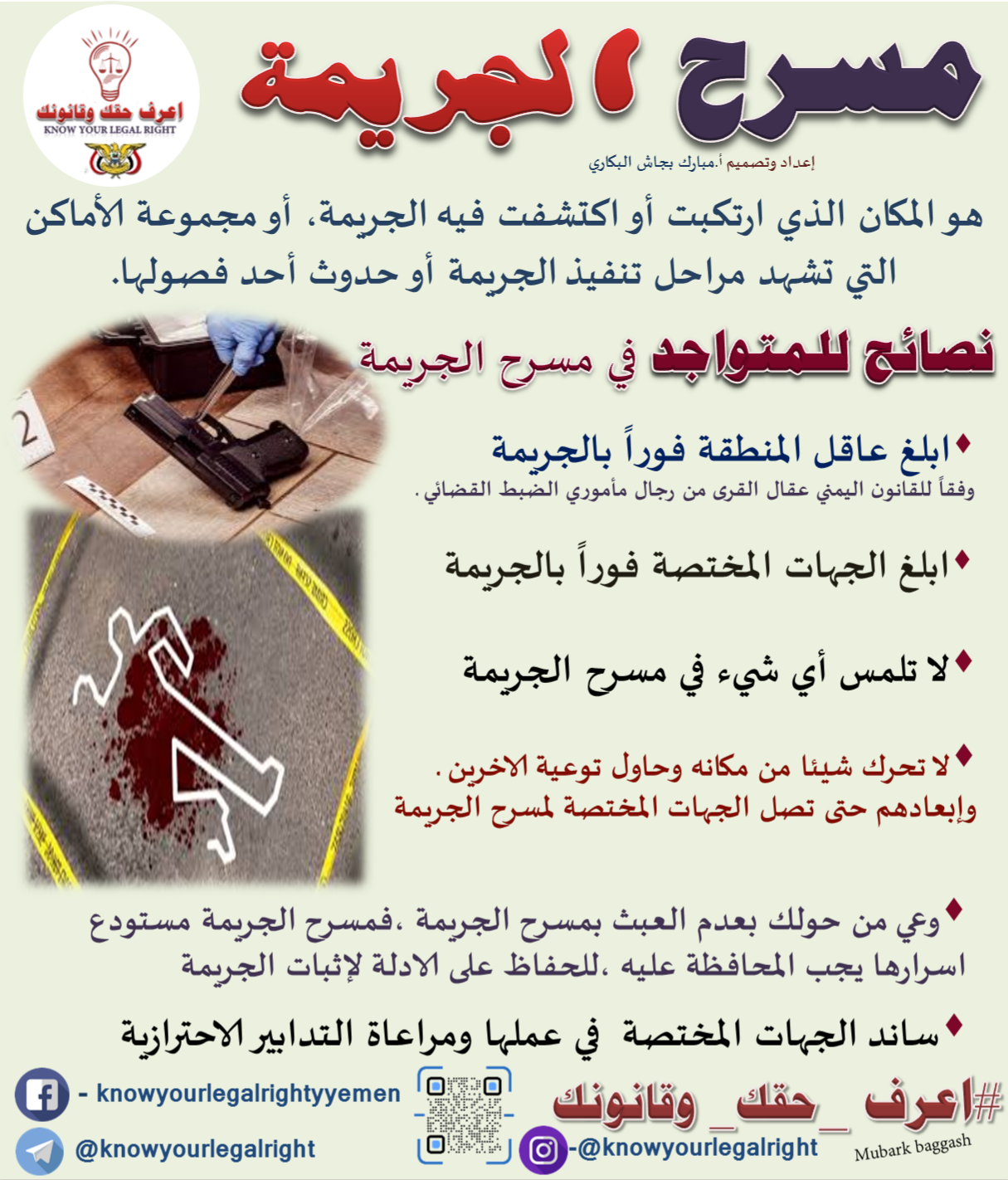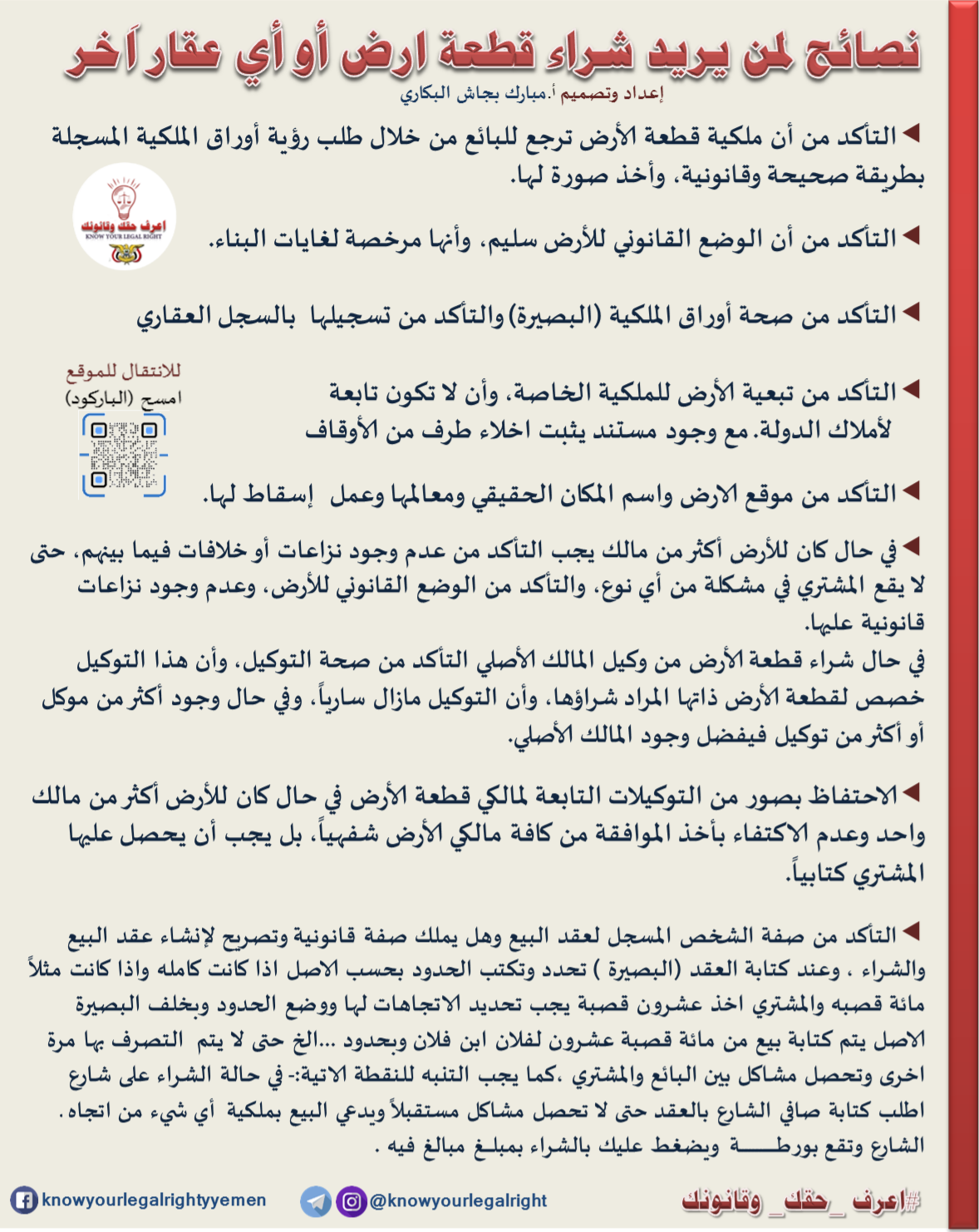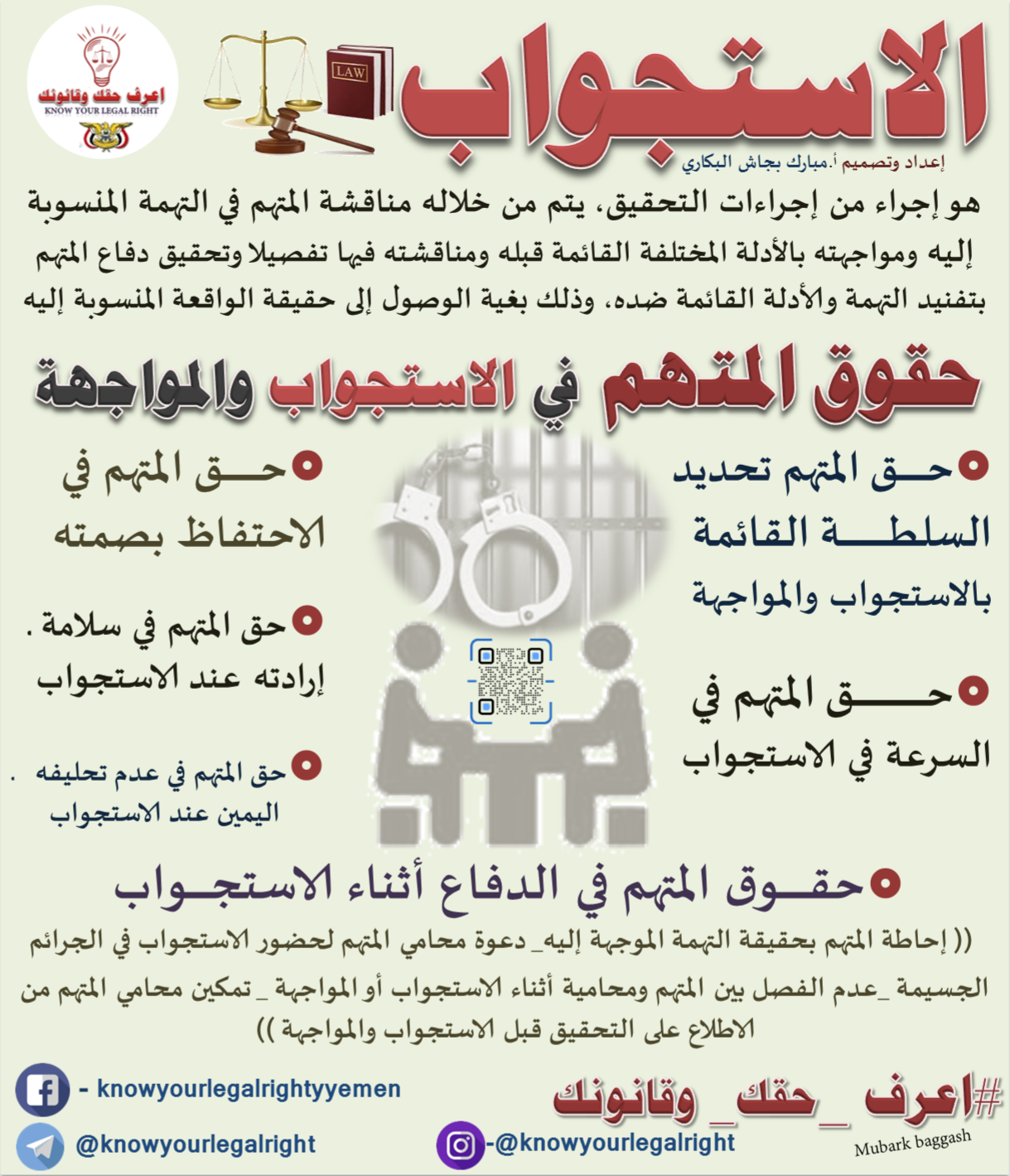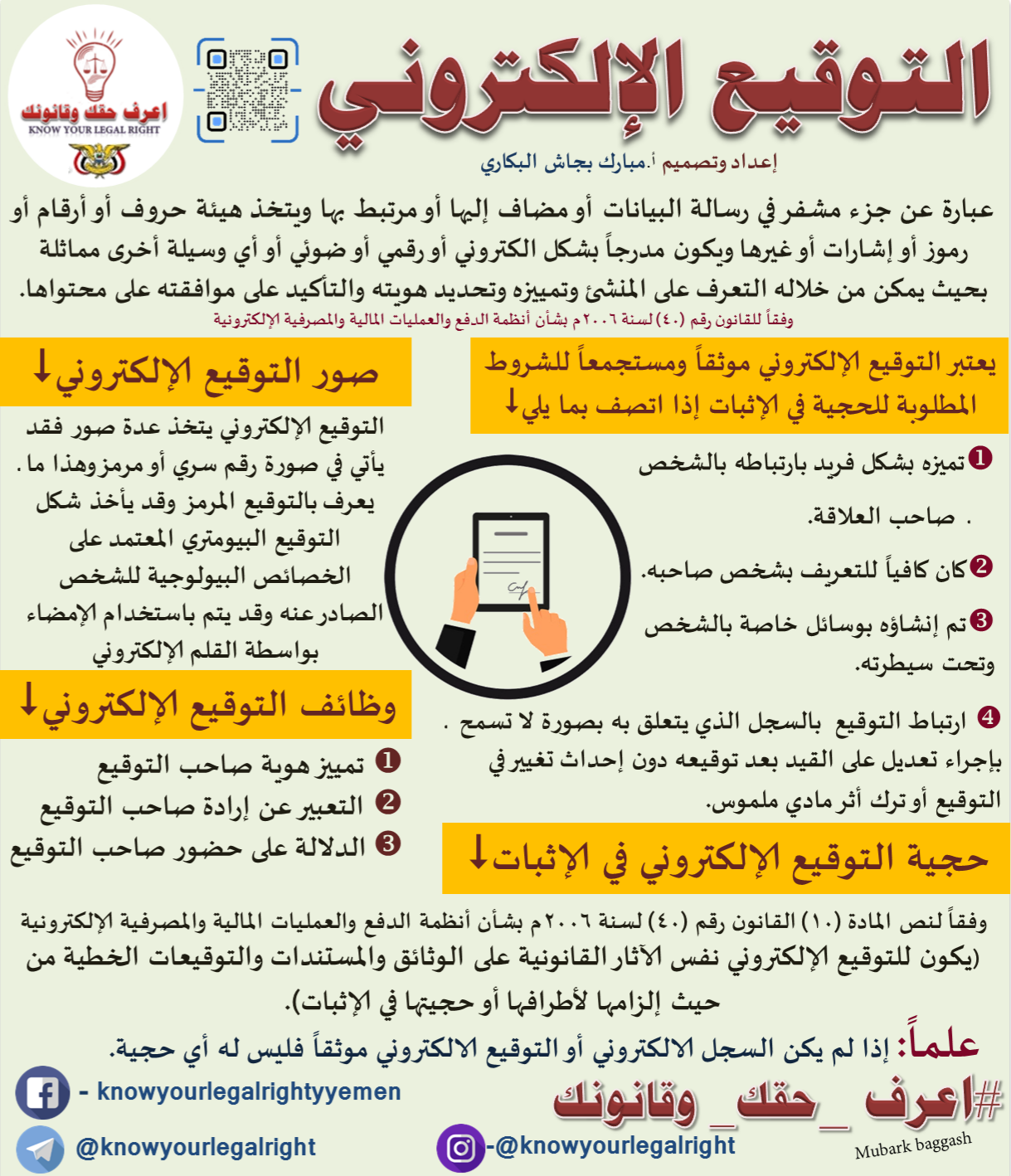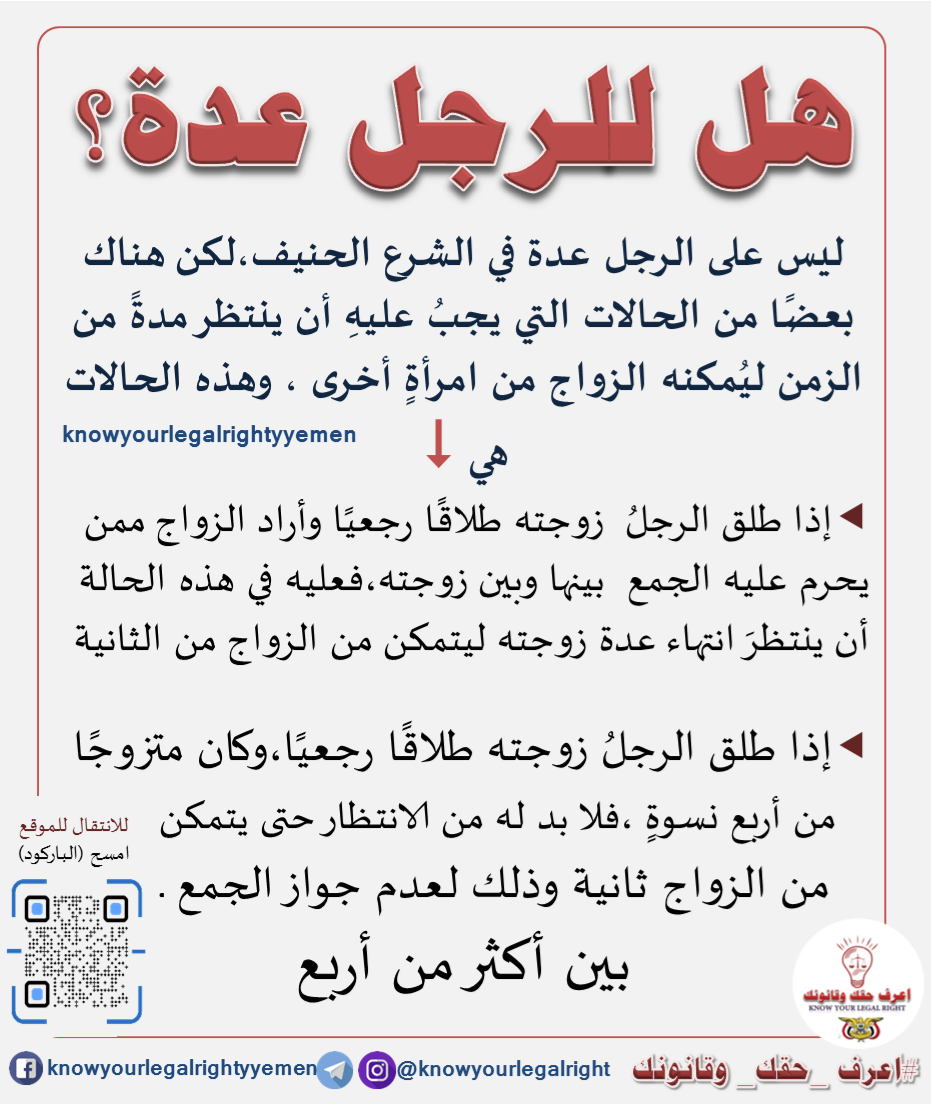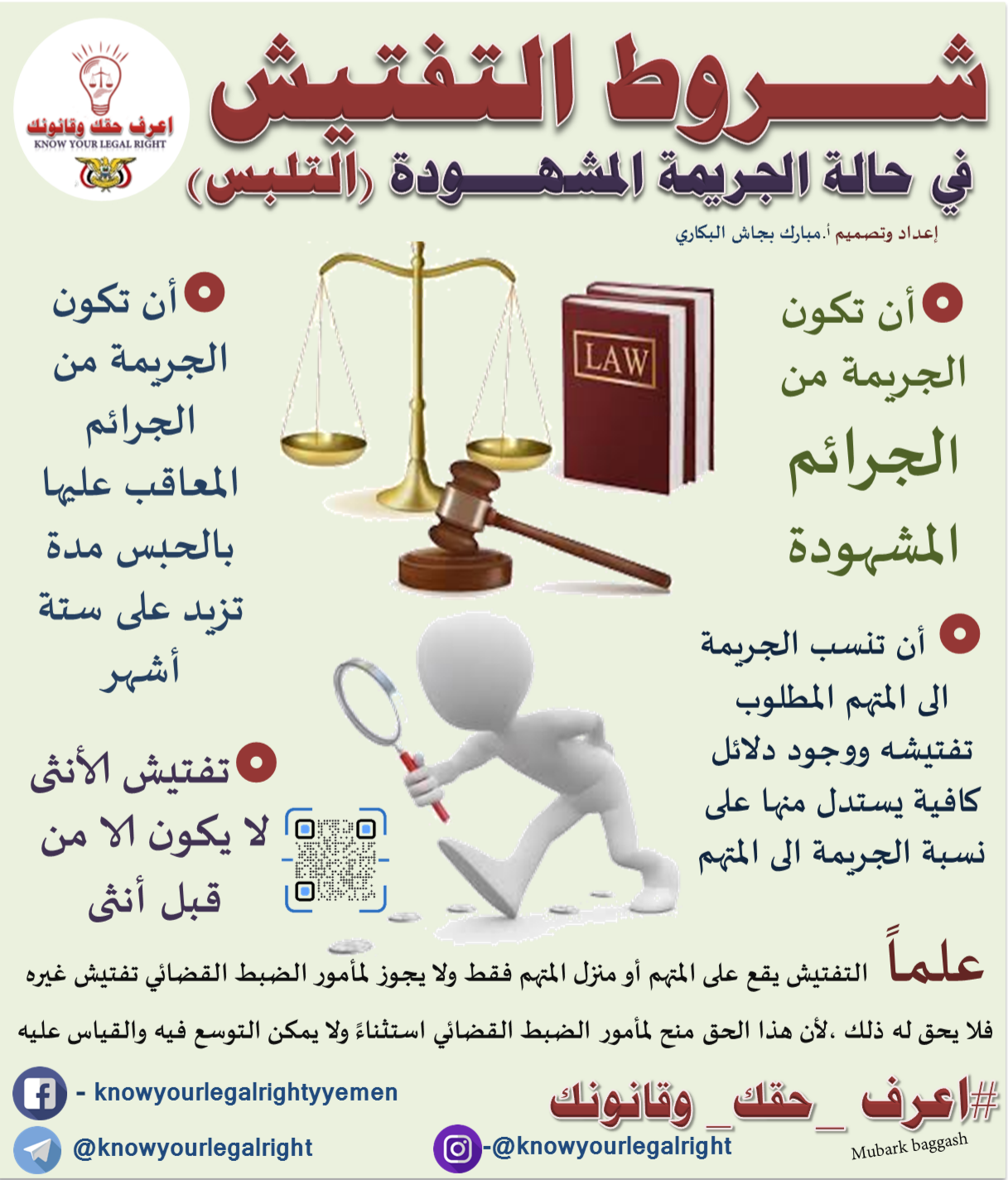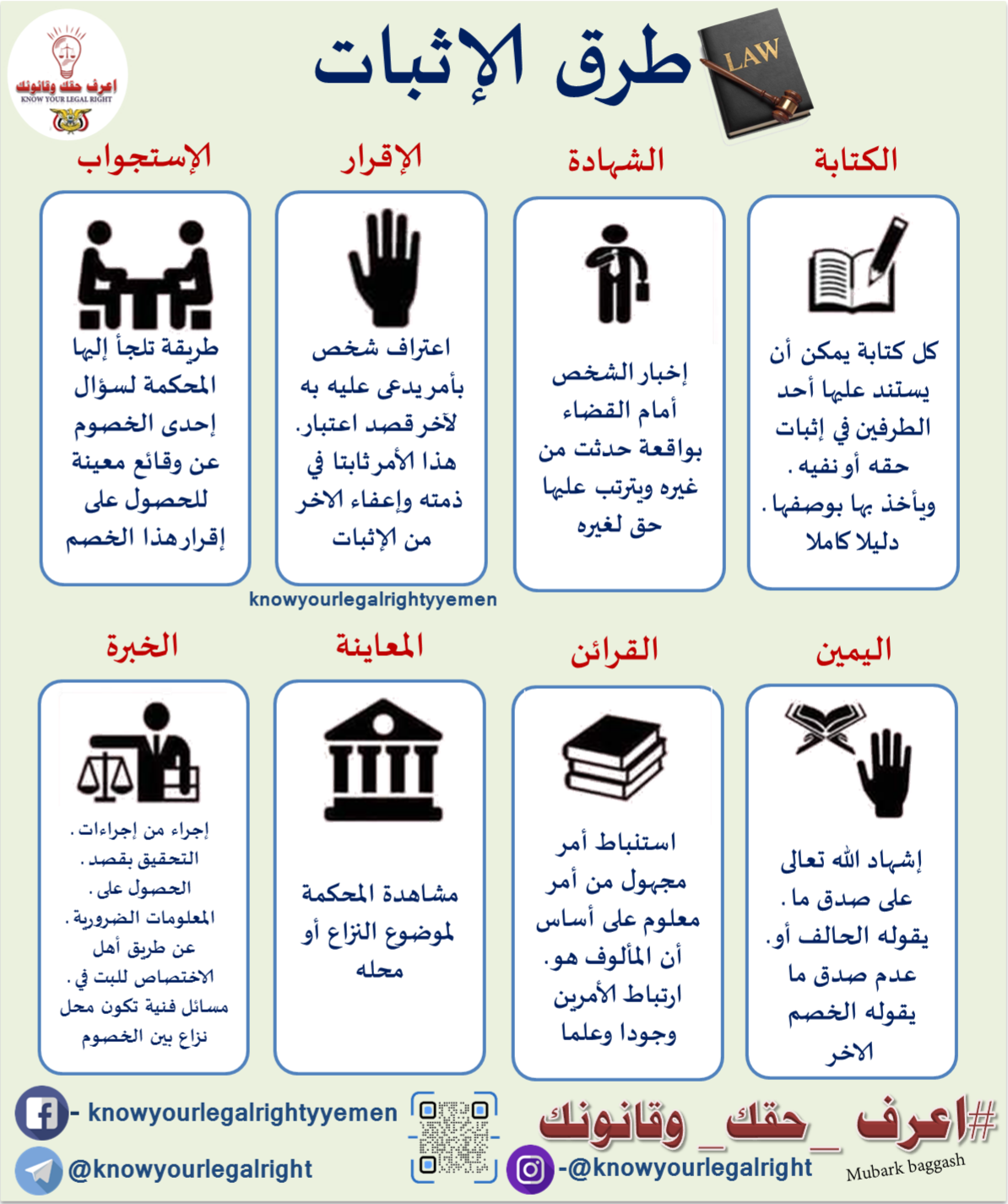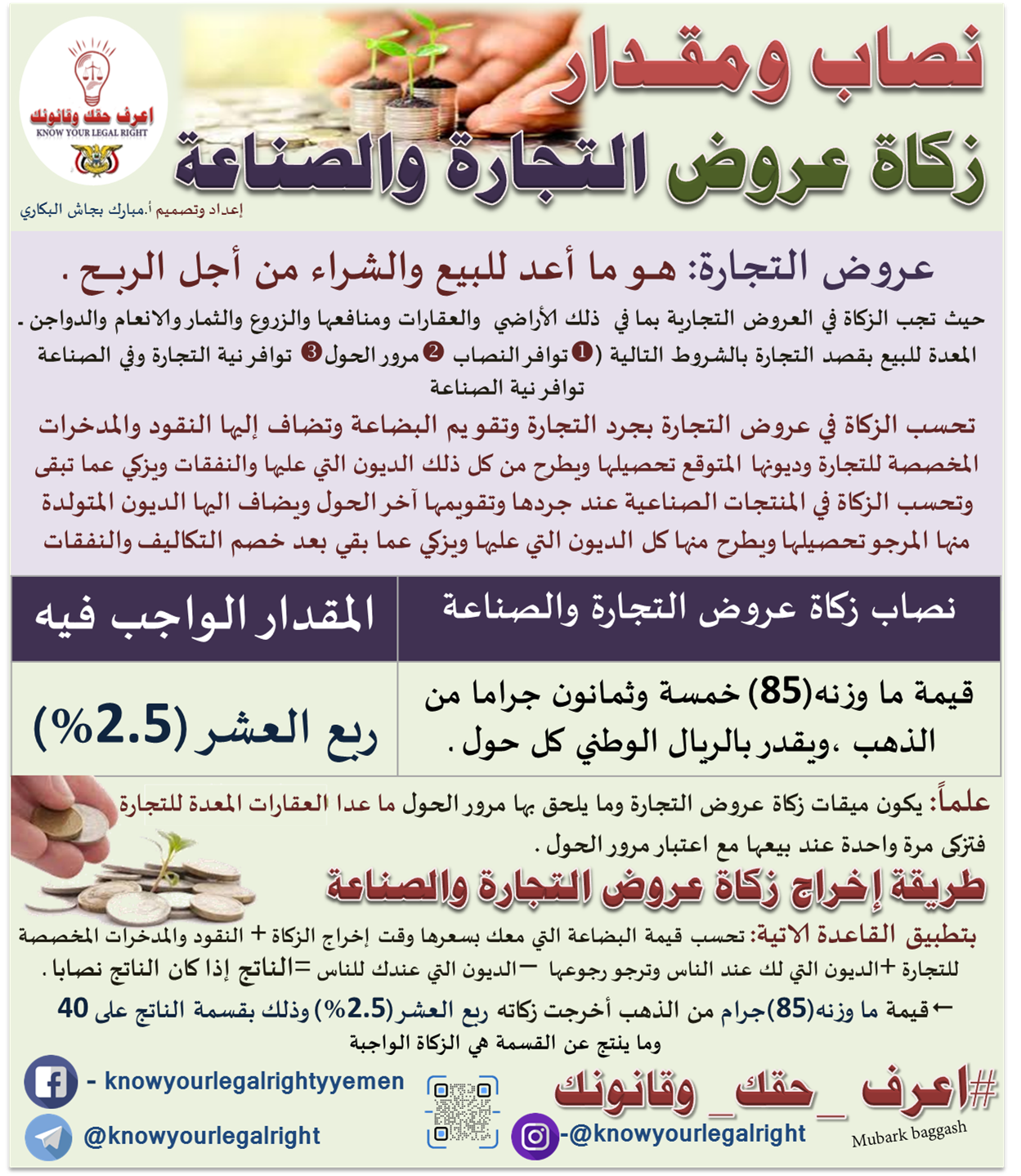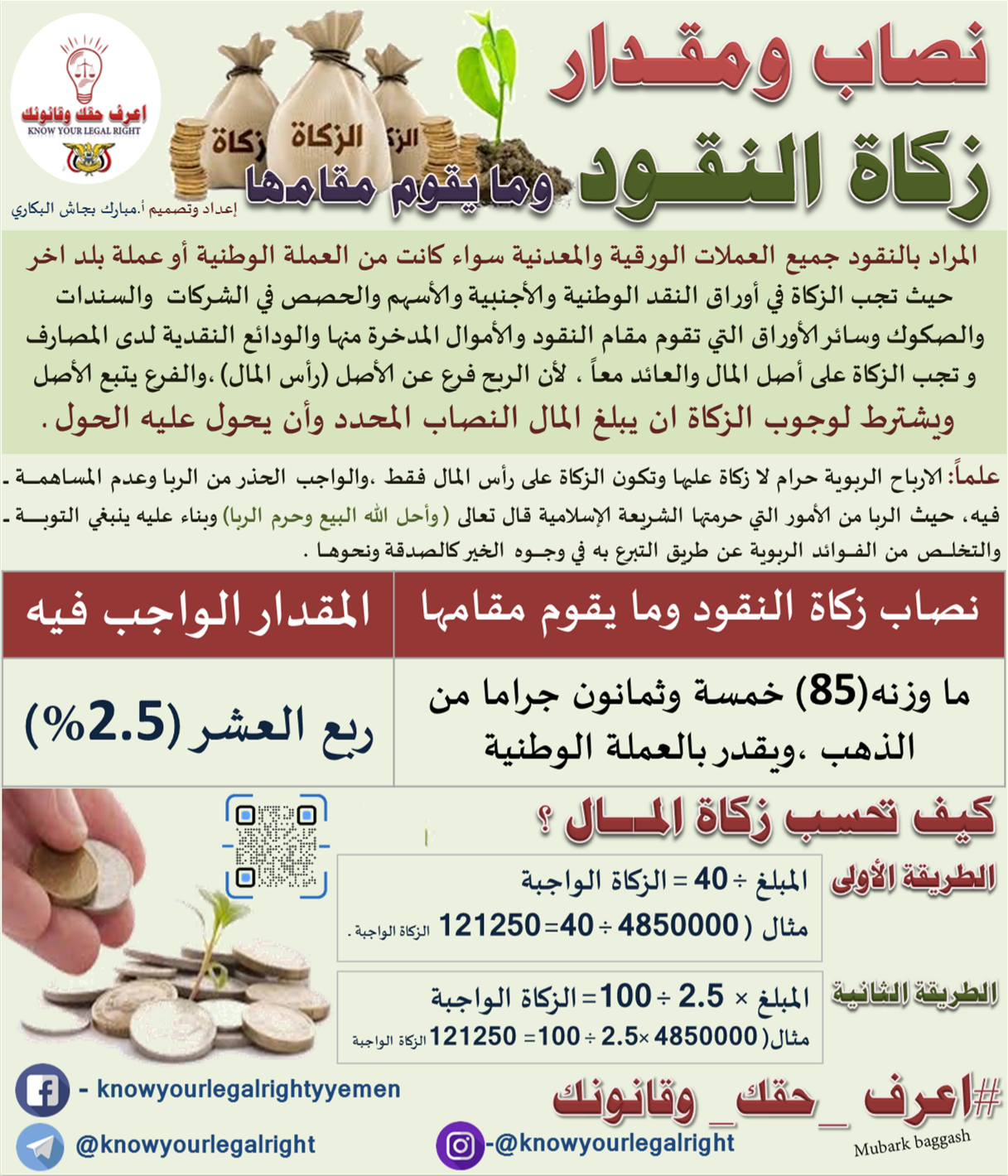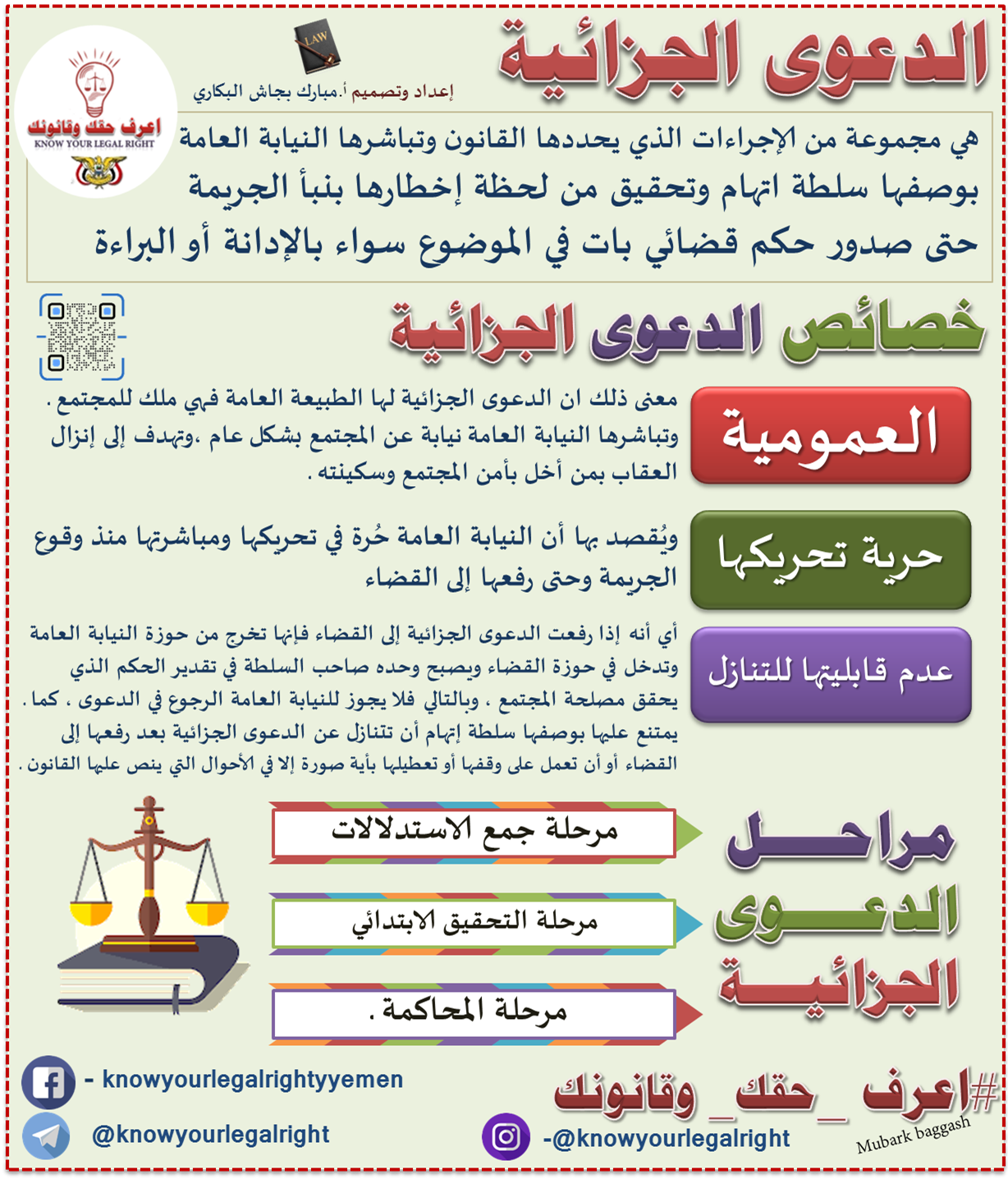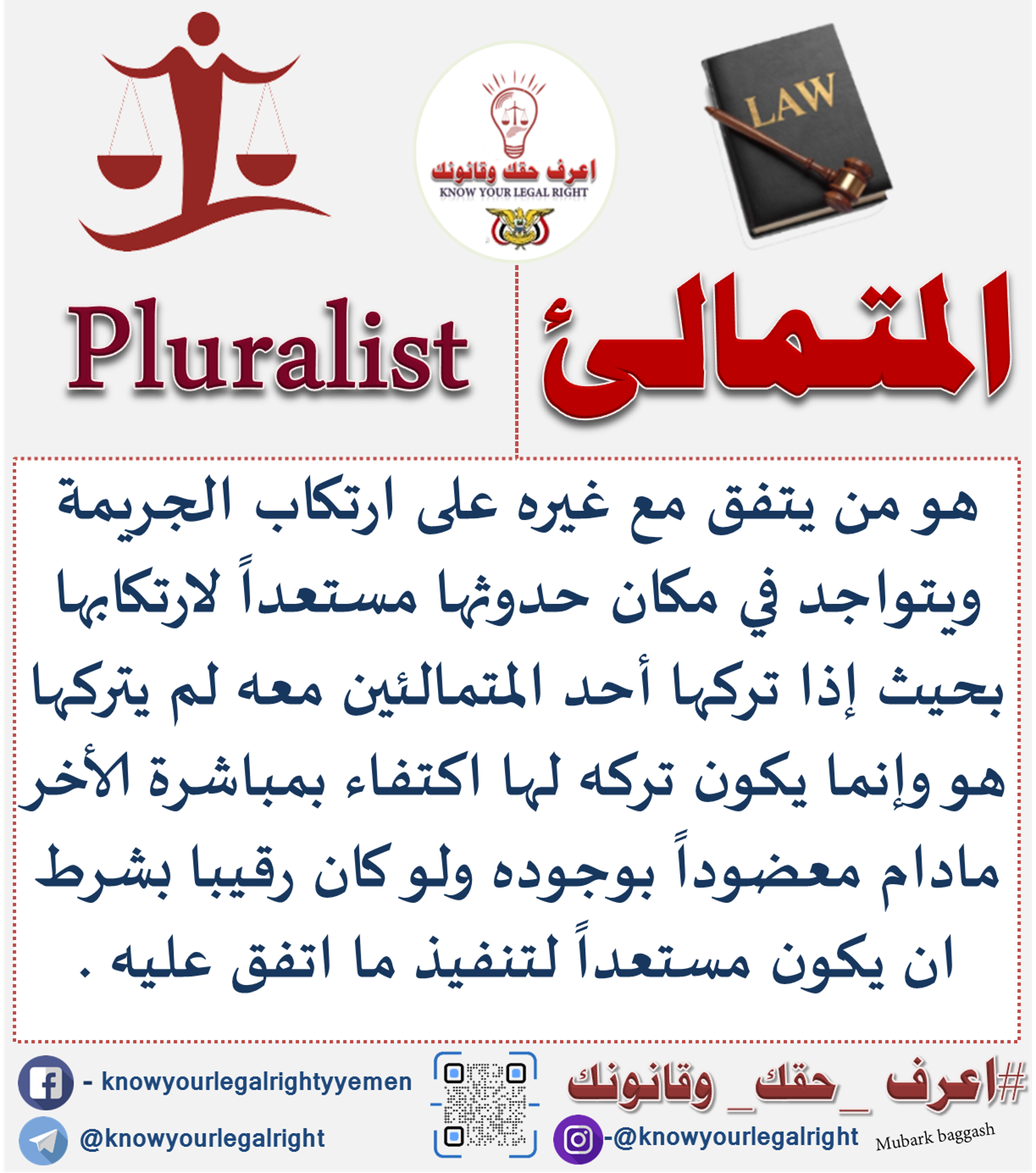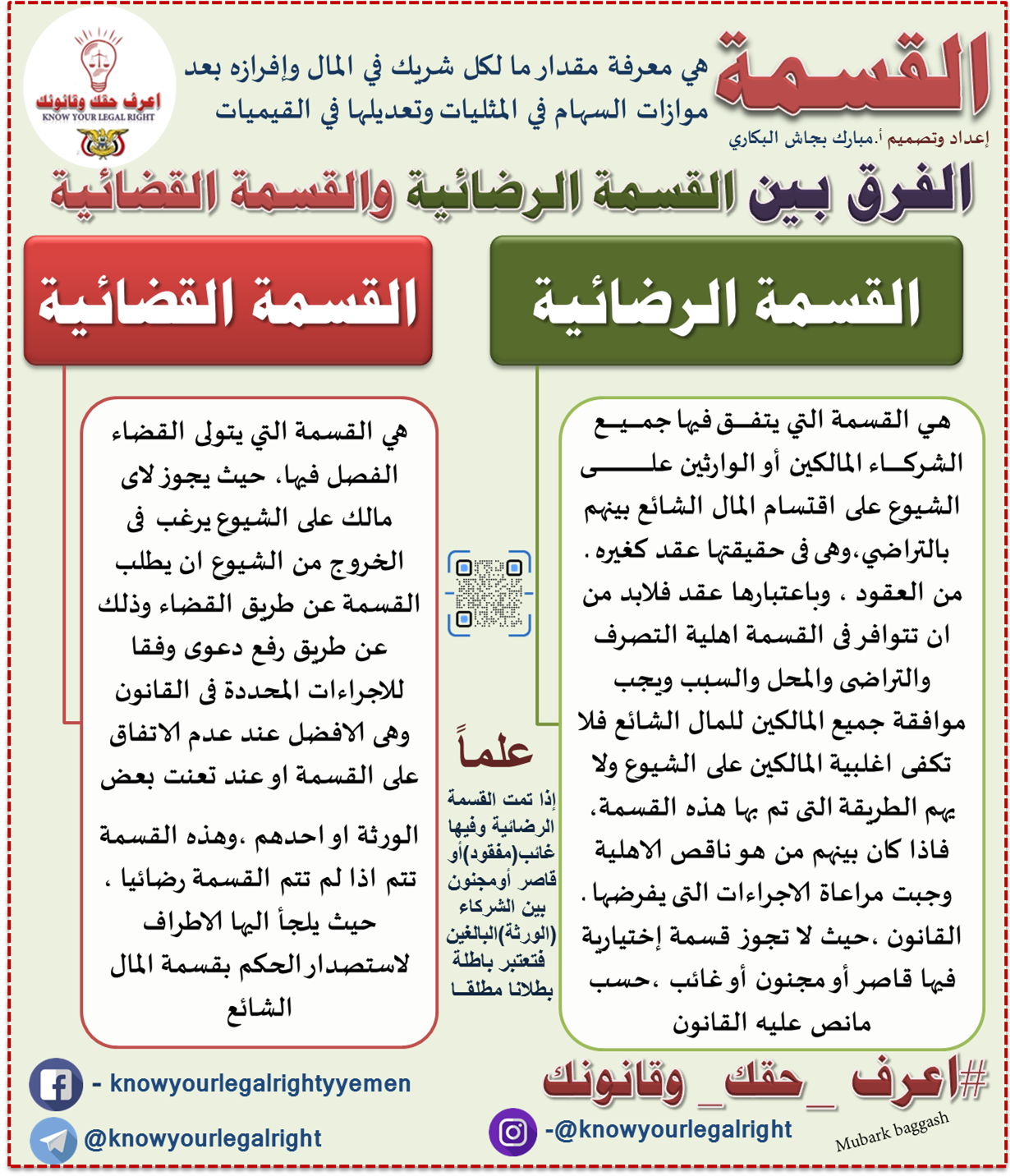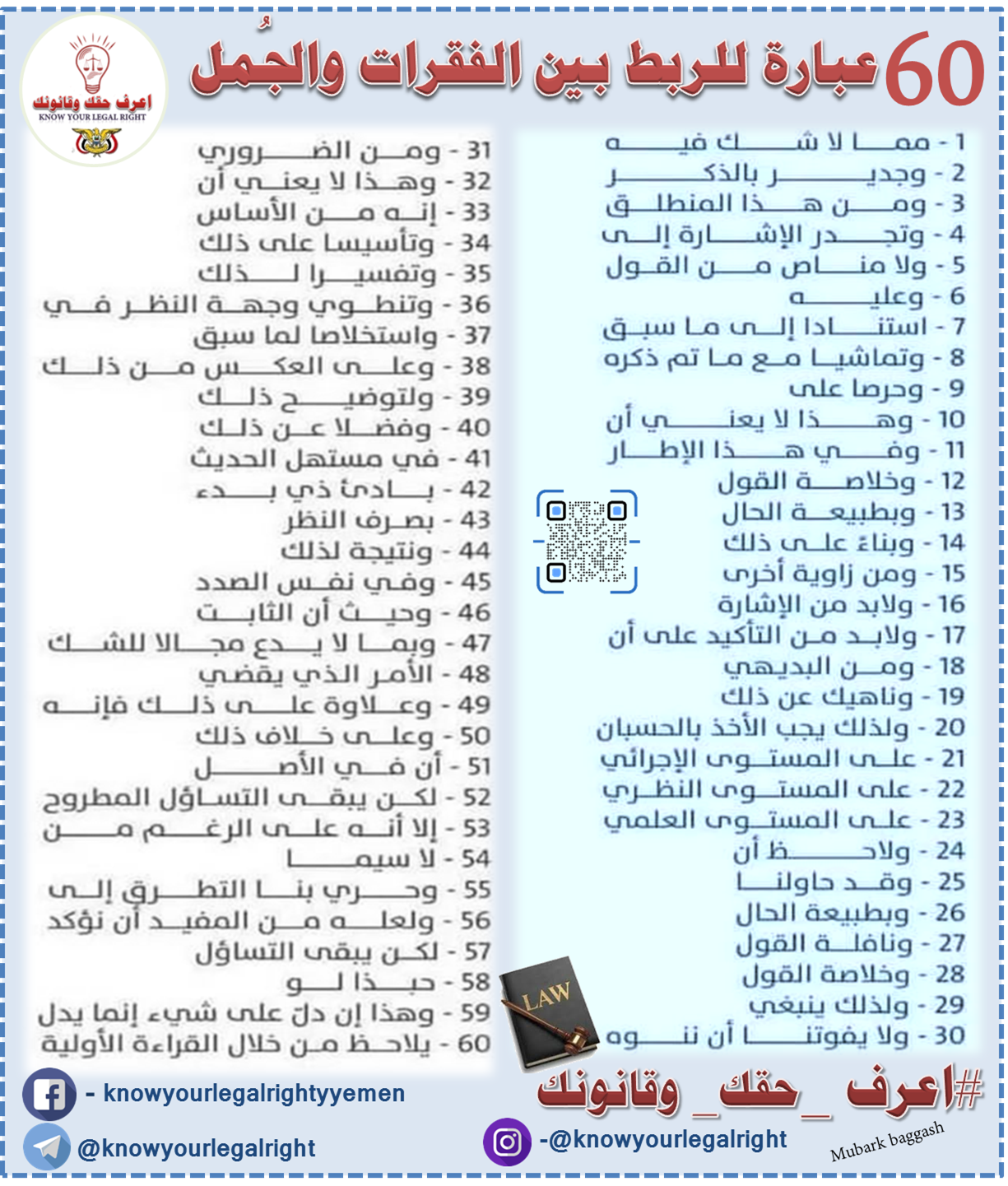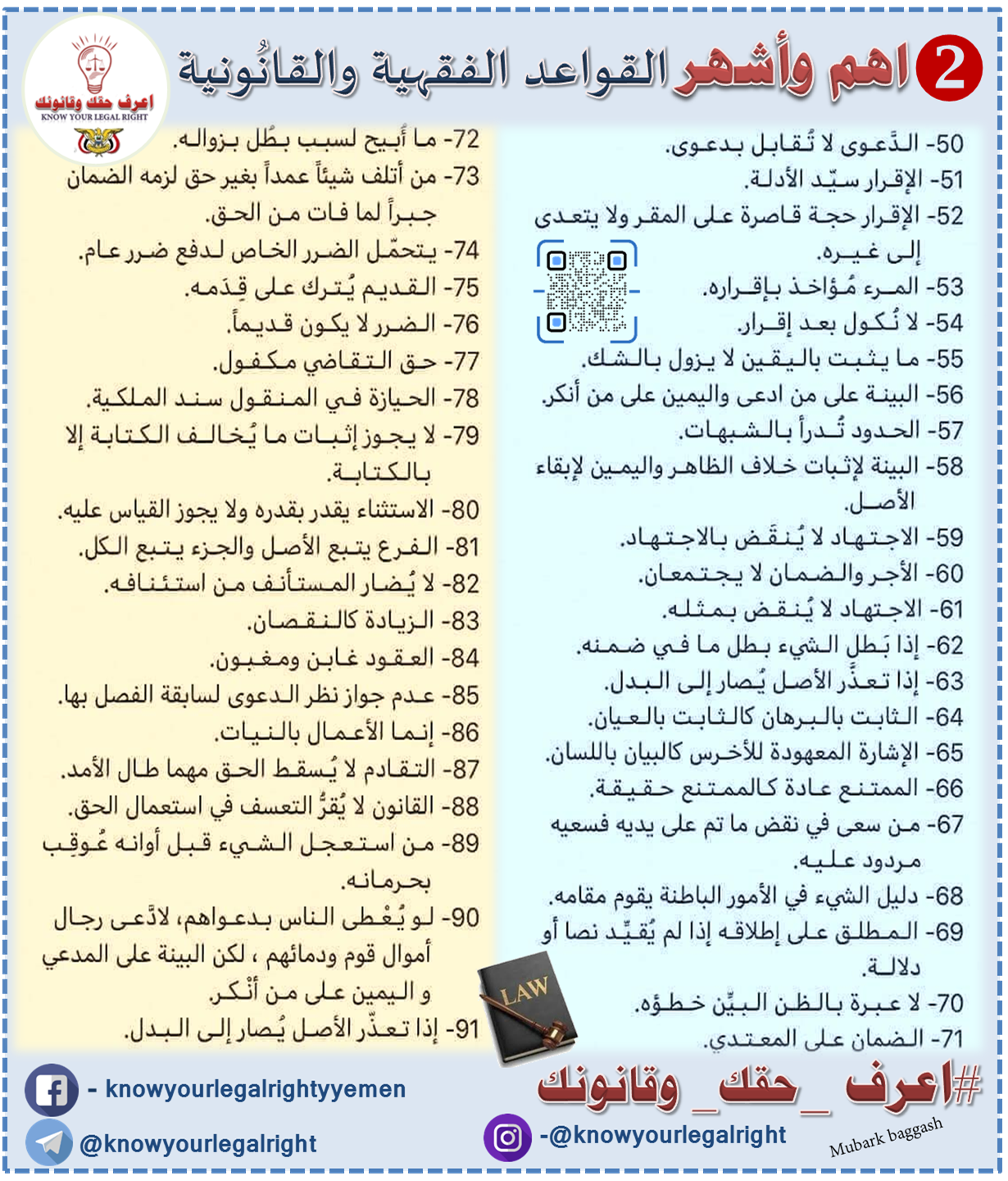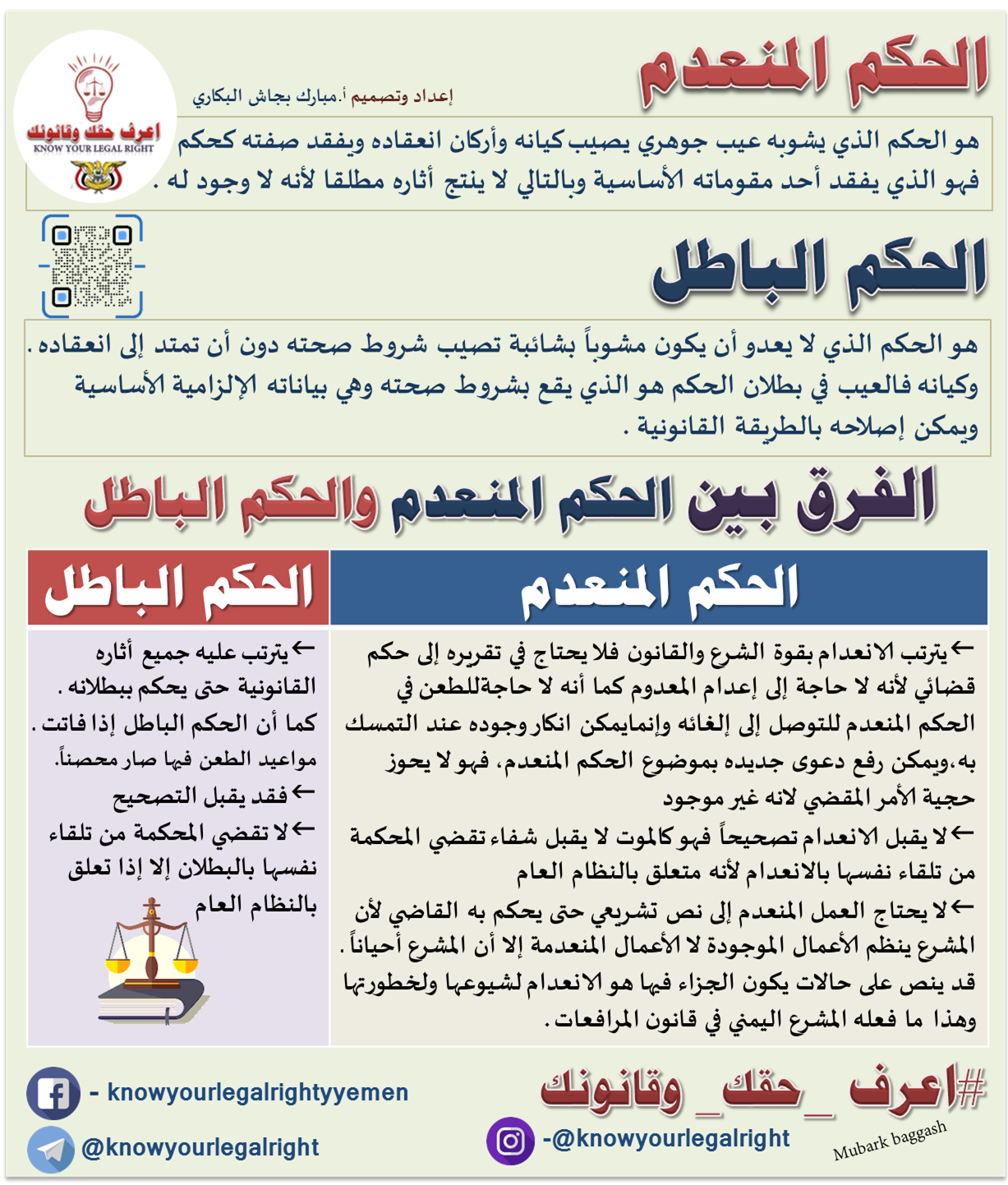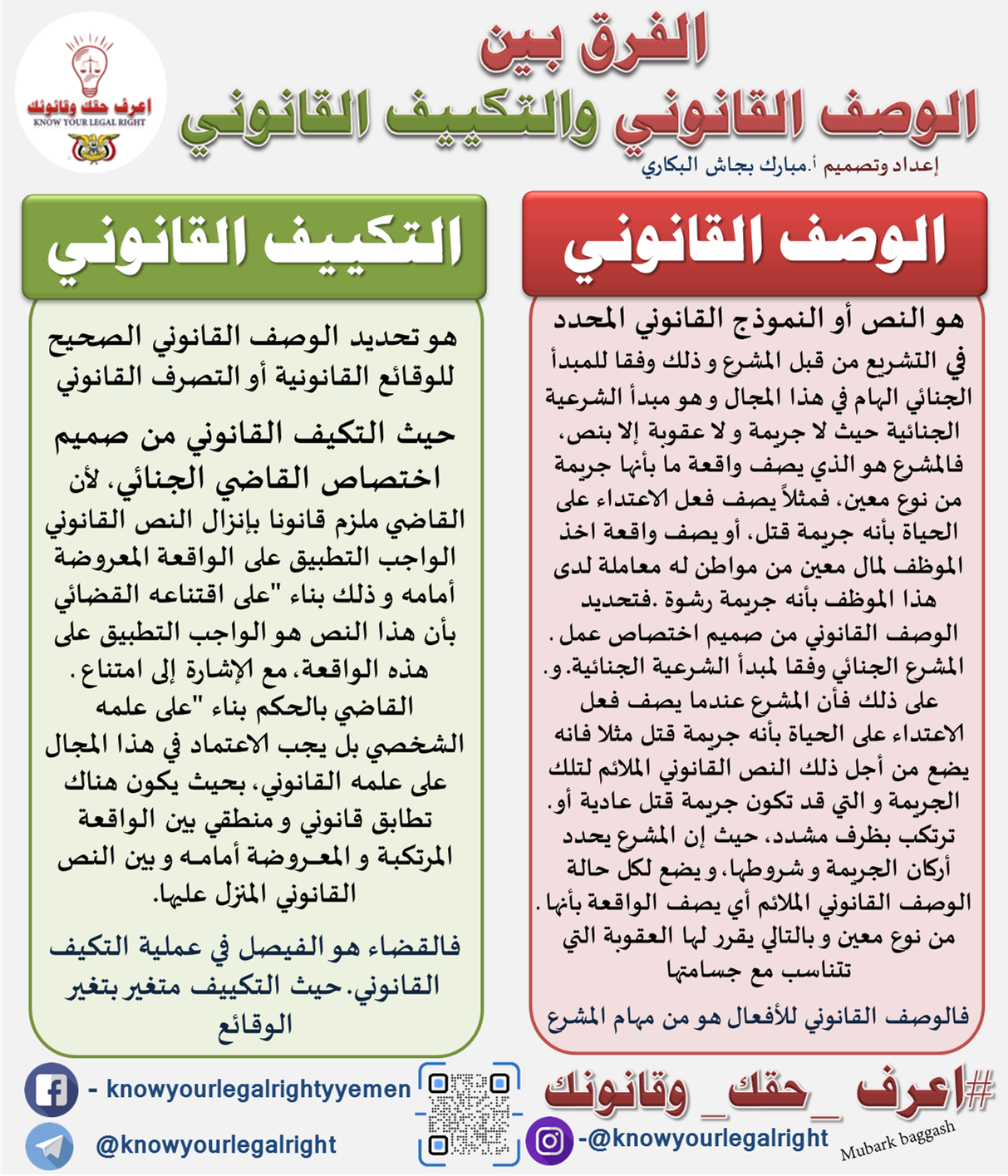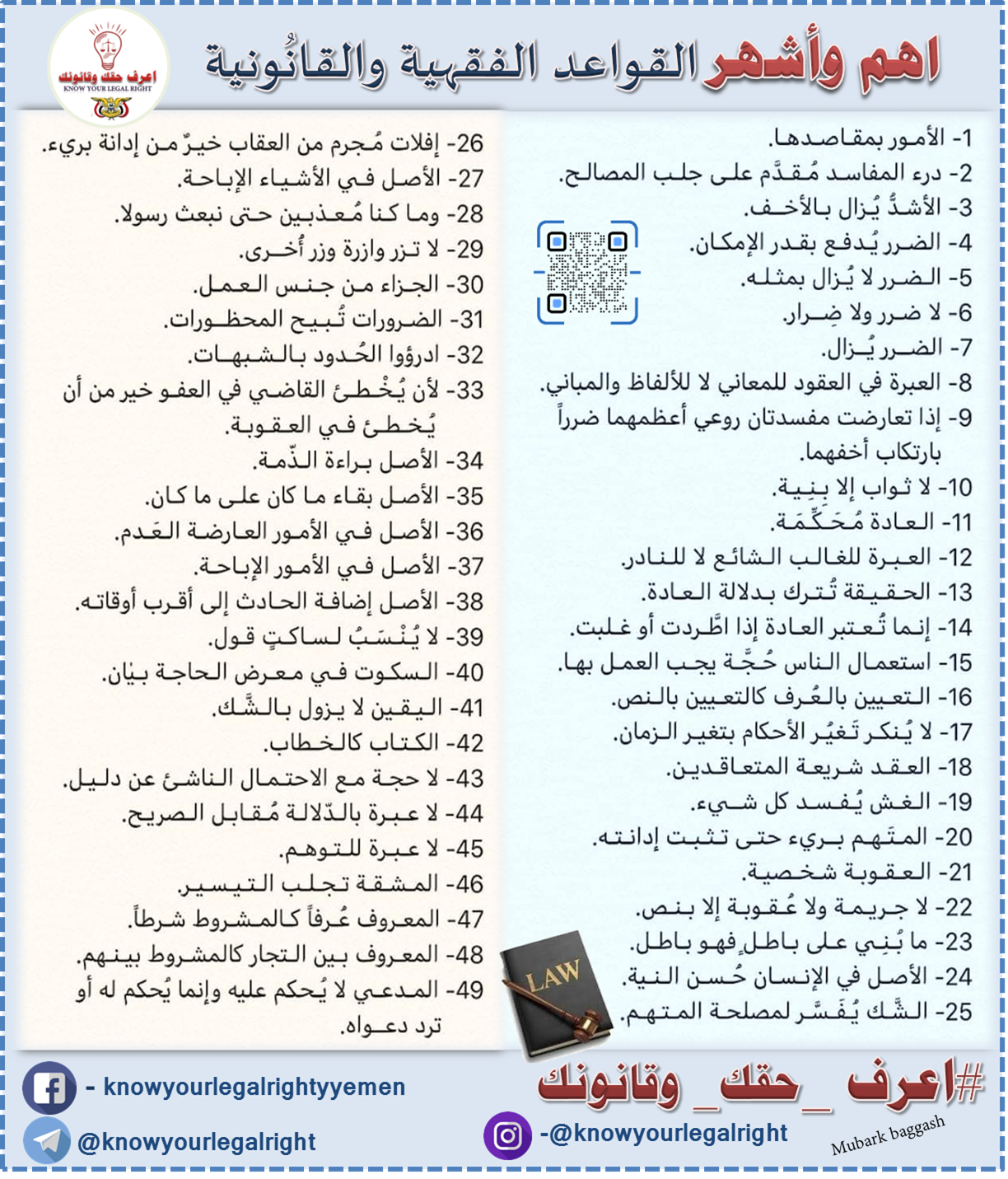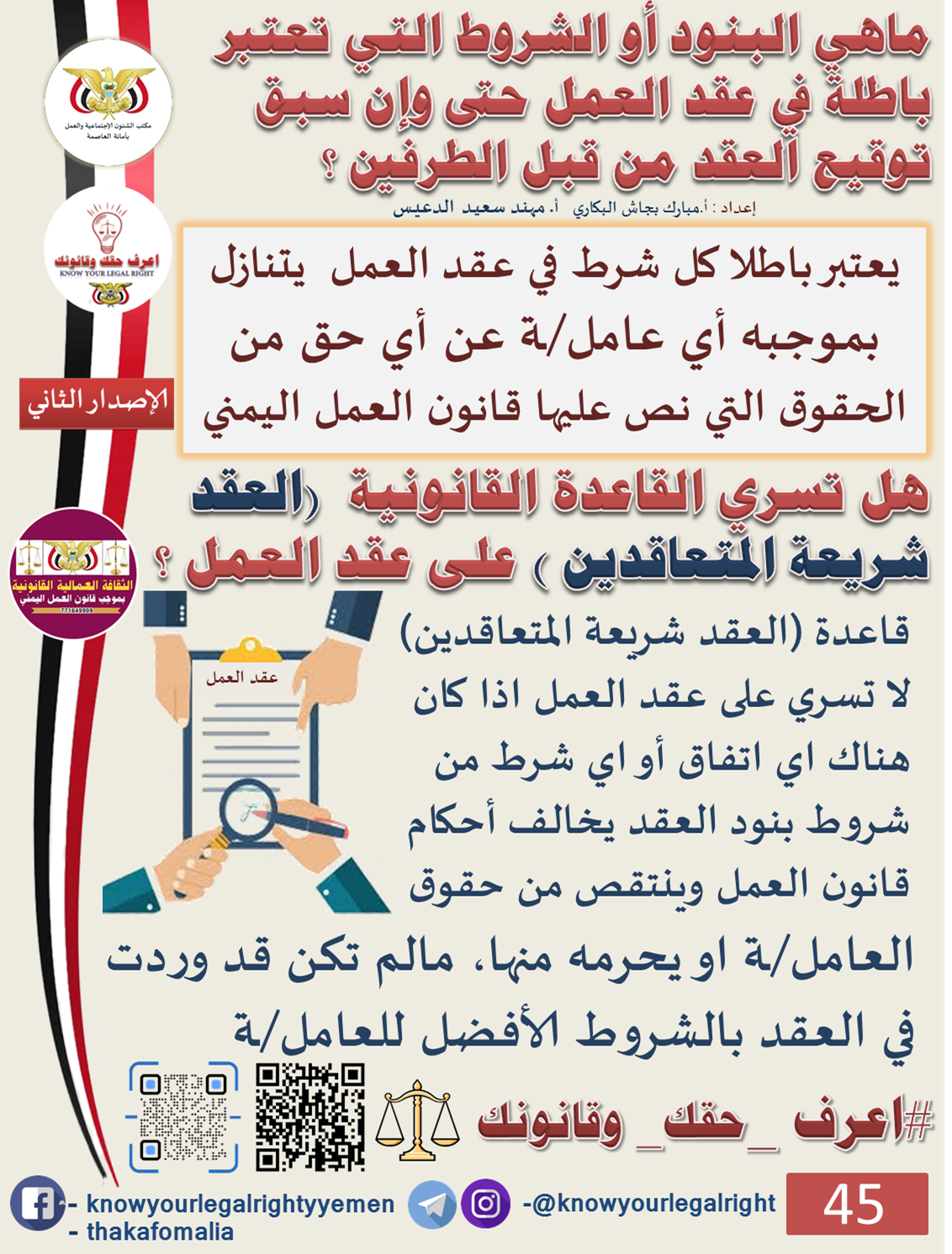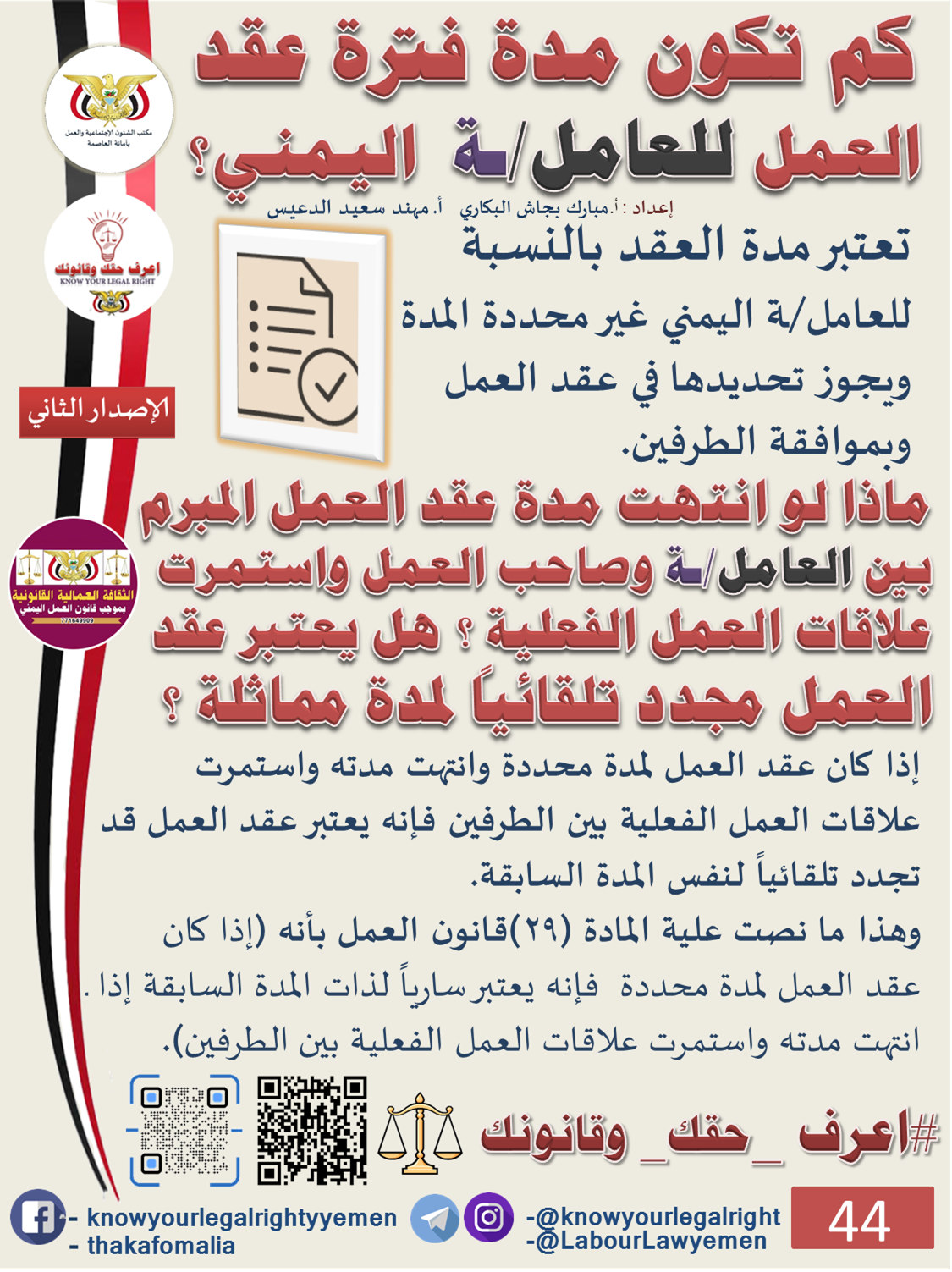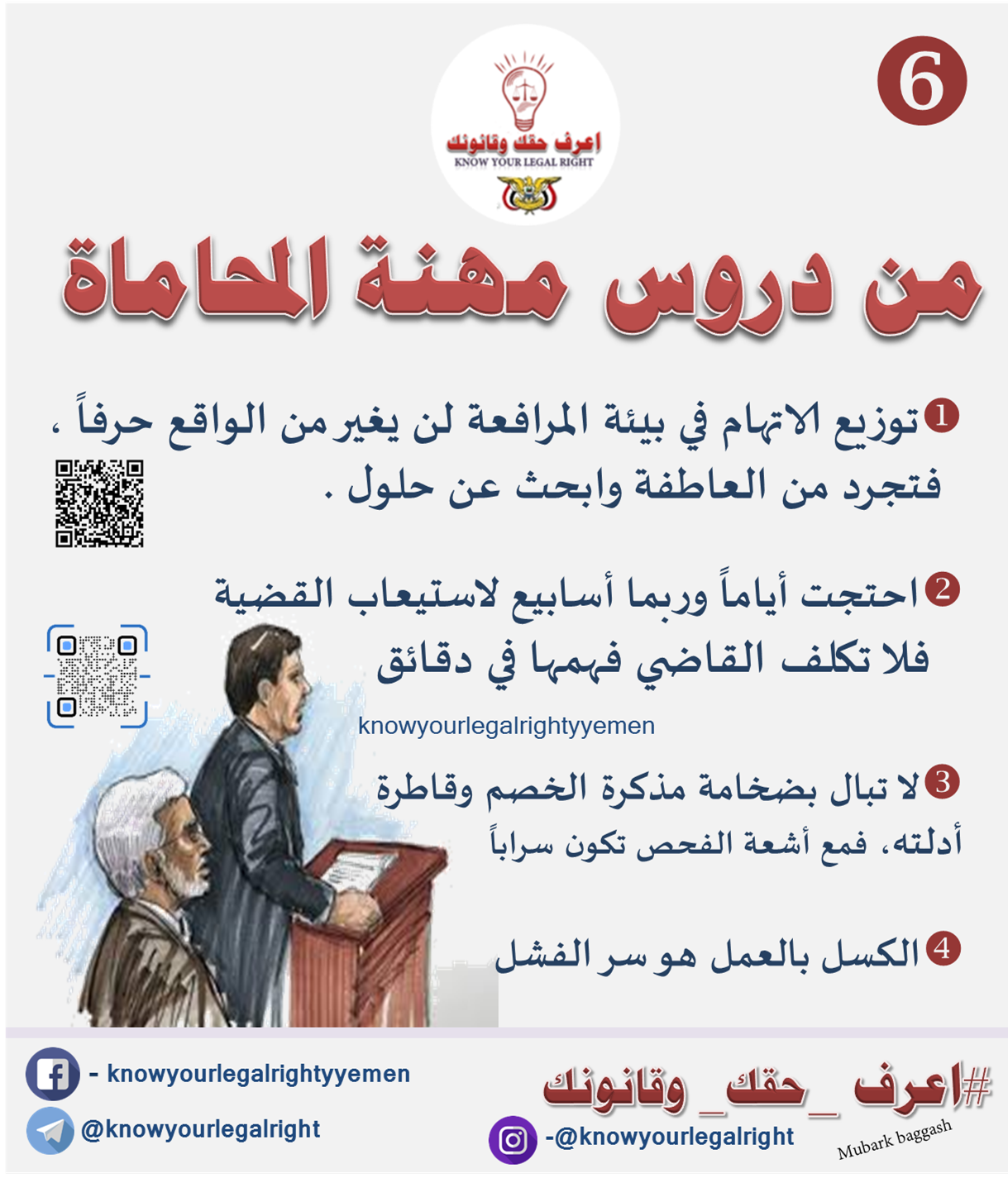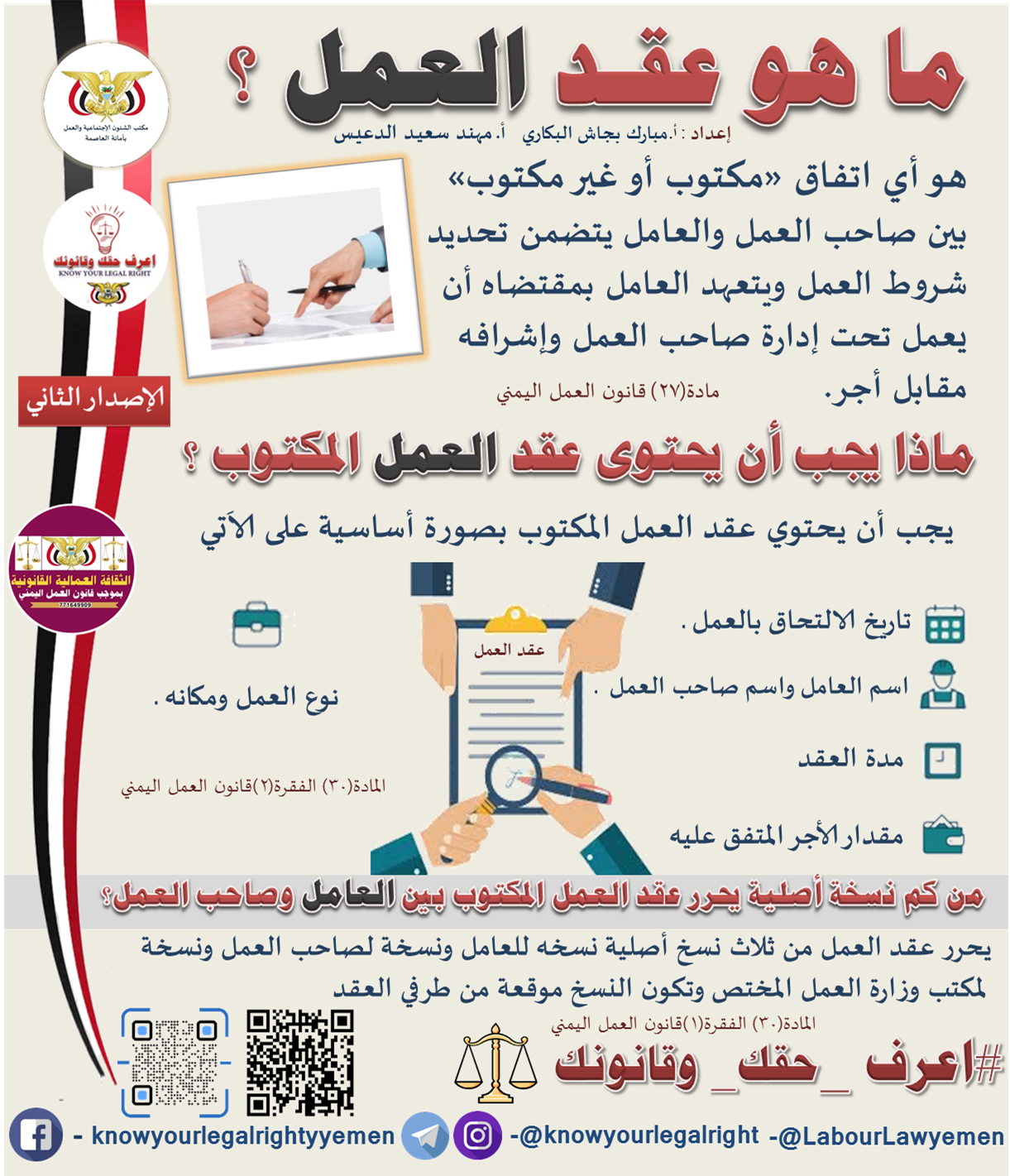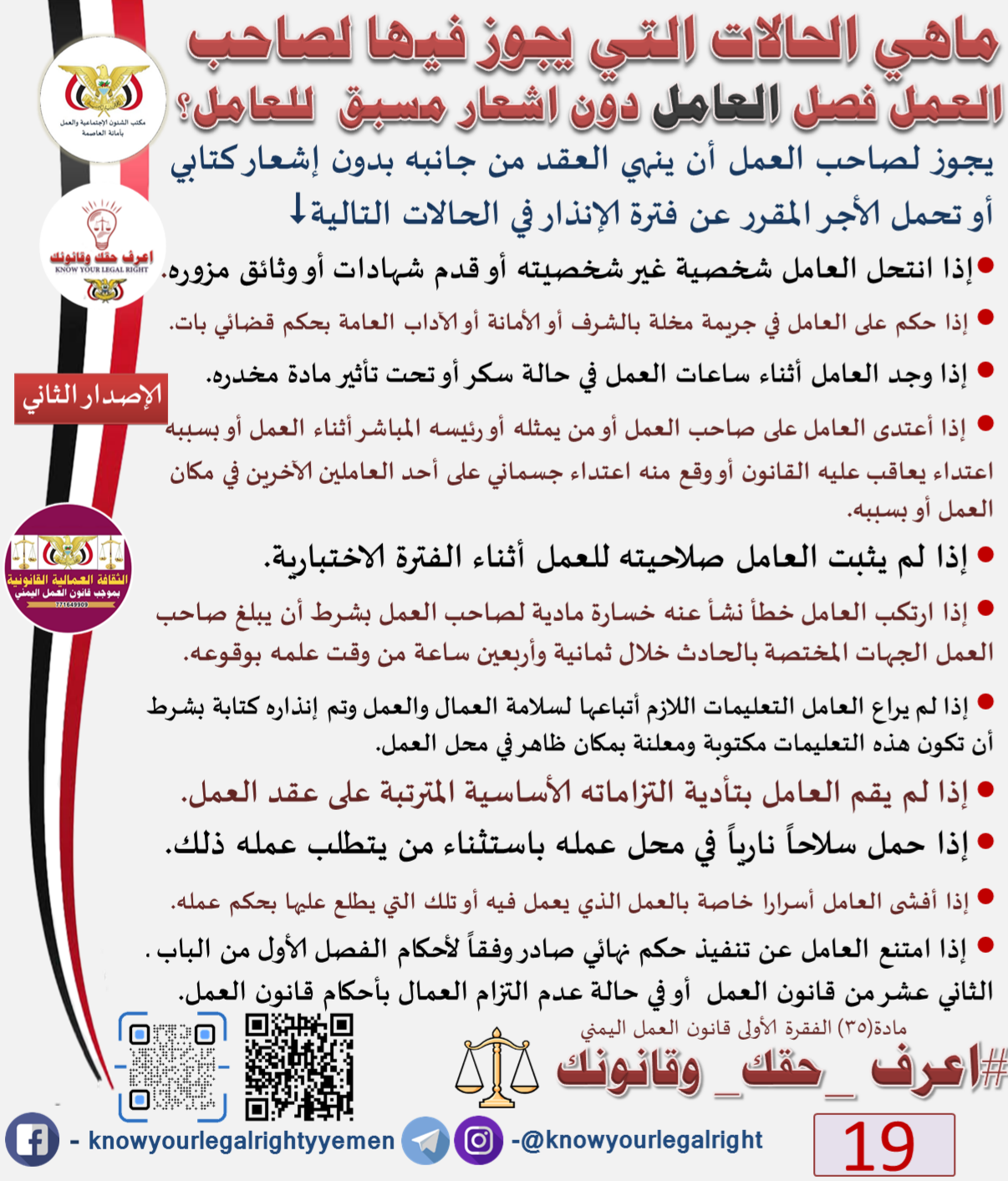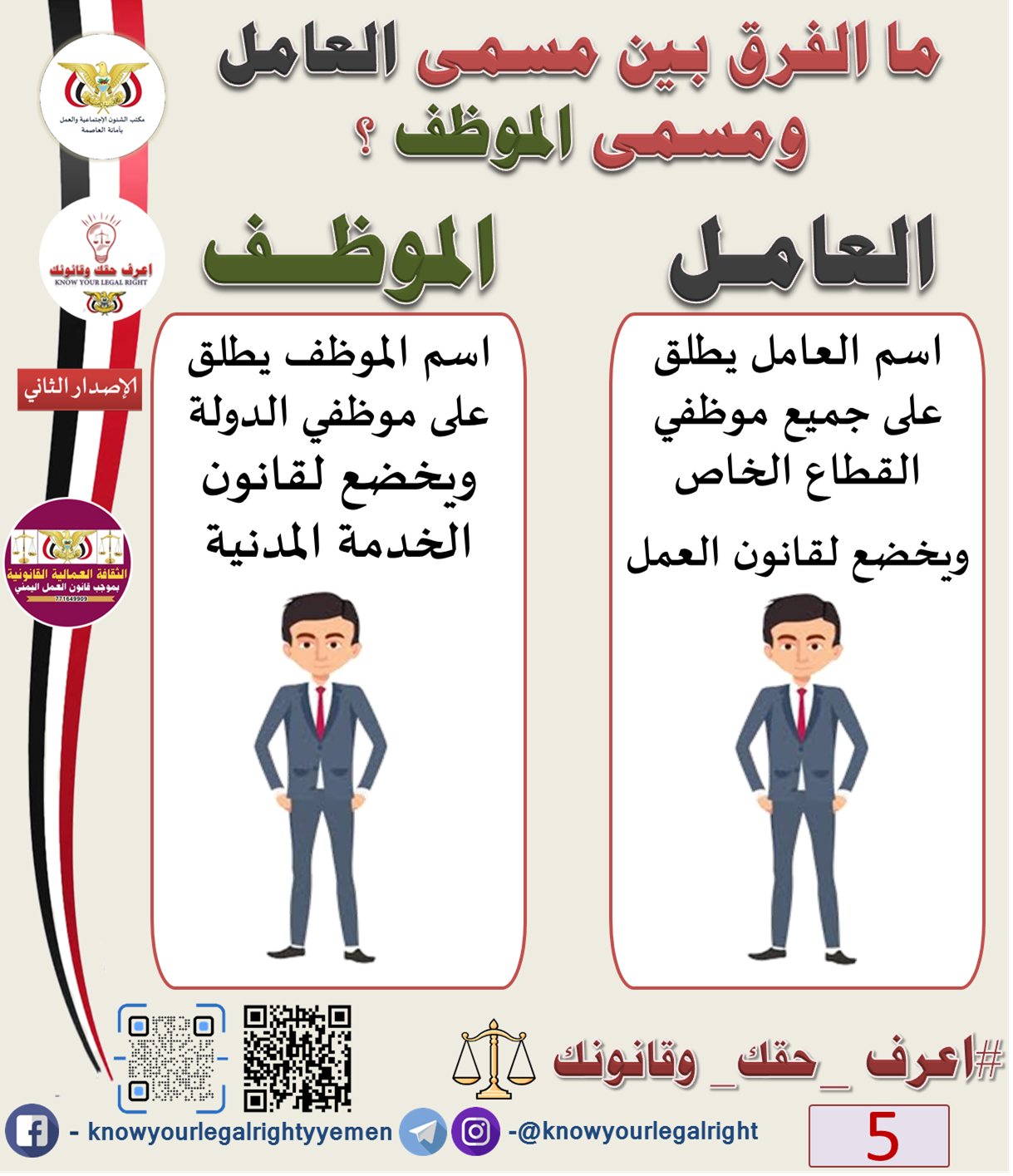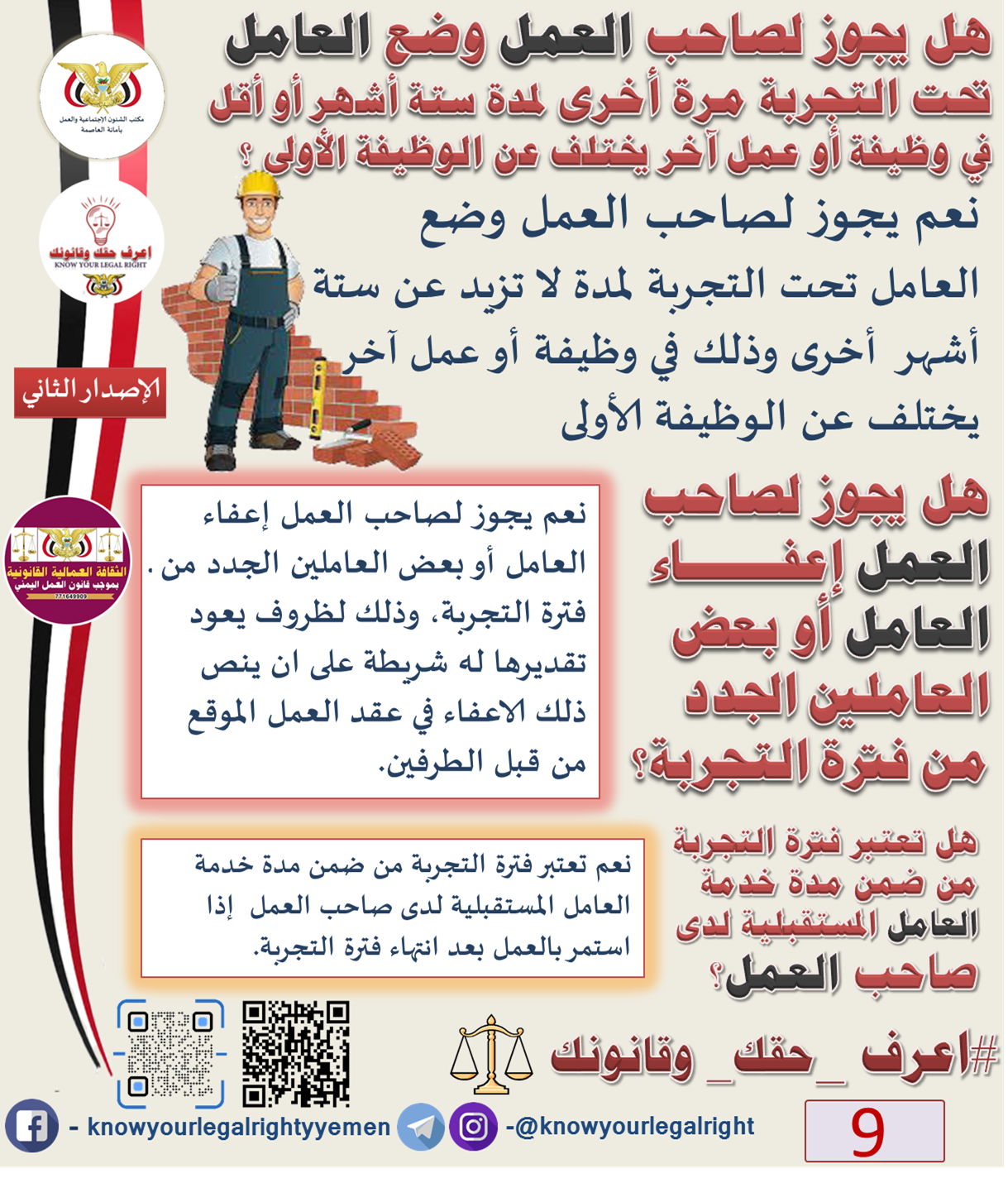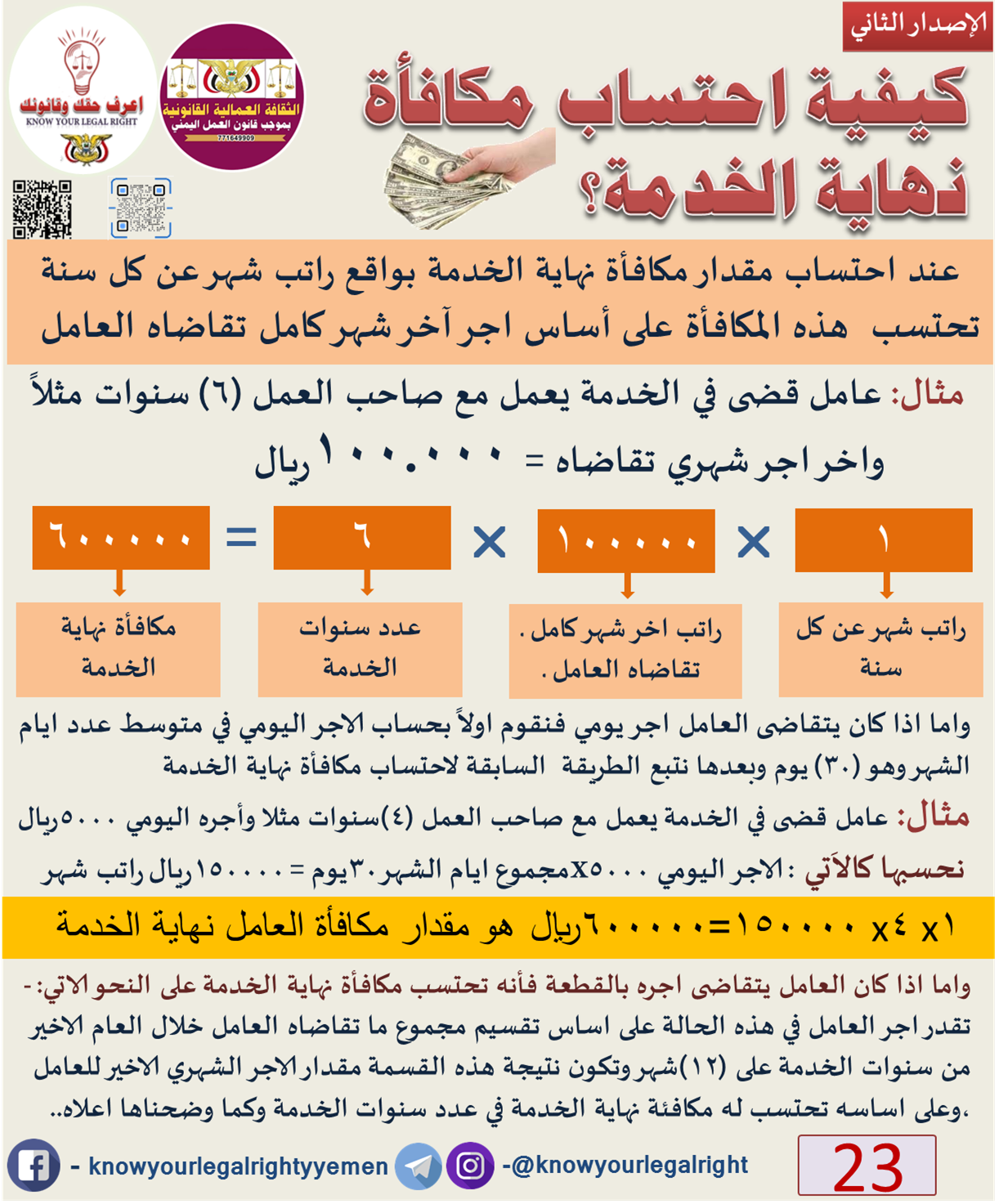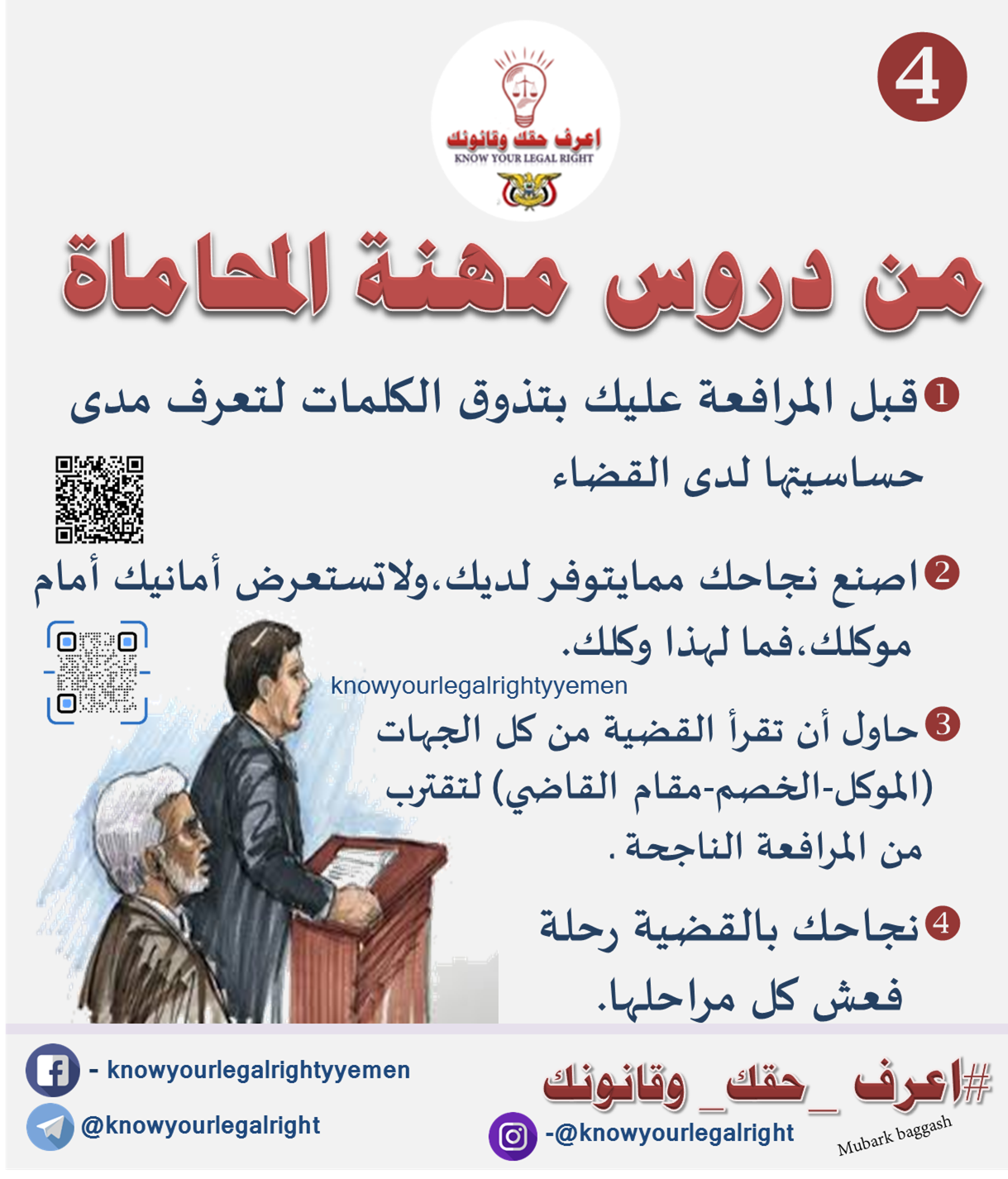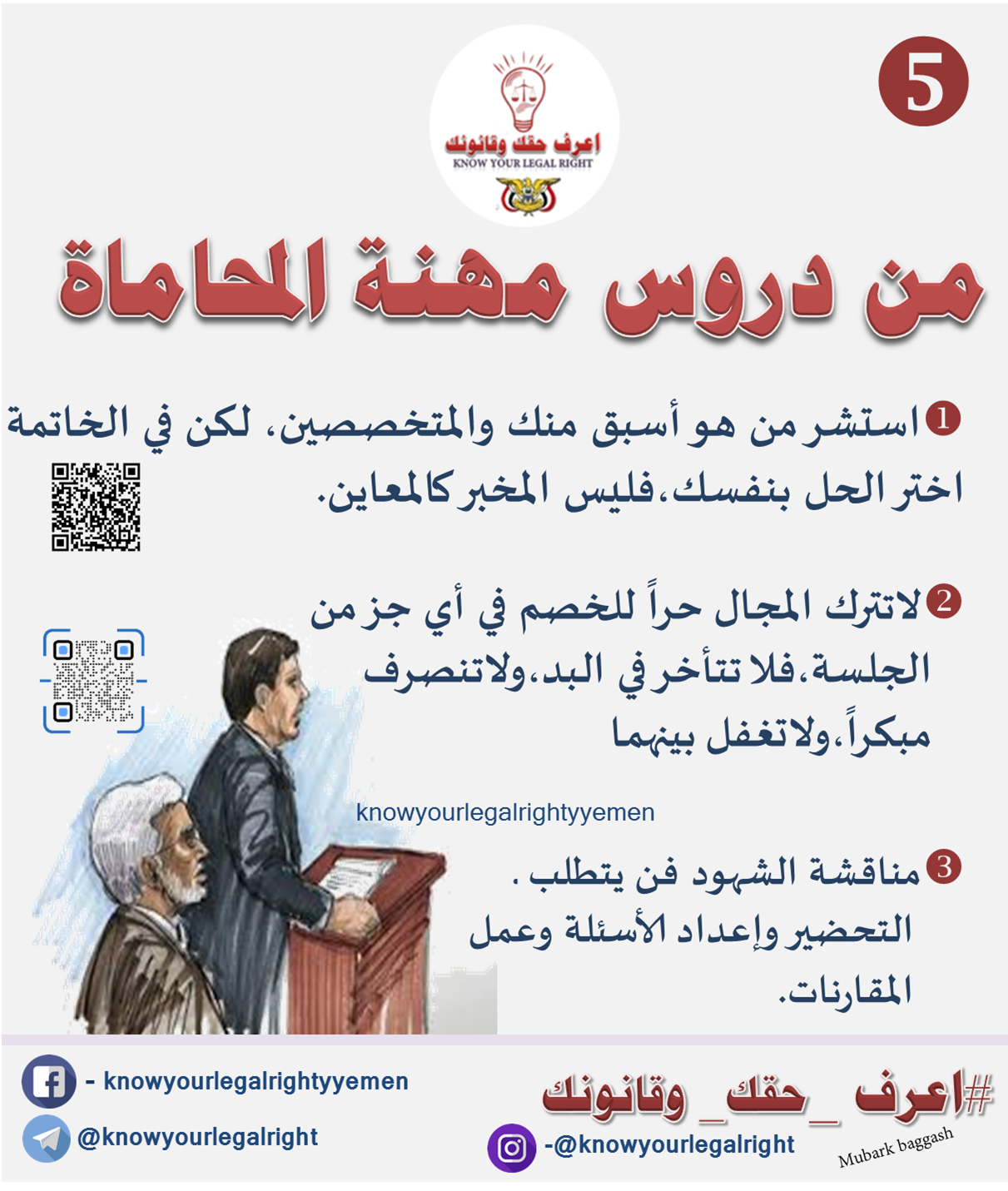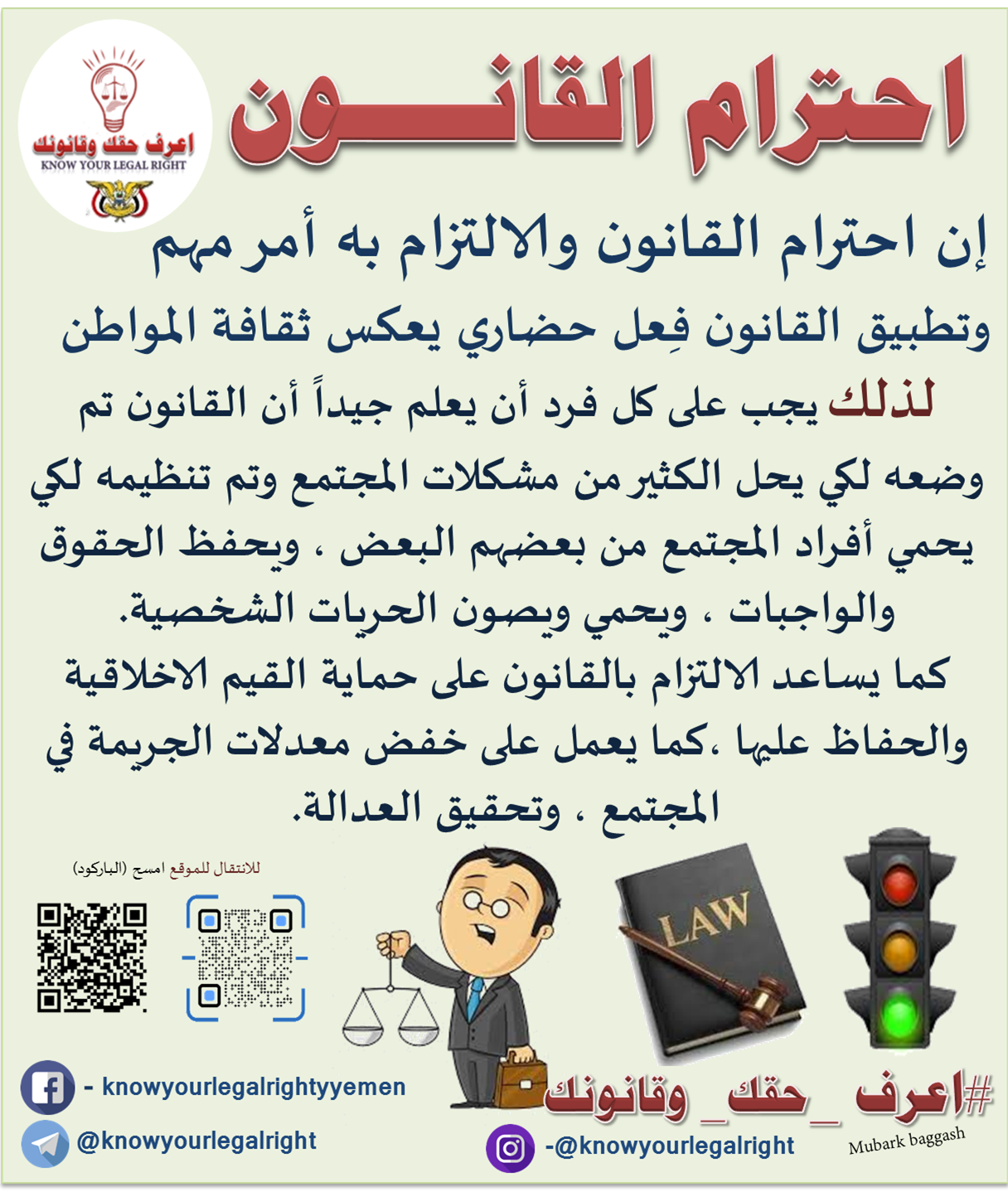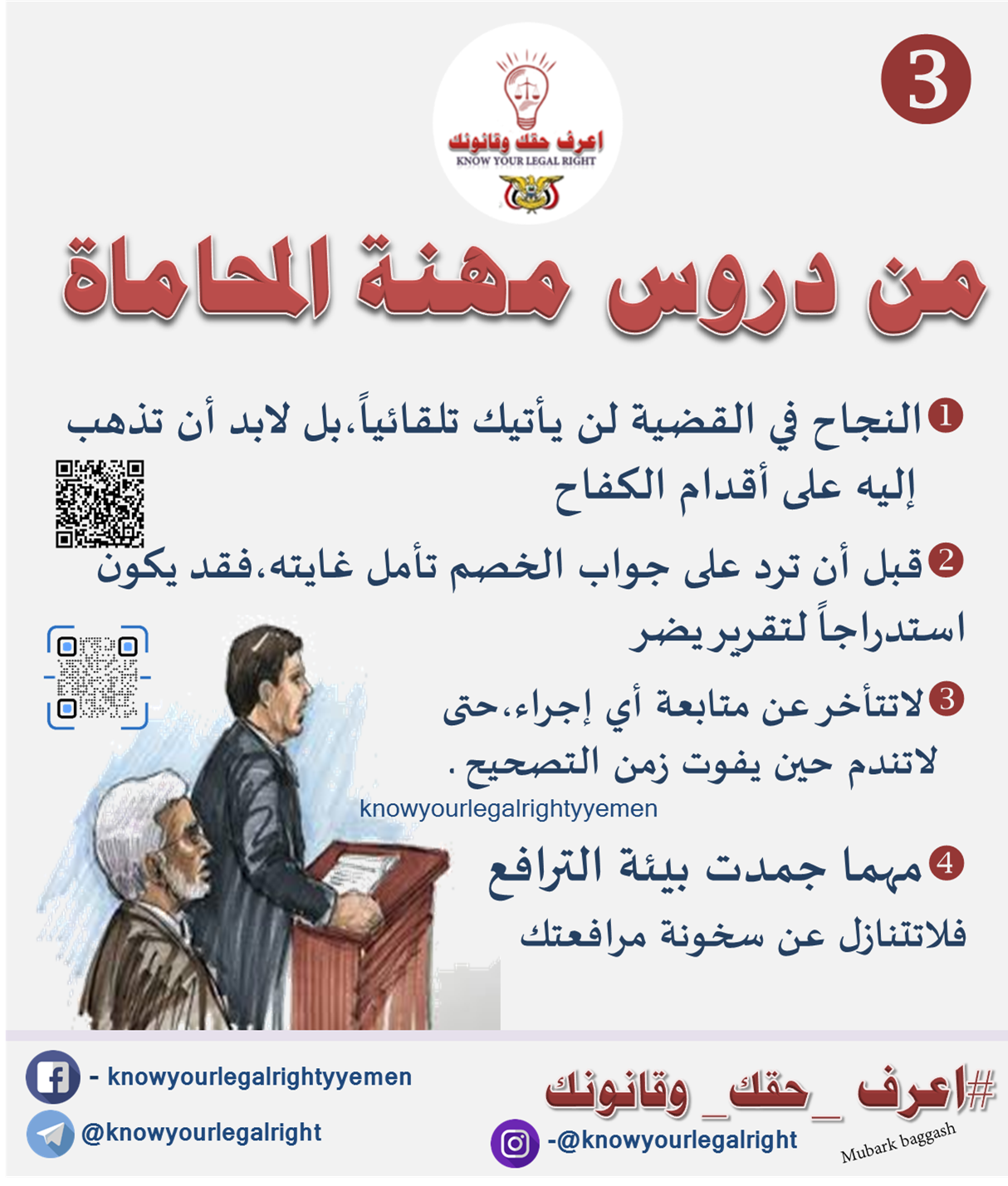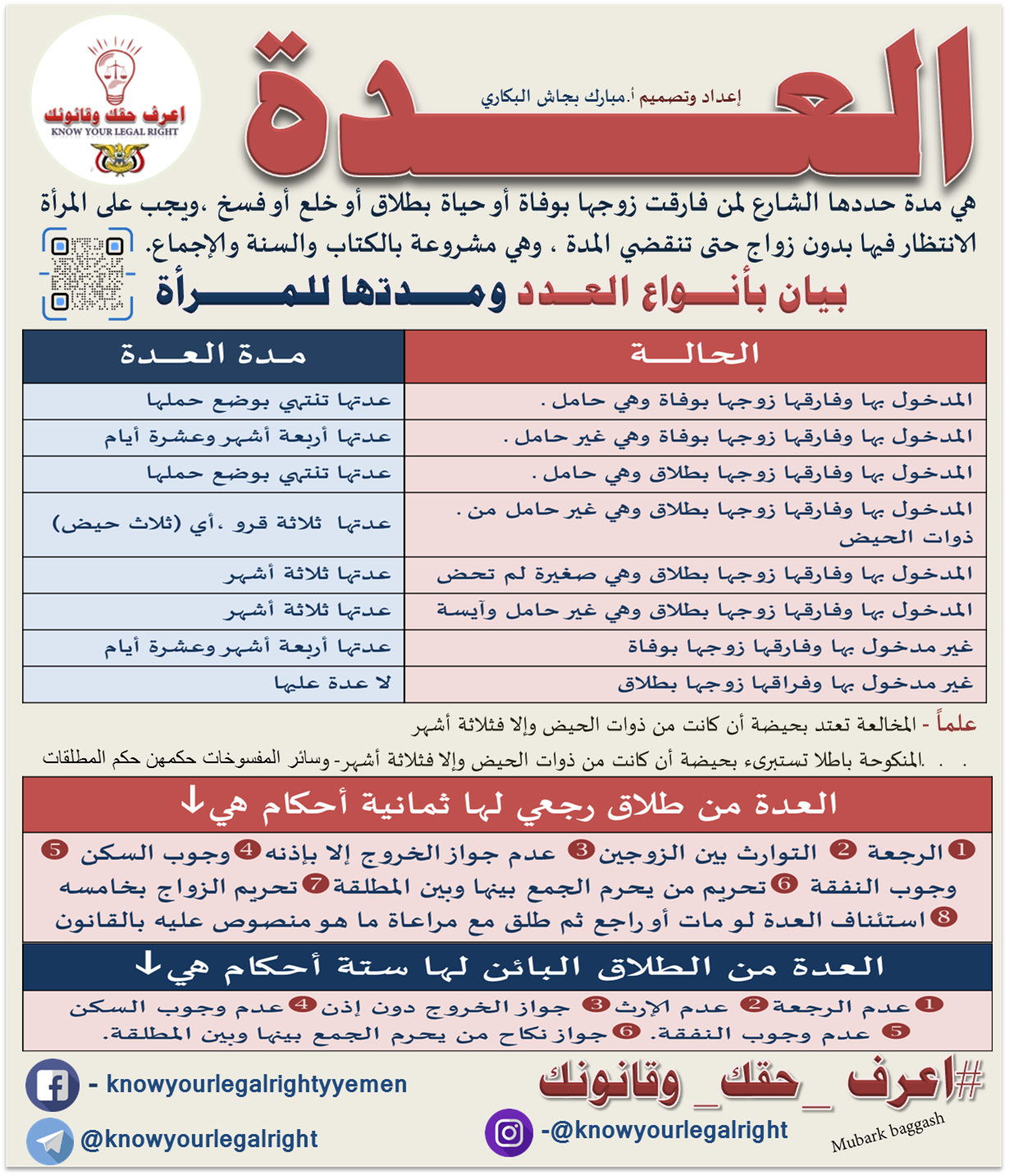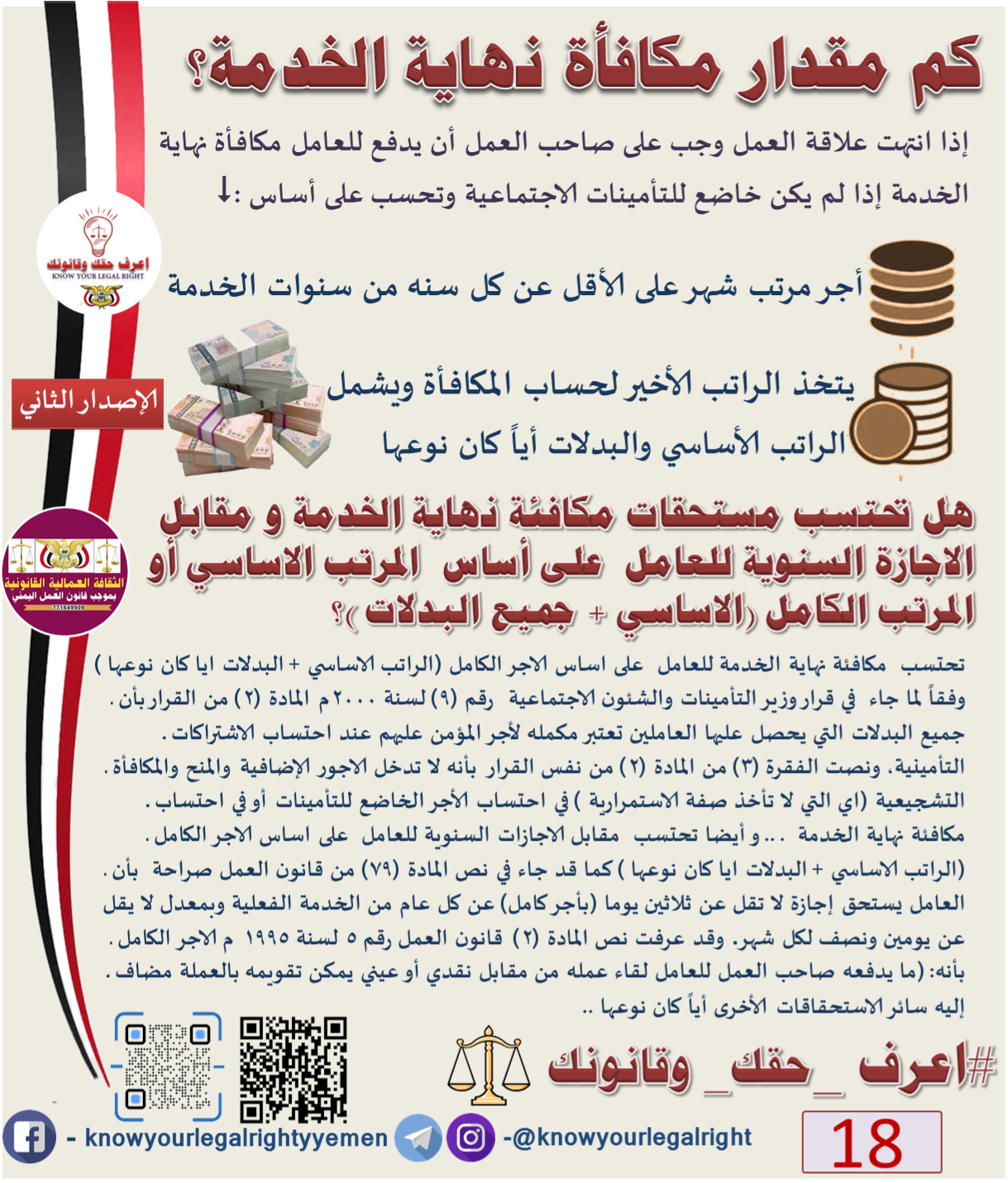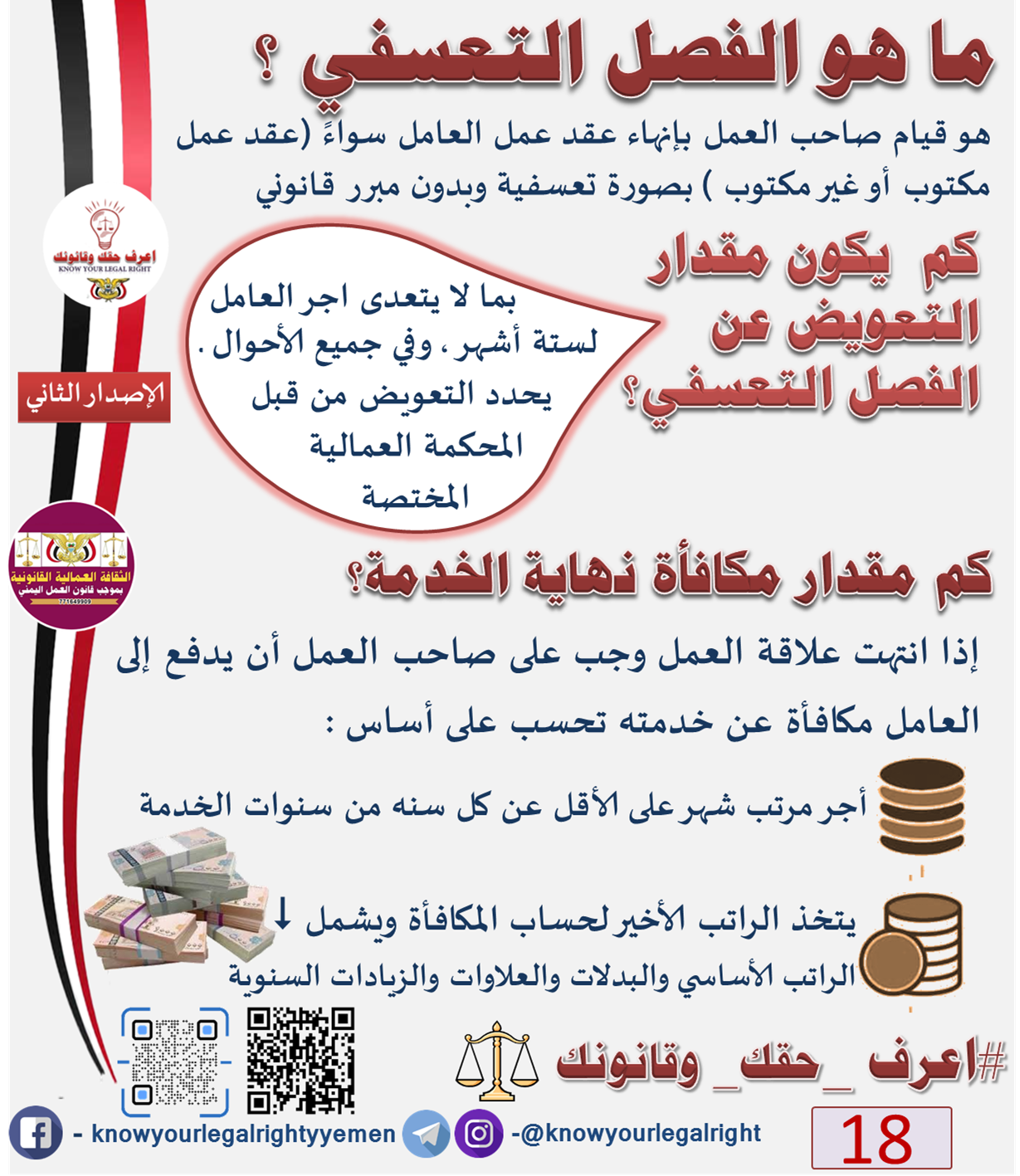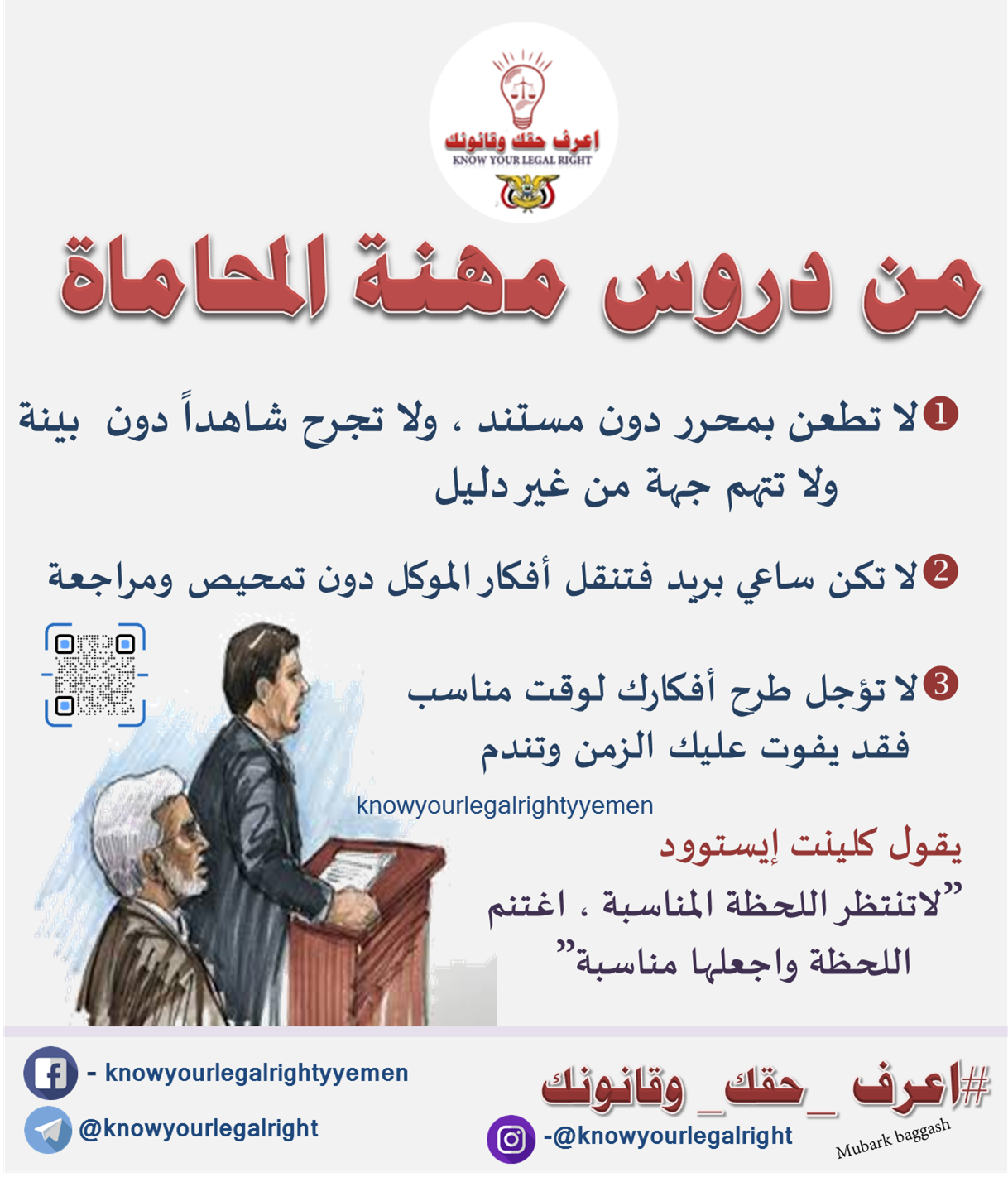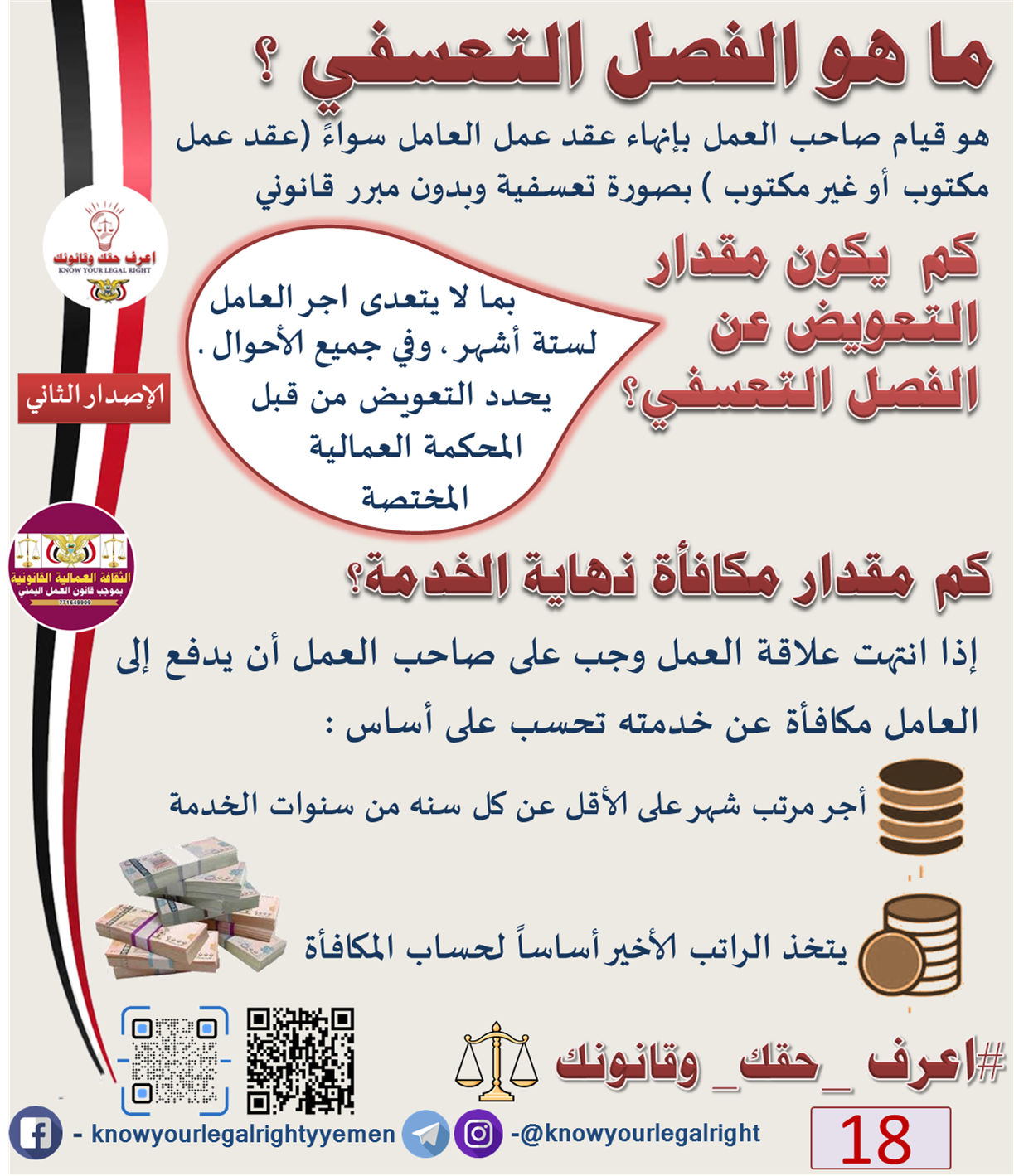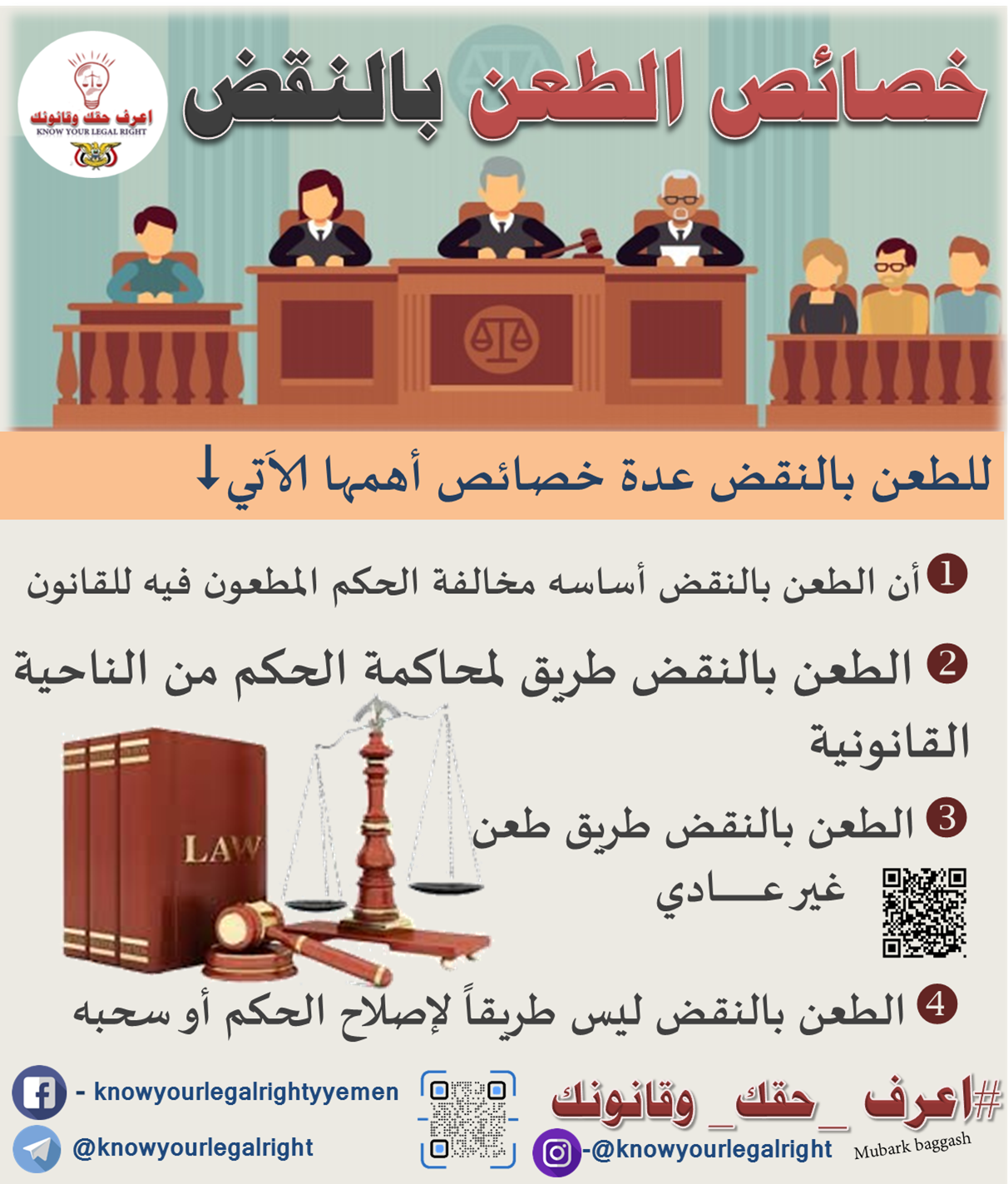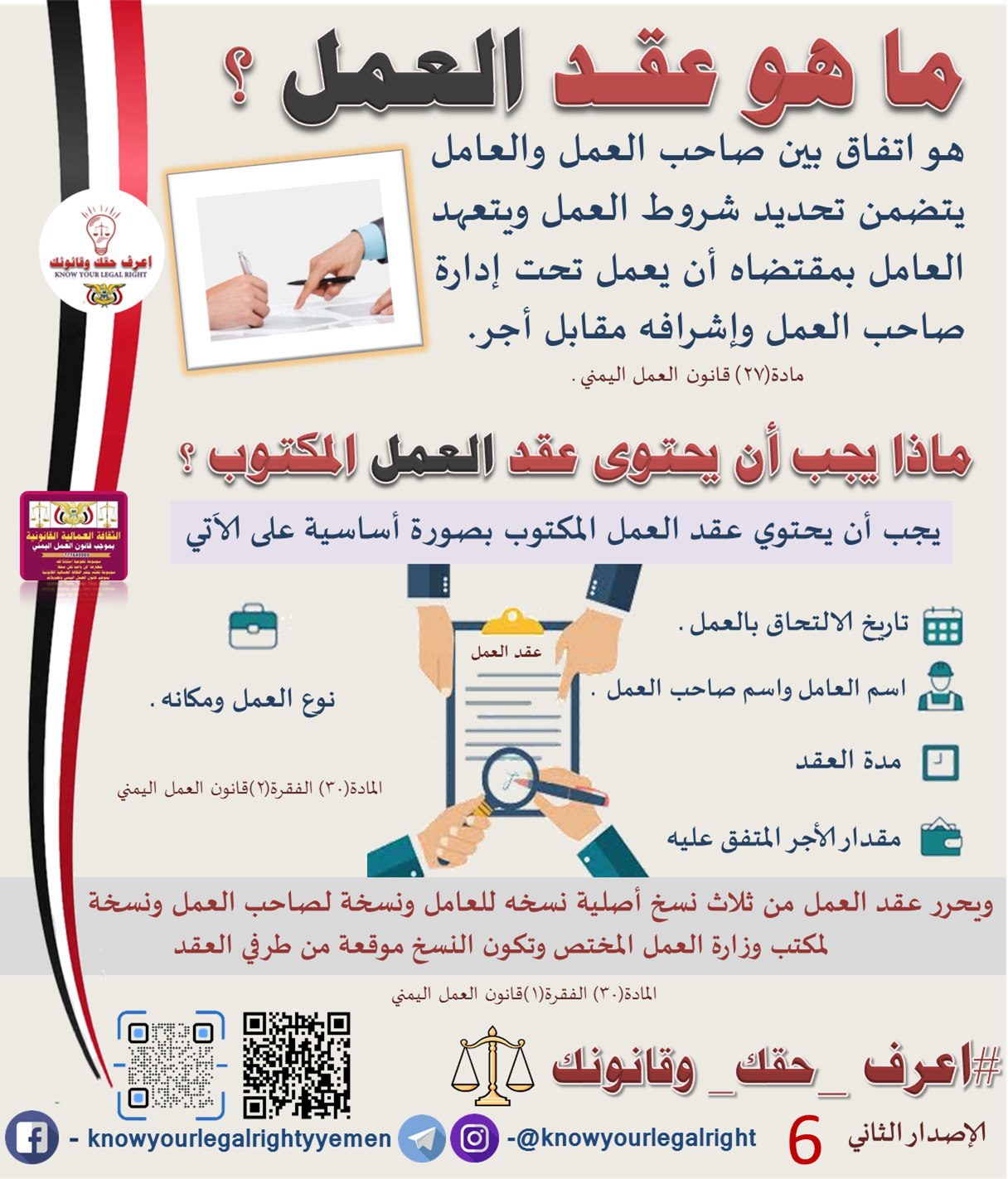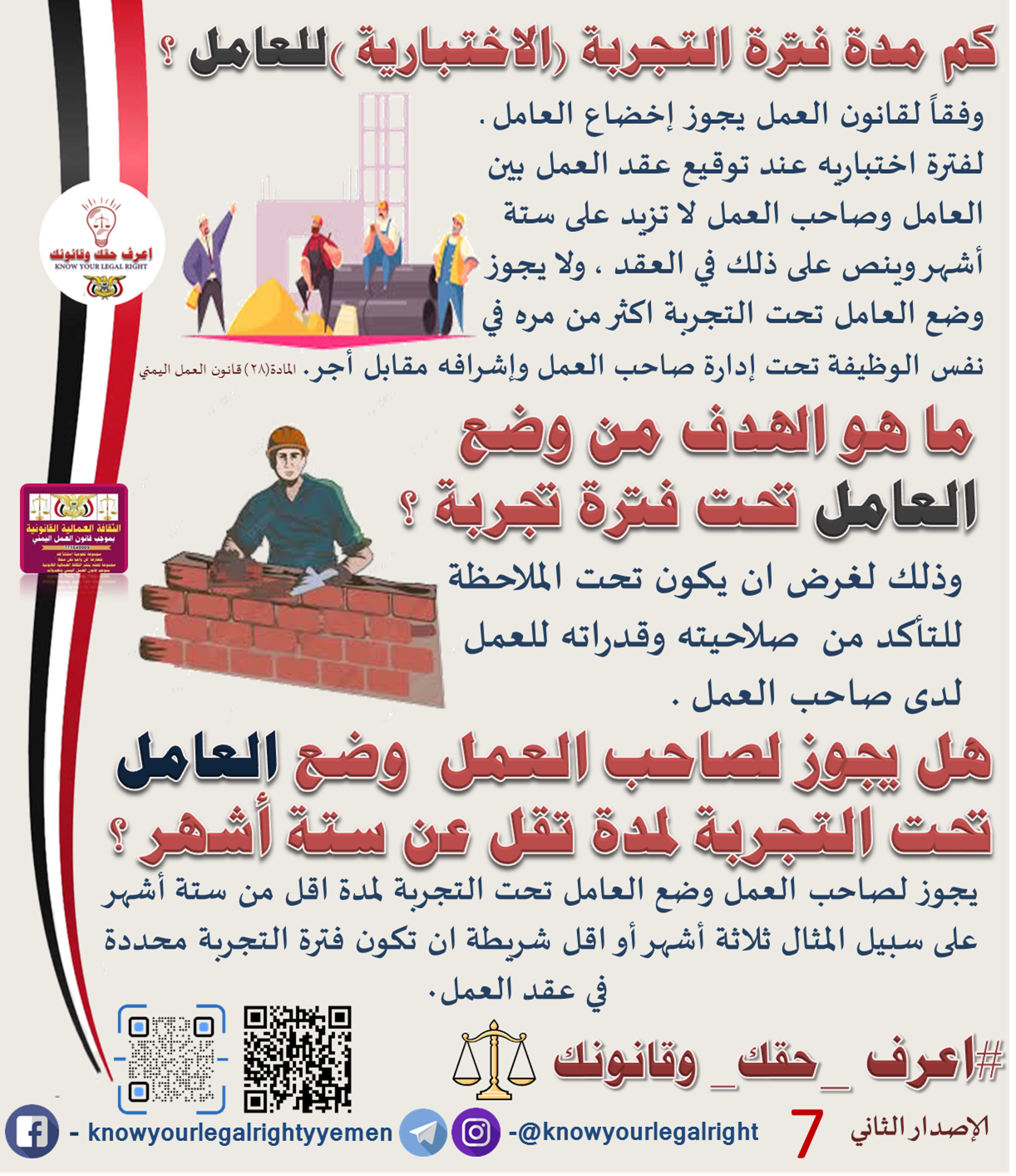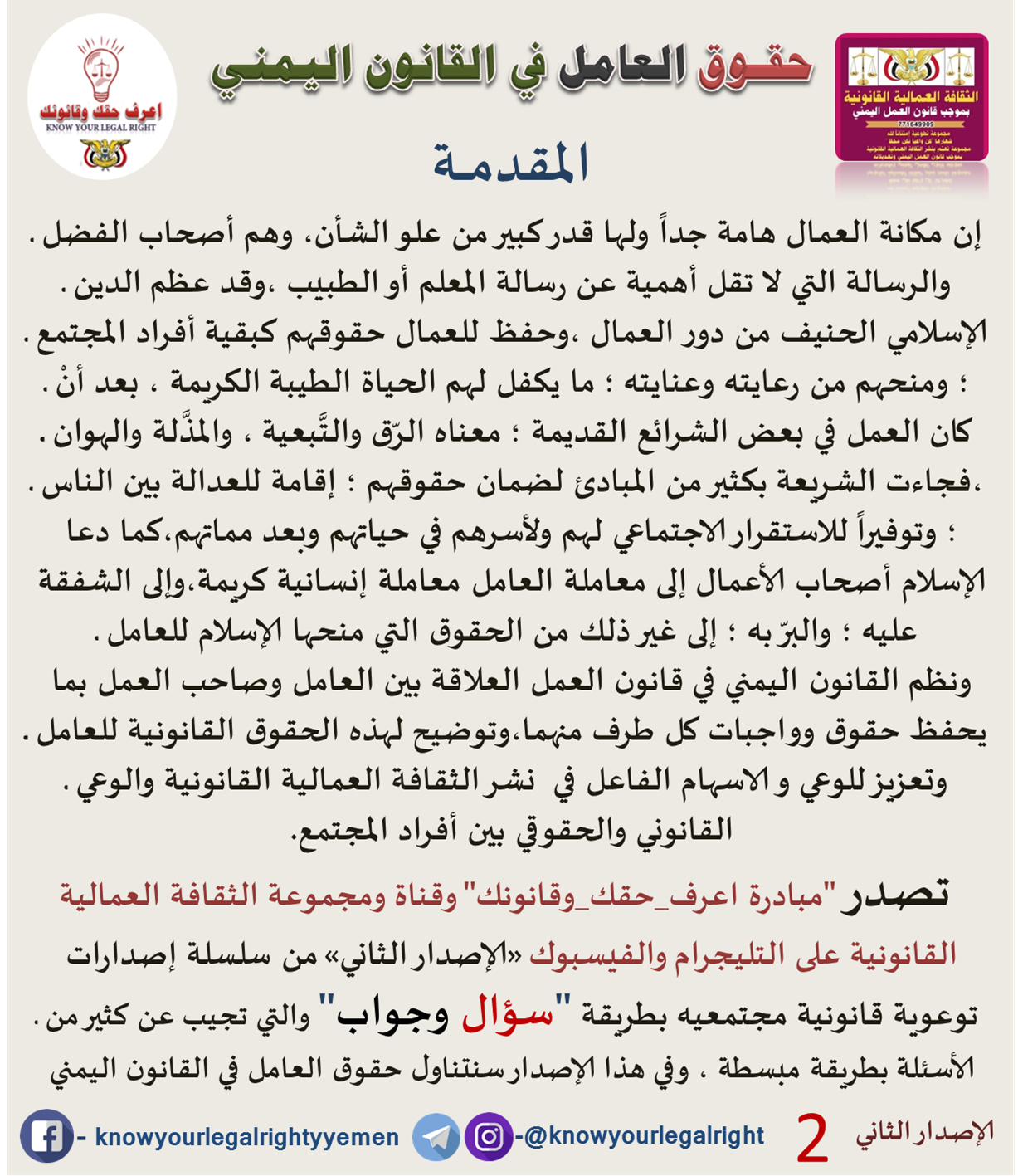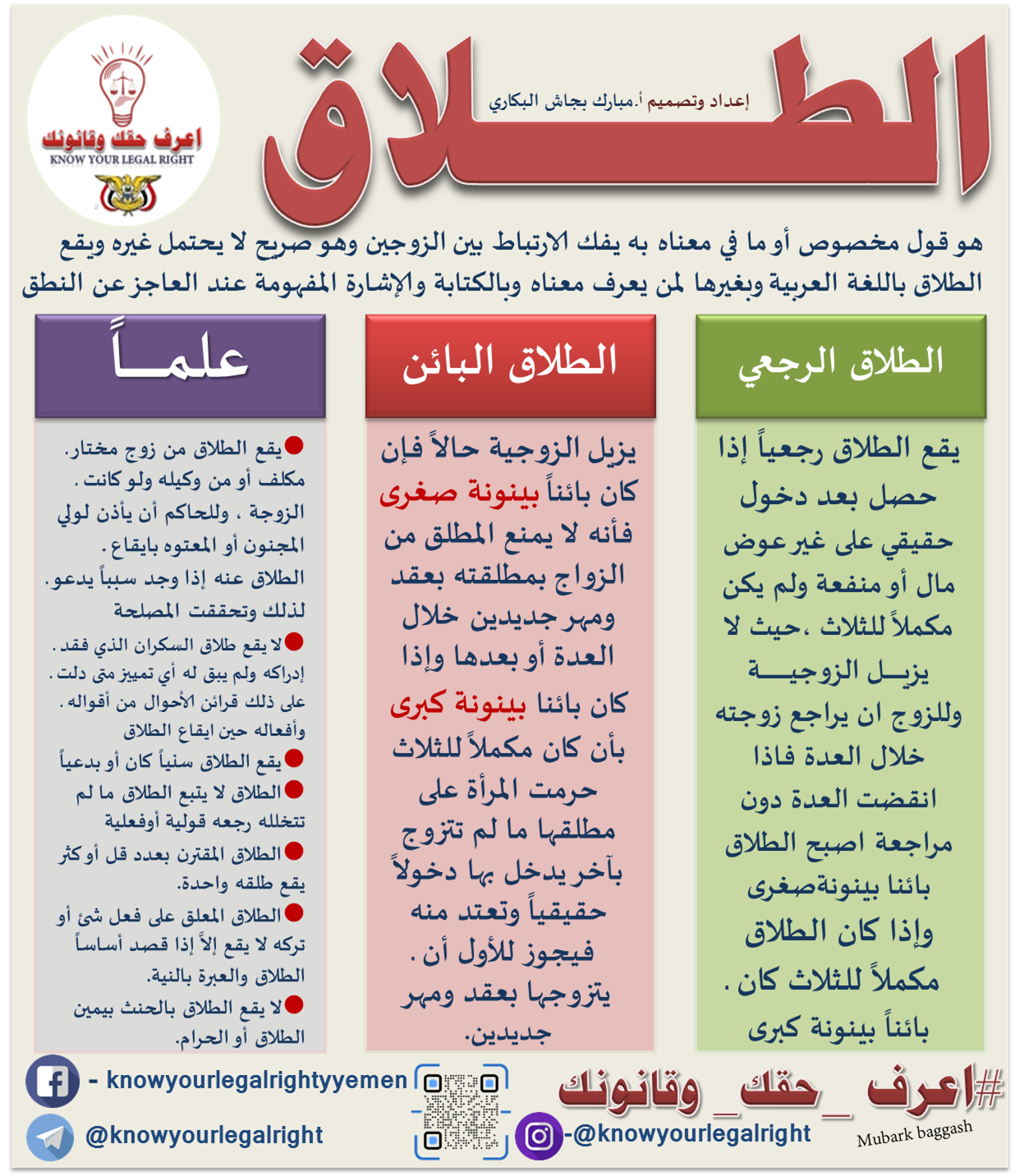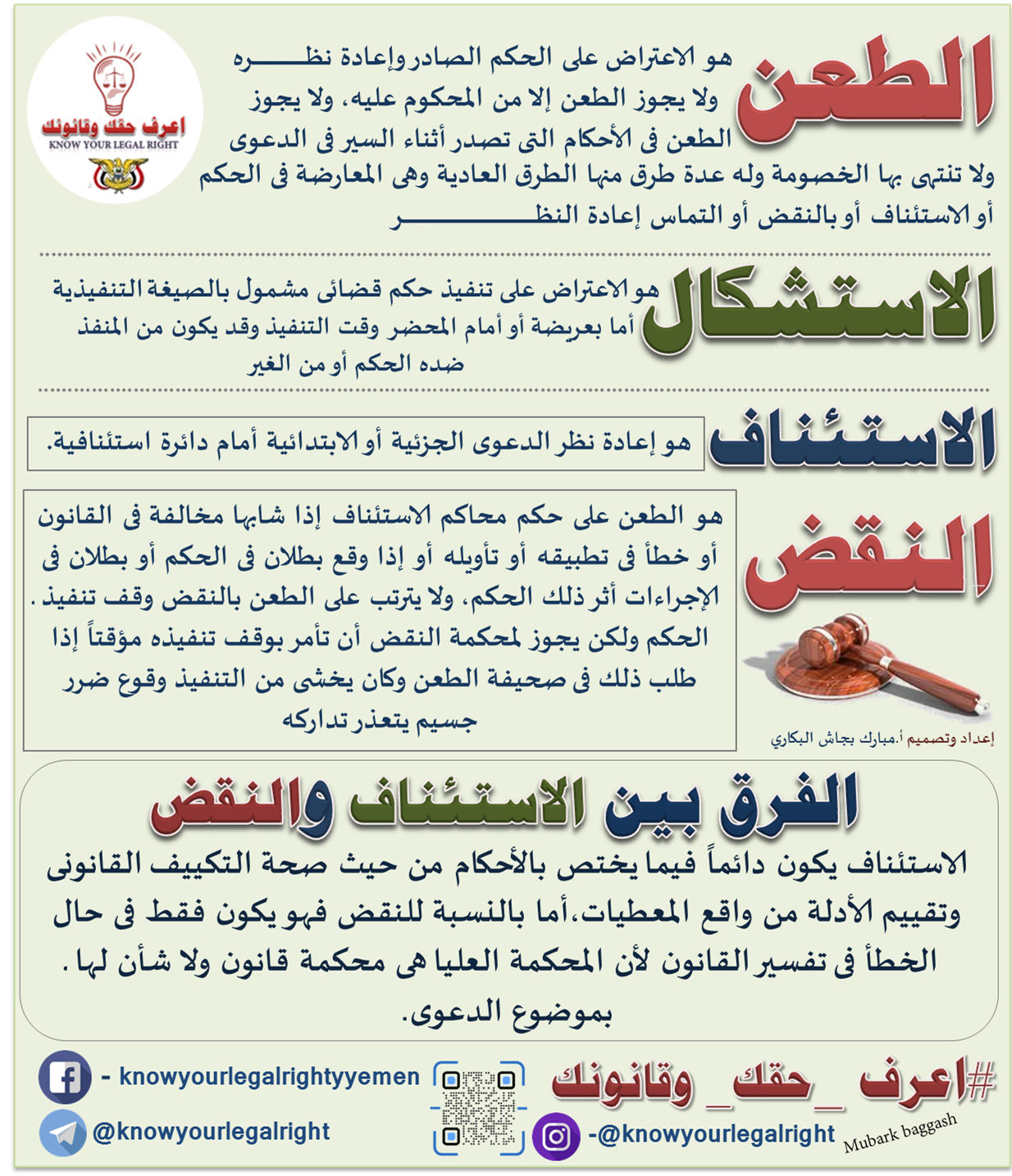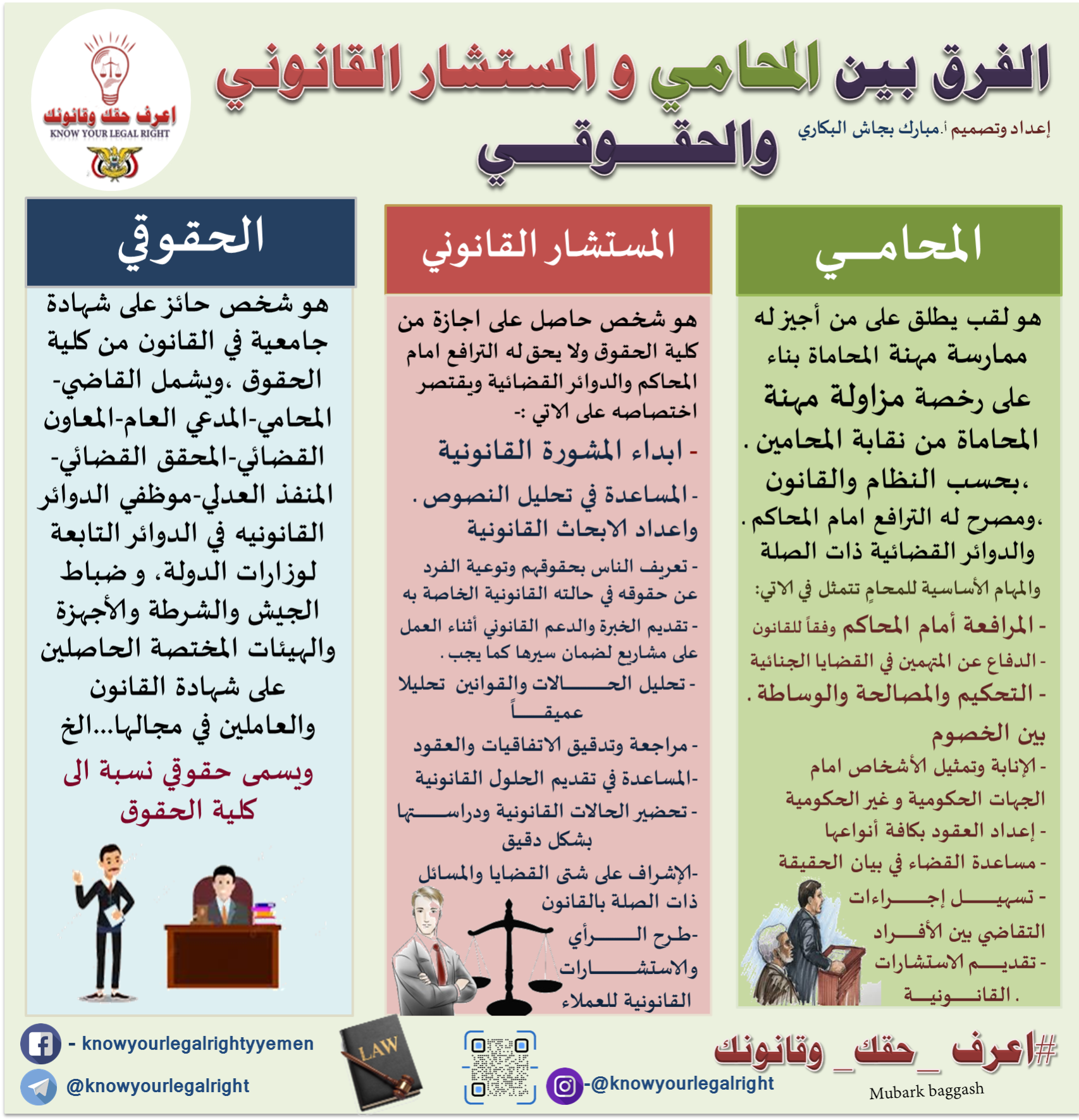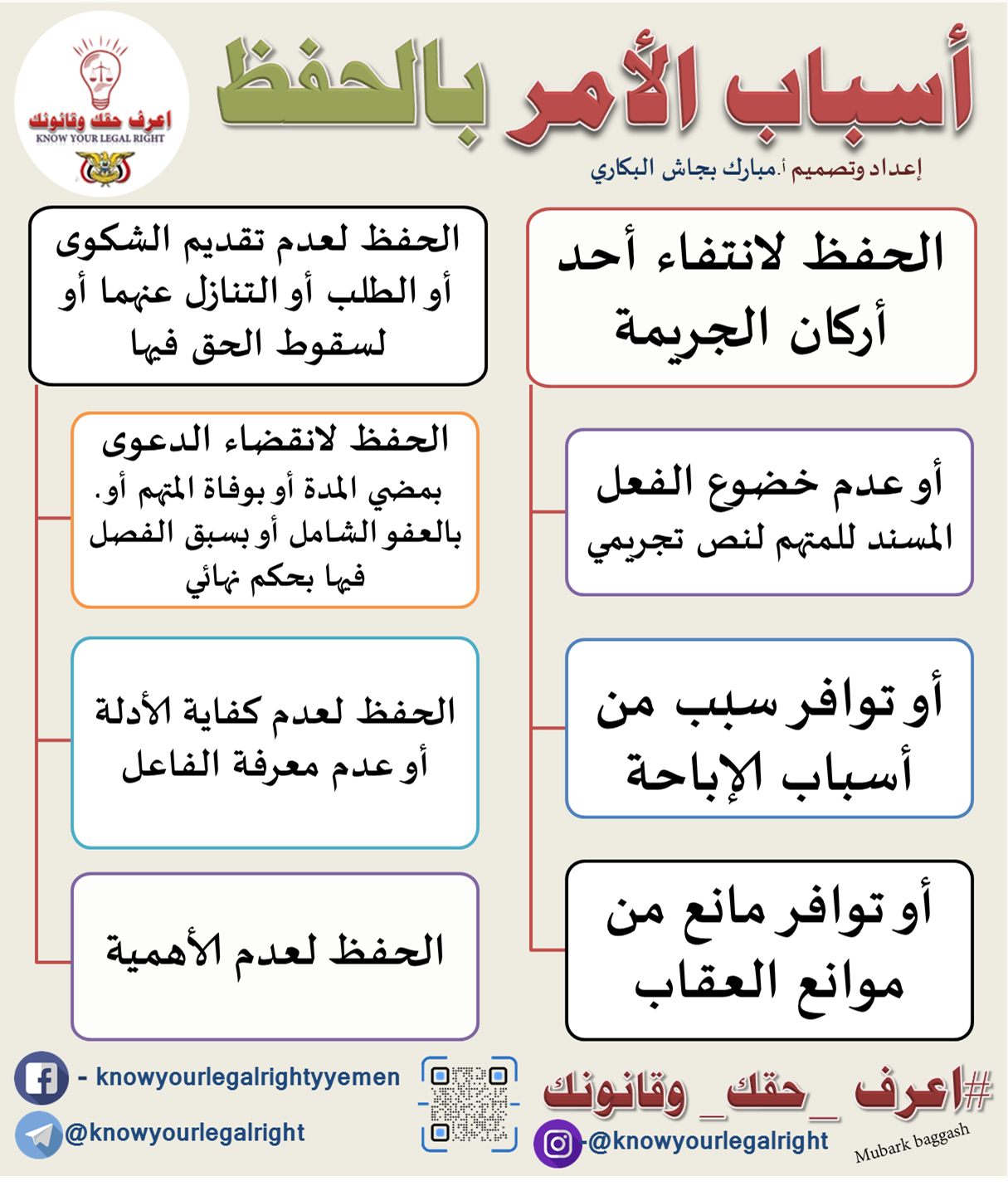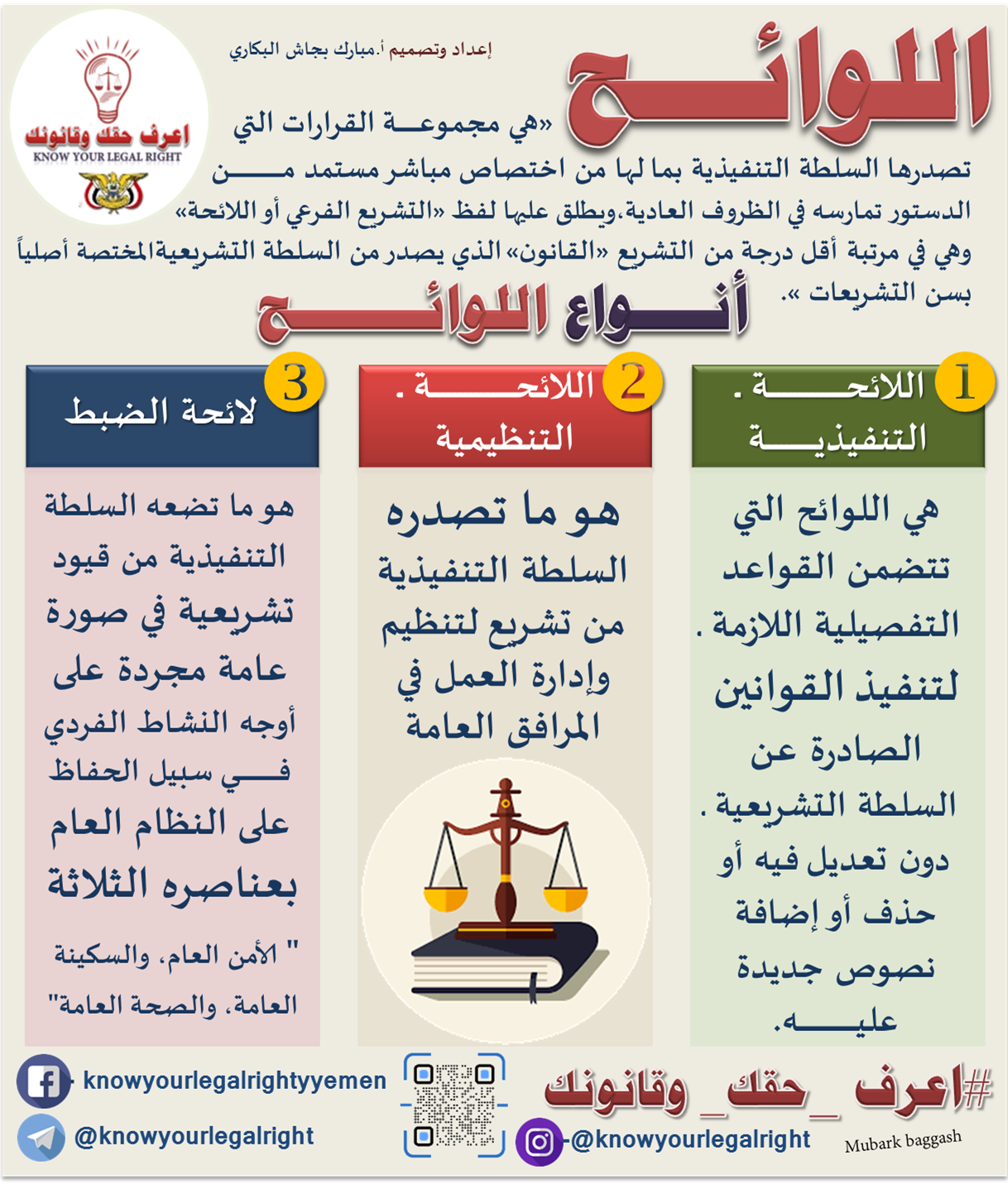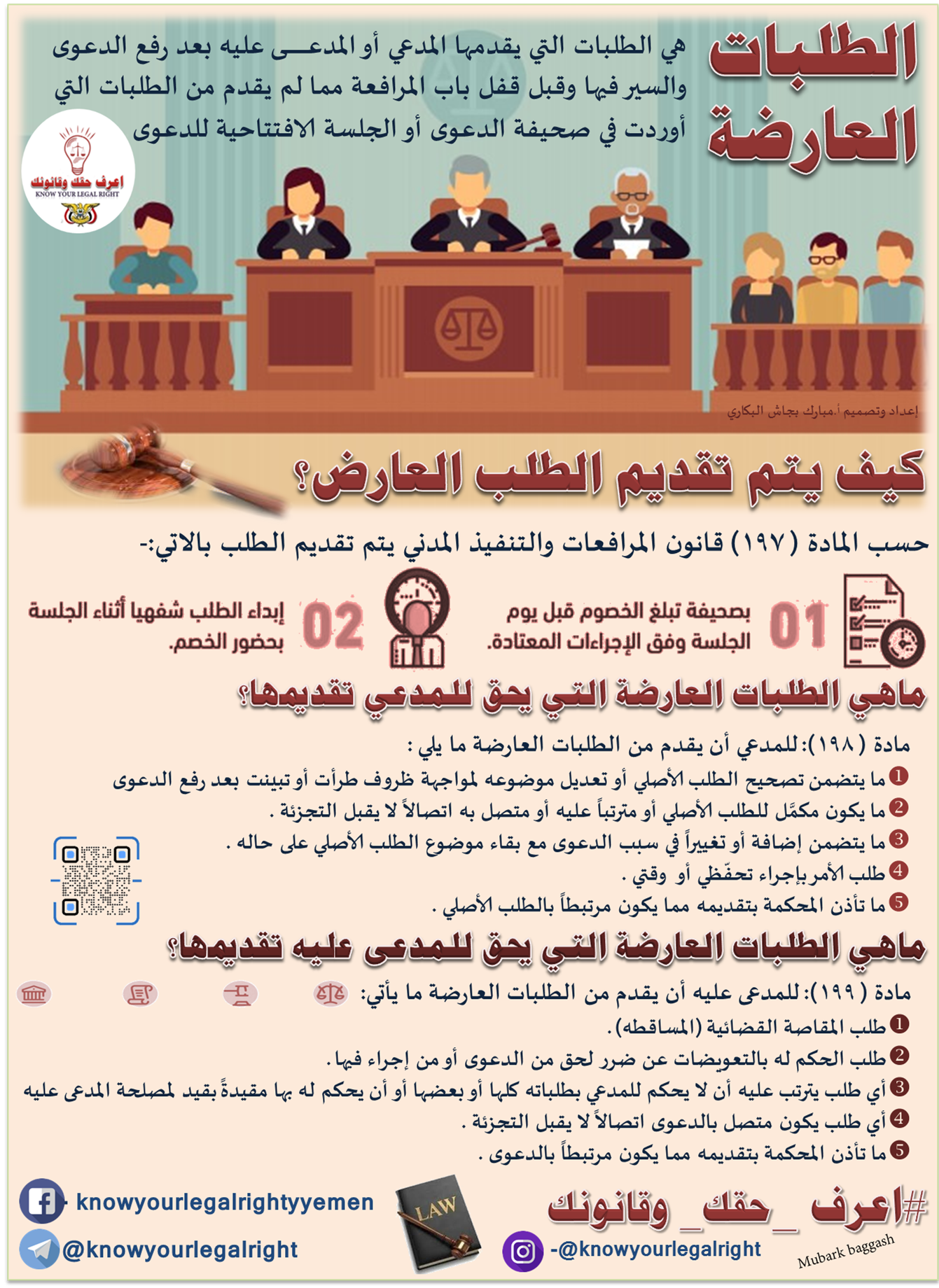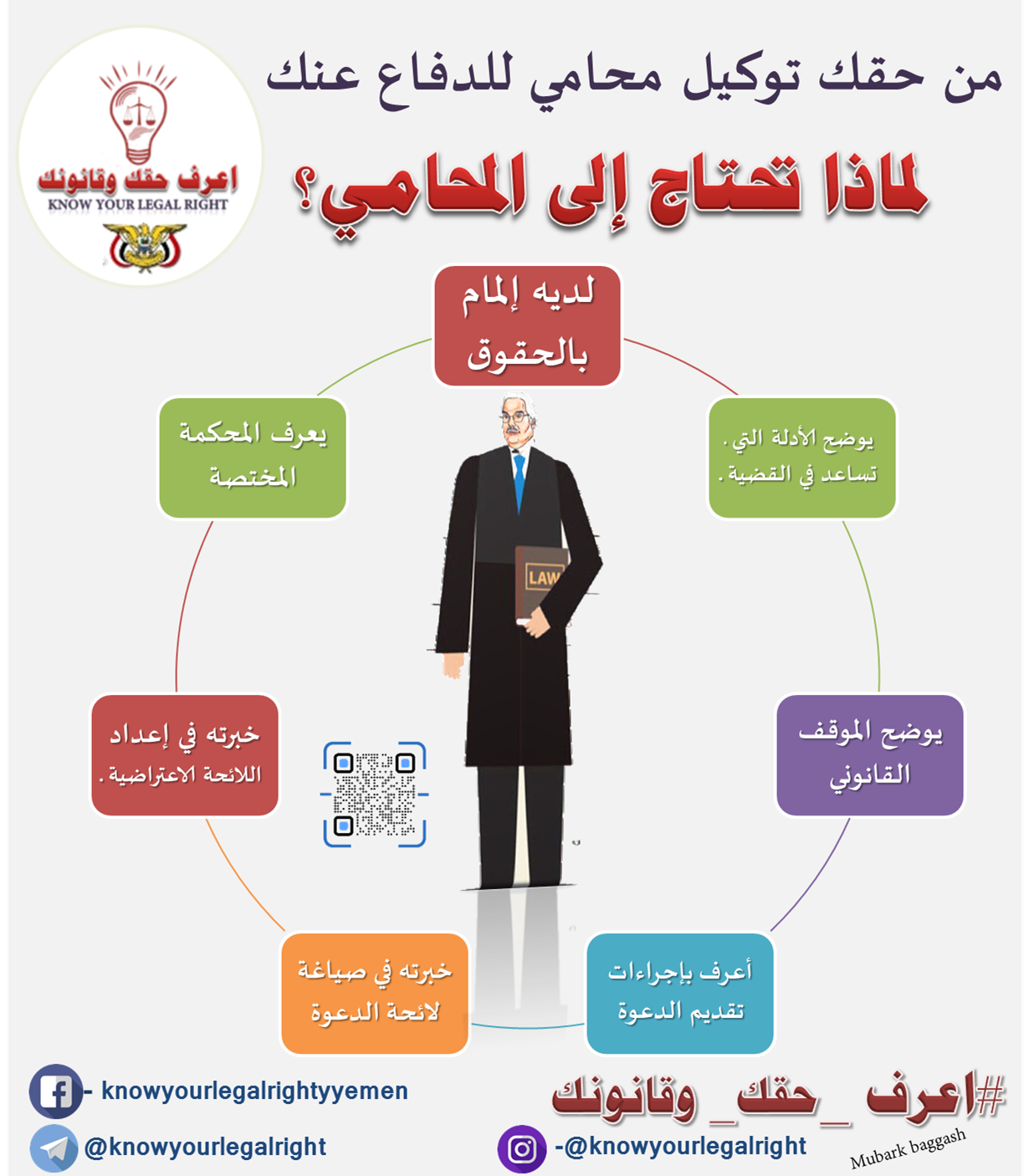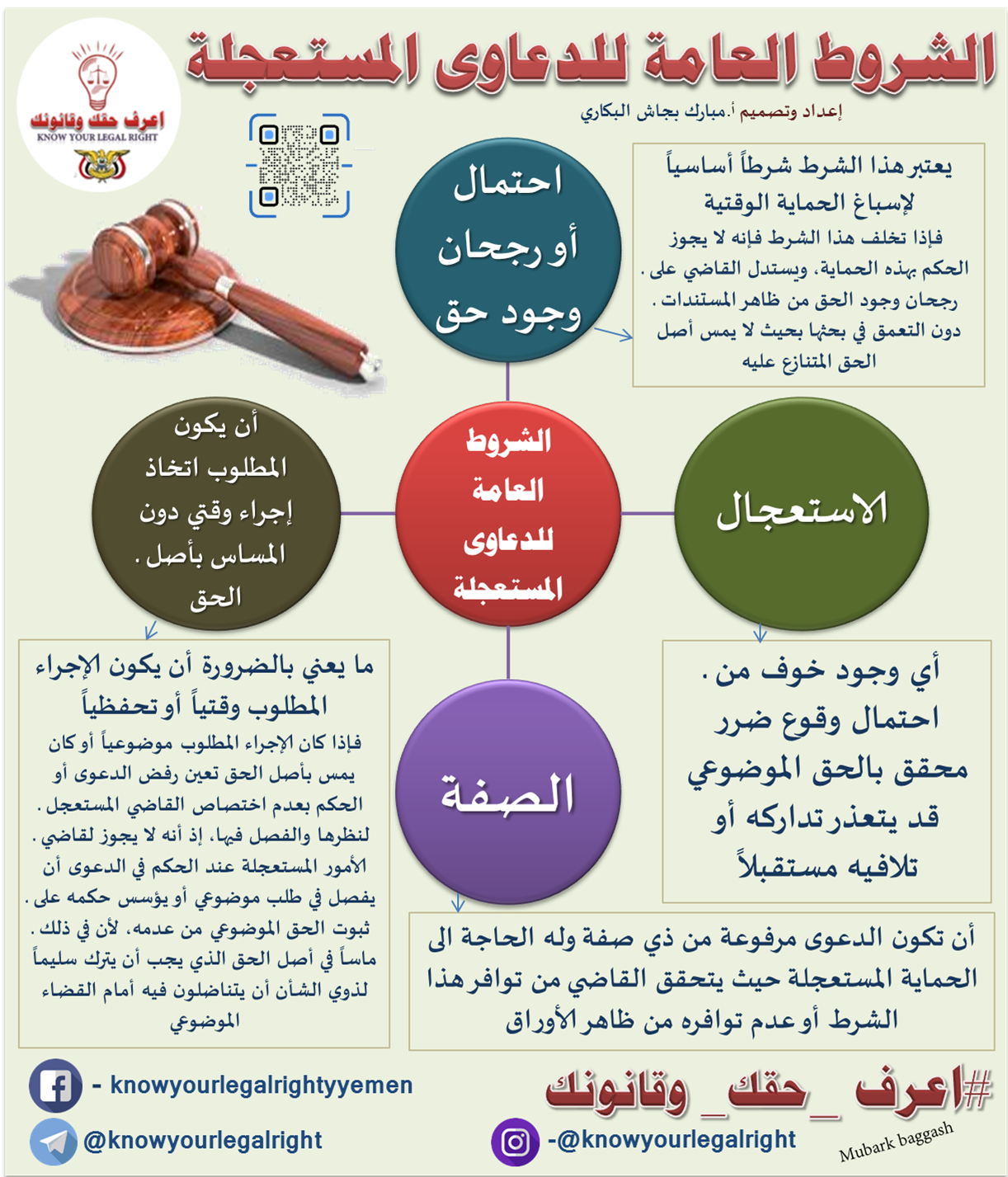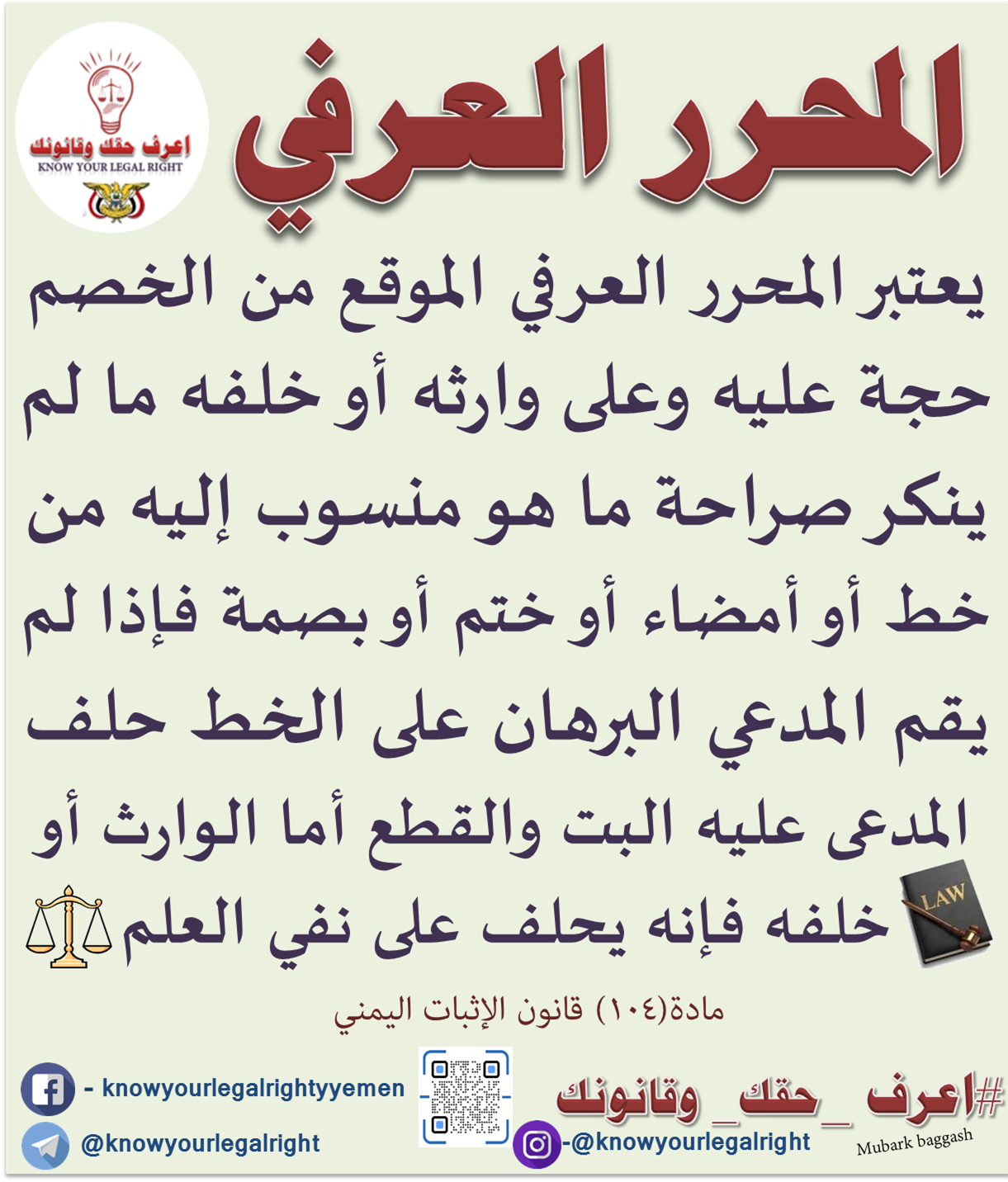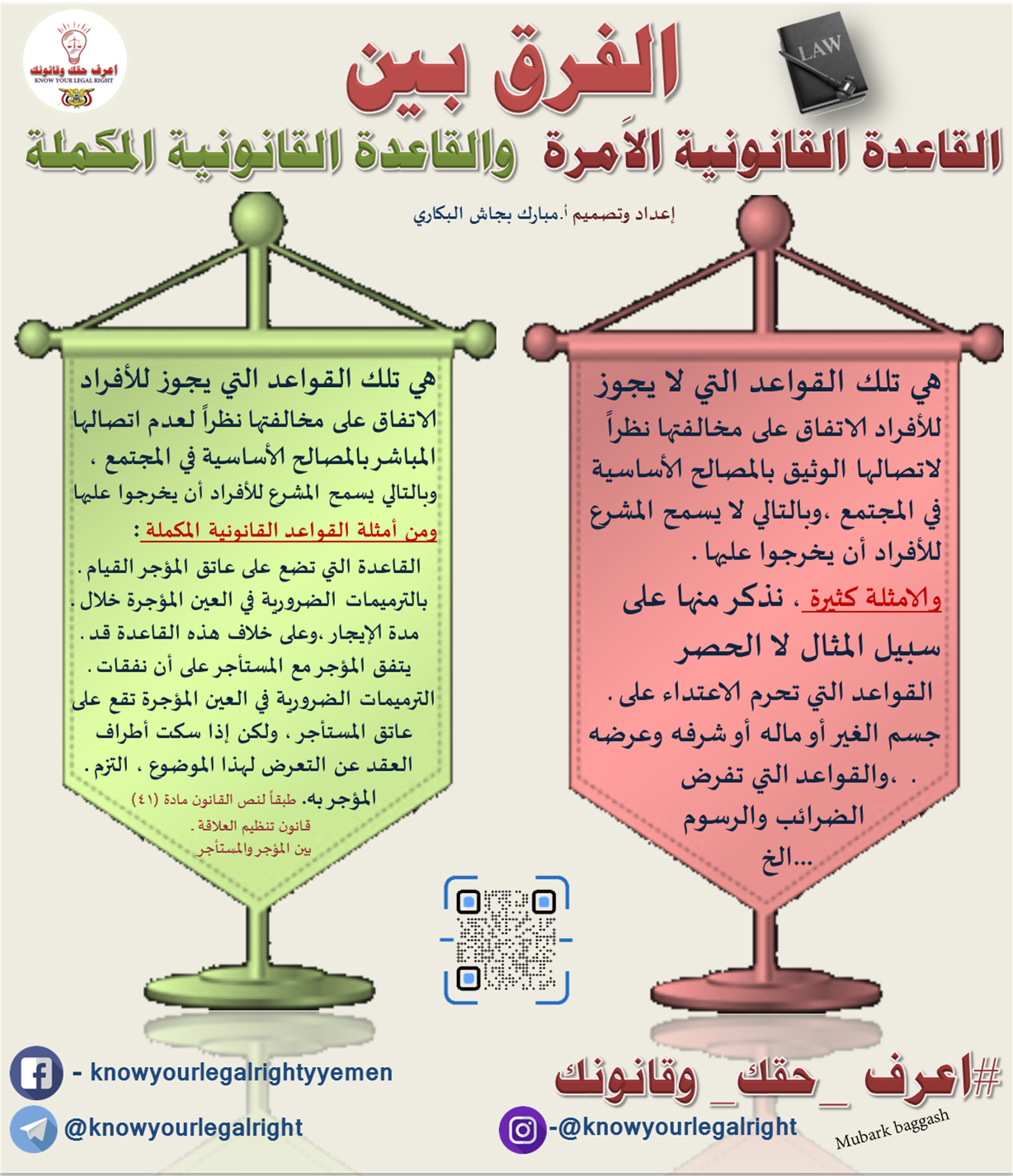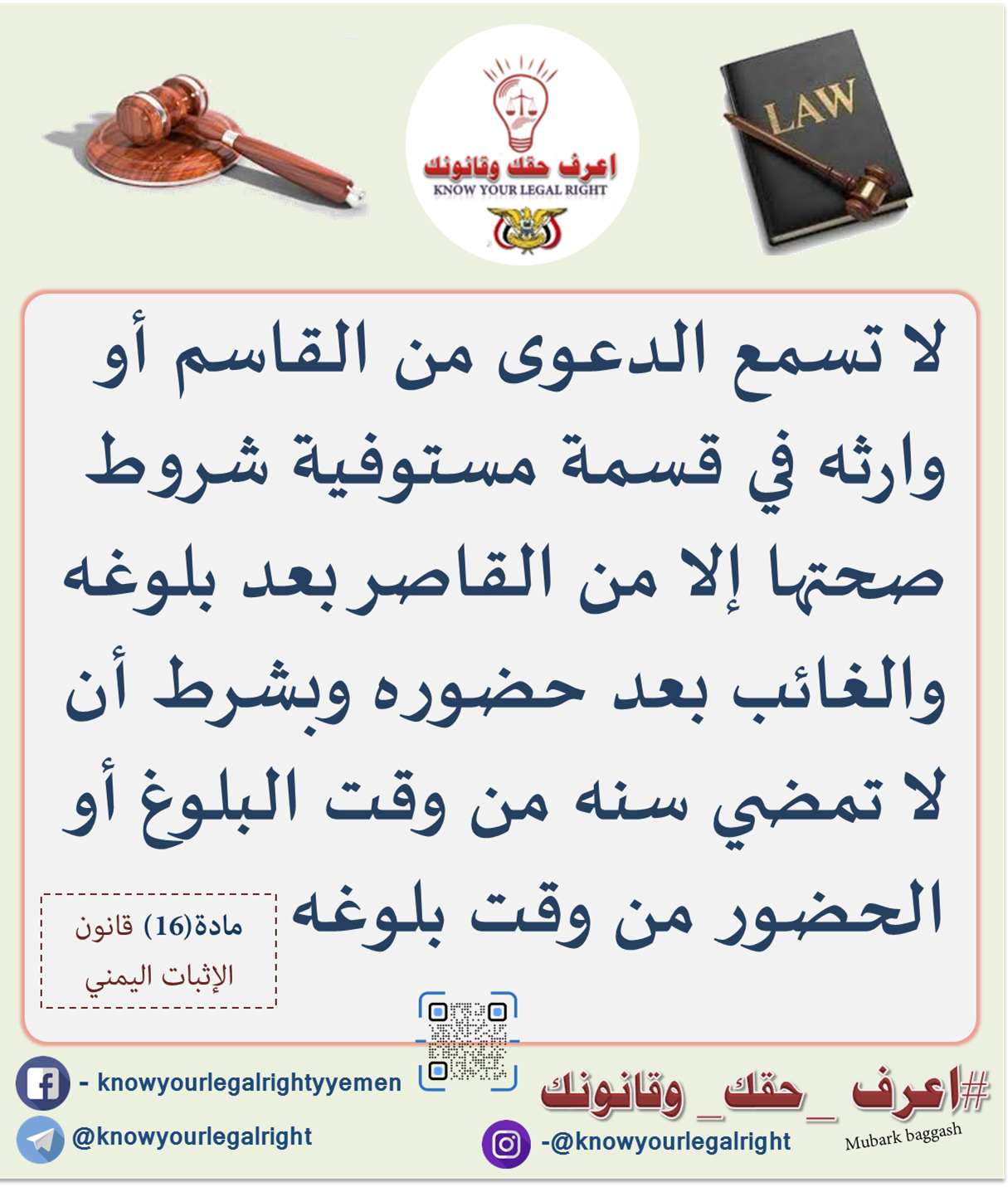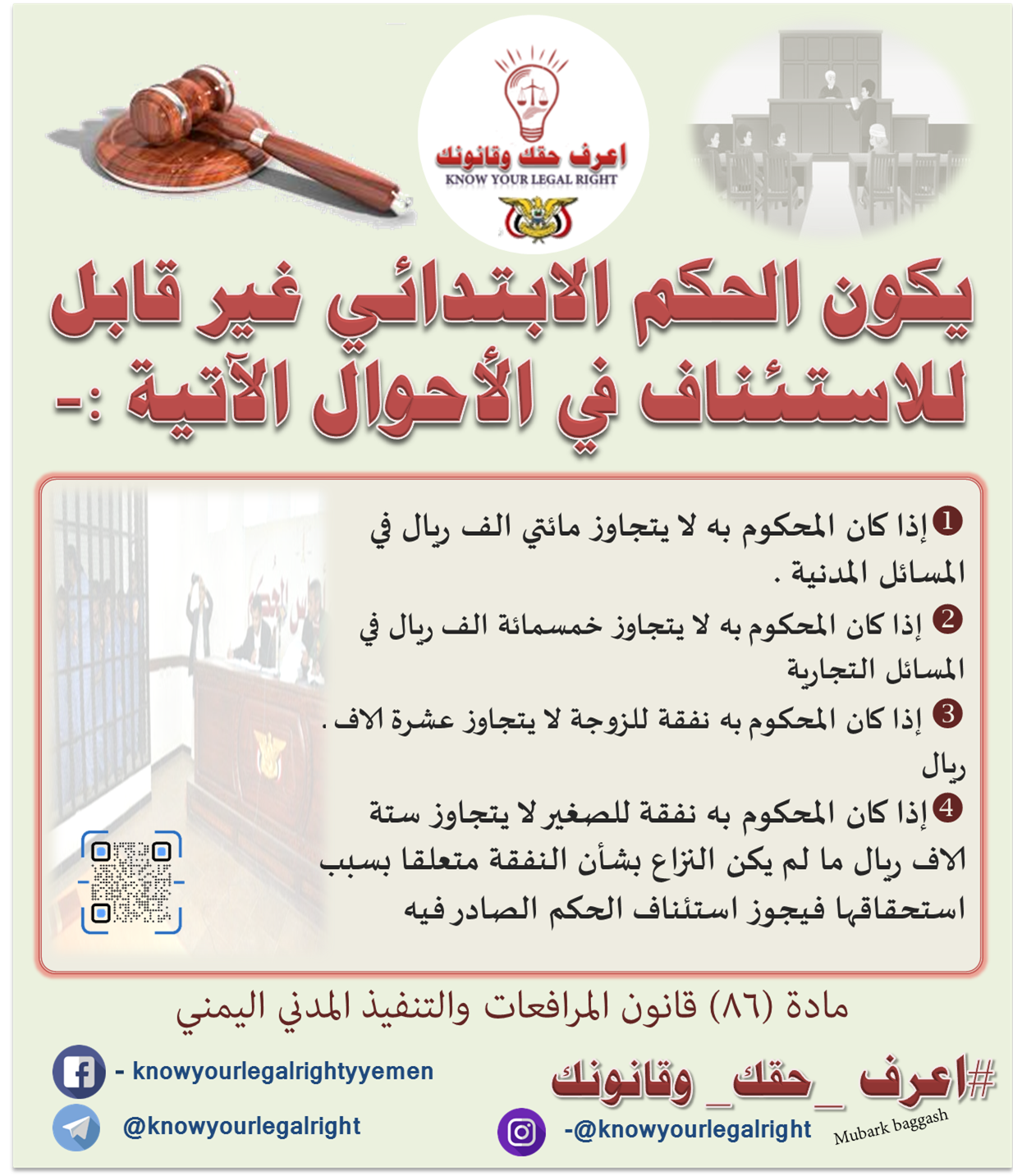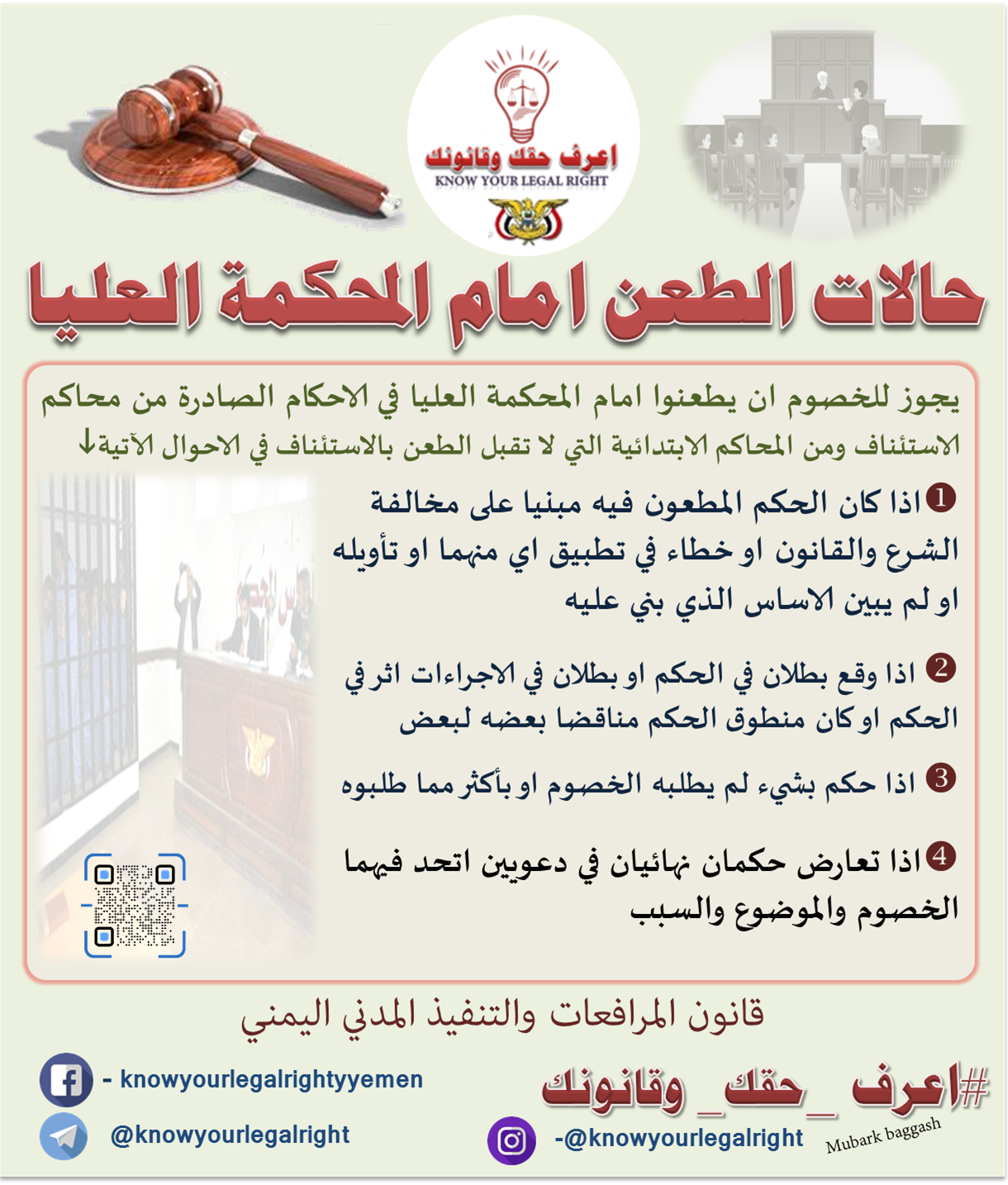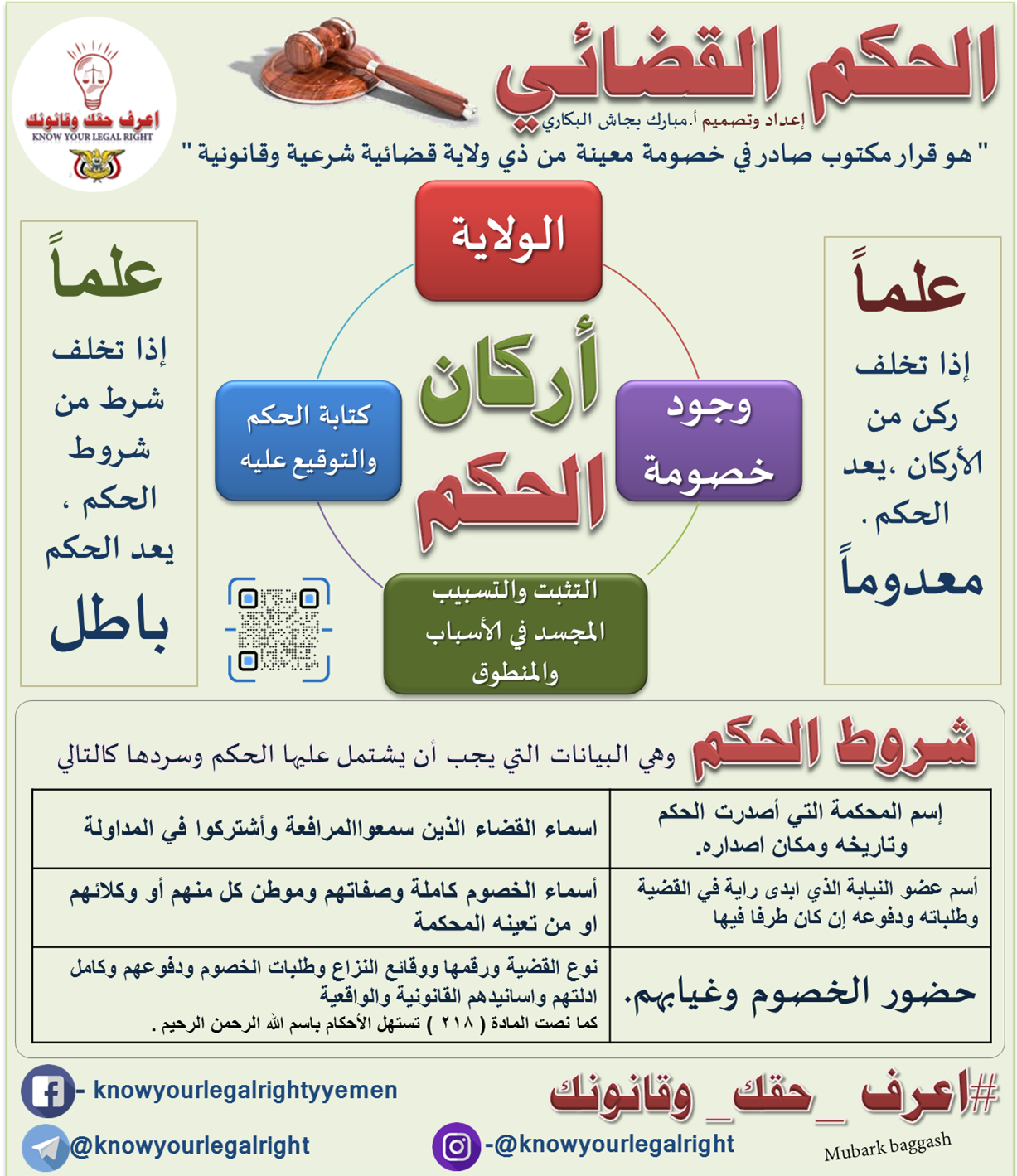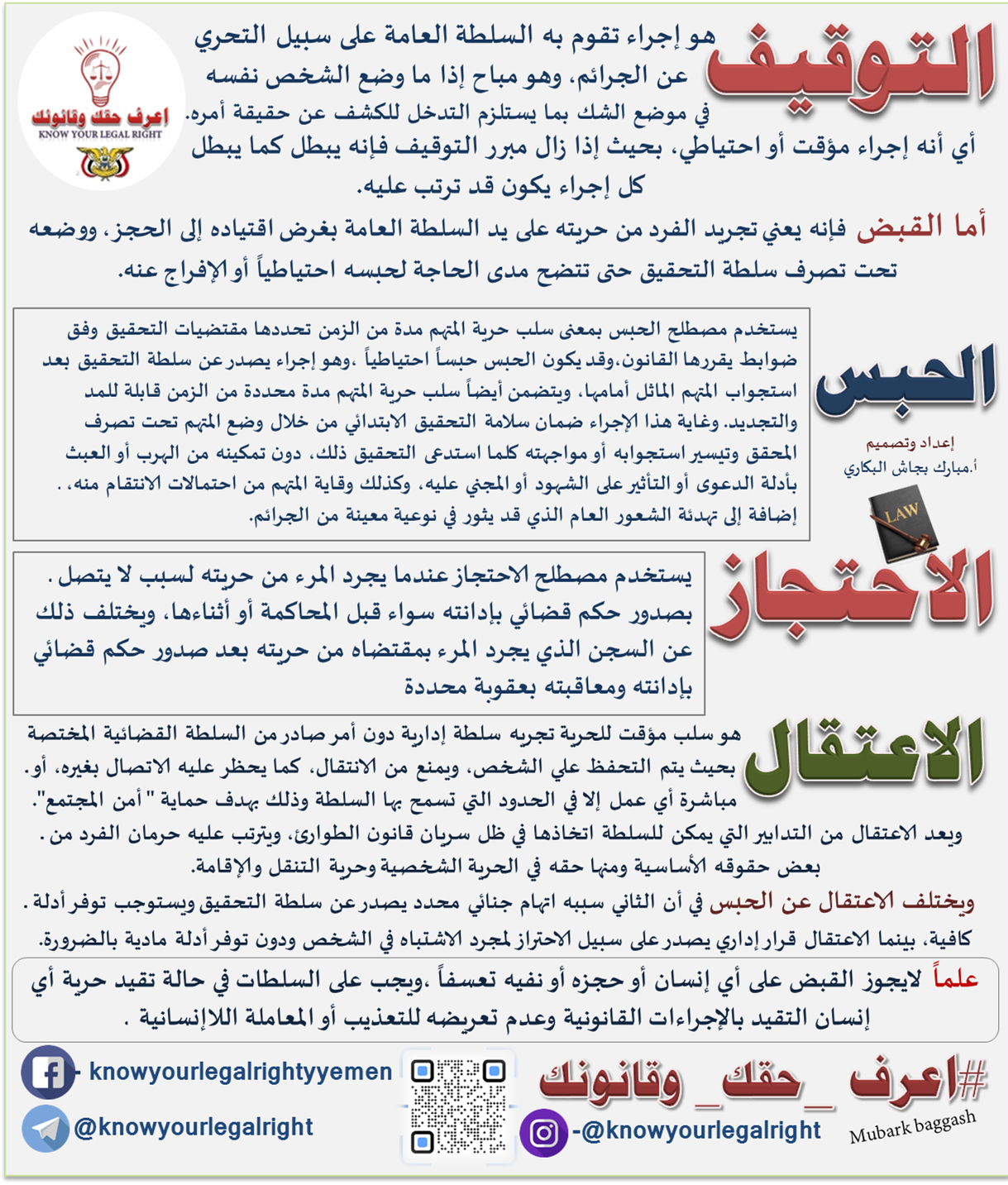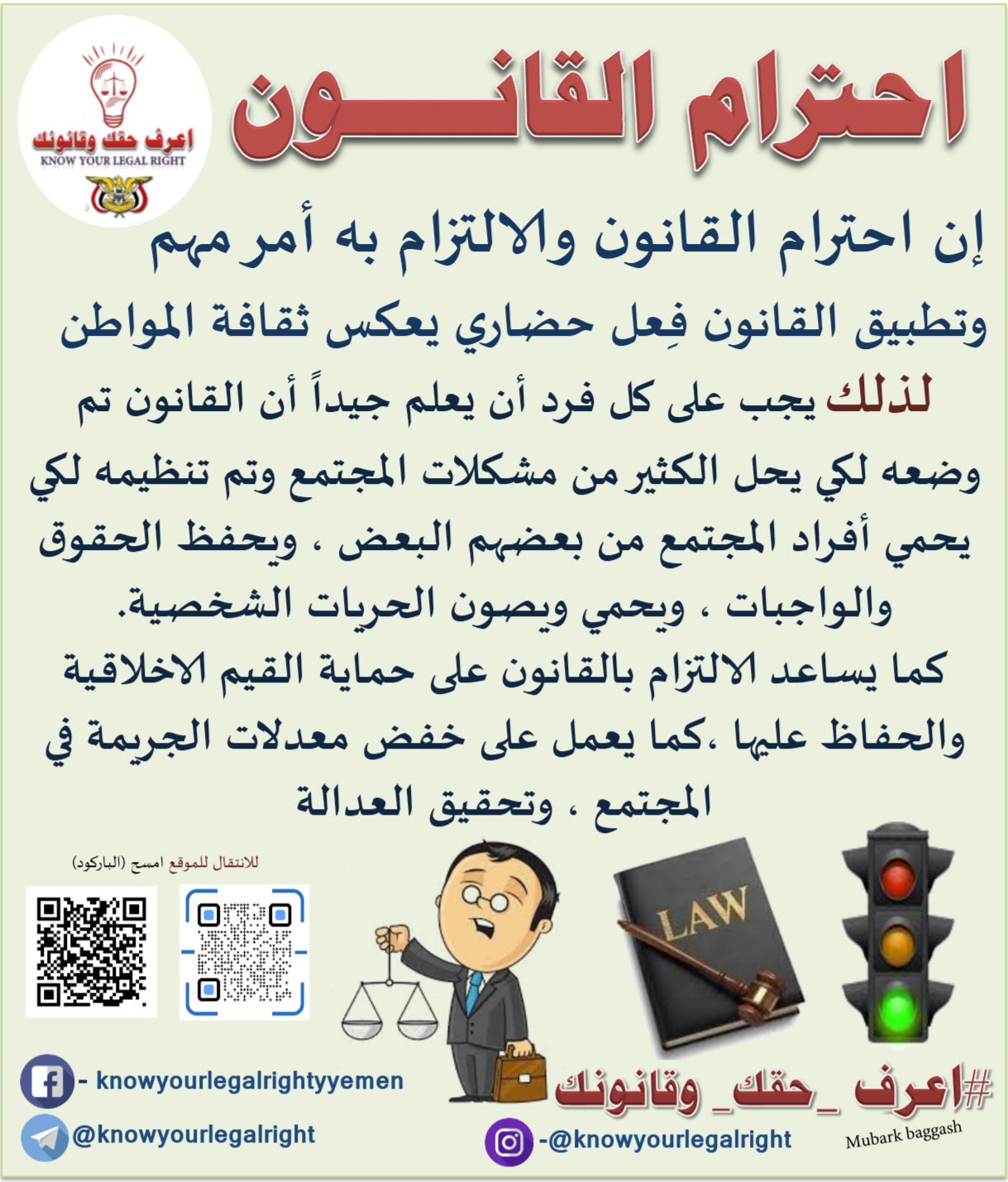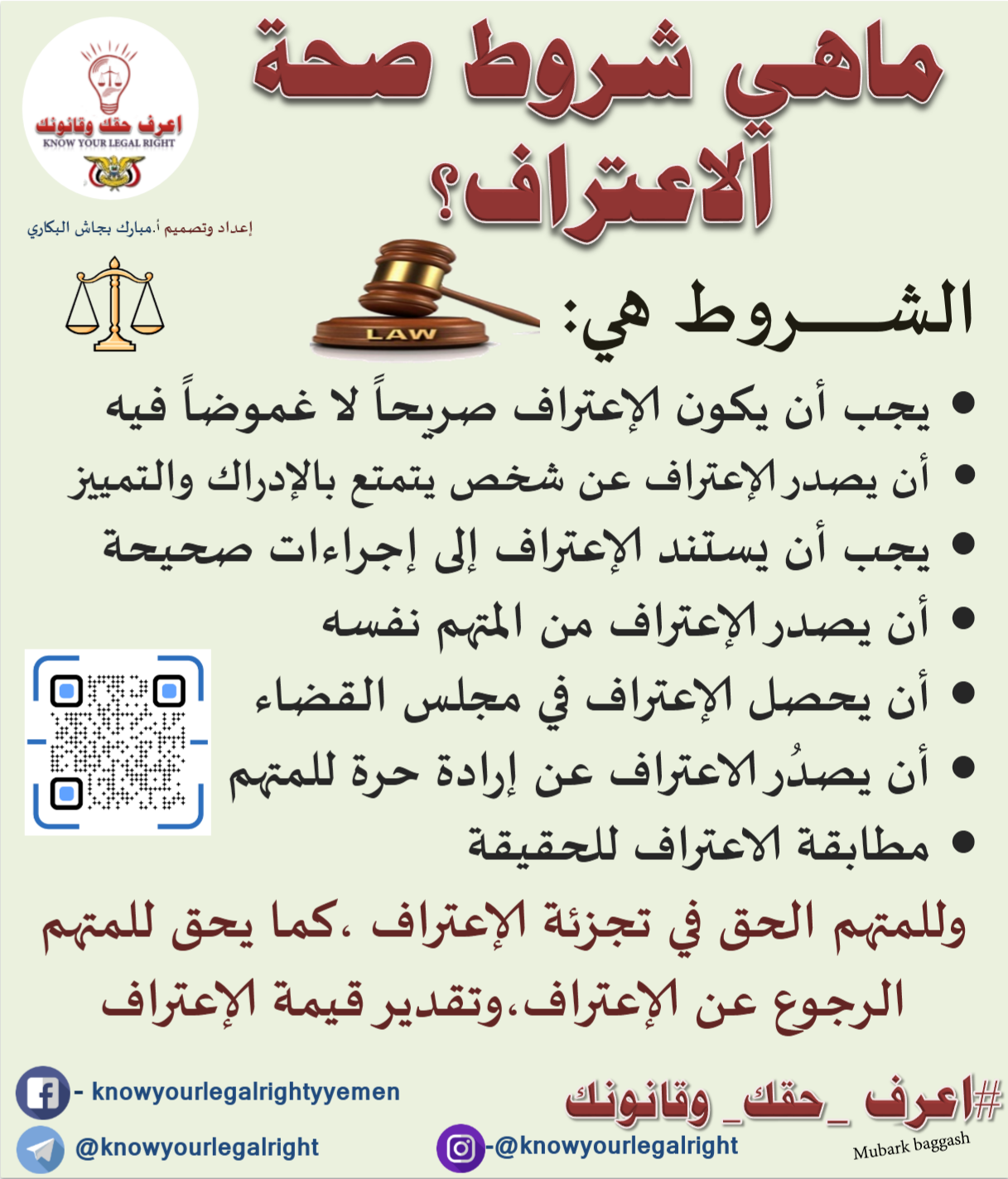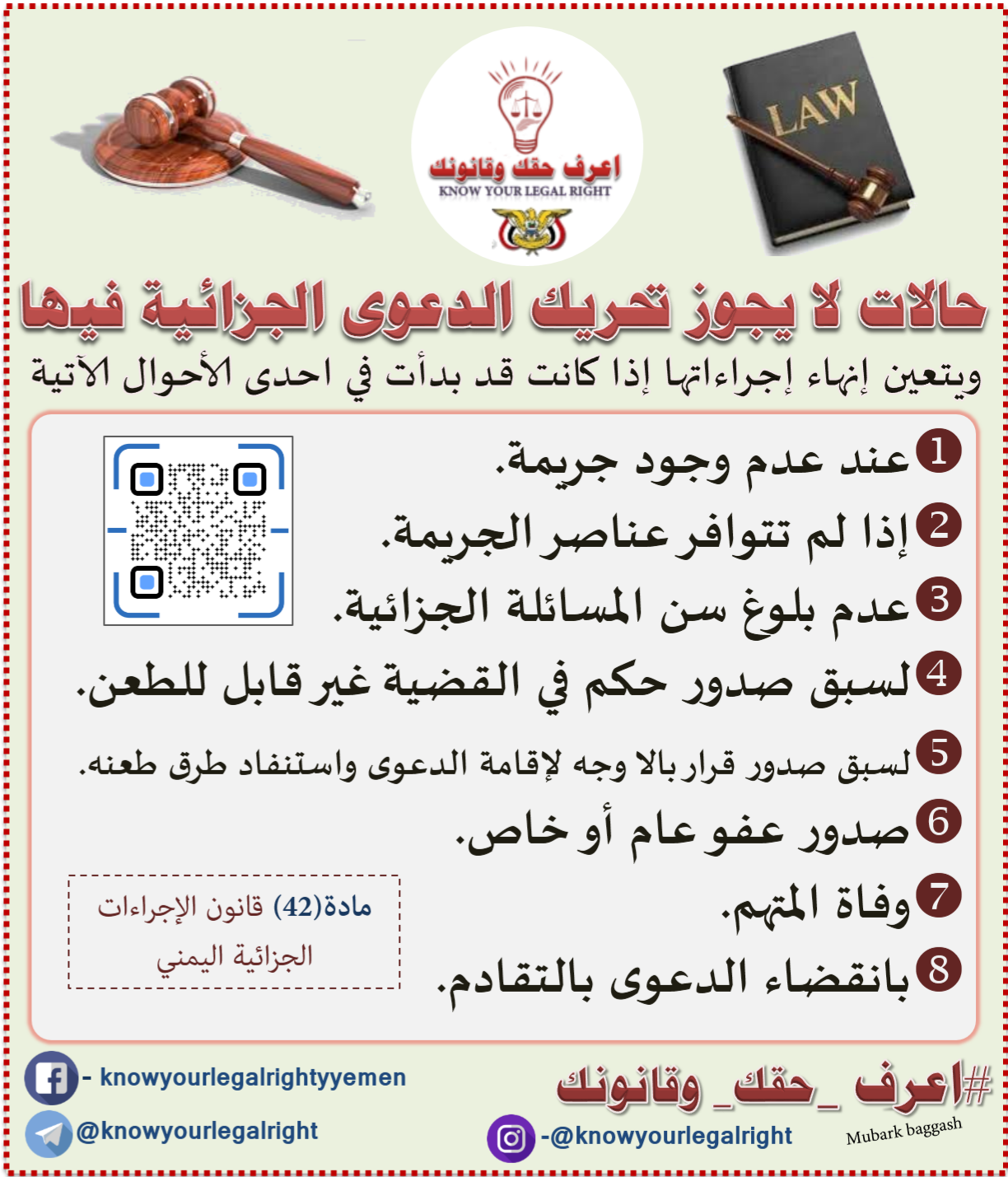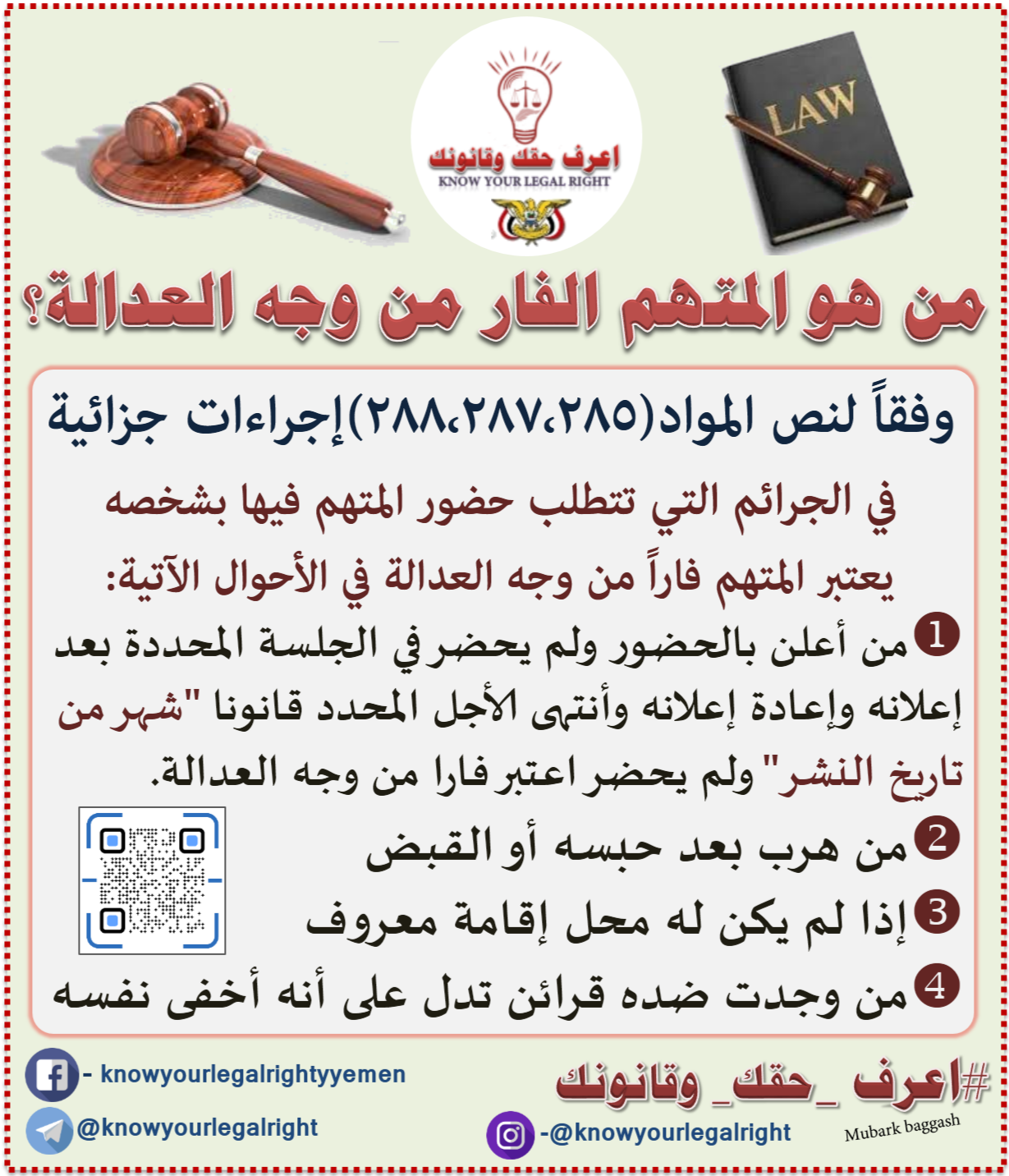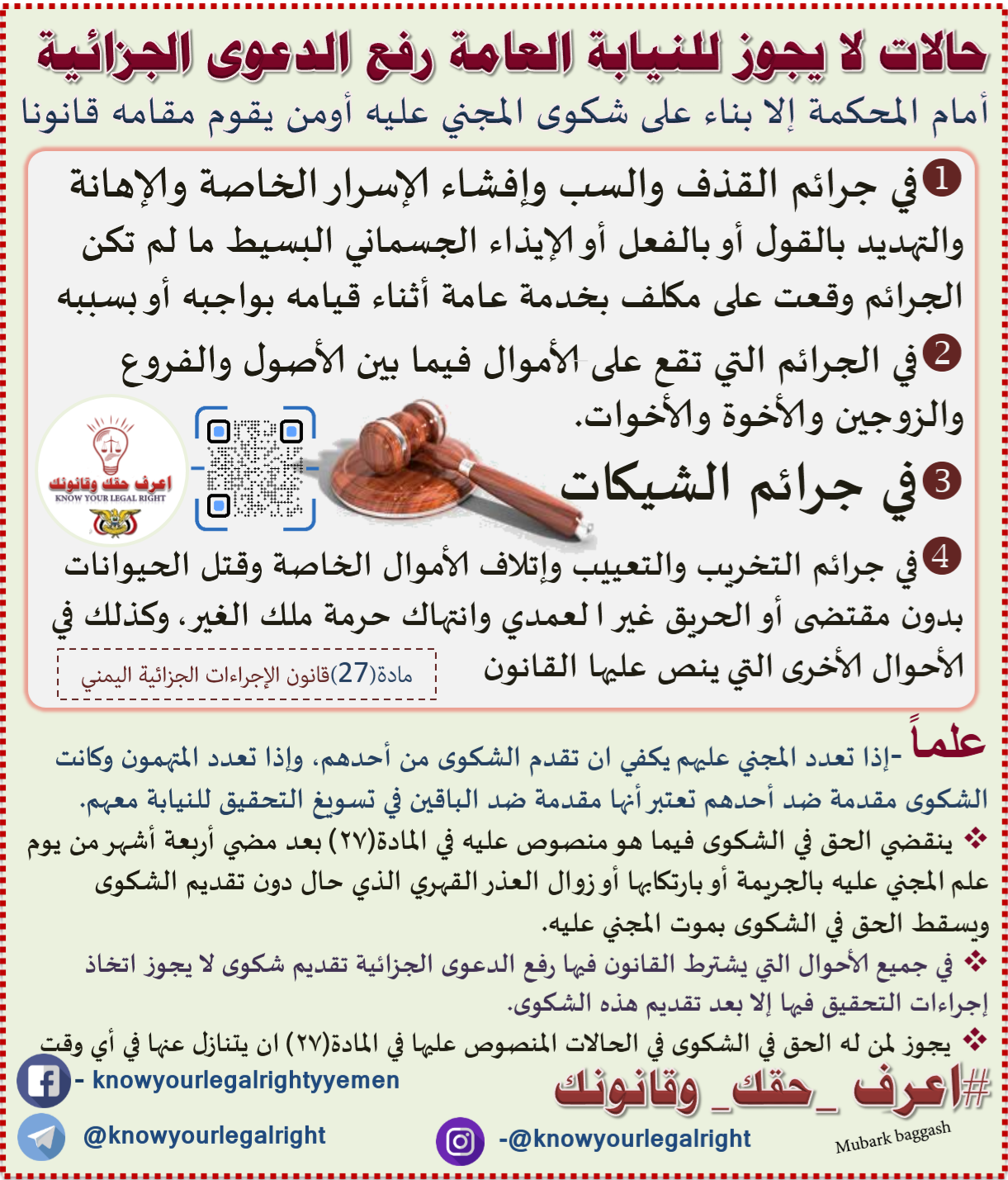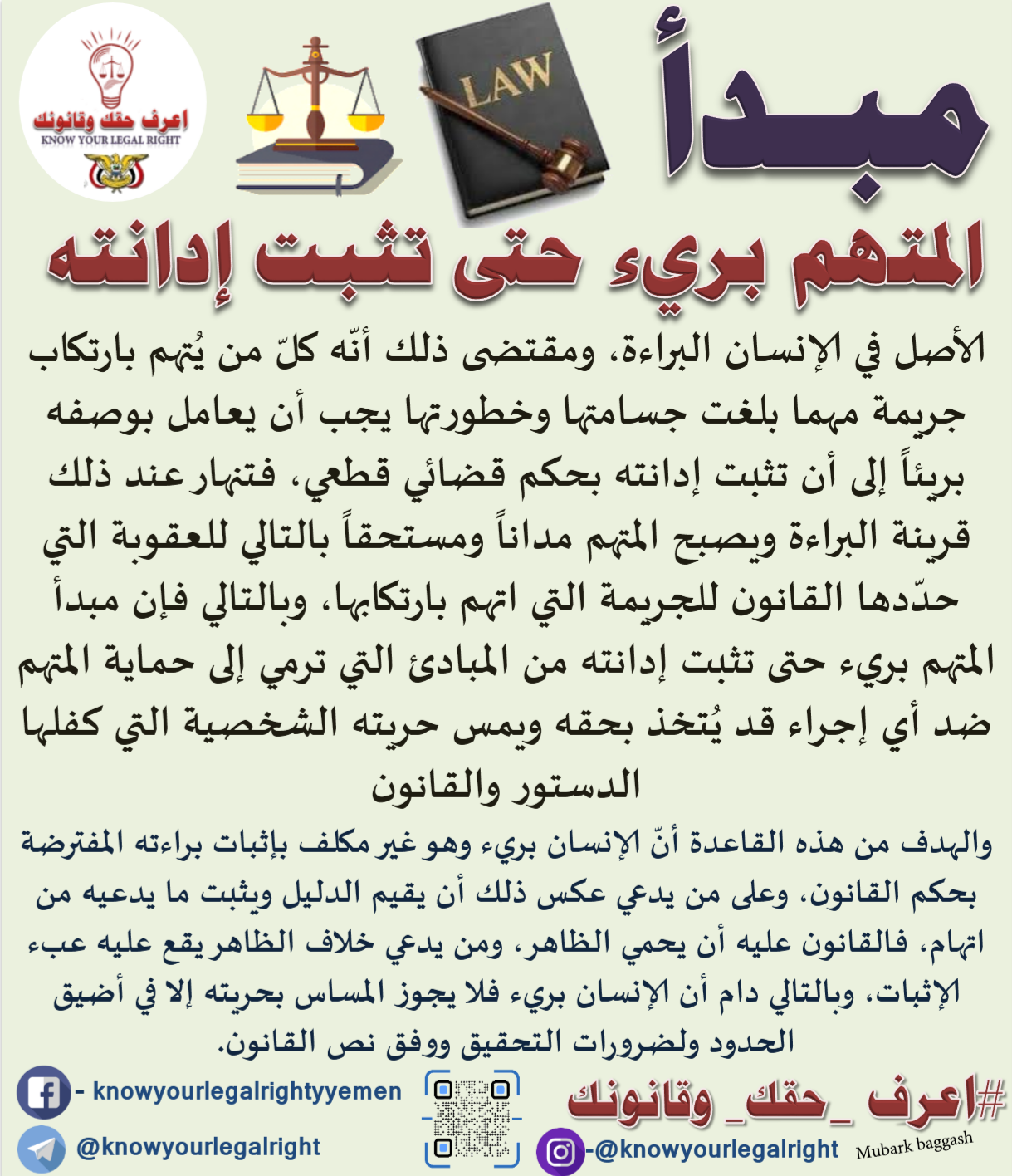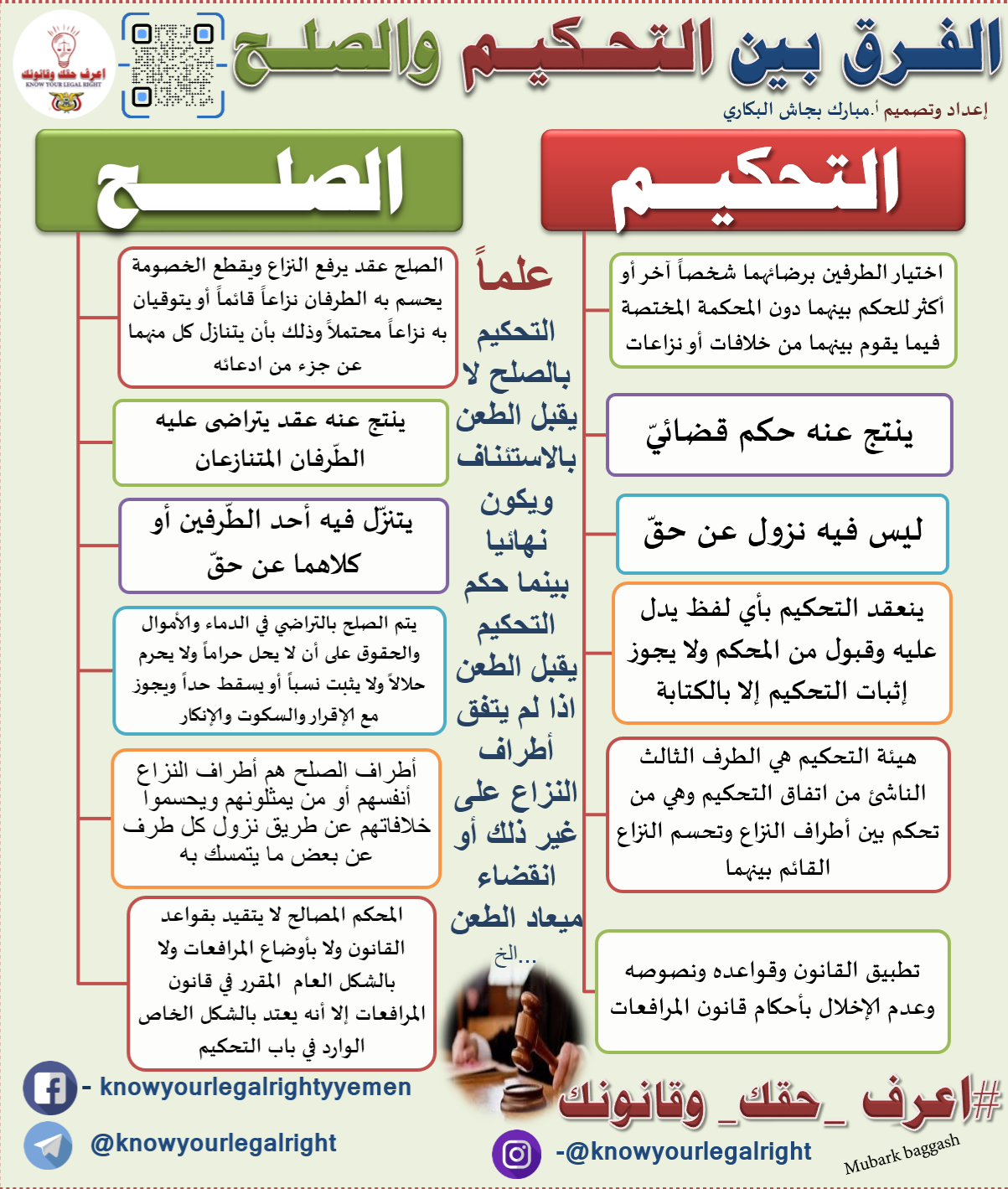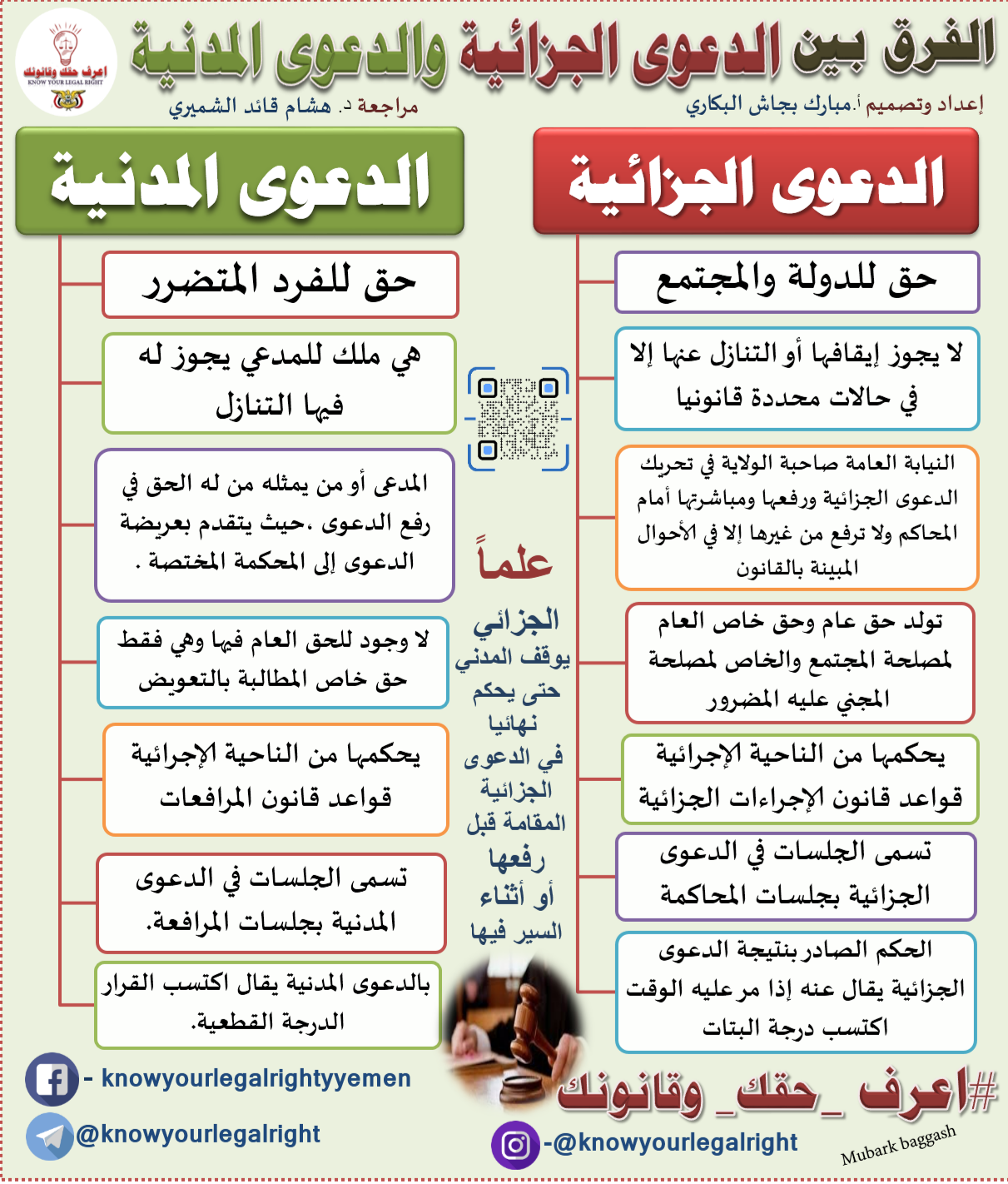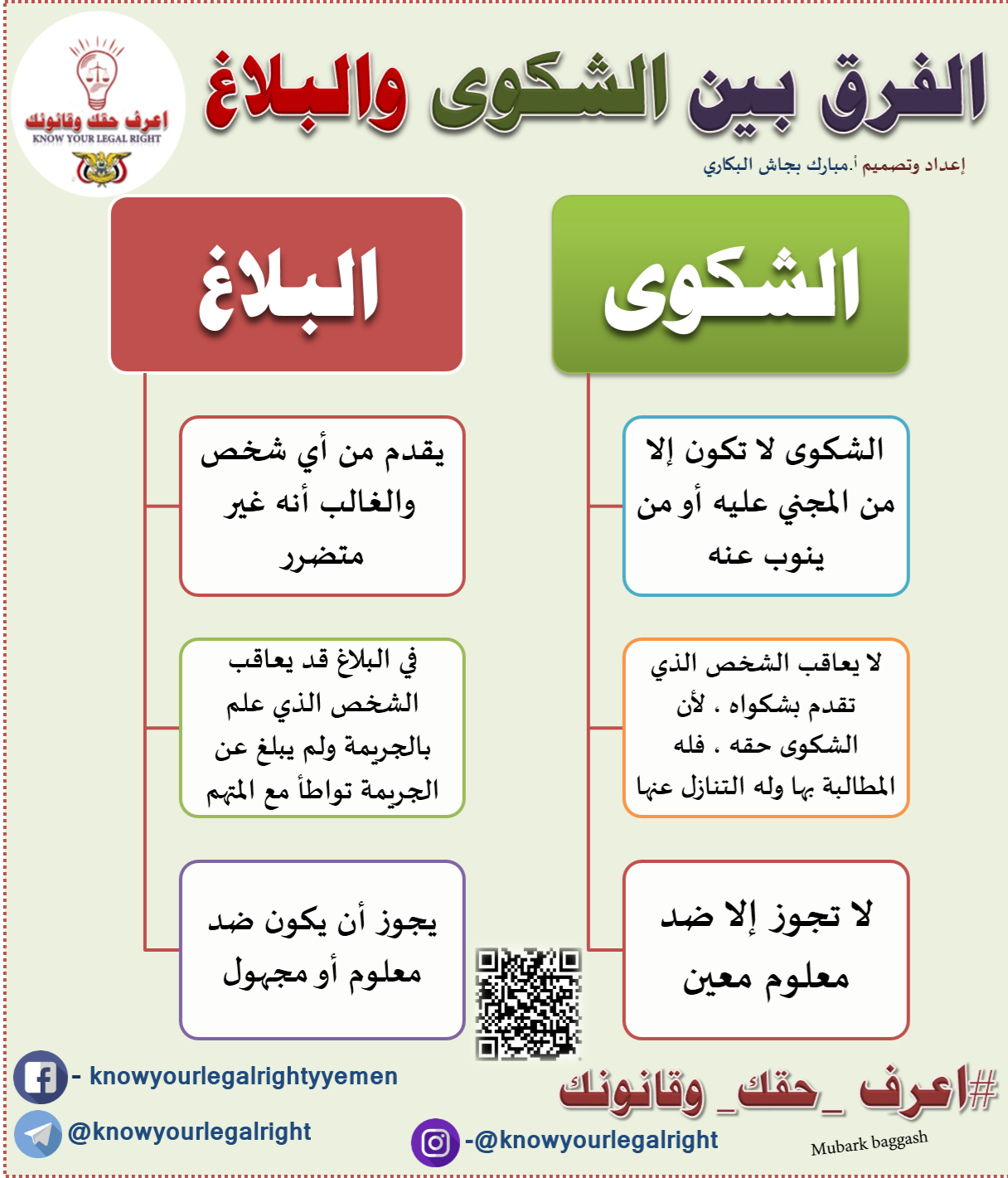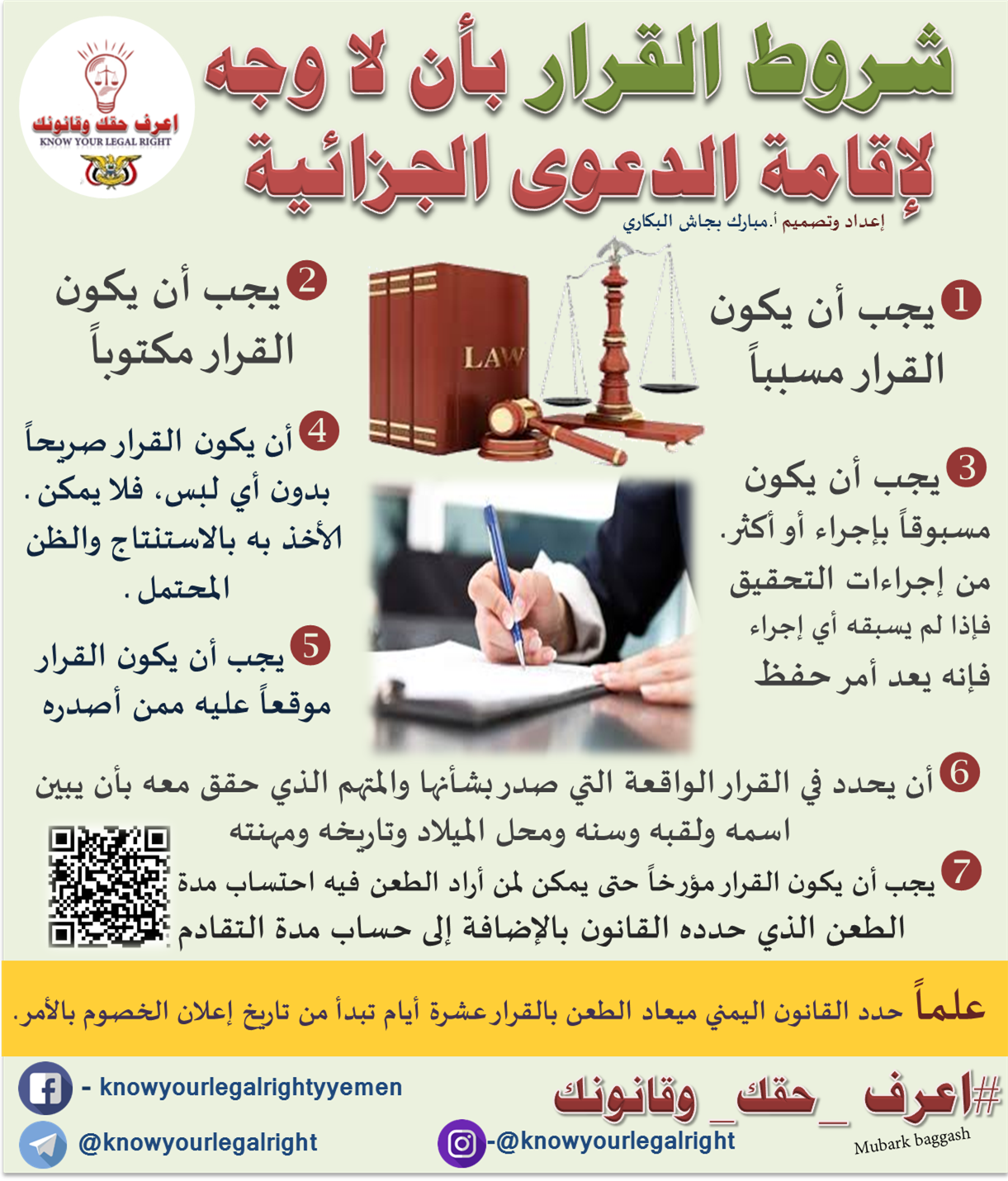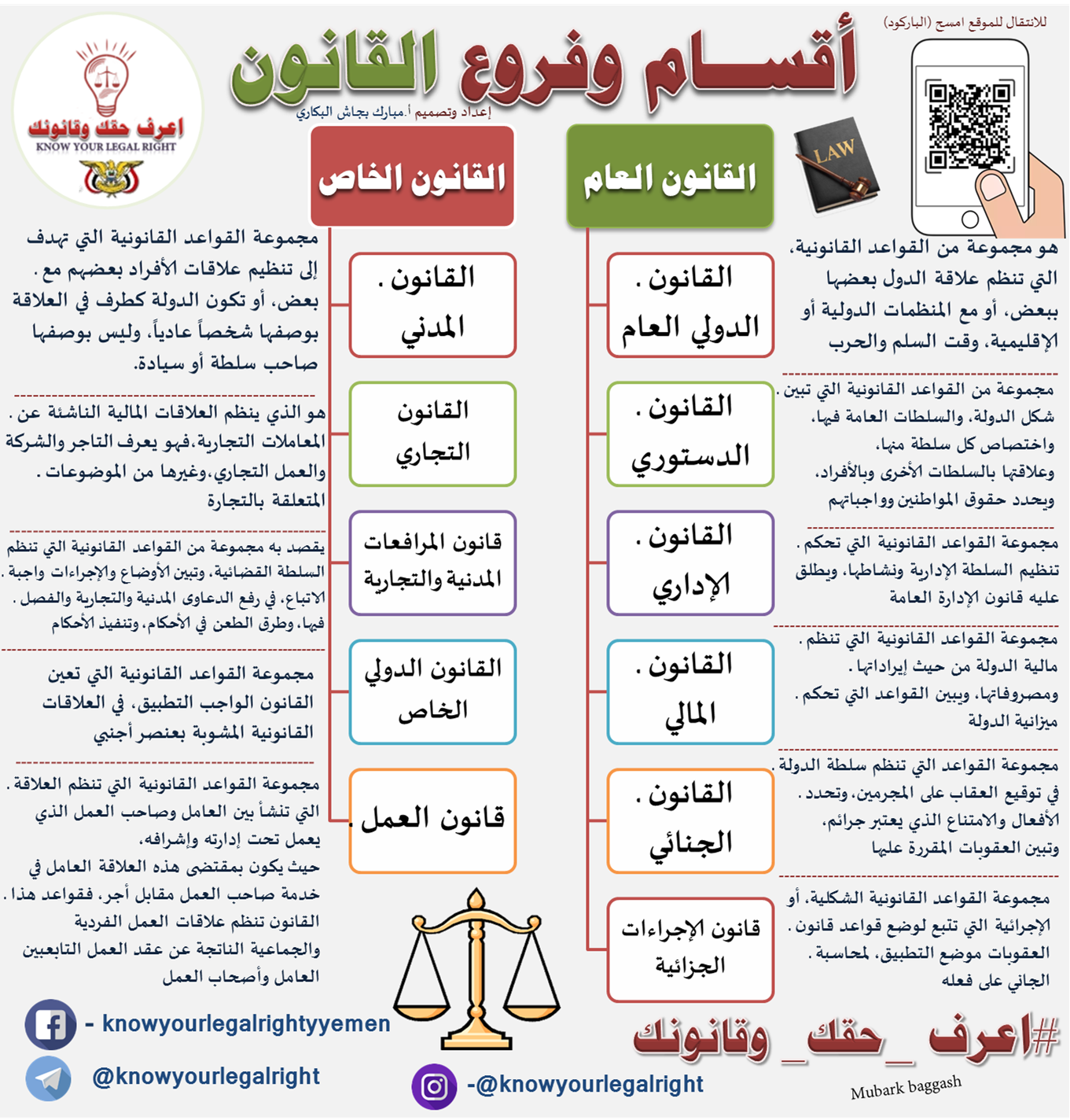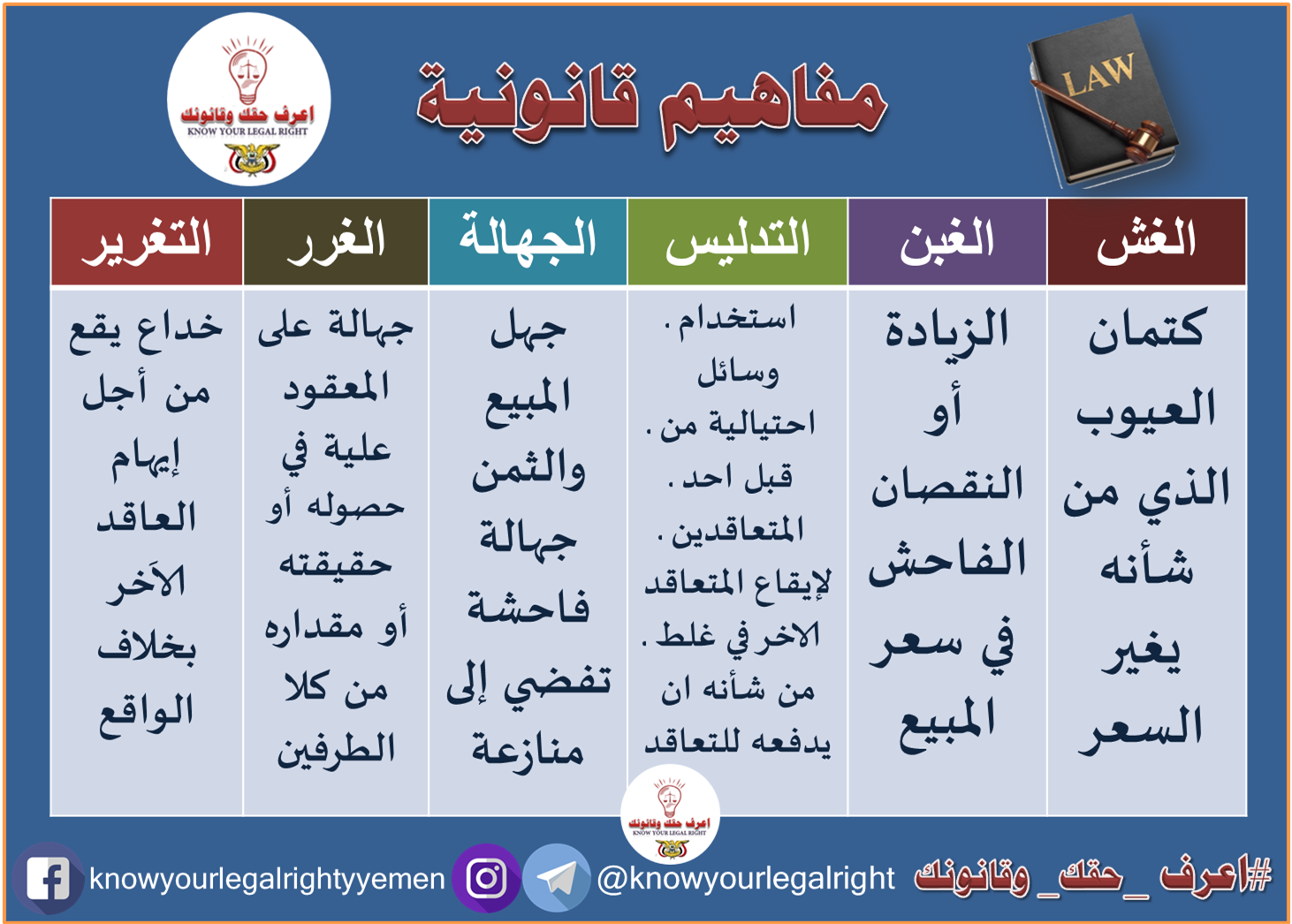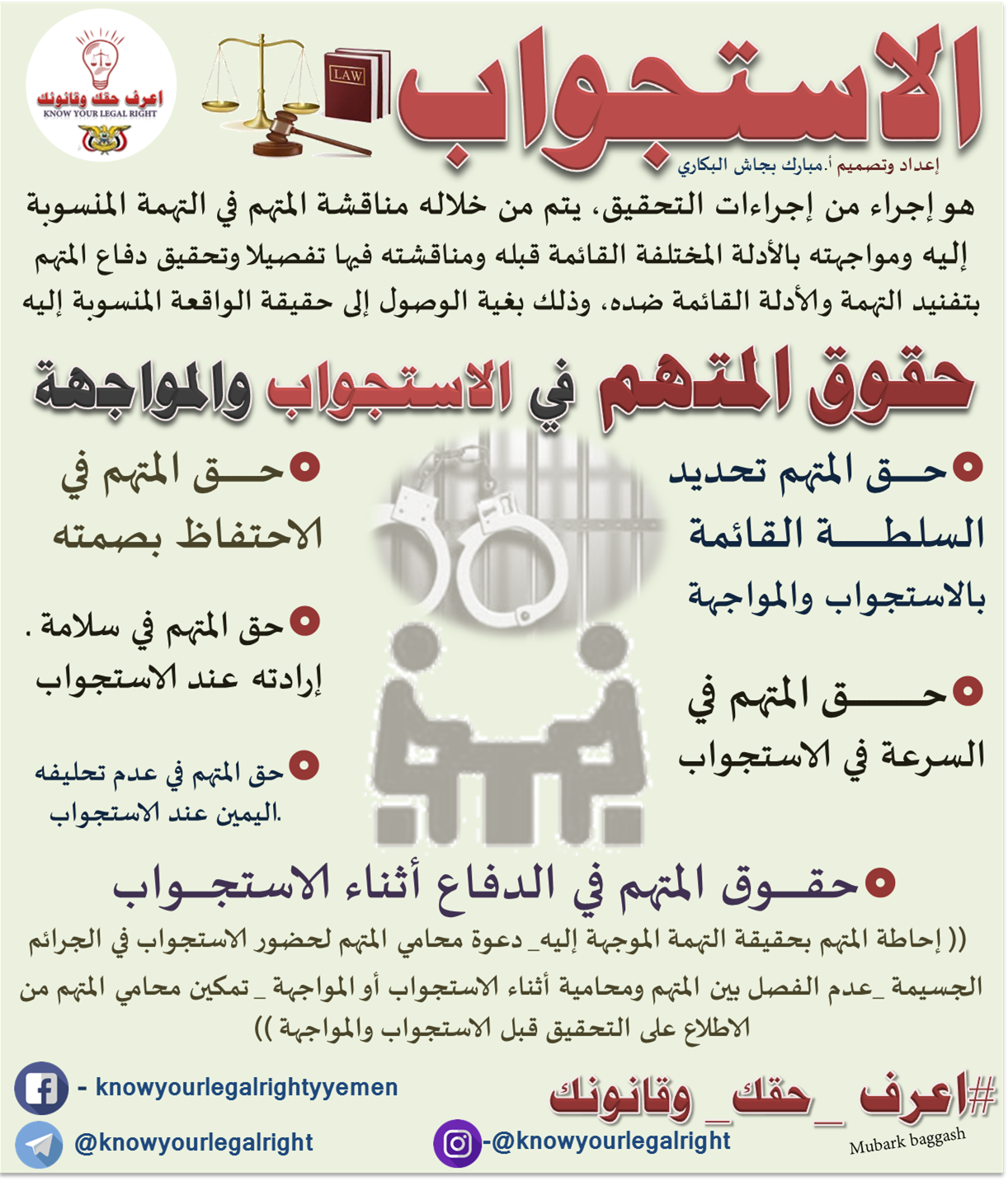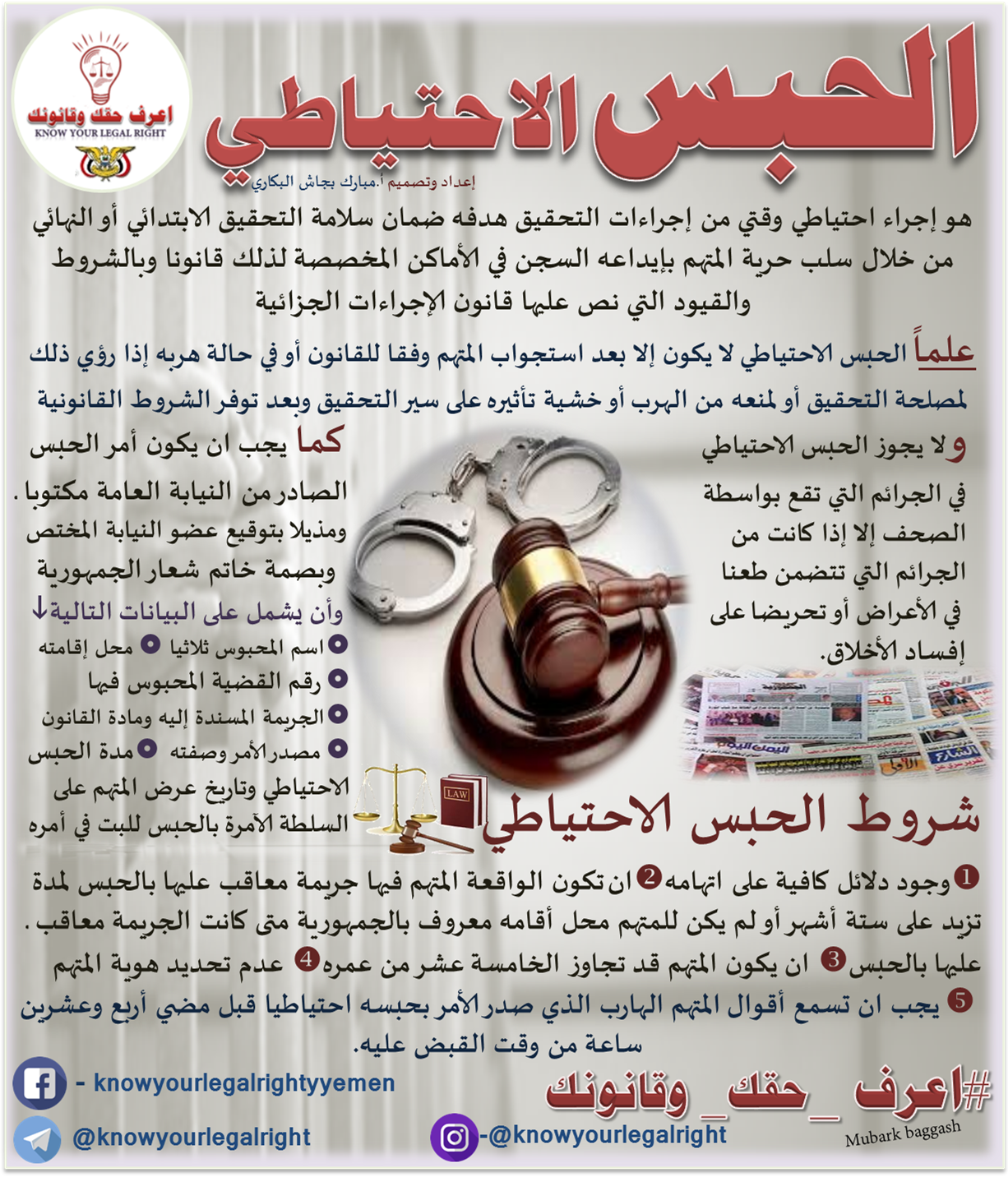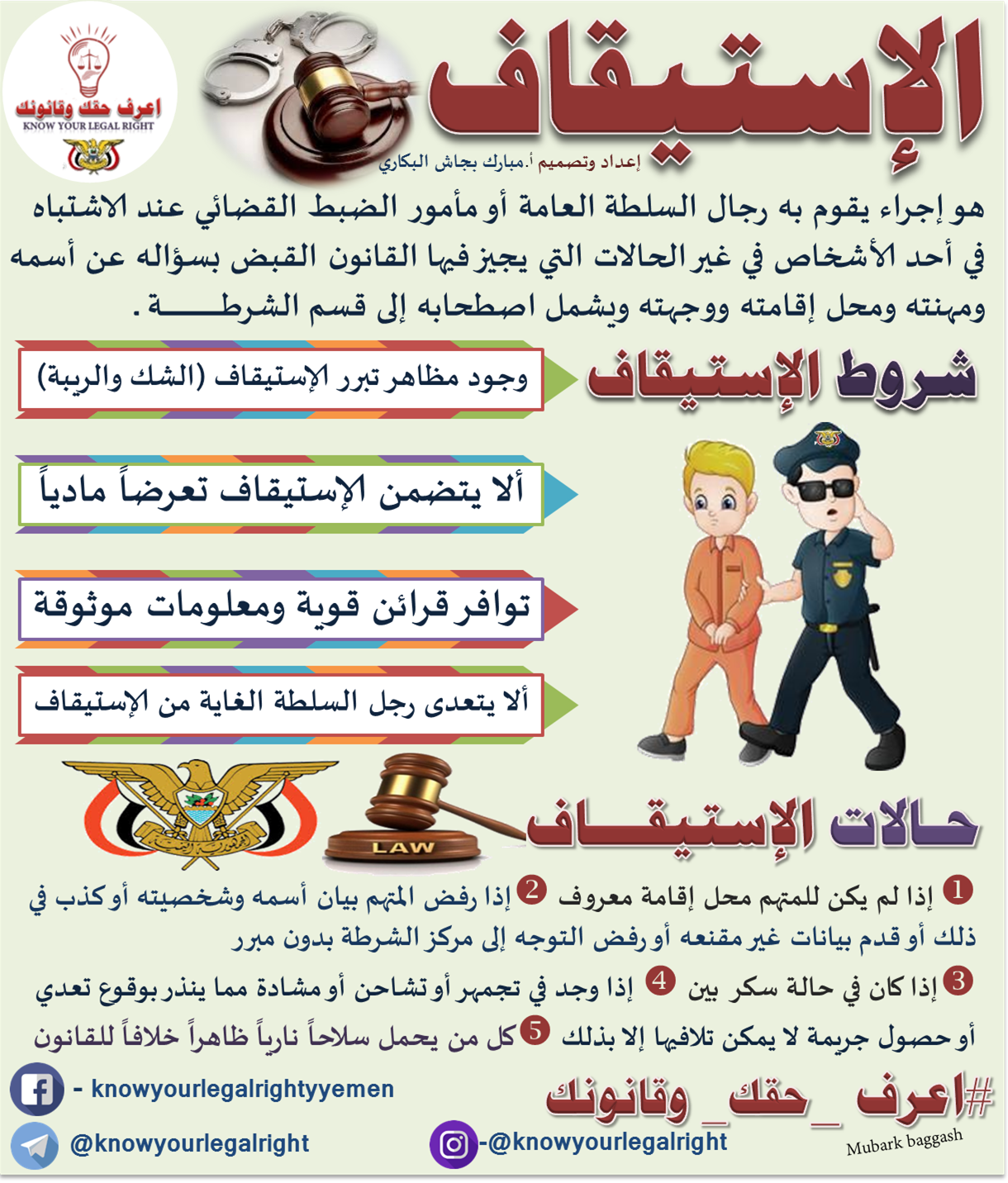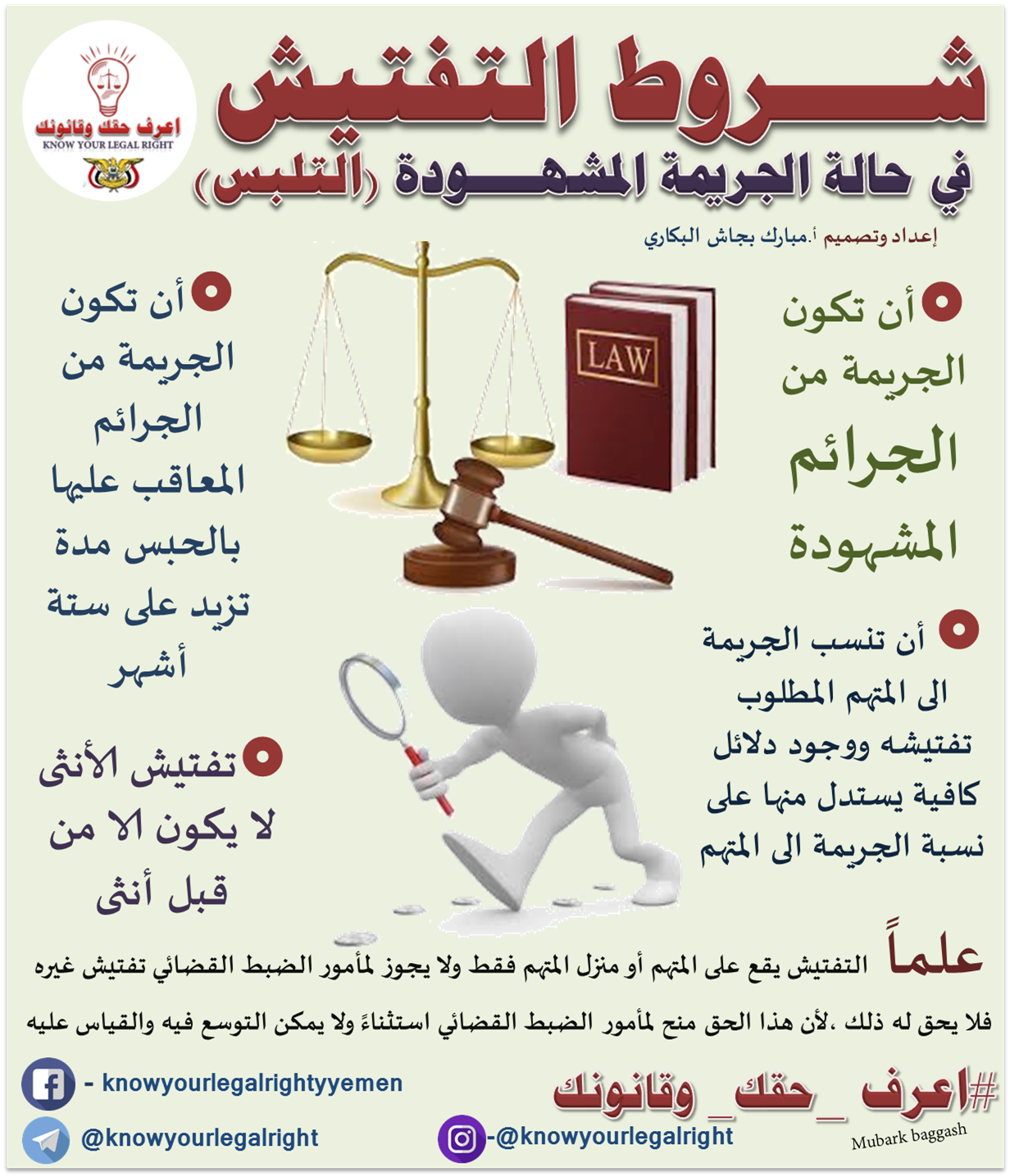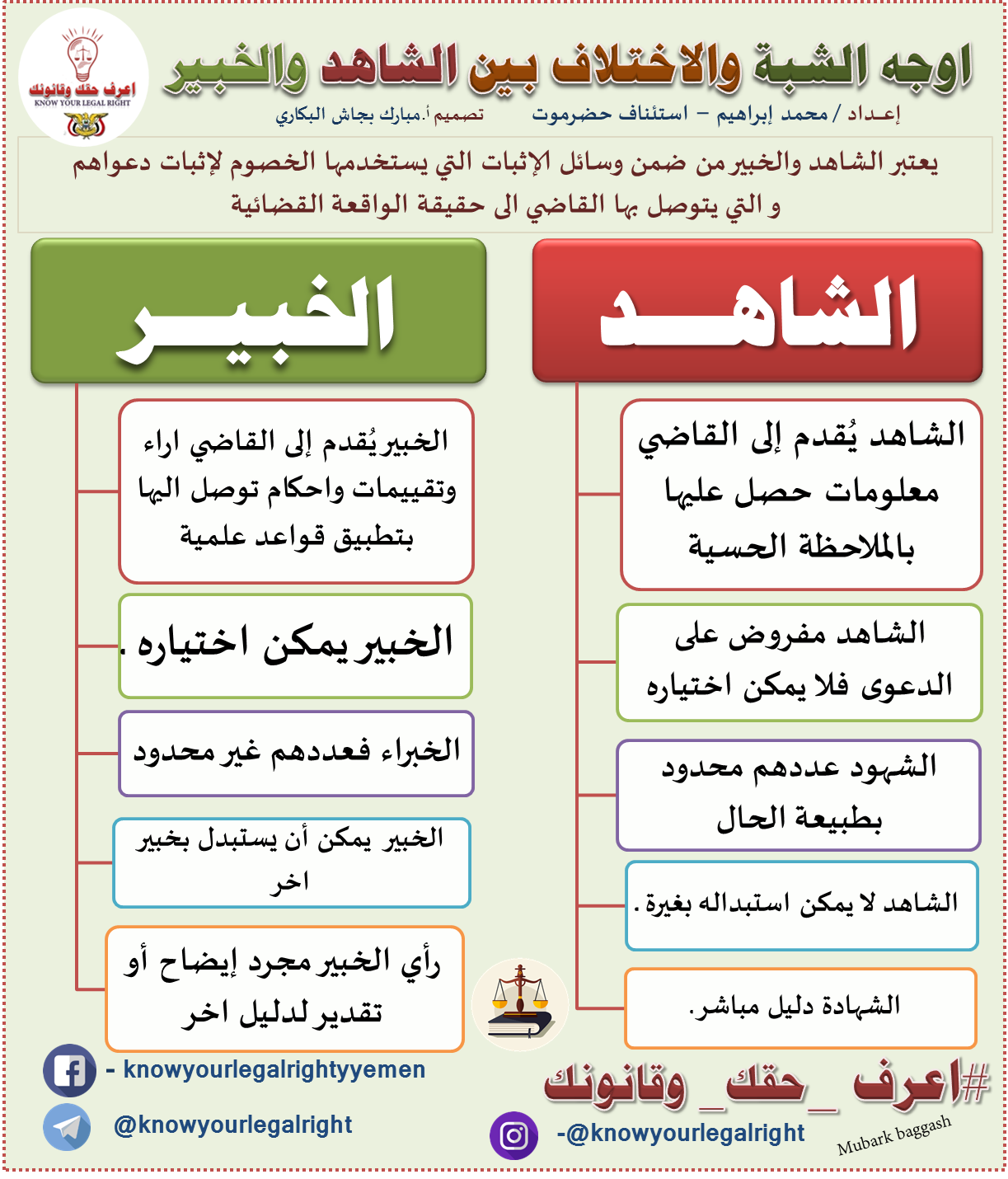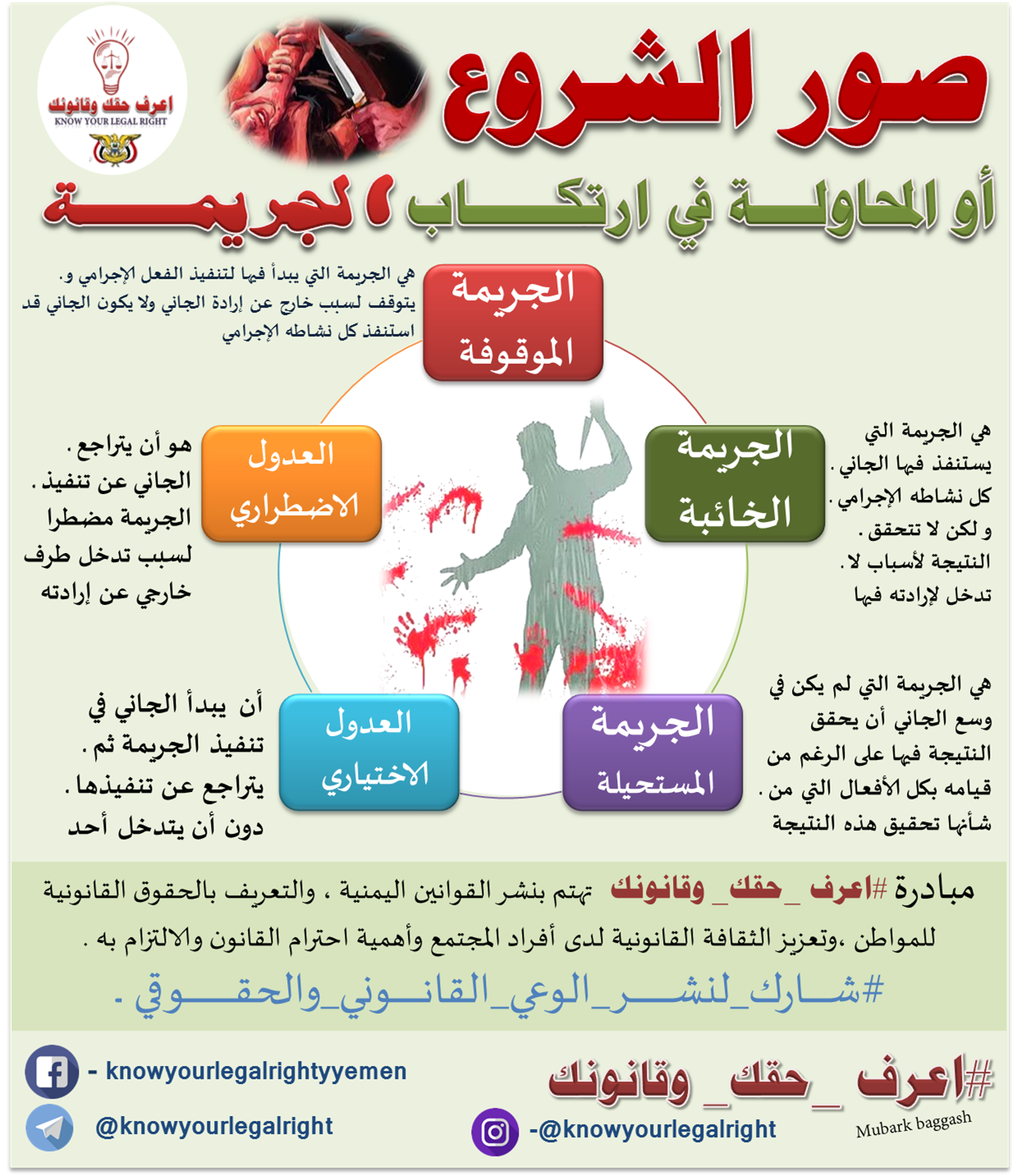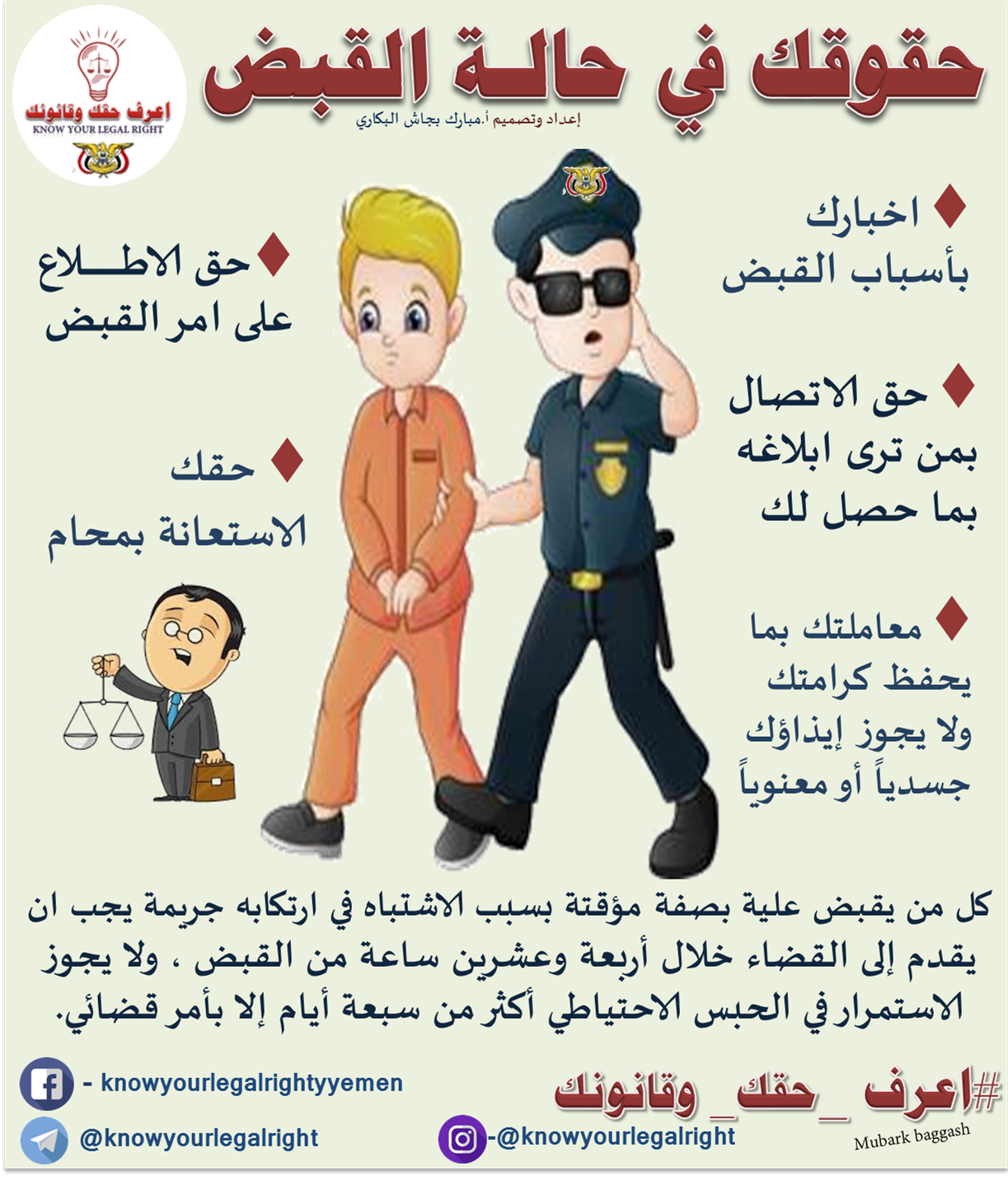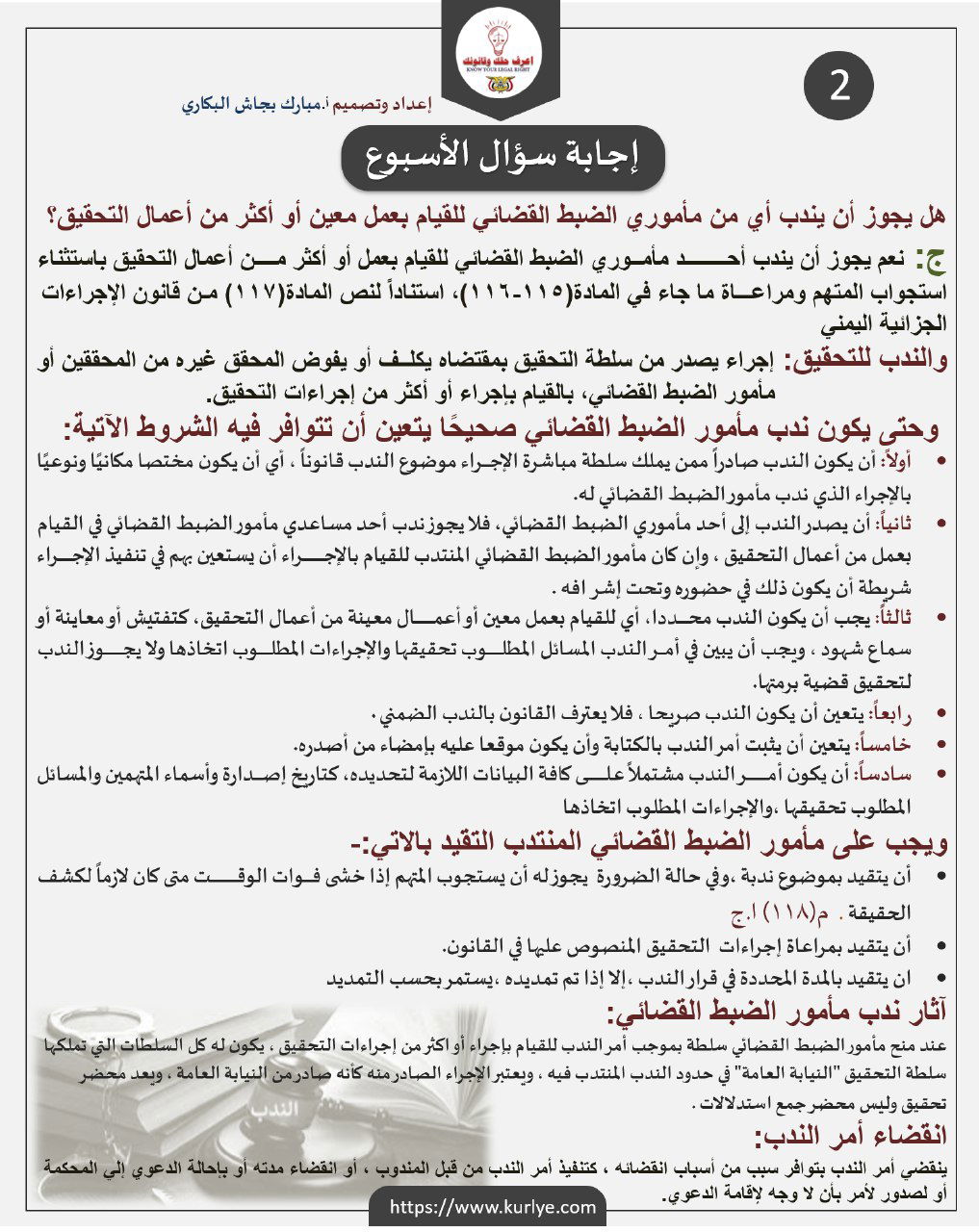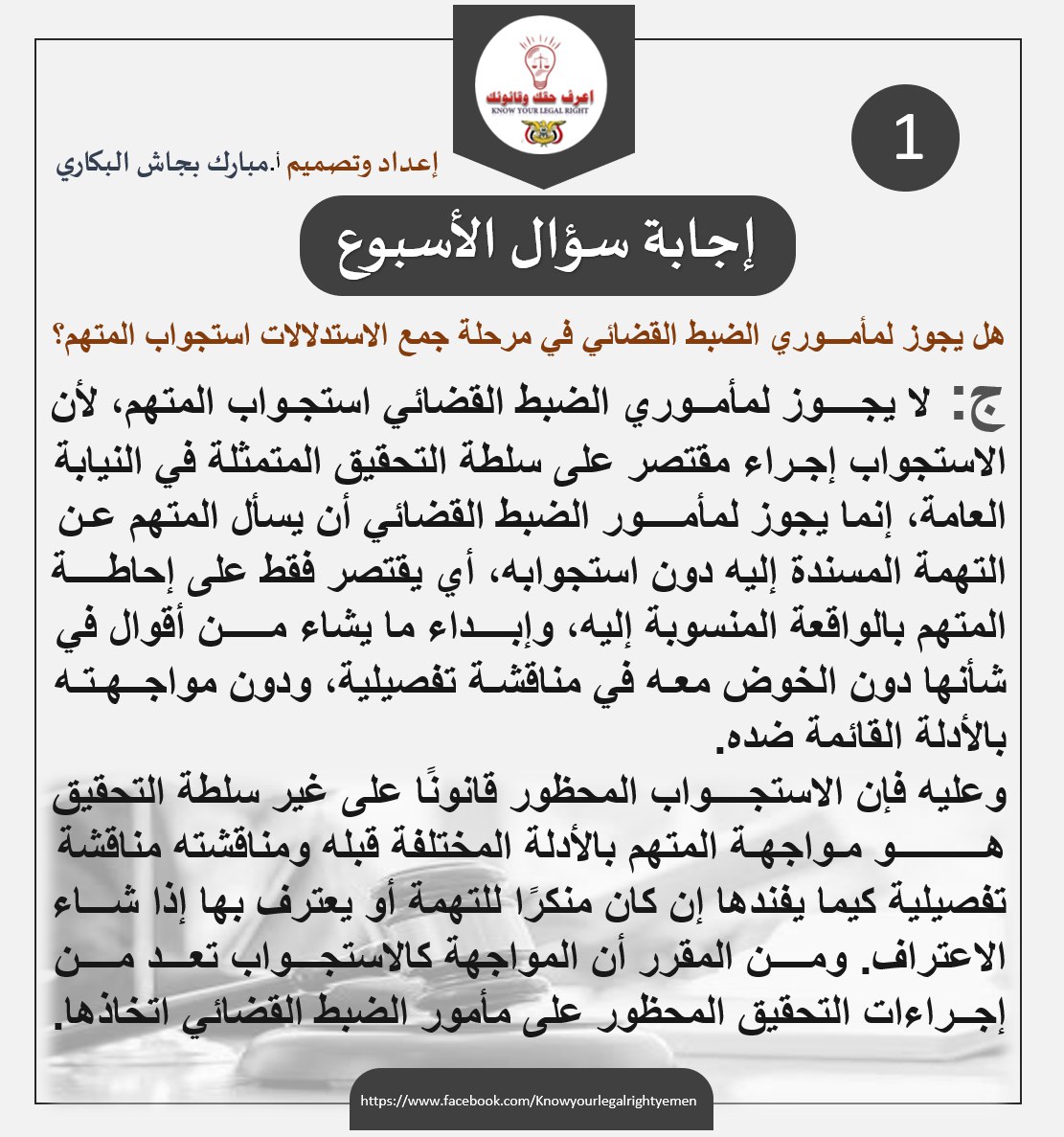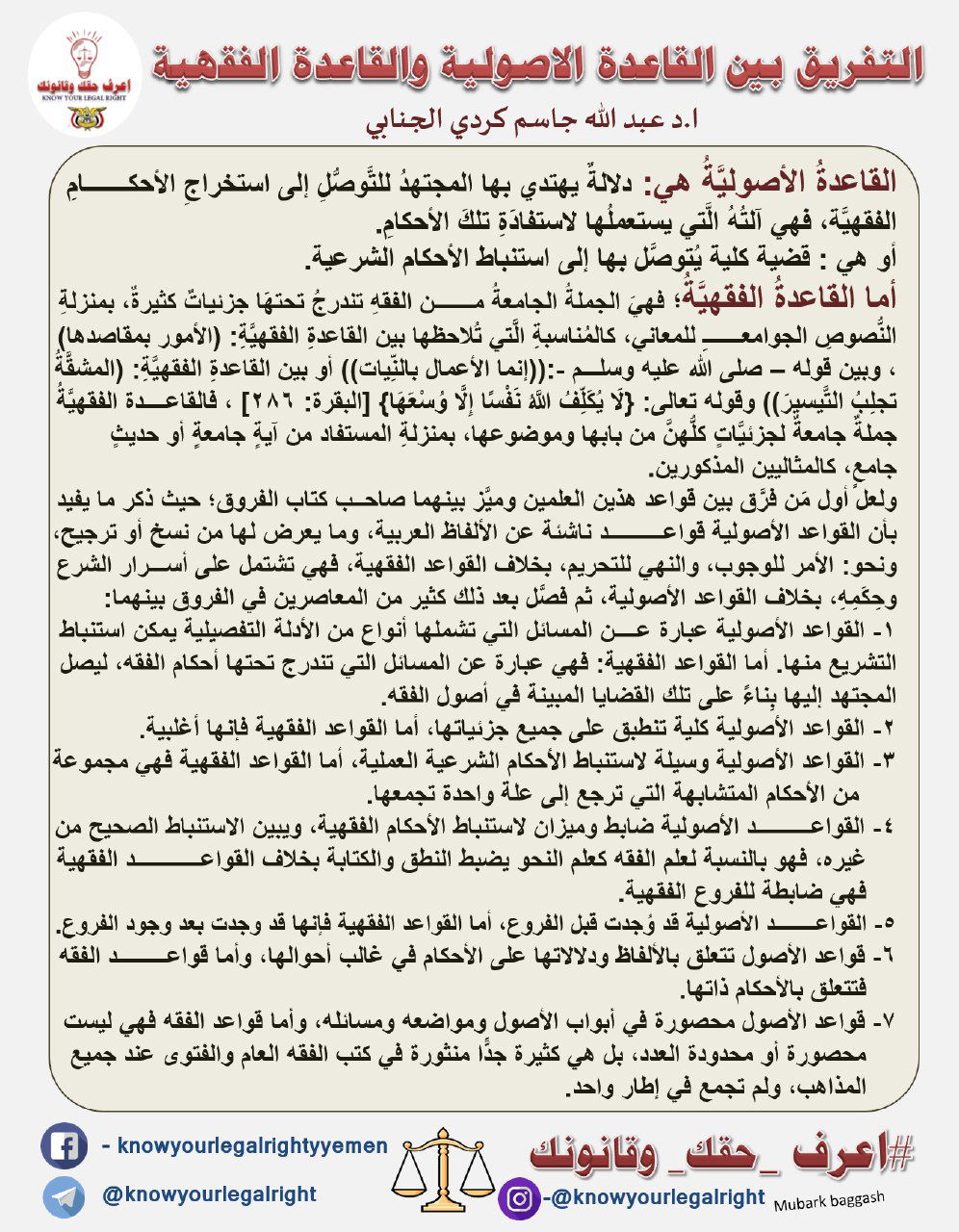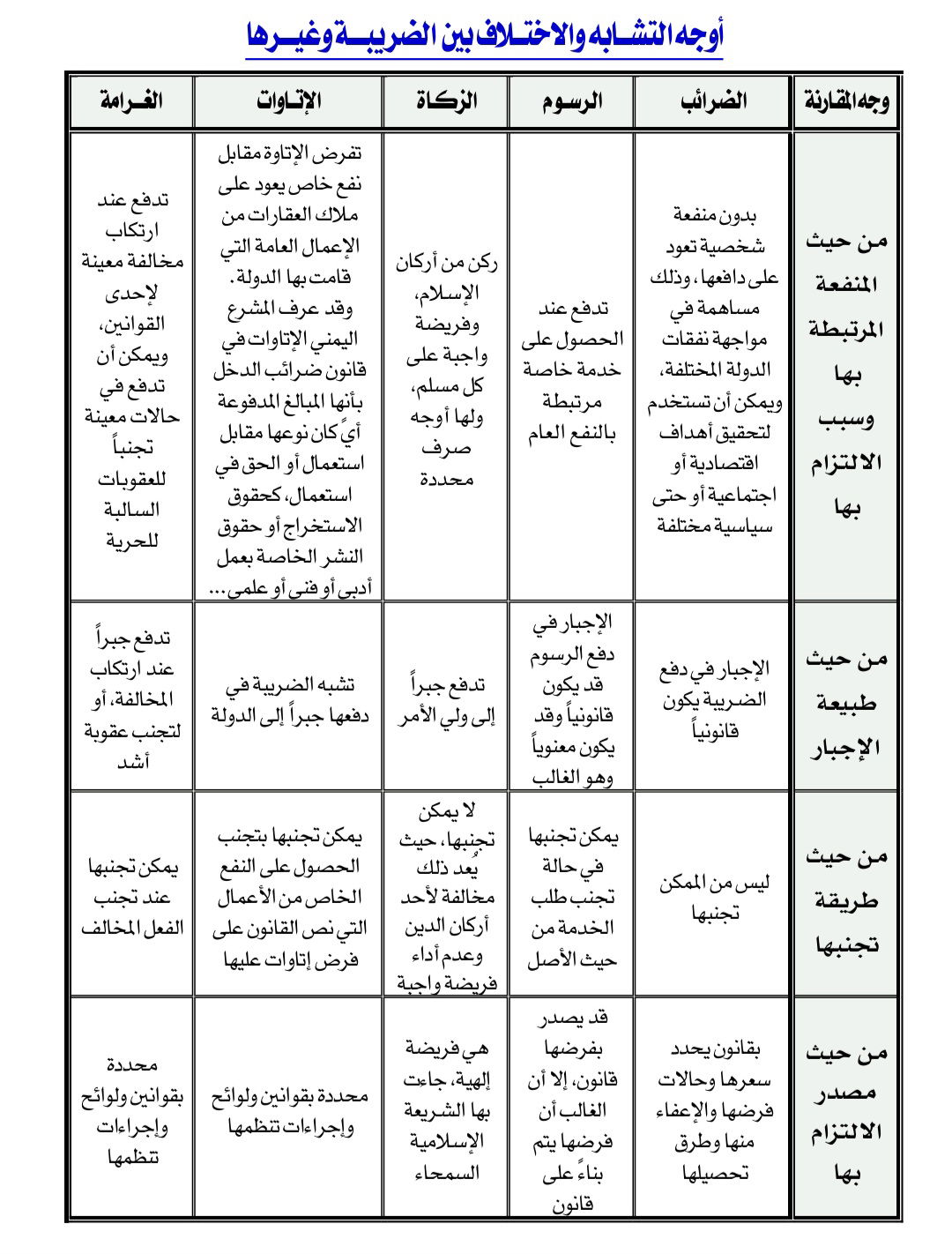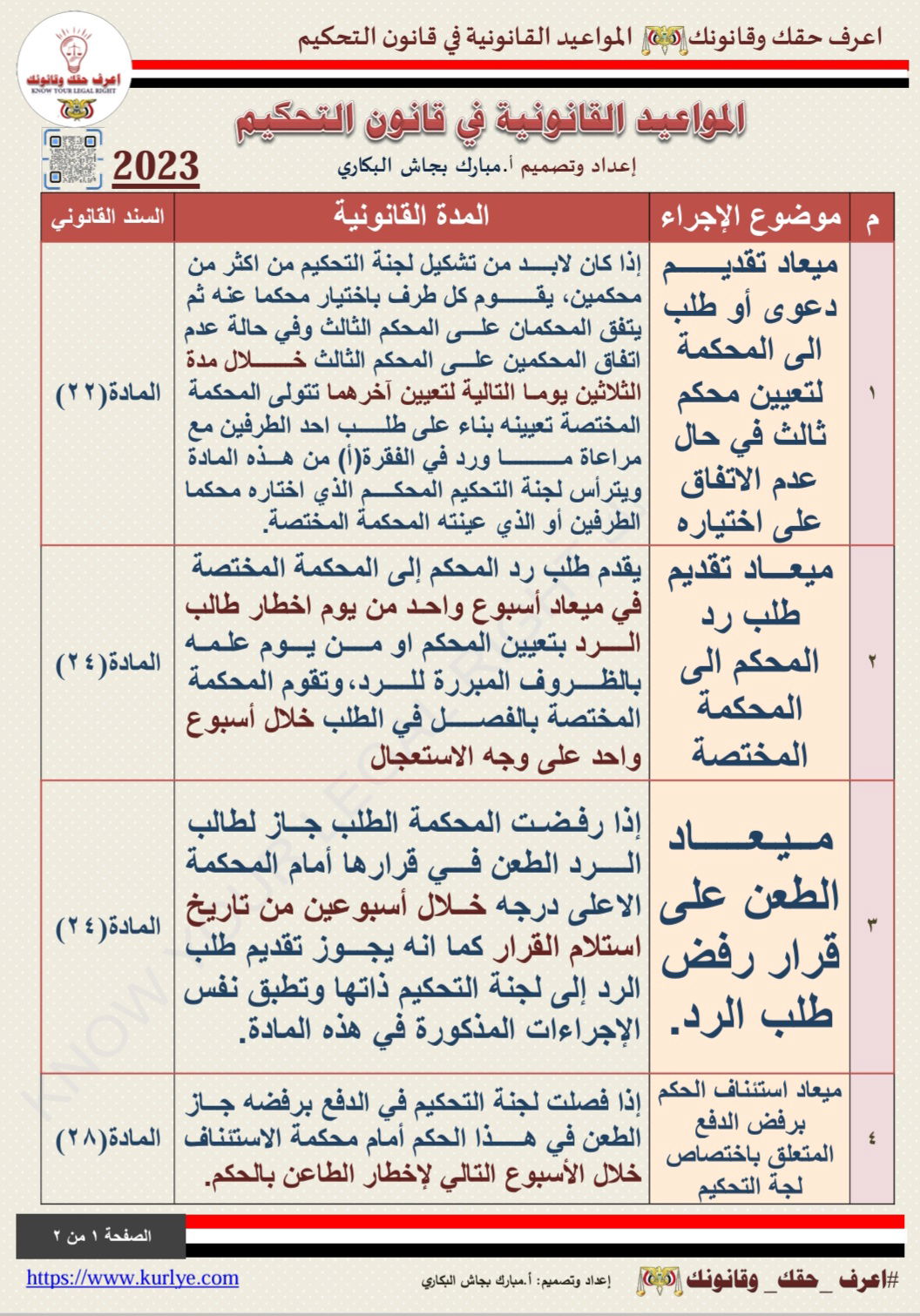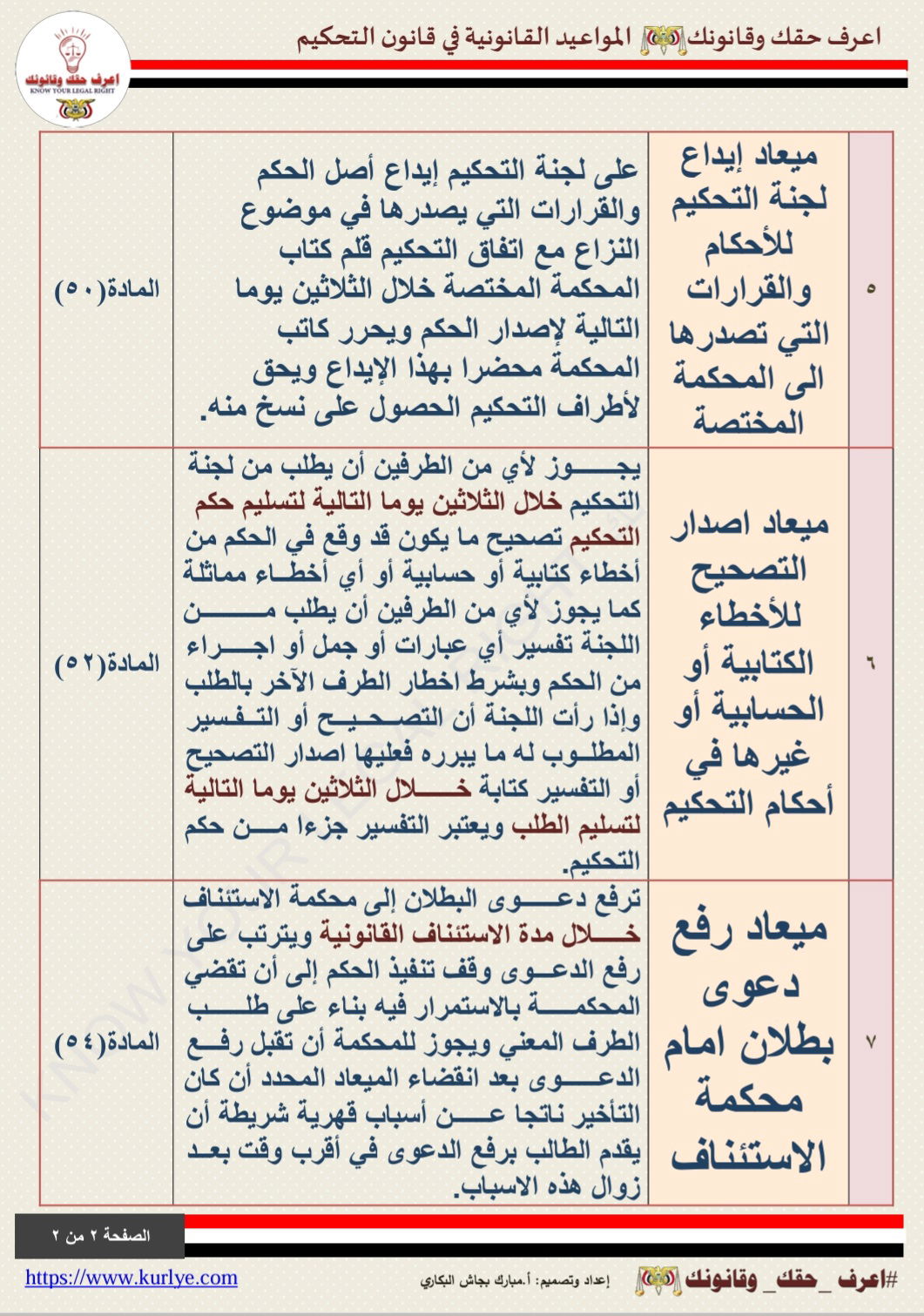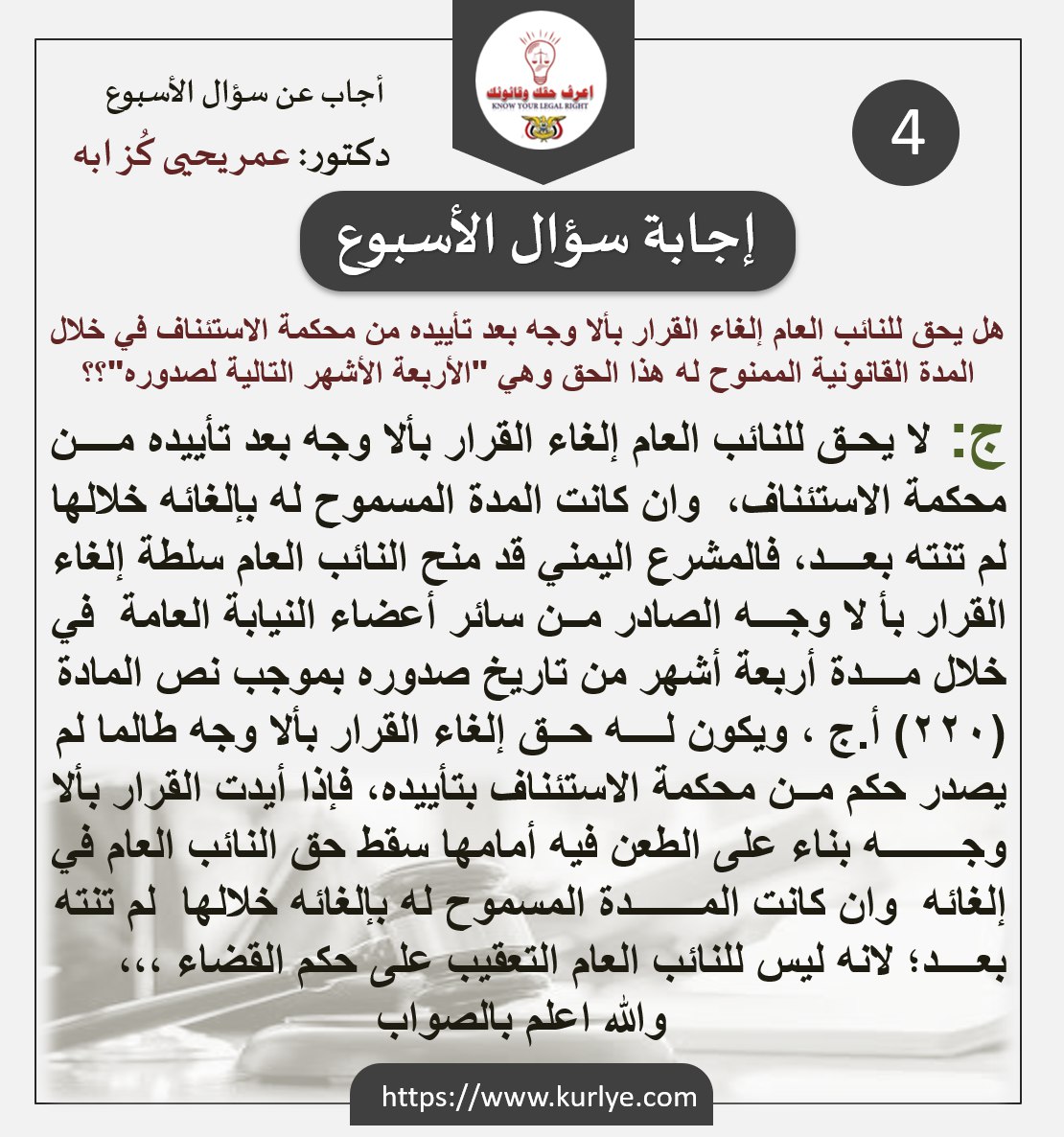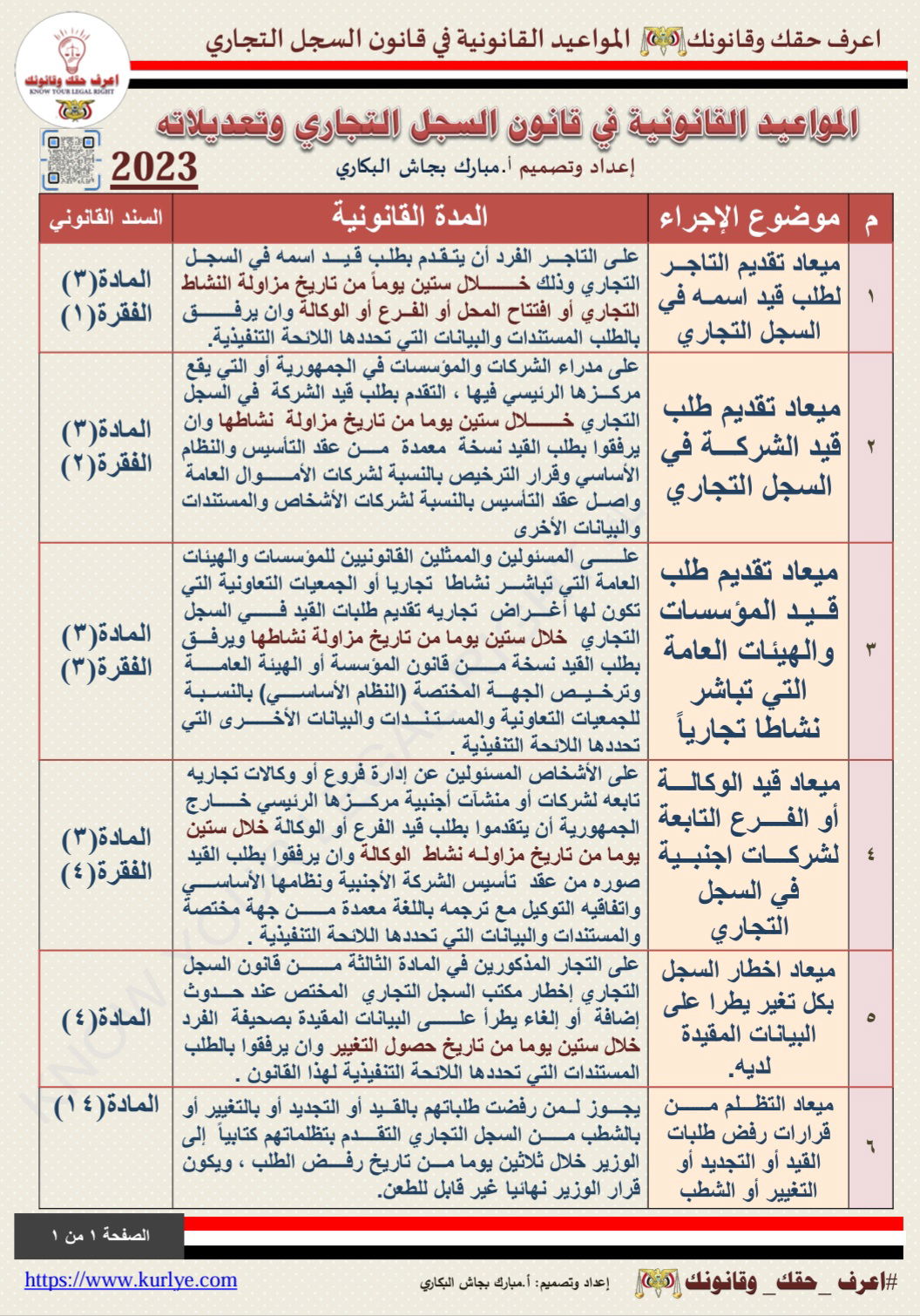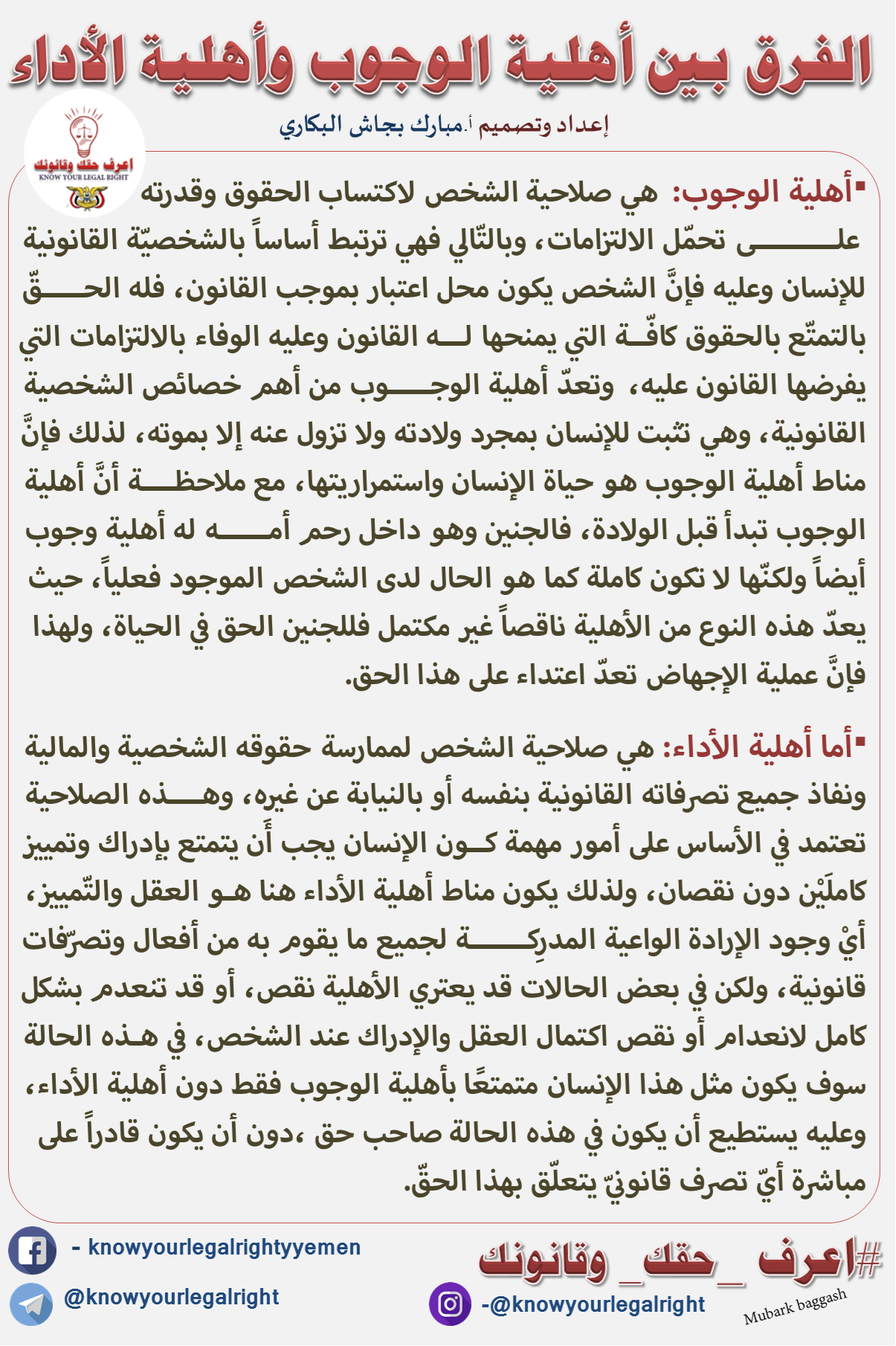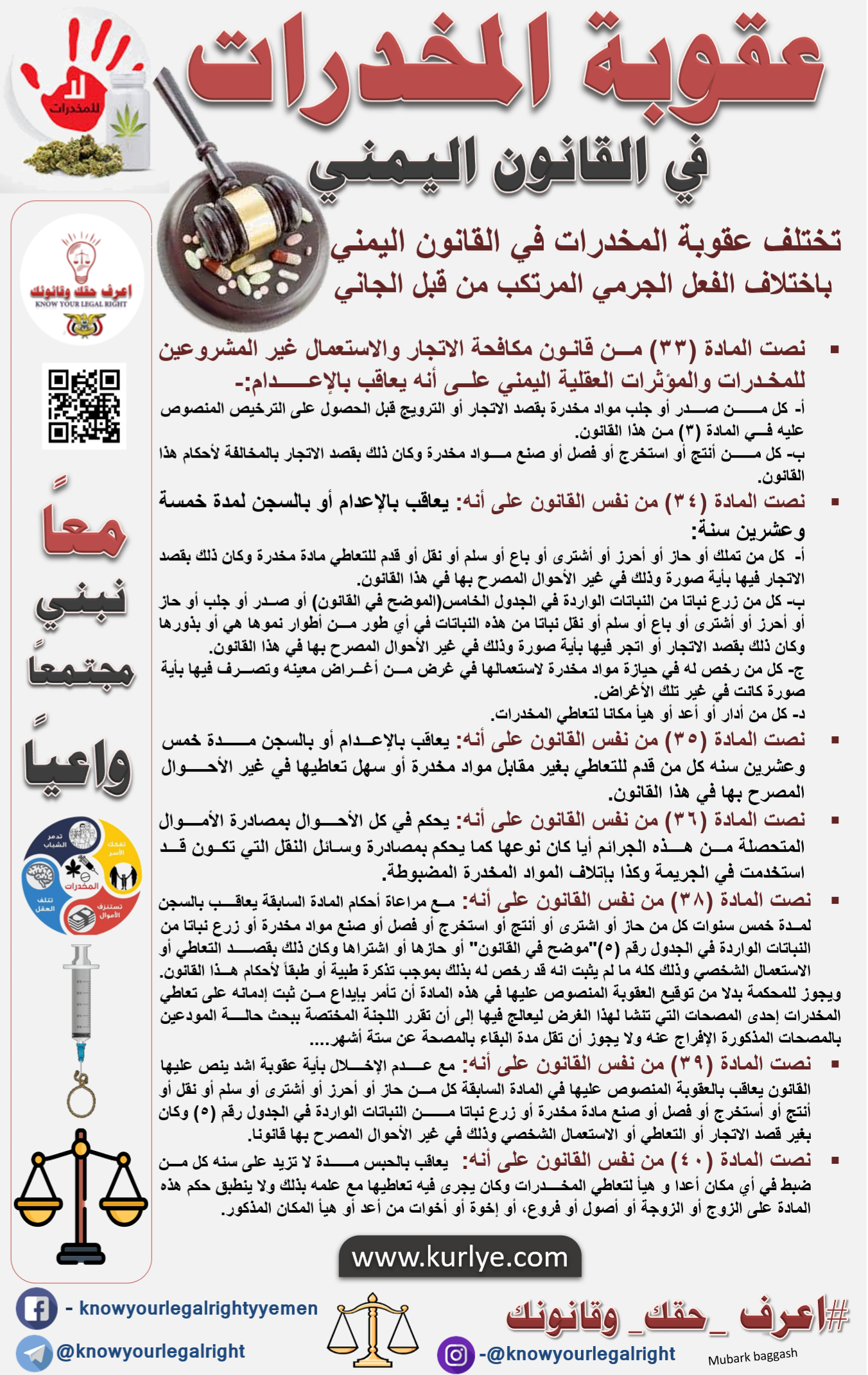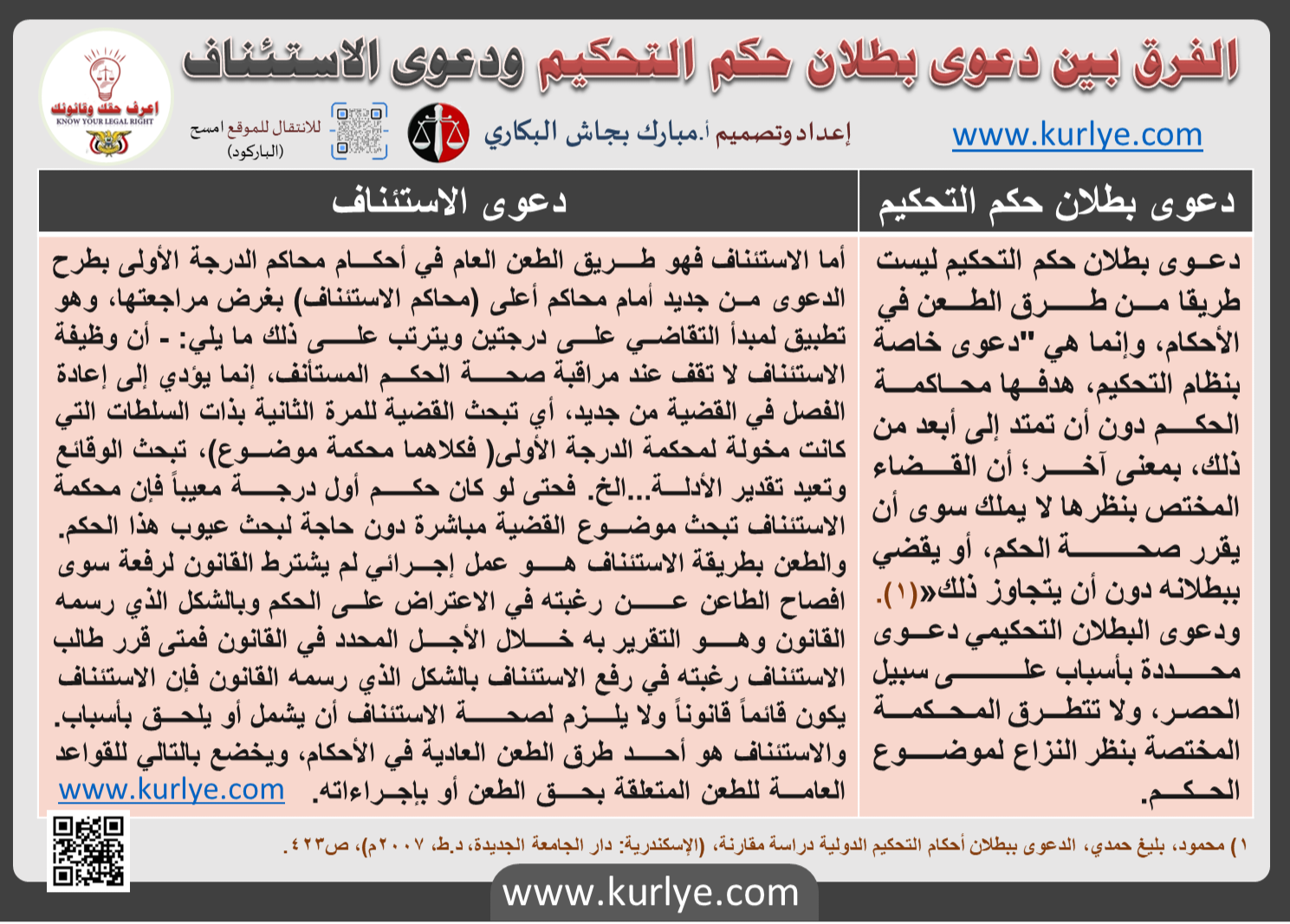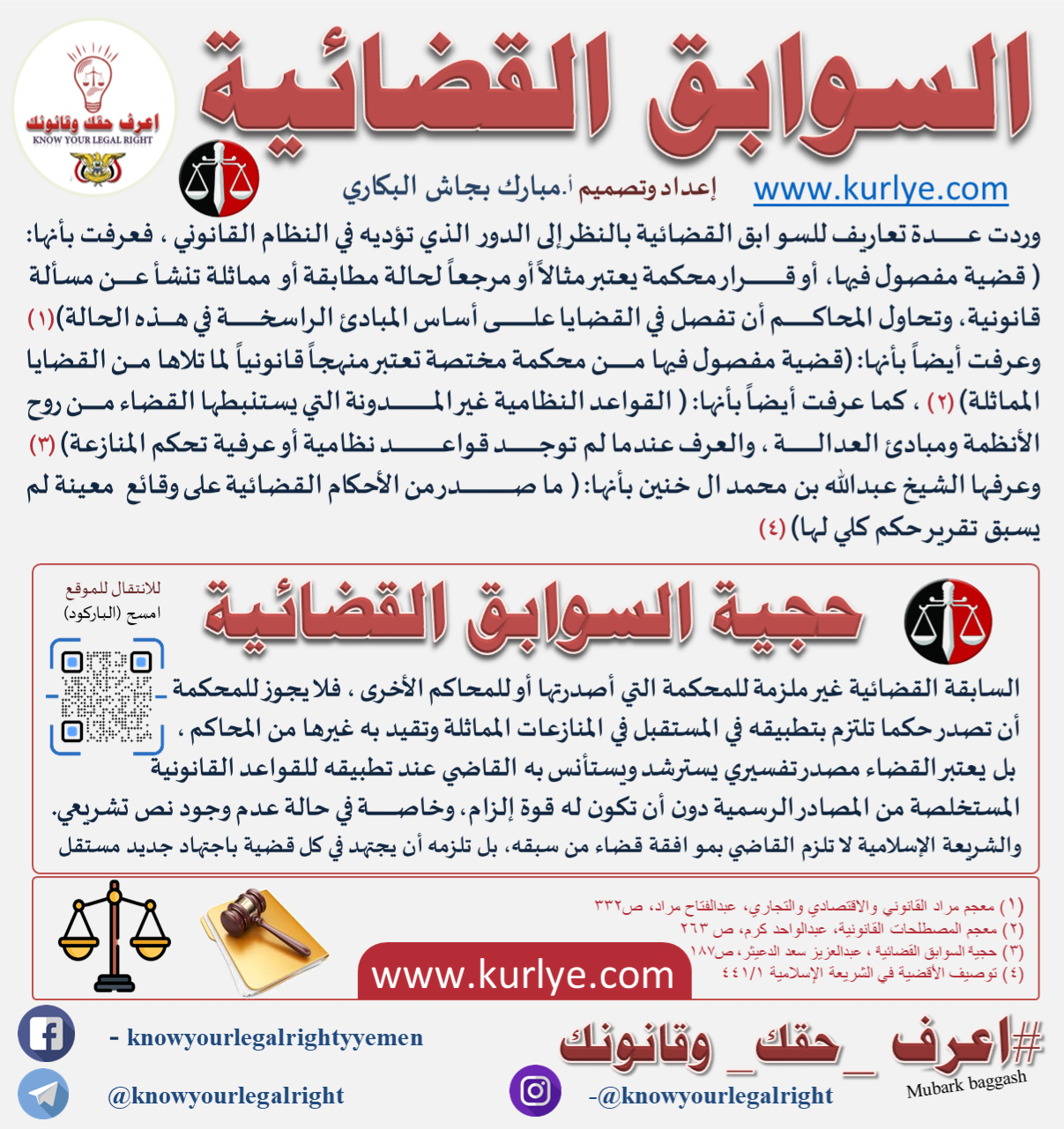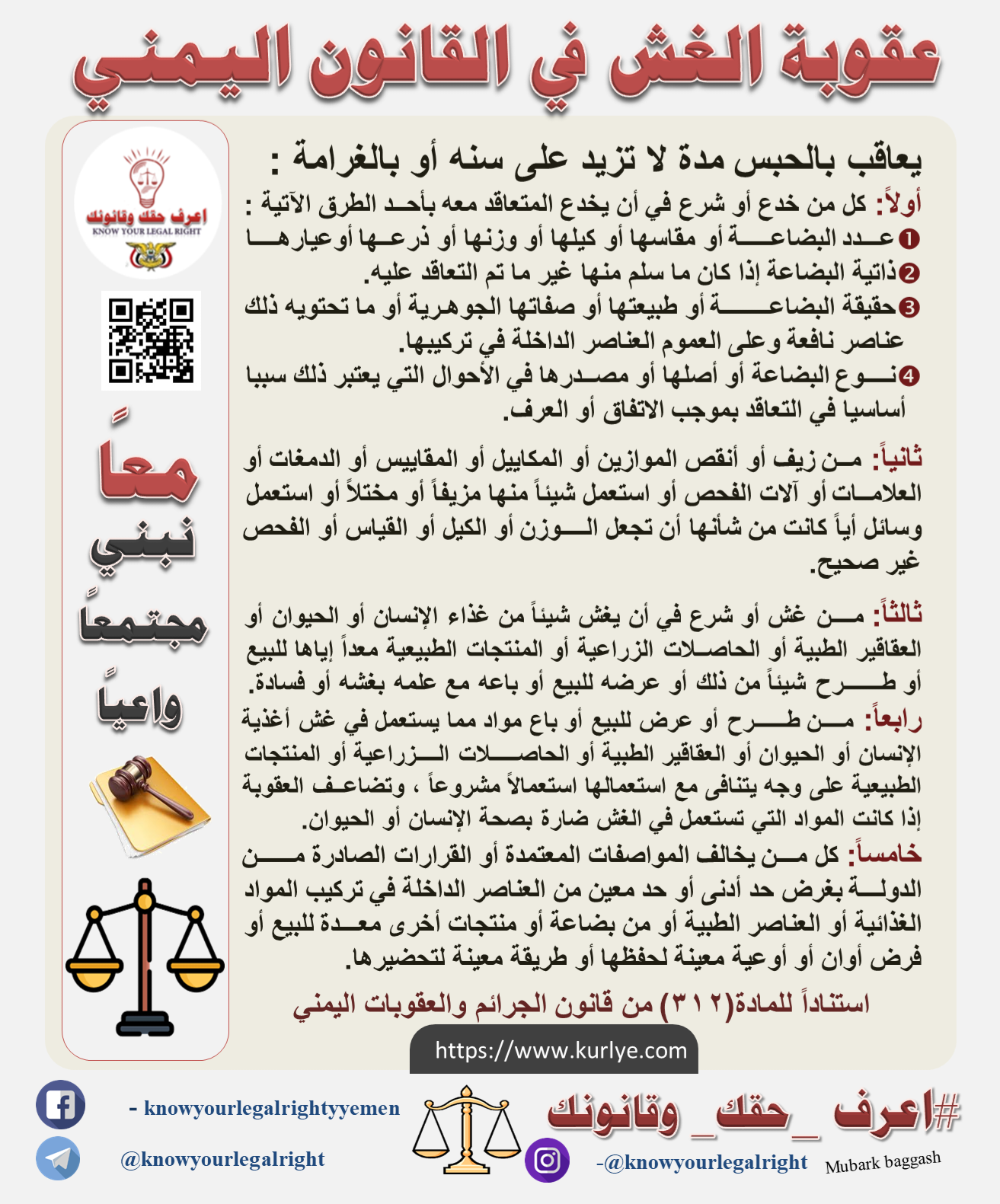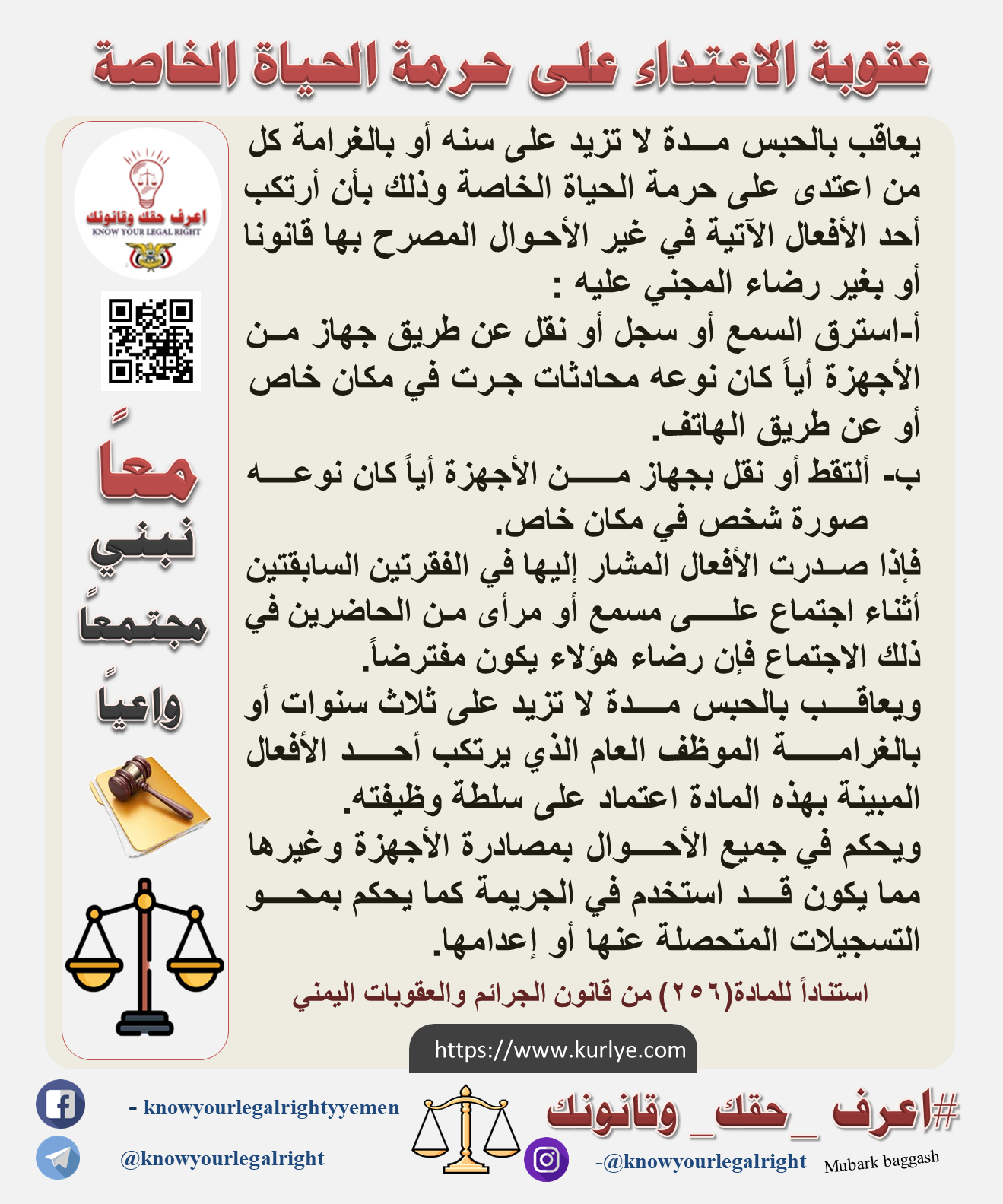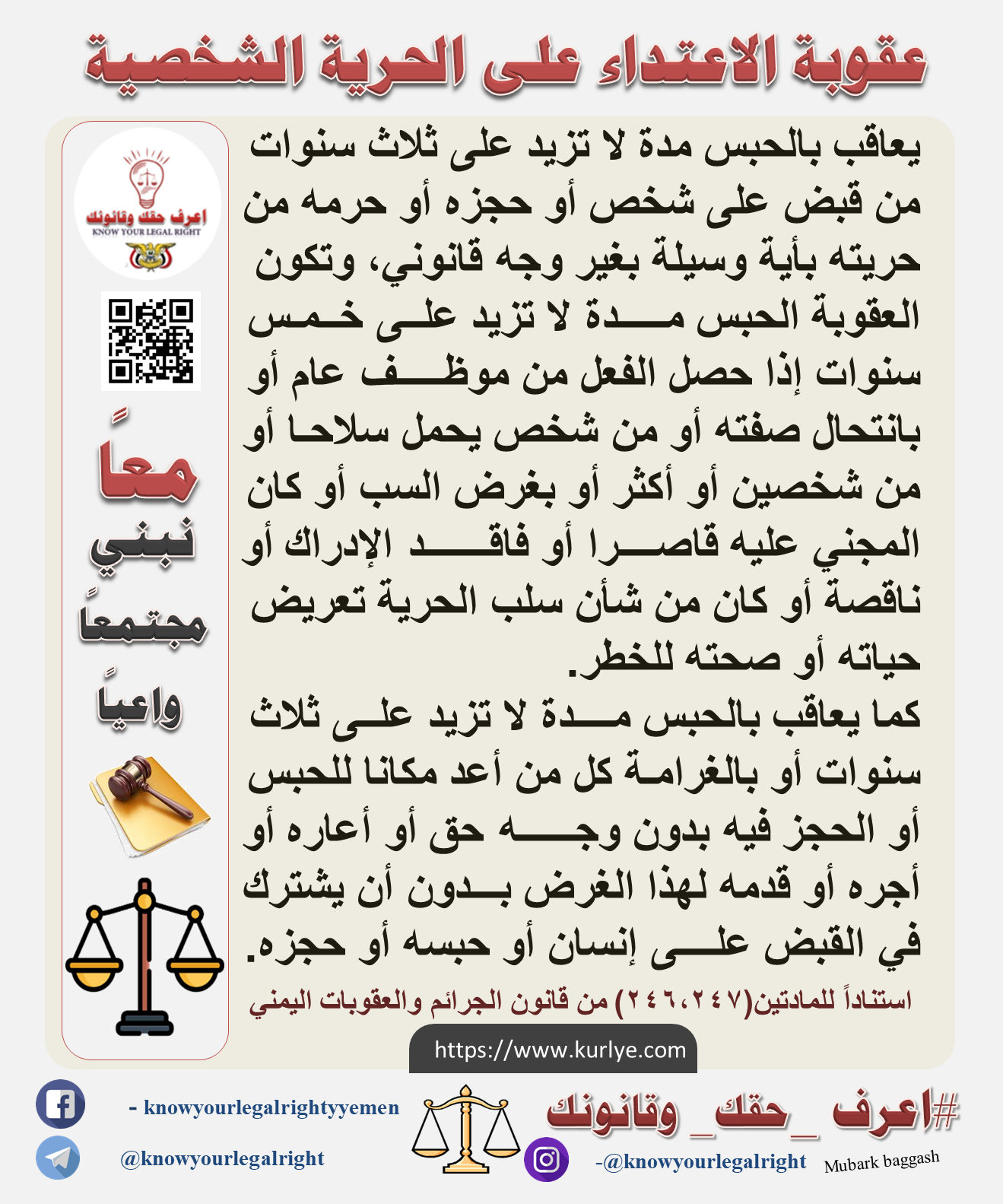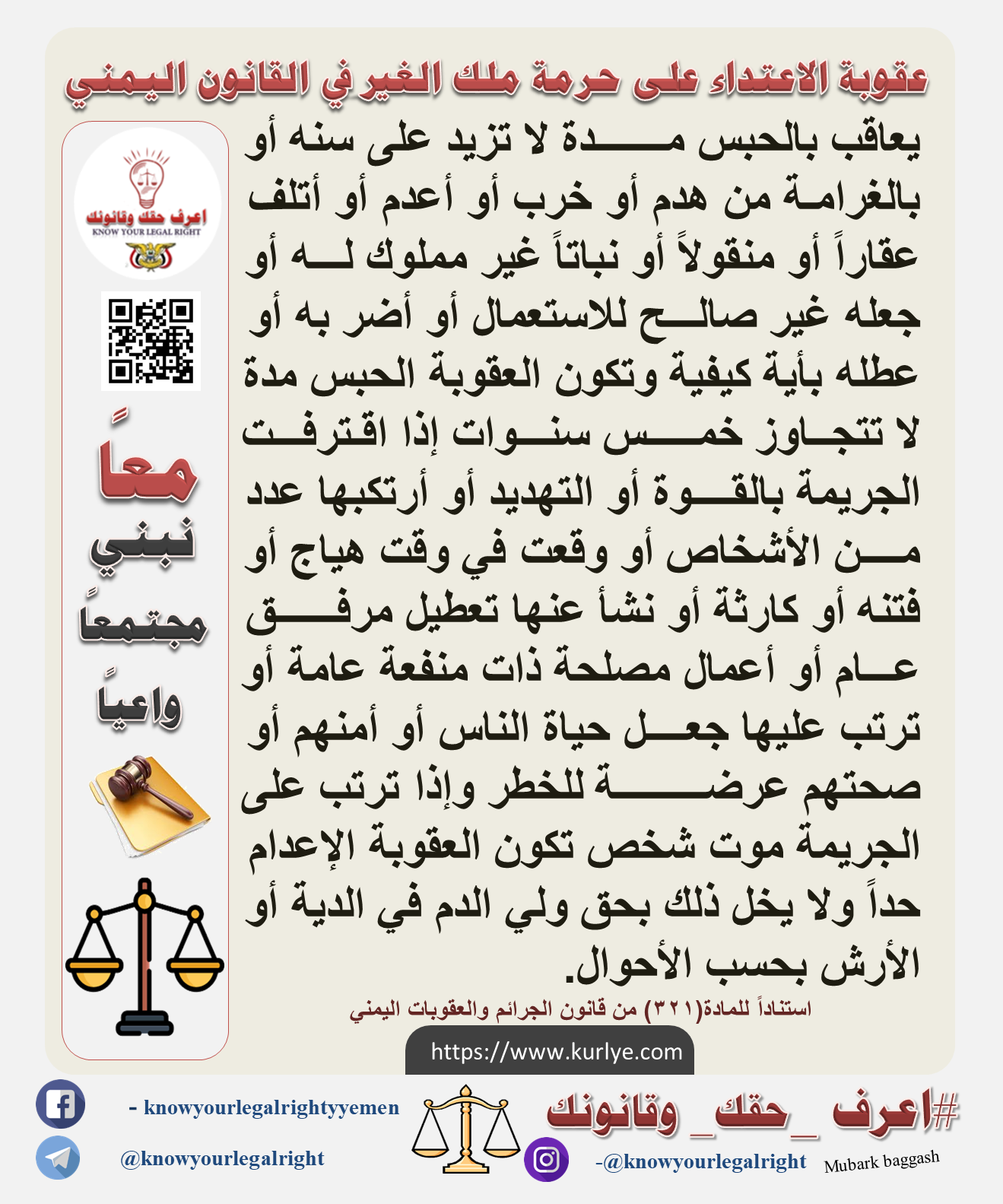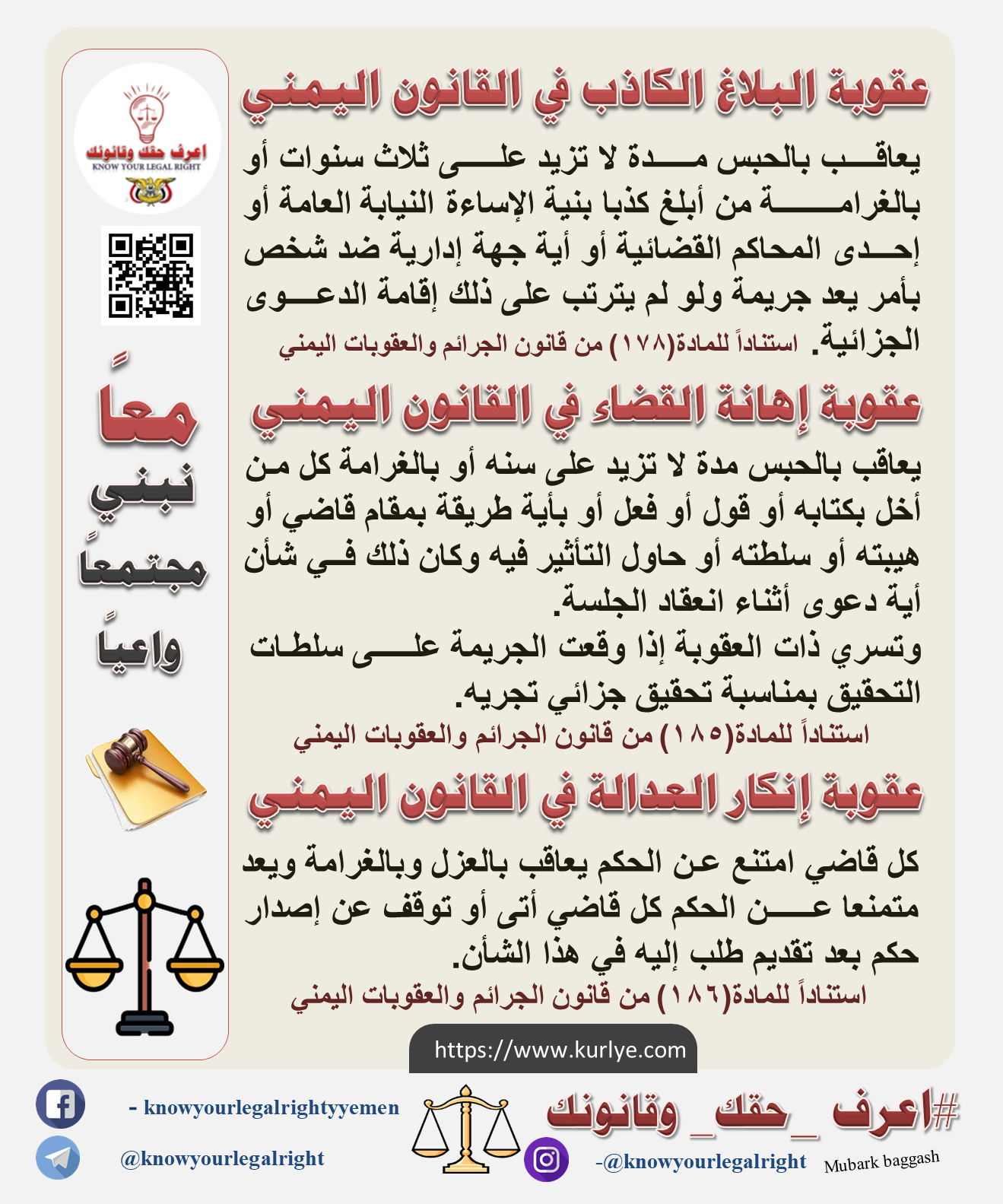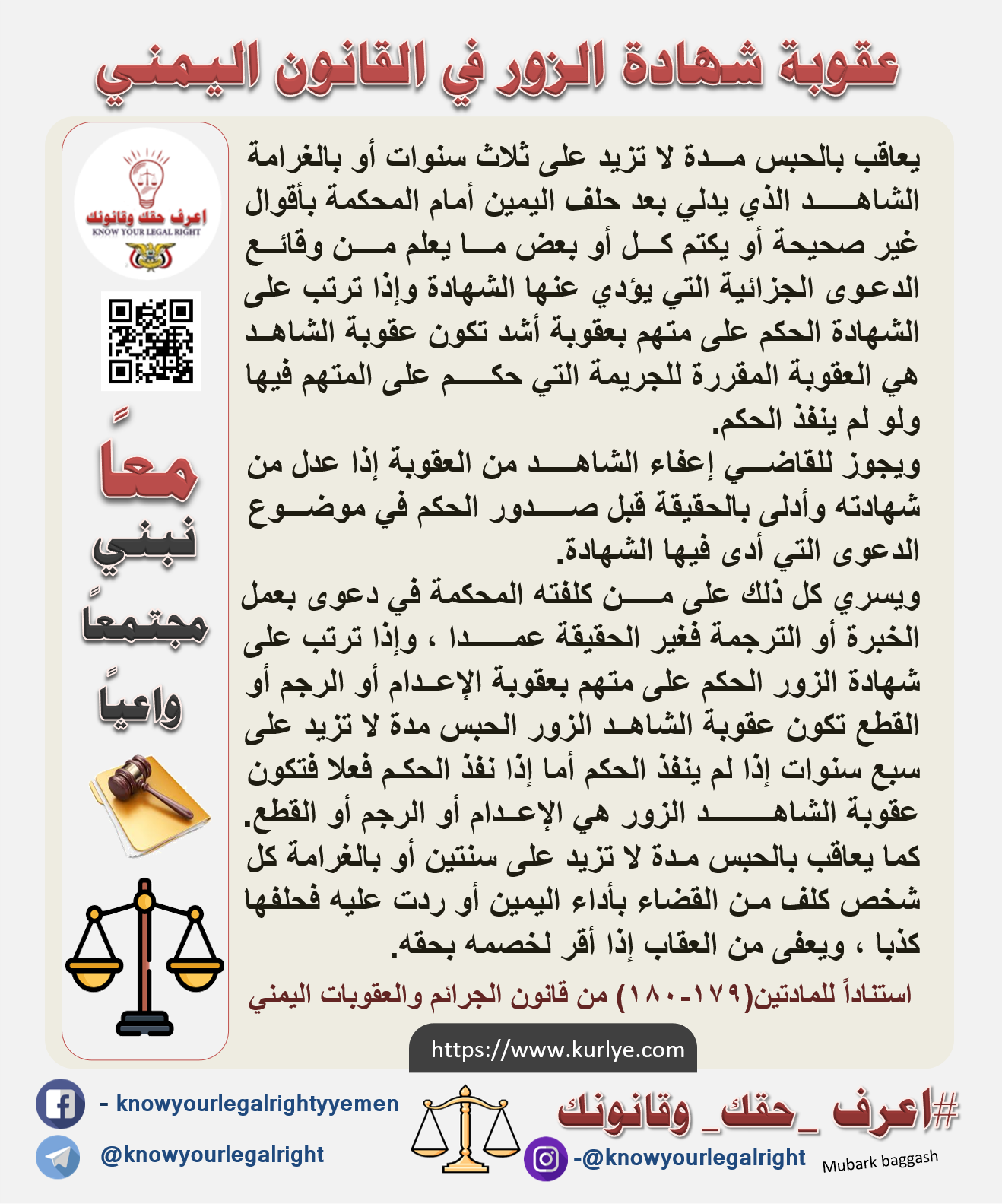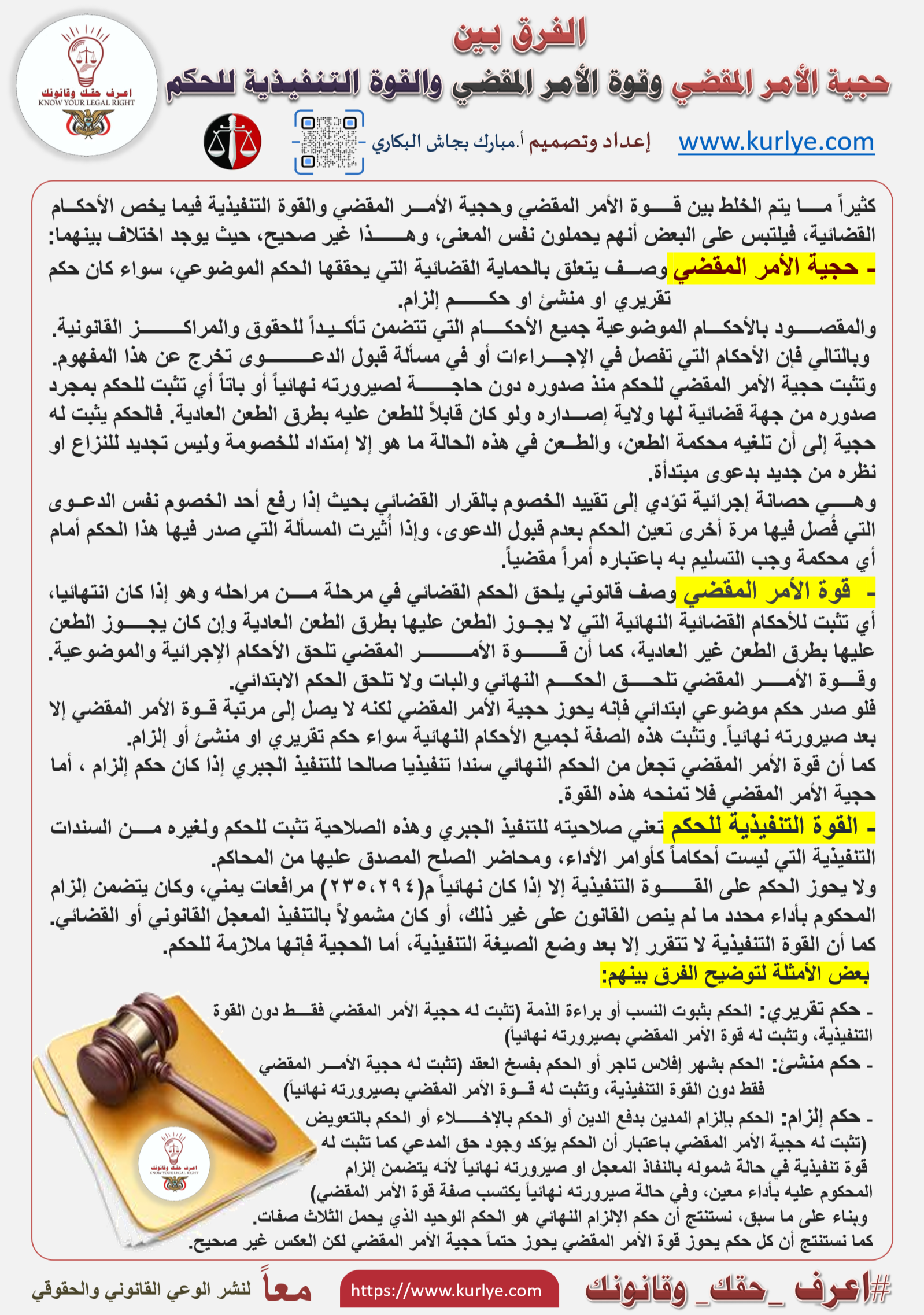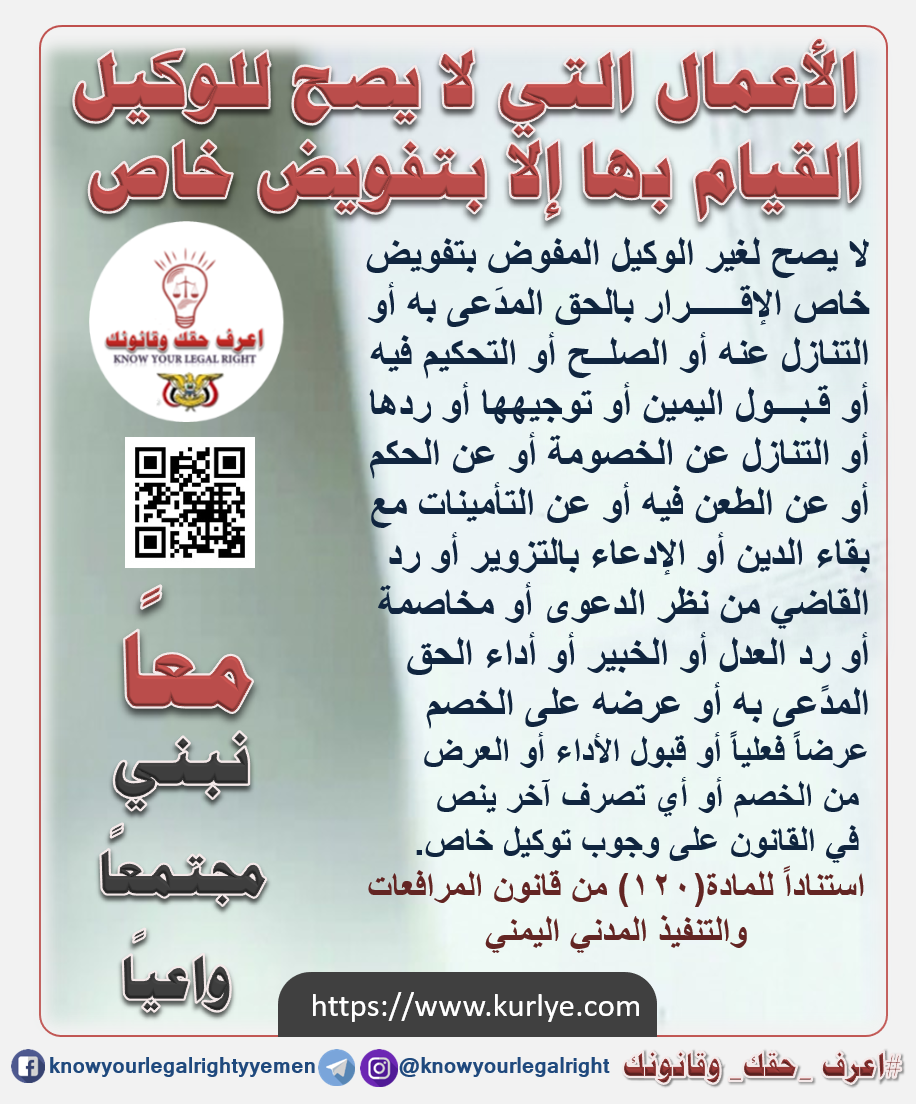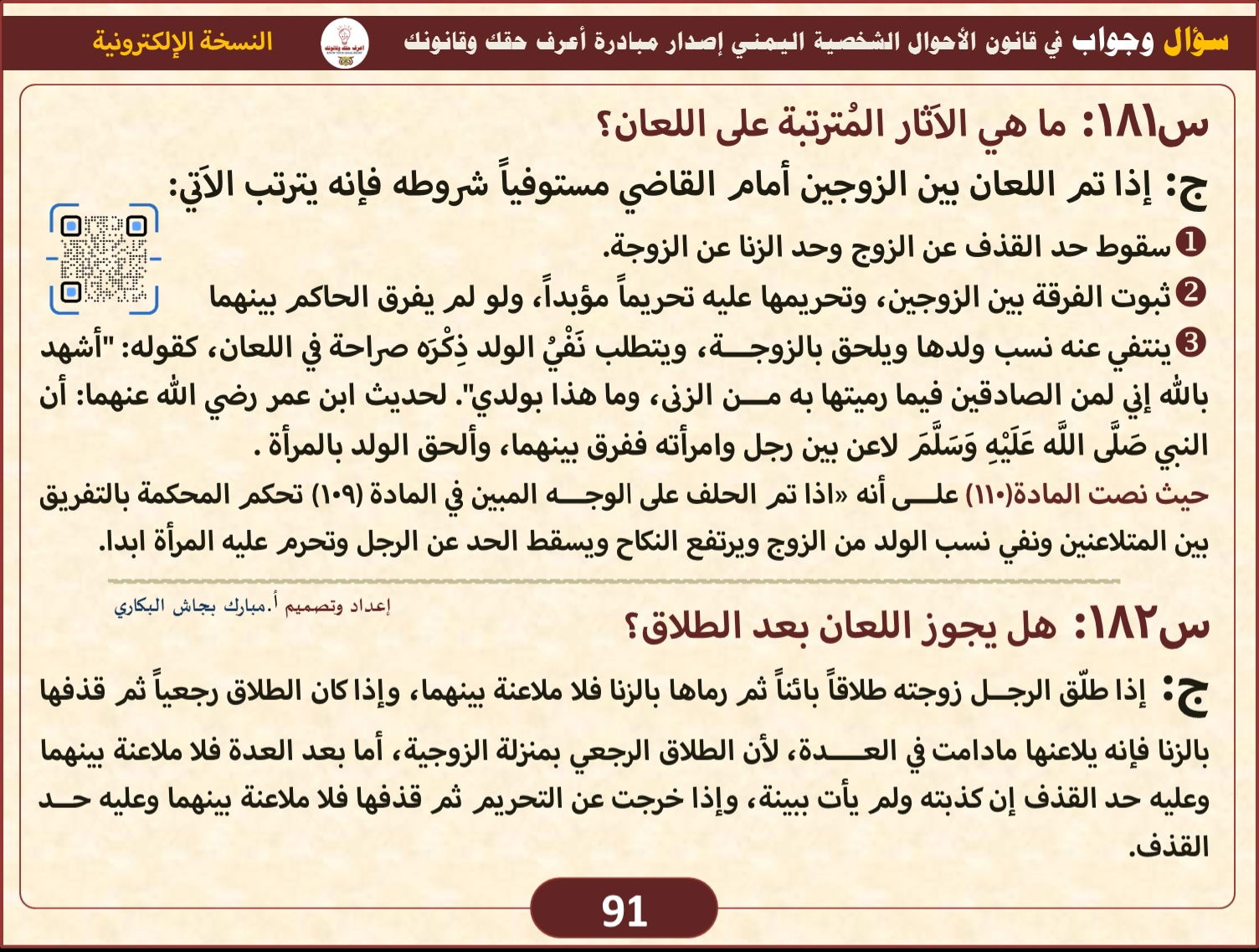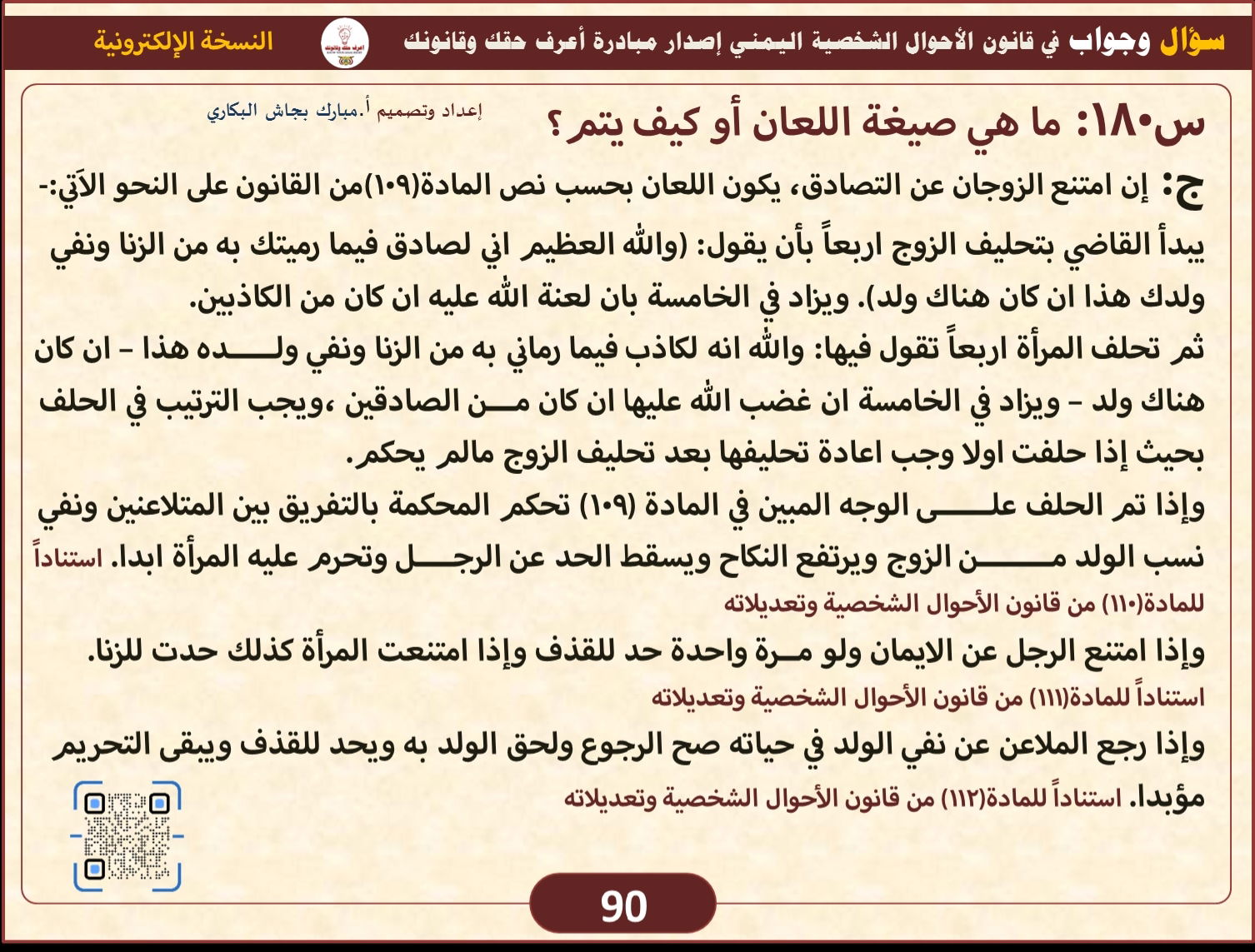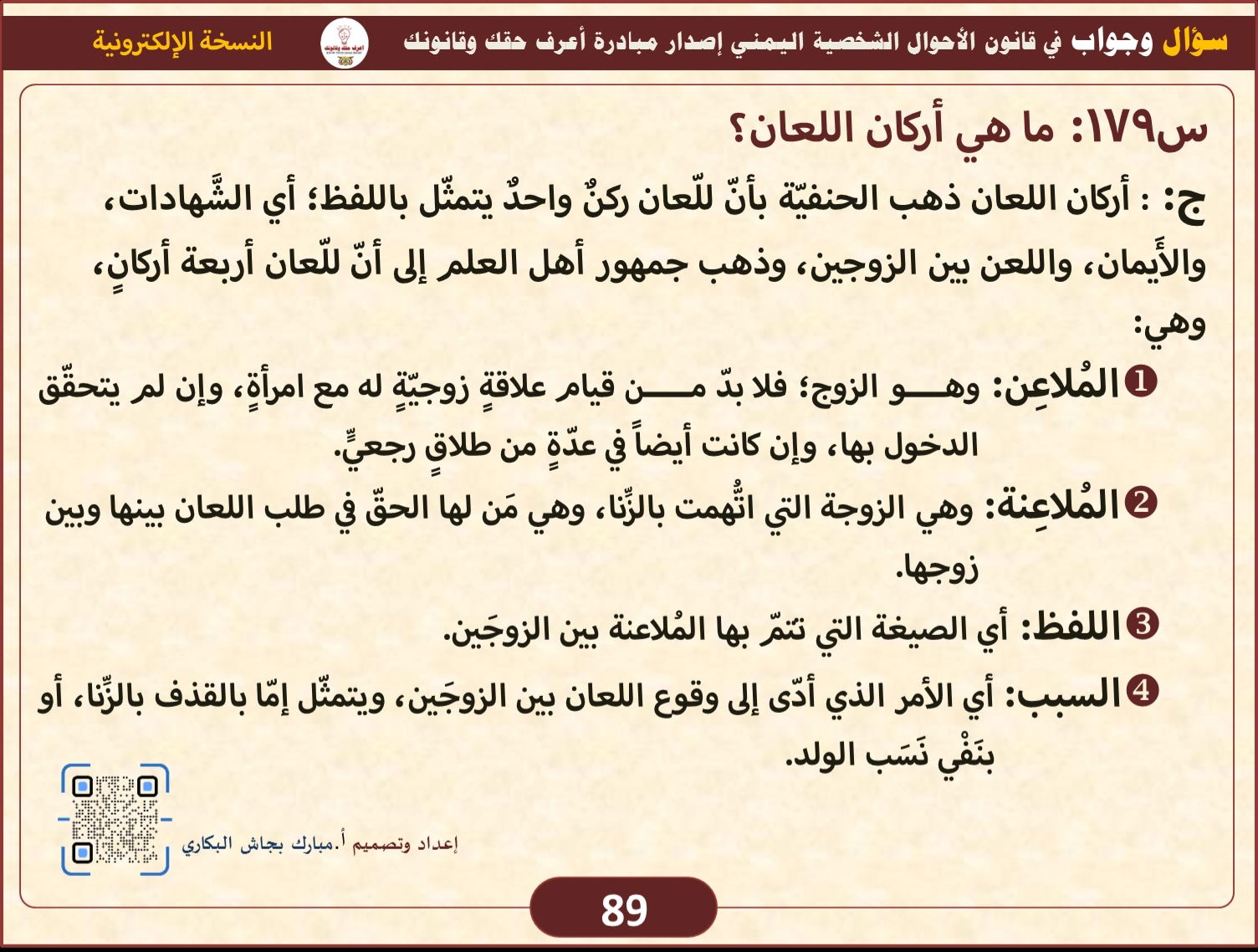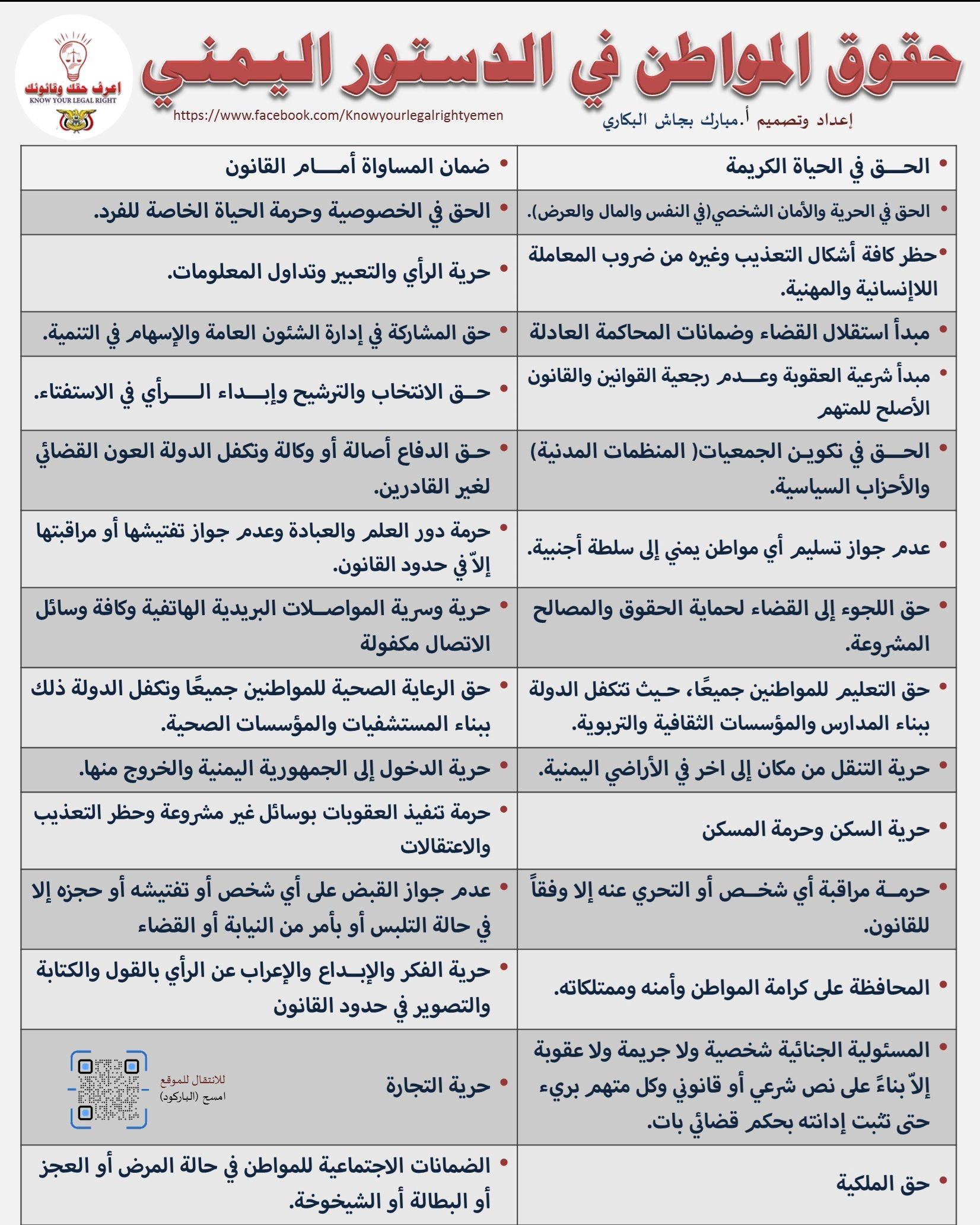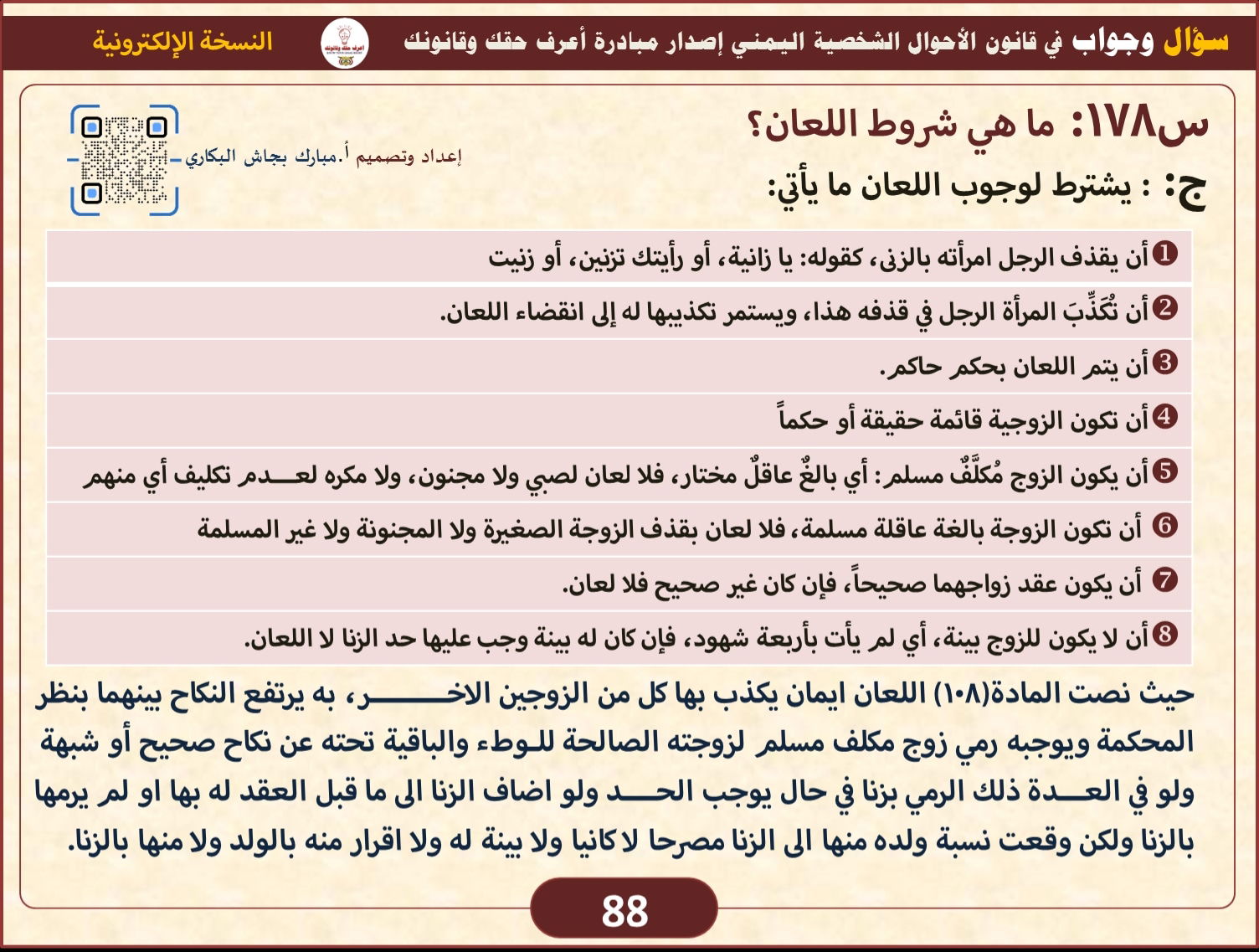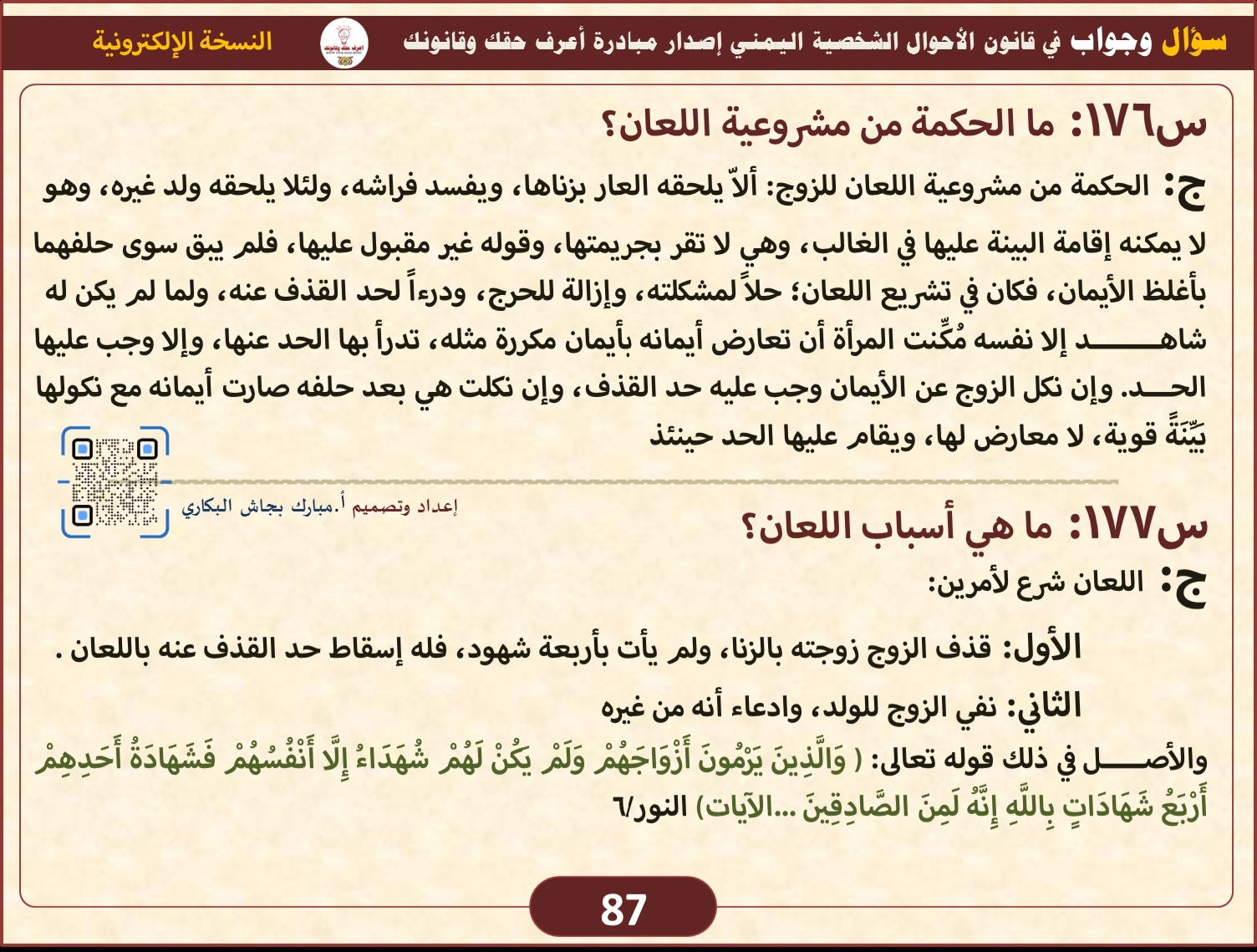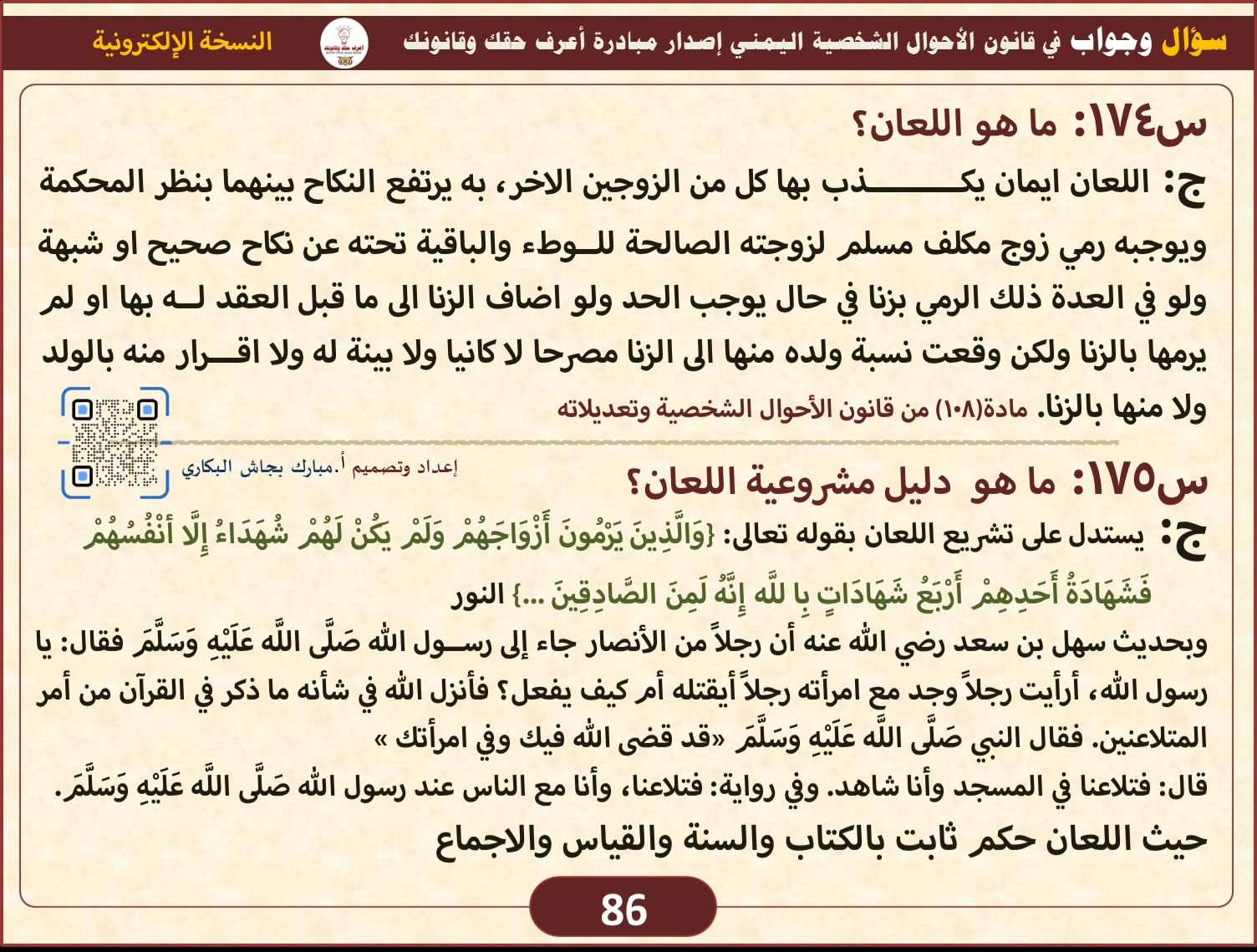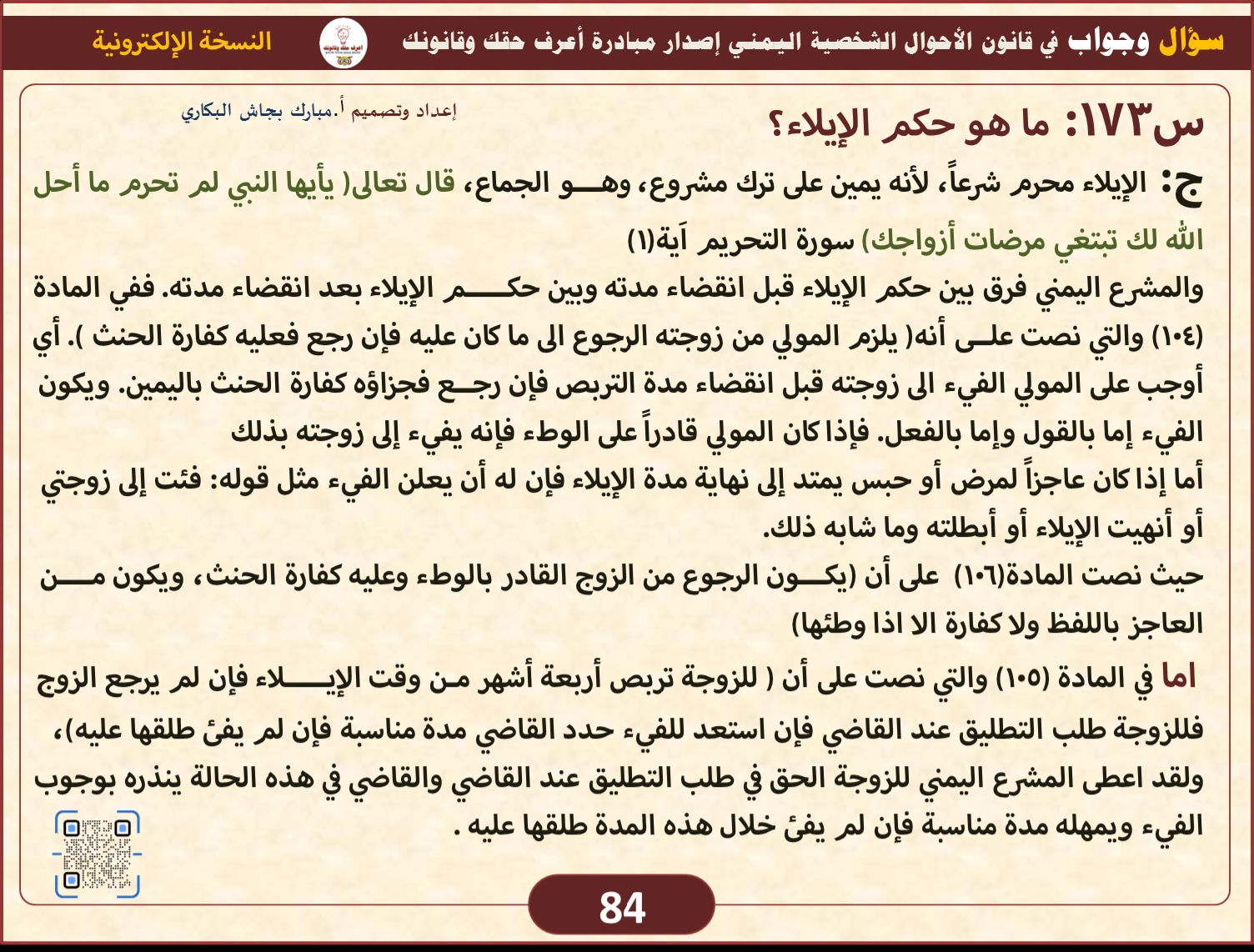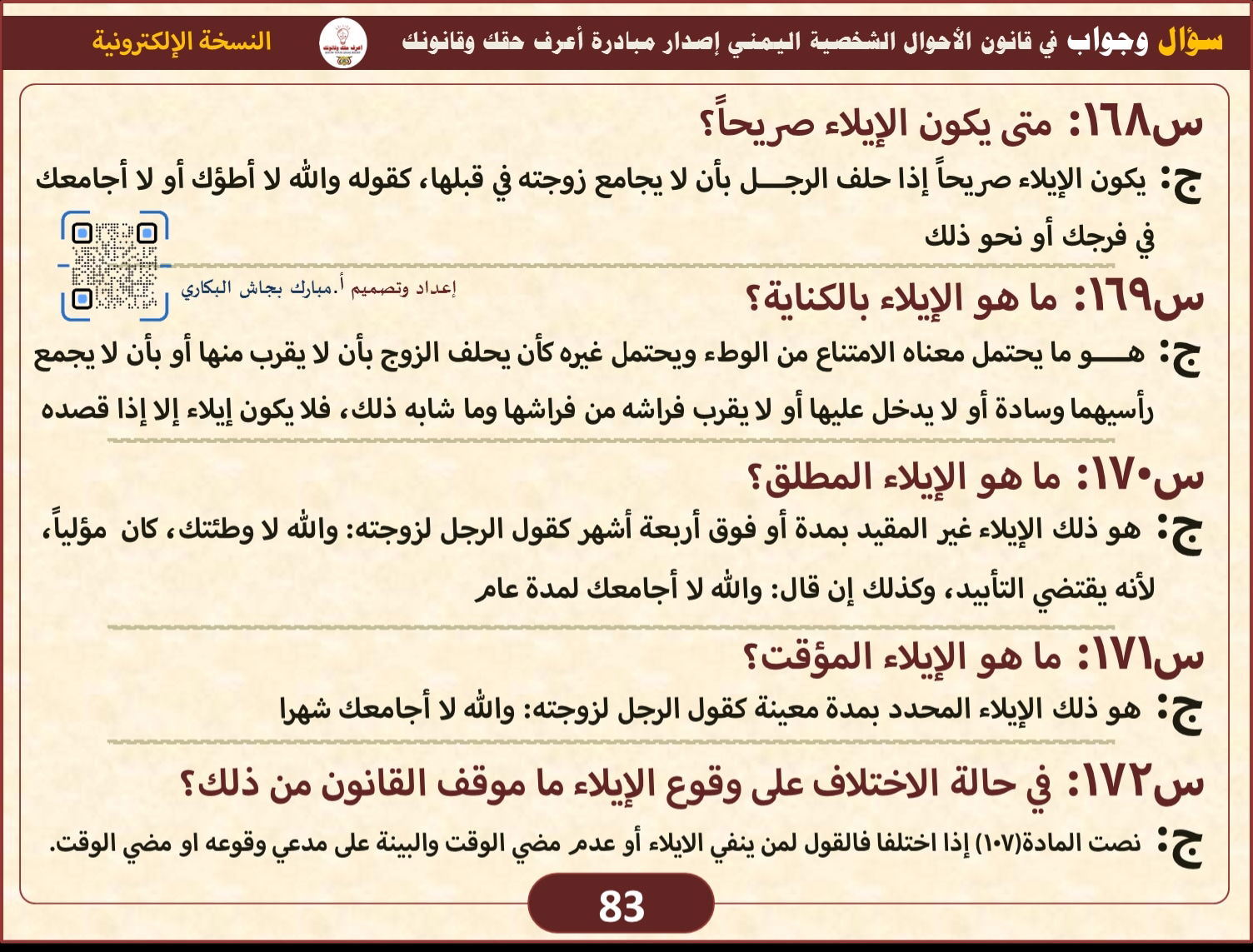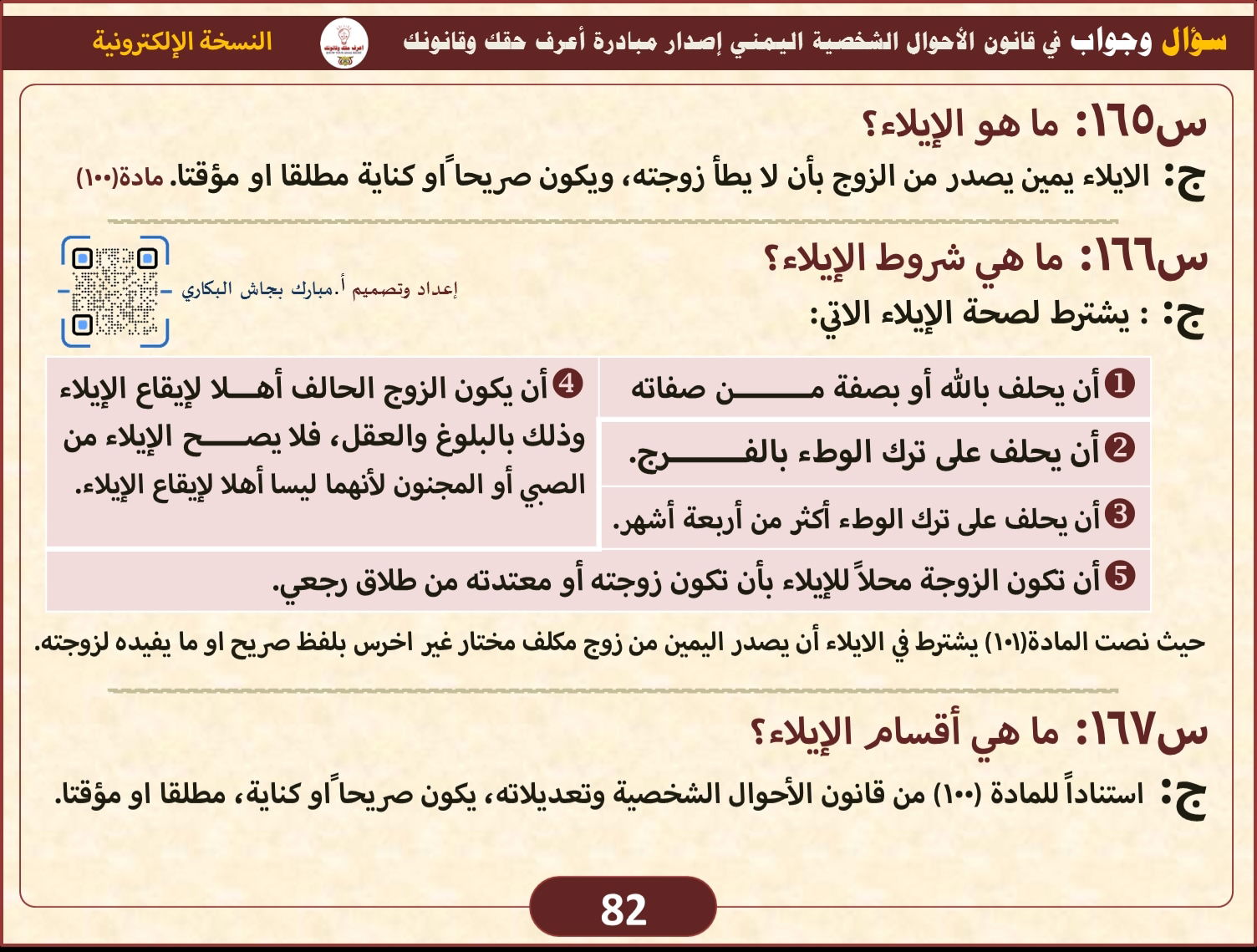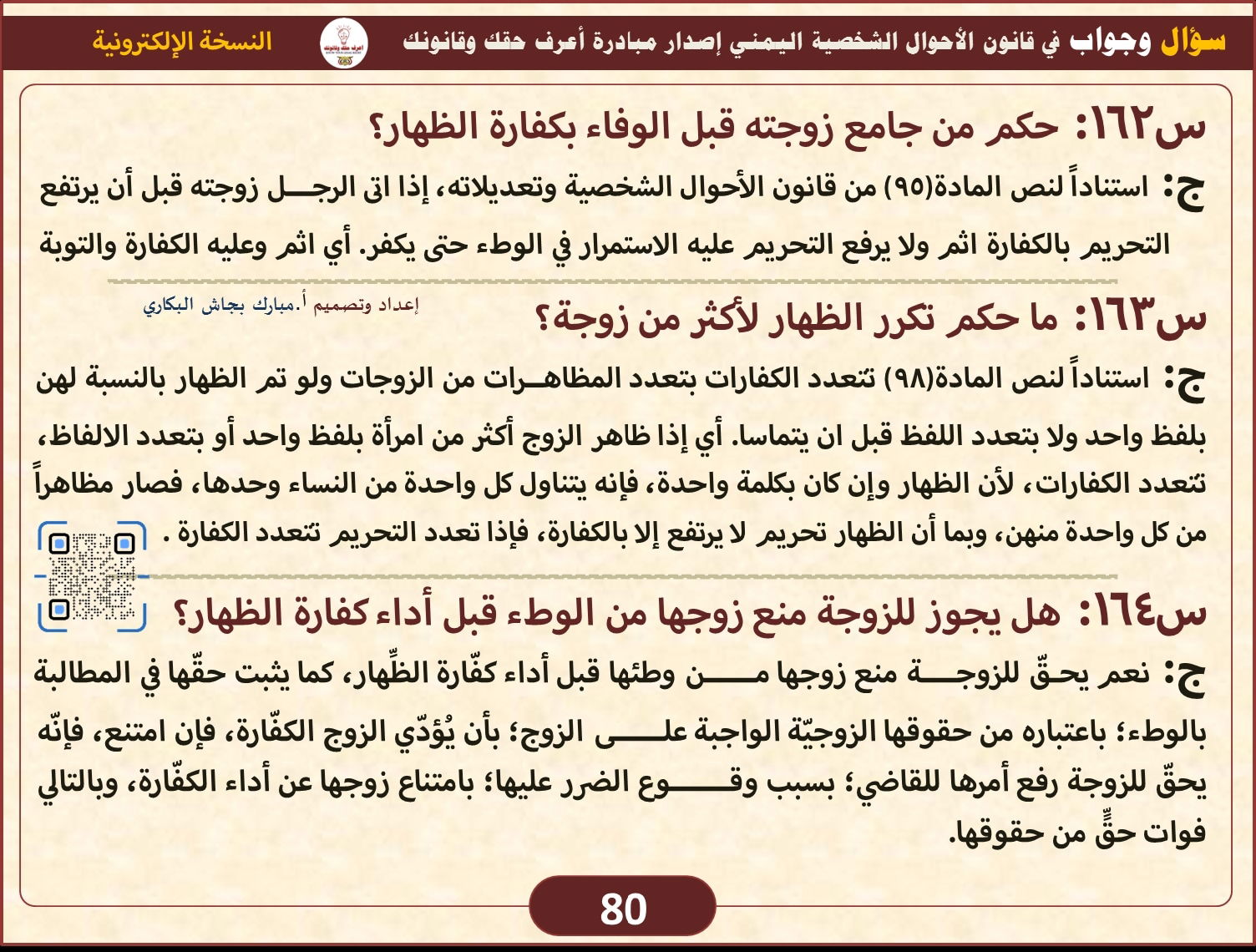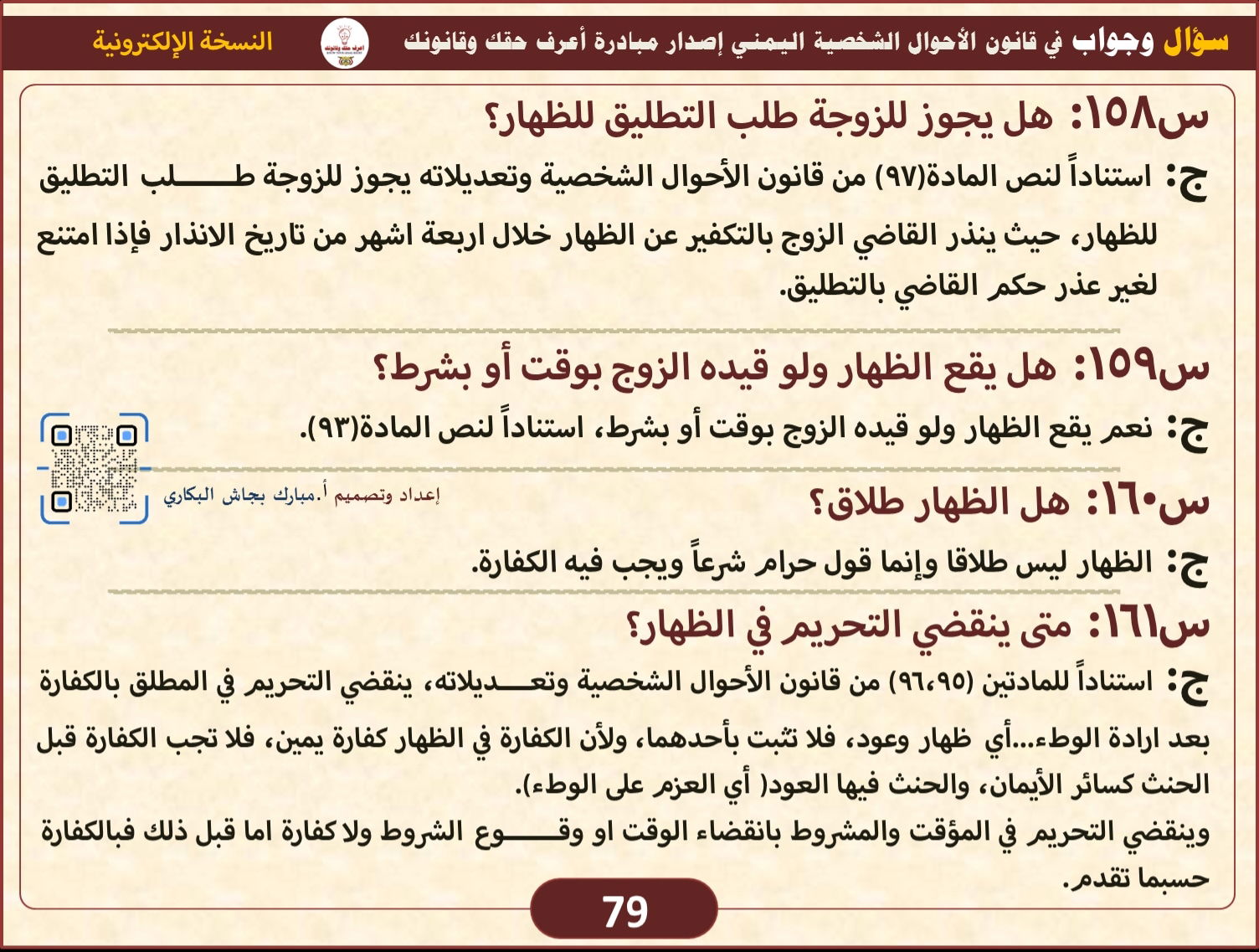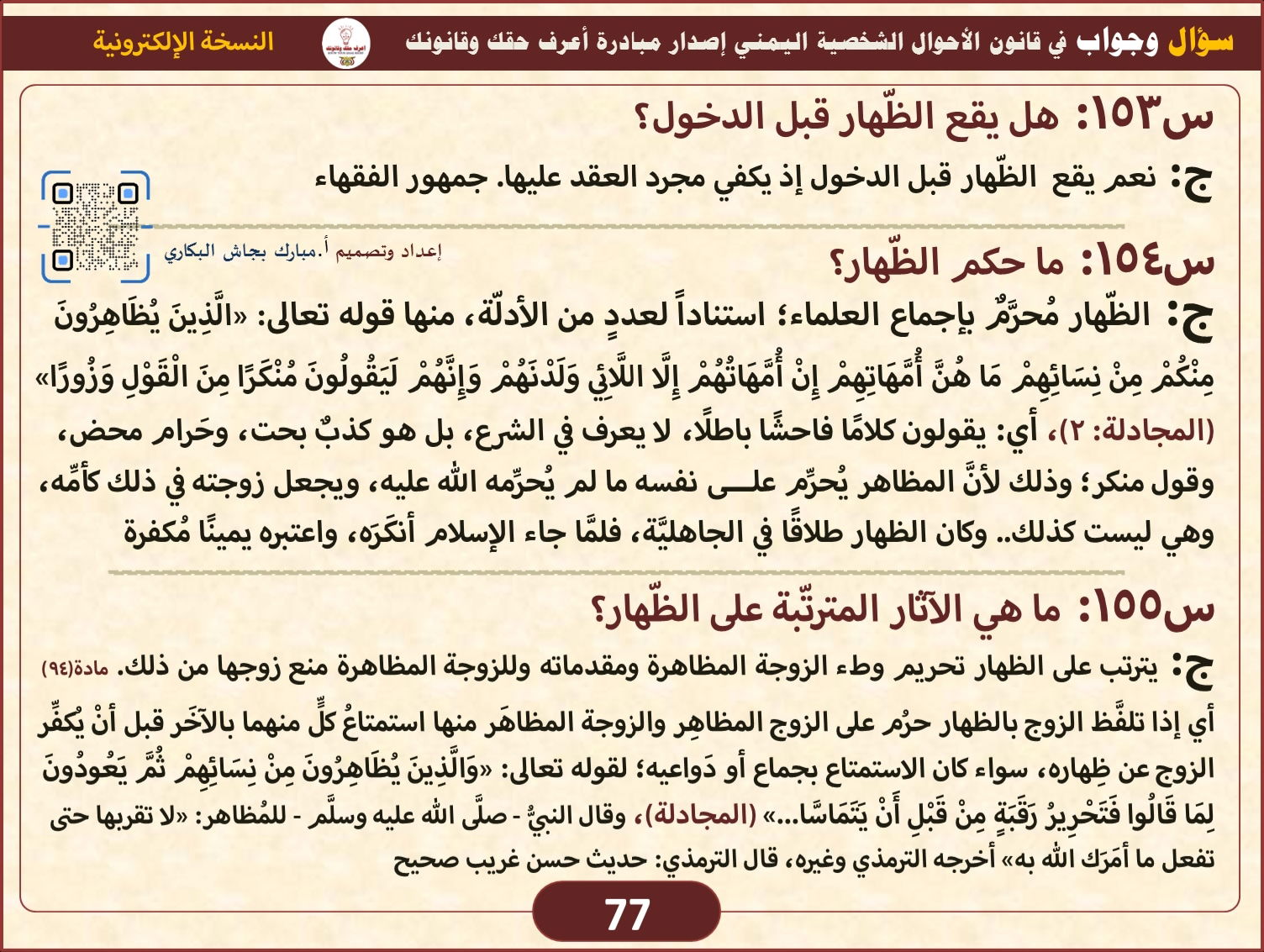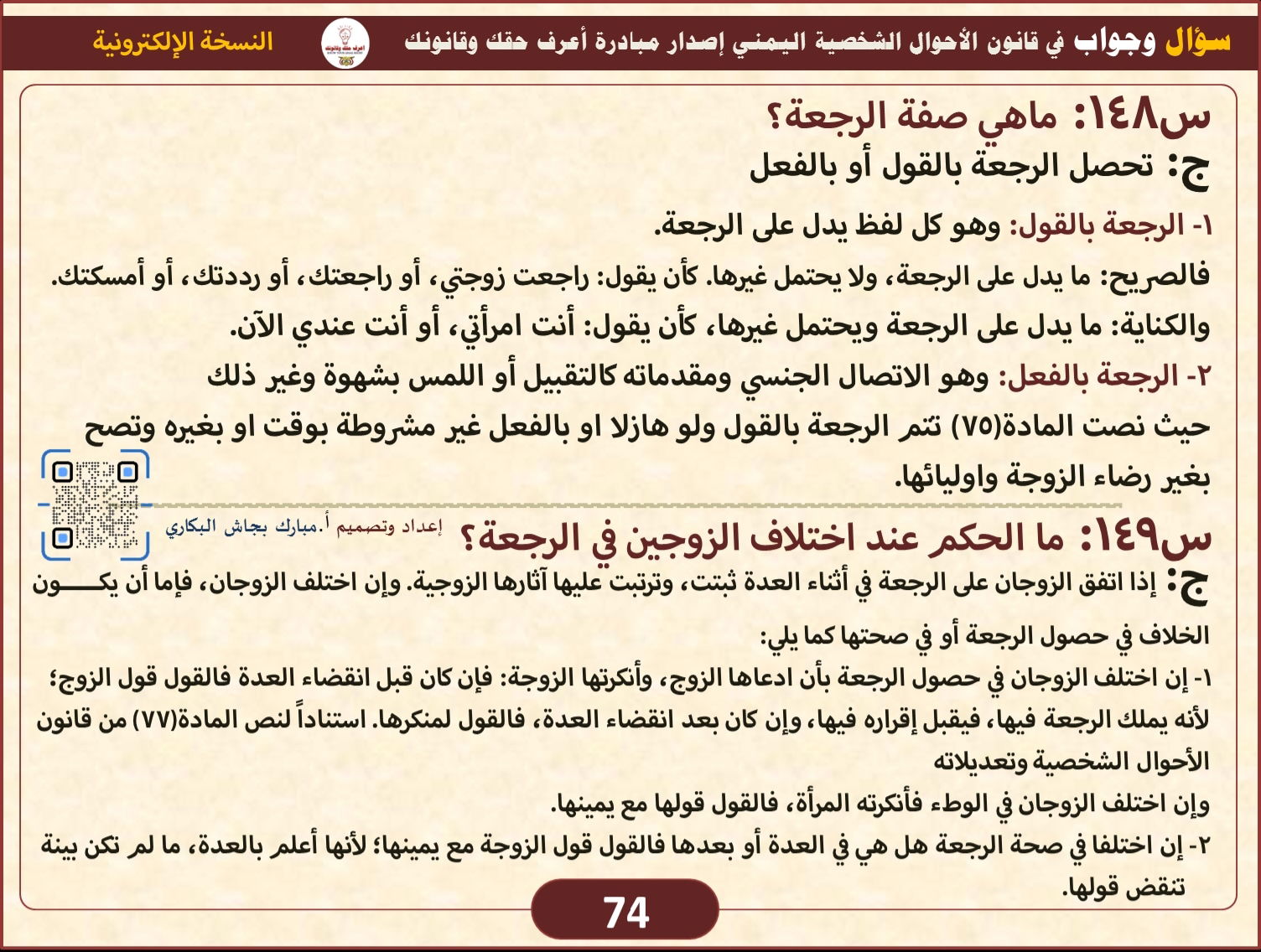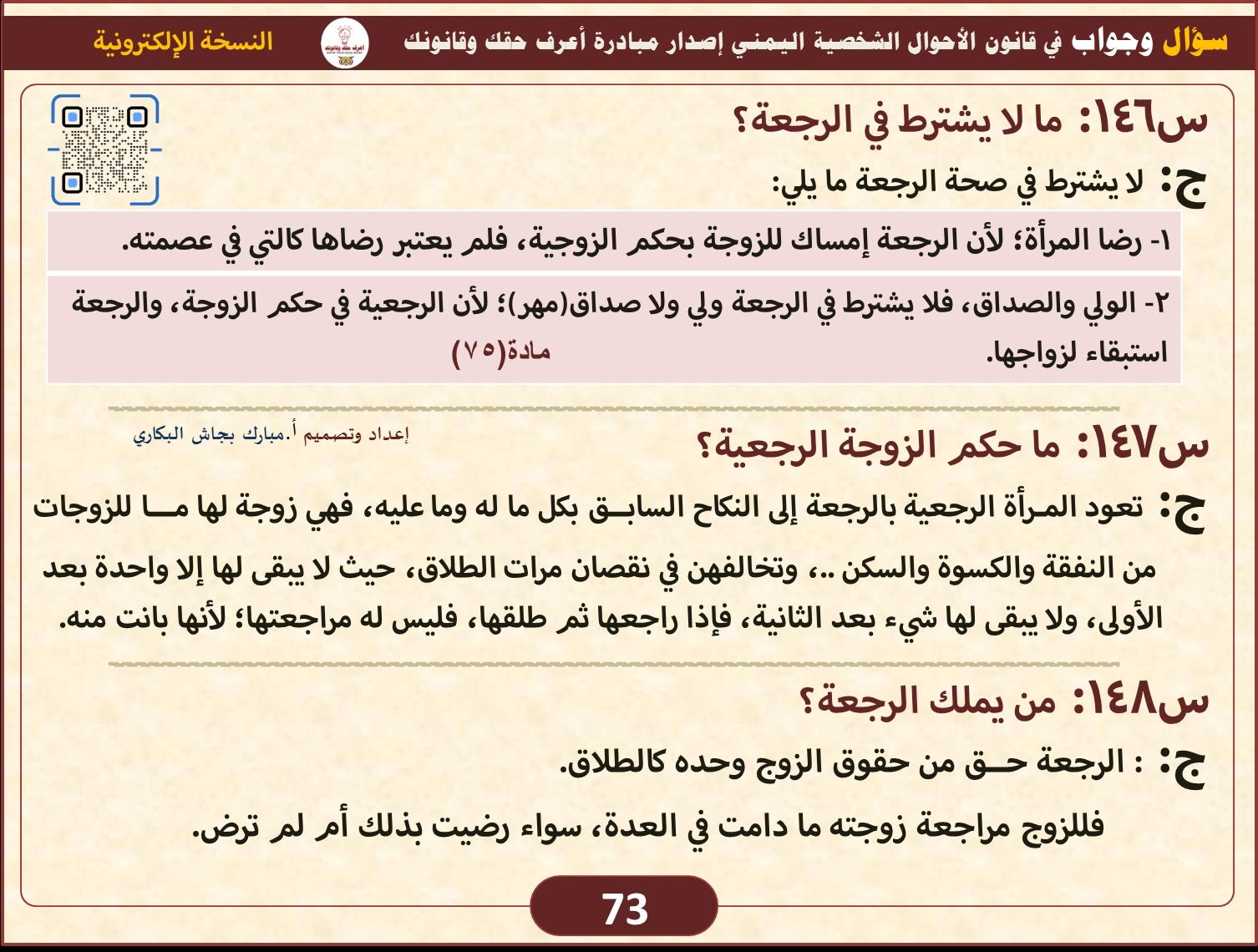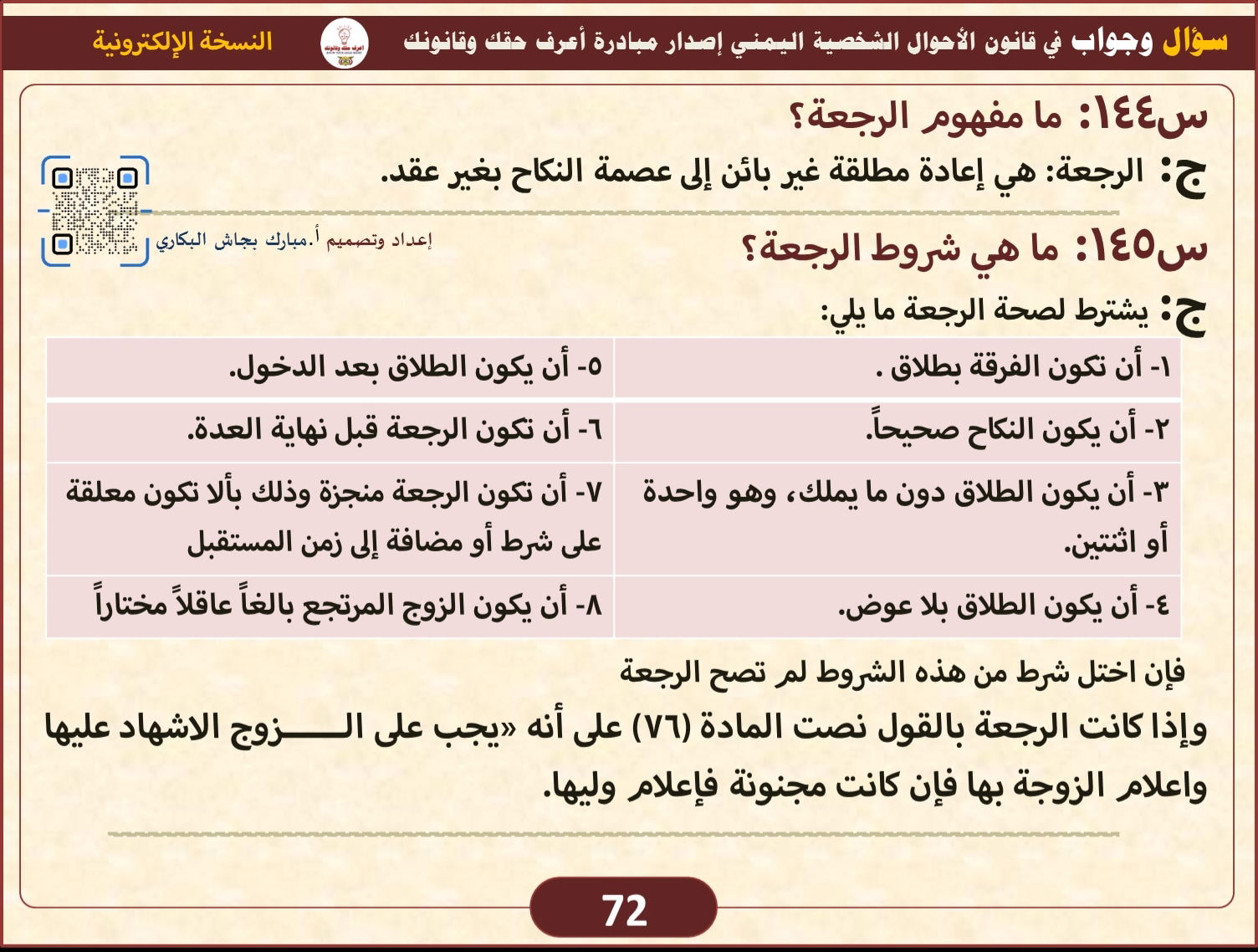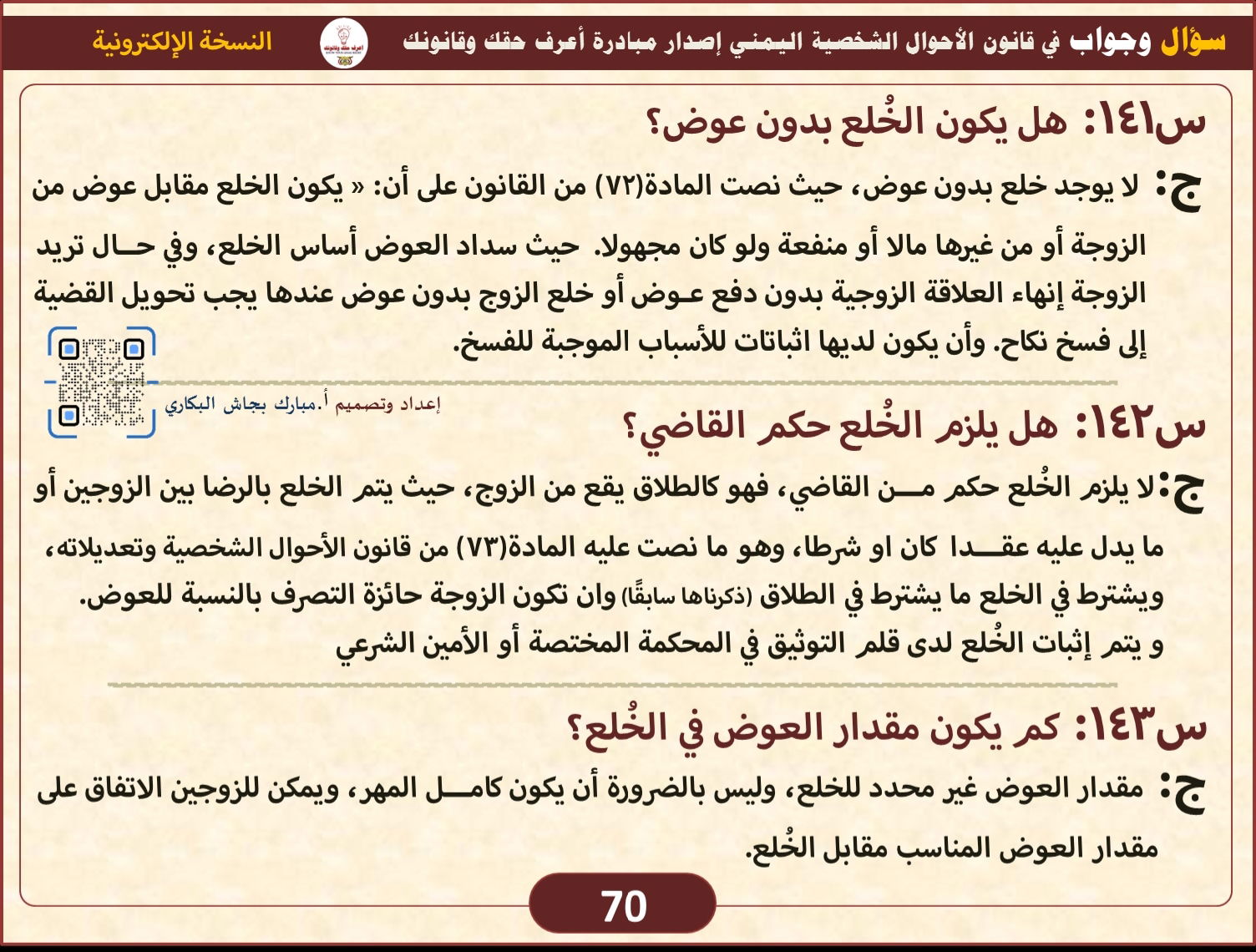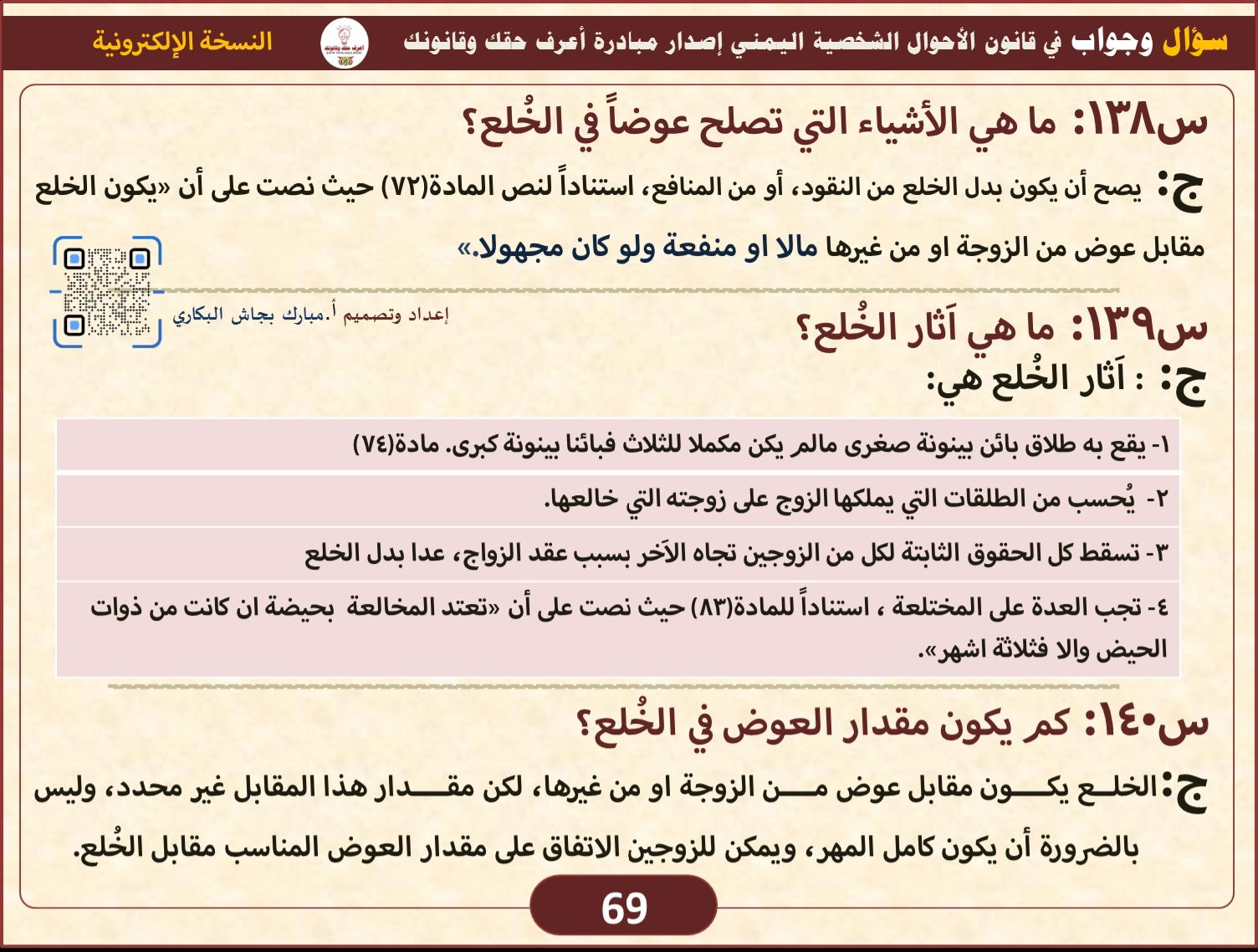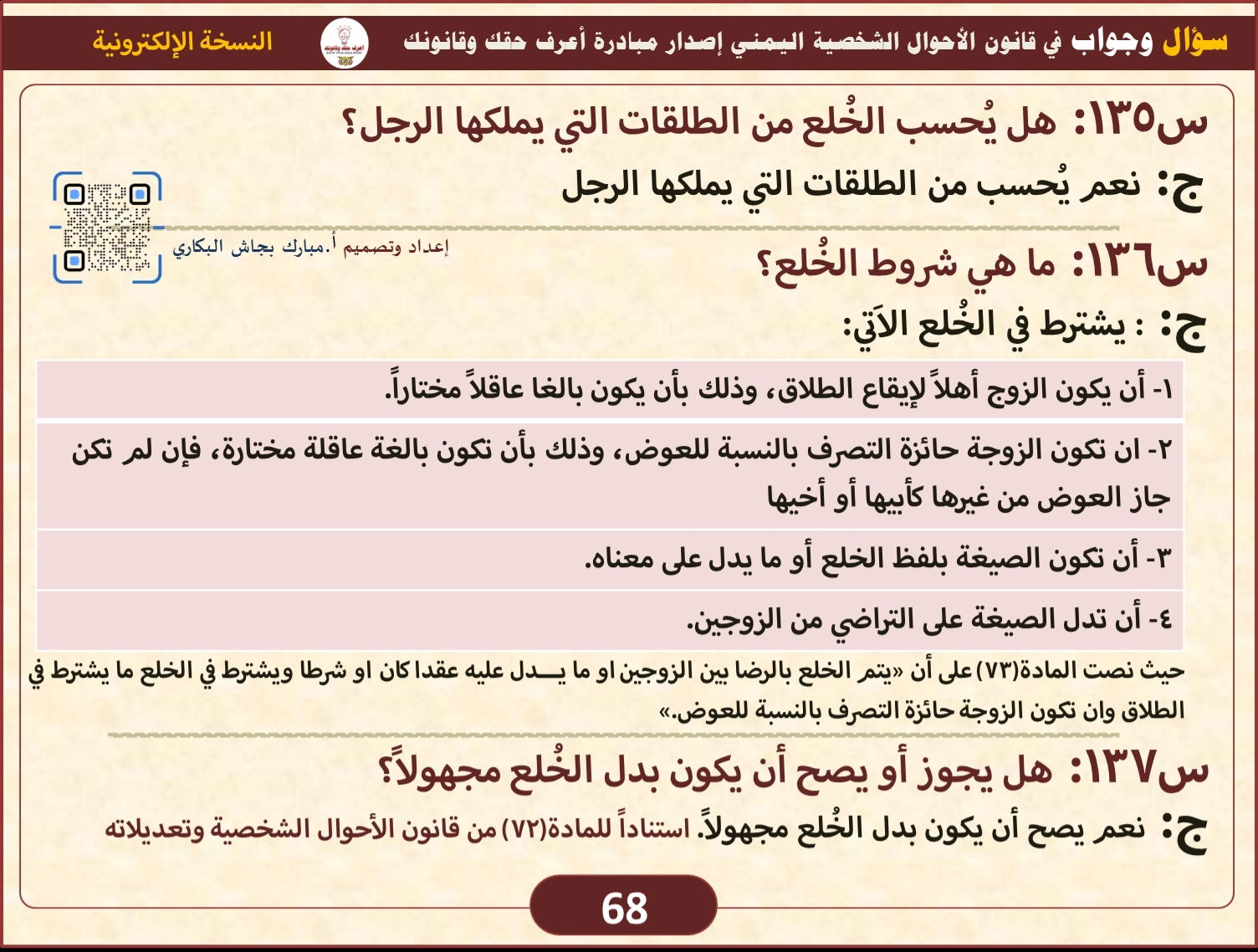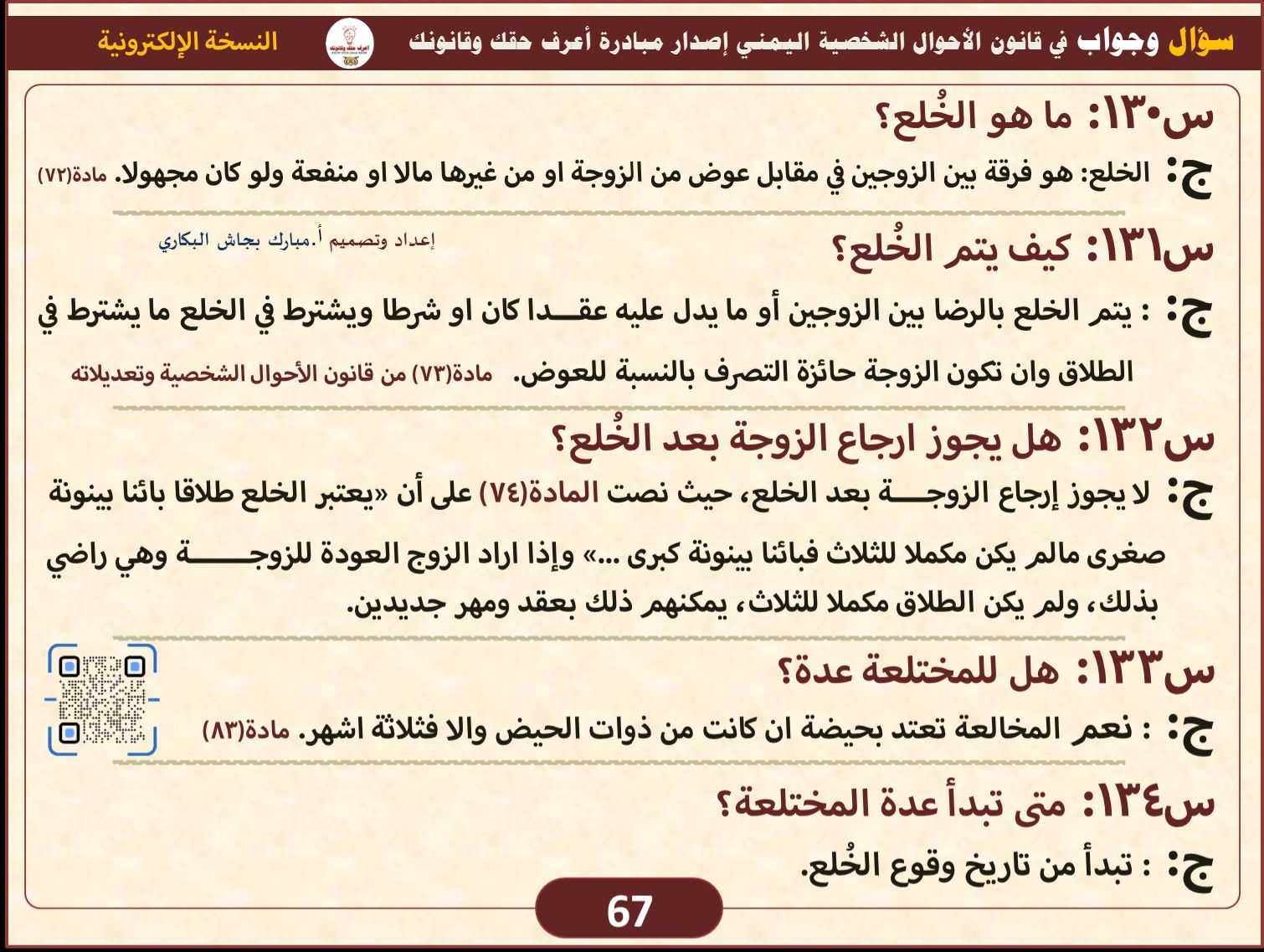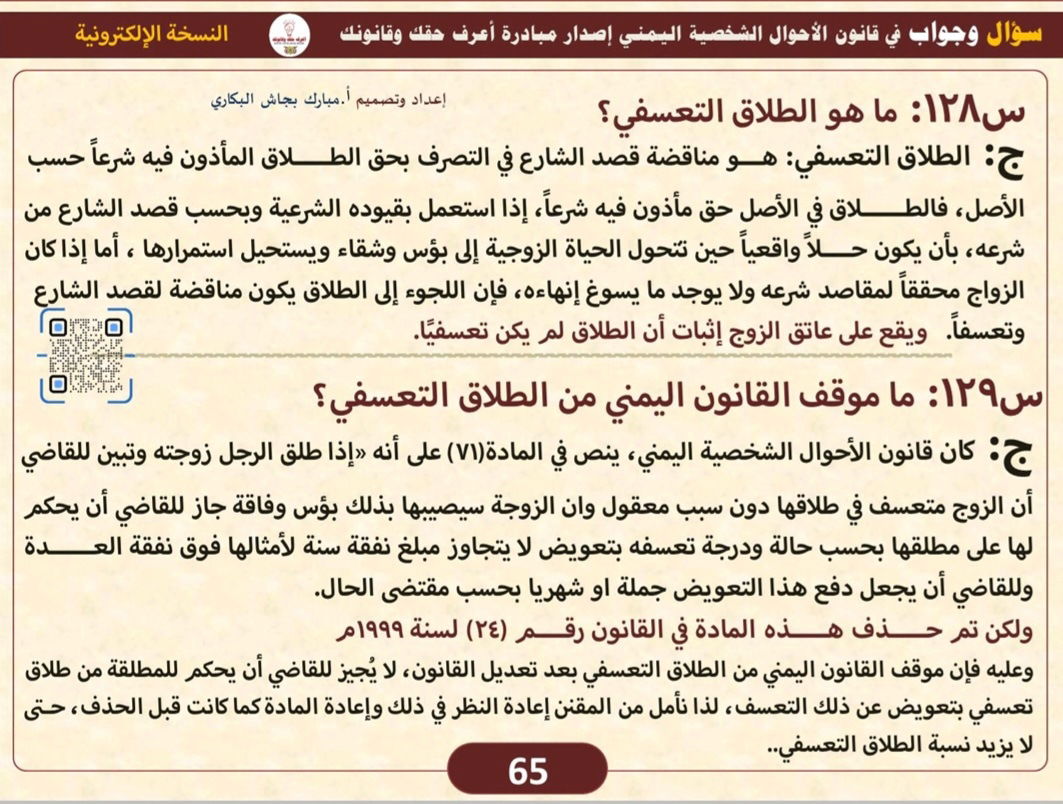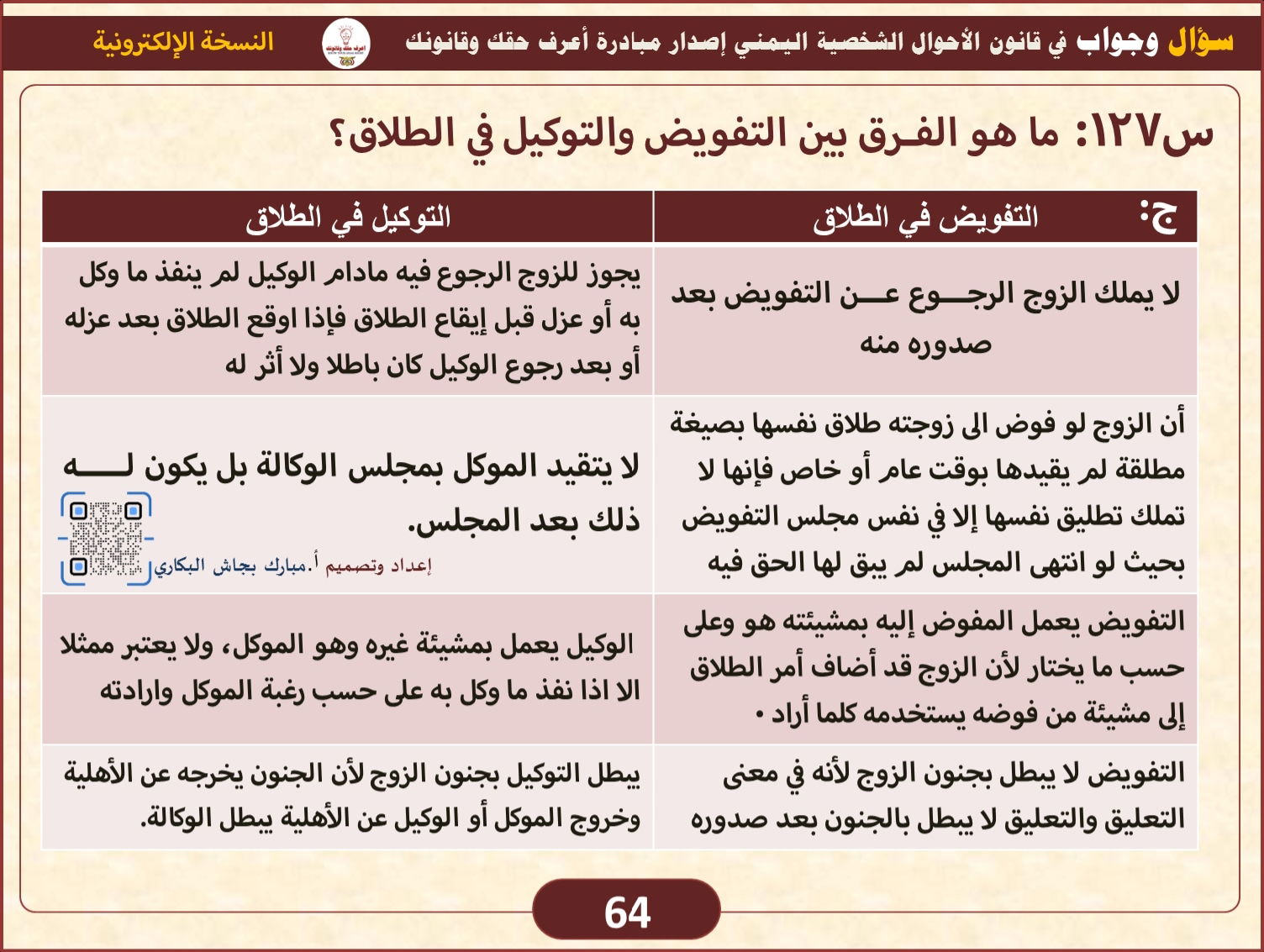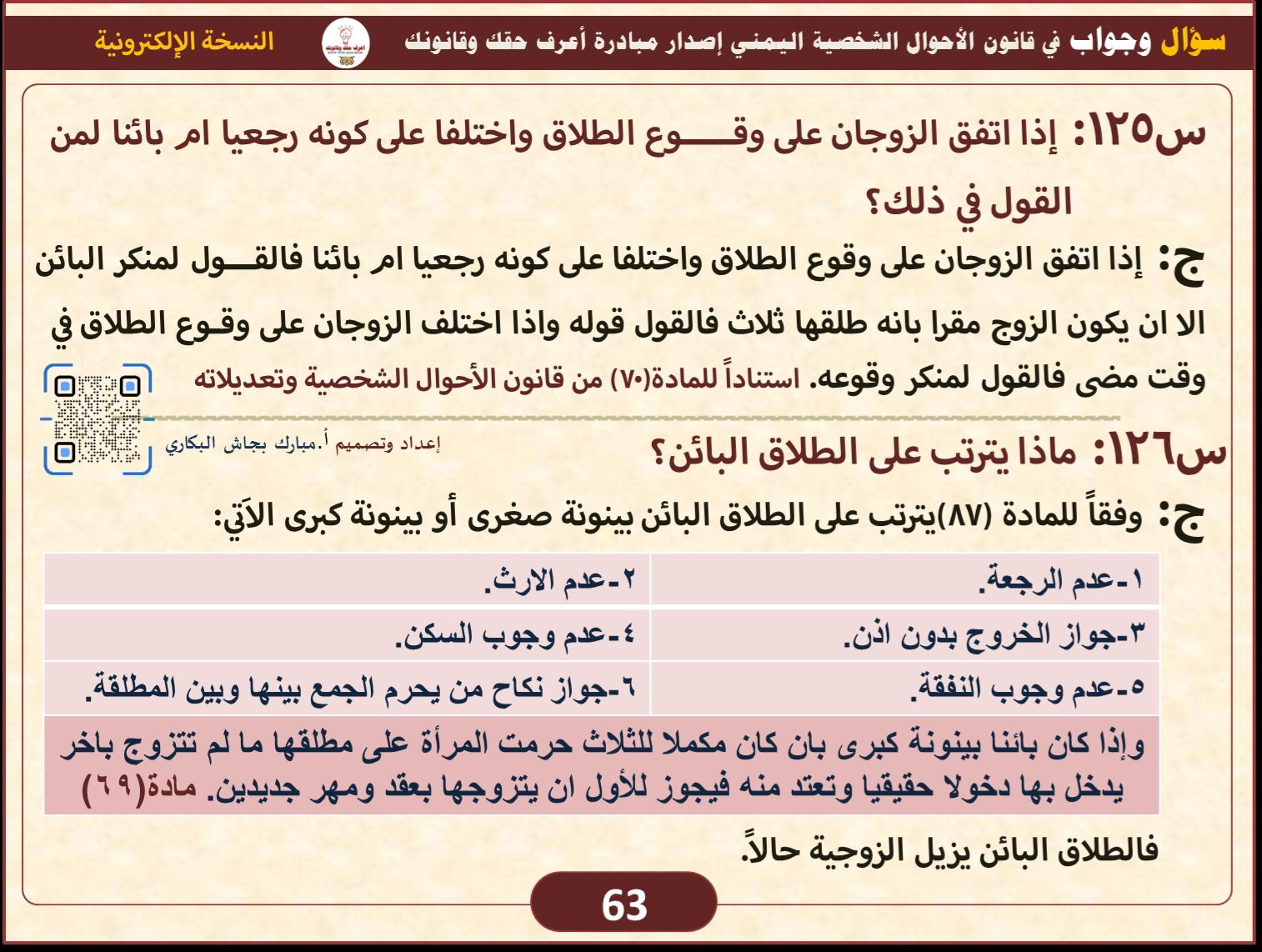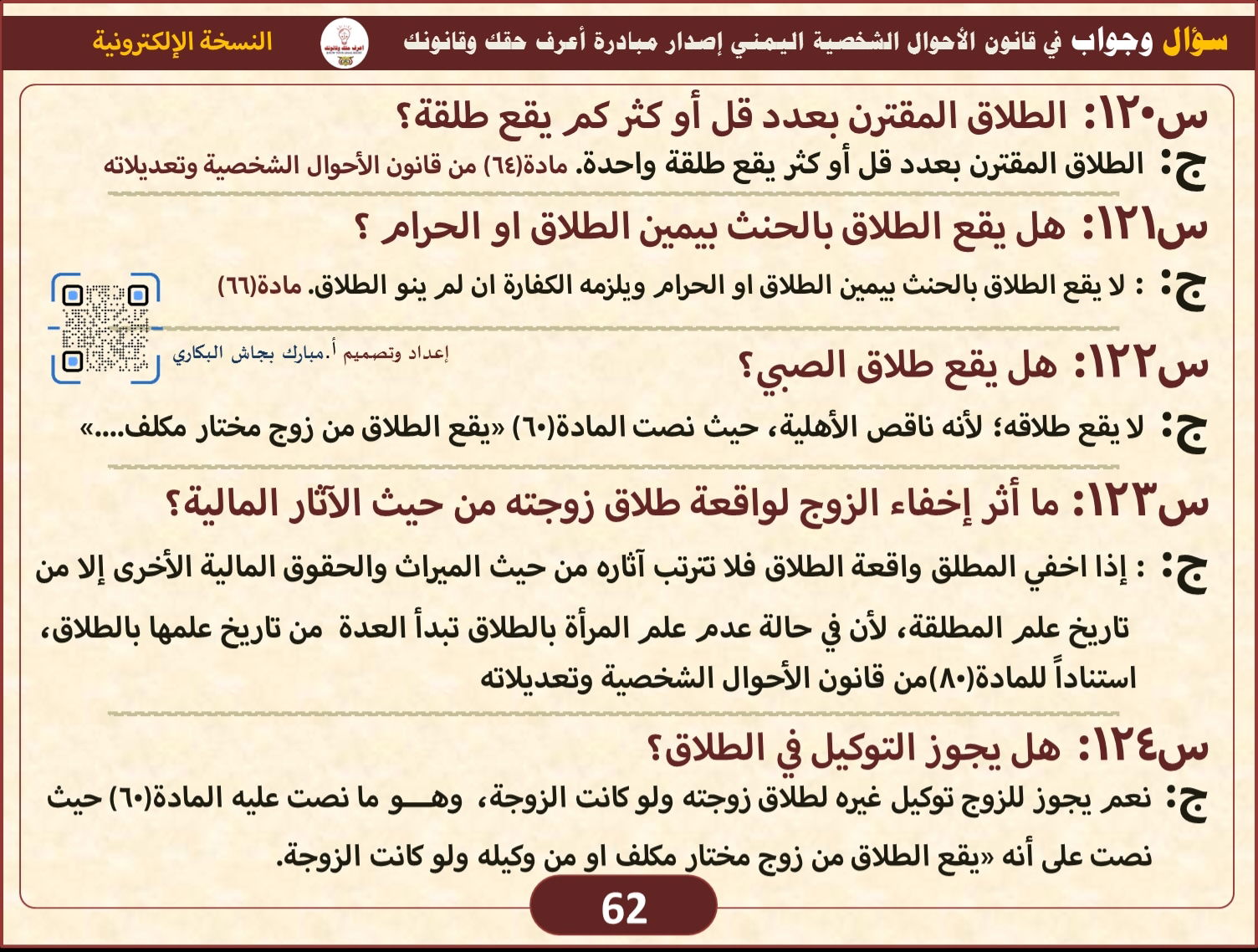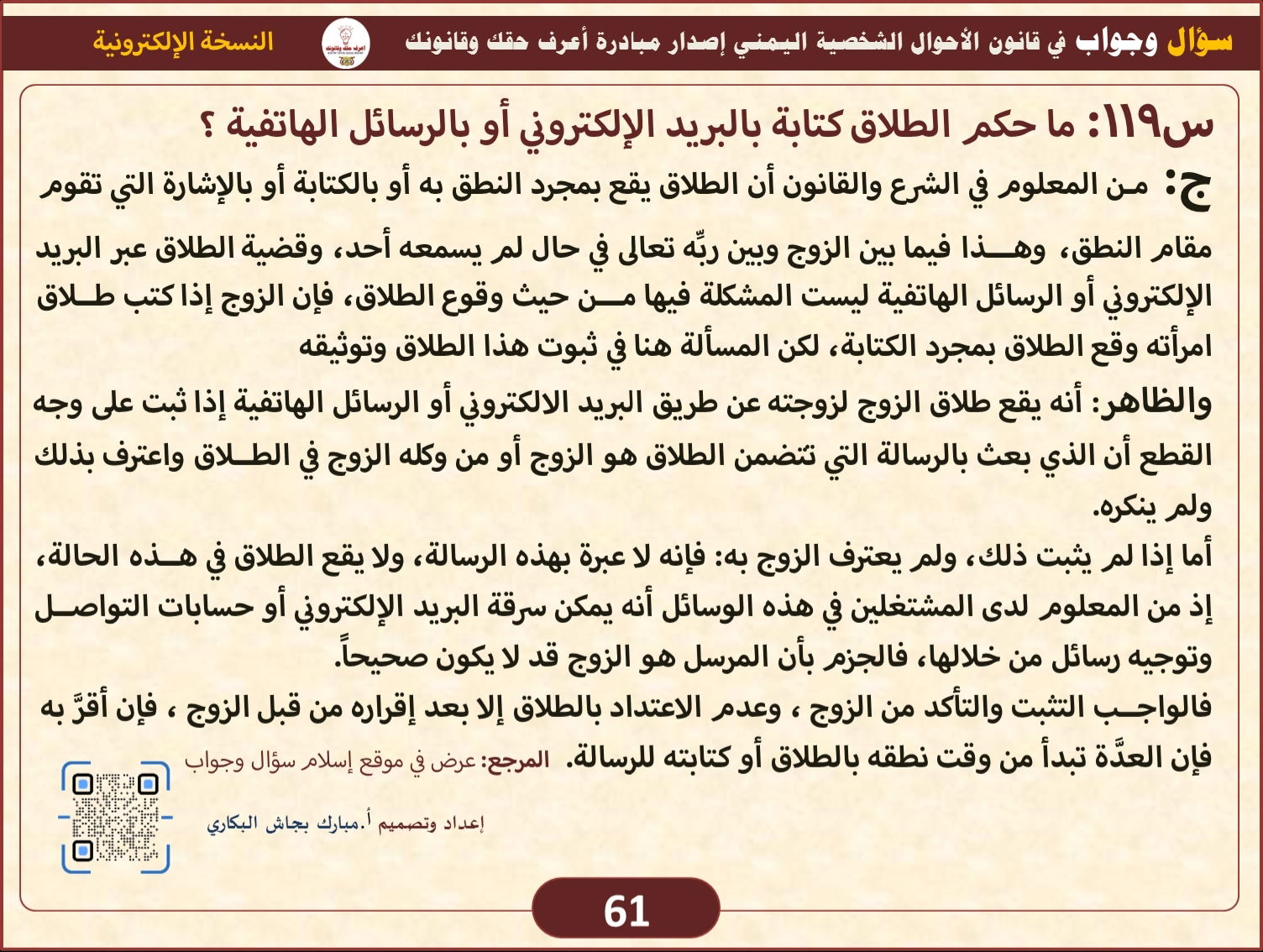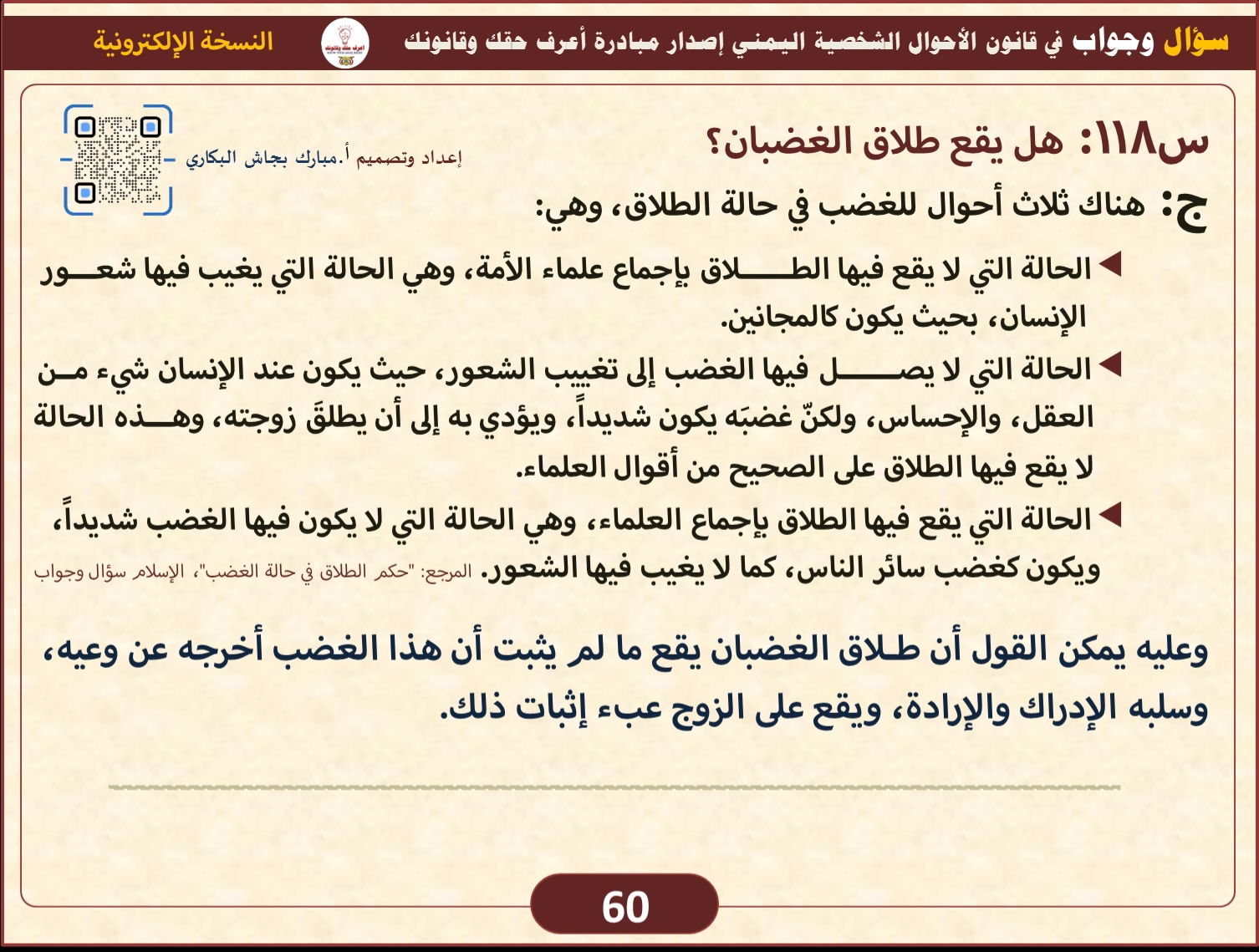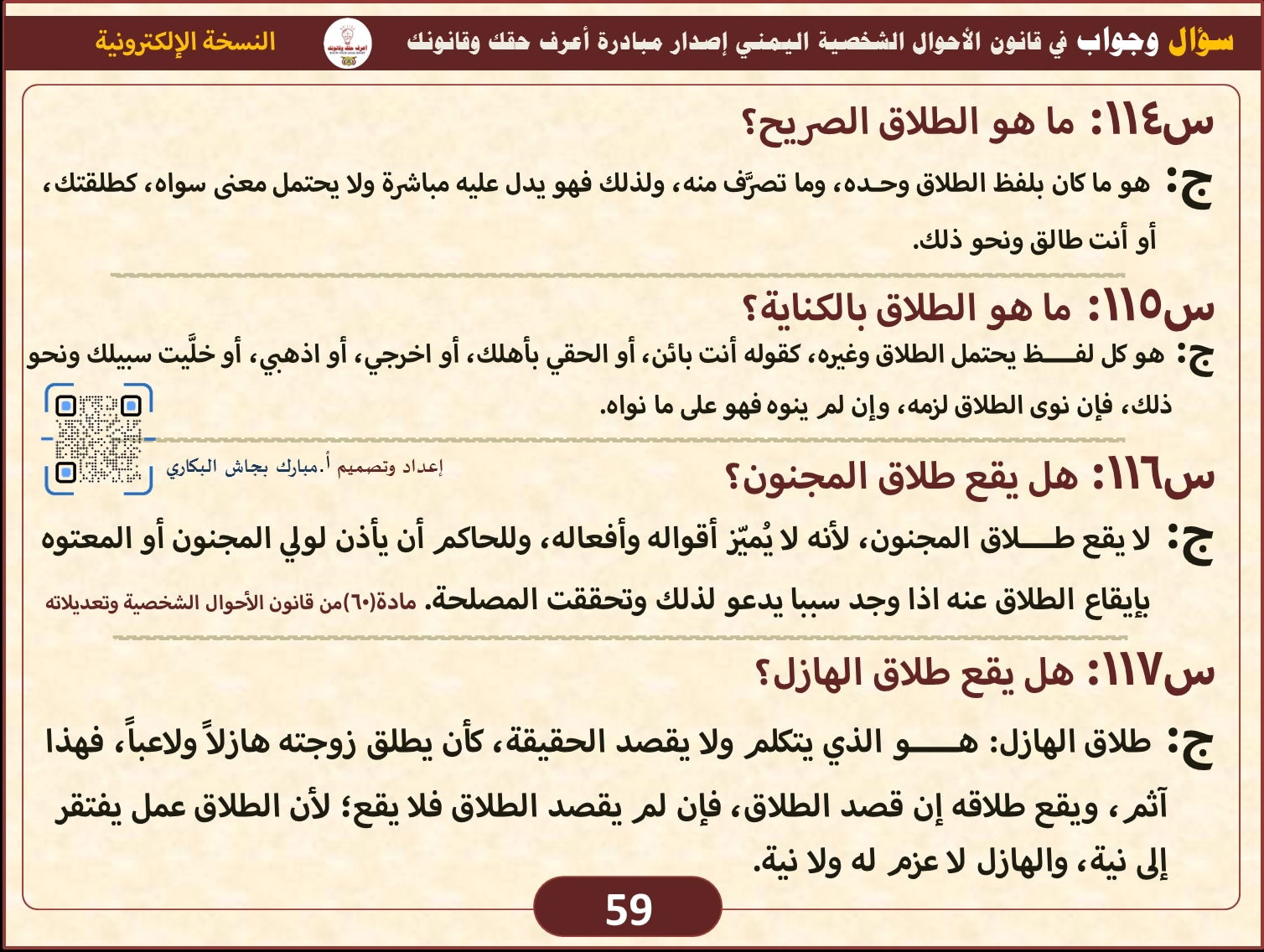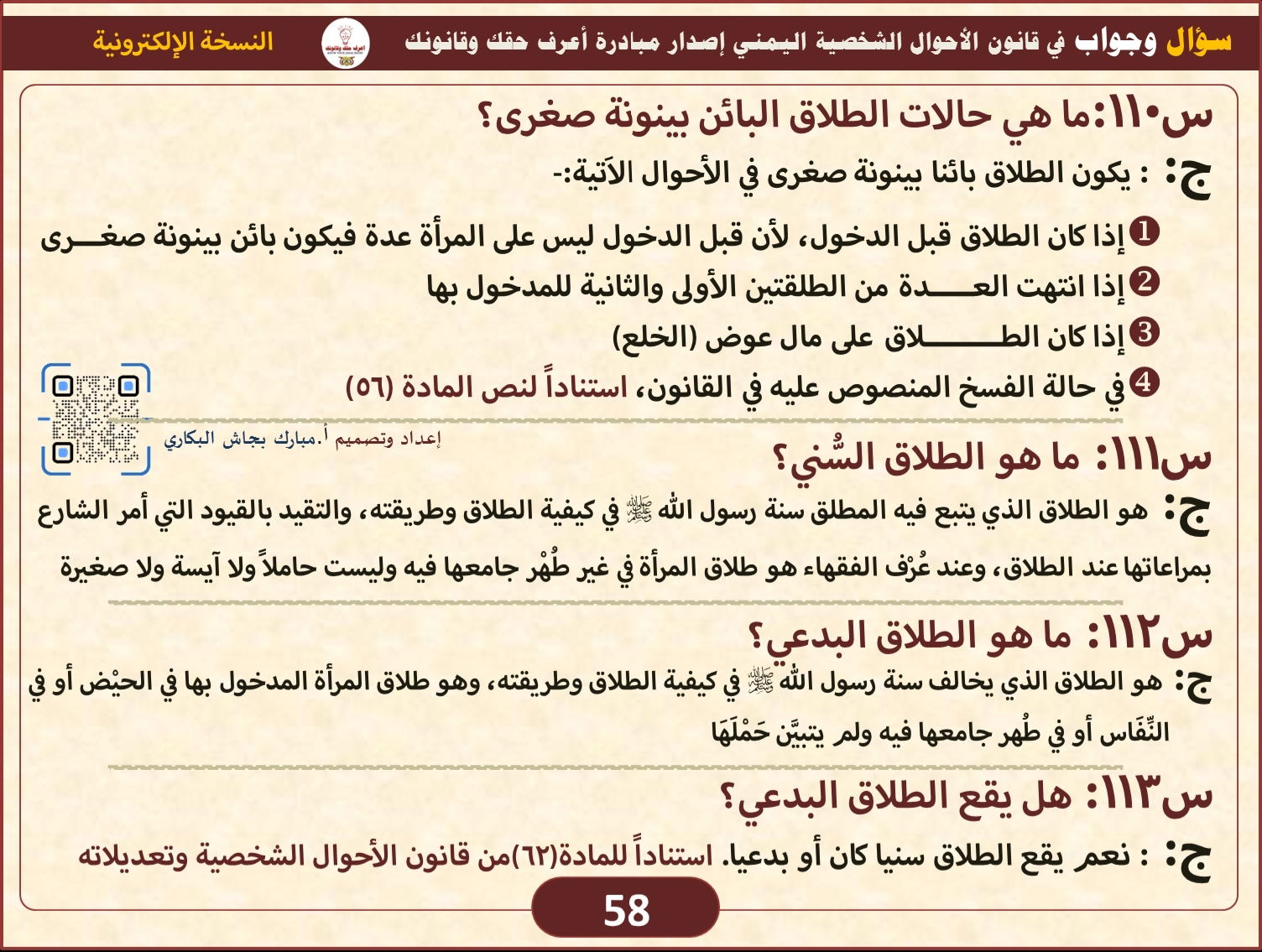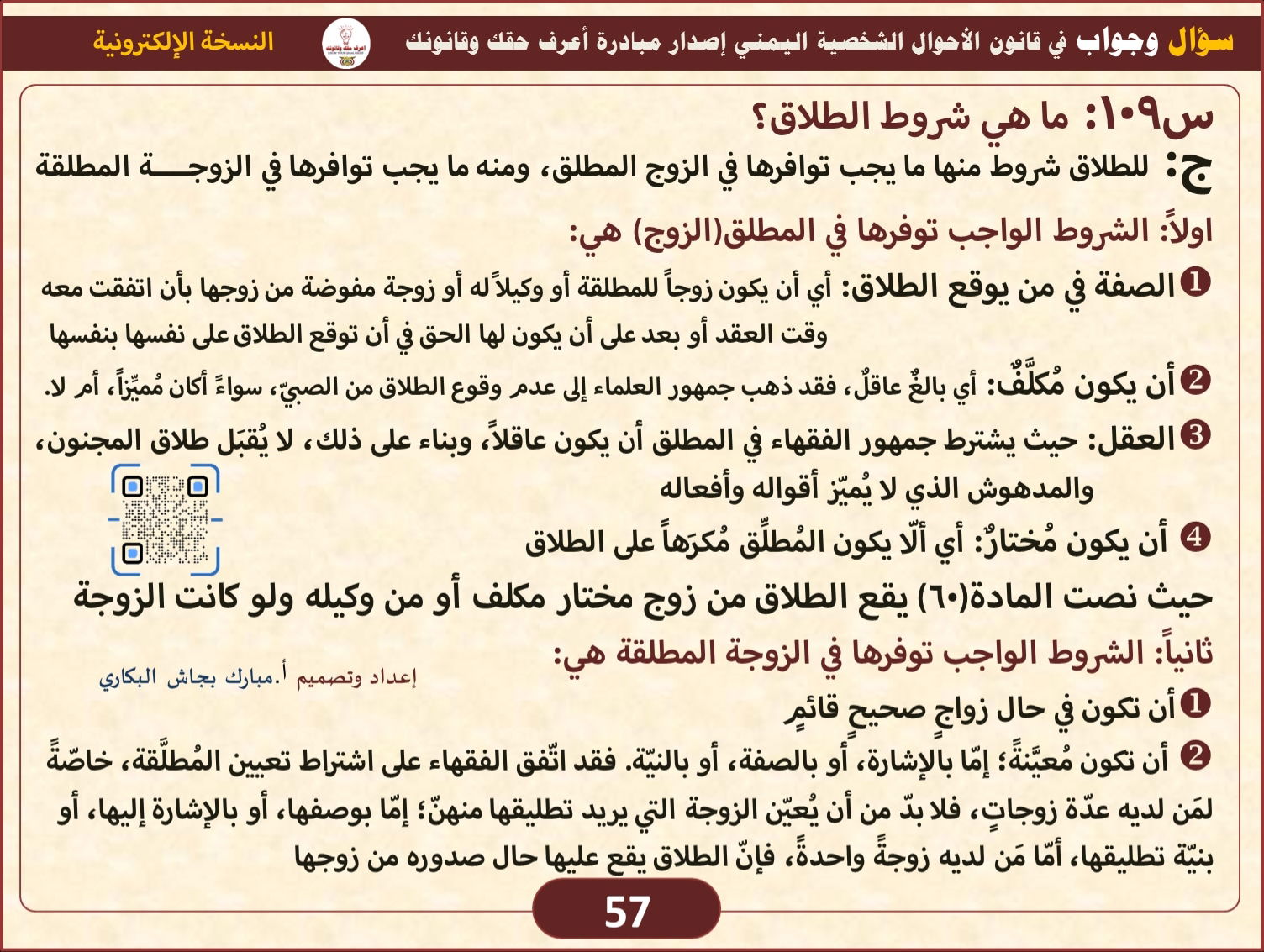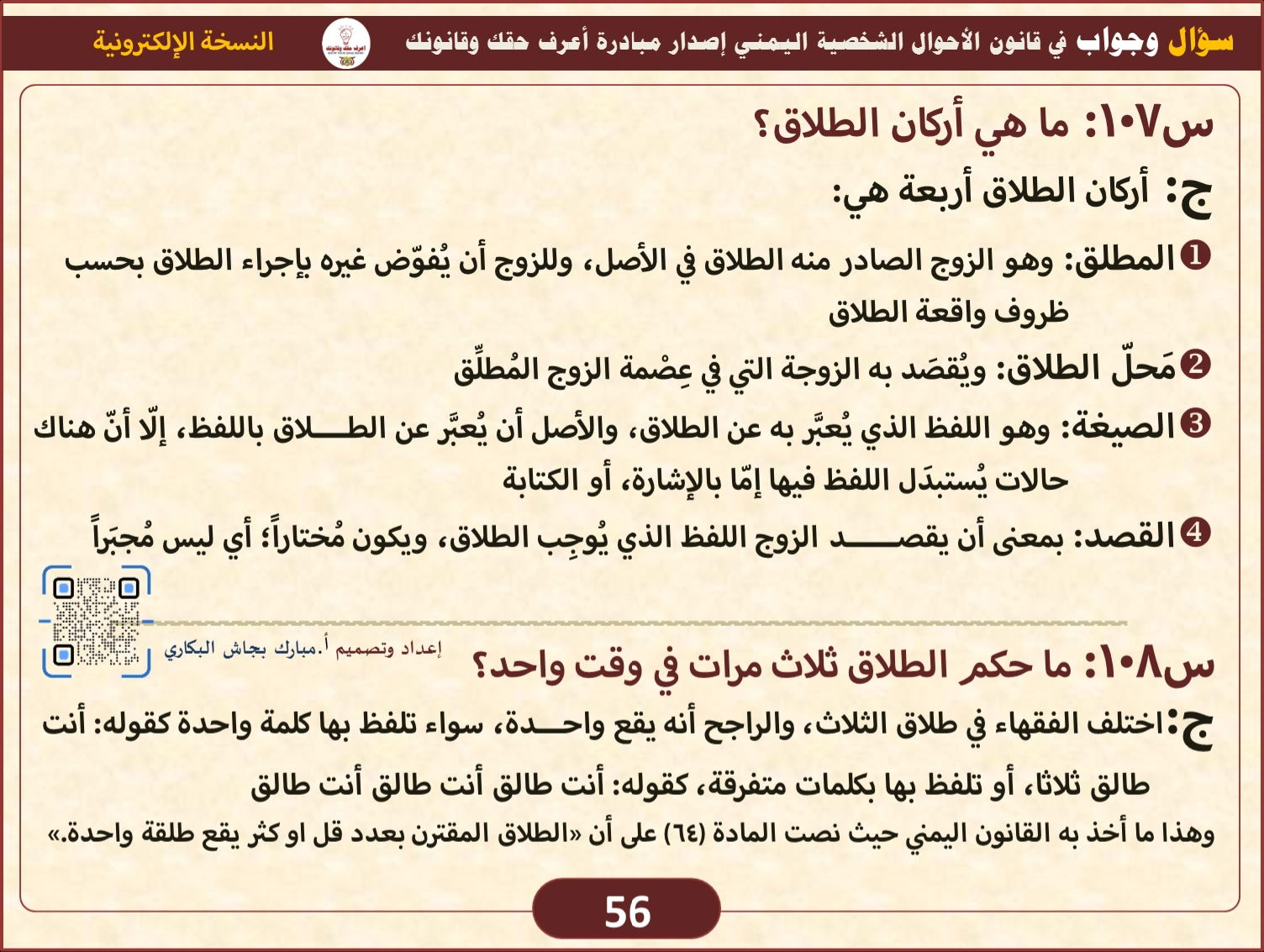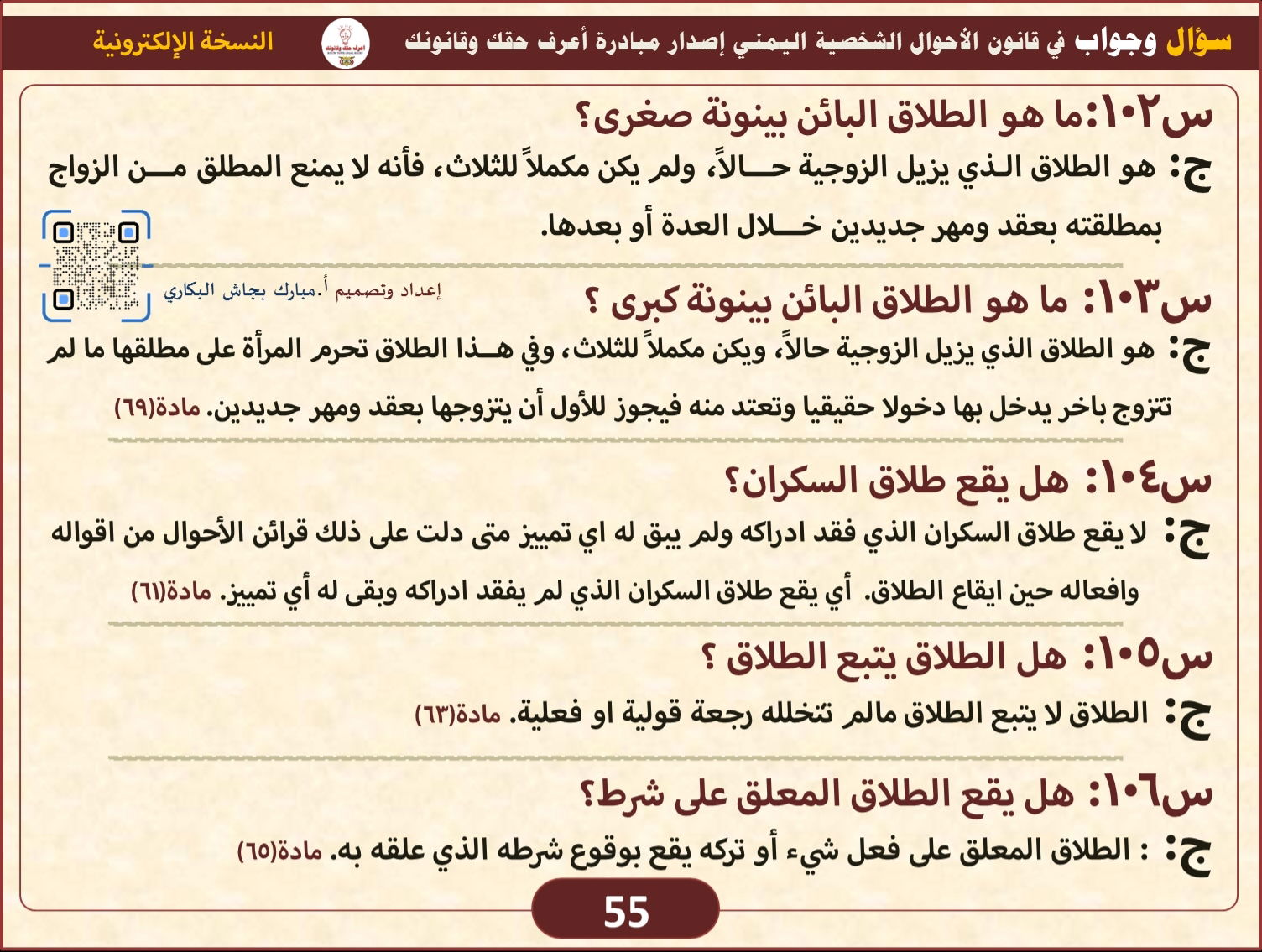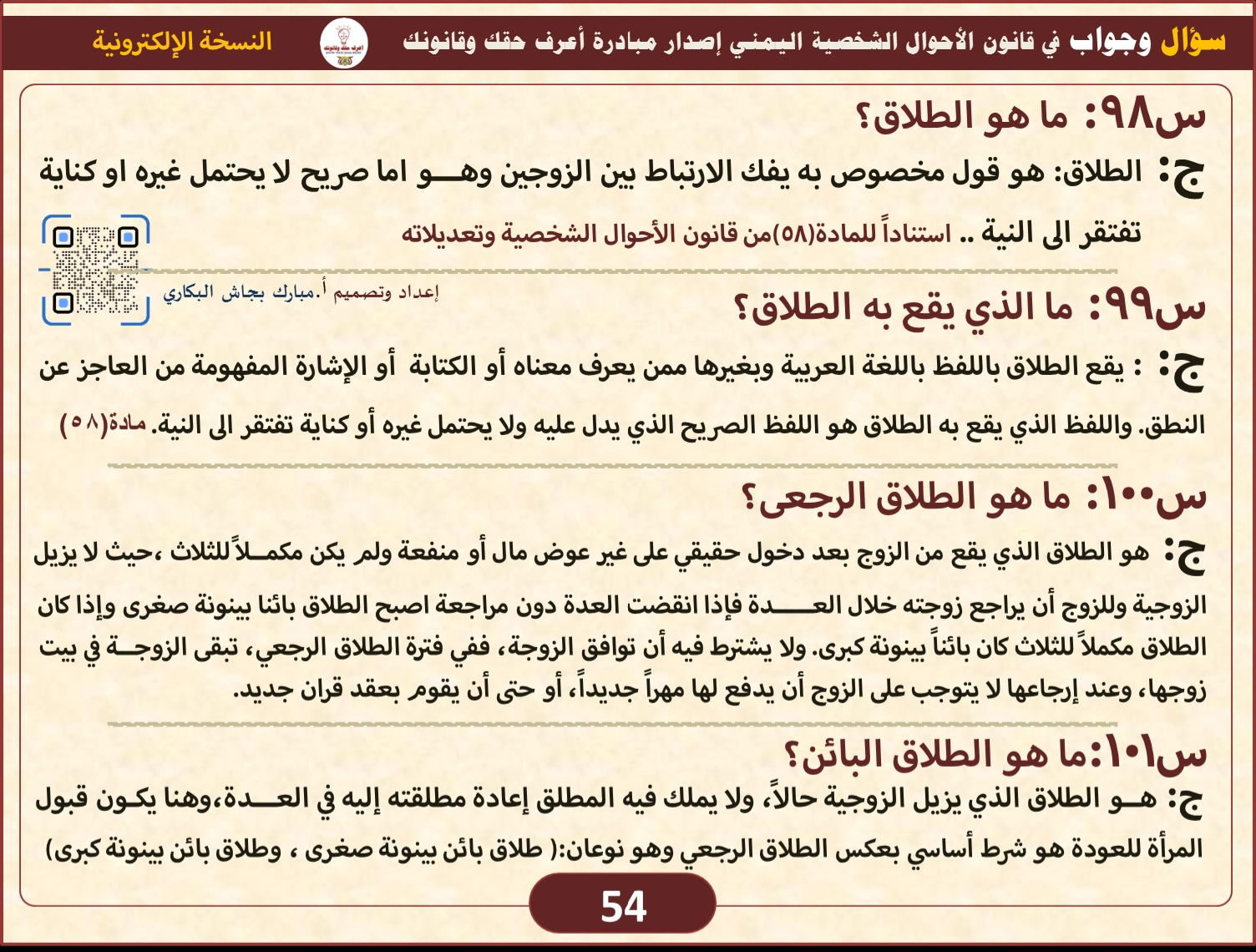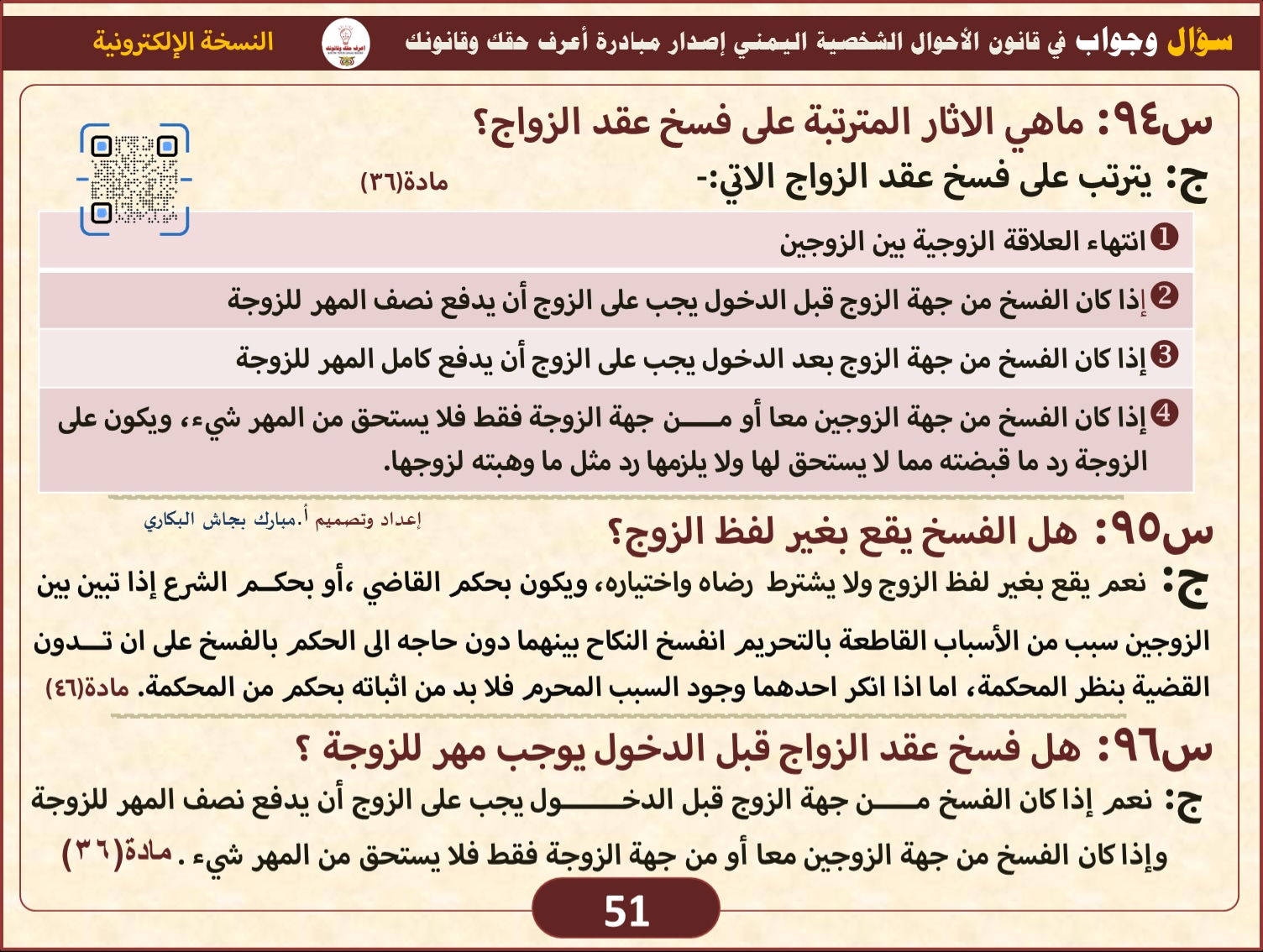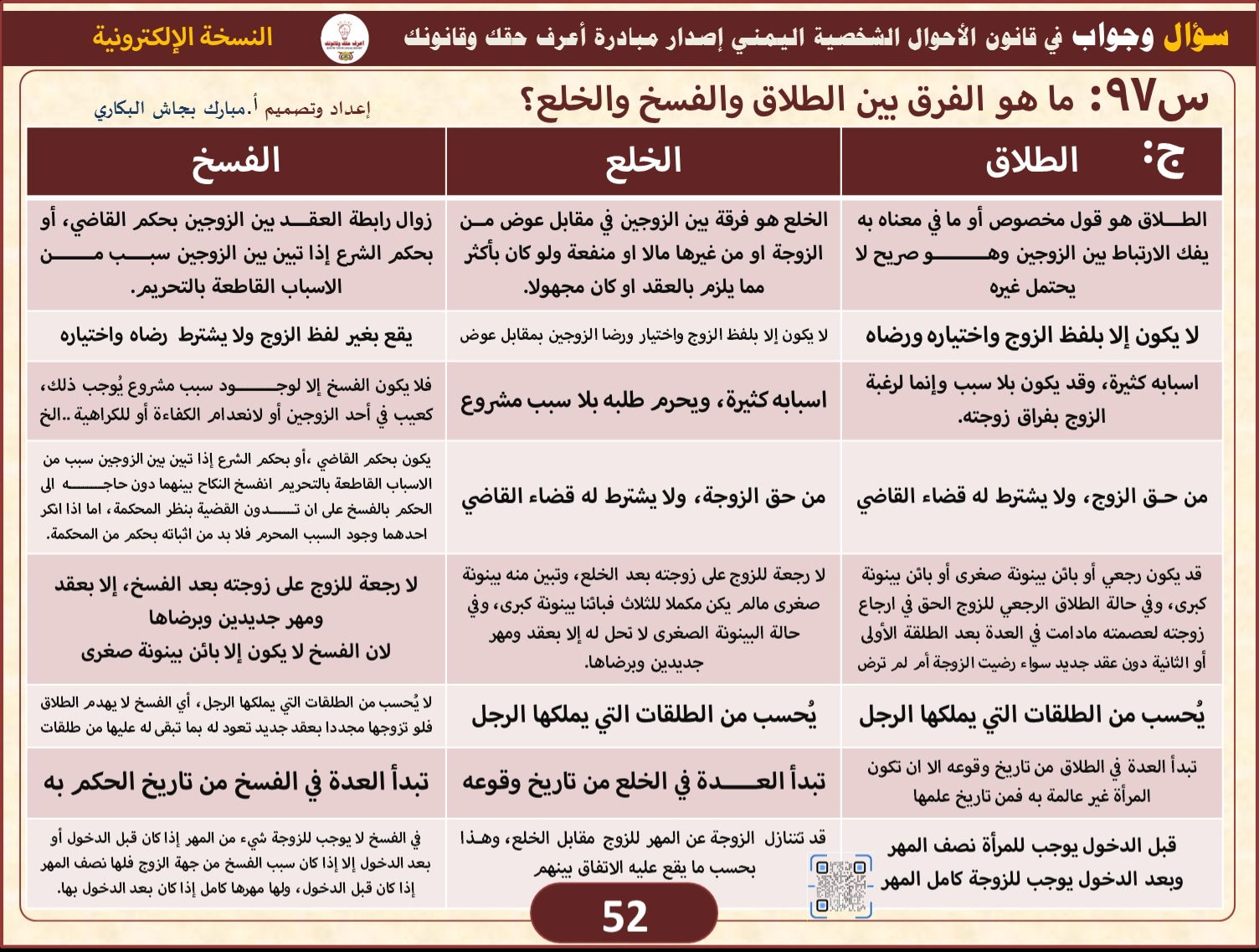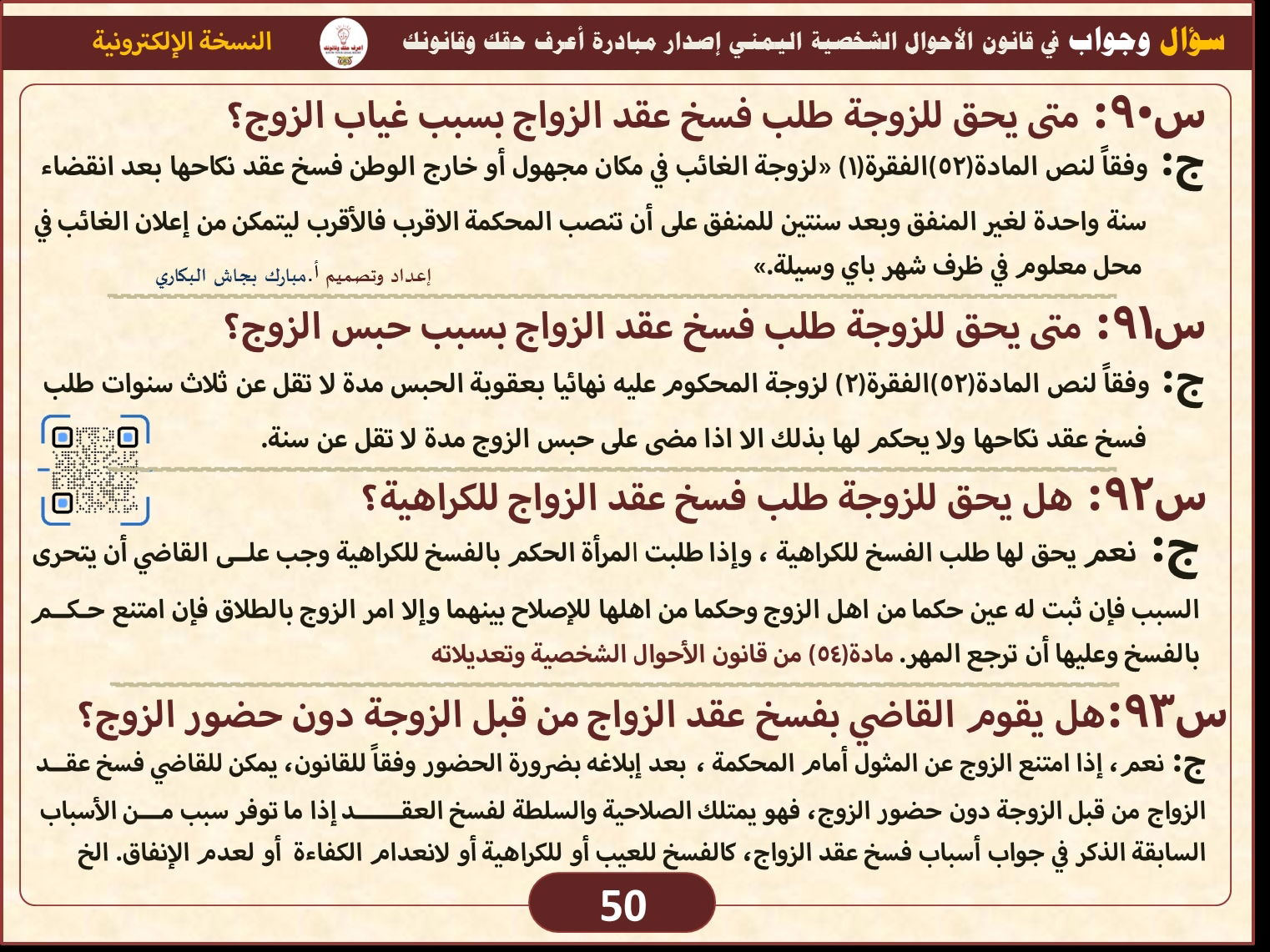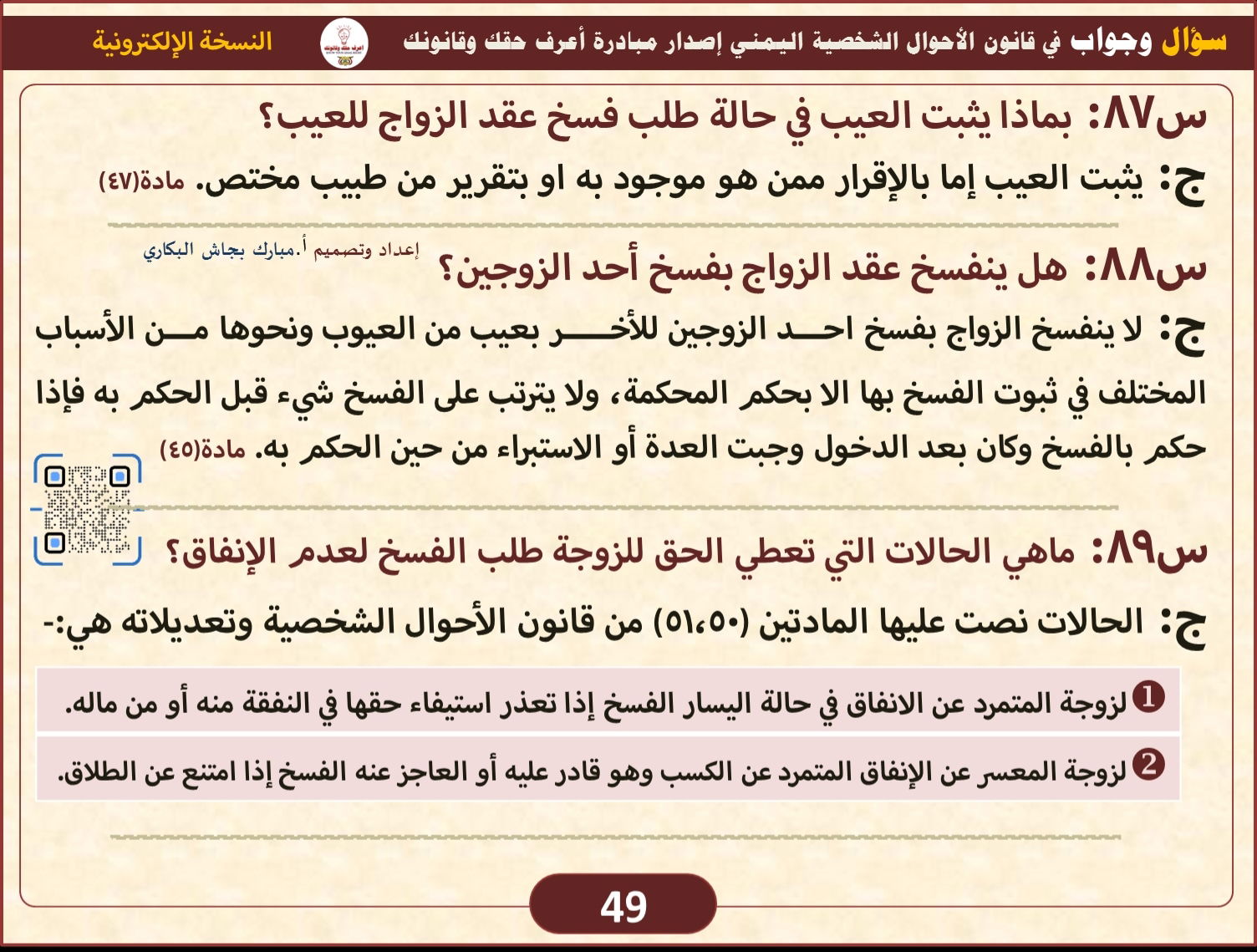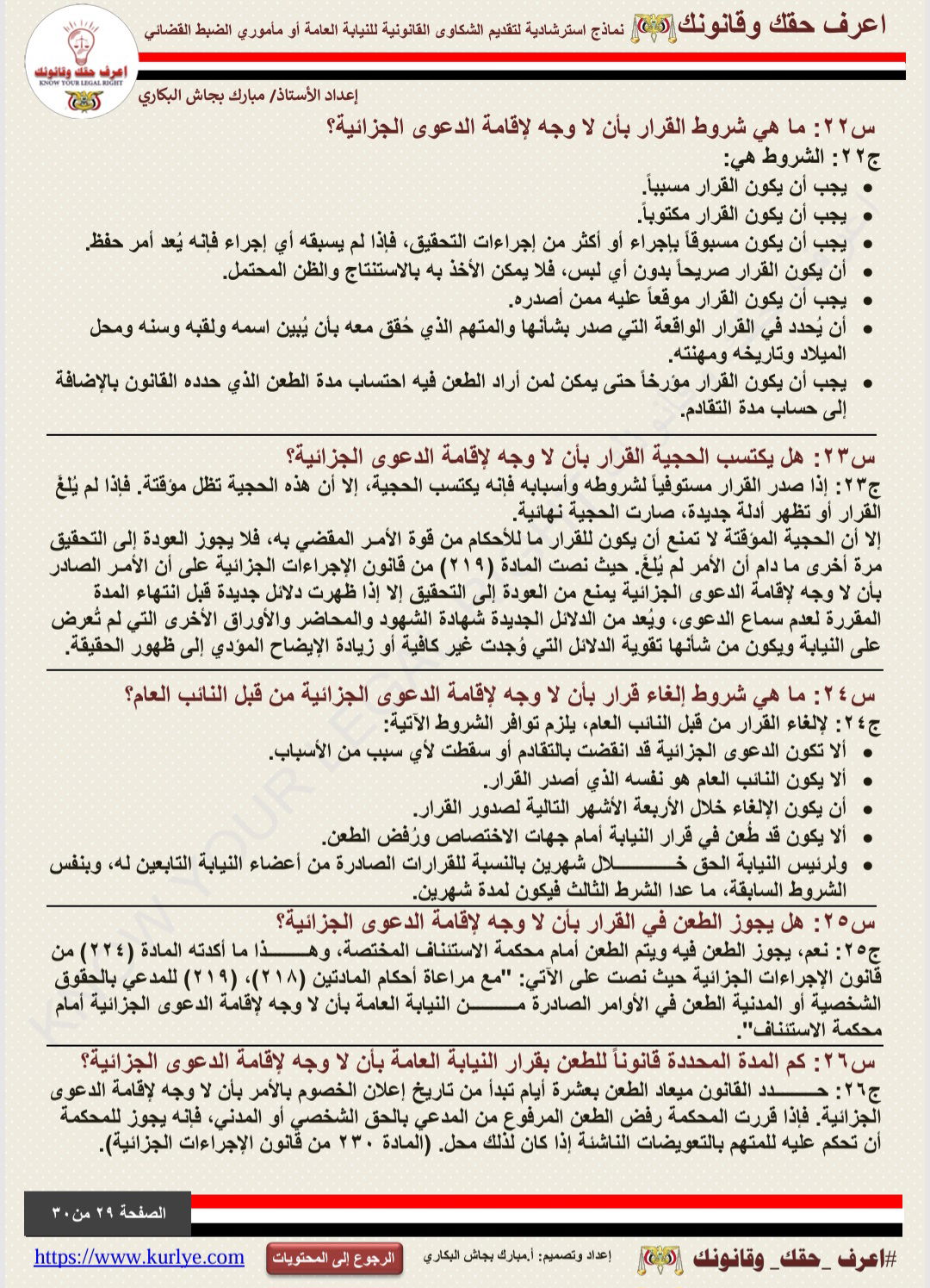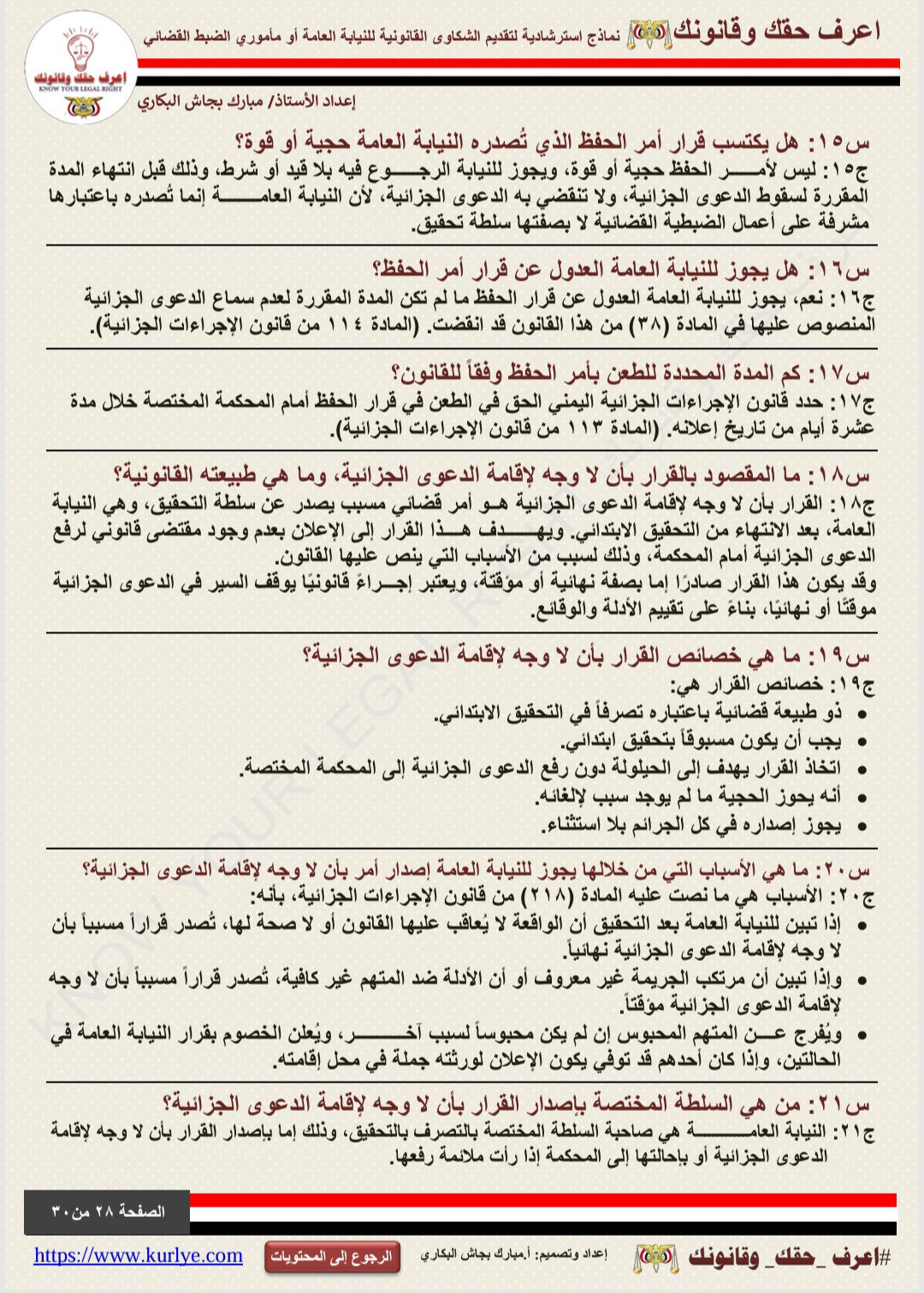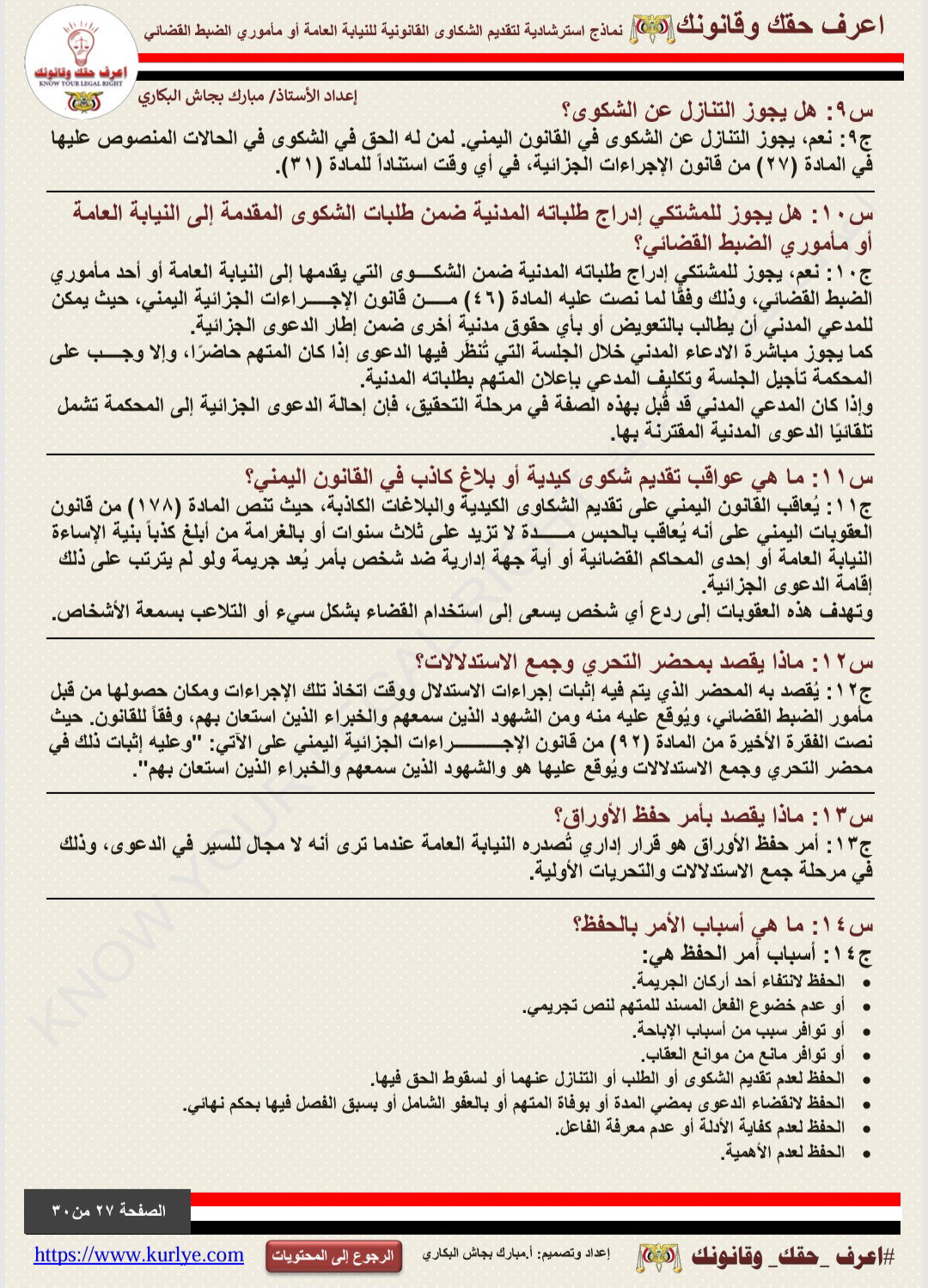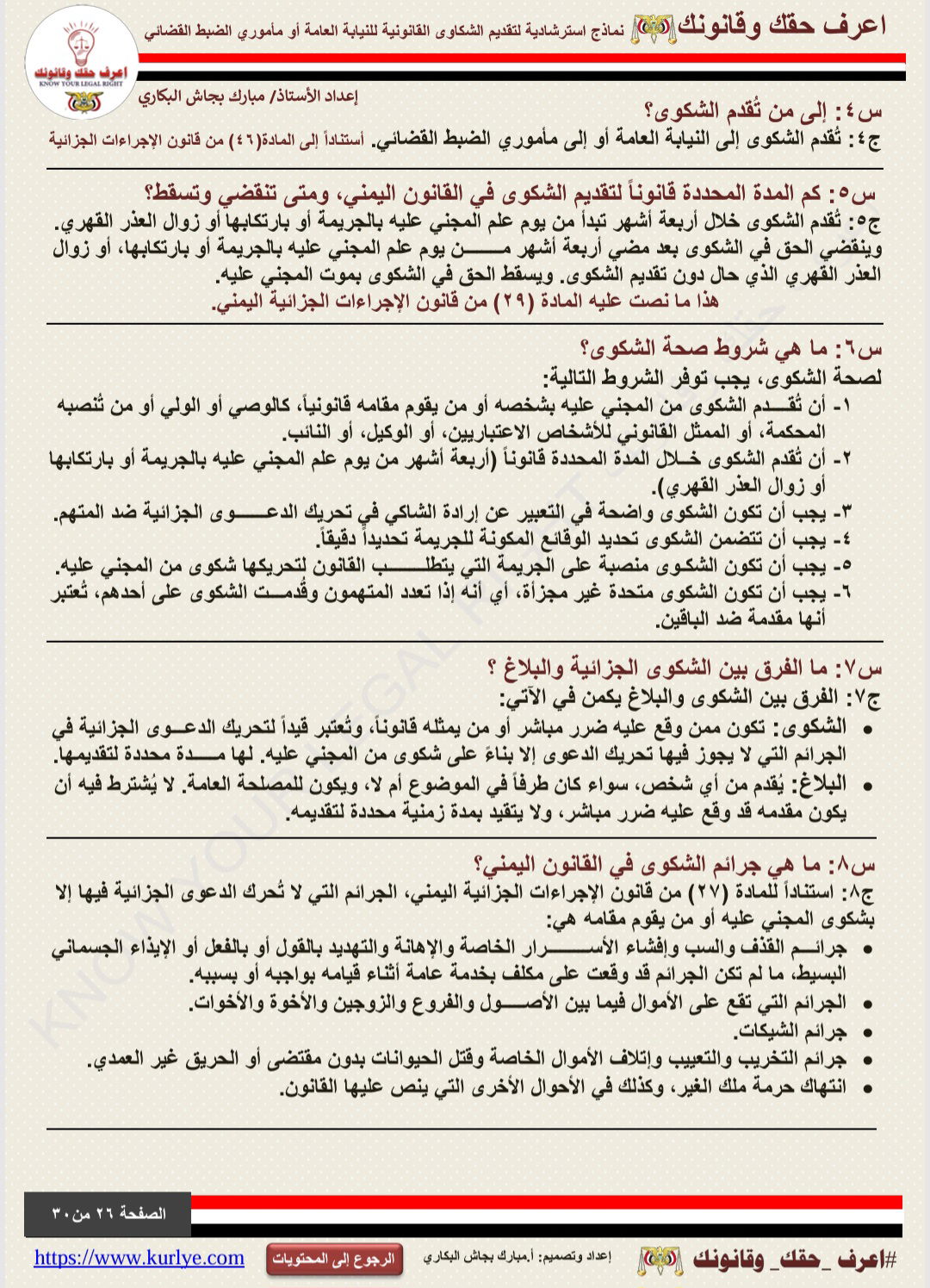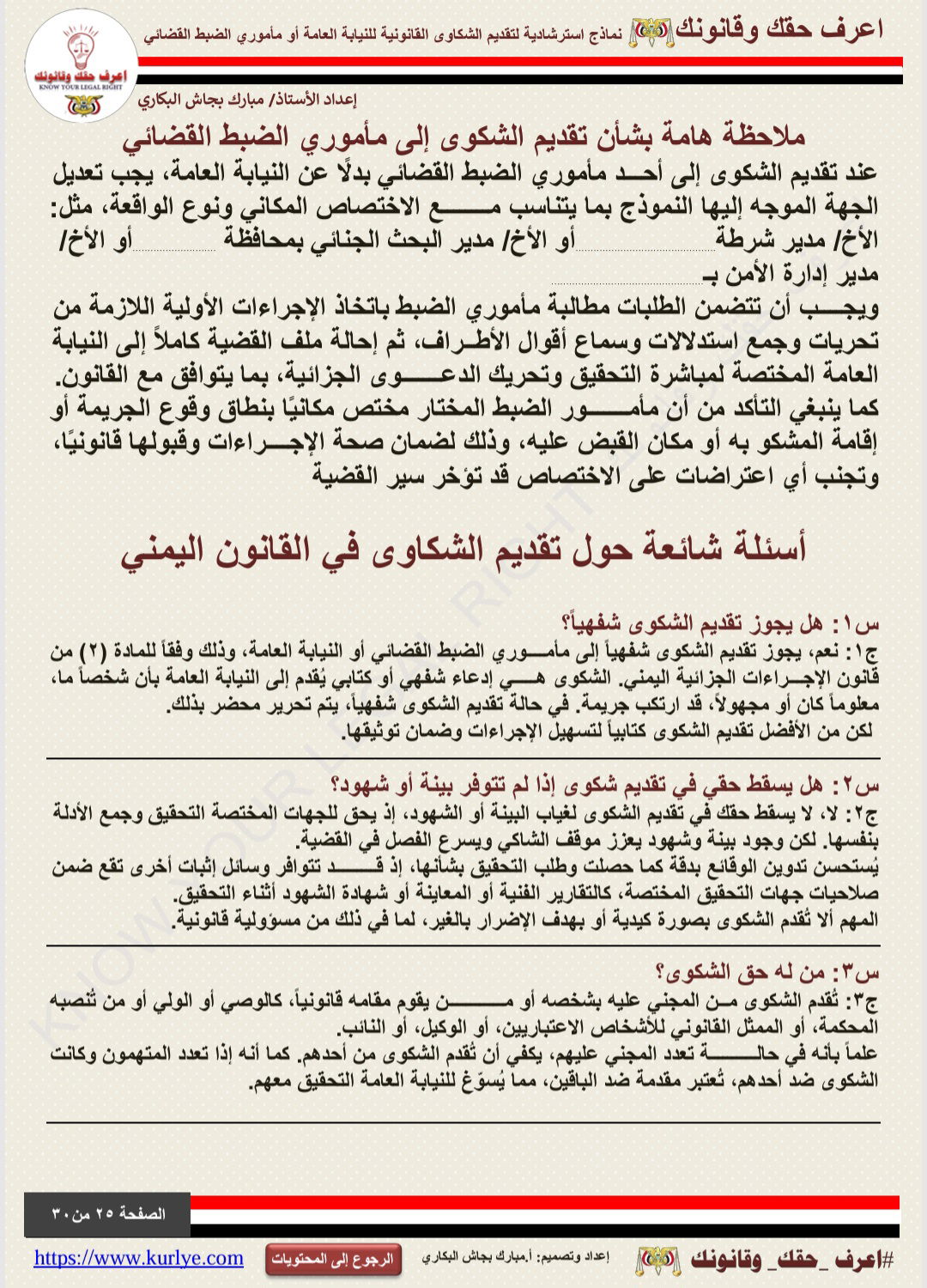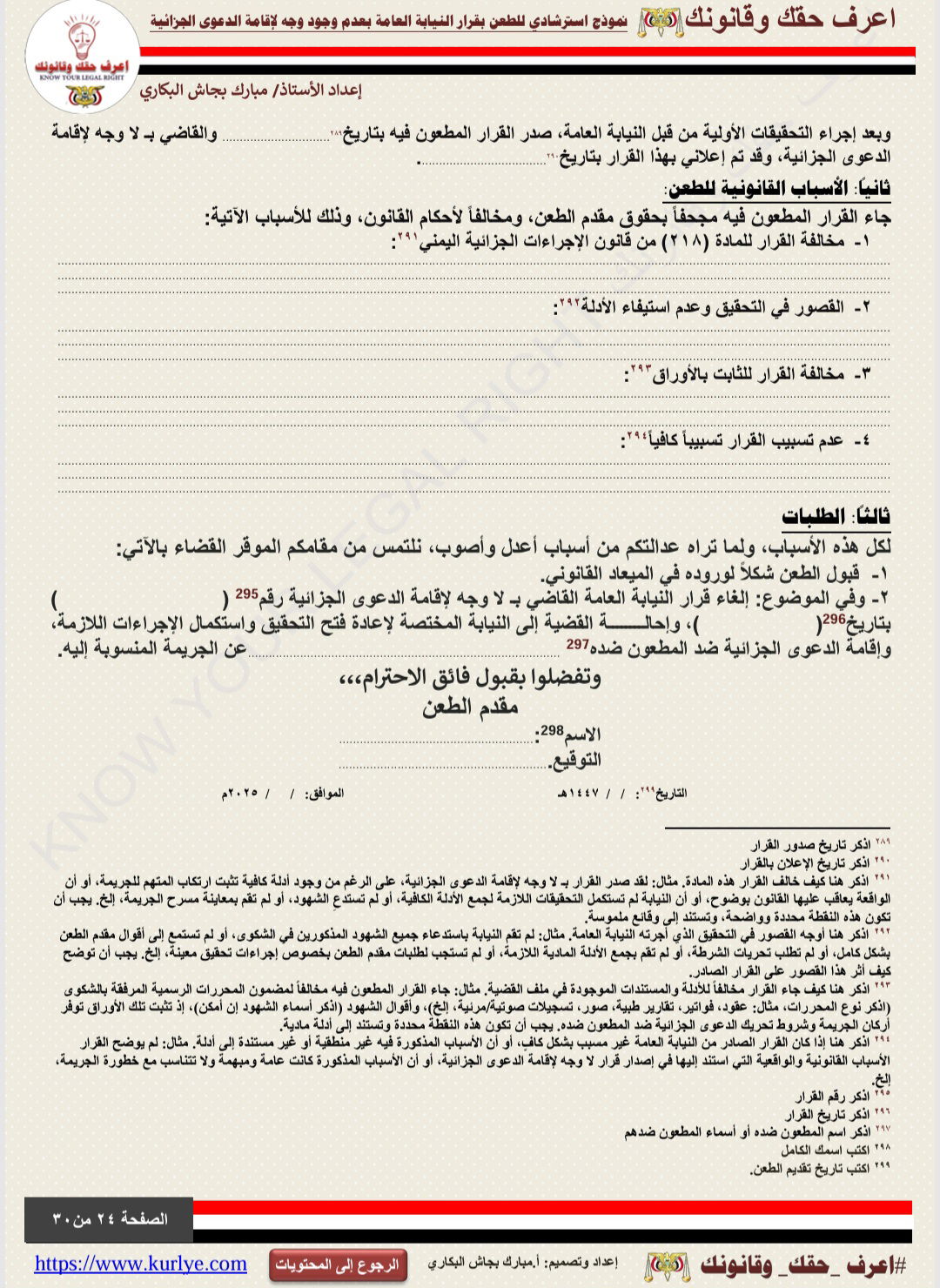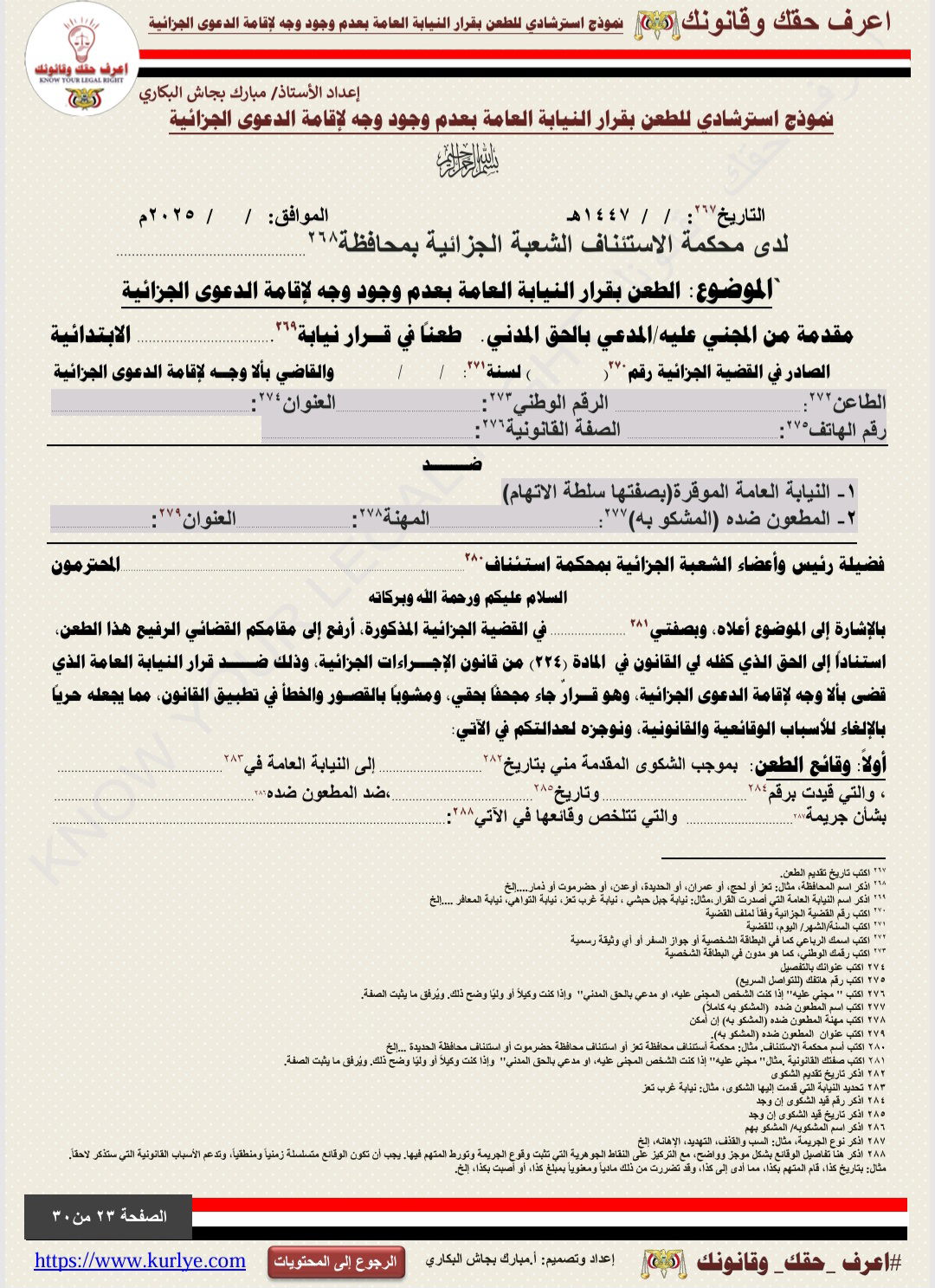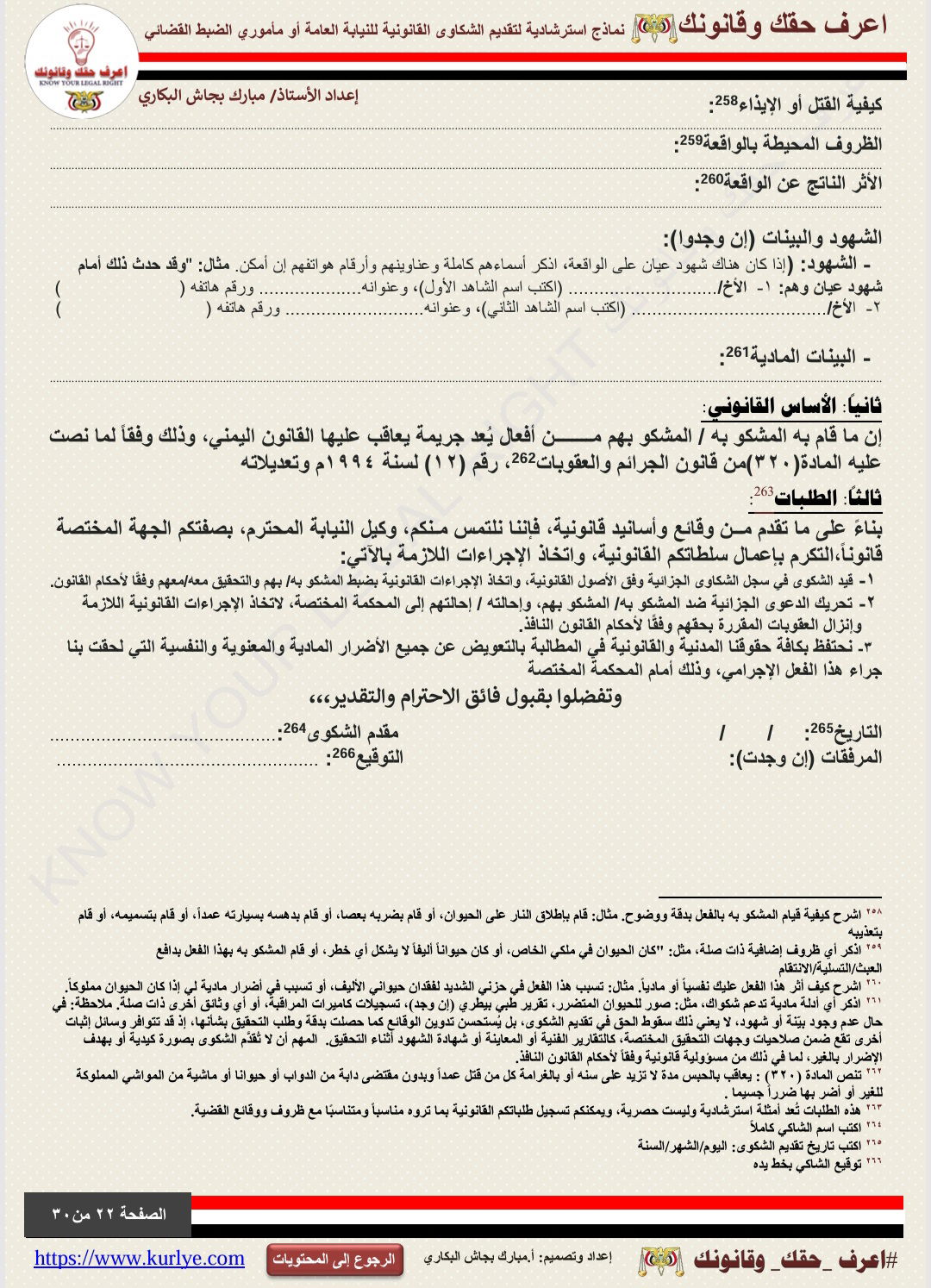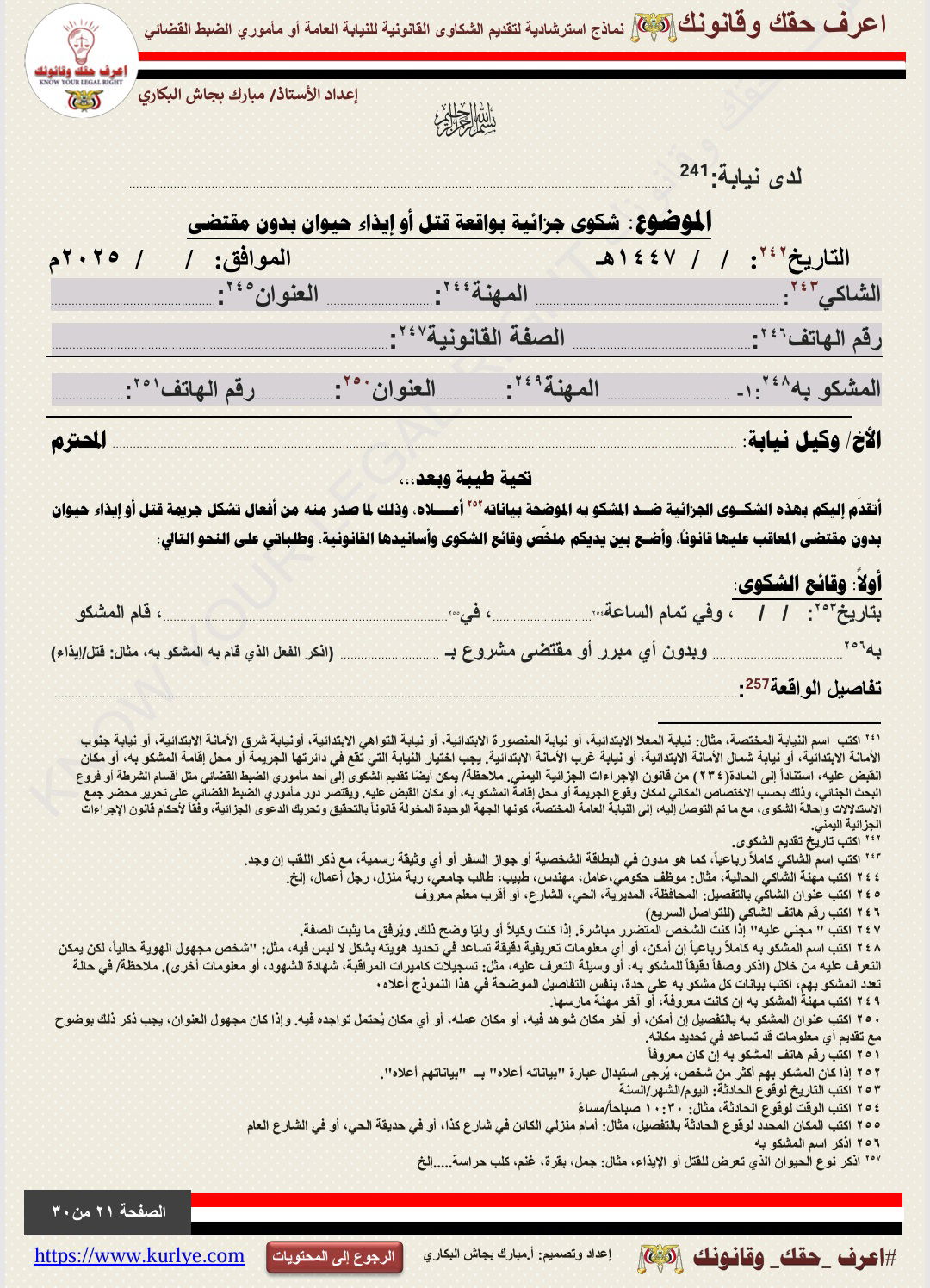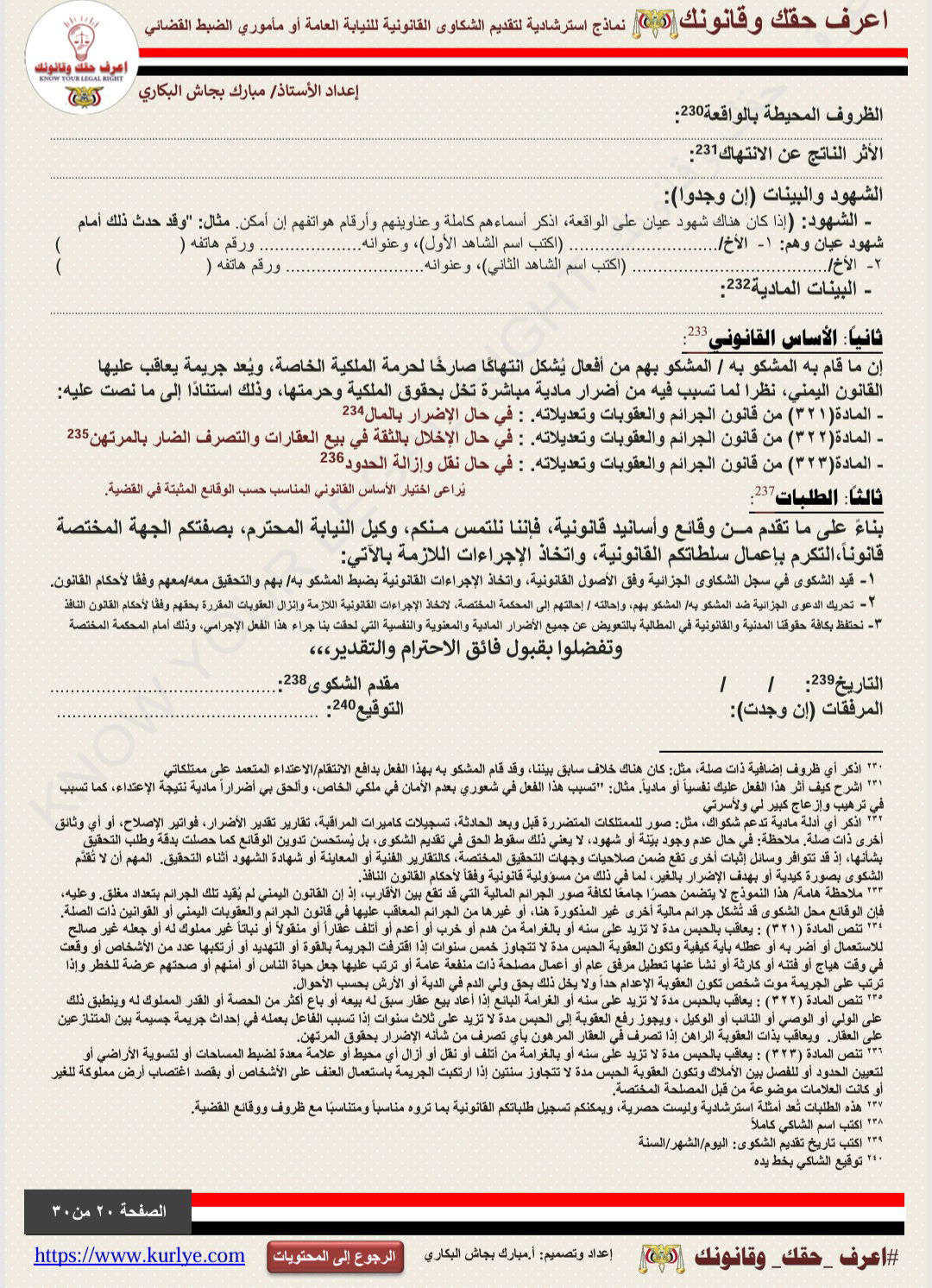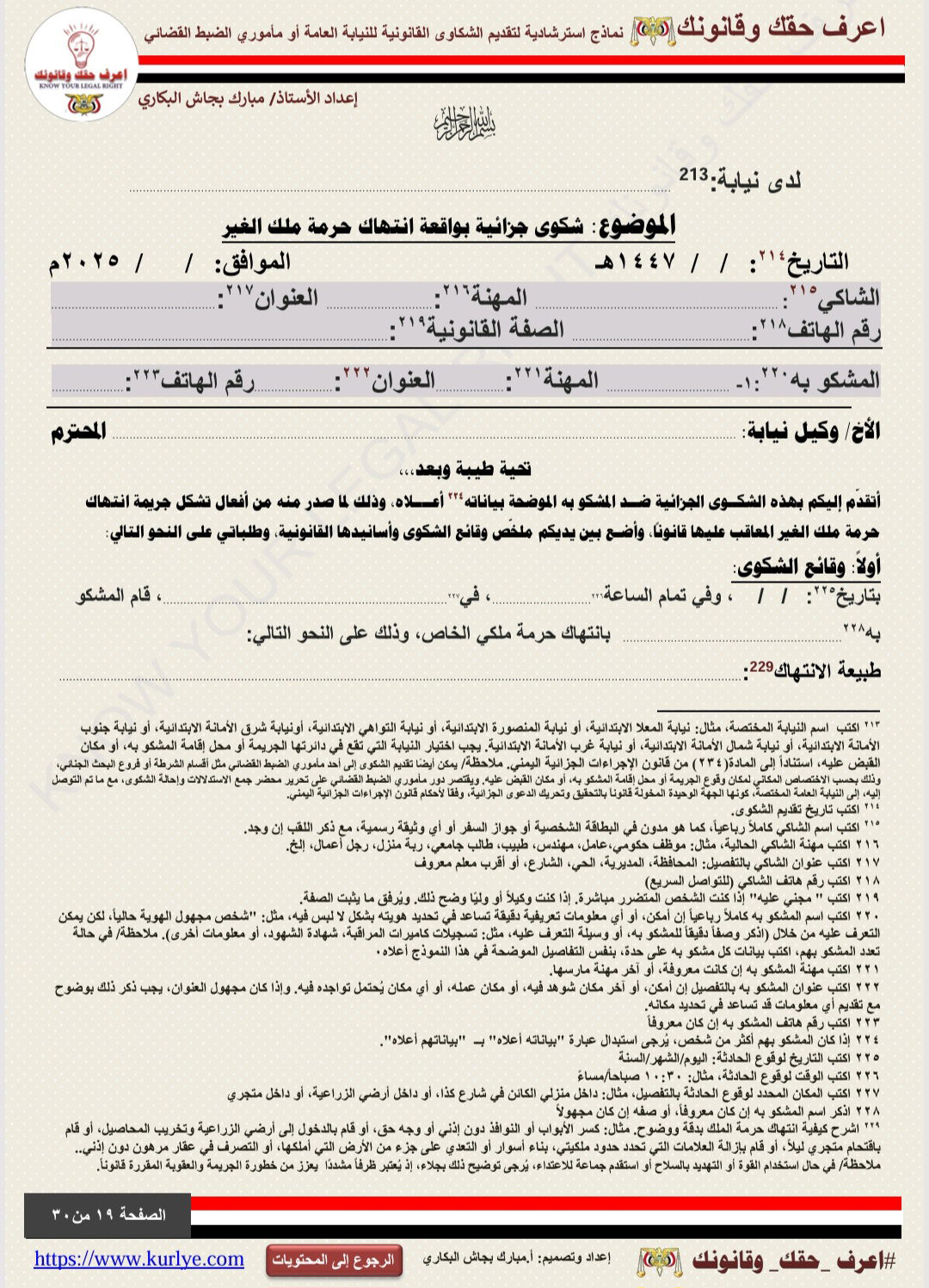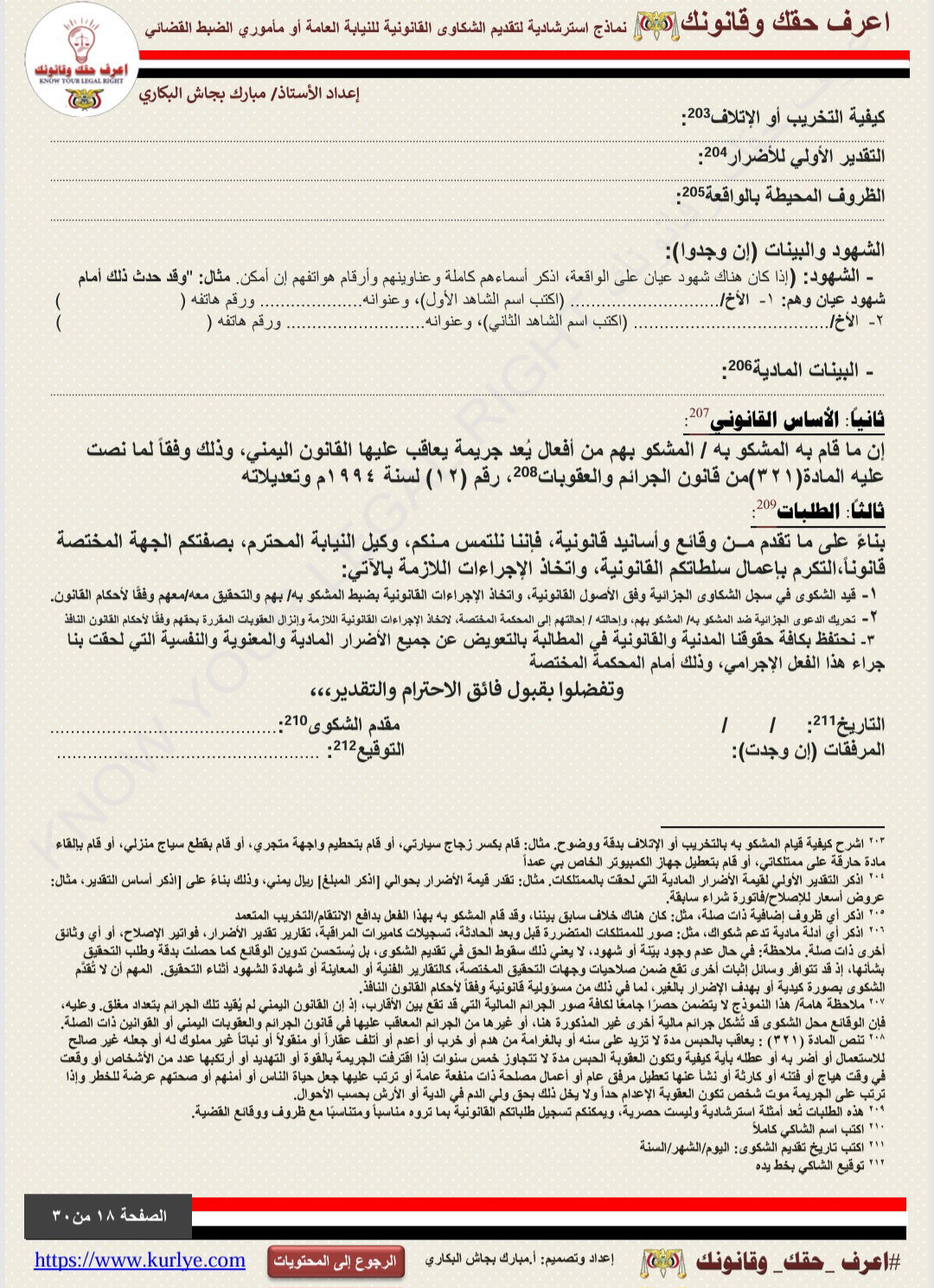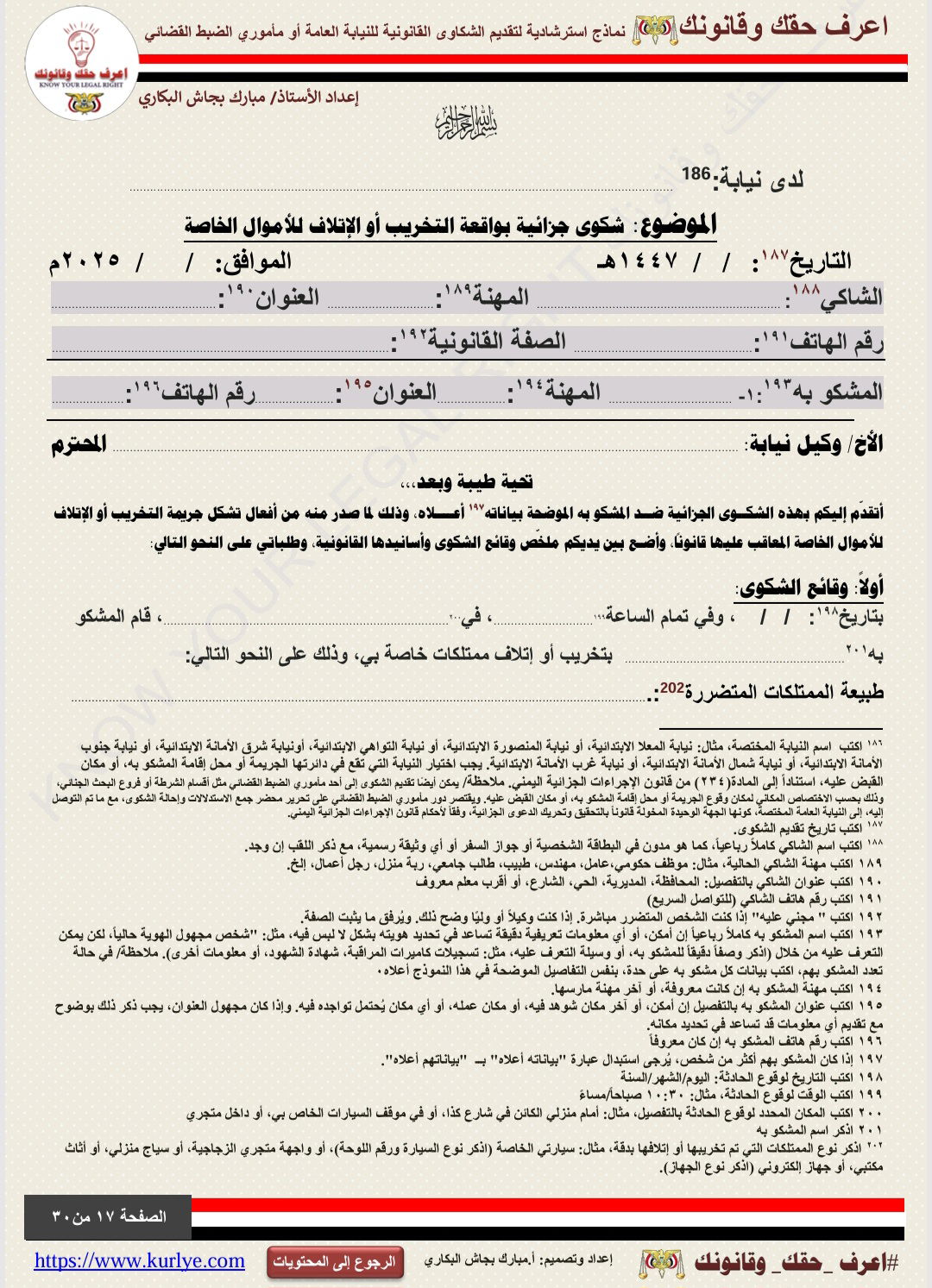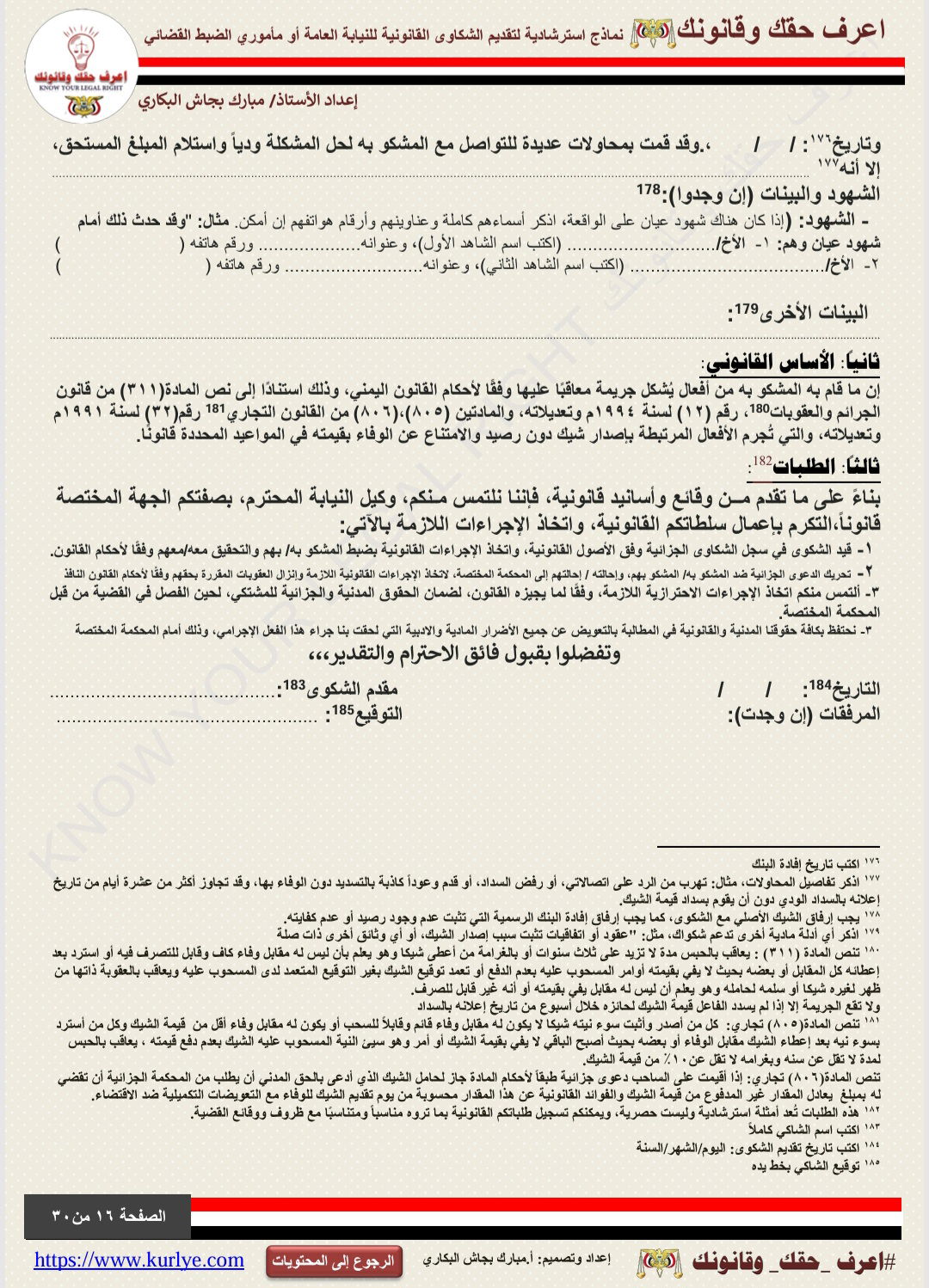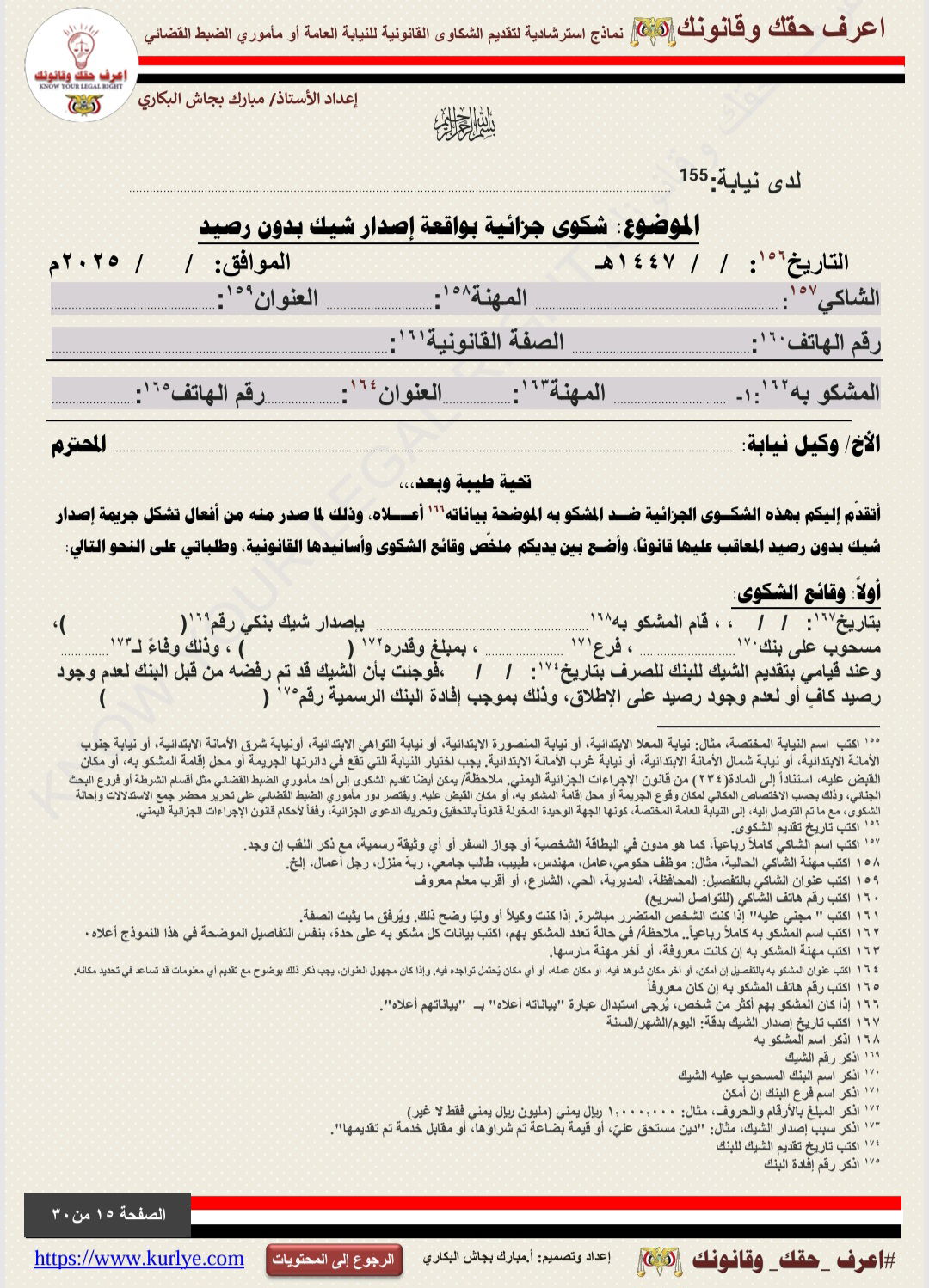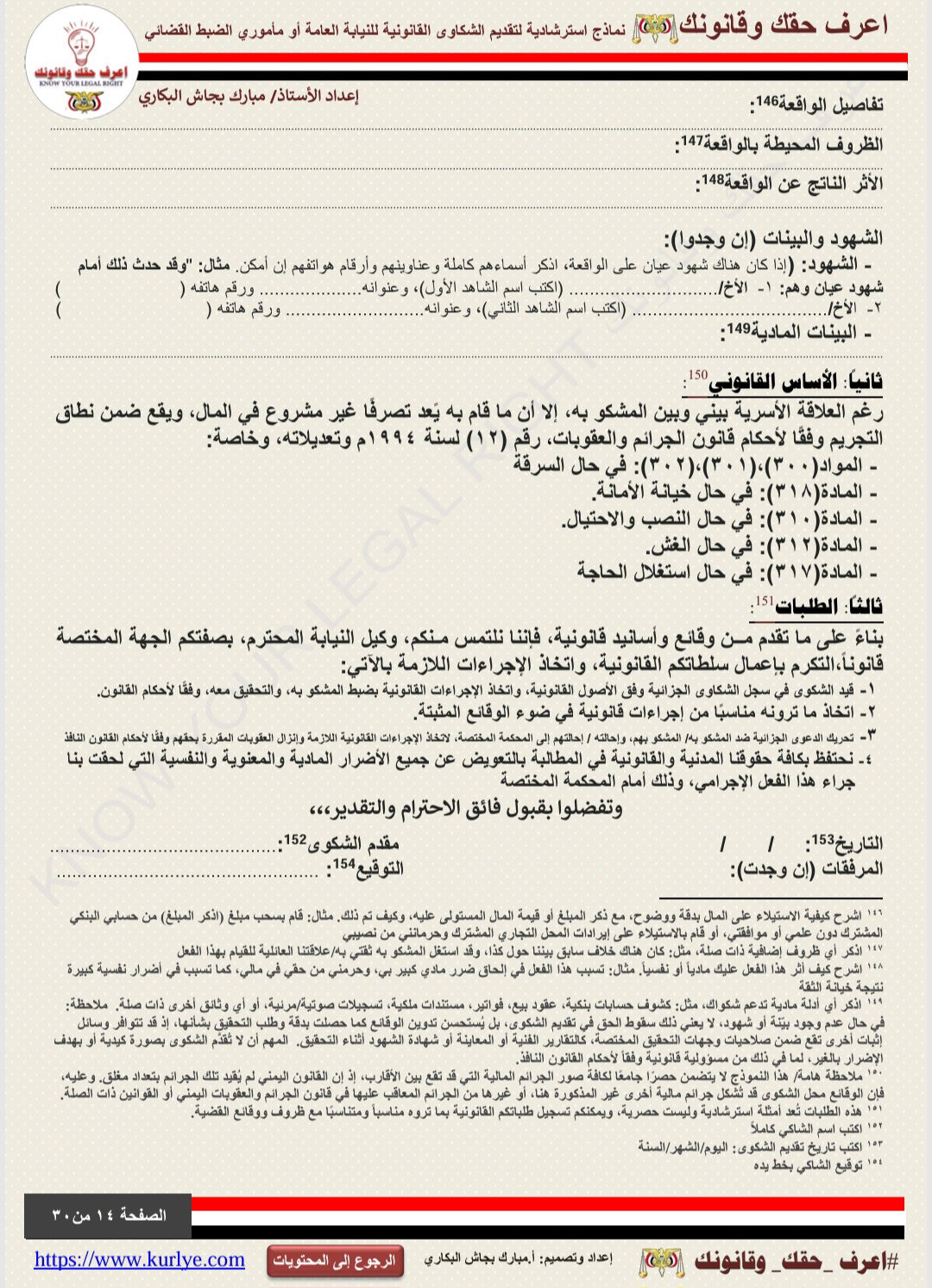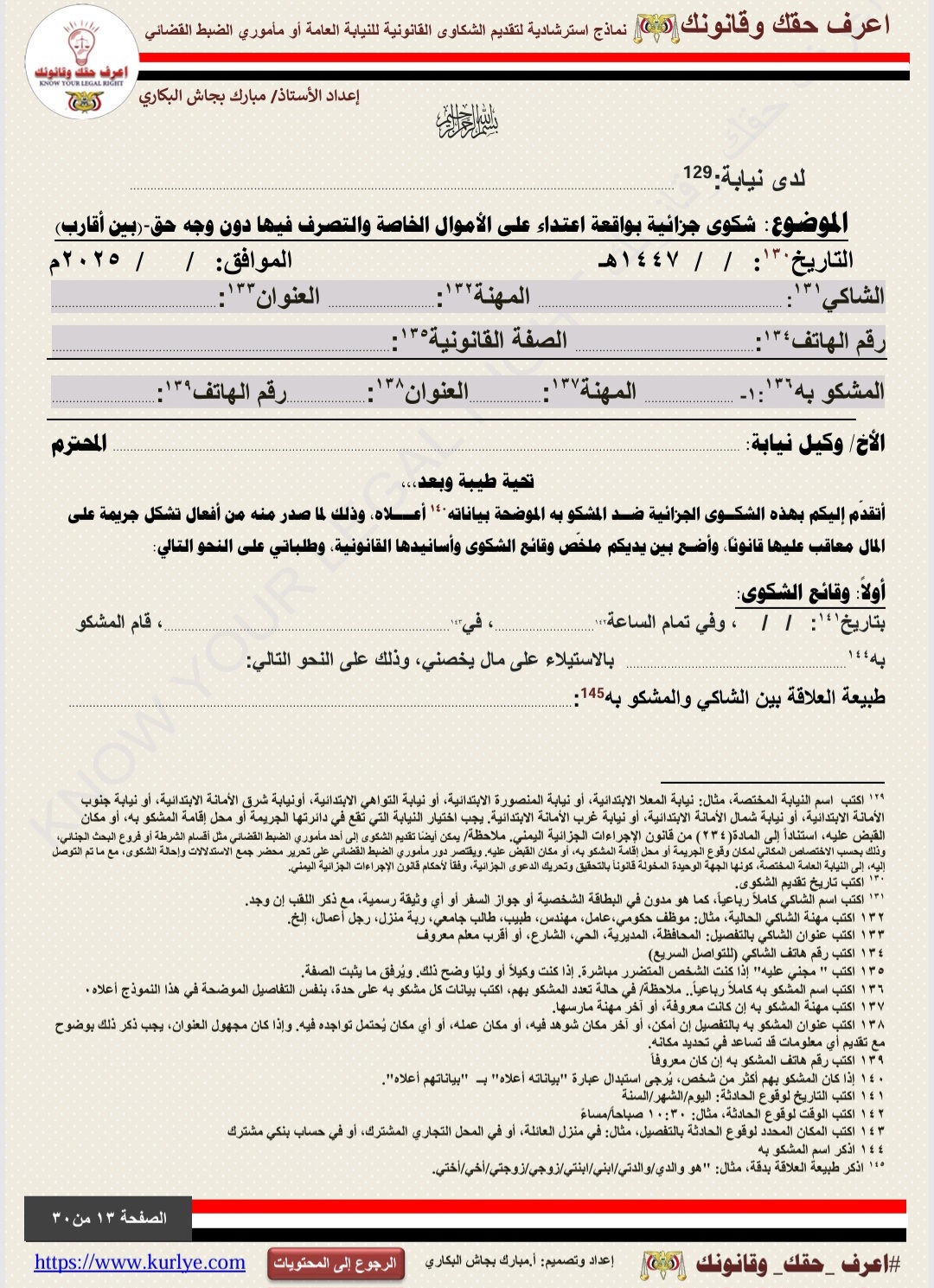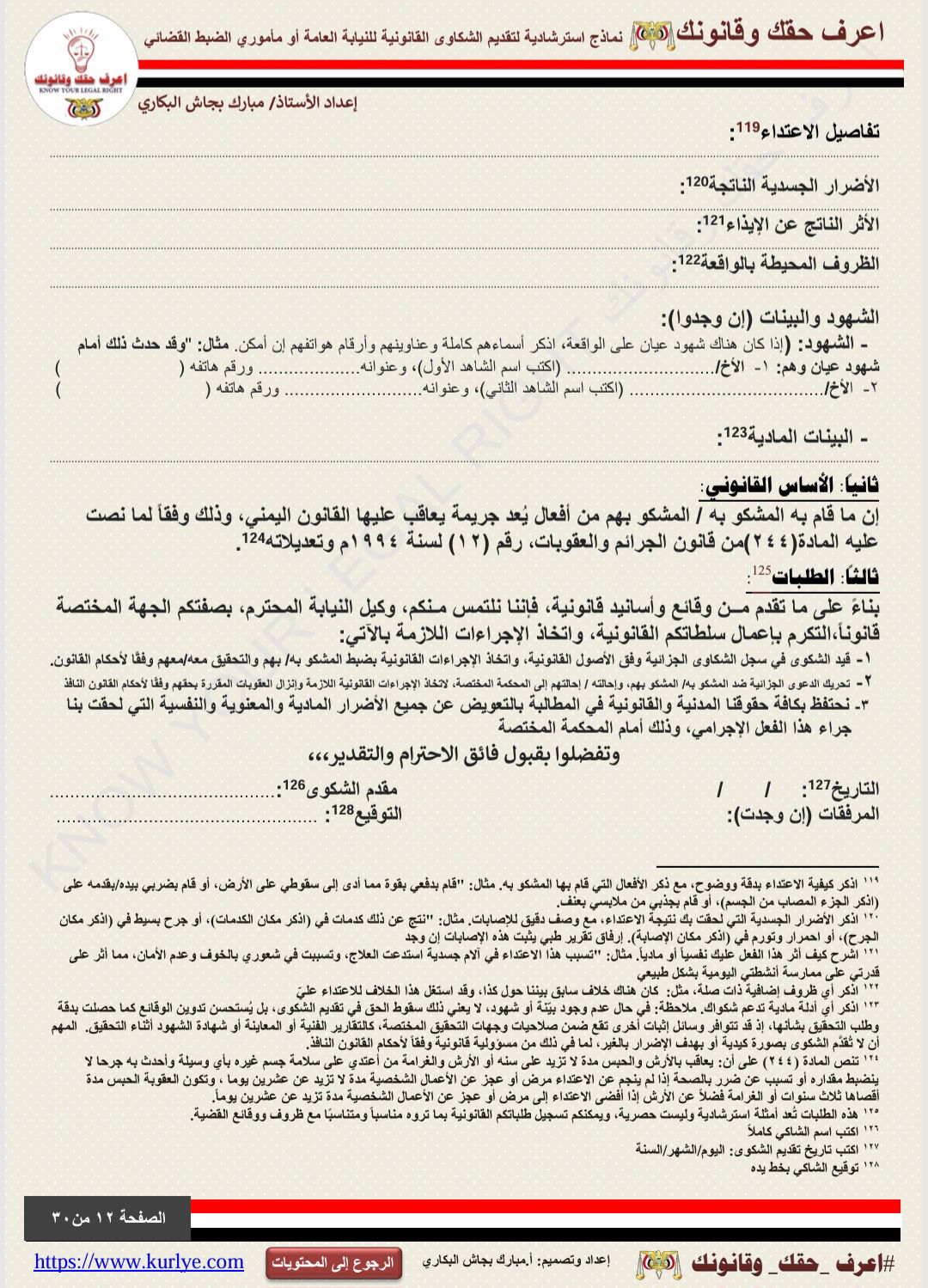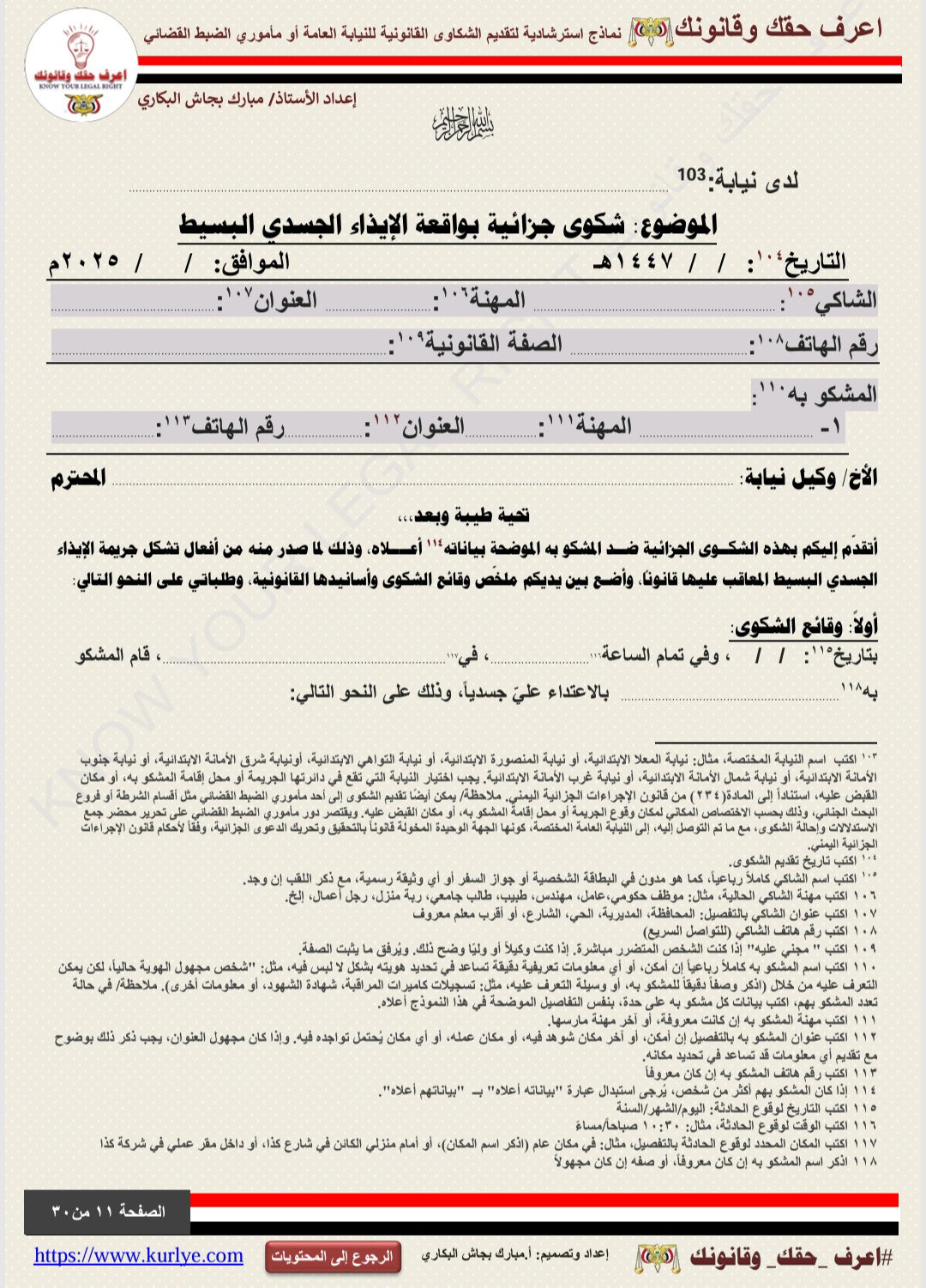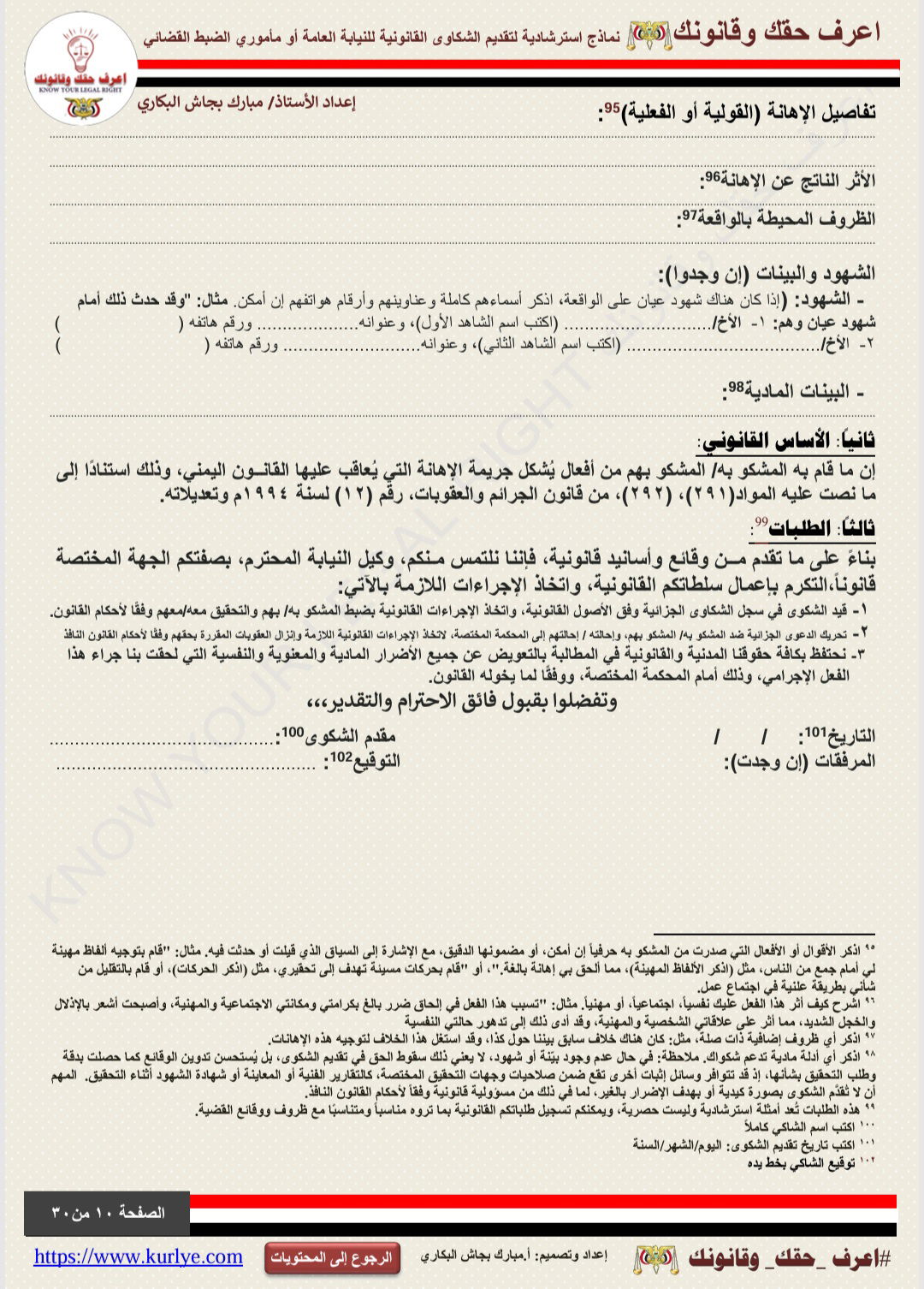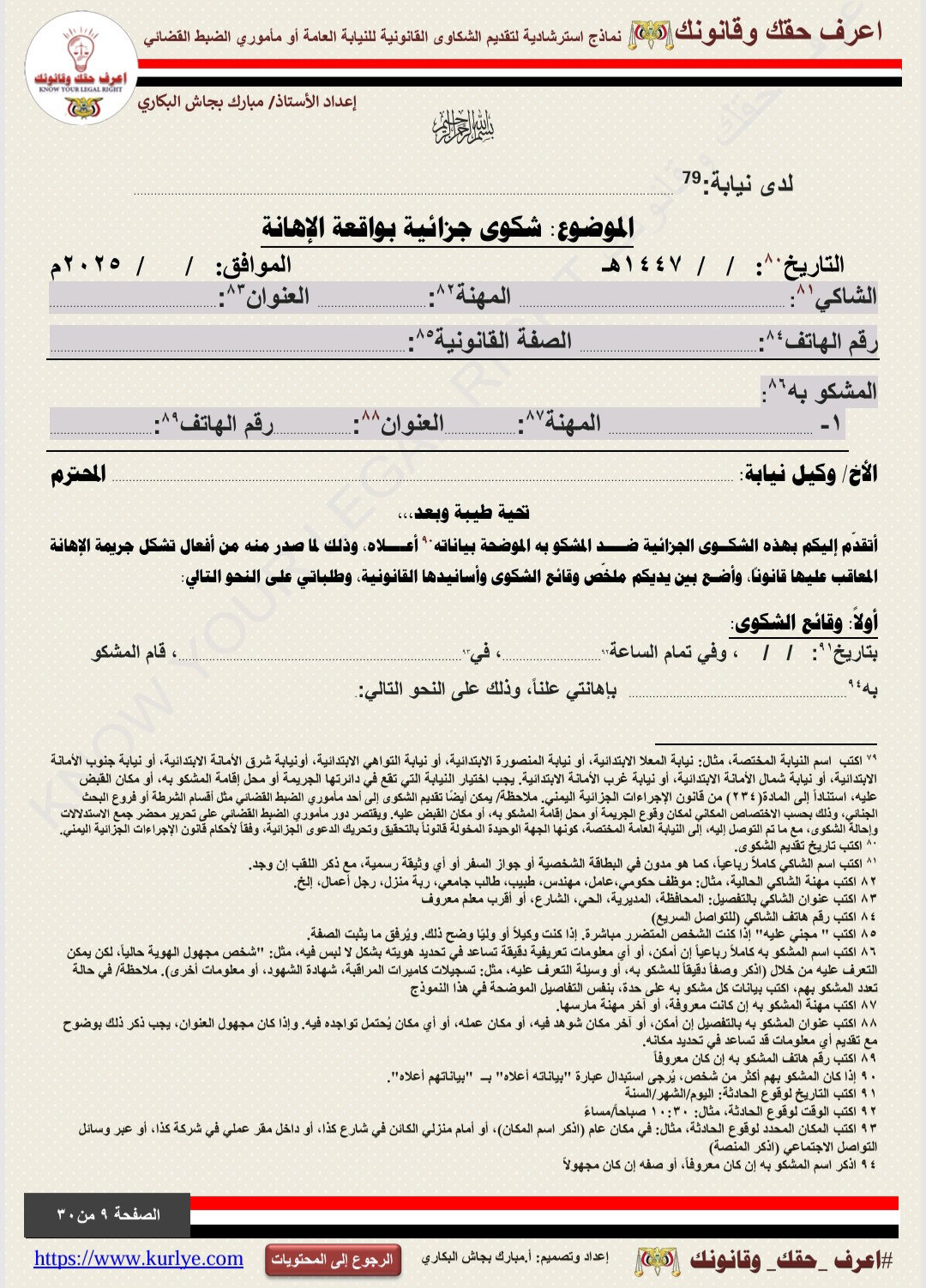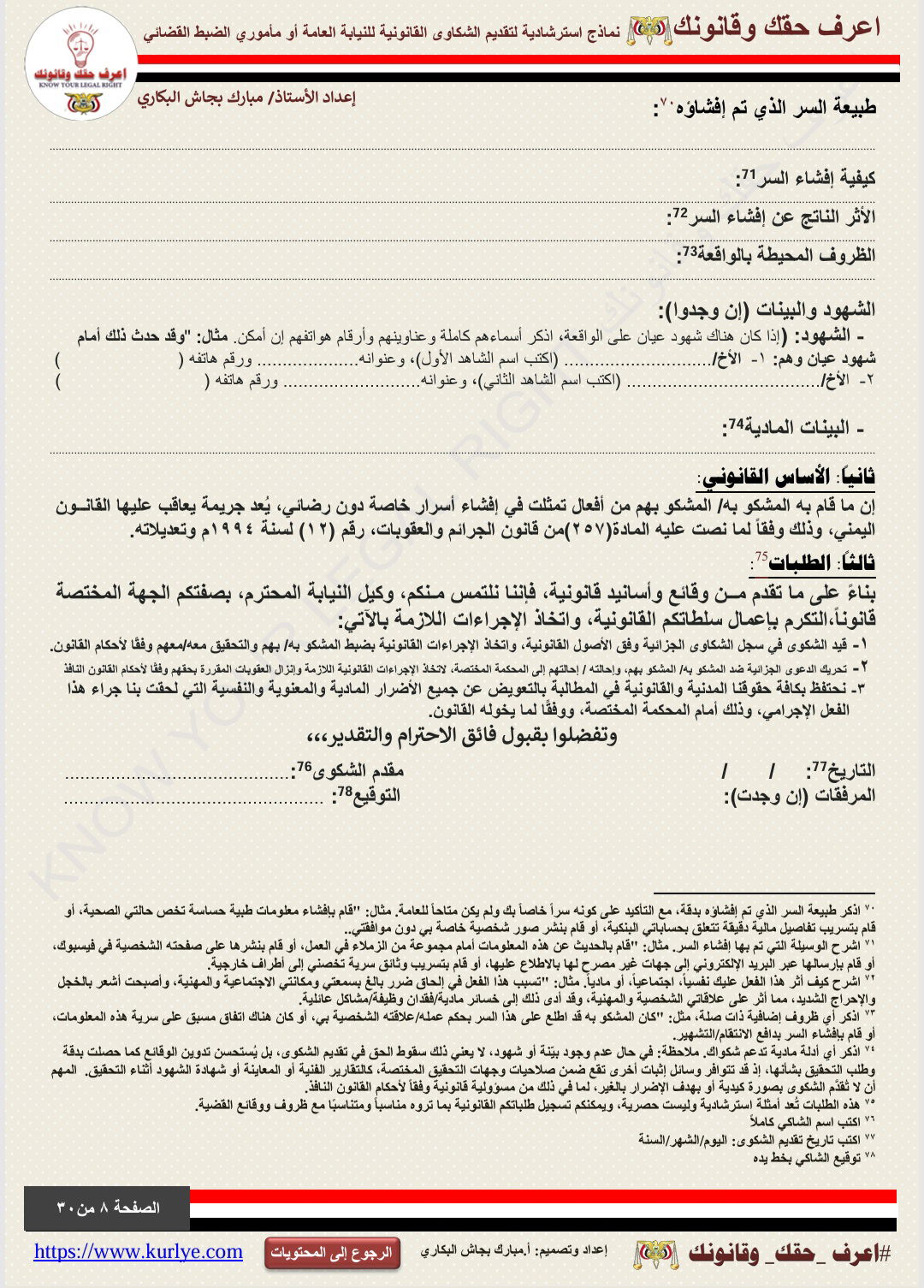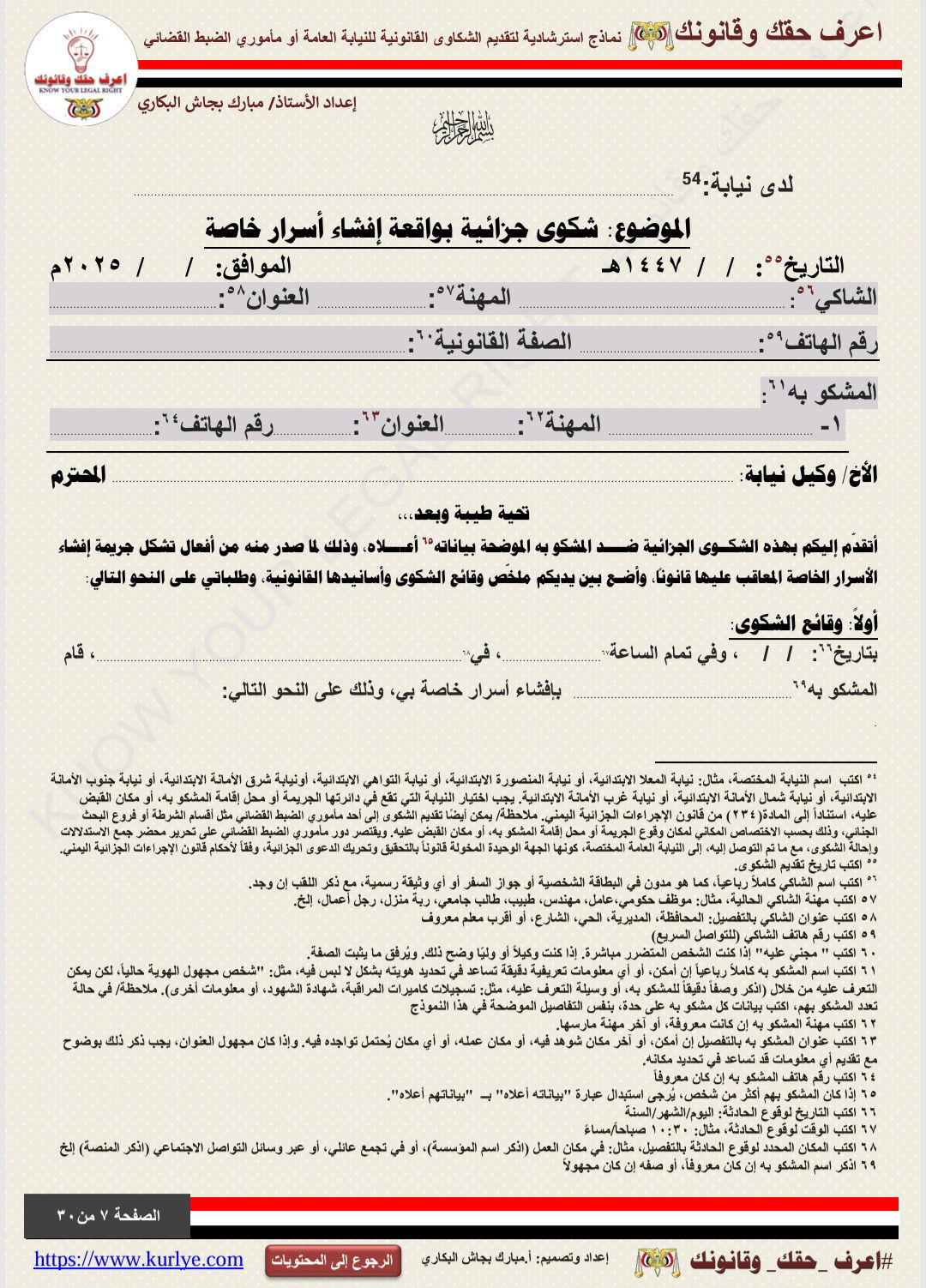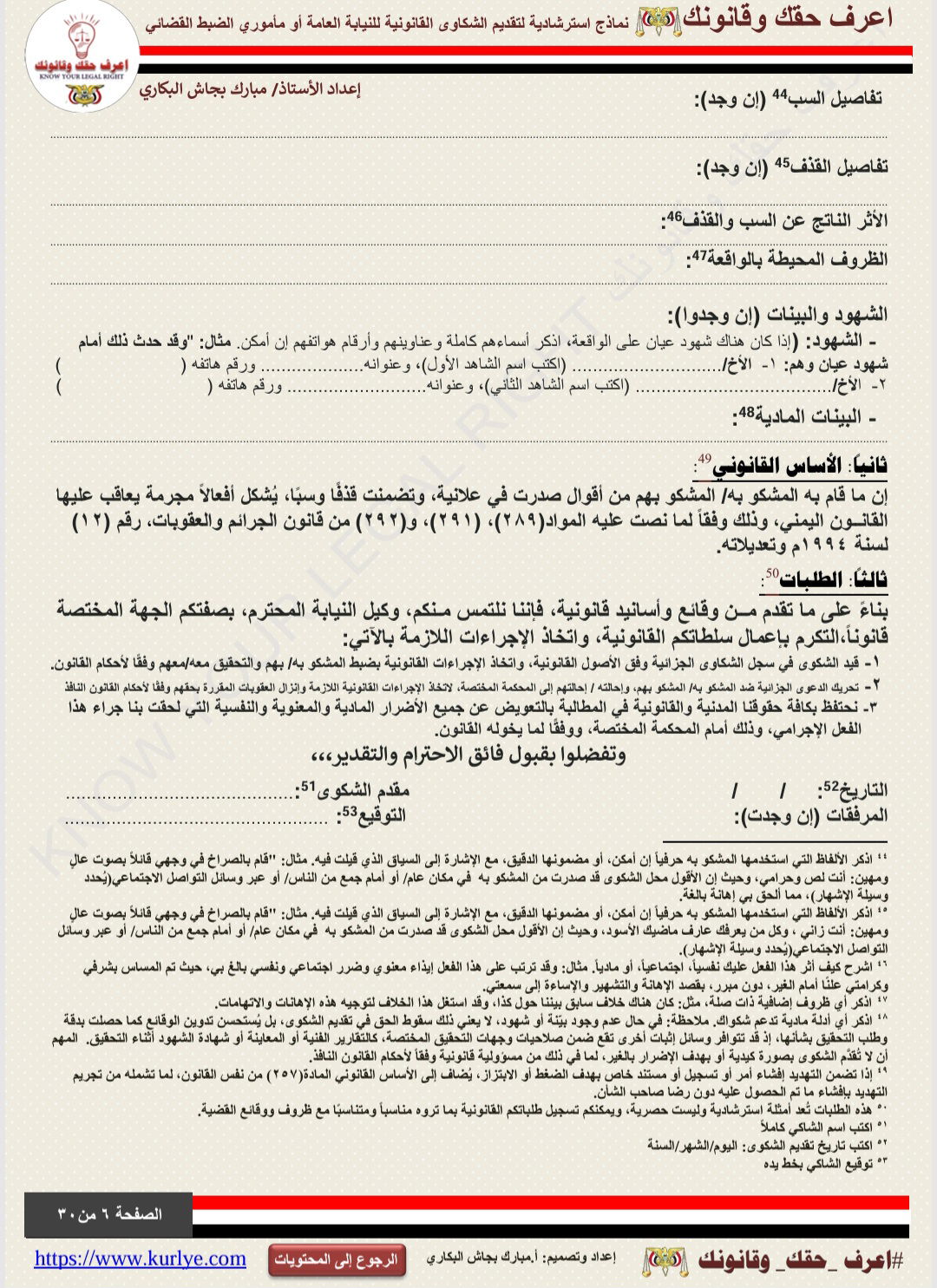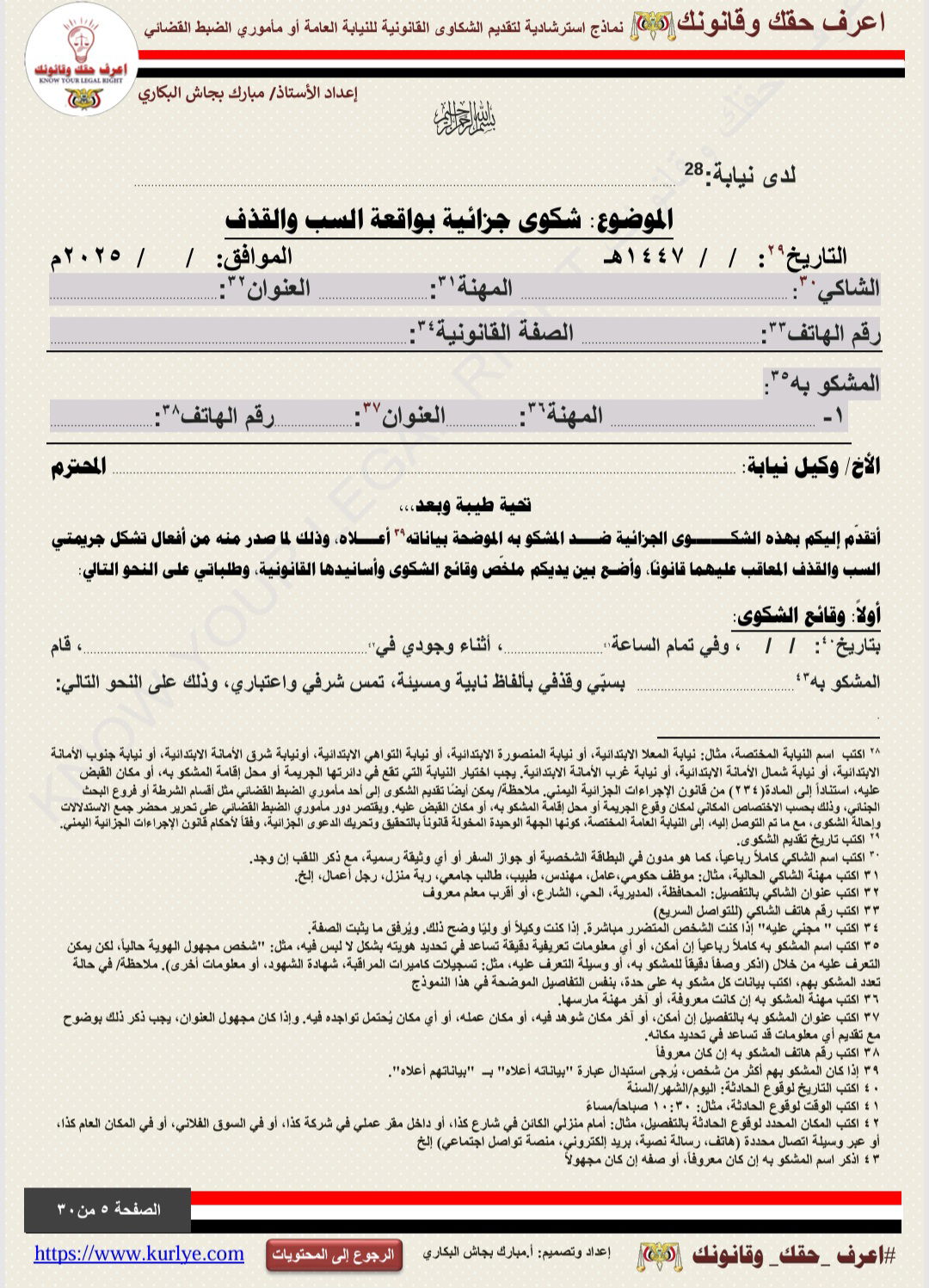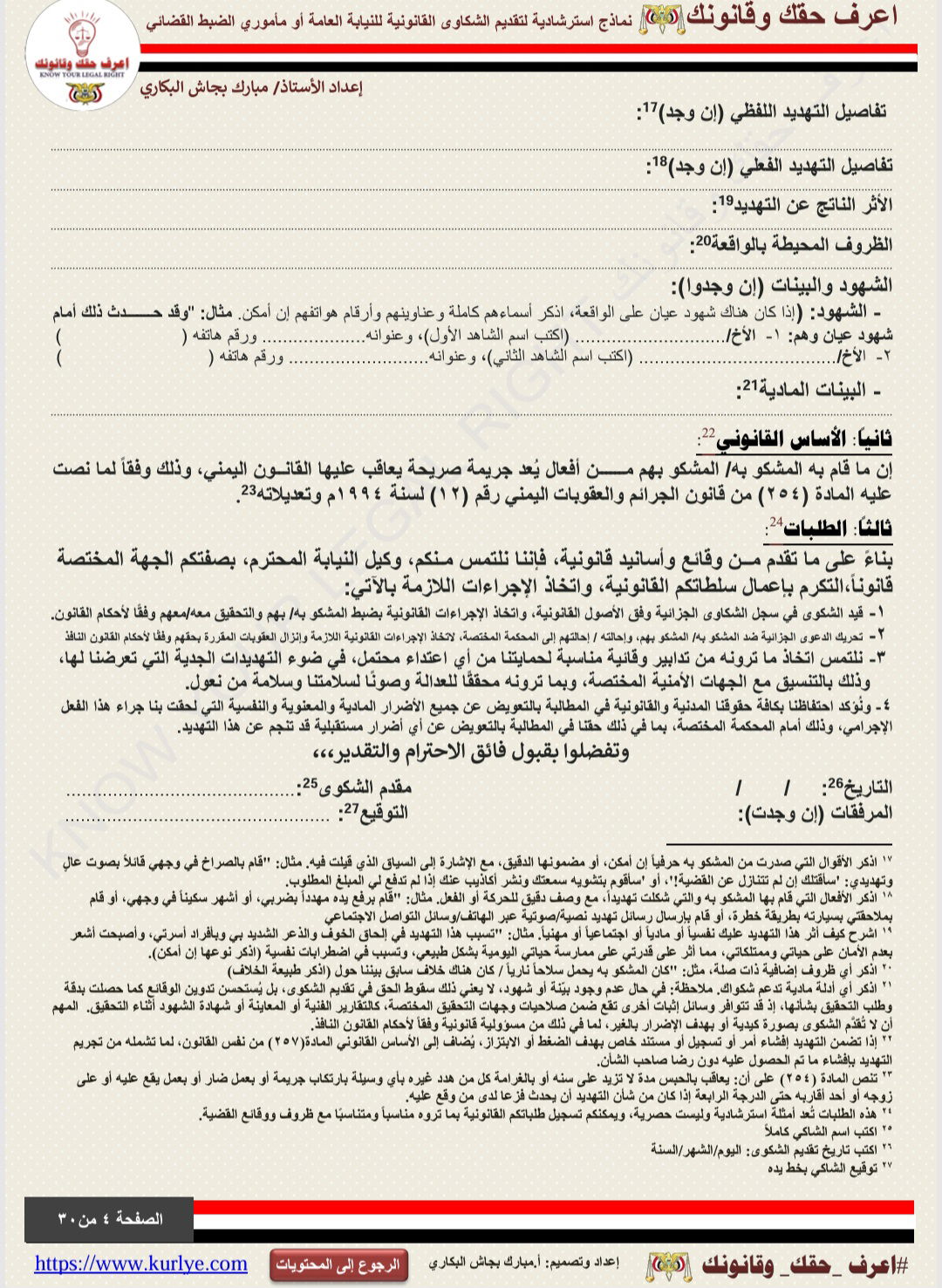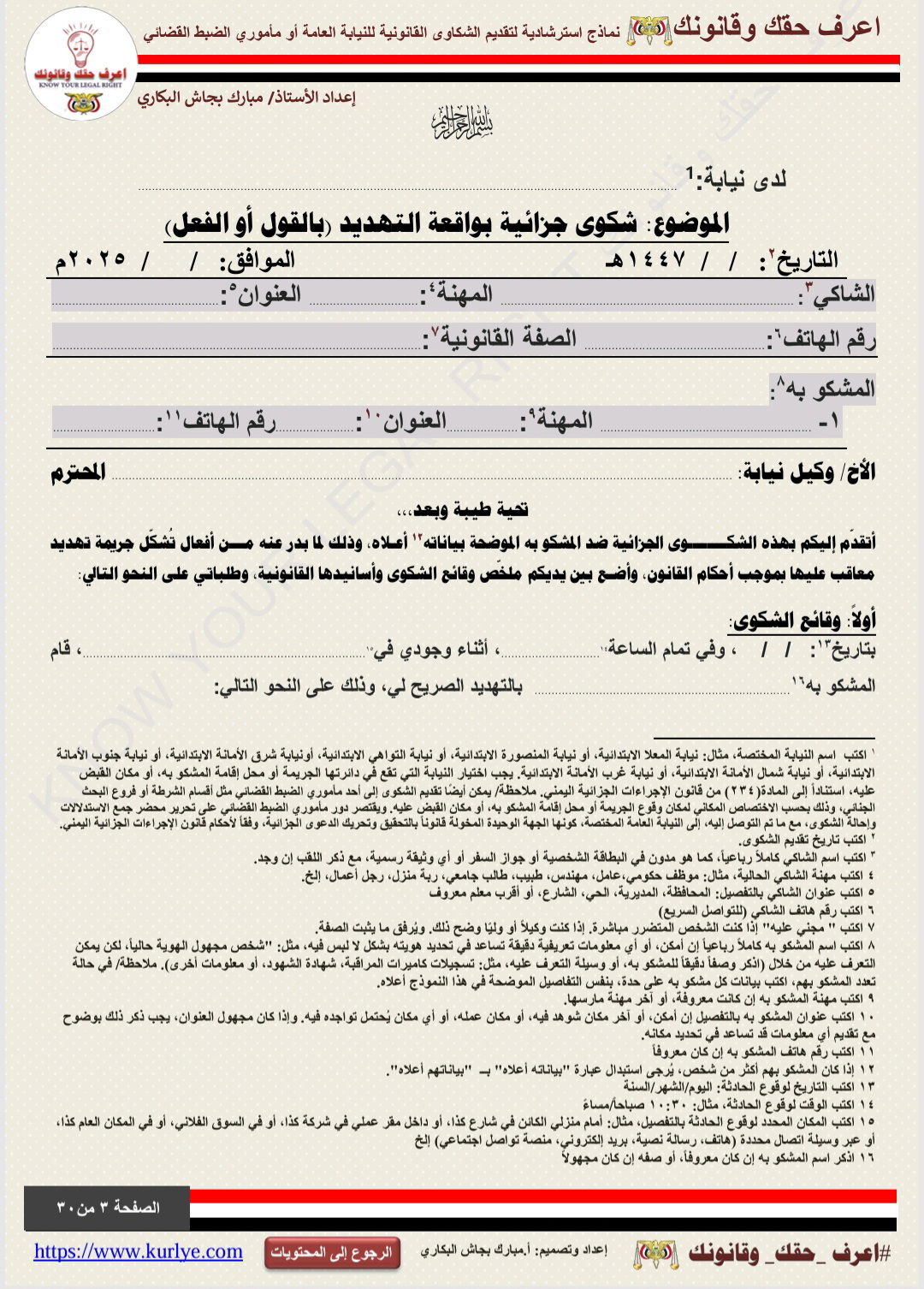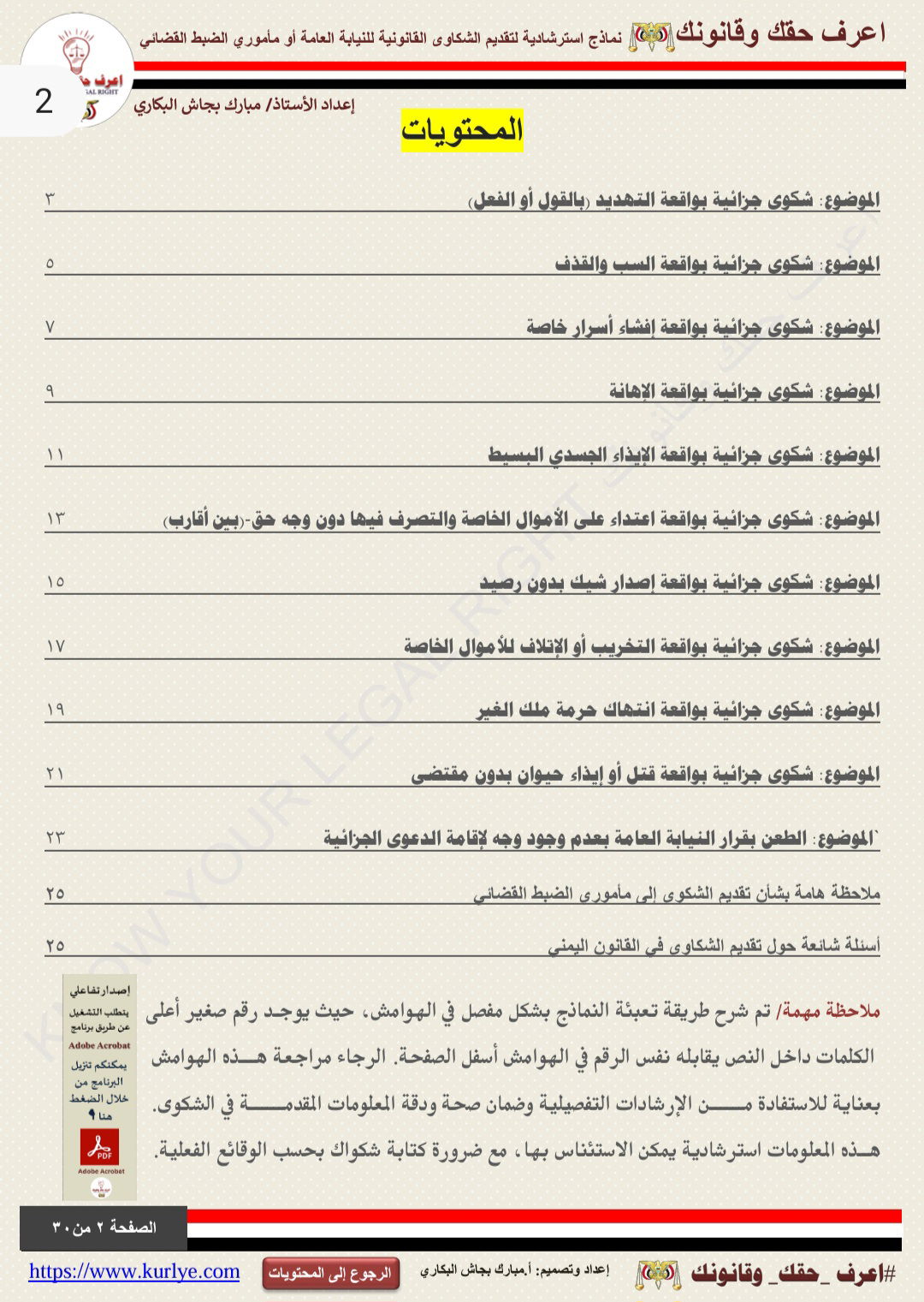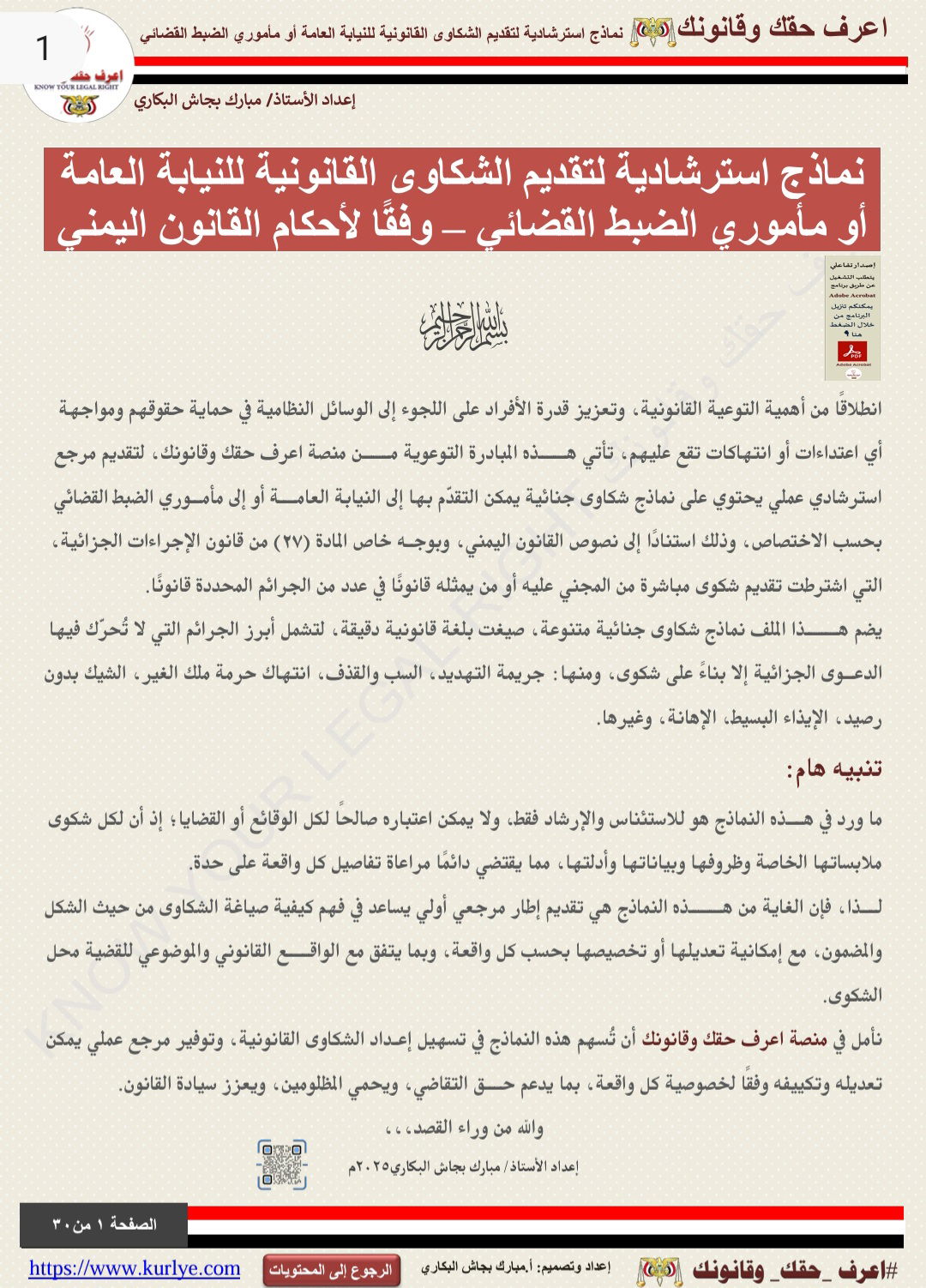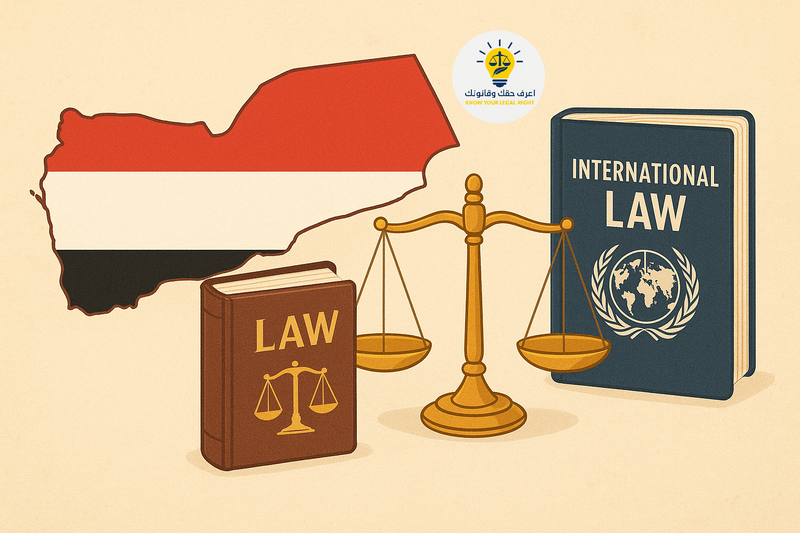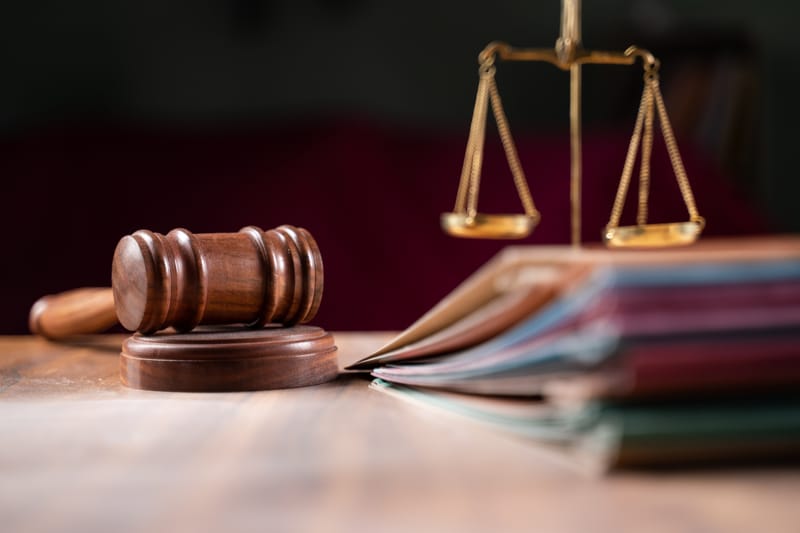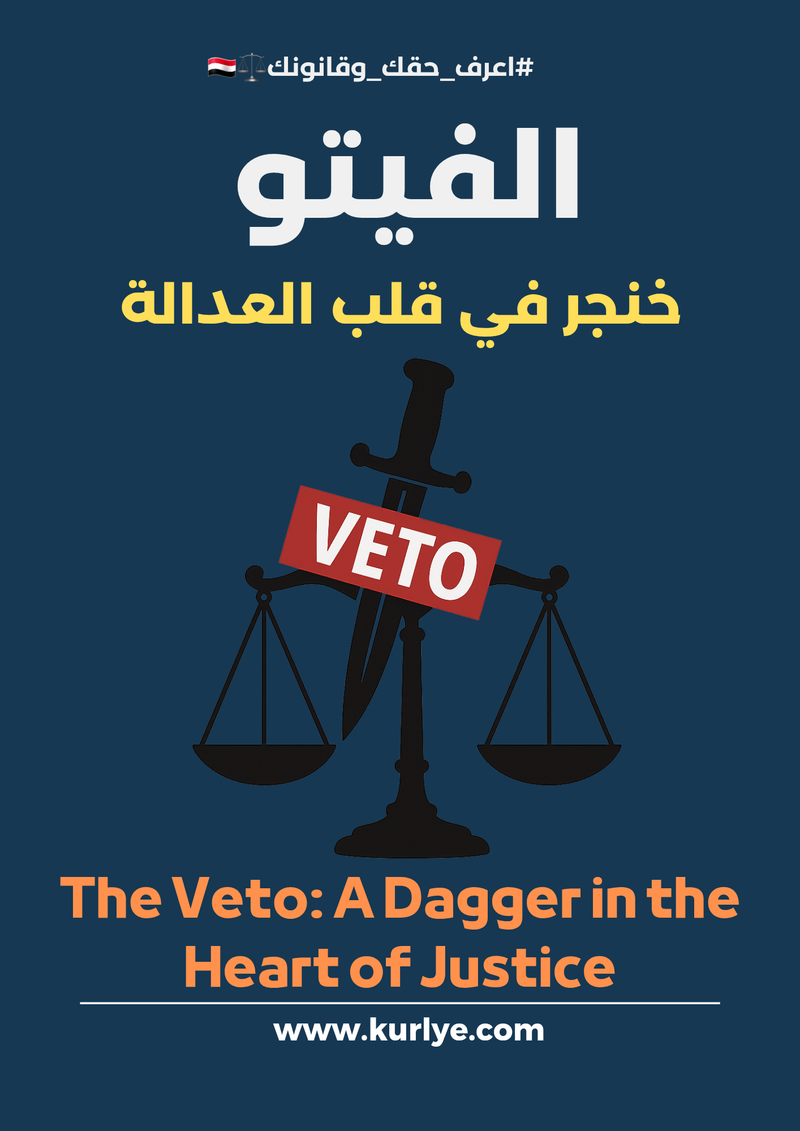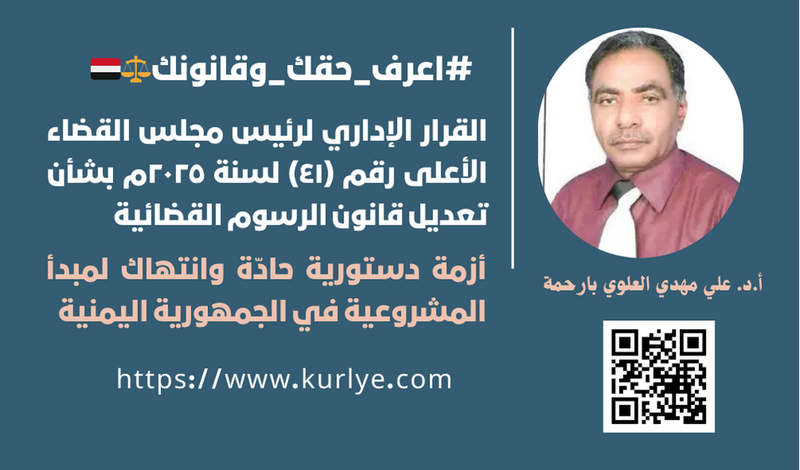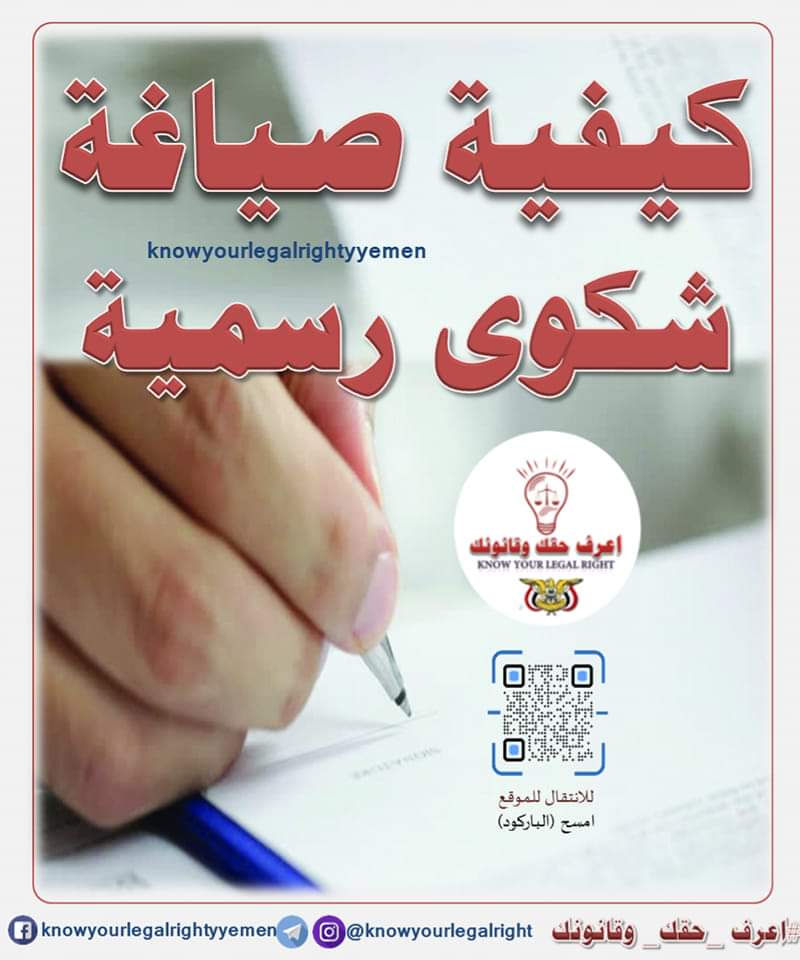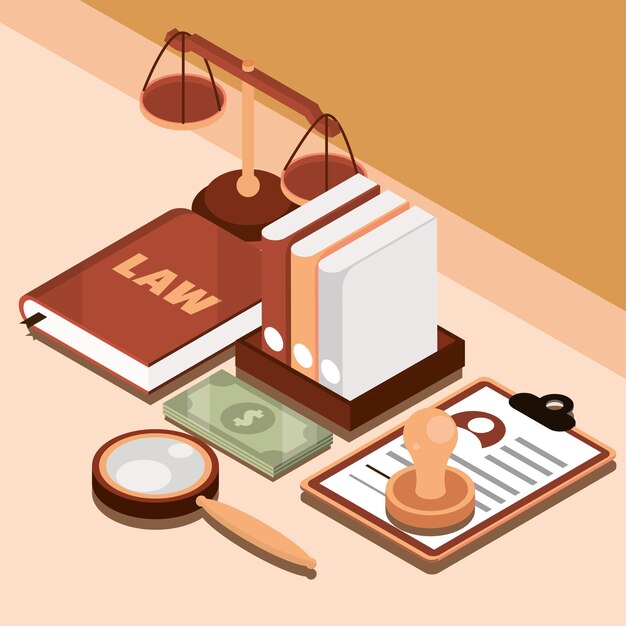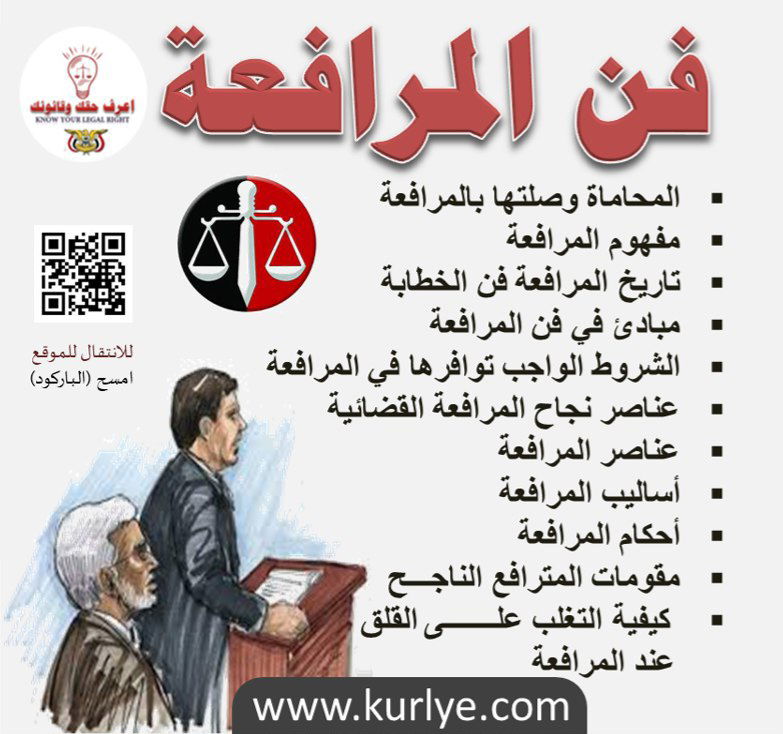منصة اعرف حقك وقانونك
Your path to excellence in Sharia and law
View the platform
platform message
Platform Rate
- الريادة والسرعة.
- الكفاءة والنزاهة.
- الحياد والاستقلال.
- الالتزام بالمواعيد.
Platform objectives
2- Raising awareness of the importance of respecting and adhering to the law.
3- Contribute to combating cybercrime and its risks.
4- Enhancing the rehabilitation capabilities of all groups related to legal work
5- Providing arbitration and conciliation services in all disputes with the support of specialists.
6- Publishing articles, research, legal studies and judicial rulings.
7- Providing legal advice and studies.
8- Facilitating access to legal information.
9- Linking a group of lawyers, legal advisors, and beneficiaries from individuals, institutions, companies, and others.
Our services
platform team
- Activist and legal advisor - Founder and head of the "Know Your Rights and Your Law" initiative - Holds a Bachelor's degree in Law from Taiz University - Holds a diploma in Computer Science - Holds a certificate in the International Commercial Arbitration Program from the Arbitration Center, Faculty of Law, Ain Shams University
He holds a master’s degree in law and a pre-doctorate degree in public law - Taiz University. He is a researcher, trainer, and legal and legal arbitrator.
Lawyer and legal consultant. Legal researcher and human rights activist. Writer on legal, literary, and social topics. (Previously with Al-Awraq newspaper, currently with the Judicial Gazette issued by the Ministry of Justice, social media).
Doctorate in Criminal Law from the Faculty of Law, Mansoura University/Egypt
Graduate of the Faculty of Sharia and Law, Sana’a University, and graduate of the Higher Judicial Institute in 2017 AD - Investigating member in the Hamedan Prosecution Office from 2018 until October 2020 AD - Former lawyer
PhD in Procedural Law, with a grade of excellence, with a recommendation to print and publish the thesis. A lawyer in commercial and civil cases, an expert and trainer in the field of international commercial arbitration and an accredited arbitrator, an academic professor in a number of Yemeni universities.
He holds a bachelor’s degree in law from Taiz University
- Founder and President of the Ta'yush Organization for Rights and Peacebuilding CORP - Holds a bachelor's degree in law from the University of Taiz - Holds a bachelor's degree in tourism economics from the University of Taiz. He holds a high diploma in Sharia sciences from the Kingdom of Saudi Arabia.
Founder of the Yemeni Legal Library Channel, the Yemeni Legislation and Laws Channel, and the ChatGPT alkhaled66 bot in the Telegram program. He works as a judge, lawyer, and automated legal researcher. He is a graduate of the Faculty of Sharia and Law, Hodeidah University, a former lawyer, and a graduate of the Higher Judicial Institute in 2009.
حساب المواريث
Inheritance division calculator and inheritance calculation
The inheritance website is the only innovation in the world capable of resolving all forms of complex inheritance issues, electronically, in various sects and laws, and with 100% accuracy, in addition to being free. The website is not merely for dividing estates and distributing inheritances only, but rather it is directed to two categories: the ordinary user who has an estate he wants. Dividing it for the student and researcher in the science of inheritance to facilitate learning this science which the Prophet, peace and blessings of God be upon him, recommended and said about it that it is half the knowledge from the applied aspect of the sciences - the sciences of life and the sciences of death - and a third of the knowledge from the aspect of the branches of Sharia knowledge - verses, sunnahs and obligations.
Learn Moreشخصيات قانونية يمنية
اضاءات قانونية
مقالات وأبحاث قانونية
تُعد مسألة المطالبة بانفصال جنوب اليمن من أكثر القضايا القانونية والسياسية تعقيدًا في السياق اليمني المعاصر، لما تحمله من أبعاد دستورية وسيادية ودولية. وبالنظر إلى تعدد الطروحات السياسية حول هذه المسألة، تبرز الحاجة إلى مقاربة قانونية علمية محايدة تُعيد النقاش إلى أُطره الدستورية والدولية الصحيحة. وانطلاقًا من الدور التوعوي والتحليلي الذي تضطلع به منصة اعرف حقك وقانونك في تعزيز الوعي الدستوري والقانوني، يأتي هذا البحث لتحليل الأساس القانوني لمطالب فك الارتباط، والوقوف على مدى مشروعيتها في ضوء الدستور اليمني والقانون الدولي العام. ويسعى البحث للإجابة عن التساؤل الرئيس الآتي: هل تستند المطالبة بفك الارتباط إلى أساس قانوني مشروع وفقًا للدستور اليمني وقواعد القانون الدولي؟
Read Moreتُعد مناصرة قضايا الضحايا والمظلومين عملًا إنسانيًا نبيلًا وضرورةً مجتمعيةً لترسيخ العدالة ومع تزايد دور الإعلام ومنصات التواصل في تسليط الضوء على هذه القضايا، يصبح الوعي القانوني والإجرائي للناشطين والإعلاميين أمرًا حتميًا، لضمان أن يكون عملهم مؤثرًا، آمنًا قانونيًا، ومحققًا للهدف الأسمى العدالة. تقدم لكم منصة اعرف حقك وقانونك مجموعةً من النصائح المهمة لضمان أن تكون مناصرتكم إنسانية، مؤثرة، وآمنة قانونيًا، فعليكم مراعاة الآتي:
Read MoreThe issue of the court's authority to characterize the criminal incident presented before it is one of the most important topics that requires in-depth study, as it is always a source of disagreement between the court, the prosecution, and the defendant's defense. This disagreement generates numerous questions and inquiries that require answers and clarifications, which we summarize as follows:
Read MoreThe so-called veto power has never been a real right. Rather, it is an exceptional and unjust privilege imposed on the international system, granting just five countries the power to obstruct the will of the entire world. This privilege is not based on any logic of justice or principles of equality among states. Rather, it is based on an imbalance of power that perpetuates hegemony and undermines peoples' aspirations for security and peace.
Read MoreA severe constitutional crisis and a violation of legitimacy in the Republic of Yemen
Read MoreHow to draft a formal complaint
Read MoreThe legal profession is not simply a matter of studying laws and memorizing legal texts. It requires a professional lawyer to possess a set of personal and professional skills that enhance their capabilities and enable them to provide the best service to clients and achieve success in their field. Here are the 10 most important skills every professional lawyer must master:
Read MoreIn our modern world, contracts are the backbone of any legal or commercial transaction. But not every contract is created equally well. A well-crafted contract is one that is carefully written, clearly spells out all terms and conditions, and balances the rights and obligations of the parties. This type of contract carries with it much more than just being a legal document.
Read MoreThe question often arises about the nature of advocacy.. Is advocacy a science or an art? Science requires reliance on fundamental rules and methodological foundations, while art relies for the most part on the natural talents that God grants to individuals, such that they differ among themselves, including the talent of pleading before courts. The truth is that pleading before courts is a mixture of both, as it is an art first and foremost and depends on natural talent, and then it is never devoid of being a science in which the researcher teaches himself the method of pleading and memorizes some sayings to cite in court when he first starts. We will discuss everything related to the art of pleading through this article...
Read MoreQuestion and Answer
What is the Code of Criminal Procedure?
What is a report?
What is the definition of accused?
What is the definition of a suspect?
What is a flagrante delicto?
What is the definition of inference?
What is the decision to preserve papers (preservation order)?
It is the decision taken by the Public Prosecution based on the evidence-gathering report, according to which the Public Prosecution withdraws from indicting and filing a public lawsuit, if it deems that there is no scope for proceeding with the case or the evidence before it was insufficient, or it orders its final preservation if the incident does not involve a crime or is of no importance. The decision to preserve the non-importance shall only be issued by the Public Prosecutor or his authorized representative. Article (112) Yemeni Criminal Procedure Code
What is the definition of primary investigation?
What is the definition of arrest?
What is the definition of reservation?
What is the definition of stopping?
What is the definition of pretrial detention?
What is meant by interrogation?
What is the definition of inspection?
What is a complaint?
Who has the right to complain?
Note that in the case of multiple victims, it is sufficient for the complaint to be filed by one of them. Likewise, if there are multiple defendants and the complaint against one of them is considered filed against the rest, in justifying the investigation by the Public Prosecution against them.
To whom should the complaint be submitted?
When to file a complaint?
When does the right to complain expire?
2- The lapse of time, that is, the passage of four months from the day the victim learned of the crime or its commission
3- Waiving the complaint, as whoever has the right to complain in the cases stipulated in Article (27) of the Yemeni Criminal Procedure Code may waive it at any time.
What are the crimes of complaint in Yemeni law?
- Crimes of defamation, cursing, revealing private secrets, insulting and threatening verbally or in deed, or simple physical harm, unless the crimes occurred against a person assigned to a public service while performing his duty or because of it.
- Crimes that occur against property between ascendants, descendants, spouses, brothers and sisters.
- Check crimes
- Crimes of sabotage, defamation, destruction of private funds, unjustified killing of animals, or unintentional arson
What are the conditions for the validity of a complaint?
- يجب أن تكون الشكوى واضحة في التعبير عن إرادة الشاكي في تحريك الدعوى الجزائية ضد المتهم
- يجب أن تتضمن الشكوى تحديد الوقائع المكونة للجريمة تحديدا دقيقا.
- يجب أن تكون الشكوى منصبة على الجريمة التي يتطلب القانون لتحريكها شكوى من المجني عليه.
- يجب أن تكون الشكوى متحدة غير مجزأة أي أنه إذا تعدد المتهمين وقدمت الشكوى على أحدهم اعتبرت أنها مقدمة ضد الباقيين.
- أن تقدم الشكوى في المدة المحددة قانونا لتقديمها وذلك خلال أربعة أشهر من يوم علم المجني عليه بالجريمة وبمرتكبها.
What is the definition of first instance judgment?
What is the definition of final judgment?
What is meant by appeal?
What is the definition of final judgment?
What is meant by appeal?
What is meant by opposition?
What does the judge's response mean?
What is the definition of invalidity?
What is the definition of the decision that there is no basis for filing a criminal case?
هو أمر قضائي مسبب تصدره سلطة التحقيق "النيابة العامة " يكون أما بصفة نهائية أو مؤقته بعد التحقيق الابتدائي لتقرر عدم وجود مقتضى لإقامة الدعوى الجزائية لسبب من الأسباب التي بينها القانون .
What is the definition of conflict of jurisdiction?
What is meant by the investigation report and the collection of evidence?
حيث نصت المادة(92) قانون الإجراءات الجزائية اليمني الفقرة الأخيرة على الاتي:(وعليه أثبات ذلك في محضر التحري وجمع الاستدلالات ويوقع عليها هو والشهود الذين سمعهم والخبراء الذين استعان بهم)
Who are the judicial police officers according to Yemeni law?
- أولاً : أعضاء النيابة العامة
- ثانياً: المحافظـــــون
- ثالثاً: مديرو الأمن العـام
- رابعاً: مديرو المديريـات
- خامساً: ضباط الشرطة والأمن
- سادساً: رؤساء الحرس والأقسام ونقط الشرطة ومن يندبون للقيام بأعمال الضبط القضائي من غيرهم.
- سابعاً: عقال القرى.
- ثامناً: رؤساء المراكب البحرية والجوية.
- تاسعاً: جميع الموظفين الذين يخولون صفة الضبطية القضائية بموجب القانون.
- عاشر اً : وأية جهة أخرى يؤكل إليها الضبط القضائي بموجب قانون.
Is it permissible for judicial officers to make witnesses or experts swear an oath?
Do police officers or others who do not have the status of judicial officers have the right to collect evidence?
Who are judicial officers responsible for according to the law?
What is the scope of jurisdiction of judicial officers?
- The place where the crime occurred
- Or the place where the accused resides
- Or the place where he was arrested
Is it permissible for judicial officers to interrogate the accused during the evidence-gathering stage?
Accordingly, the legally prohibited interrogation for anyone other than the investigating authority is confronting the accused with the various evidence before him and discussing with him in detail in order to refute it if he denies the accusation or confess to it if he wants to confess. It is established that confrontation, such as interrogation, is one of the investigative measures that the judicial officer is prohibited from taking.
Is it permissible for any judicial officer to be assigned to carry out one or more specific investigative tasks?
والندب للتحقيق إجراء يصدر من سلطة التحقيق بمقتضاه يكلف أو يفوض المحقق غيره من المحققين أو مأمور الضبط القضائي، بالقيام بإجراء أو أكثر من إجراءات التحقيق.
وحتى يكون ندب مأمور الضبط القضائي صحيحا يتعين أن تتوافر فيه الشروط الآتية:
·أولاً: أن يكون الندب صادرا ممن يملك سلطة مباشرة الإجراء موضوع الندب قانوناً ، أي أن يكون مختصا مكانيًا ونوعيًا بالإجراء الذي ندب مأمور الضبط القضائي له.
·ثانياً: أن يصدر الندب إلى أحد مأموري الضبط القضائي، فلا يجوز ندب أحد مساعدي مأمور الضبط القضائي في القيام بعمل من أعمال التحقيق ، وإن كان مأمور الضبط القضائي المنتدب للقيام بالإجراء أن يستعين بهم في تنفيذ الإجراء شريطة أن يكون ذلك في حضوره وتحت إشرافه .
·ثالثاً: يجب أن يكون الندب محددا، أي للقيام بعمل معين أو أعمال معينة من أعمال التحقيق، كتفتيش أو معاينة أو سماع شهود ، ويجب أن يبين في أمر الندب المسائل المطلوب تحقيقها والإجراءات المطلوب اتخاذها ولا يجوز الندب لتحقيق قضية برمتها.
·رابعاً: يتعين أن يكون الندب صريحا ، فلا يعترف القانون بالندب الضمني
·خامساً: يتعين أن يثبت أمر الندب بالكتابة وأن يكون موقعا عليه بإمضاء من أصدره
·سادساً: أن يكون أمر الندب مشتملاً على كافة البيانات اللازمة لتحديده، كتاريخ إصدارة وأسماء المتهمين والمسائل المطلوب تحقيقها ،والإجراءات المطلوب اتخاذها
ويجب على مأمور الضبط القضائي المنتدب التقيد بالاتي:-
·أن يتقيد بموضوع ندبة ،وفي حالة الضرورة يجوز له أن يستجوب المتهم إذا خشى فوات الوقت متى كان لازماً لكشف الحقيقة . م(١١٨) ا.ج
·أن يتقيد بمراعاة إجراءات التحقيق المنصوص عليها في القانون
·ان يتقيد بالمدة المحددة في قرار الندب ،إلا إذا تم تمديده ،يستمر بحسب التمديد
Does the Public Prosecutor have the right to unjustly cancel the decision after it is upheld by the Court of Appeal within the legal period granted to him this right, which is “the four months following its issuance”??
Is it permissible for judicial officers, during the evidence-gathering stage, to force or coerce the accused and witnesses?
What are the reasons for ordering preservation?
- الحفظ لأنتفاء أحد أركان الجريمة
- أو عدم خضوع الفعل المسند للمتهم لنص تجريمي
- أو توافر سبب من أسباب الإباحة
- أو توافر مانع من موانع العقاب
- الحفظ لعدم تقديم الشكوى أو الطلب أو التنازل عنهما أو لسقوط الحق فيها
- الحفظ لانقضاء الدعوى بمضى المدة أو بوفاة المتهم أو بالعفو الشامل أو بسبق الفصل فيها بحكم نهائى
- الحفظ لعدم كفاية الأدلة أو عدم معرفة الفاعل
- الحفظ لعدم الأهمية
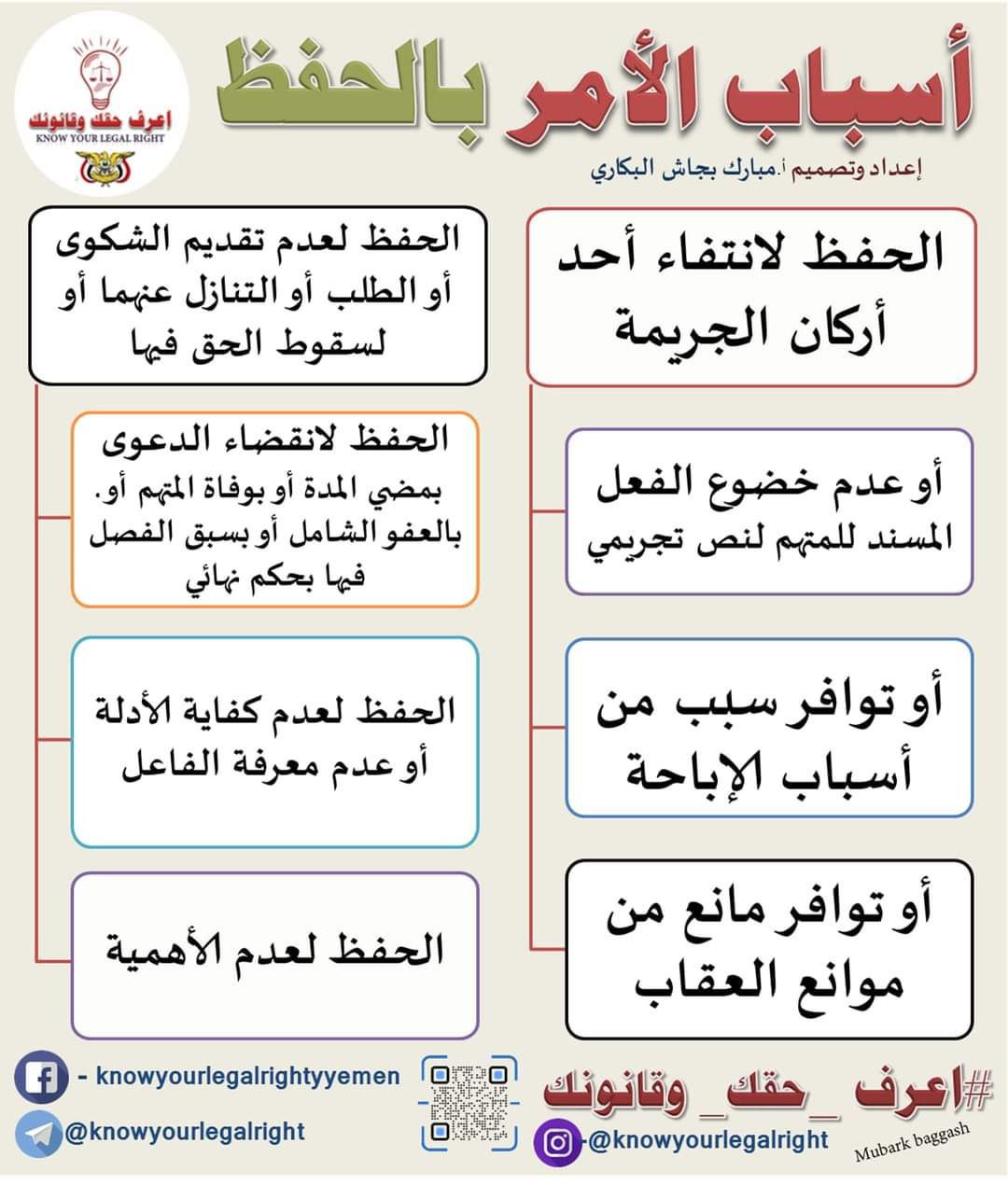
Does the preservation order decision issued by the Public Prosecution acquire authority or force?
Is it permissible for the Public Prosecution to reverse the preservation order decision?
How long does it take to appeal a preservation order according to the law?
What are the images or cases of witnessed crime (flagrante delicto)?
- مشاهدة الجریمة حال ارتكابها.
- مشاهدة الجریمة عقب ارتكابها ببرهة یسیرة.
- تتبع الجاني إثر وقوع الجریمة.
- إذا وجد الجاني بعد وقوع الجریمة بوقت قریب حاملا أشیاء أو به آثار یستدل منها على أنه فاعل الجریمة أو شریك فیها.
When is a crime witnessed?
What are the conditions for a flagrante delicto?
- The judicial officer witnesses or becomes aware of the witnessed crime in person
- The witnessed crime must be discovered in a legitimate manner.
What is our duty as members of society if we witness or learn of a crime occurring or if we are present at the crime scene?
- إبلاغ الجهات المختصة فوراً بالجريمة.
- الالتزام بتعاليم الجهات المختصة .
- ساند الجهات المختصة في عملها ومراعاة التدابير الاحترازية
- إذا كنت في مسرح الجريمة ،لا تلمس أي شيء في مسرح الجريمة
- ولا تحرك شيئا من مكانه وحاول توعية الاخرين وإبعادهم حتى تصل الجهات المختصة لمسرح الجريمة
- وعي من حولك بعدم العبث بمسرح الجريمة ،فمسرح الجريمة مستودع اسرارها يجب المحافظة عليه ،للحفاظ على الادلة لإثبات الجريمة.
What are the conditions for appointing a judicial officer to investigate?
- أولا: أن يكون الندب صادرا ممن يملك سلطة مباشرة الإجراء موضوع الندب قانوناً ، أي أن يكون مختصا مكانيا ونوعيا بالإجراء الذي ندب مأمور الضبط القضائي له ،
- ثانيا: أن يصدر الندب إلي أحد مأموري الضبط القضائي
- ثالثا: يجب أن يكون الندب محددا، أي للقيام بعمل معين أو أعمال معينة من أعمال التحقيق، كتفتيش أو معاينة أو سماع شهود ، ويجب أن يبين في أمر الندب المسائل المطلوب تحقيقها والإجراءات المطلوب اتخاذها ولا يجوز الندب لتحقيق قضية برمتها
- رابعا: يتعين أن يكون الندب صريحا ، فلا يعترف القانون بالندب الضمني
- خامسا: يتعين أن يثبت أمر الندب بالكتابة وأن يكون موقعا عليه بإمضاء من أصدره
- سادساً: أن يكون أمر الندب مشتملاً على كافة البيانات اللازمة لتحديده، كتاريخ إصدارة وأسماء المتهمين والمسائل المطلوب تحقيقها ،والإجراءات المطلوب اتخاذها .
When may judicial officers arrest the accused?
What are the conditions for arrest in the case of a witnessed crime?
- Availability of a case of witnessed crime (flagrante delicto)
- The crime must be serious and punishable by imprisonment for a period exceeding six months. M (101) E.J
- The police officer has sufficient evidence and evidence to indicate that the accused is the perpetrator of the crime or has a relationship with it.
- The discovery of the witnessed crime must have been carried out in a legitimate manner
What are the rights of the accused in the event of arrest?
- إخبار المتهم بأسباب القبض.
- حق الاطلاع على أمر القبض
- حق الاتصال بمن يراء إبلاغه بما حصل له.
- حق الاستعانة بمحام
- المعاملة بما يحفظ كرامتة ولا يجوز إيذاؤه جسدياً أو معنوياً.
- الحق فى تطبيق نصوص القانون ،والحفاظ على جميع الحقوق وعدم انتهاكها
- حق المتهم فى عدم القبض عليه بدون تقديم شكوى فى الحالات التى يتطلب القانون فيها هذه الشكوى
- كل من يقبض علية بصفة مؤقتة بسبب الاشتباه في ارتكابه جريمة يجب ان يقدم إلى القضاء خلال أربعة وعشرين ساعة من القبض ، ولا يجوز الاستمرار في الحبس الاحتياطي أكثر من سبعة أيام إلا بأمر قضائي. قانون الإجراءات الجزائية اليمني
What are the conditions for stopping?
- The presence of manifestations that justify the suspension (doubt and suspicion)
- The suspension does not include physical exposure
- Availability of strong evidence and reliable information
- The man of authority should not exceed the purpose of stopping
Is it permissible for a policeman to search a suspect if he is stopped?
What are the cases in which it is permissible to stop according to the law?
- إذا لم يكن للمتهم محل إقامة معروف
- إذا رفض المتهم بيان أسمه وشخصيته أو كذب في ذلك أو قدم بيانات غير مقنعه أو رفض التوجه إلى مركز الشرطة بدون مبرر
- إذا كان في حالة سكر بين
- إذا وجد في تجمهر أو تشاحن أو مشادة مما ينذر بوقوع تعدي أو حصول جريمة لا يمكن تلافيها إلا بذلك
- كل من يحمل سلاحاً نارياً ظاهراً خلافاً للقانون. مادة(107) قانون الإجراءات الجزائية
What are the conditions for inspection in the case of a crime witnessed in flagrante delicto?
- أن تكون الجريمة من الجرائم المشهودة . م(98) أ.ج
- أن تكون الجريمة من الجرائم المعاقب عليها بالحبس مدة تزيد على ستة أشهر م(١٠١)إ.ج
- أن تنسب الجريمة الى المتهم المطلوب تفتيشه ووجود دلائل كافية يستدل منها على نسبة الجريمة الى المتهم. م (١٠٢) أ.ج
- تفتيش الأنثى لا يكون الا من قبل أنثى. مادة(143) قانون الإجراءات الجزائية
Is it permissible for a woman to be searched by a man?
What are the conditions for searching the accused’s home in the event of a crime witnessed in flagrante delicto?
- توافر حالة من حالات الجريمة المشهودة التي نصت عليها المادة(٩٨) إ.ج
- أن تكون عقوبة الجريمة المشهودة مما يعاقب عليها بالحبس مدة تزيد على ستة أشهر. م(١٠١)إ.ج
- أن ينصب التفتيش على منزل المتهم نفسه ،لأن تفتيش منزل غير المتهم إجراء من إجراءات التحقيق لا يجوز لمأمور الضبط القضائى القيام به في أحوال الجريمة المشهودة
- يجب أن يقتصر التفتيش على البحث عما يفيد في كشف الجريمة المرتكبة. م (١٣٧) إ.ج
- أن تكون هناك دلائل قوية. م (١٠٢) إ.ج
- أن يتم التفتيش بحضور المتهم، أو من ينيبه المتهم للحضور بدلاً عنه . م(١٣٤)إ.ج
Who is the authority responsible for preliminary investigation procedures?
حيث نصت المادة(١١٦) إ.ج على الاتي:"يتولى النائب العام سلطة التحقيق والادعاء وكافة الاختصاصات التي ينص عليها القانون وله ان يباشر سلطة التحقيق بنفسه أو بواسطة أحد أعضاء النيابة العامة أو من يندب لذلك من القضاة أو مأموري الضبط القضائي"
Do opponents have the right to submit defenses and requests to the investigator during the investigation?
What are the inspection conditions?
- يجب أن يكون إجراء التفتيش من قبل المحقق بسبب ارتكاب جريمة وقعت بالفعل ليست محتملة الوقوع وتوافرت دلائل كافية أو قرائن على نسبتها إلى شخص معين أو وجد دليل يفيد في كشف الحقيقة لدى المتهم أو غيره . مادة(135) إ.ج
- يجب أن يقع التفتيش من مأمور الضبط القضائي باعتباره إجراء من إجراءات التحقيق وليس لمعاونيه إجراء ذلك بمفردهم وبدون إشراف منه
- ويشترط لمحل التفتيش:-
- أن يكون المحل معيناً
- أن يكون مما يجوز تفتيشه
- أن تكون الغاية من التفتيش ضبط كل ما يتعلق بالجريمة المرتكبة أو كل مايفيد في كشف الحقيقة
- أن يكون التفتيش بحضور المتهم أو من ينيبه أثناء تنفيذ التفتيش
- تحرير محضر بالتفتيش
- الالتزام بالزمن المسموح فيه بالتفتيش قانوناً وهو بعد شروق الشمس وقبل غروبها إلا في حالة الجريمة المشهودة أو مطاردة شخص هارب من وجه العدالة. م(١٤٤) إ.ج
What are the conditions for housing inspection?
أن يصدر أمر من سلطة التحقيق "النيابة العامة " بتفتيش المسكن المراد تفتيشه
أن يكون هناك اتهام موجه إلى الشخص الذي يقيم في المسكن المراد تفتيشه بارتكابه جريمة يعاقب عليها قانون العقوبات النافذ.
أن تتوافر قرائن وأمارات على أن المسكن المراد تفتيشه توجد فيه أشياء تتعلق بالجريمة المرتكبة أو تفيد في كشفها . مادة (١٣٨)إجراءات جزائية
When is it permissible to control, monitor and record wired and wireless conversations?
- This procedure must be related to a crime punishable by law
- Surveillance and recording are necessary to reveal the truth in this crime
- The surveillance or recordings must be based on a reasoned order from the Public Prosecution or the investigating judge.
- This must be done within a period not exceeding thirty days.
Is it permissible to submit an objection or request to the investigator to return the seized items?
Who is the competent authority that has the right to issue an order to return the seized items?
What are the rights of the accused in interrogation and confrontation?
- The accused has the right to determine the authority conducting the interrogation and confrontation
- The right of the accused to keep his fingerprint
- The accused's right to speedy interrogation
- The right of the accused to the integrity of his will during interrogation
- The right of the accused not to take an oath during interrogation
- The accused’s rights to defense during interrogation:
Inviting the accused’s lawyer to attend interrogation in serious crimes
Failure to separate the accused from his lawyer during interrogation or confrontation
Enabling the accused’s lawyer to review the investigation before interrogation and confrontation
Is it permissible to force the accused to answer during interrogation?
What are the rights of the accused if he is arrested?
- ضرورة إطلاع المتهم على أمر القبض . م(٧٣)إ.ج
- عدم استخدام القوه عند تنفيذ القبض إلا في حالة اللزوم ويكون متناسب. م(٧٩)إ.ج
- يجب ان يكون الأمر بالقبض كتابة موقعا عليه ممن أصدره ويجوز ان يكون الأمر شفويا على ان ينفذ في حضور الآمر به والقبض في الحالات الأخرى يكون على مسئولية القابض. م (٧٢)إ.ج
- إخطار المتهم بأمر القبض وأسبابه وسماع أقواله . م(٧٣)إ.ج
- وجوب معاملة المقبوض عليه بما يحفظ عليه كرامته. الدستور اليمني المادة(٤٨) الفقرة(أ)
- حق المتهم المقبوض عليه في الاستعانة بمحامِ.
- الدستور اليمني المادة (٤٩) . والمادة(٩)الفقرة(١) والفقرة(٢)إ.ج
- حق المقبوض عليه في تأقيت القبض"مدة القبض" حيث الدستور اليمني في المادة(٤٨) الفقرة(ج) قد حدد المدة واكدته المادة (٧٦)إ.ج ،الذي نصت بالاتي:"كل من يقبض عليه بصفة مؤقتة بسبب الاشتباه في ارتكابه جريمة يجب ان يقدم إلى القضاء خلال أربعة وعشرين ساعة من القبض عليه على الأكثر وعلى القاضي أو عضو النيابة العامة ان يبلغه بأسباب القبض وان يستجوبه ويمكنه من إبداء دفاعه واعتراضاته وعليه ان يصدر على الفور أمرا مسببا بحبسه احتياطيا أو الإفراج عنه"
- حق المقبوض عليه فى إخطار ذويه بواقعة القبض. مادة(٧٧) إ.ج
| اعرف حقك وقانونك |
What are the conditions for pretrial detention?
- وجود دلائل كافية على اتهامه.
- ان تكون الواقعة المتهم فيها جريمة معاقب عليها بالحبس لمدة تزيد على ستة أشهر أو لم يكن للمتهم محل أقامة معروف بالجمهورية متى كانت الجريمة معاقب عليها بالحبس.
- ان يكون المتهم قد تجاوز الخامسة عشر من عمره.
- عدم تحديد هوية المتهم.
ولا يجوز تقييد حرية إنسان أو حبسه إلا في الأماكن المخصصة لذلك. م(١٨٧)إ.ج
What are the crimes for which pretrial detention is permissible?
- All serious crimes, regardless of their nature or type
- In non-serious crimes, the penalty prescribed for them is imprisonment for a period exceeding six months
- In non-serious crimes punishable by imprisonment for a period of less than six months if the accused does not have a known residence in the Republic of Yemen
- In crimes committed through newspapers if they include an attack on honor or incitement to corruption of morals
What is the legally required form for issuing a pretrial detention order?
- اسم المحبوس ثلاثيا.
- محل إقامته.
- رقم القضية المحبوس فيها.
- الجريمة المسندة إليه ومادة القانون.
- مصدر الأمـر وصفته .
- مدة الحبس الاحتياطي وتاريخ عرض المتهم على السلطة الآمرة بالحبس للبت في أمره. مادة (١٨٦) إجراءات جزائية
What is the position of the law on torture inside prison?
كما اوجبت المادة(١٩٢)إ.ج ، الاتي: "يجب على كل عضو من أعضاء النيابة العامة زيارة المنشئات العقابية الموجودة في دائرة اختصاصه والتأكد من عدم وجود محبوس بصفة غير قانونية. وله ان يطلع على دفاترها وأوامر القبض والحبس وأن يأخذ صورا منها وأن يتصل بأي محبوس ويسمع منه أي شكوى يريد ان بيديها له ،وعلى مديري هذه المنشآت ان يقدموا له كل مساعدة لحصوله على المعلومات التي يطلبها ".
When is the release of the accused obligatory?
في الجرائم غير الجسيمة إذا مرت على تاريخ استجوابه السبعة الأيام المنصوص عليها في المادة(189) إ.ج ،وكان له محل إقامة معروف في البلاد وكان الحد الأقصى للعقوبة المقررة لا تتجاوز سنة واحدة. ولا تسري هذه المادة على من سبق الحكم عليه بالحبس أكثر من سنة بدون وقف التنفيذ أو كان عائدا في ارتكاب جريمة.
إذا بلغت مدة الحبس الاحتياطي ستة أشهر ولم يعلن المتهم بإحالته إلى المحكمة المختصة. مادة (١٩١)إ.ج
إذا أصدرت سلطة التحقيق أمر بأن لا وجه لإقامة الدعوى. مادة (٢٢٨) إ.ج
إذا انتهت مدة الحبس الاحتياطي المأمور بها ولم تجدد قبل انقضاء اليوم الأخيرة منها. مادة(١٨٩)إ.ج
إذا ظهر أن الواقعة التي حبس من أجلها المتهم لا تشكل جريمة مما يجوز فيها الحبس الاحتياطي . مادة (١٨٤)إ.ج
إذا بلغ الحبس الاحتياطي مدة تساوي أقصى ما يمكن الحكم به على المتهم لو أنه أدين في الجريمة التي حبس من أجلها.
What are the characteristics of the decision that there is no basis for filing a criminal case?
- It is of a judicial nature as it is an act in the preliminary investigation
- It must be preceded by a preliminary investigation
- The decision-making aims to prevent the criminal case from being brought to the competent court
- It is valid unless there is a reason to cancel it
- It may be issued for all crimes without exception.
What are the reasons under which the Public Prosecution may issue an order stating that there is no basis for bringing a criminal case?
و ا ذا تبين ان مرتكب الجريمة غير معروف أو ان الأدلة ضد المتهم غير كافية تصدر قرارا مسببا بأن لاوجه لاقامة الدعوى الجزائية مؤقتا.
ويفرج عن المتهم المحبوس ان لم يكن محبوسا لسبب آخر ويعلن الخصوم بقرار النيابة العامة في الحالتين وإذا كان احدهم قد توفى يكون الإعلان لورثته جملة في محل إقامته)
Who is the competent authority to issue the decision that there is no basis for filing a criminal case?
What are the conditions for the decision that there is no basis for filing a criminal case?
- يجب أن يكون القرار مسبباً.
- يجب أن يكون القرار مكتوباً
- يجب أن يكون مسبوقاً بإجراء أو أكثر من إجراءات التحقيق فإذا لم يسبقه أي إجراء فإنه يعد أمر حفظ
- أن يكون القرار صريحاً بدون أي لبس، فلا يمكن الأخذ به بالاستنتاج والظن المحتمل
- يجب أن يكون القرار موقعاً عليه ممن أصدره
- أن يحدد في القرار الواقعة التي صدر بشأنها والمتهم الذي حقق معه بأن يبين اسمه ولقبه وسنه ومحل الميلاد وتاريخه ومهنته
- يجب أن يكون القرار مؤرخاً حتى يمكن لمن أراد الطعن فيه احتساب مدة الطعن الذي حدده القانون بالإضافة إلى حساب مدة التقادم
Does the decision that there is no basis for filing a criminal case be valid?
What are the conditions for canceling a decision that there is no basis for filing a criminal case by the Public Prosecutor?
- Unless the criminal case has expired or has been dropped for any reason.
- Unless the Attorney General is the one who issued the decision
- The cancellation must be within the four months following the issuance of the decision
- Unless the prosecution’s decision was appealed before the competent authorities and the appeal was rejected
Is it permissible to appeal the decision that there is no basis for filing a criminal case?
How long is the legal period for appealing the Public Prosecution’s decision that there is no basis for filing a criminal case?
Who is the event?
Article (2) Juvenile Welfare Law
Is it permissible to detain a juvenile who is not more than twelve years old in a police station?
What are the cases in which it is permissible to request a judge’s recusal?
If one of the conditions stipulated in Article (271) is met and he does not resign of his own accord.
Article 271 of the Penal Code stipulates that the following is not fit to be a judge and must resign:
A: The victim of a crime.
B: Spouses, brothers, sisters, ascendants and descendants of one of the parties to the lawsuit, and all relatives up to the fourth degree.
A: The legal representative of the accused, the victim, or any party to the case.
D: Anyone who participated in the case as a representative of the Public Prosecution, a judicial officer, a lawyer for the victim, or a defender of the accused.
H: Anyone who was heard in the case as a witness, representative, expert or specialist.
In addition to these cases, what is stipulated in Article 132 of the Civil Procedure and Enforcement Law, which states that (the parties may request the dismissal of the judge or member of the Public Prosecution from hearing the case for the following reasons:
1- If he or his wife has a dispute with one of the parties to the lawsuit or his wife after the lawsuit has been brought before the judge, unless it was brought with the intention of preventing him from hearing the lawsuit.
2- If his divorced wife, with whom he has a child, or one of his in-laws on the lineage has an existing dispute after the lawsuit brought before the judge was filed, unless this dispute was filed with the intention of preventing him from examining it.
3- If one of the opponents is his servant.
4- If he received a gift from one of the opponents.
5- If there is enmity or affection between him and one of the opponents, which makes it likely that he will not be able to rule without bias.
Is it permissible for the opponents to submit a request to the judge or prosecutor to refrain from hearing the case?
Article (131) Code of Civil Procedure and Implementation
If the court finds out that the criminal case does not fall within its jurisdiction, what is its legal obligation?
It must issue a reasoned decision to refer it to the competent court unless the law stipulates otherwise.
If the investigation includes more than one crime within the jurisdiction of multiple courts of first instance, and the crimes are connected, all of them shall be referred by a single decision to the court with spatial jurisdiction in one of them.
What are the general principles of criminal trials?
- The principle of publicity of sessions
- The principle of oral pleadings
- Attendance of opponents in court proceedings (confrontation)
- The court is bound by the limits of the case
- Recording court procedures
What is the penalty for violating the principle of oral hearings?
Who are the parties to the dispute who must be present at the trial proceedings?
النيابة العامة : ممثل النيابة العامة يجب حضوره جلسات المحاكمة في جميع الدعاوى الجزائية المنظورة أمام المحكمة، وعلى المحكمة أن تسمع أقواله وأن تفصل في طلباته وإلا بطل العمل الإجرائي. المادة (٣١٦)إ.ج
المتهم : حضور المتهم أمر ضروري فهو الشخص المناط به الدعوى الجزائية حسب مانصت عليه المادة(٣١٥)إ.ج على أنه(يجب على أ ي متهم في جريمة ان يحضر المحاكمة بنفسه).
أما بقية الخصوم فليس من الضروري حضورهم ويكتفي بحضور وكلاء عنهم والمحكمة أن تأمر بإحضارهم شخصياً إذا رأت في ذلك مصلحة ،وهو مانصت عليه المادة(٣١٥)الفقرة(٢)إجراءات جزائية
What are the conditions for causing a ruling?
- A: For the ruling to be valid, the following conditions must be met:
Statement of the incident requiring punishment and the circumstances in which it occurred - A statement of the legal text according to which the case was decided.
- The evidence that led to the issuance of the ruling must be clear and logically and logically acceptable
- The reasons for the ruling must include a response to the requests and defenses presented by the opponents
1- It must be clear
2- The pampering must be palatable
What are the necessary conditions for requests and defenses?
- ج: الشروط هي:-
أن يكون الطلب منتجاً في الدعوى أو الدفع الجوهري - يجب أن يكون الطلب أو الدفع صريحاً وجازماً
- يجب أن يحتوي الطلب أو الدفع على بيان مضمونه وإظهار الأثر المنتج في الدعوى
- يجب أن يبدي الطلب أو الدفع قبل قفل باب المرافعة
Is it permissible to appeal rulings issued in a civil case following a criminal case?
What are the conditions for resuming a civil lawsuit as a result of a criminal lawsuit?
- أن يكون الحكم الصادر في دعوى مدنية مرفوعة تبعاً للدعوى الجزائية
- أن يكون المستأنف خصماً في الدعوى المدنية التبعية الصادر فيها الحكم
- أن يكون هذا الحكم المراد استئنافه مما يجوز استئنافه طبقا لقانون المرافعات.
What is meant by problem?
What are the cases in which a cassation appeal may be made?
- If the contested ruling is based on a violation of the law or an error in its application.
- If there is an invalidity in the ruling.
- If an invalidity occurs in the procedures, it affects the ruling.
However, if it is mentioned in one of them, it is not permissible to prove that it was not followed except by challenging the forgery.
What provisions may be reconsidered?
- If a person is convicted of murder and there is sufficient evidence proving that the alleged killer is still alive.
- If a person is sentenced for a crime and then another person is sentenced for the same crime and the two rulings cannot be reconciled such that it is concluded that one of the convicts is innocent.
- If a person is sentenced and after the ruling is issued, he is convicted of giving false testimony against one of the witnesses or experts who testified against him, or if he is judged to have forged a paper presented during the hearing of the case and the testimony, the expert’s report, or the paper had an impact on the ruling.
- If the ruling is based on a ruling issued in another case and this ruling is cancelled.
- If facts or evidence occur or appear after the ruling that was not known at the time of the trial and would prove the innocence of the convict.
What are the methods of proof in Yemeni law?
• شهادة الشهود.
• الإقـــرار.
• الكـتـابـة.
• اليمين وردها والنكول عنها.
• القرائن الشرعية والقضائية.
• المعاينة(النظر).
• تقرير
• استجواب الخصم
What is the definition of a lawsuit?
What are the conditions for accepting a case before the courts?
- To have an interest in raising it
- The signature of the plaintiff or his representative in the petition
- It must be in the nominative case from an adjective to an adjective
- To be in writing
- It must be submitted to the court in the correct manner, procedures, and deadlines stipulated in the law
- The court must be qualitatively and spatially specialized to consider it
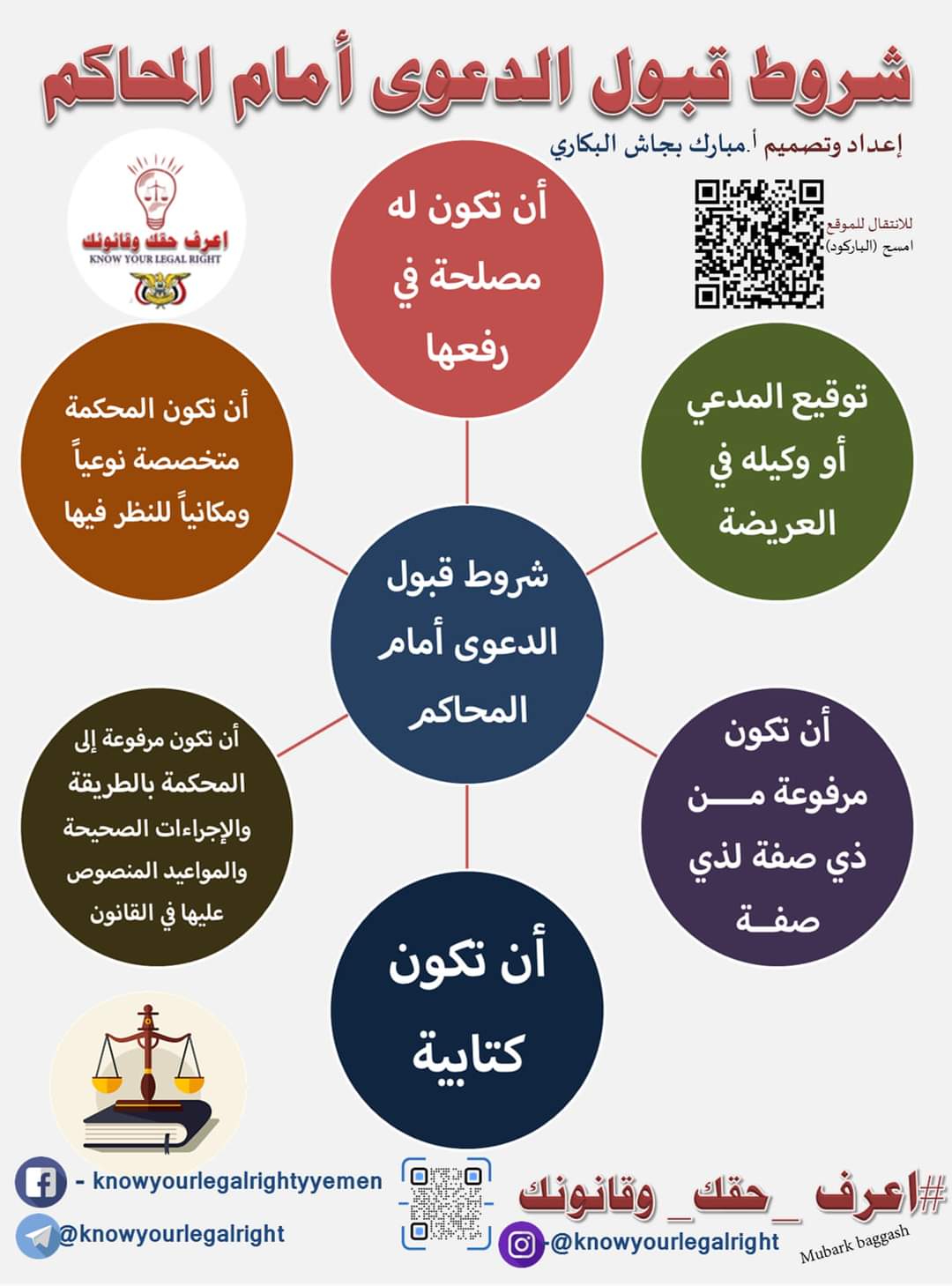
What are the cases in which the initial ruling is not subject to appeal?
- إذا كان المحكوم به لا يتجاوز مائتي ألف ريال في المسائل المدنية.
- إذا كان المحكوم به لا يتجاوز خمسمائة ألف ريال في المسائل التجارية.
- إذا كان المحكوم به نفقة للزوجة لا يتجاوز عشرة آلاف ريال.
- إذا كان المحكوم به نفقة للصغير لا يتجاوز ستة آلاف ريال ما لم يكن النـزاع بشأن النفقة متعلقاً بسبب إستحقاقها فيجوز إستئناف الحكم الصادر فيه.
مادة (86): أ- يكون الحكم الابتدائي نهائيا غير قابل للطعن بالاستئناف وقابلا للطعن أمام المحكمة العليا في الأحوال الآتية:
1- في قضايا الأحوال الشخصية الصادرة بشأن النفقات والزواج والطلاق والفسخ والحضانة والرؤية والكفالة.
۲- في قضايا الإيجارات والشفعة والأحكام الصادرة في التظلمات من أوامر الأداء وفي الاختصاص.
3- في المسائل المدنية إذا كان المحكوم به لا يتجاوز خمسة ملايين ريال.
4- في المسائل التجارية إذا كان المحكوم به لا يتجاوز عشرة مليون ريال.
ب - في قضايا الفسخ المرفوعة ضد الزوج الغائب يجب على النيابة العامة فور استلامها نسخة الحكم بالفسخ عرضه على المحكمة العليا وتعتد المرأة من تاريخ استلام نسخة الحكم الصادر من المحكمة العليا ولا يقبل الطعن فيه بأي طريق من طرق الطعن .
What are the cases in which the case is not heard according to the Yemeni Evidence Law?
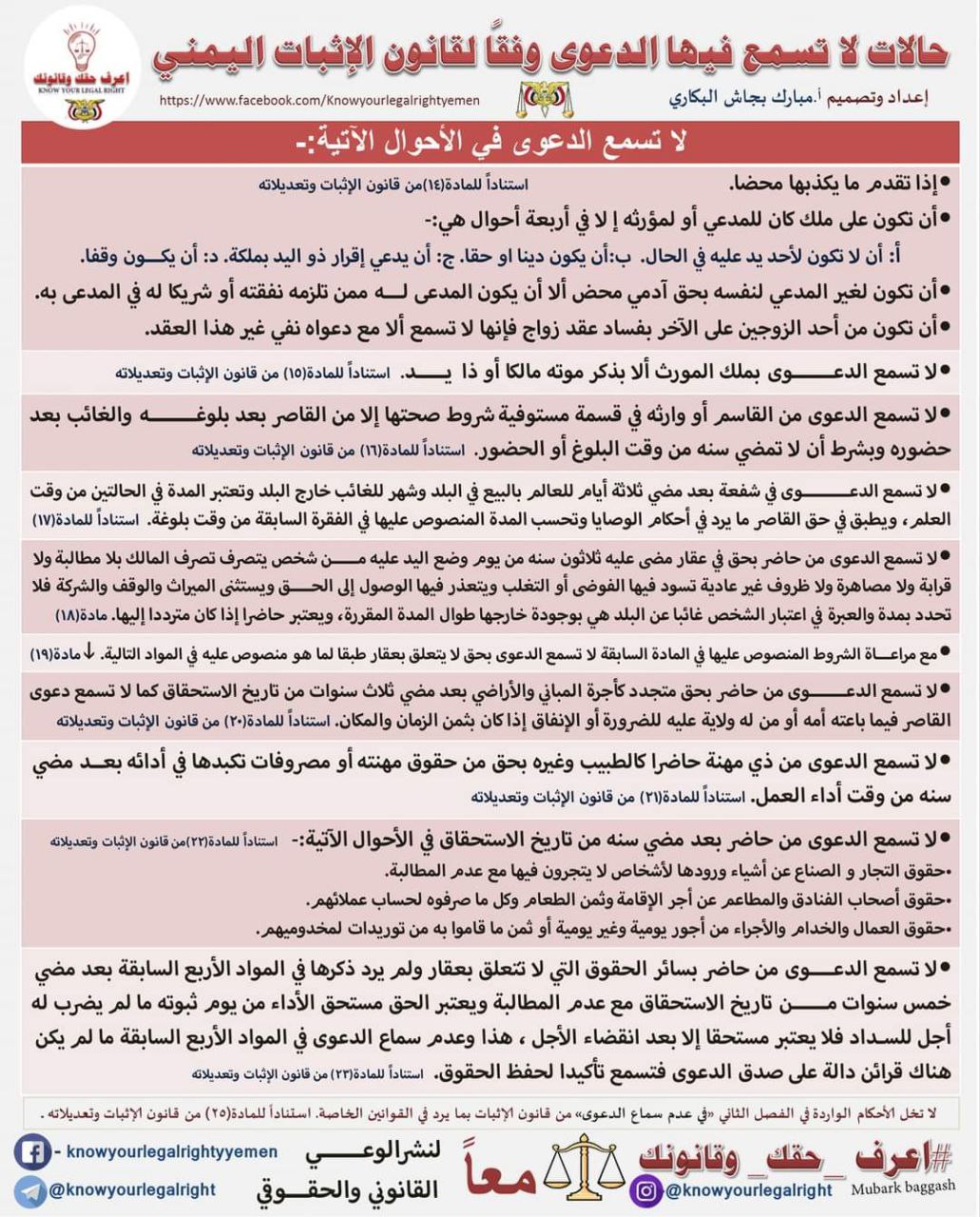
What is mediation?
What is the difference between proof and proof?
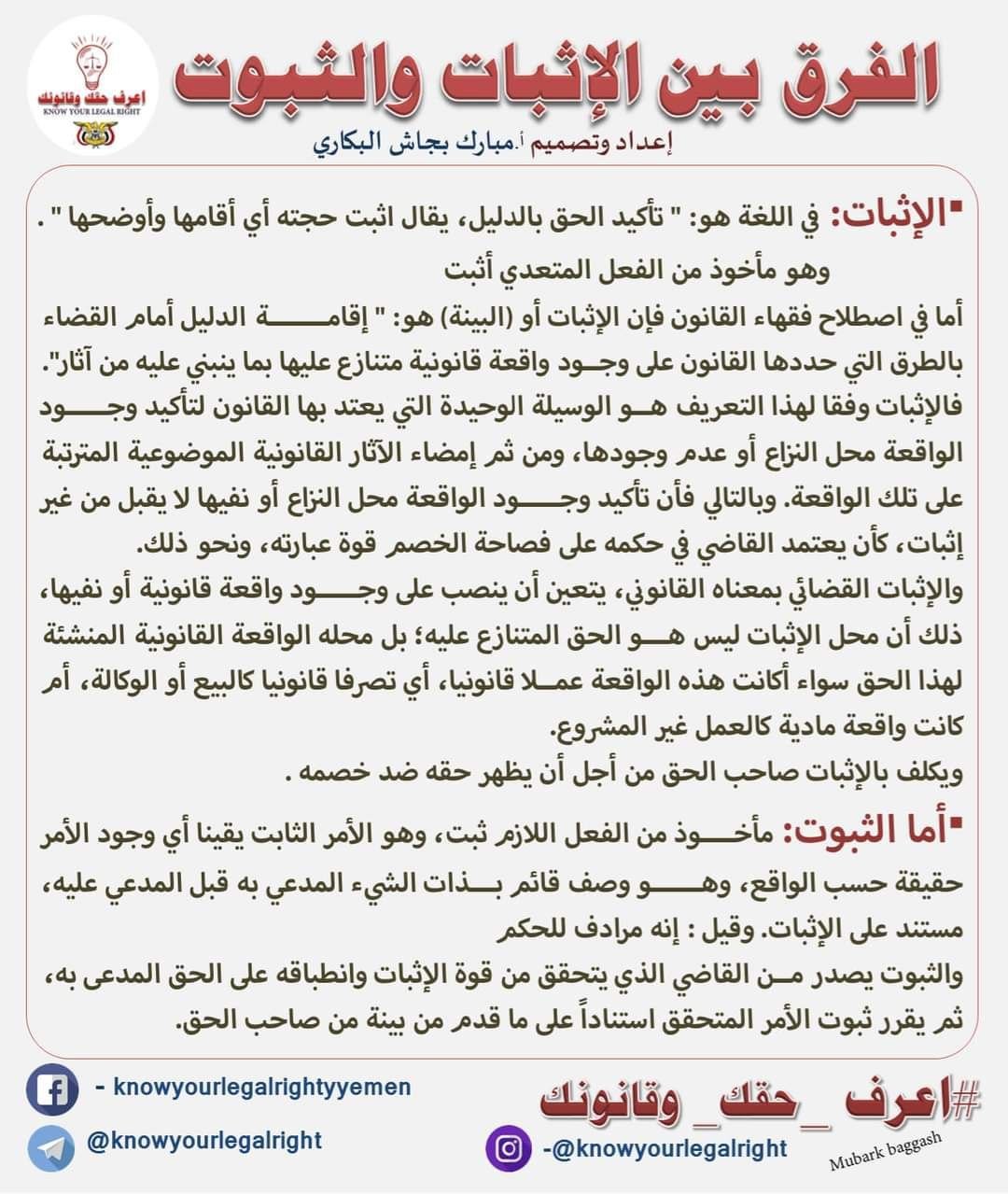
What is the difference between force majeure and emergency circumstances?
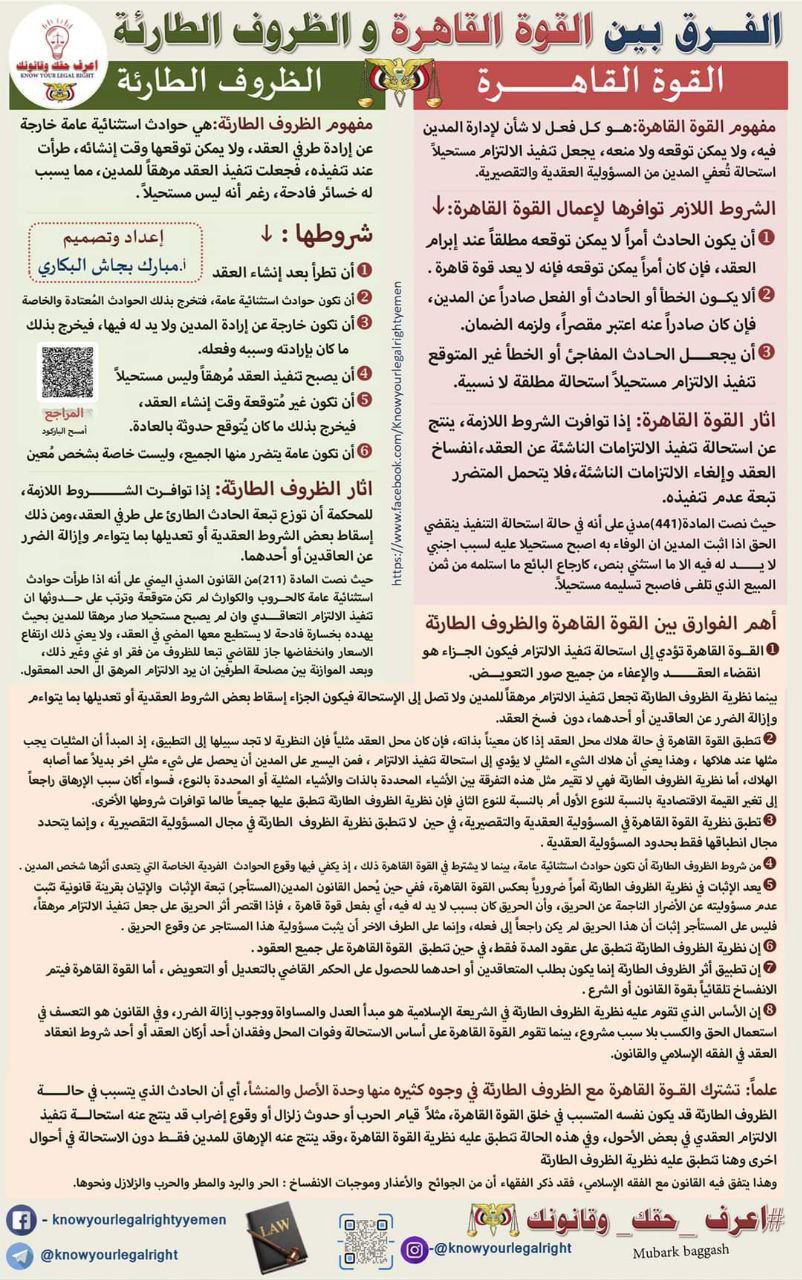
What is the difference between divorce, annulment, and divorce?
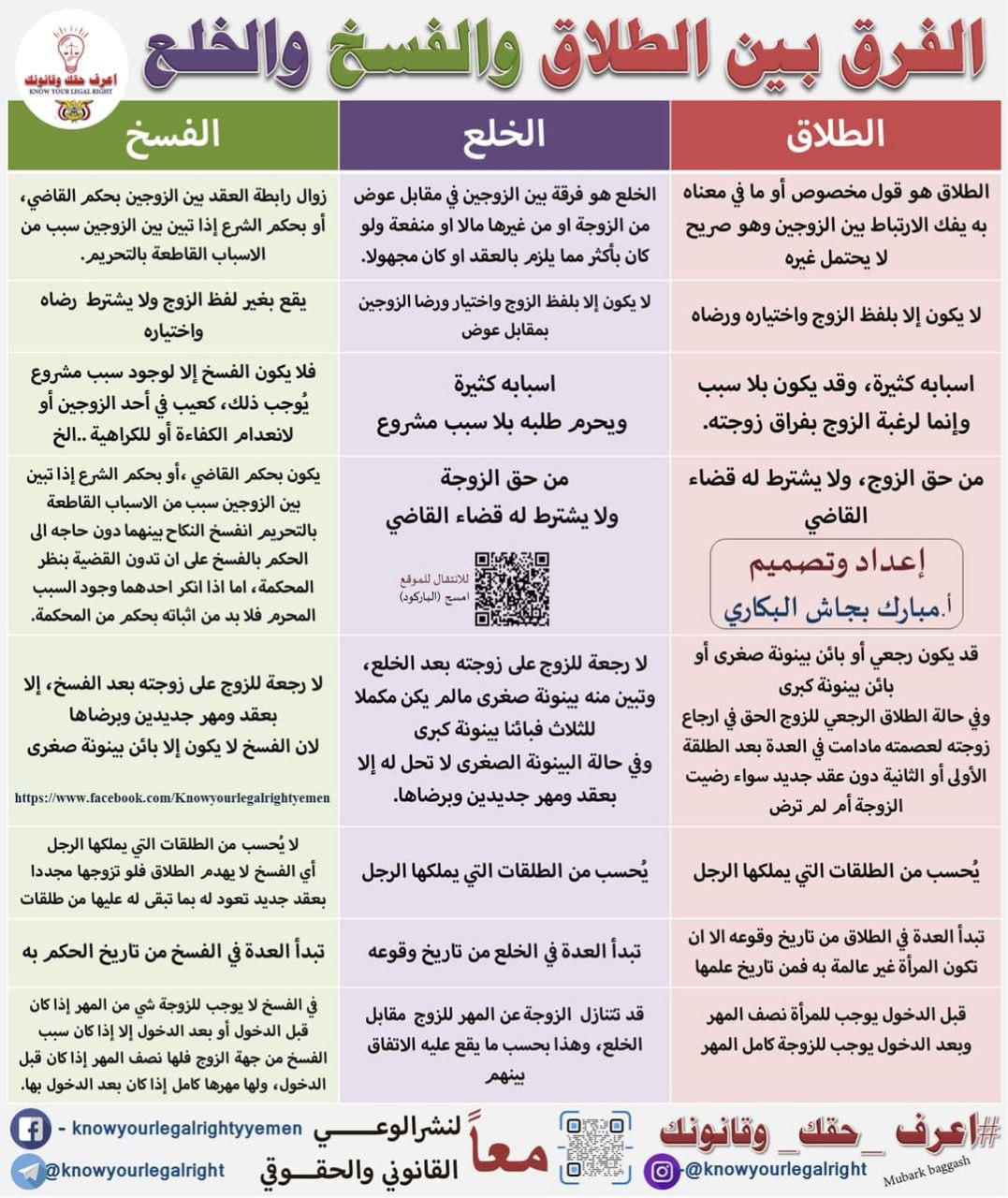
What is the difference between interrogation and questioning the accused?
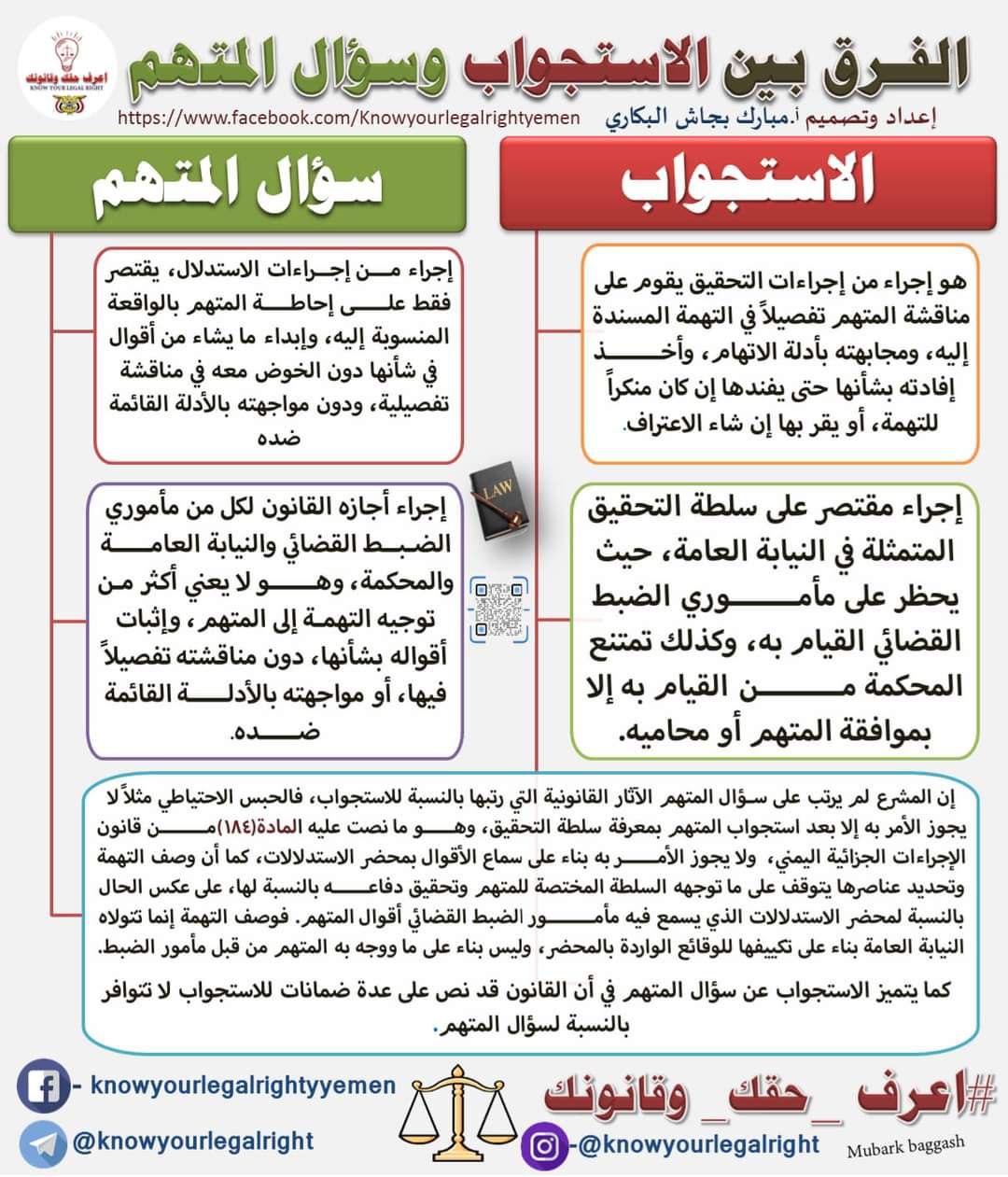
What is the difference between delegation, subrogation and delegation?
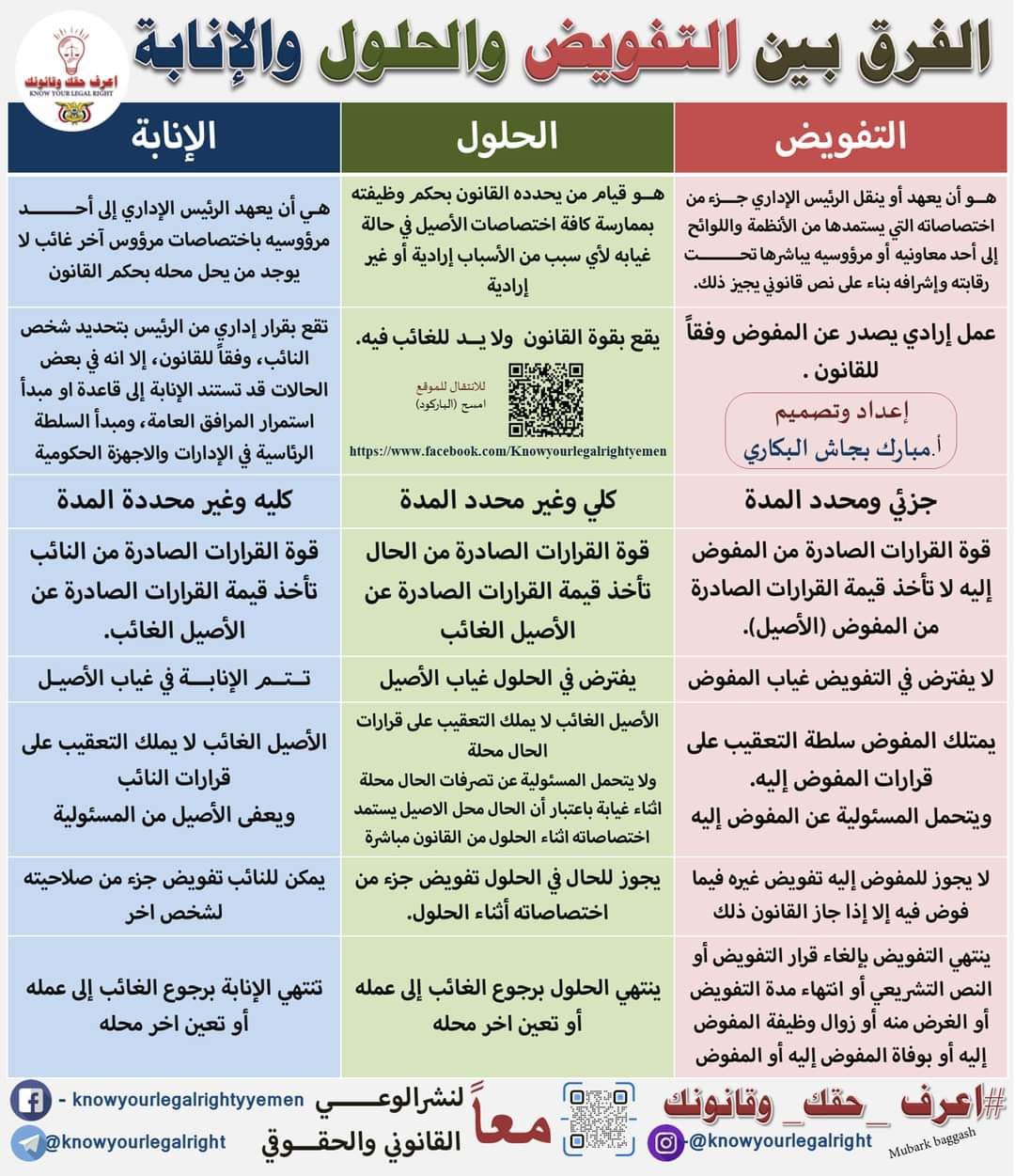
What is the difference between price and value?

What is the difference between right and justice?
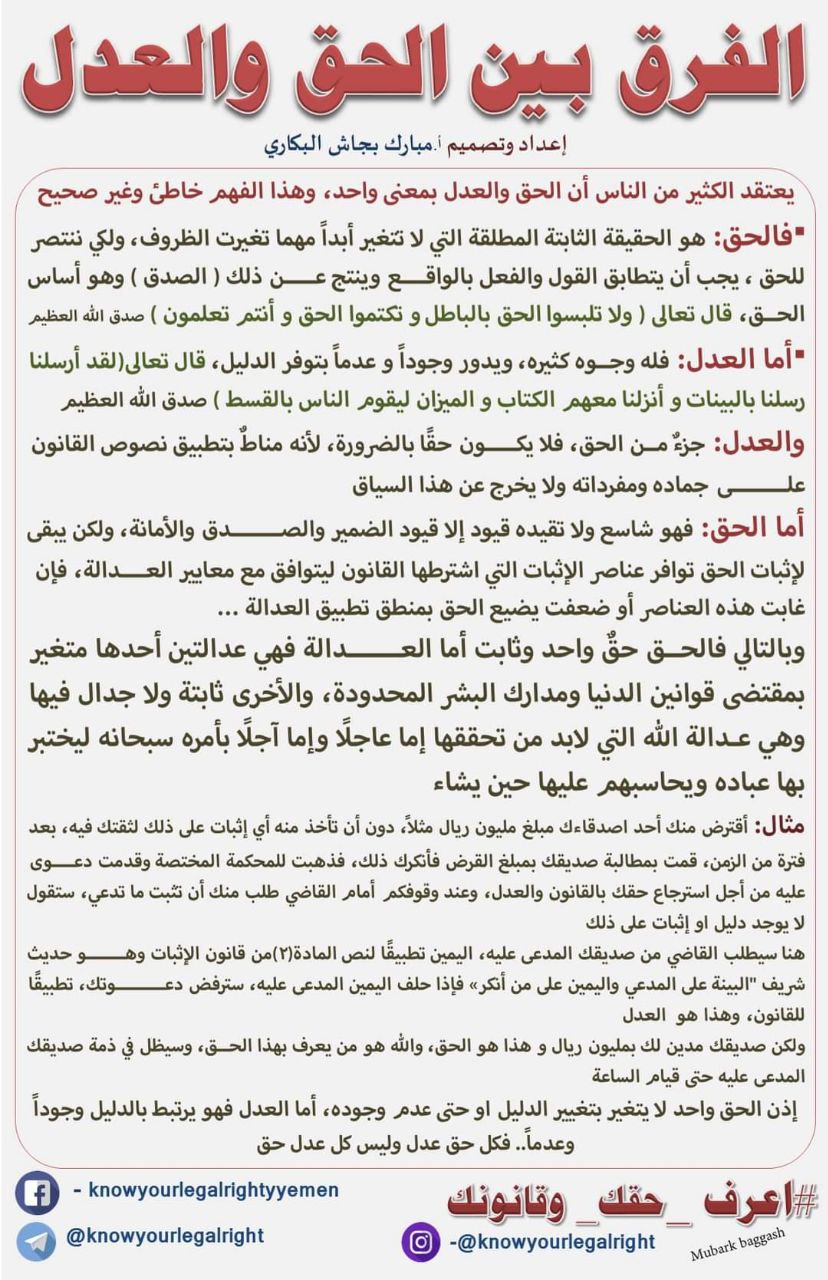
What is the difference between a final ruling, a final ruling, and a non-conclusive ruling?
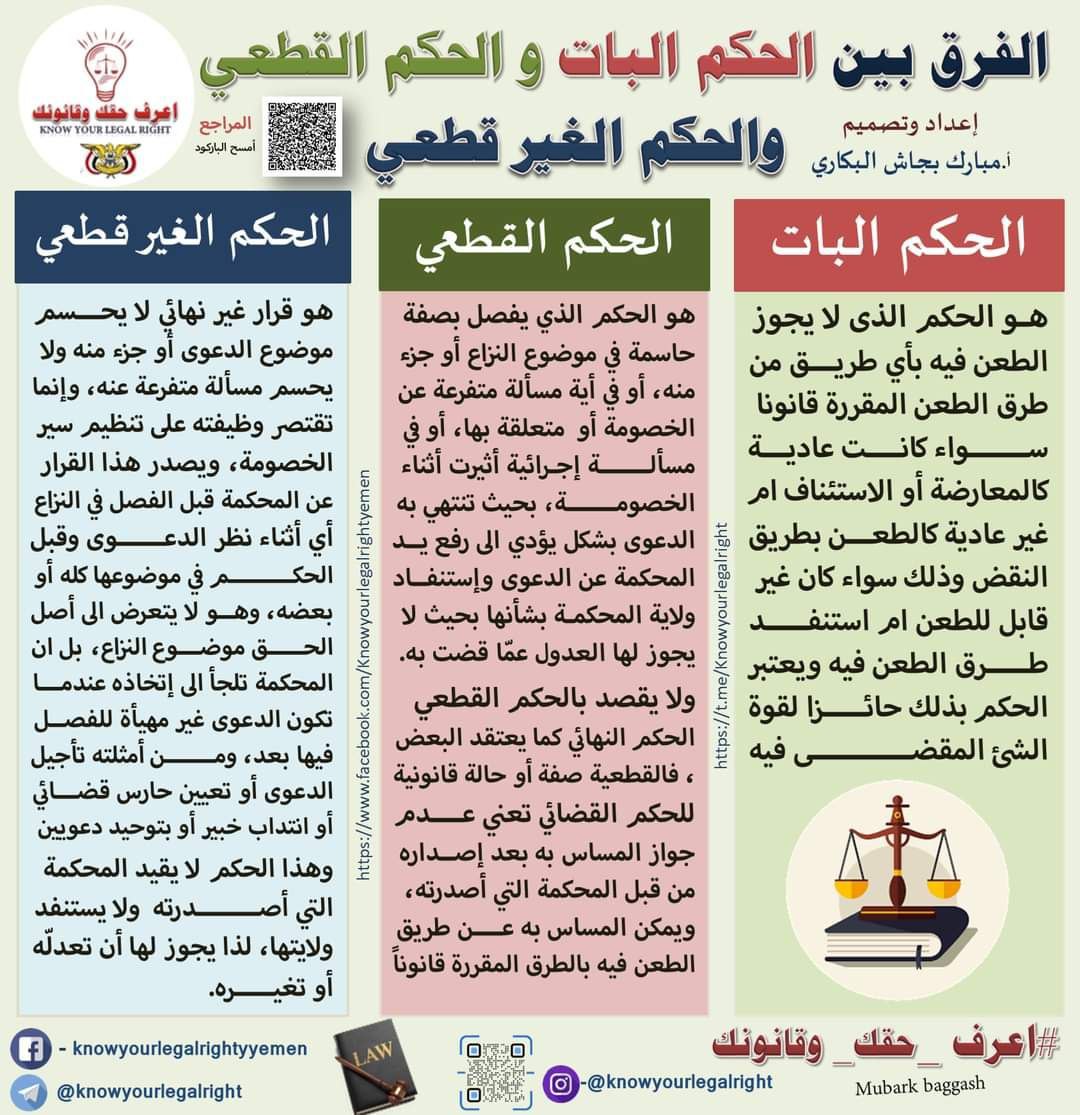
What is the difference between eligibility for obligation and eligibility for performance?
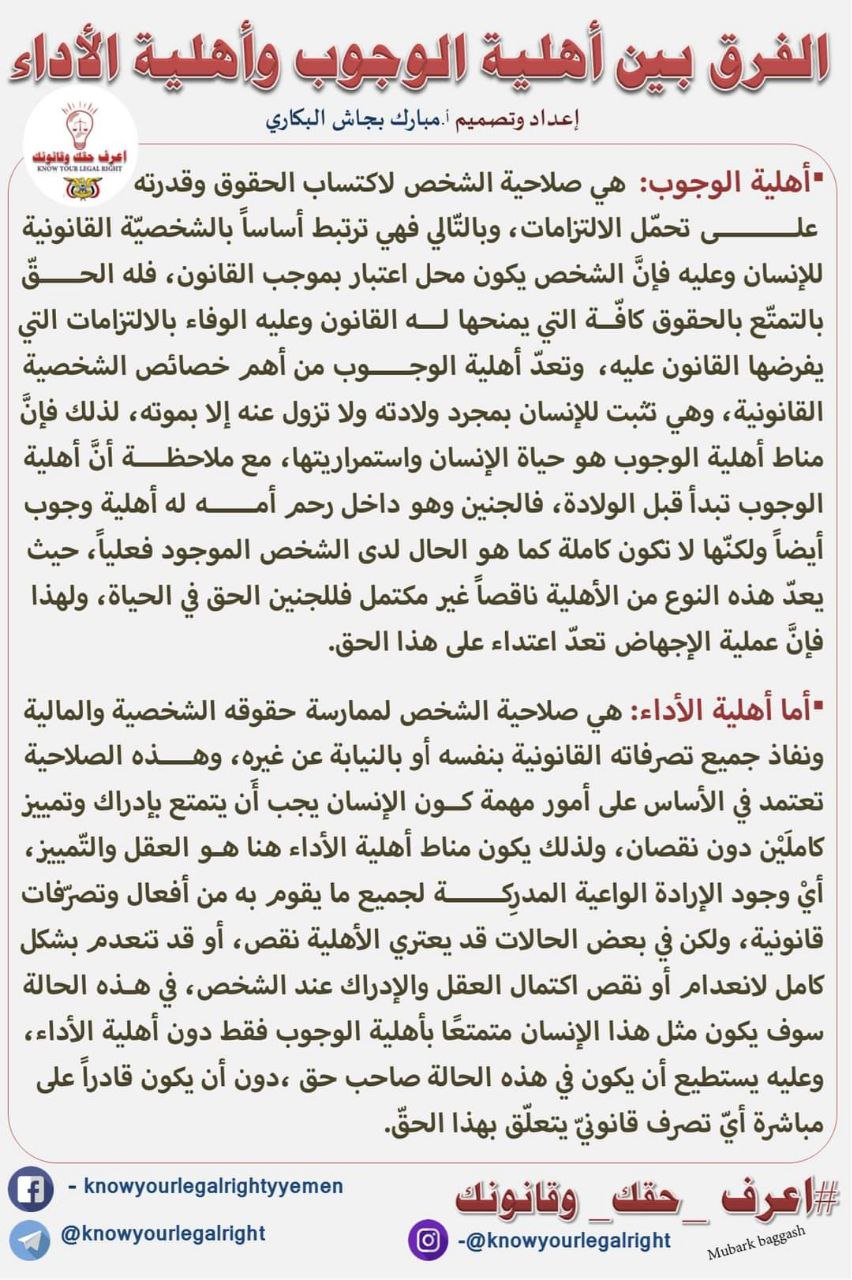
What is the difference between a petition order and a performance order?
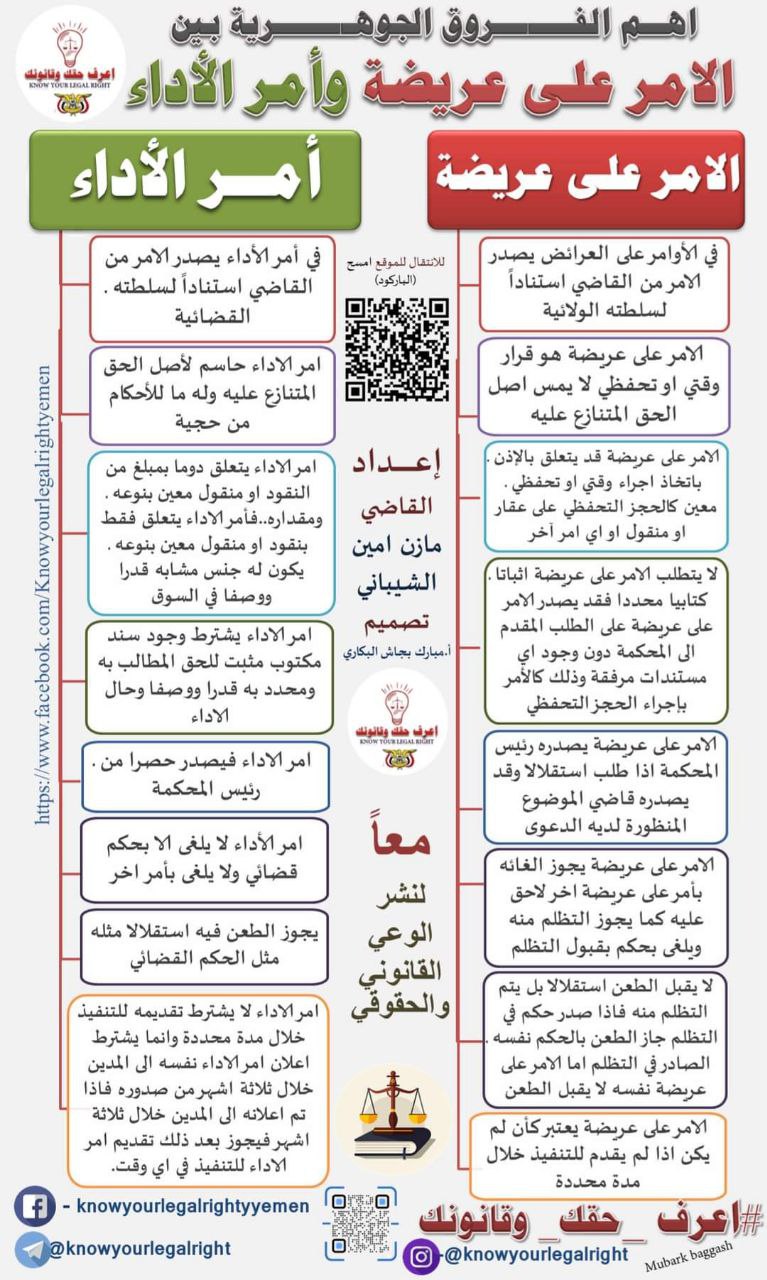
What is the difference between a threatening fine and a penalty clause?
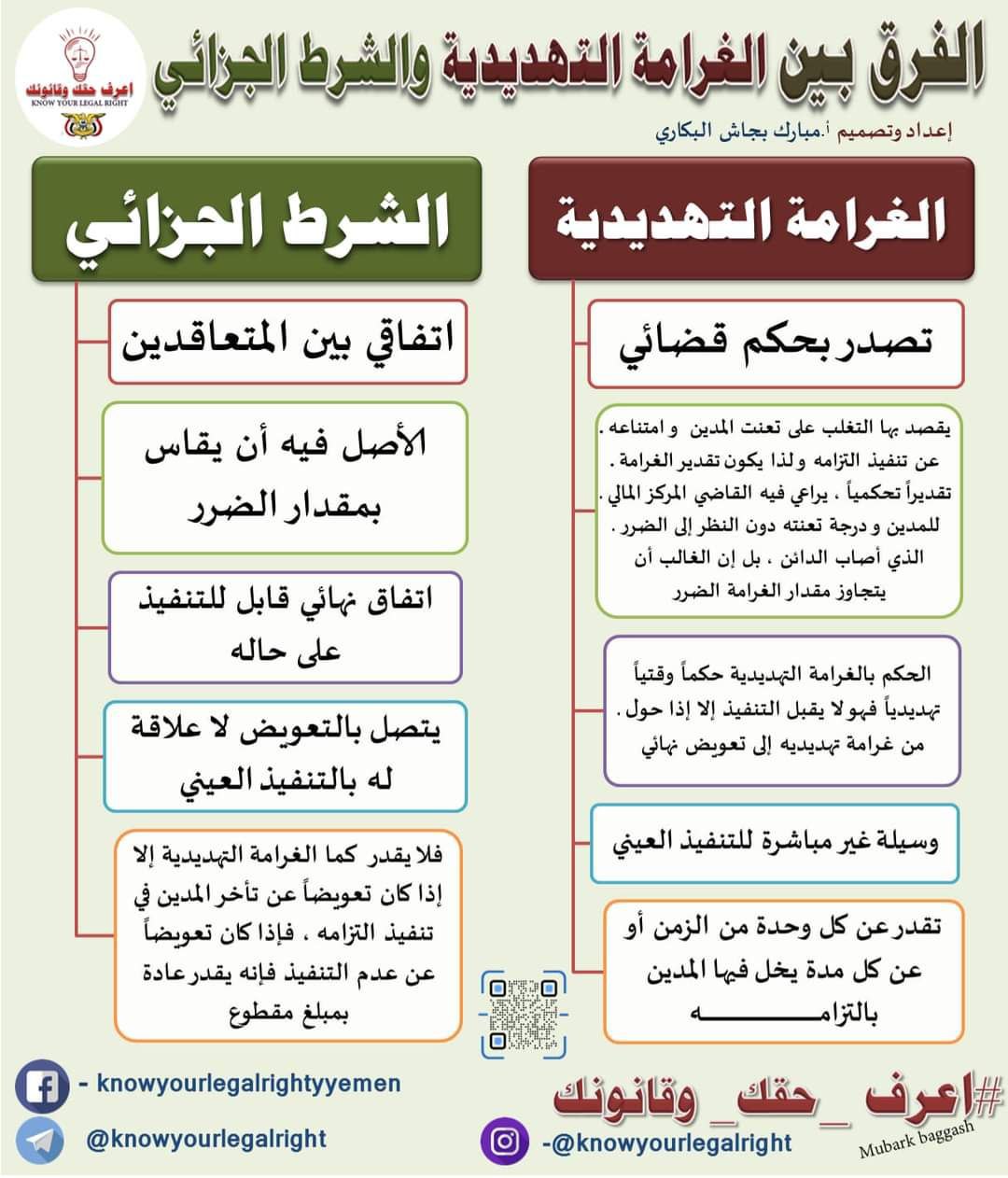
What is the difference between precautionary reservation and executive reservation?
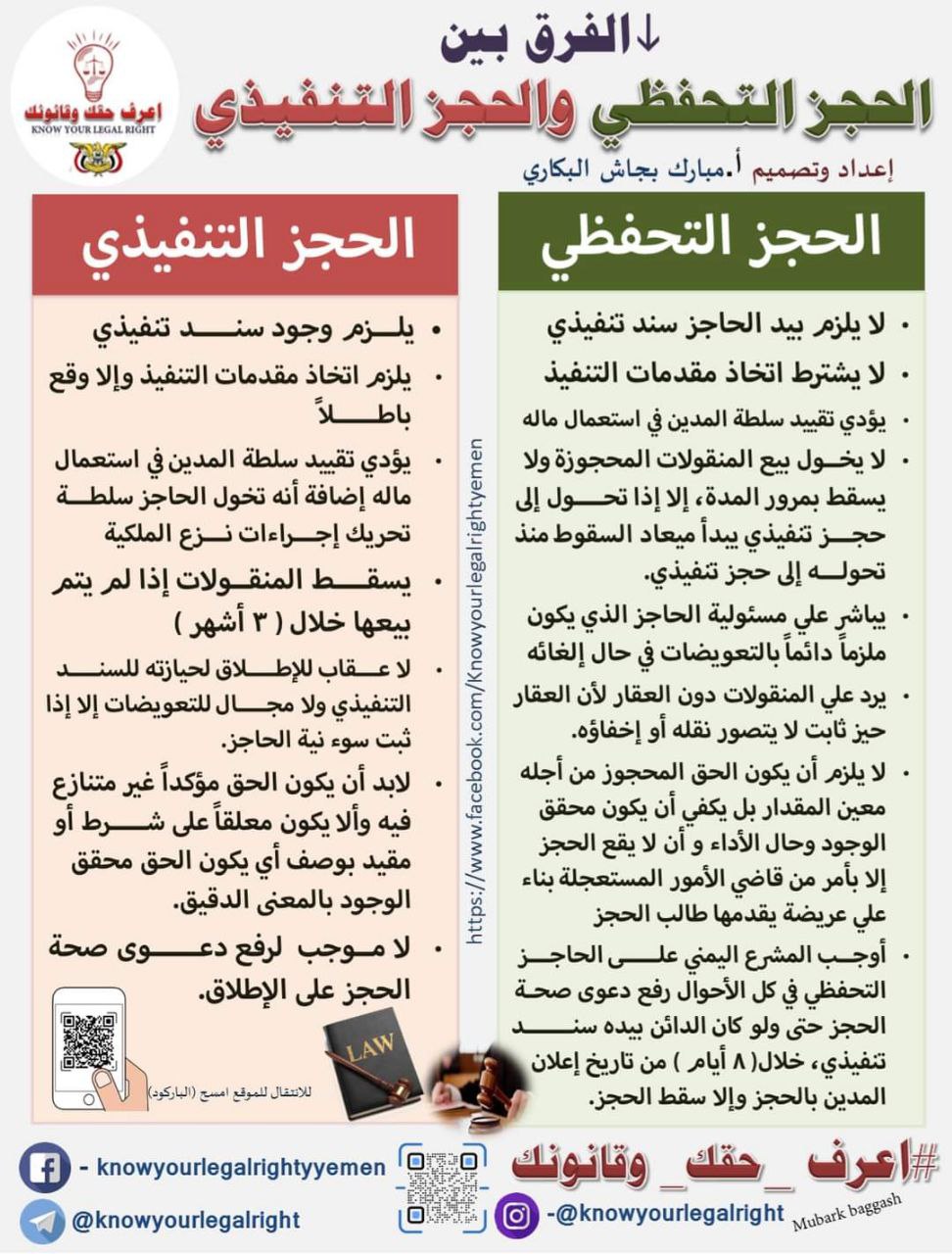
What is the difference between a criminal lawsuit and a civil lawsuit?
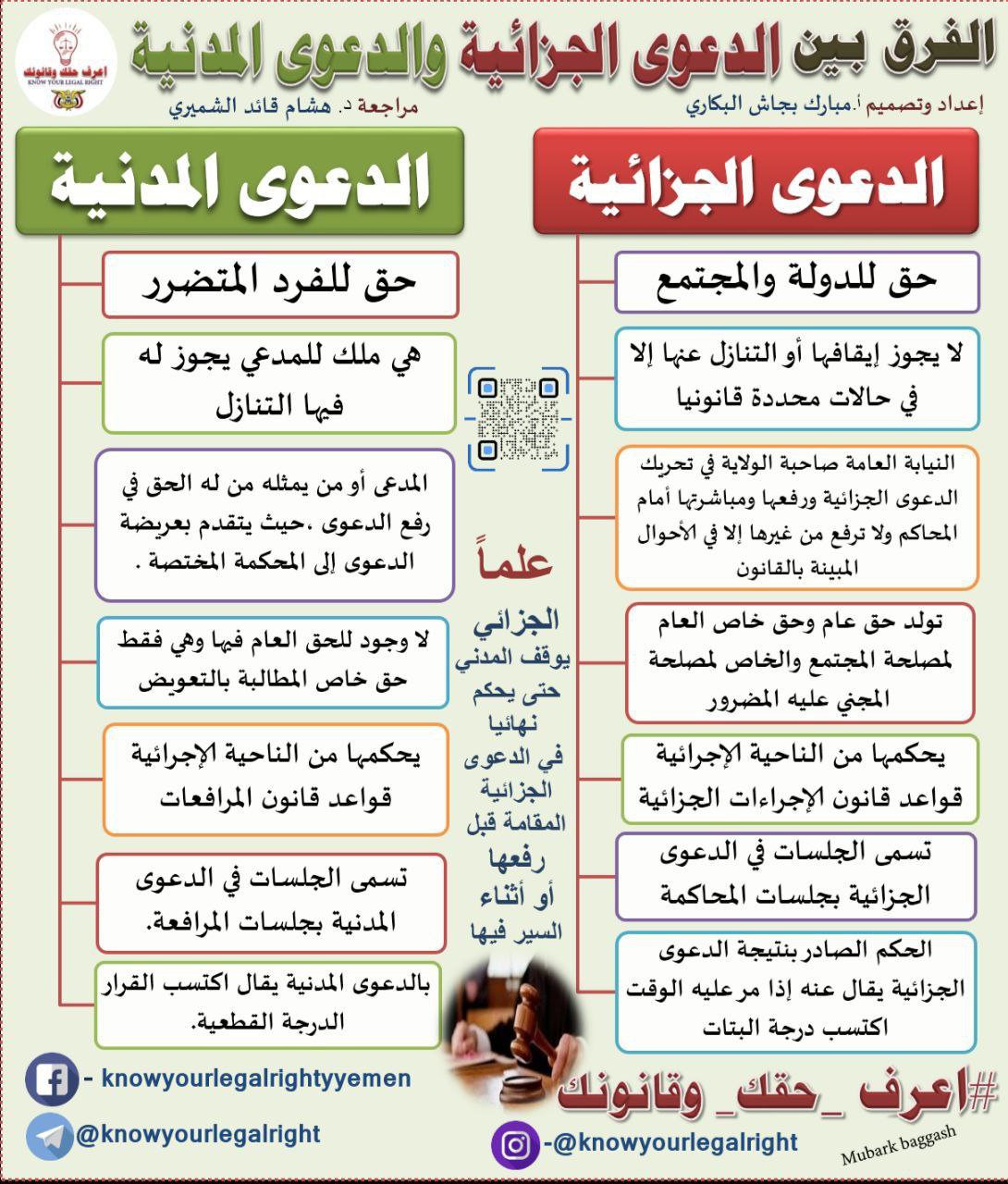
What is the difference between legal description and legal adaptation?
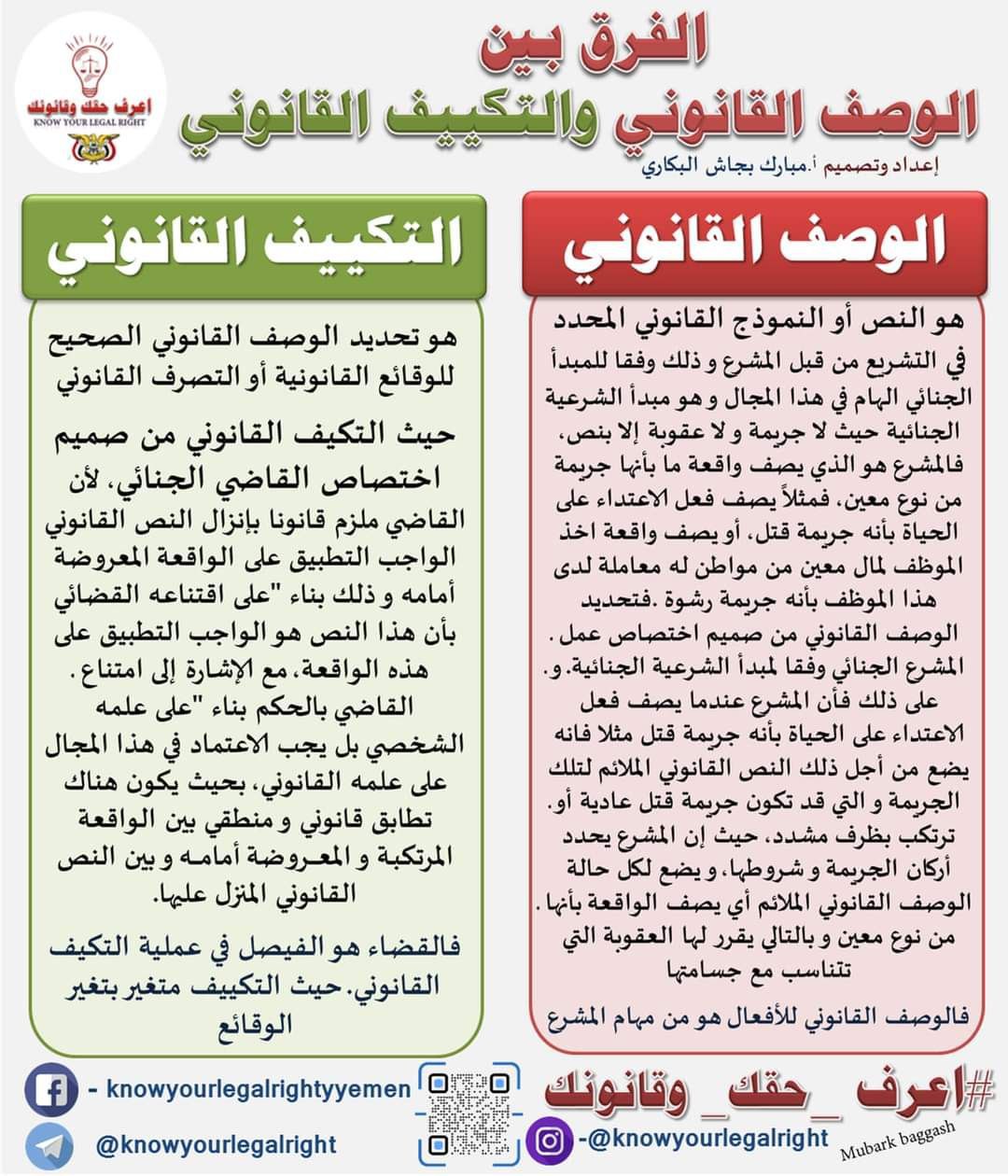
What is the difference between authorization and power of attorney in divorce?
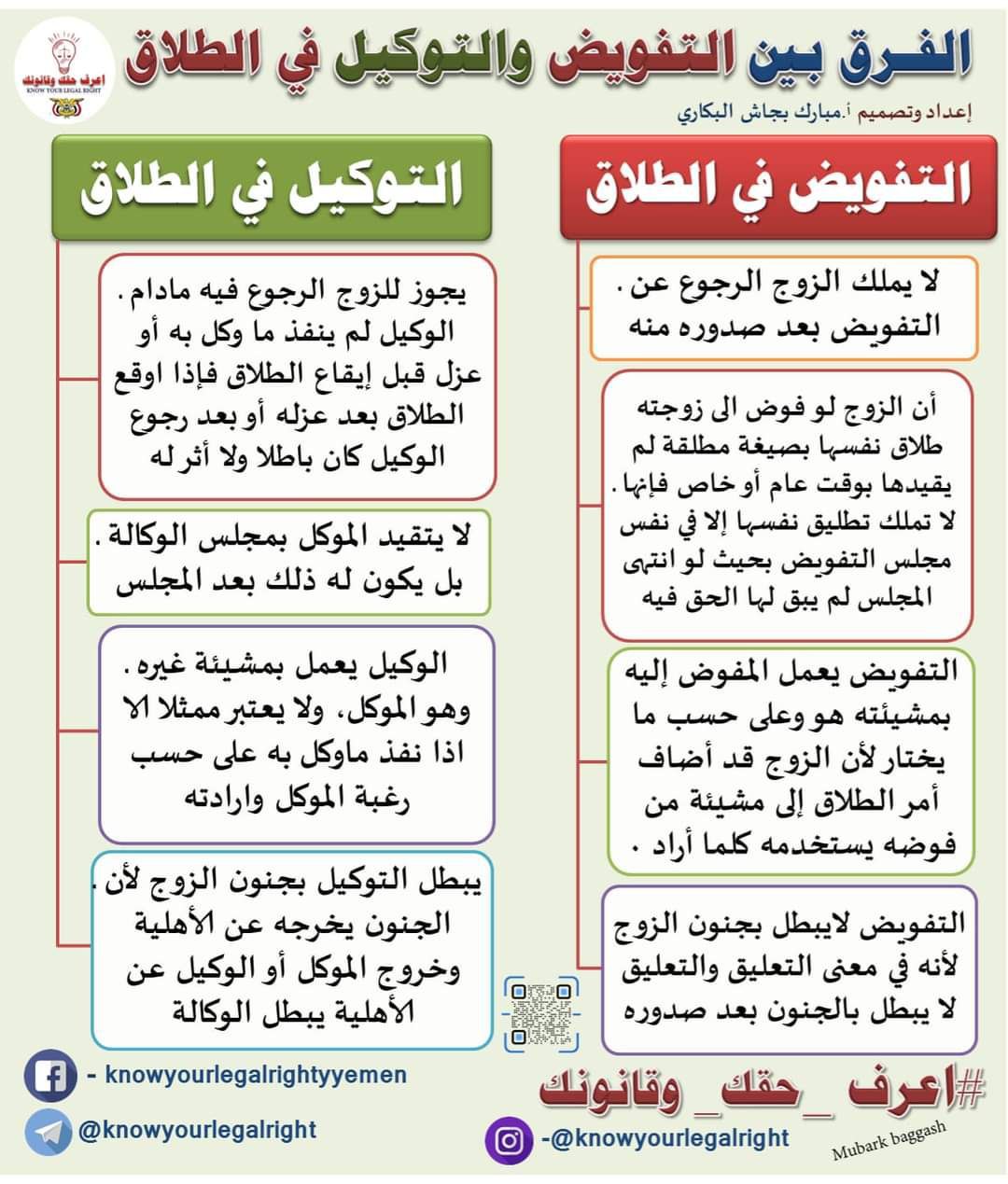
What is the difference between a judgment in attendance and a judgment in absentia?
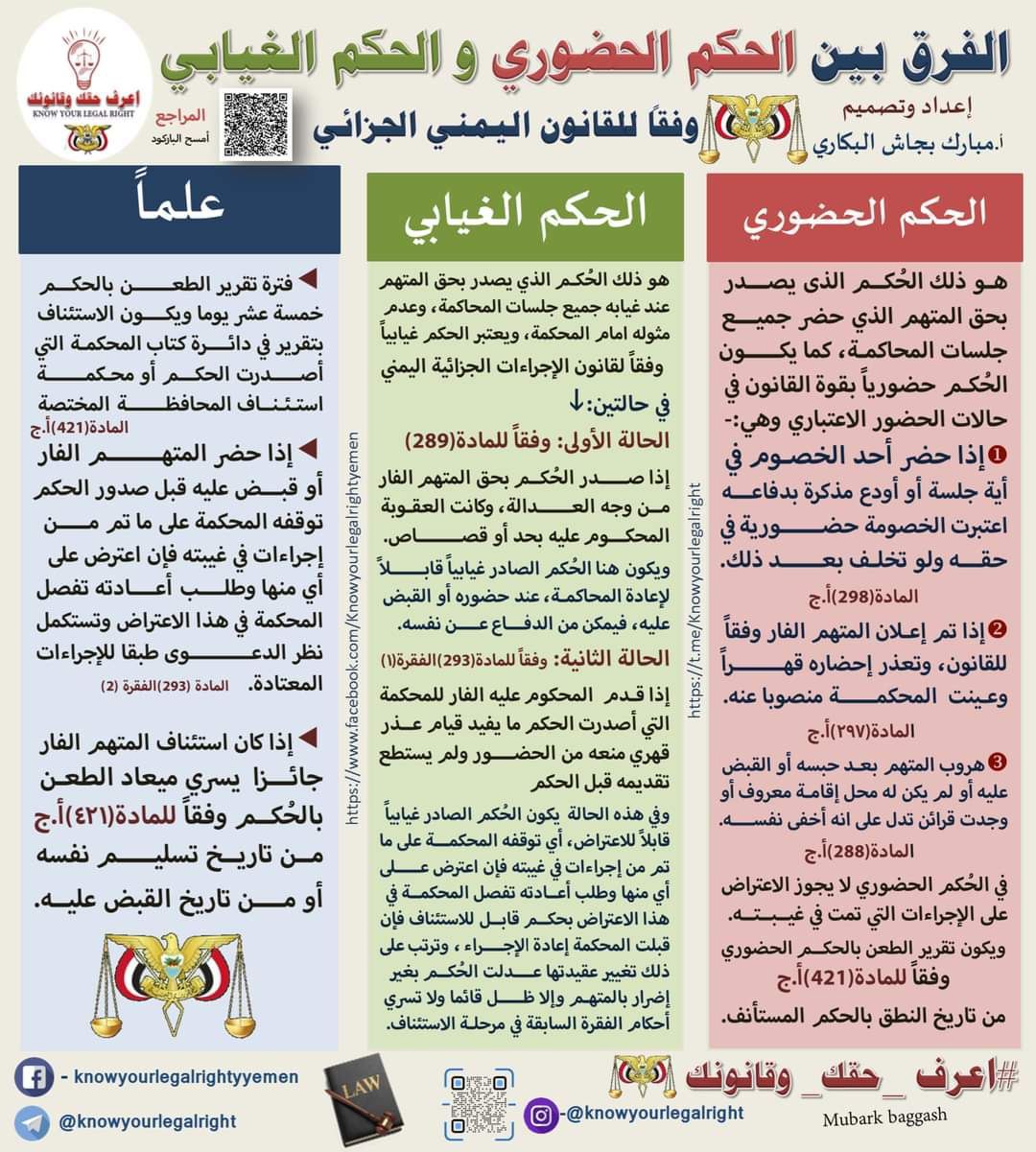
What is the difference between hudud crimes and retaliation and ta’zir?
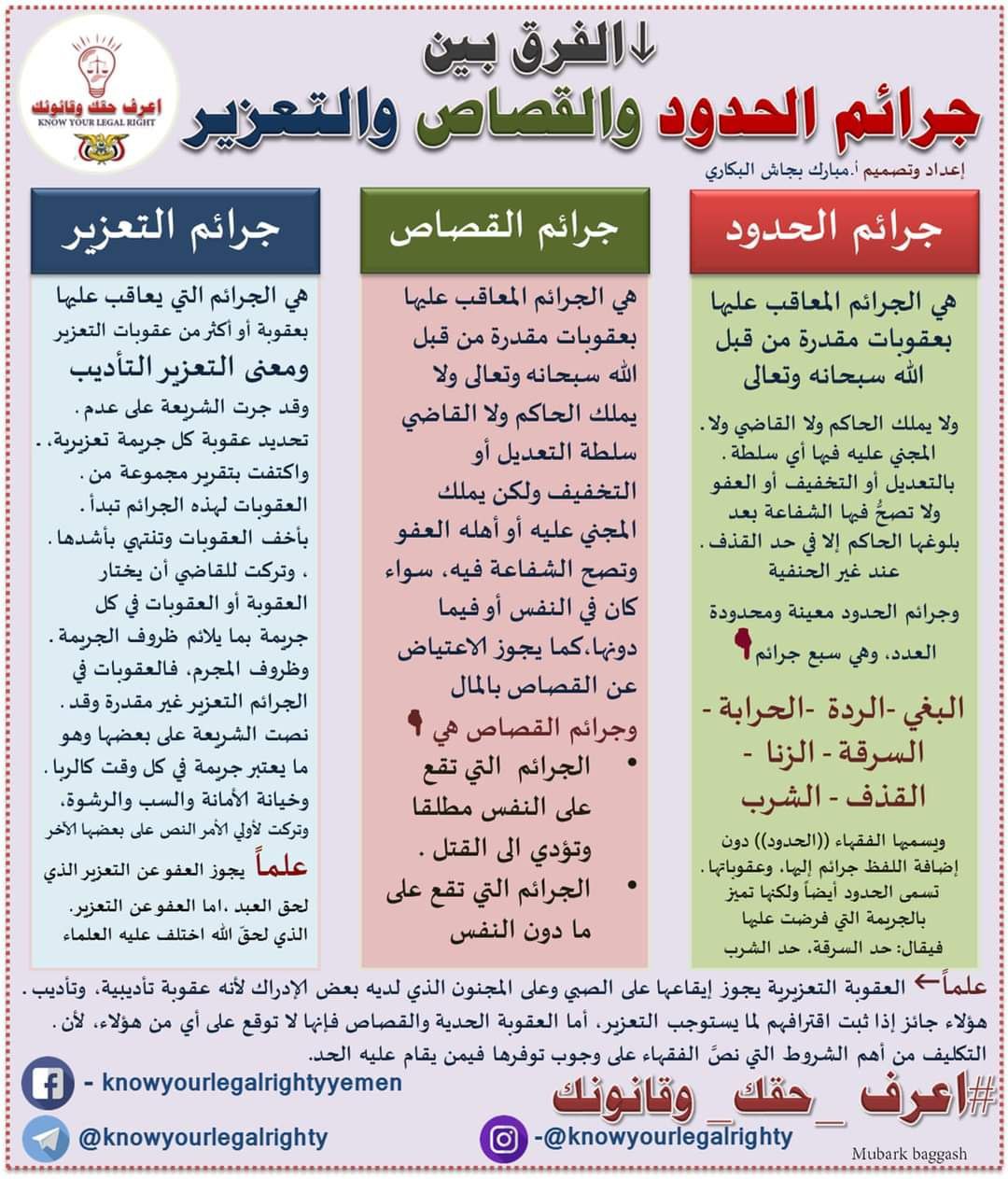
What is the difference between arrest, detention, detention and detention?
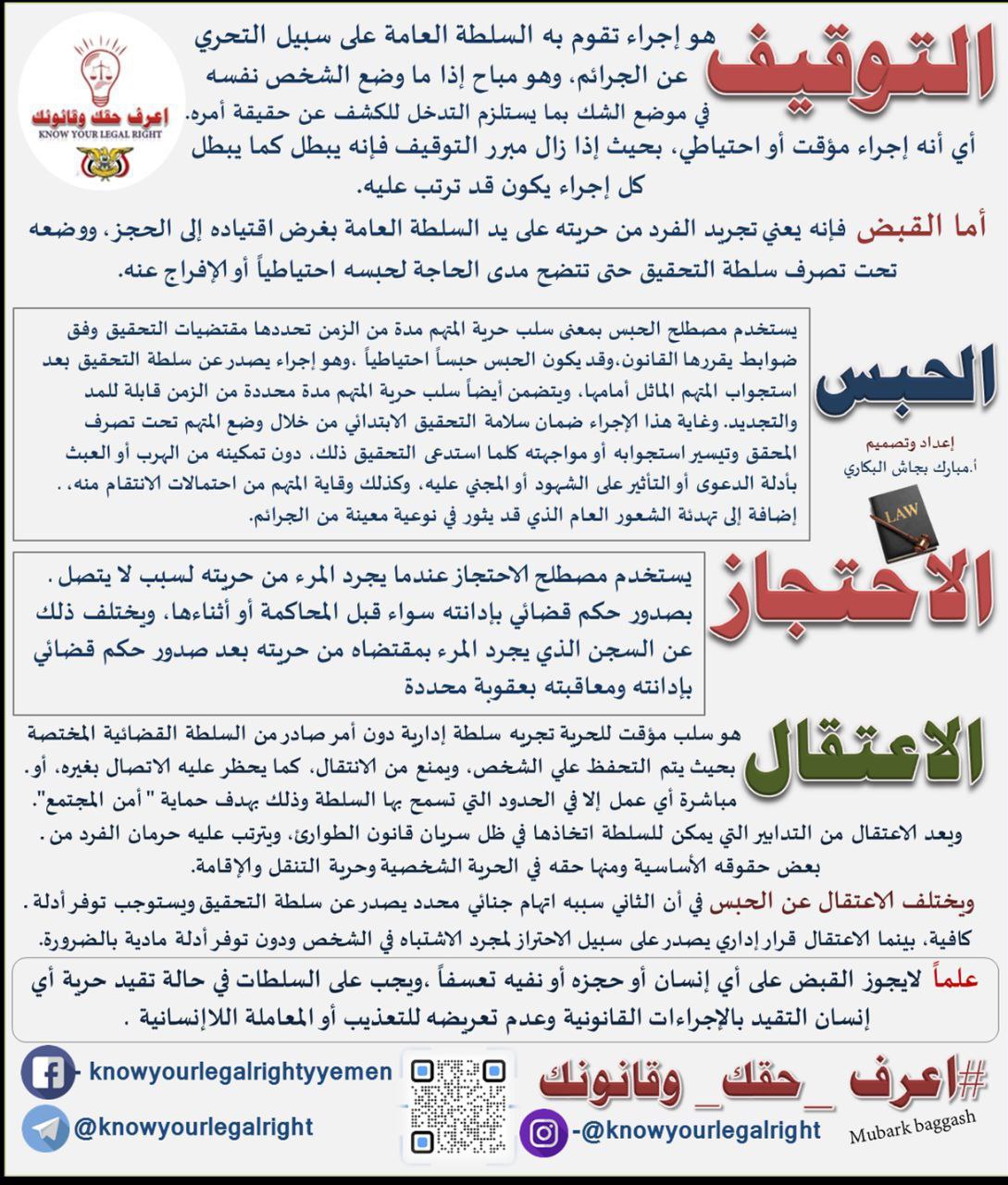
What is the difference between a final ruling and a conclusive ruling?
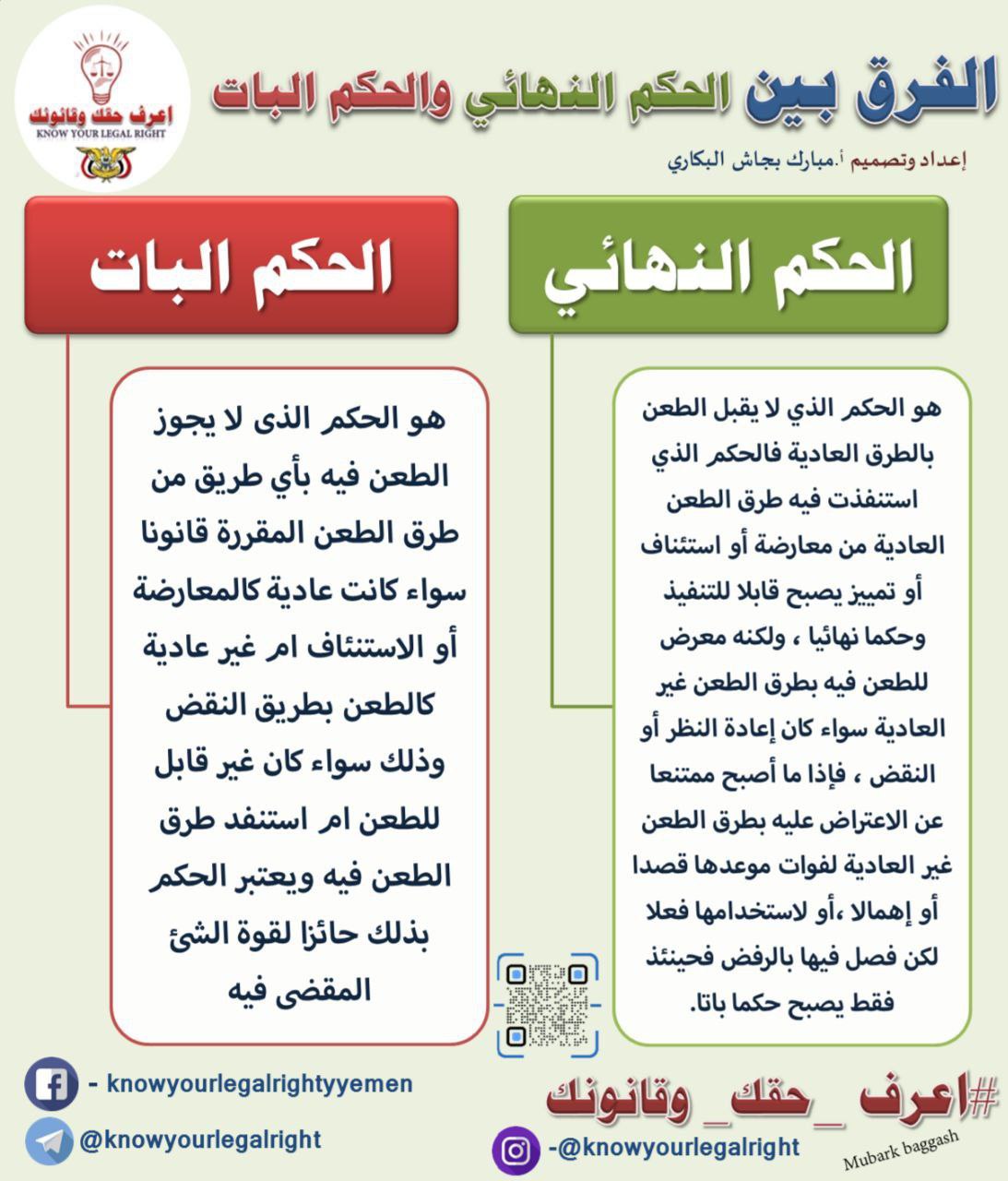
What is the difference between formal defenses and substantive defenses?
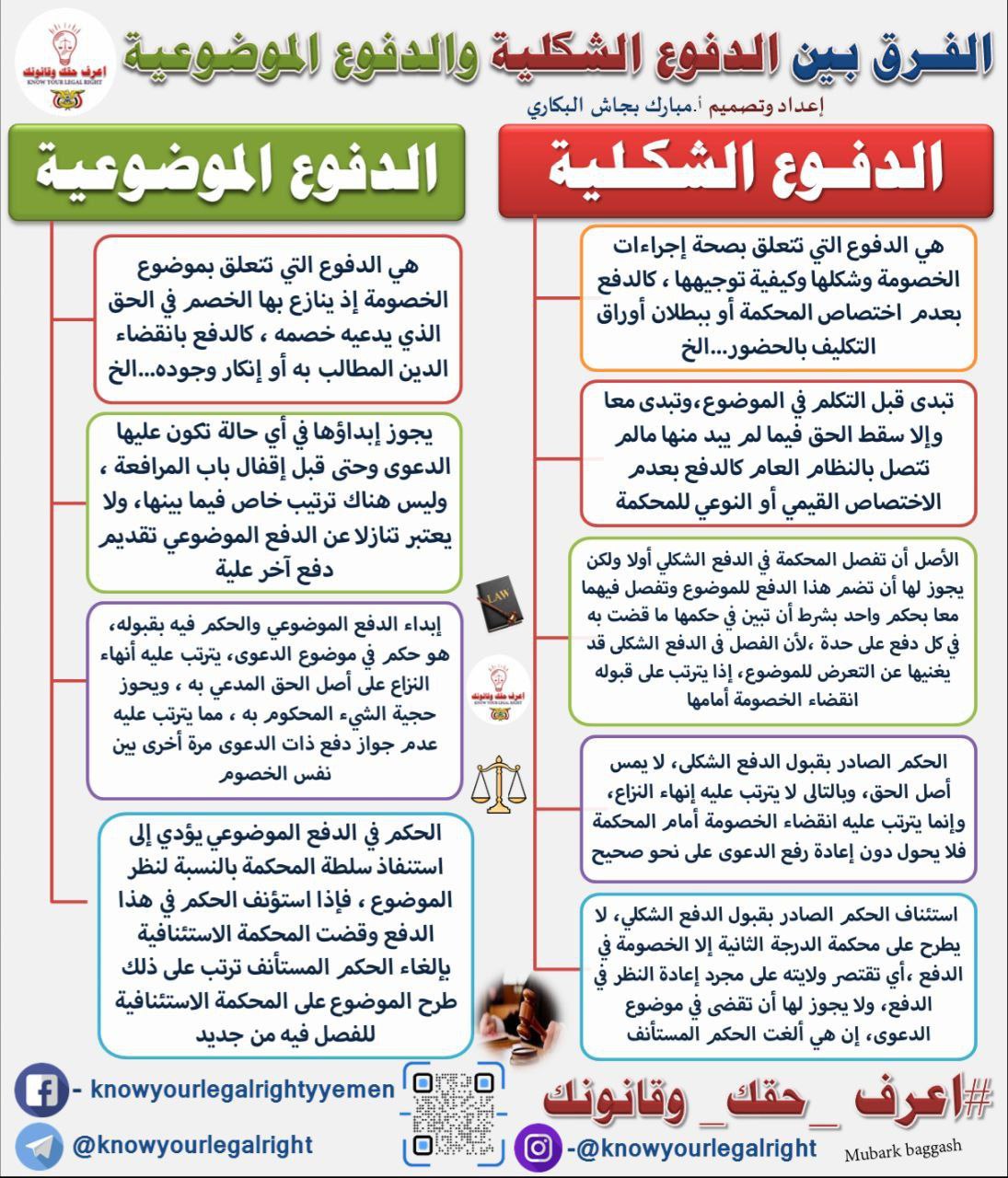
What is the difference between a null judgment and an invalid judgment?
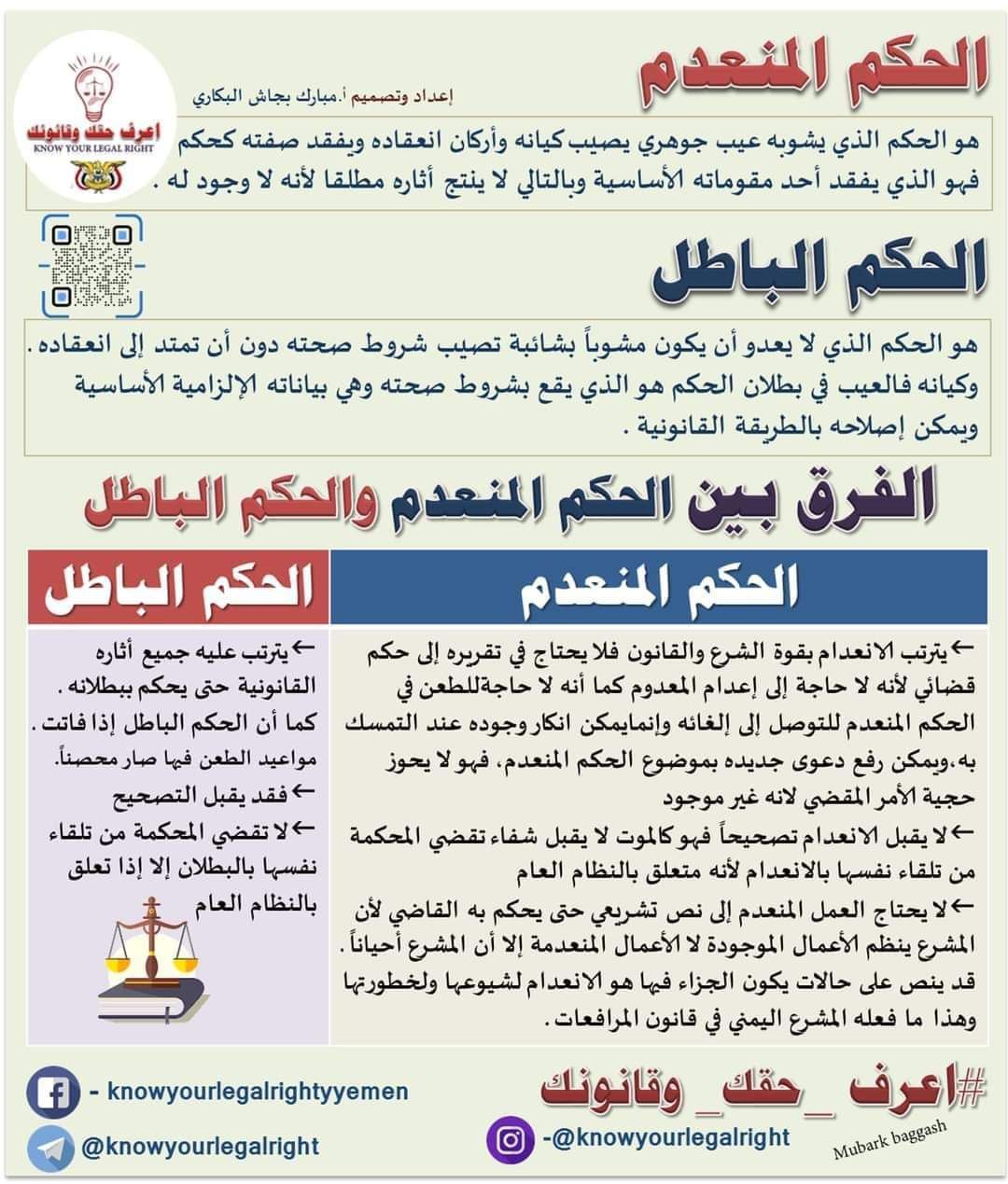
What is the difference between consensual division and judicial division?
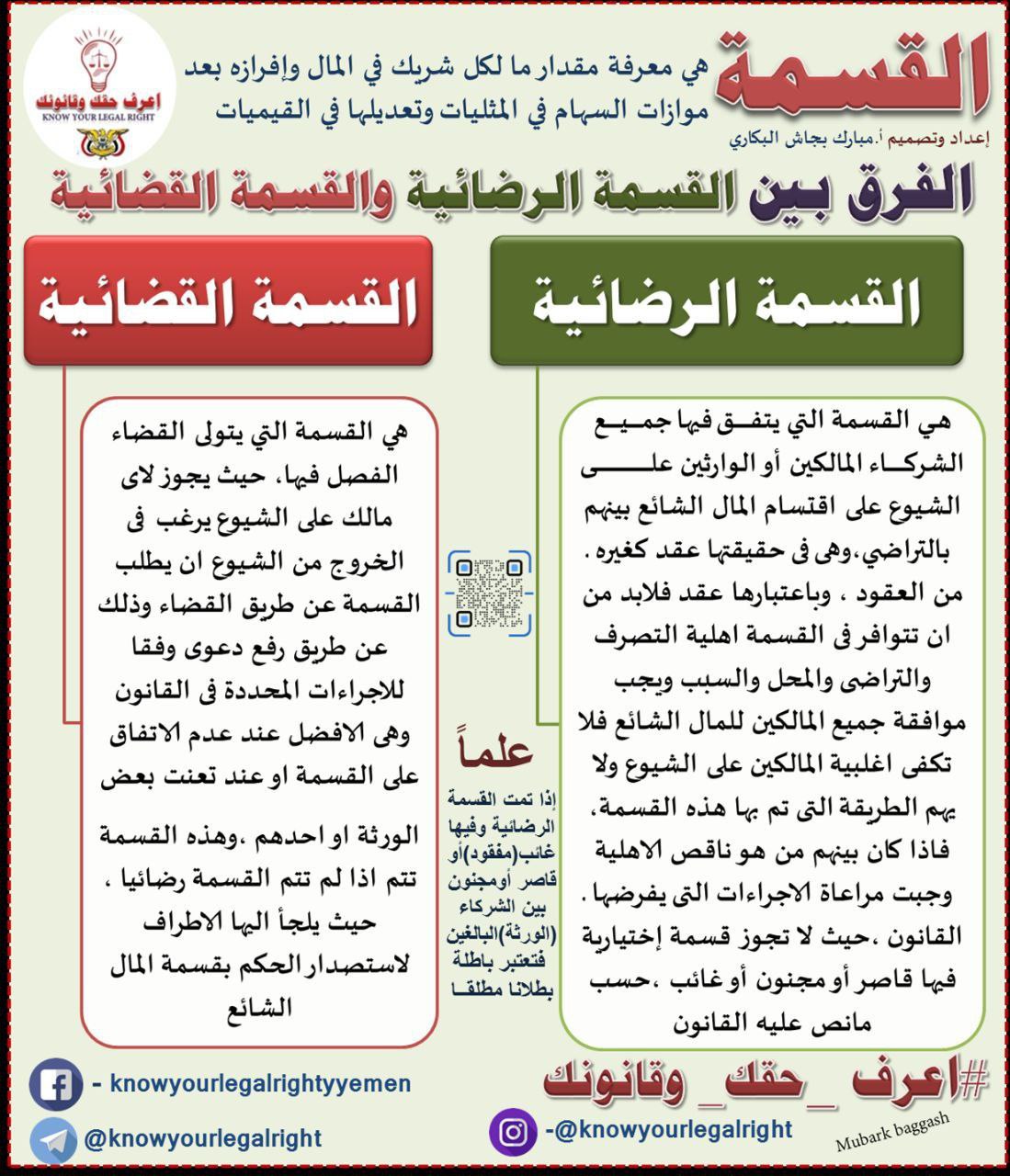
What is the difference between arbitration and conciliation?
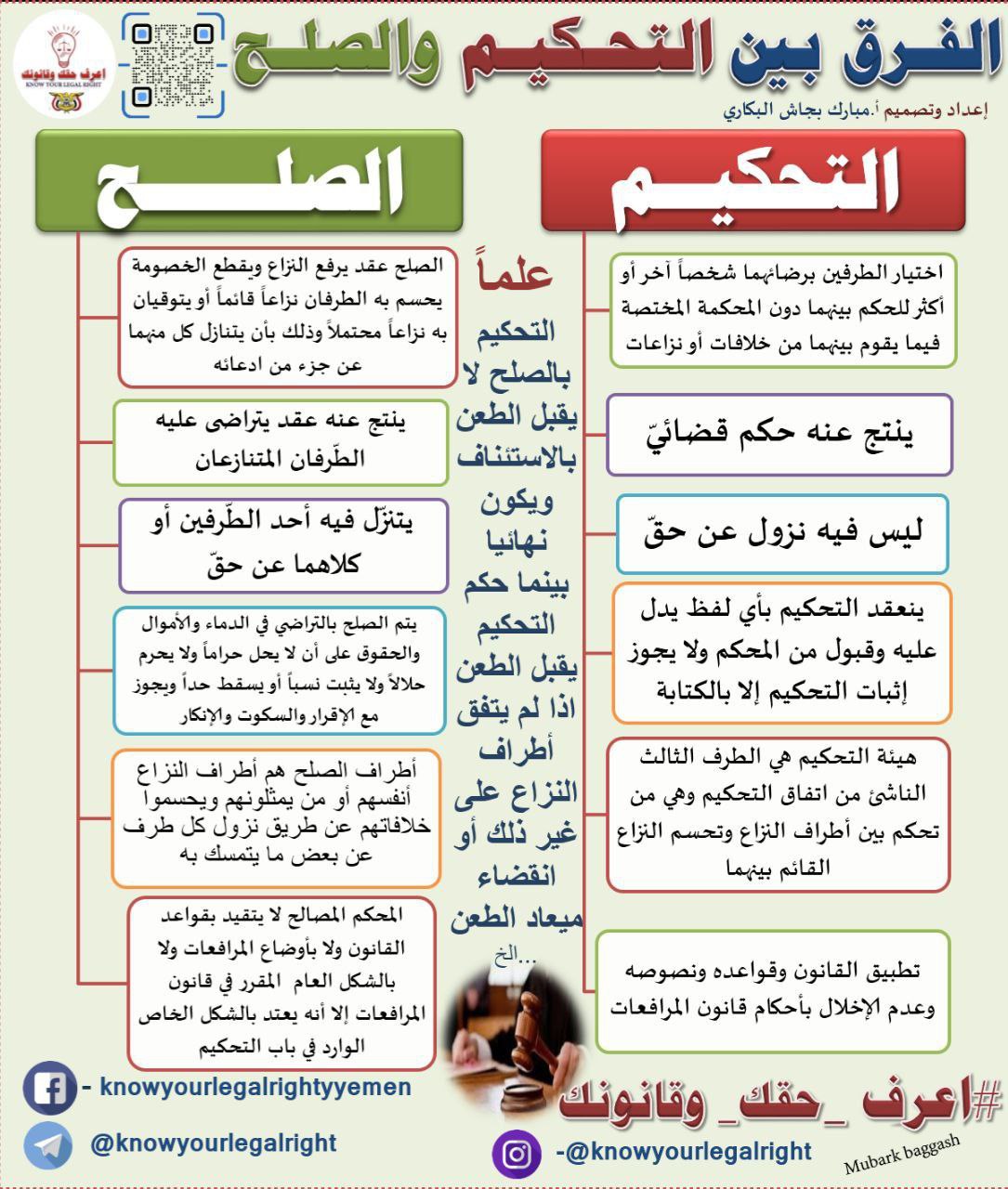
What is a judicial ruling, its elements and conditions?
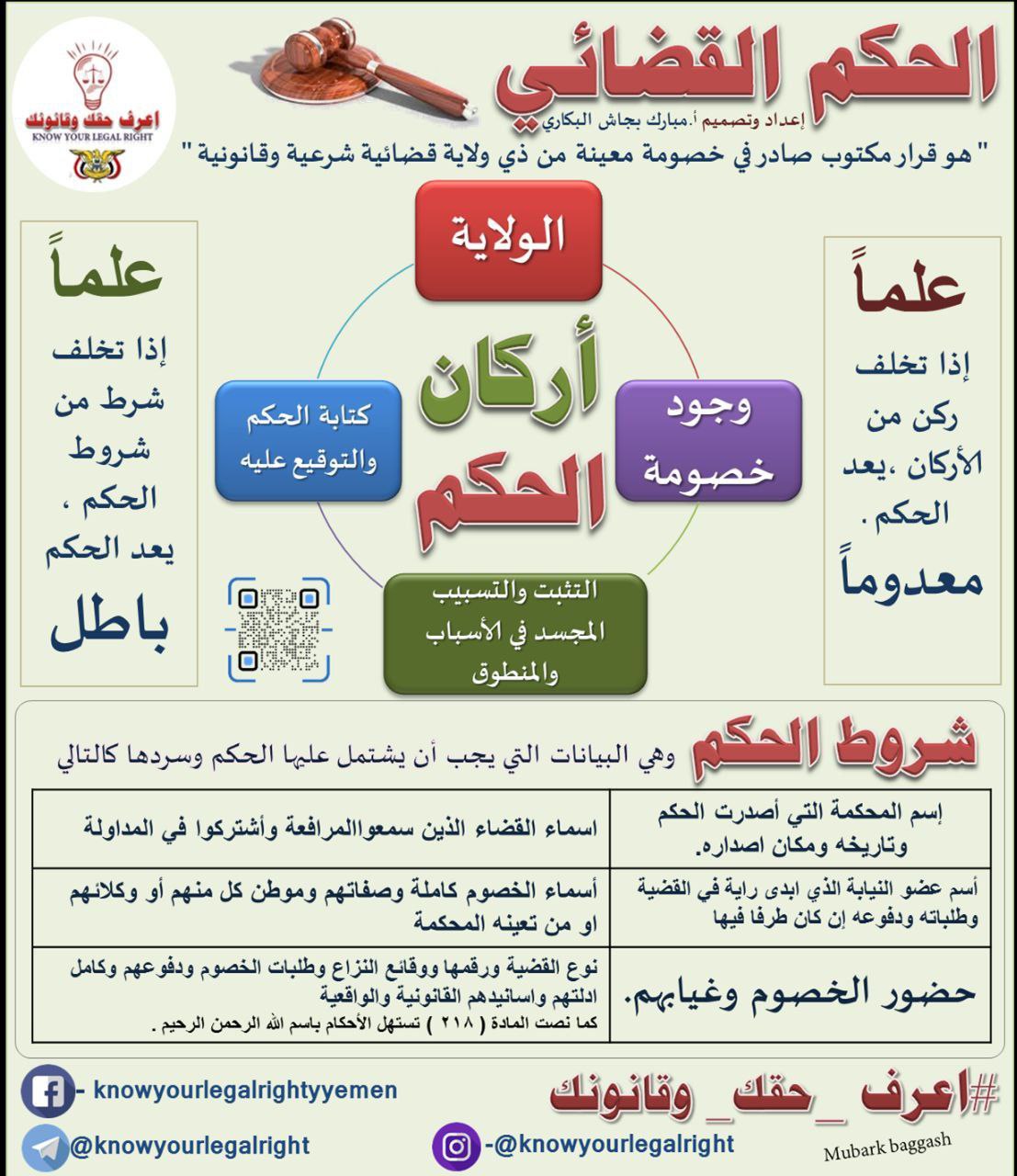
What is the difference between a complaint and a report?
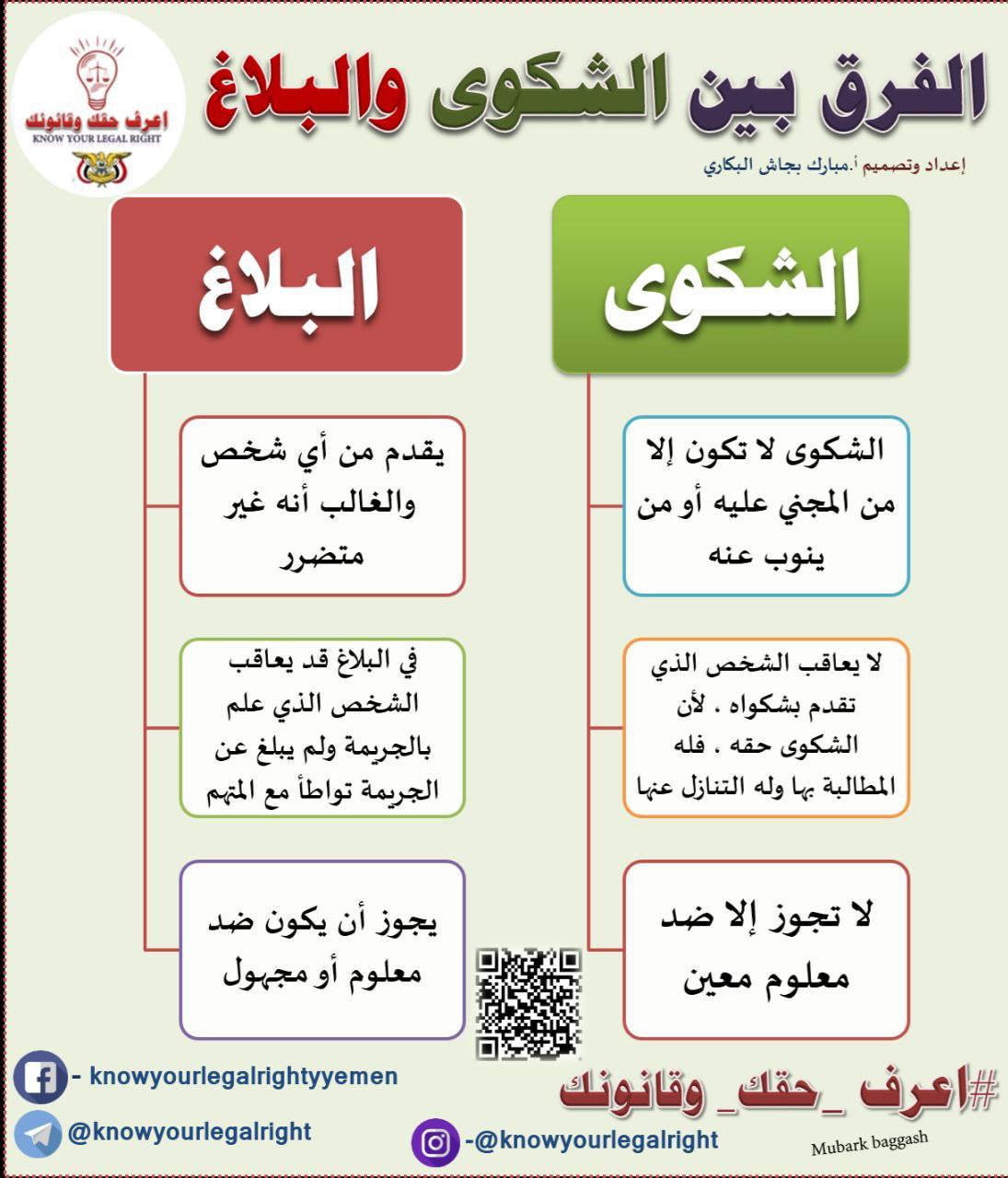
What is the difference between a check and a bill of exchange?
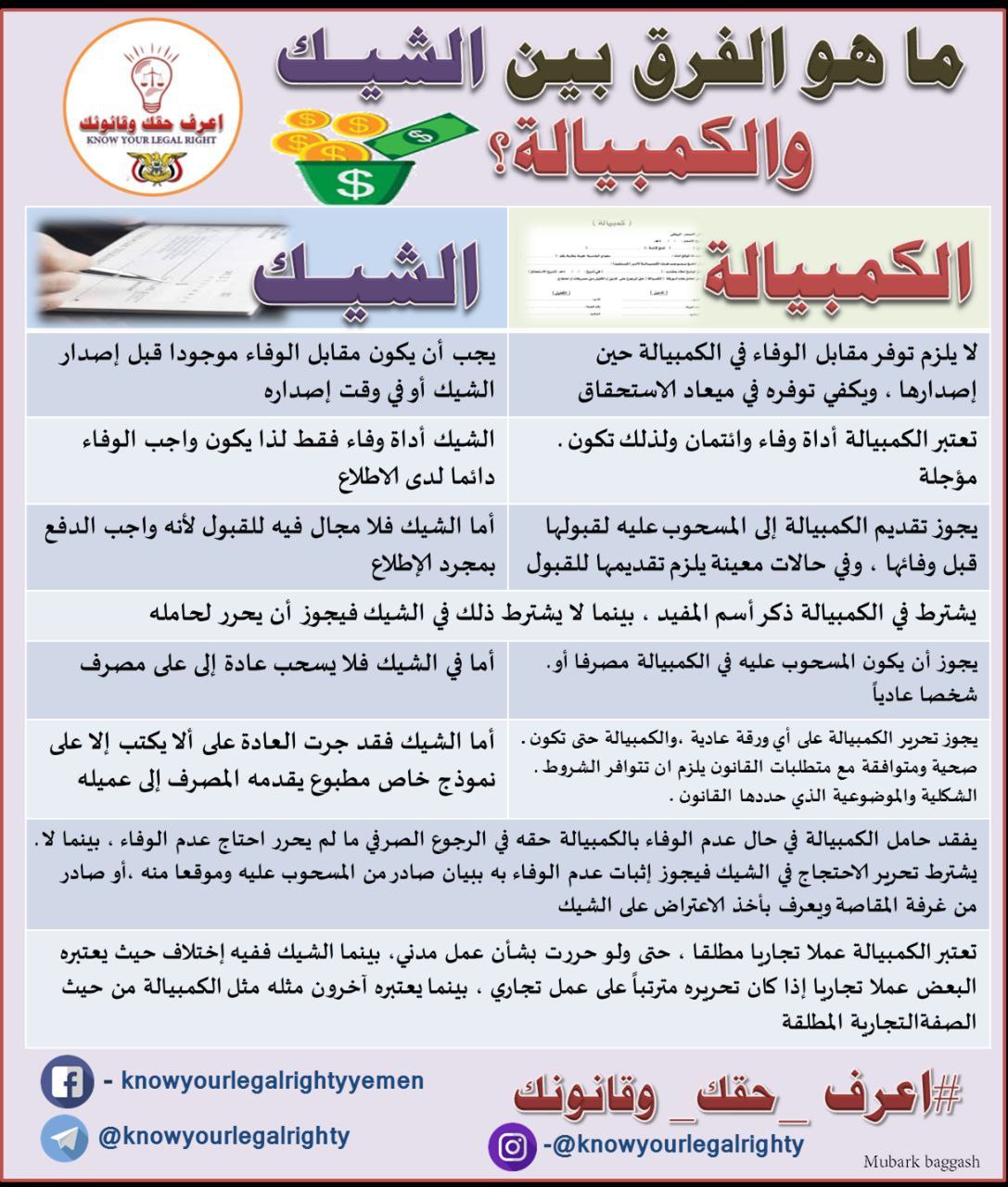
What is the difference between a judge and an arbitrator?
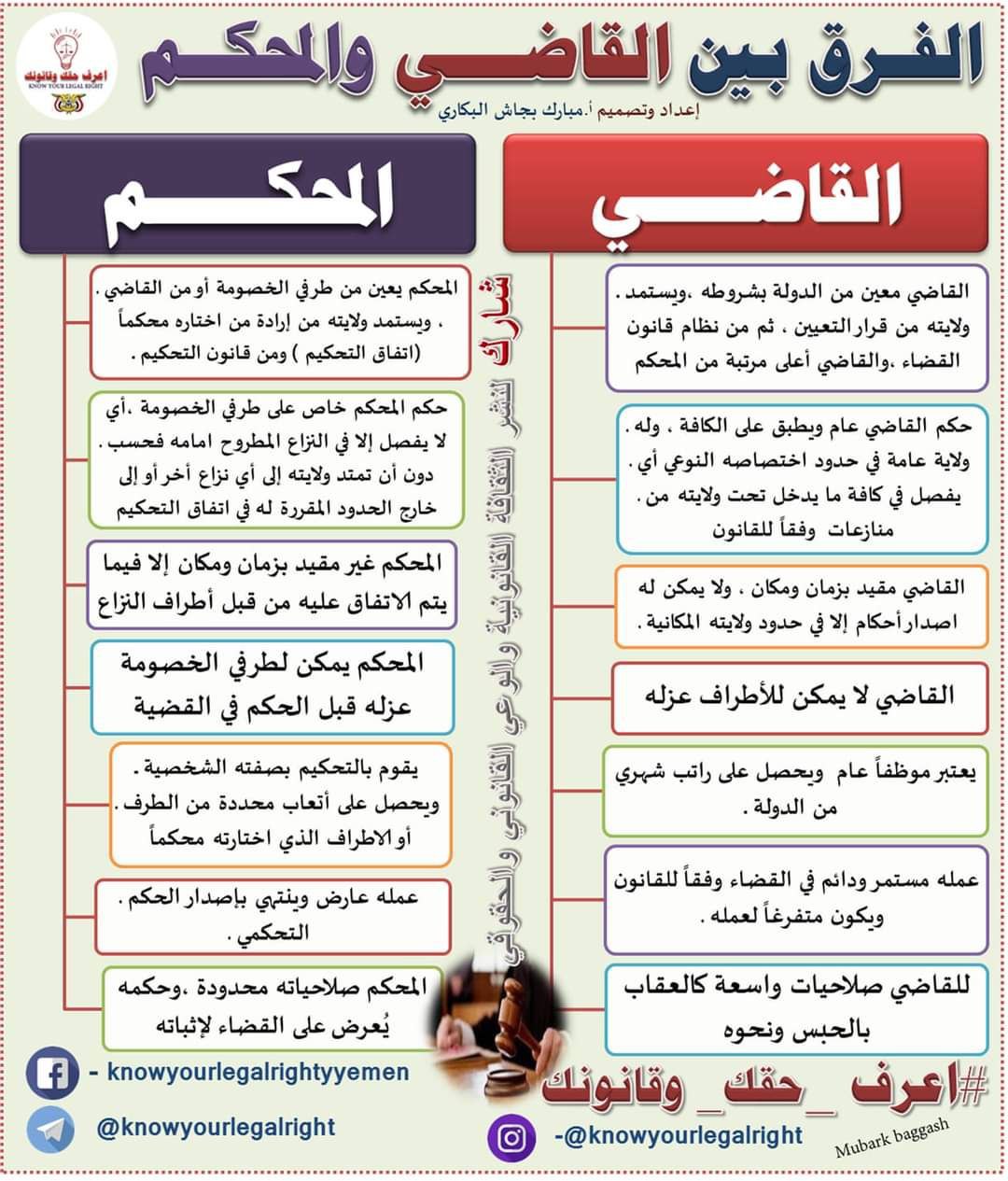
What is the difference between civil insolvency and commercial bankruptcy?
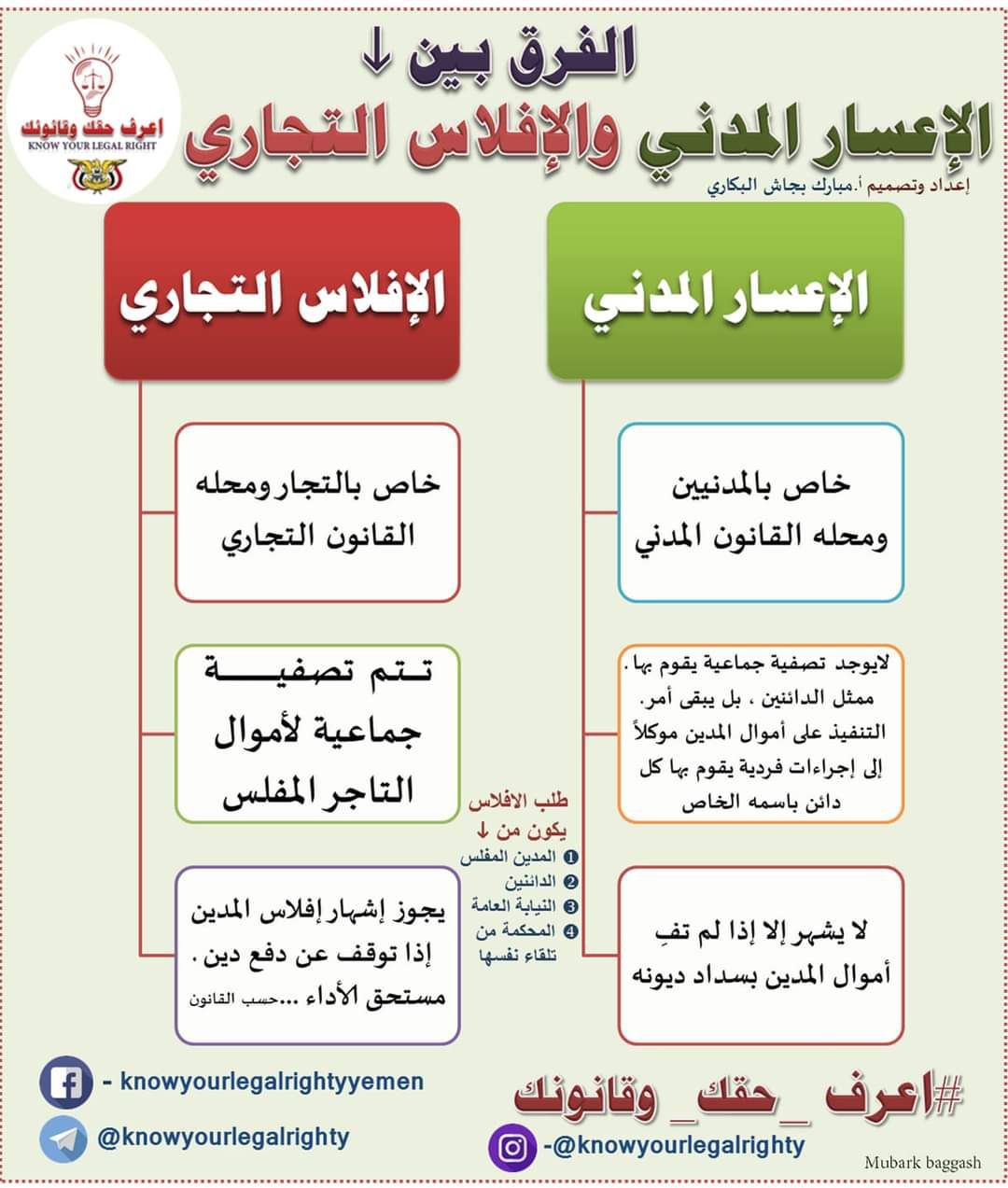
What is the difference between judicial and non-judicial oaths?
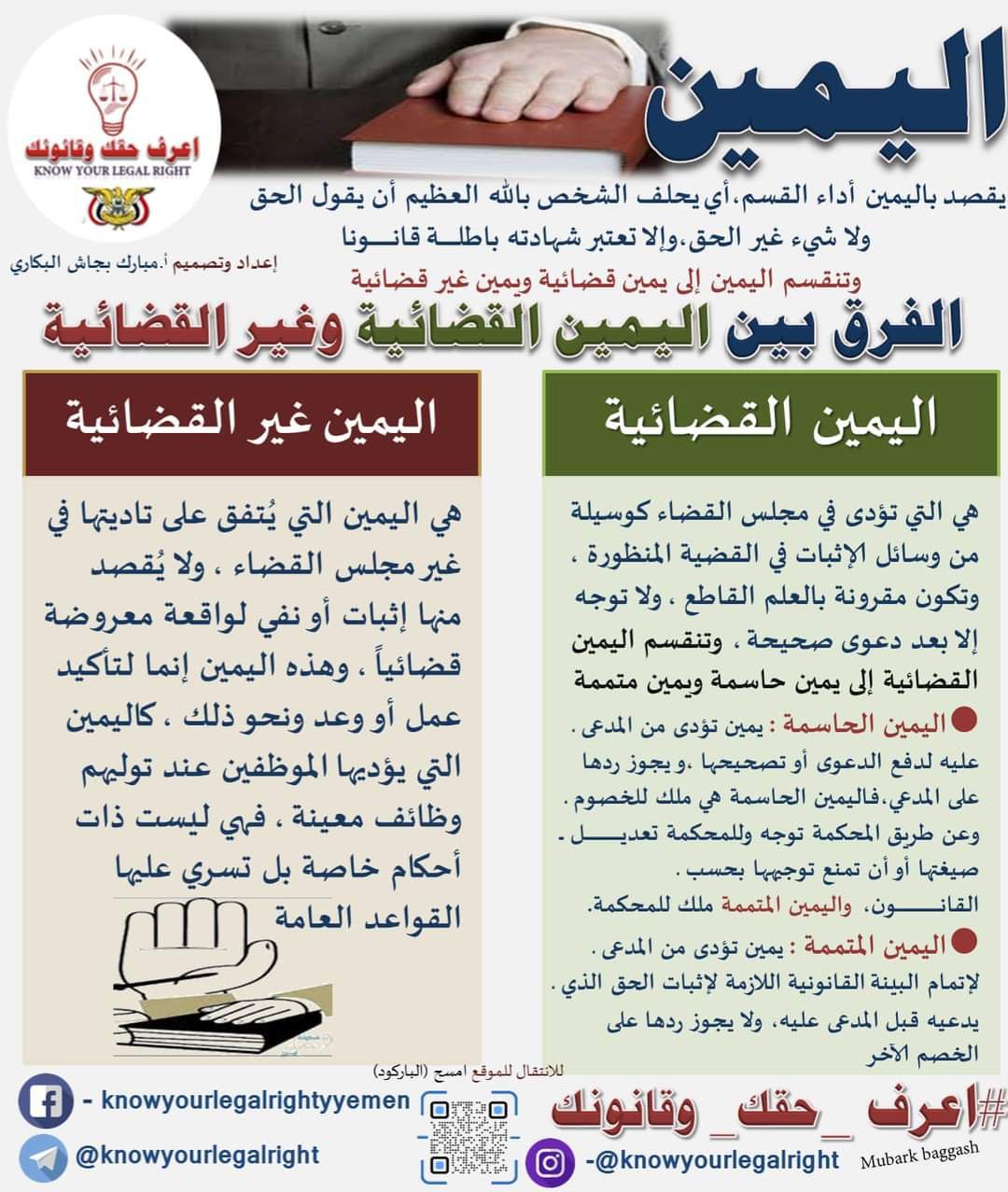
What is the difference between the law and its executive regulations?
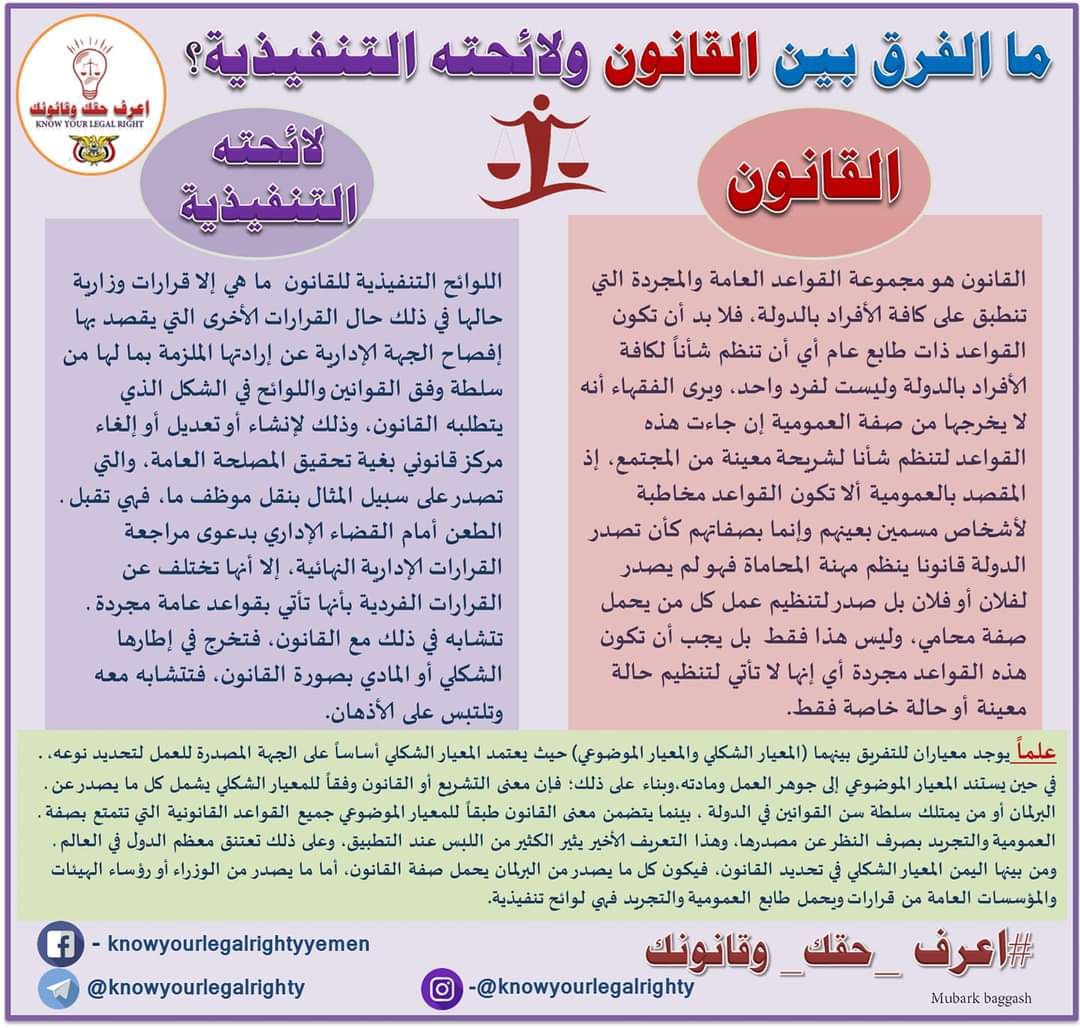
What is the distinction between reasons for permissibility, impediments to responsibility, and impediments to punishment?
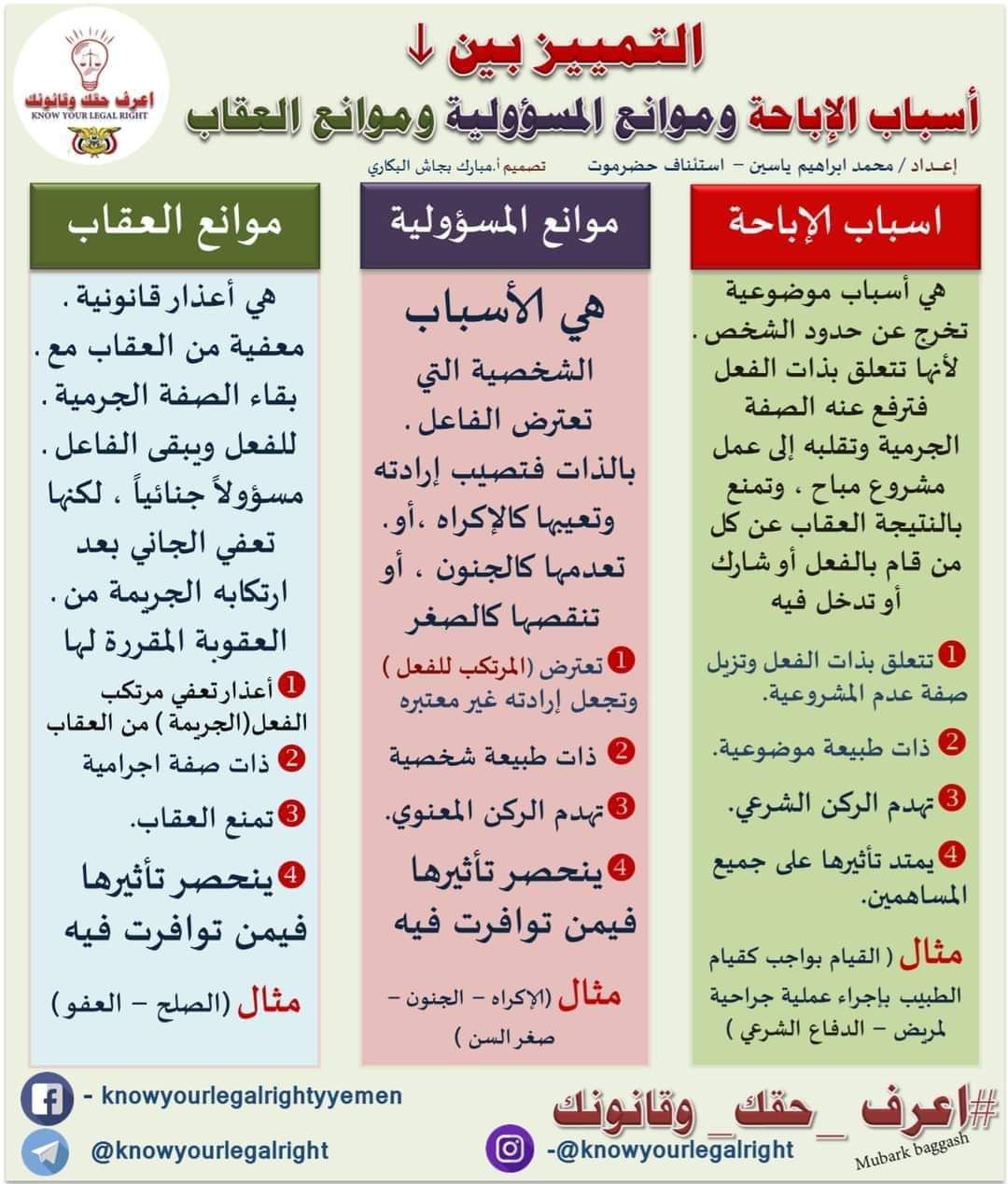
What are the reasons for permissibility?
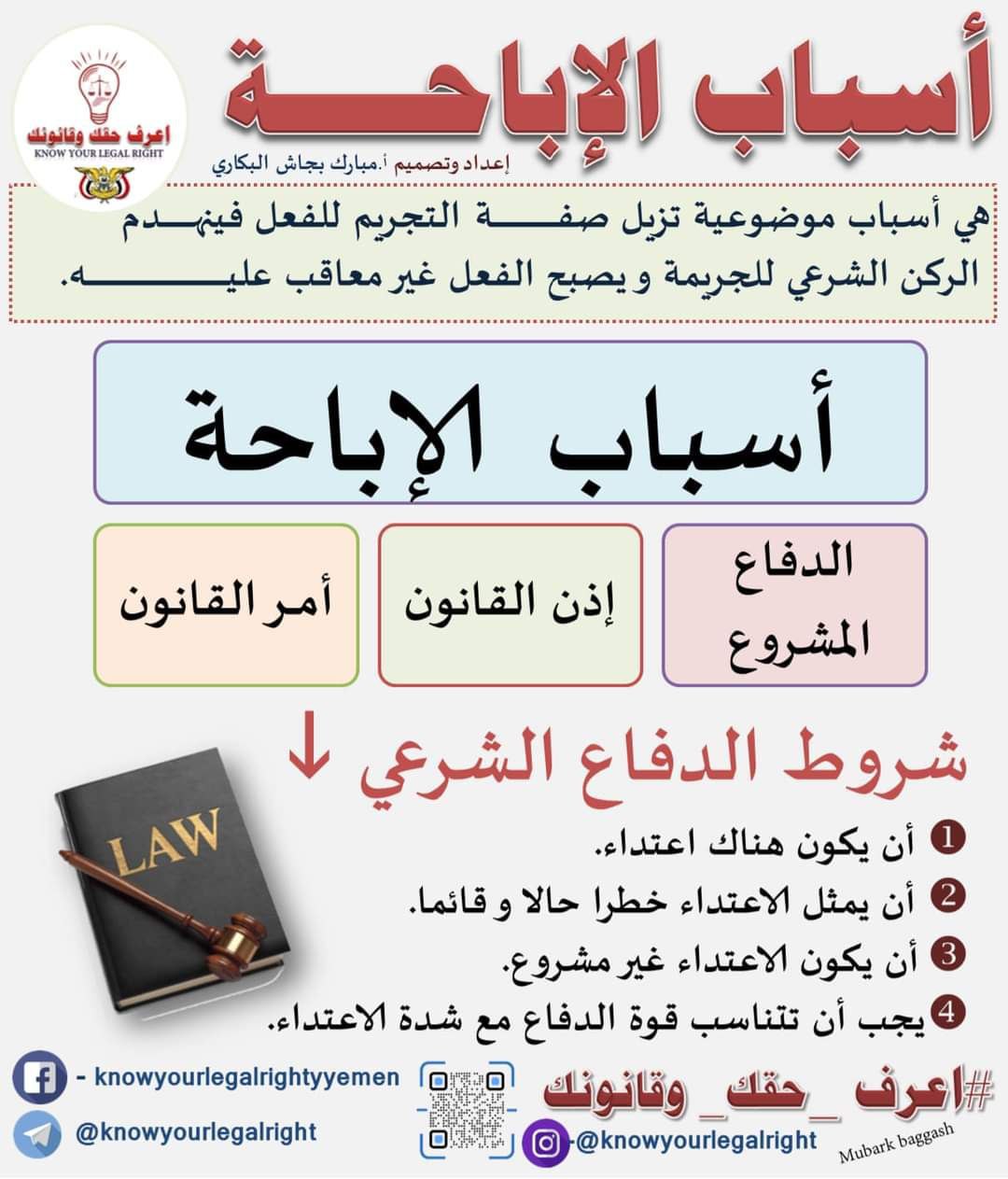
What is divorce?
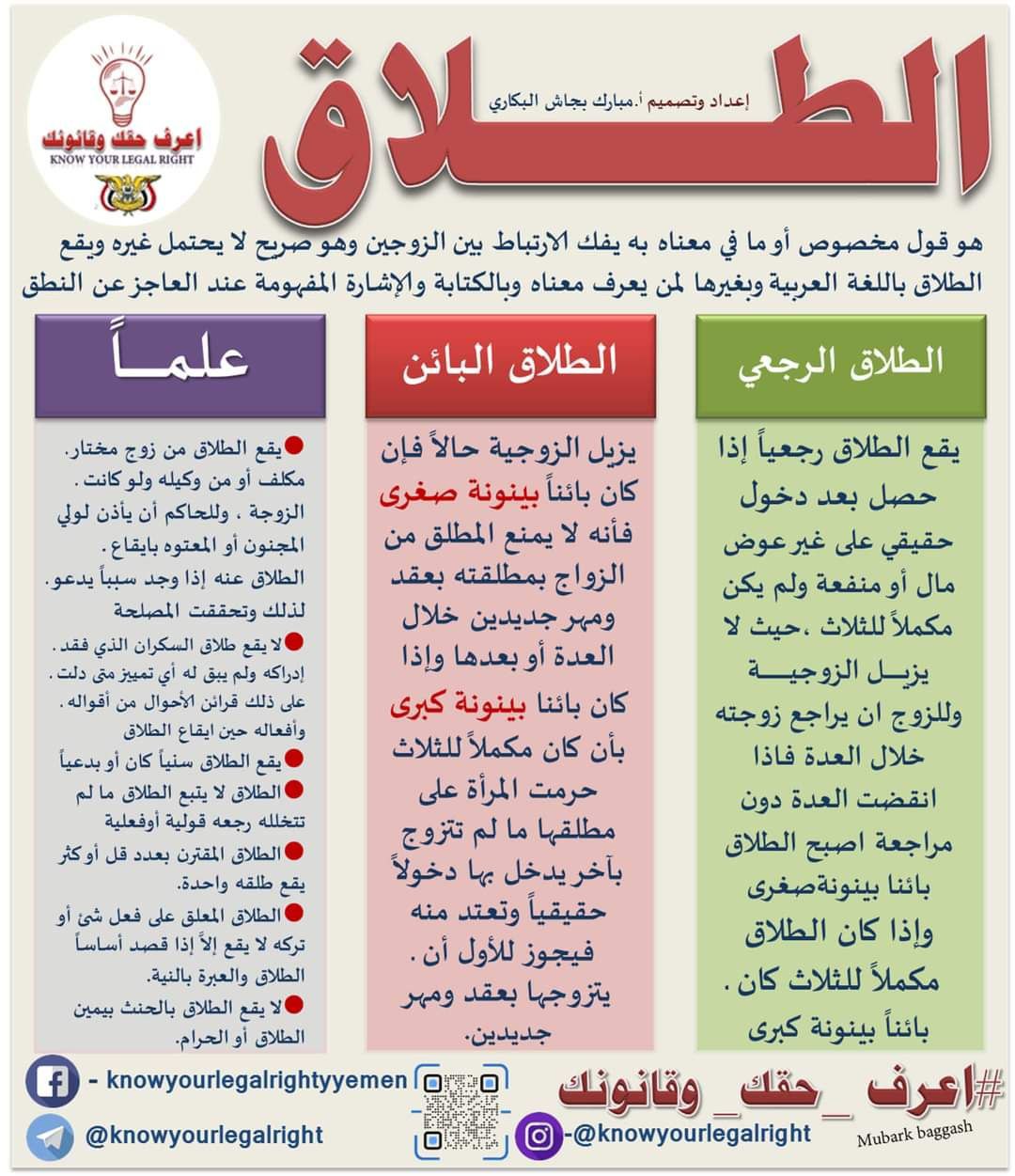
What is the difference between a gift and a will?
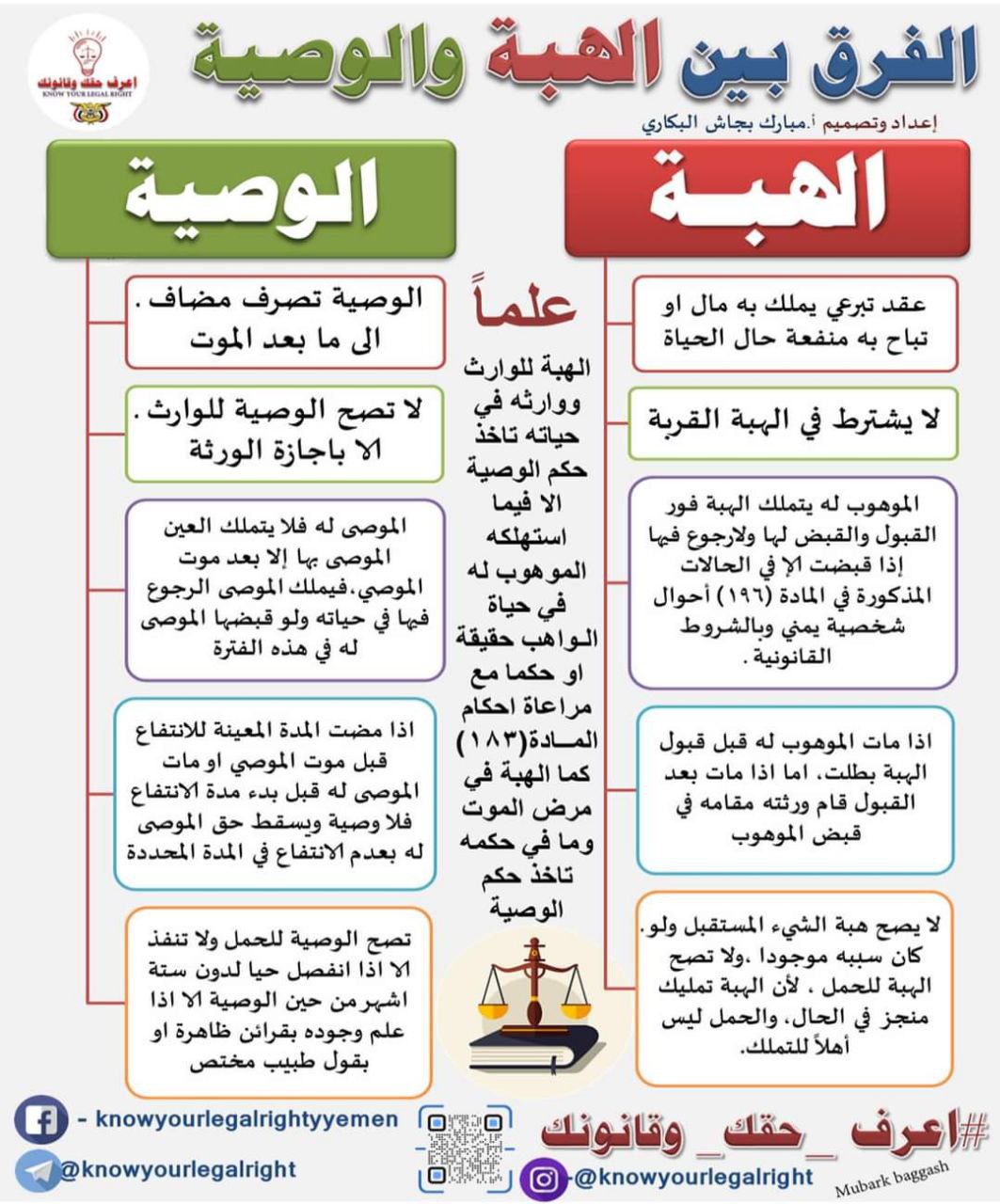
What is a will, its elements, conditions, and invalidations?
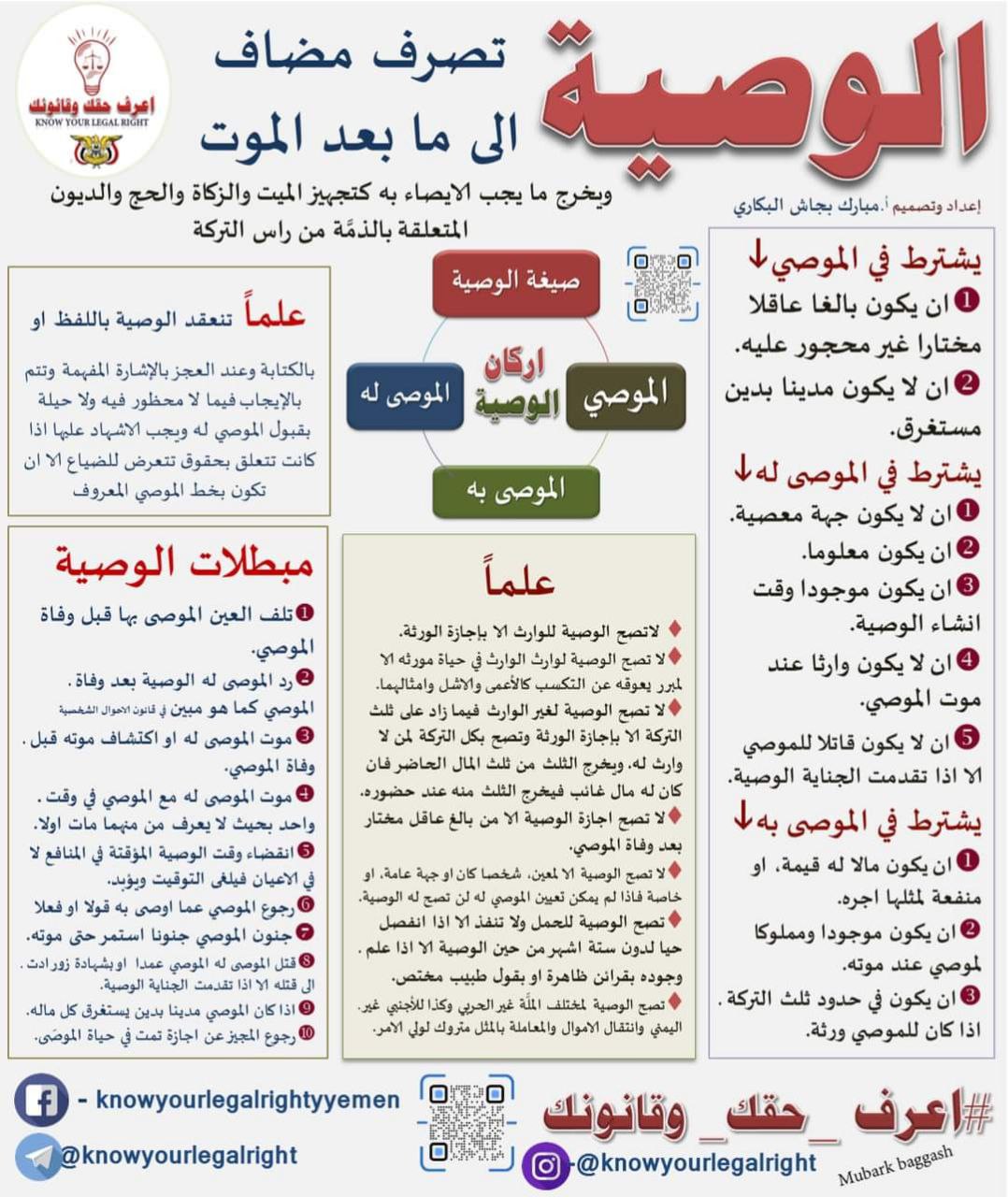
What is acknowledgment, its conditions and pillars?
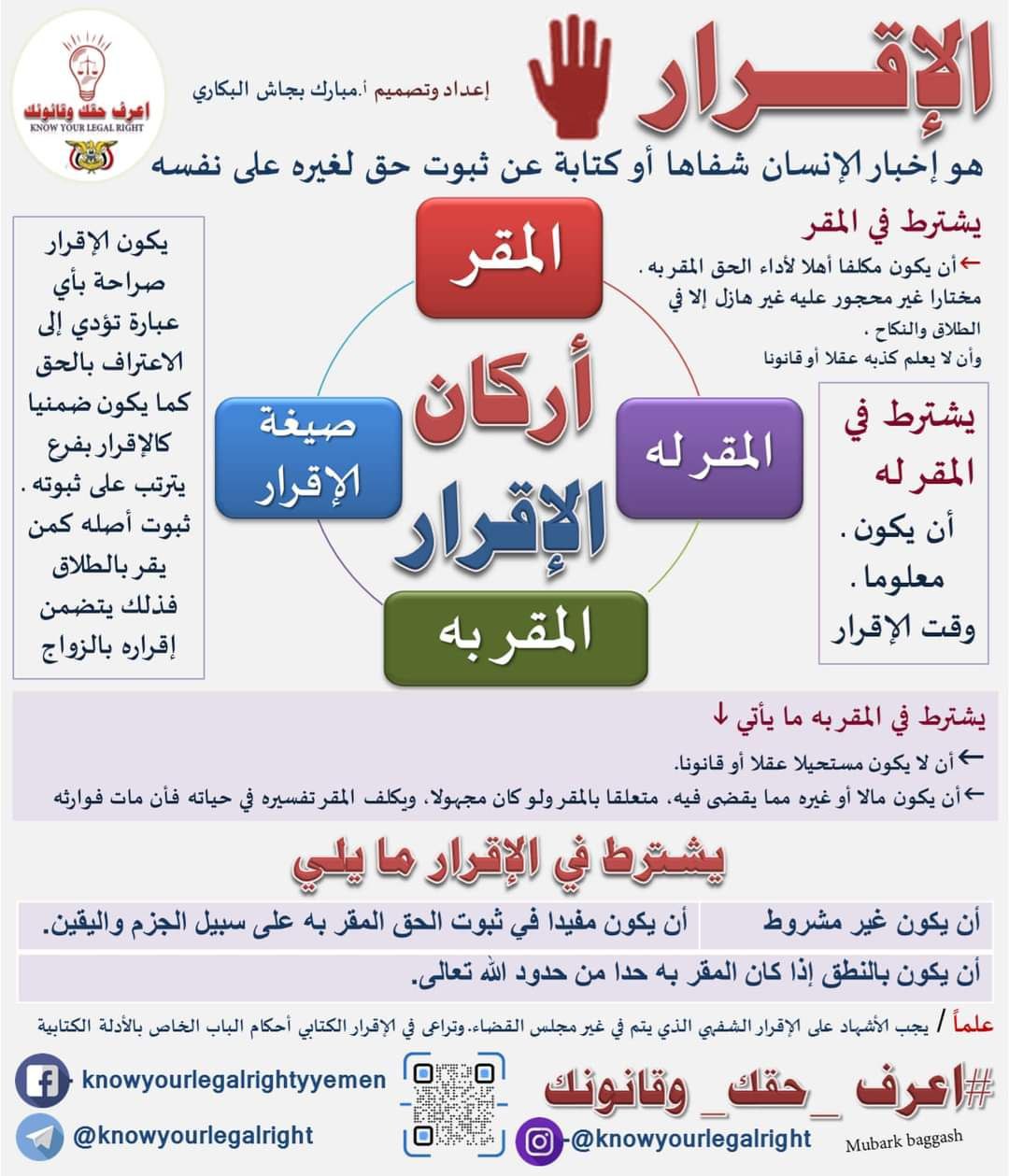
What is the difference between acknowledgment and confession?
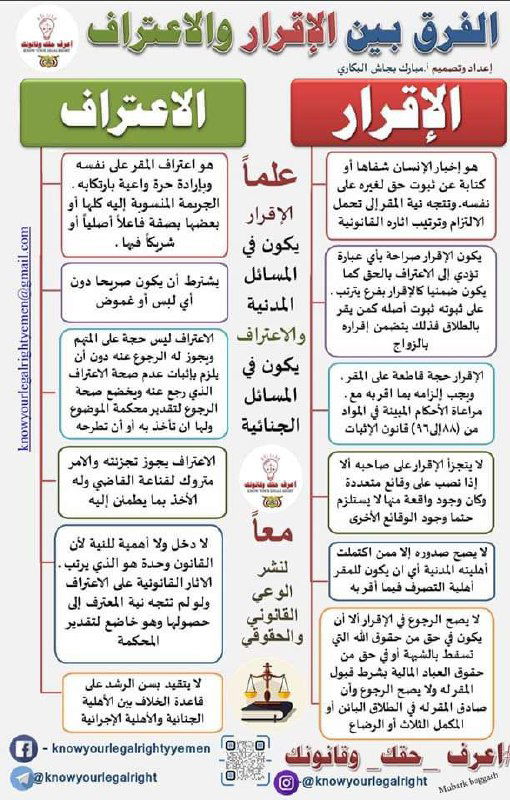
What are the conditions for the validity of a confession?
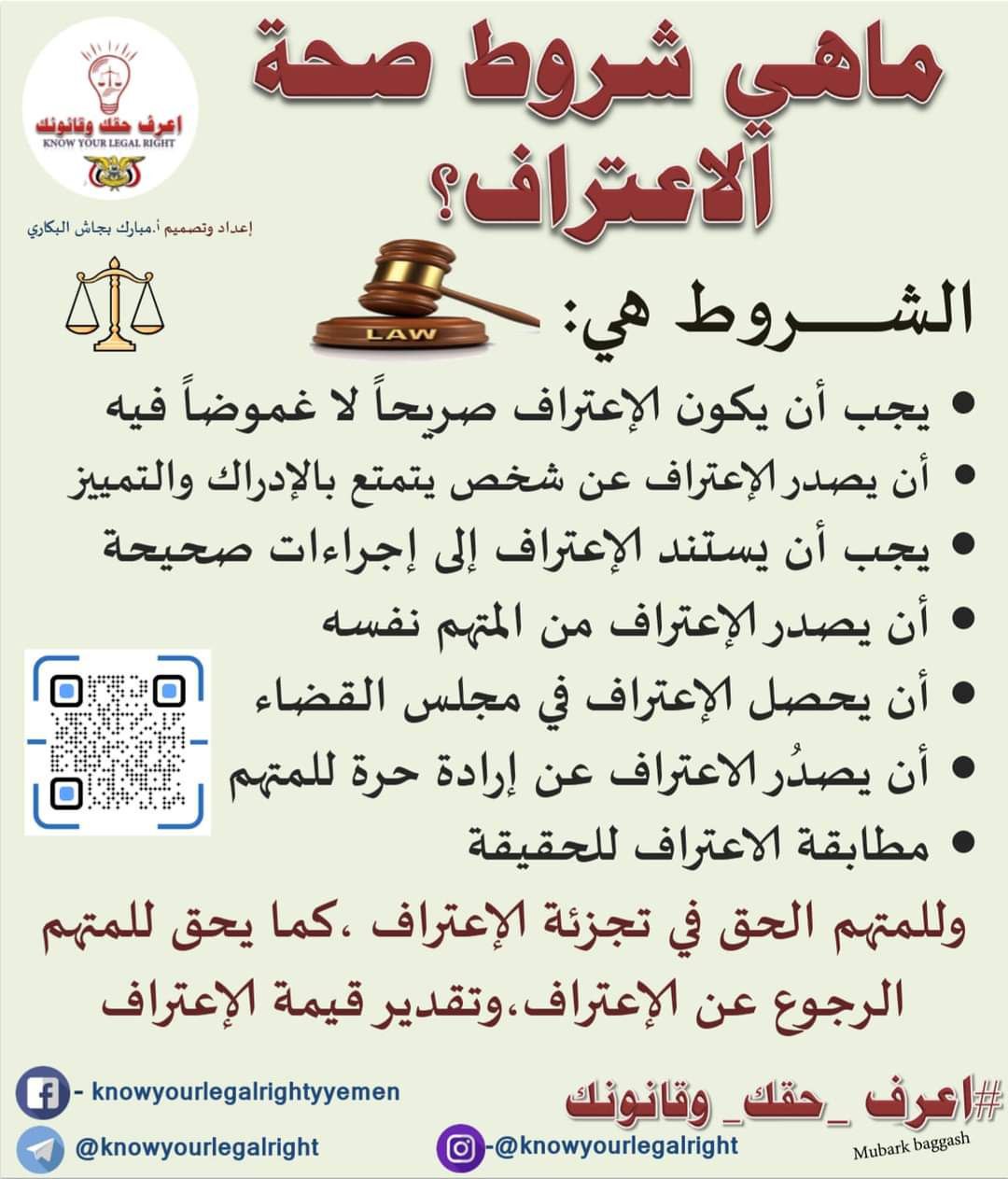
Is it permissible to return the donation gift?
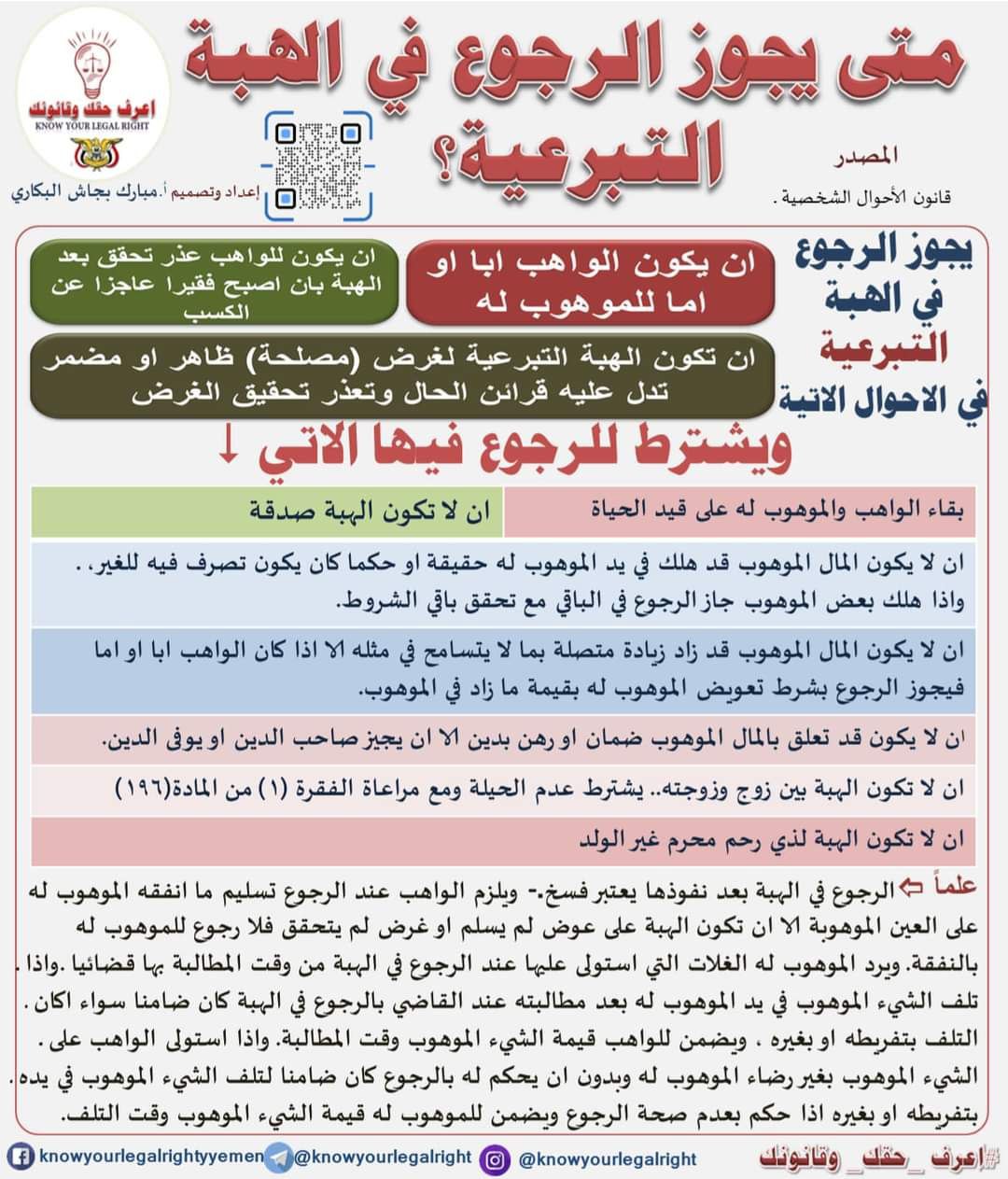
What is the difference between a peremptory legal rule and a complementary legal rule?
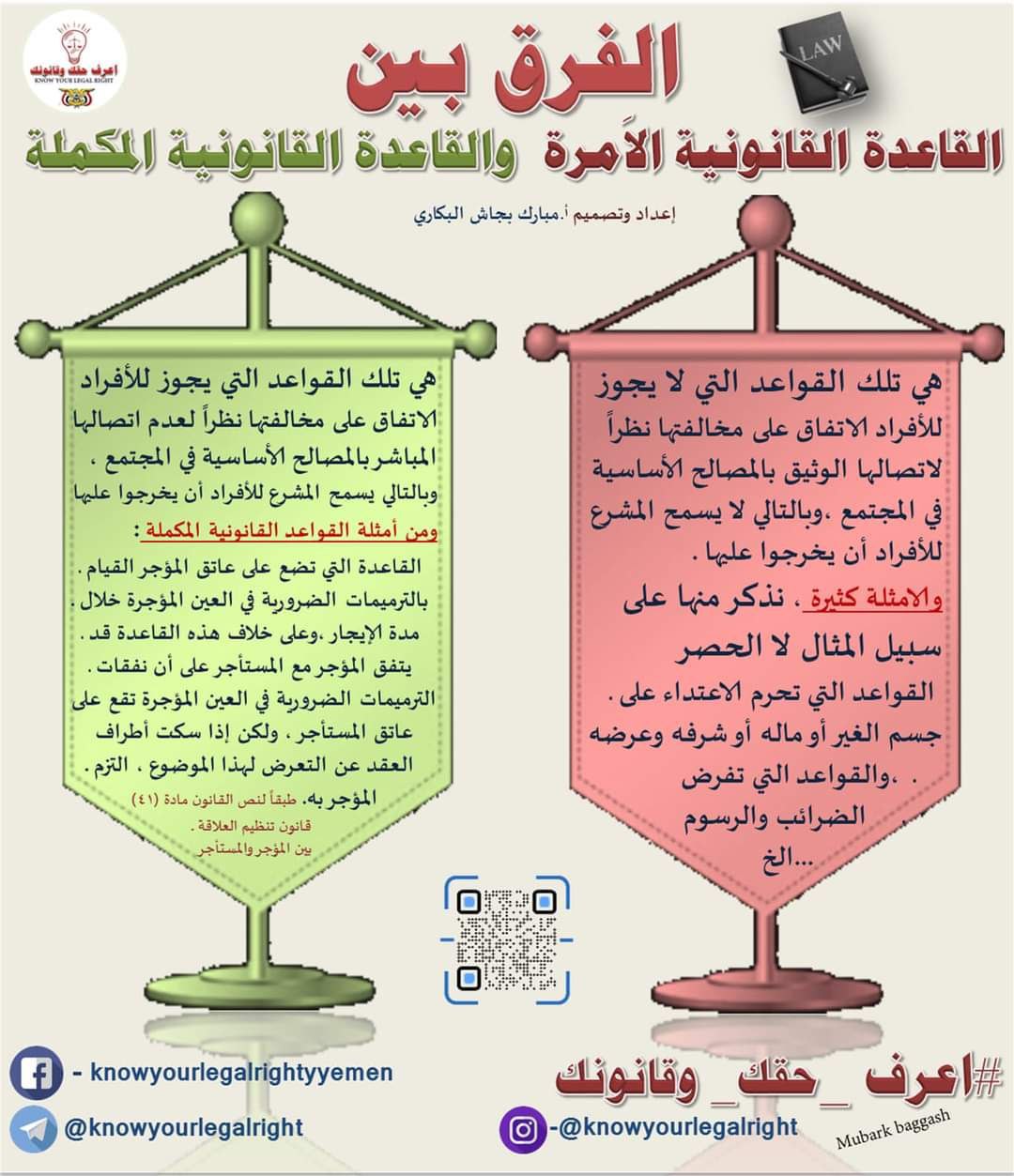
Is it permissible to dismiss the arbitrator?
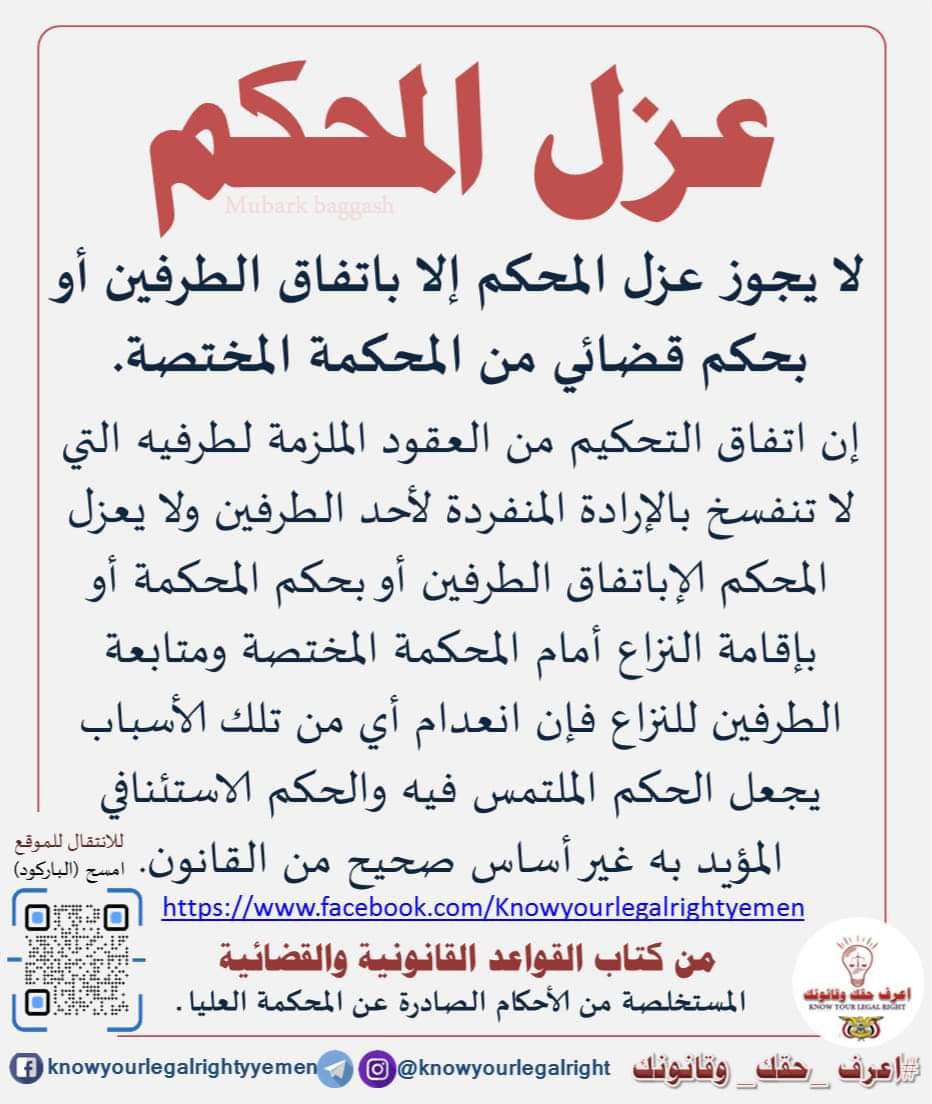
What is the difference between a lawyer and a legal and legal advisor?
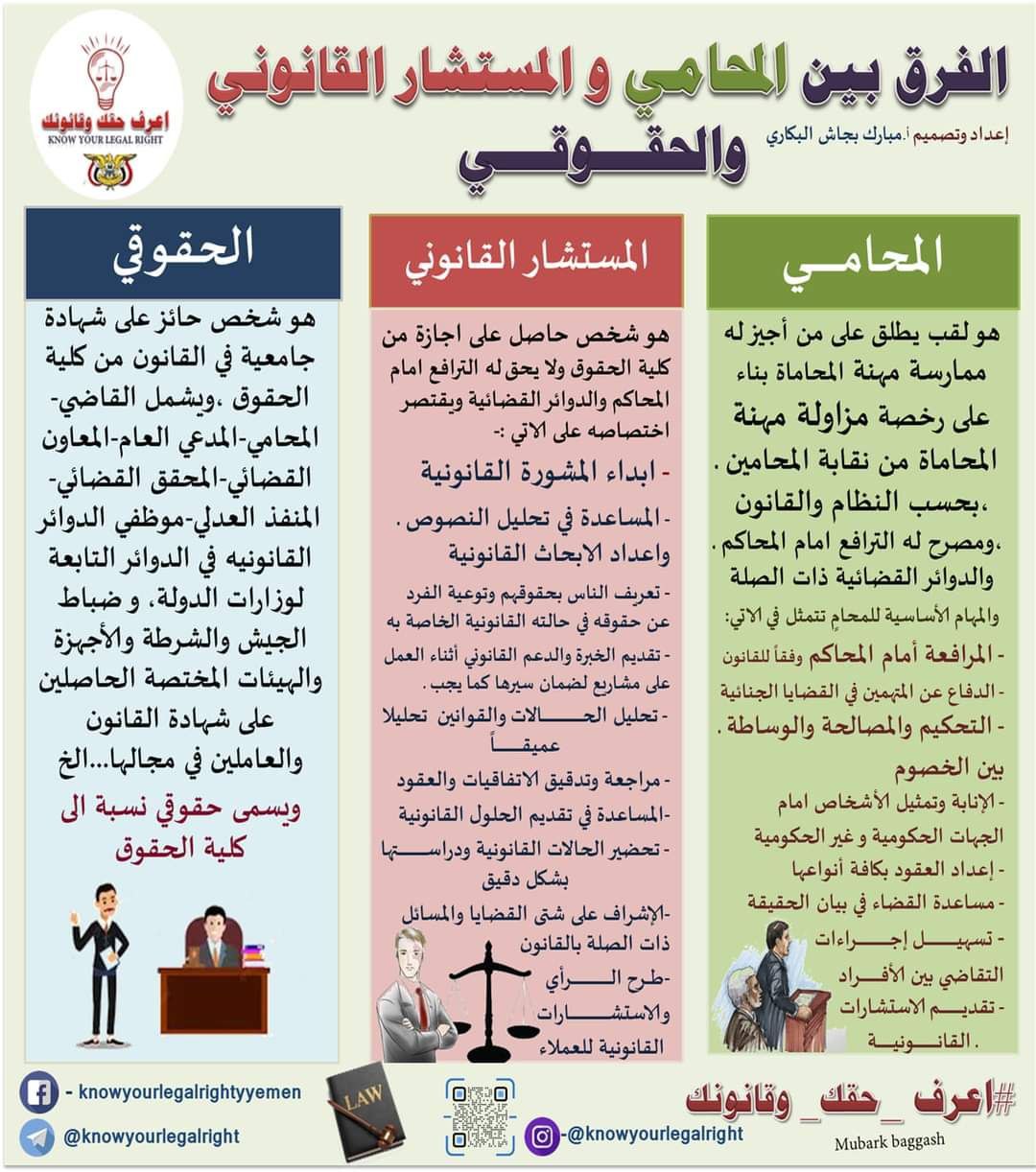
What is the ruling on not specifying the subject of arbitration in its document?
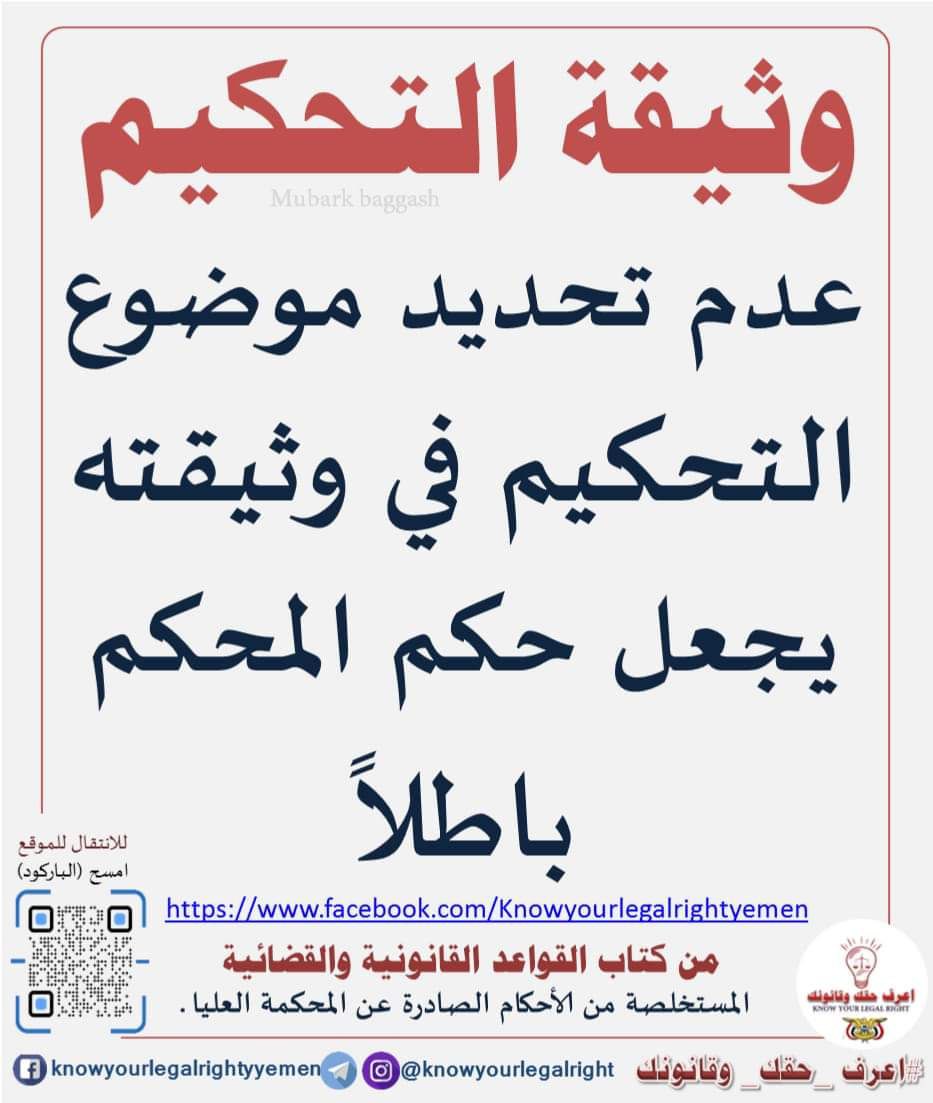
What is zakat, its ruling - the conditions for its obligation - and the conditions for its validity?
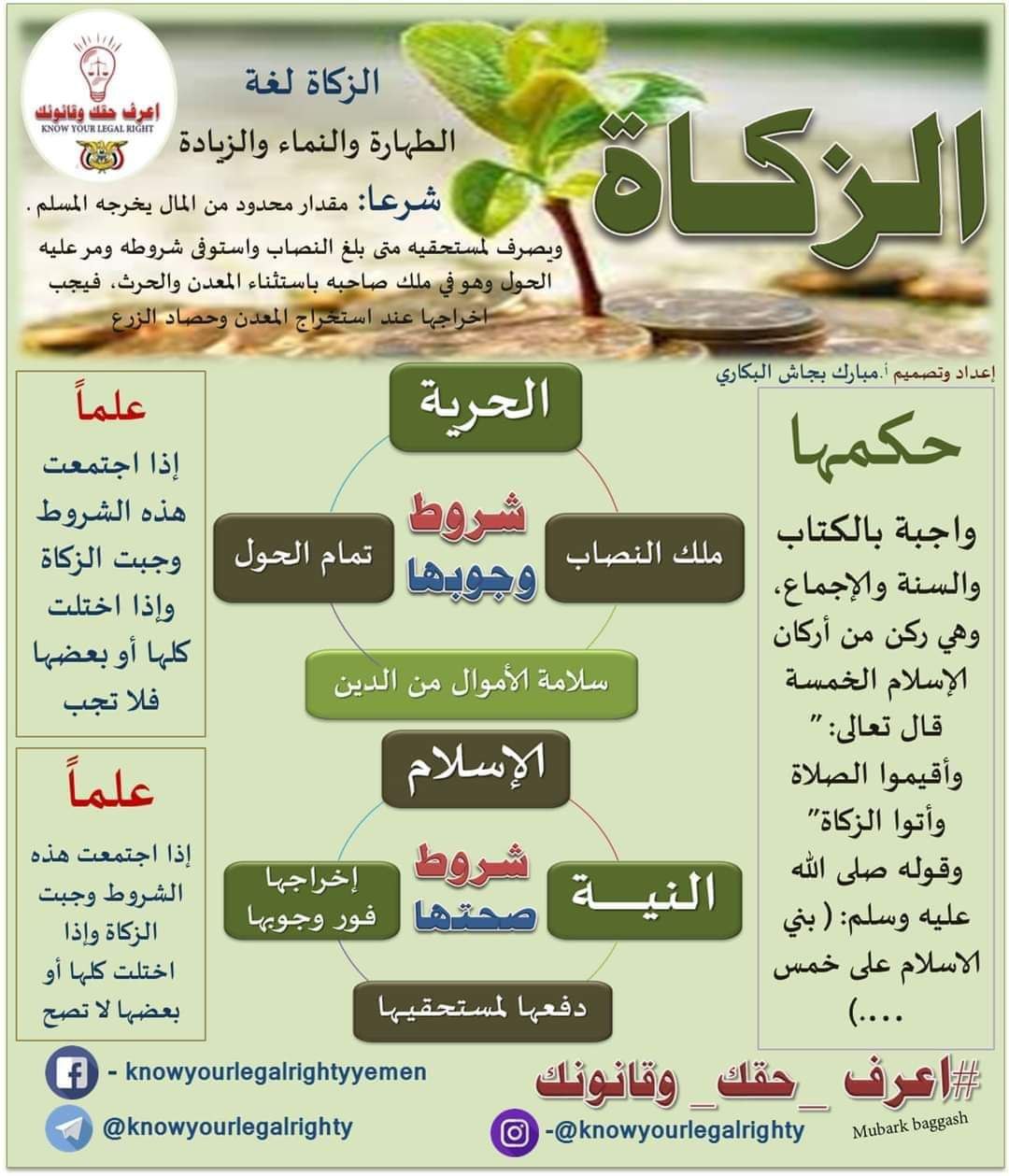
What are the categories eligible for zakat?

What is the nisab and amount of zakat on gold and silver?
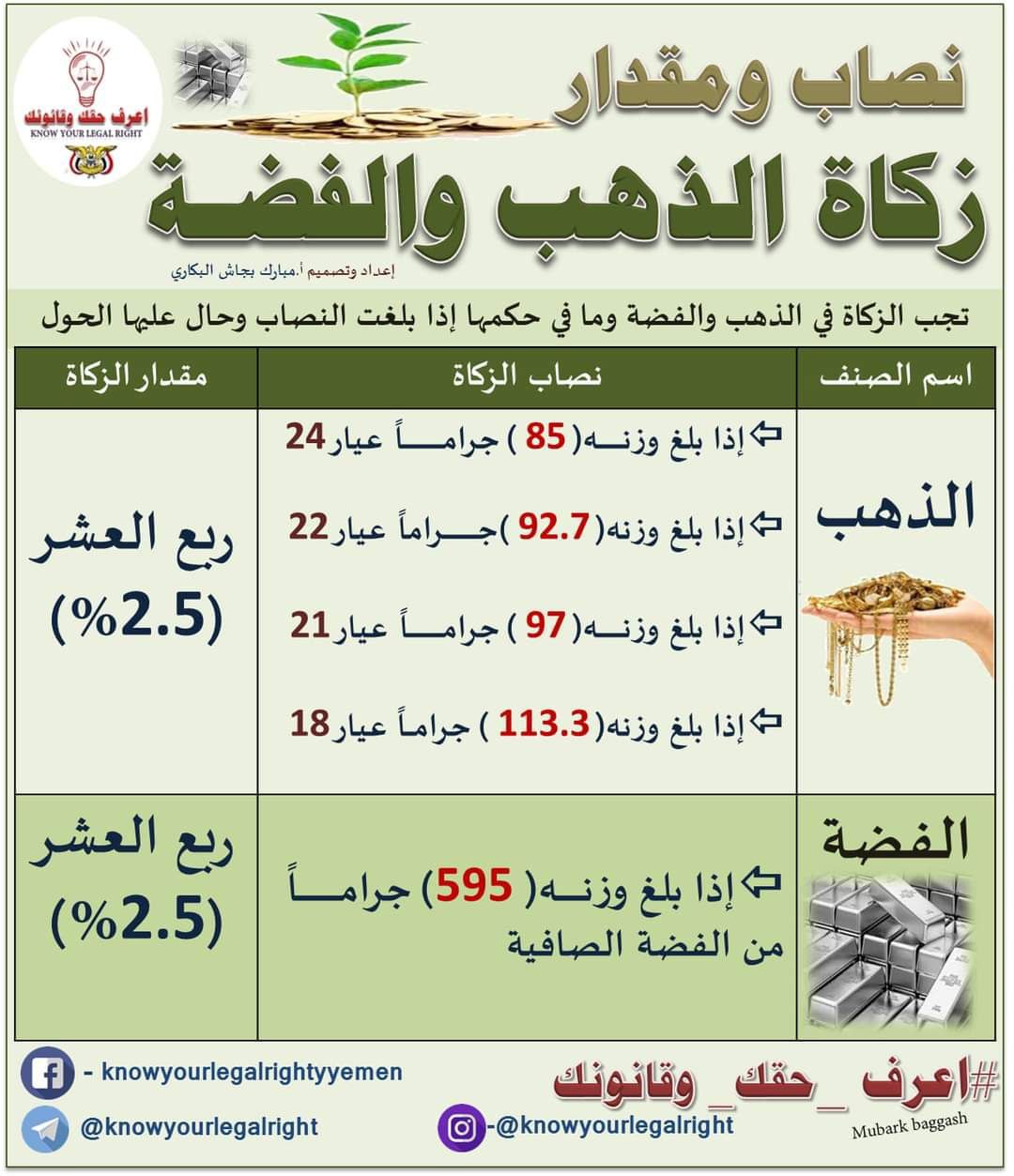
What is the quorum and amount of zakat on camels?
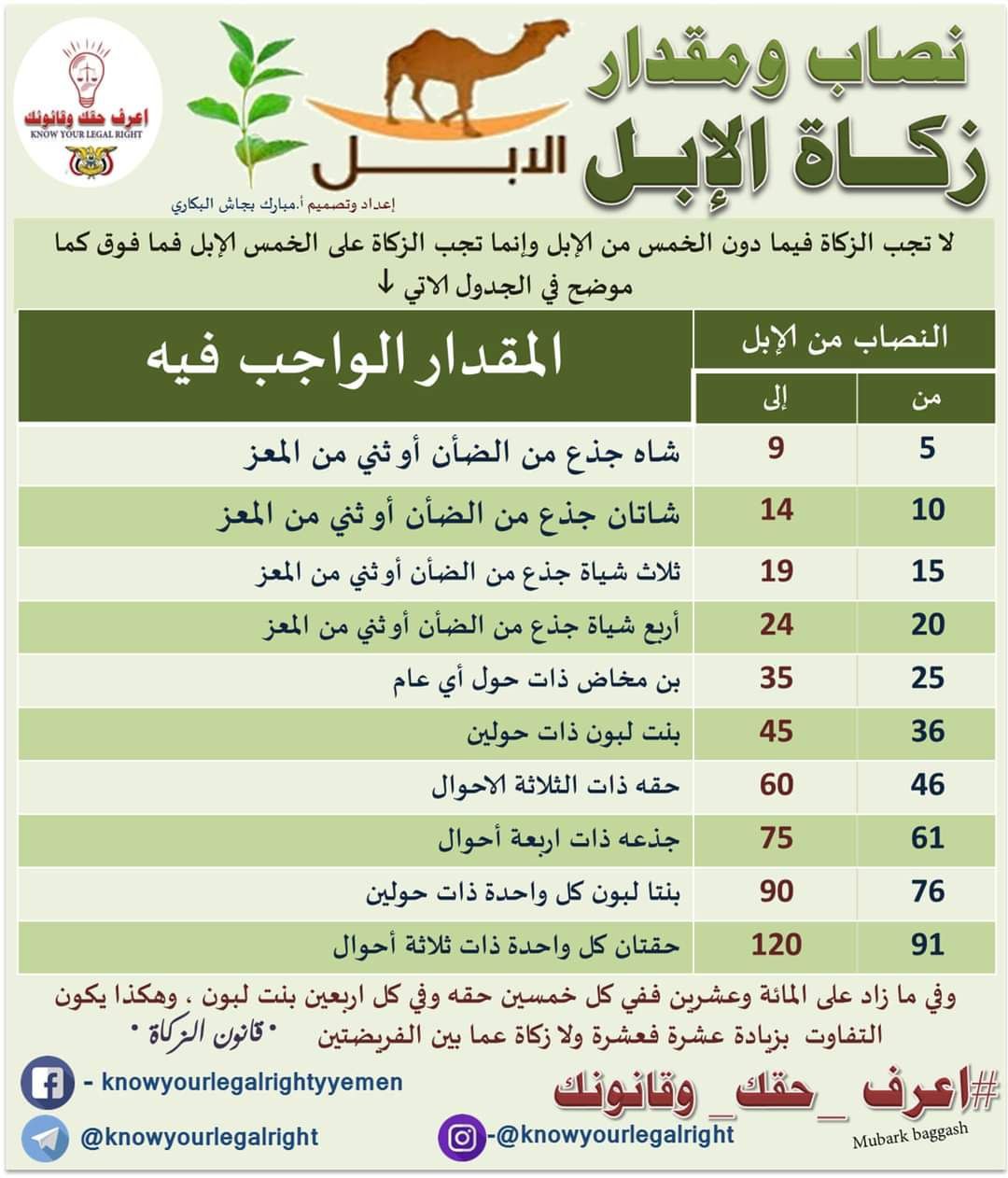
What is the quorum and amount of zakat on cows?
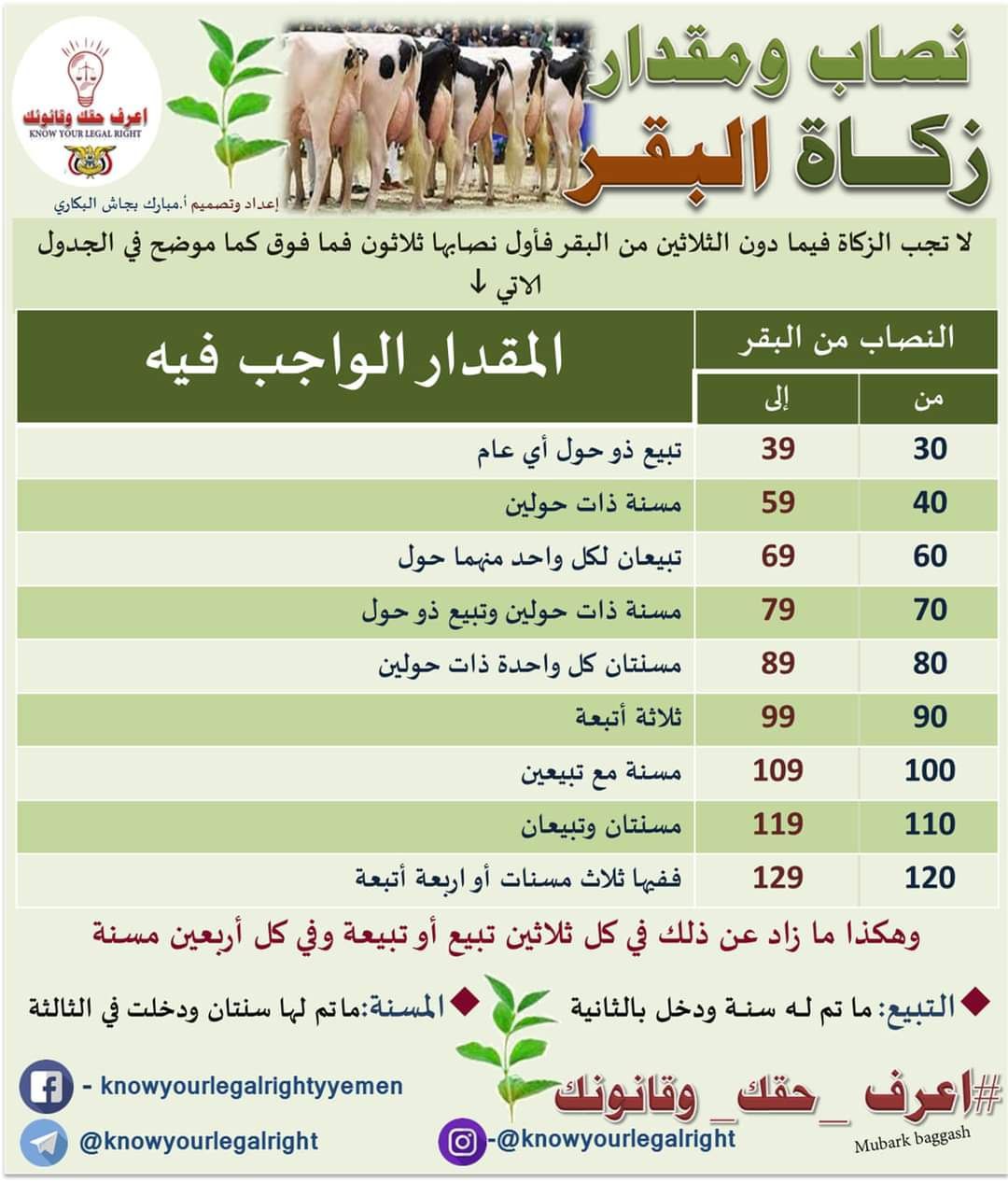
What is the quorum and amount of zakat on sheep?
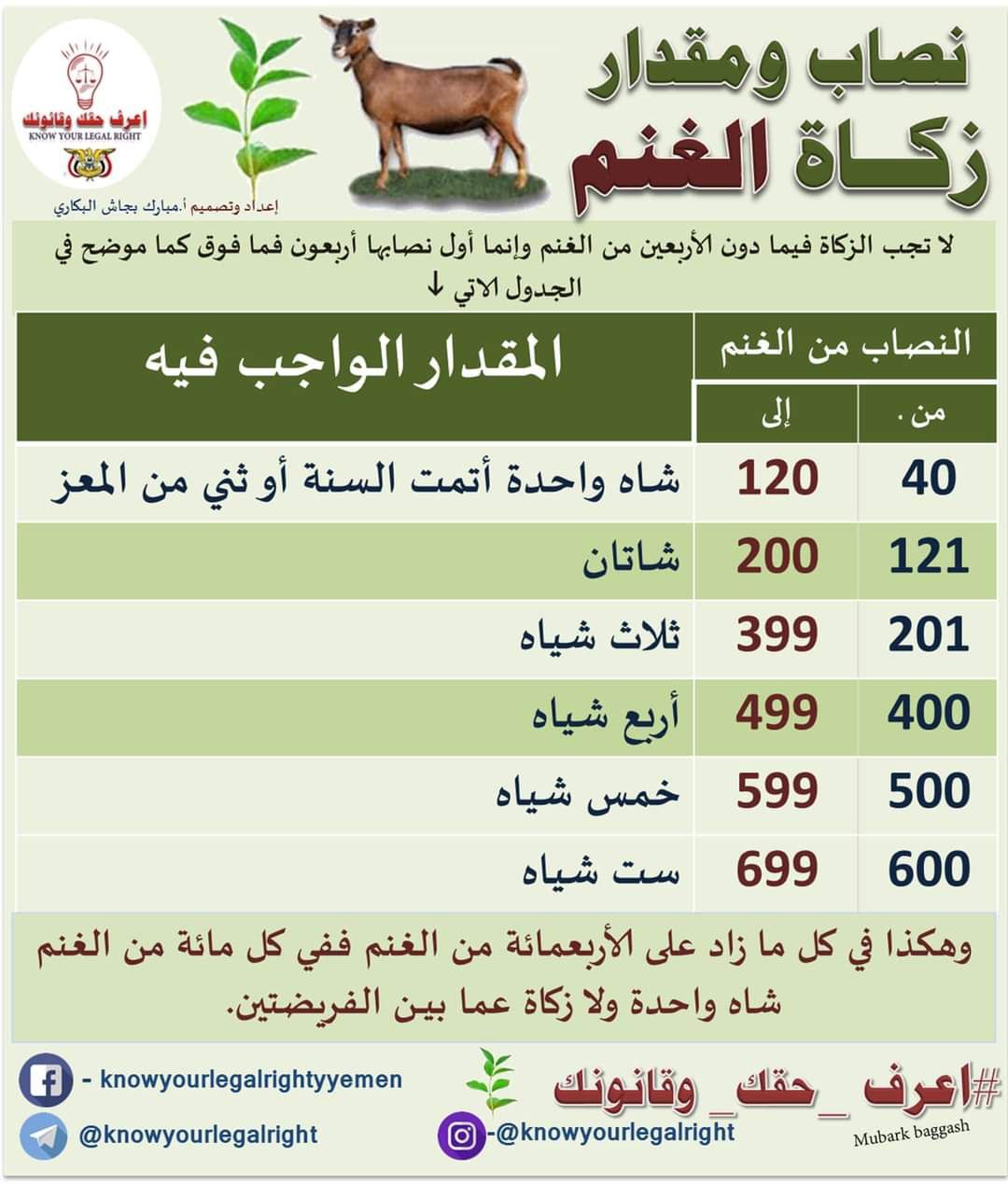
What is zakat and how much is zakat on honey?

What is the quorum and amount of zakat on money and what is its substitute?
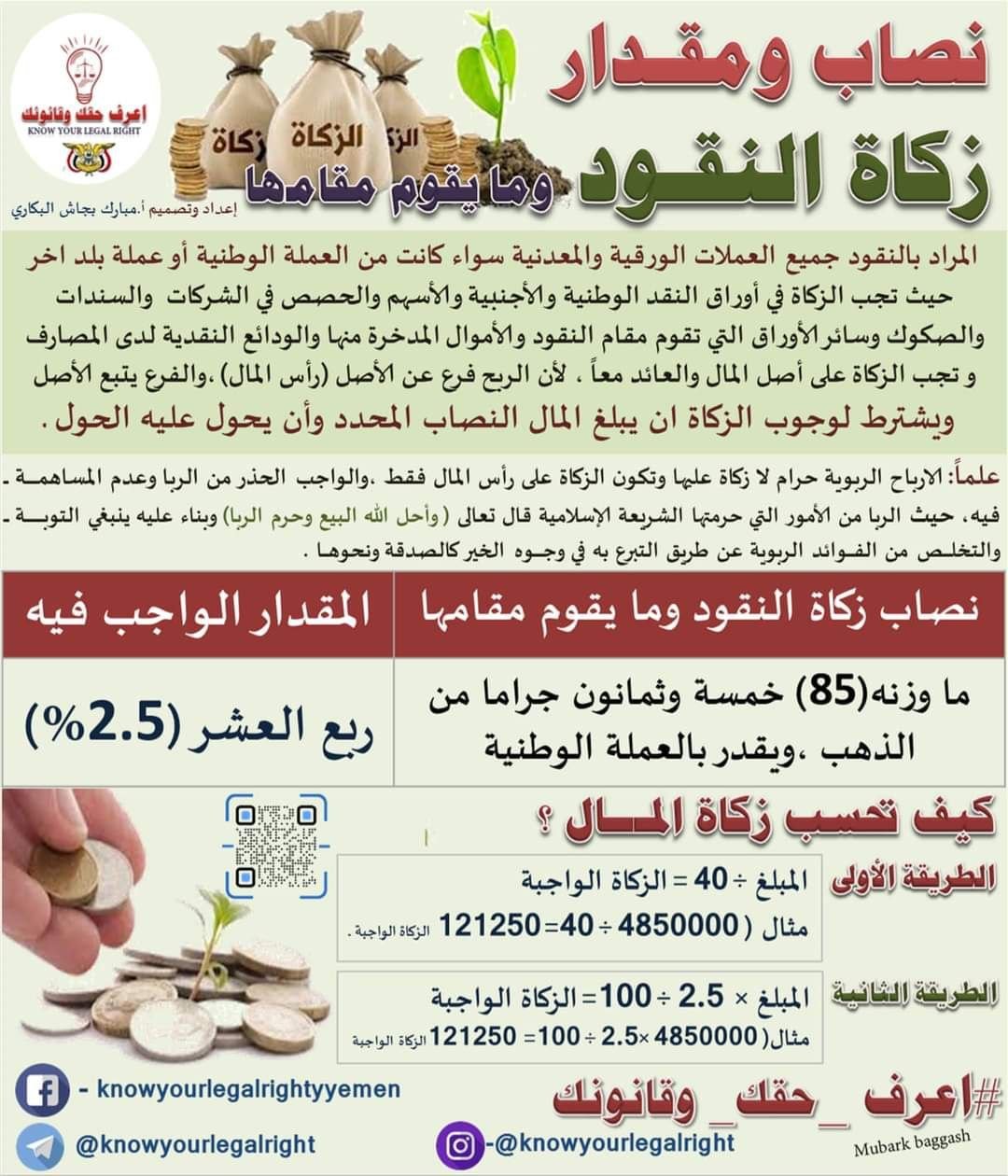
What is the quorum for real estate zakat?
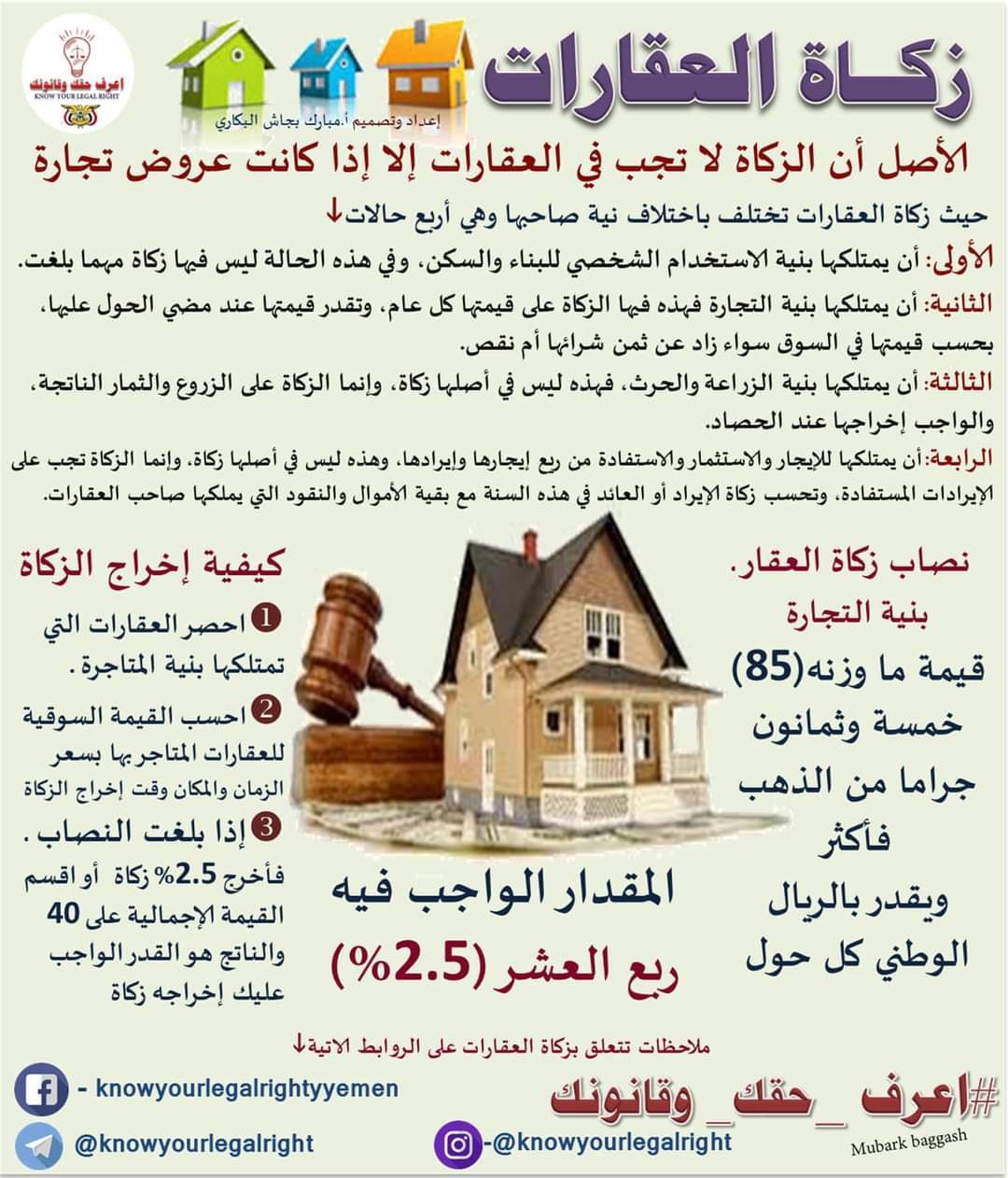
What is the quorum and amount of zakat on trade and industry offerings?
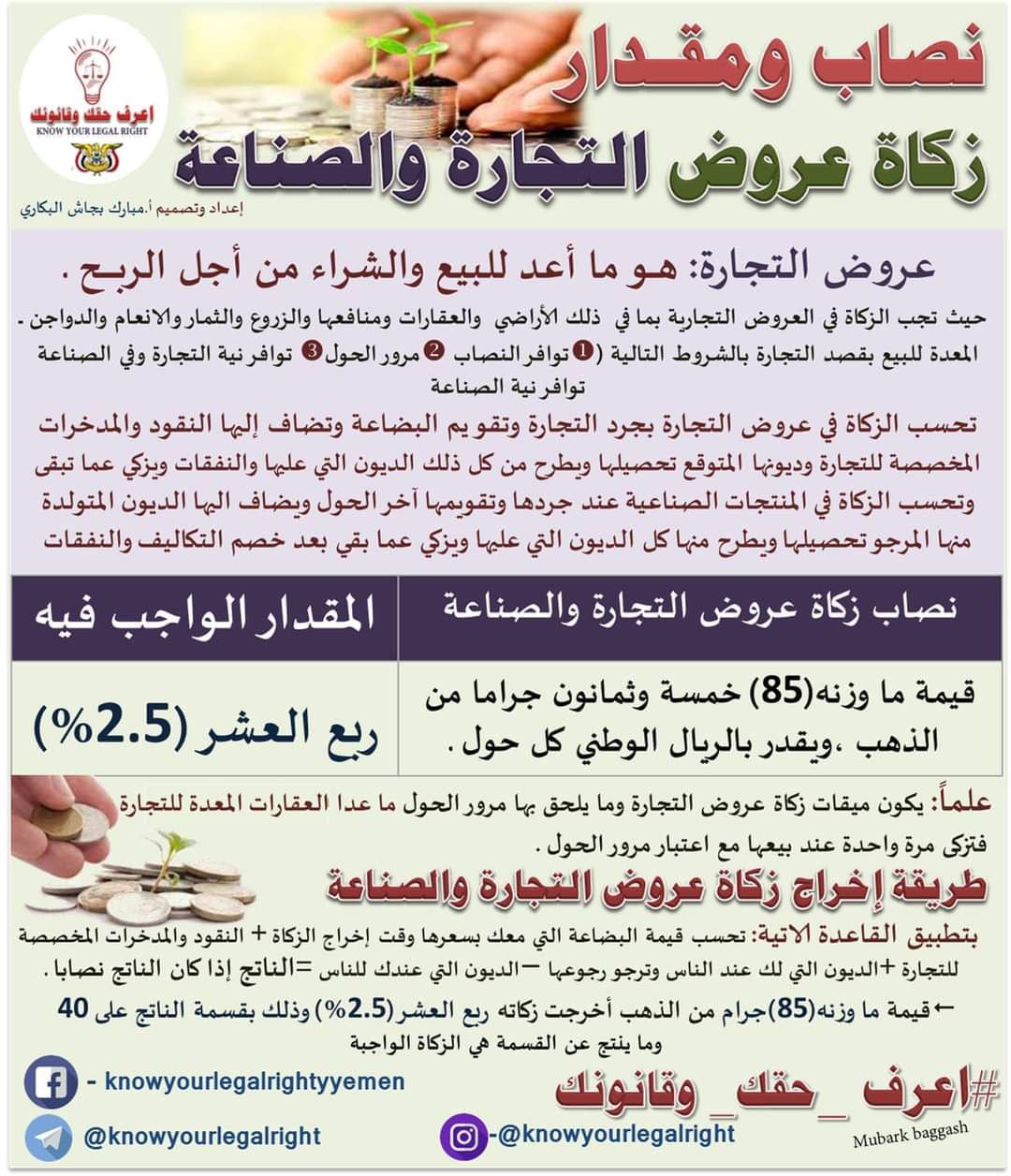
What is zakat and the amount of zakat on crops and fruits?
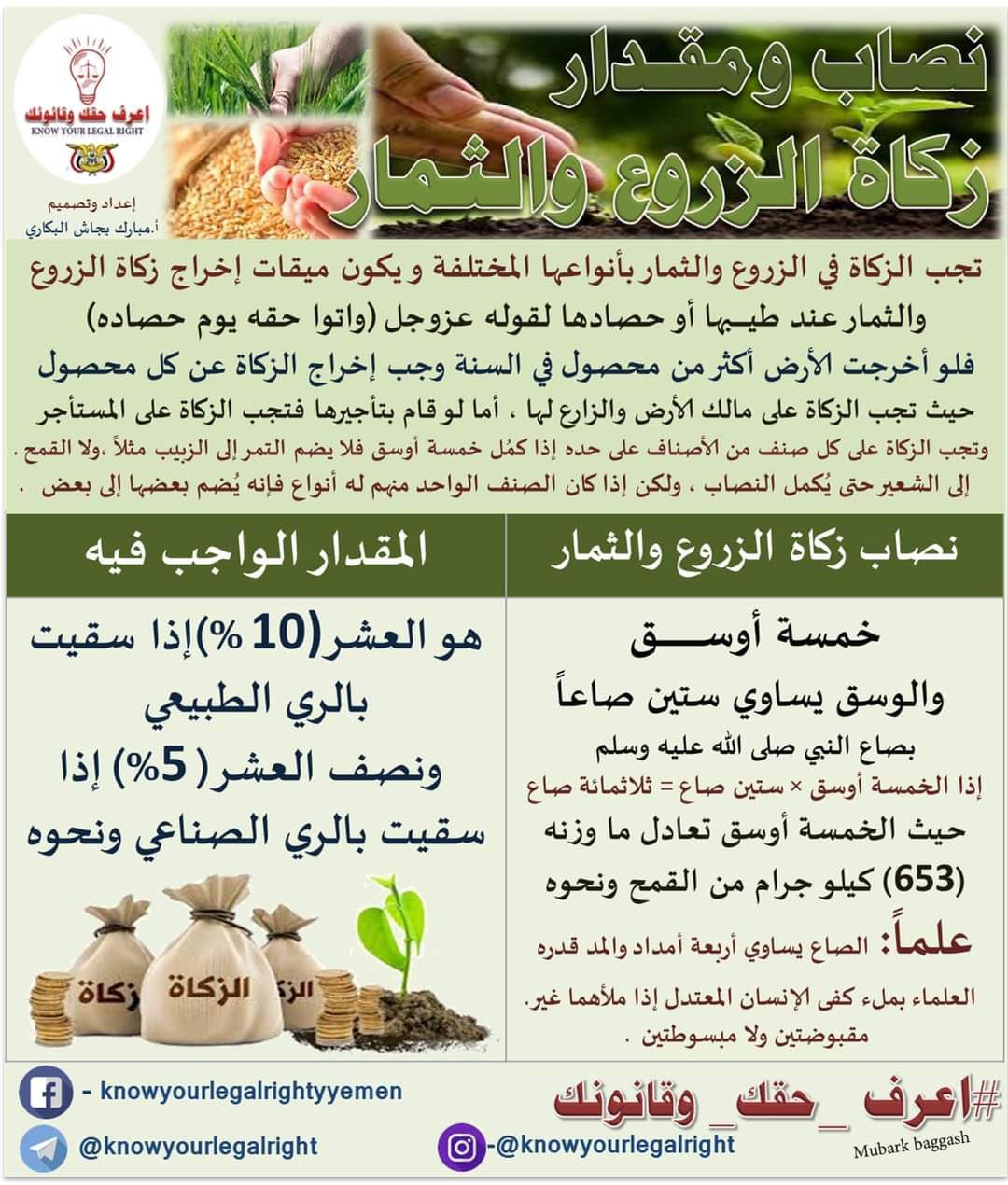
What is the quorum for zakat for exploited women?
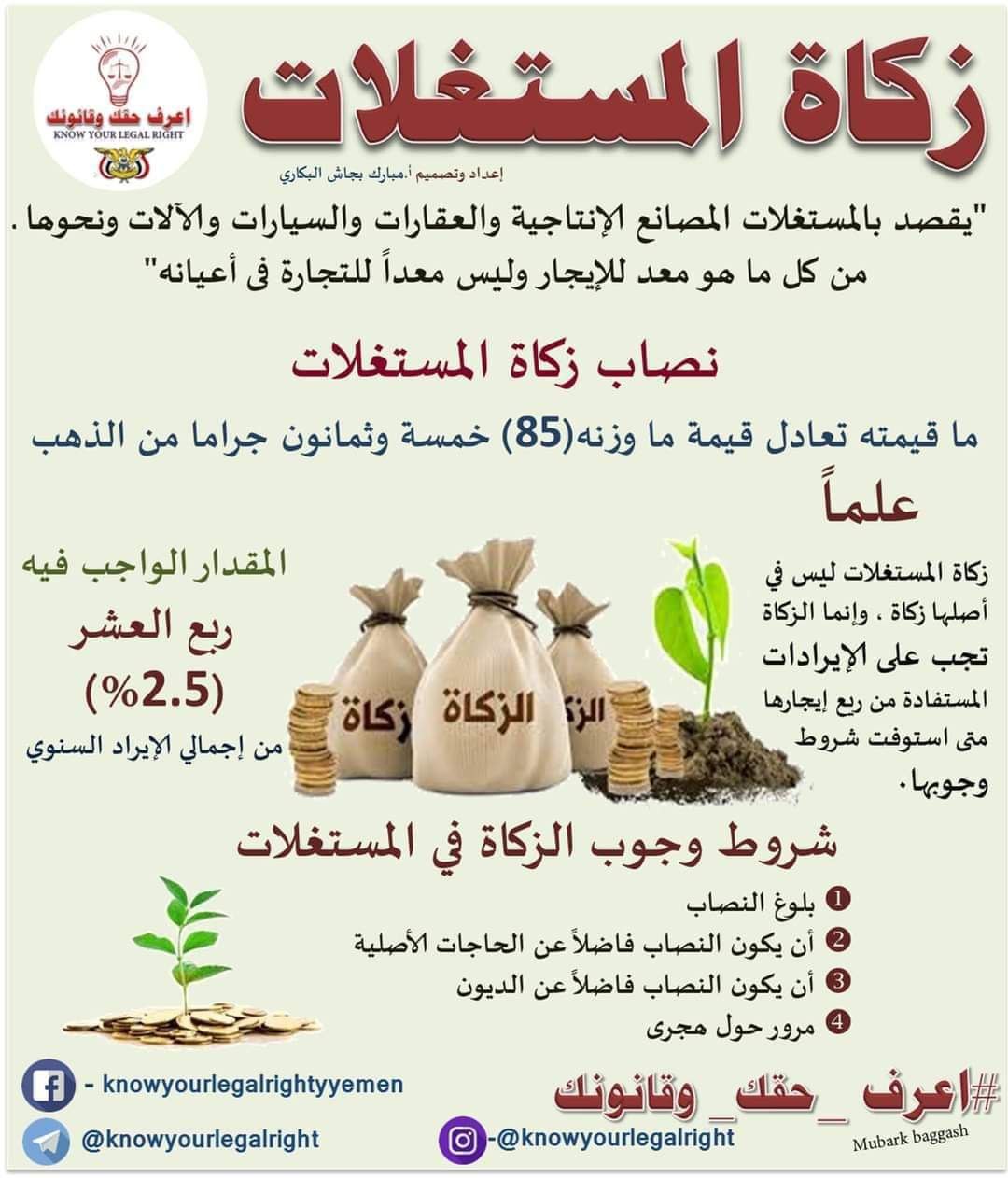
What is zakat al-fitr?
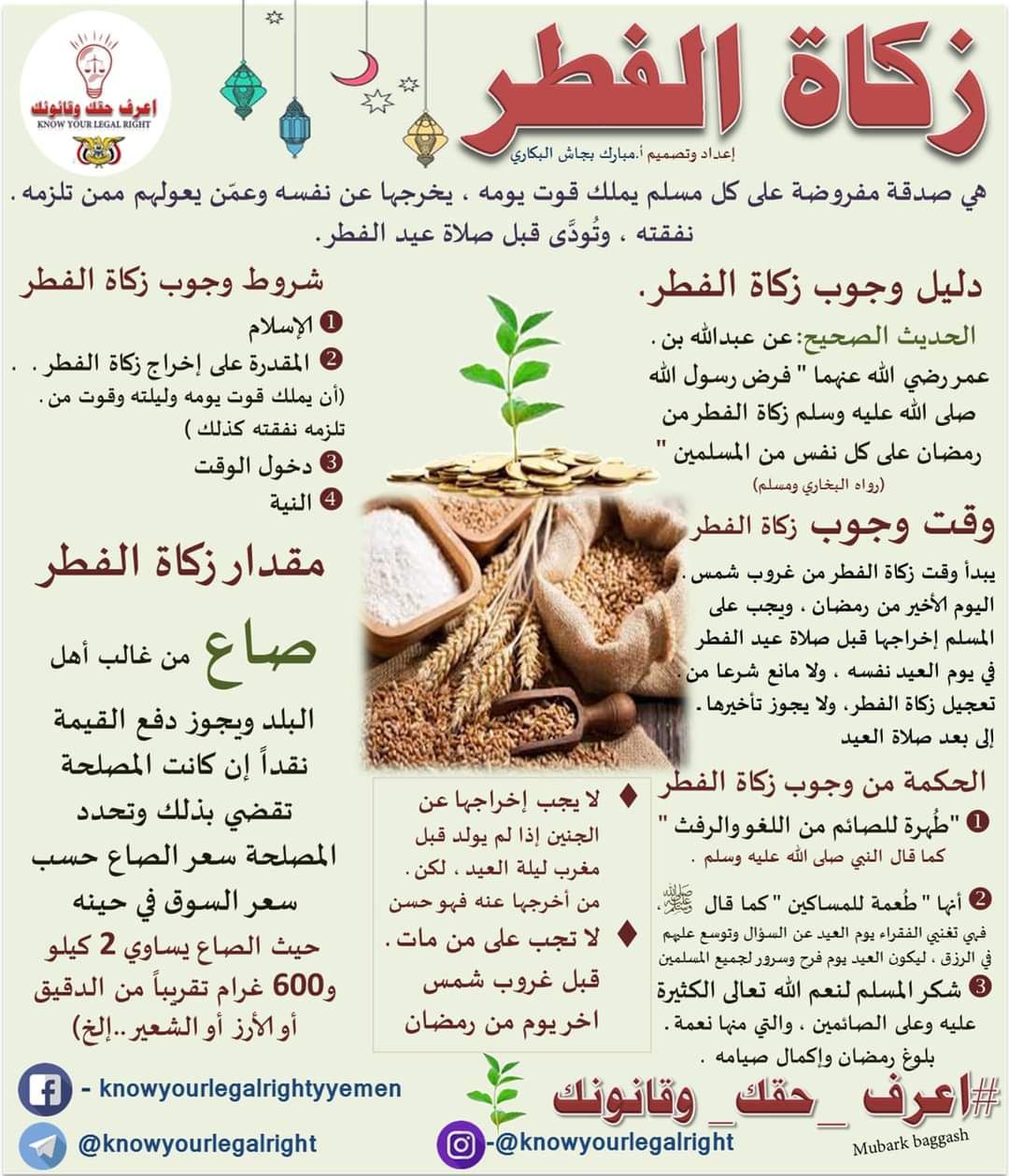
What is the concept of certification, and its conditions?
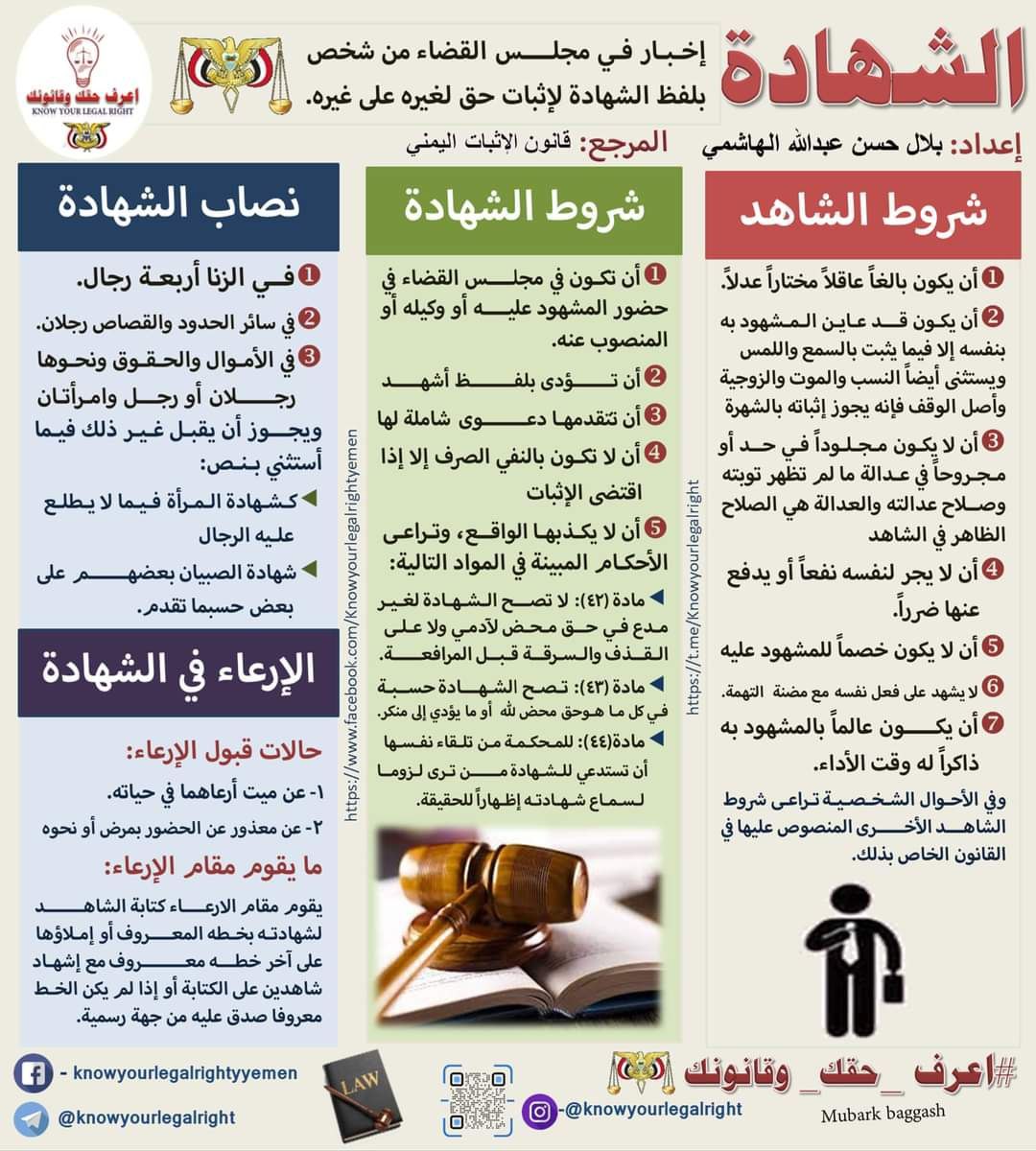
What is the ruling on retracting the certificate?
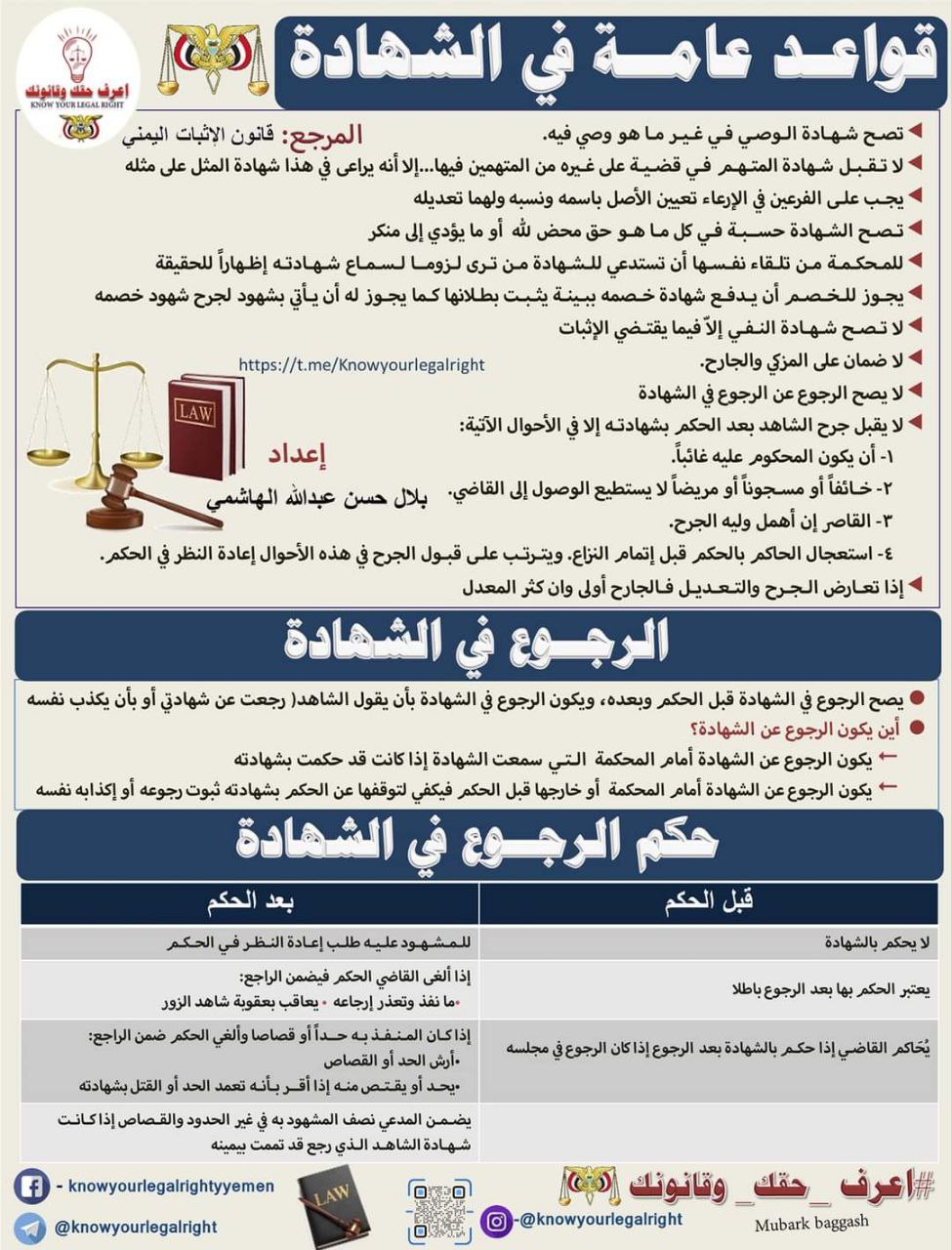
What is the difference between appeal, challenge, appeal, and cassation?
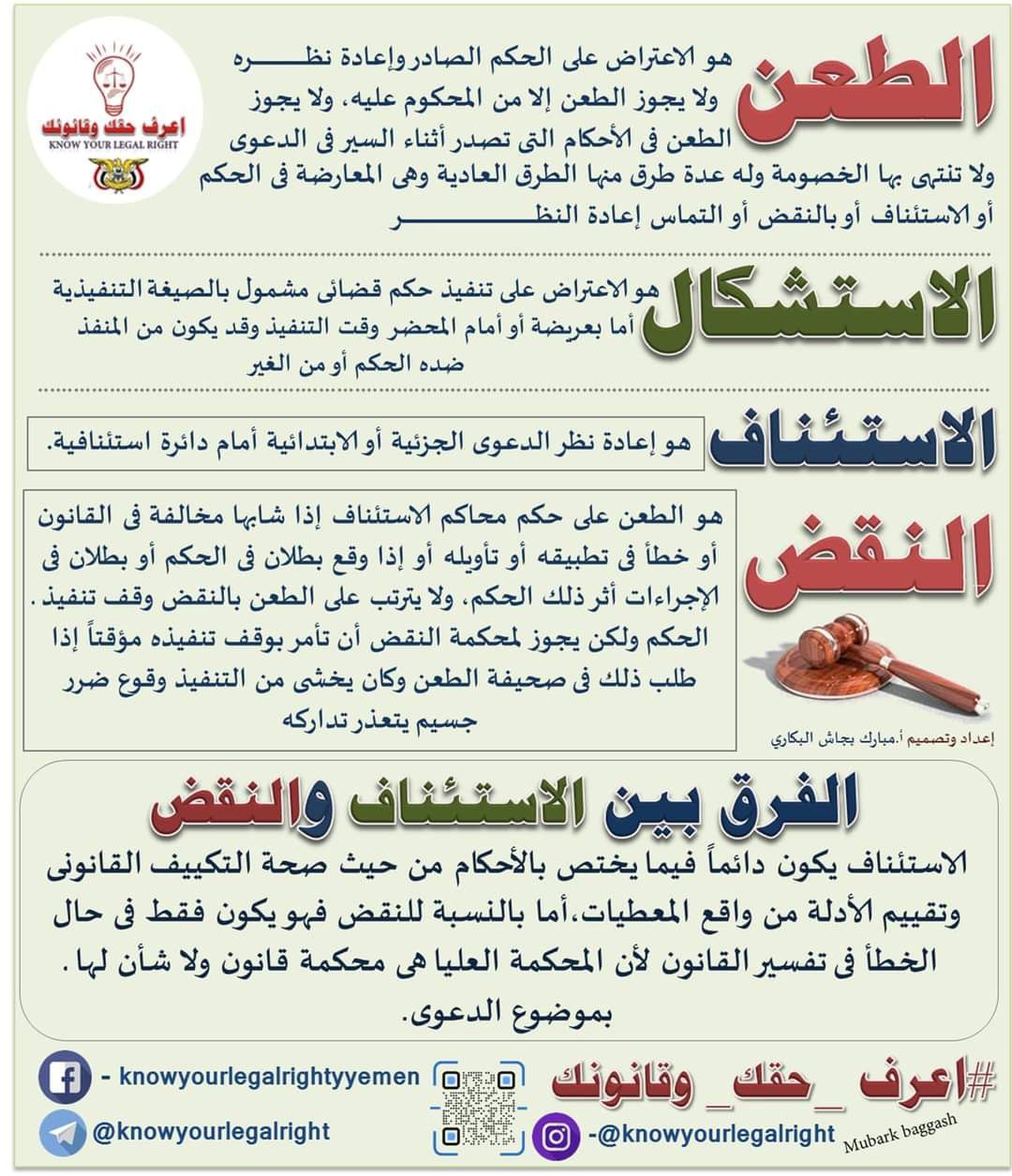
What is meant by exhaustion of the judge’s jurisdiction?
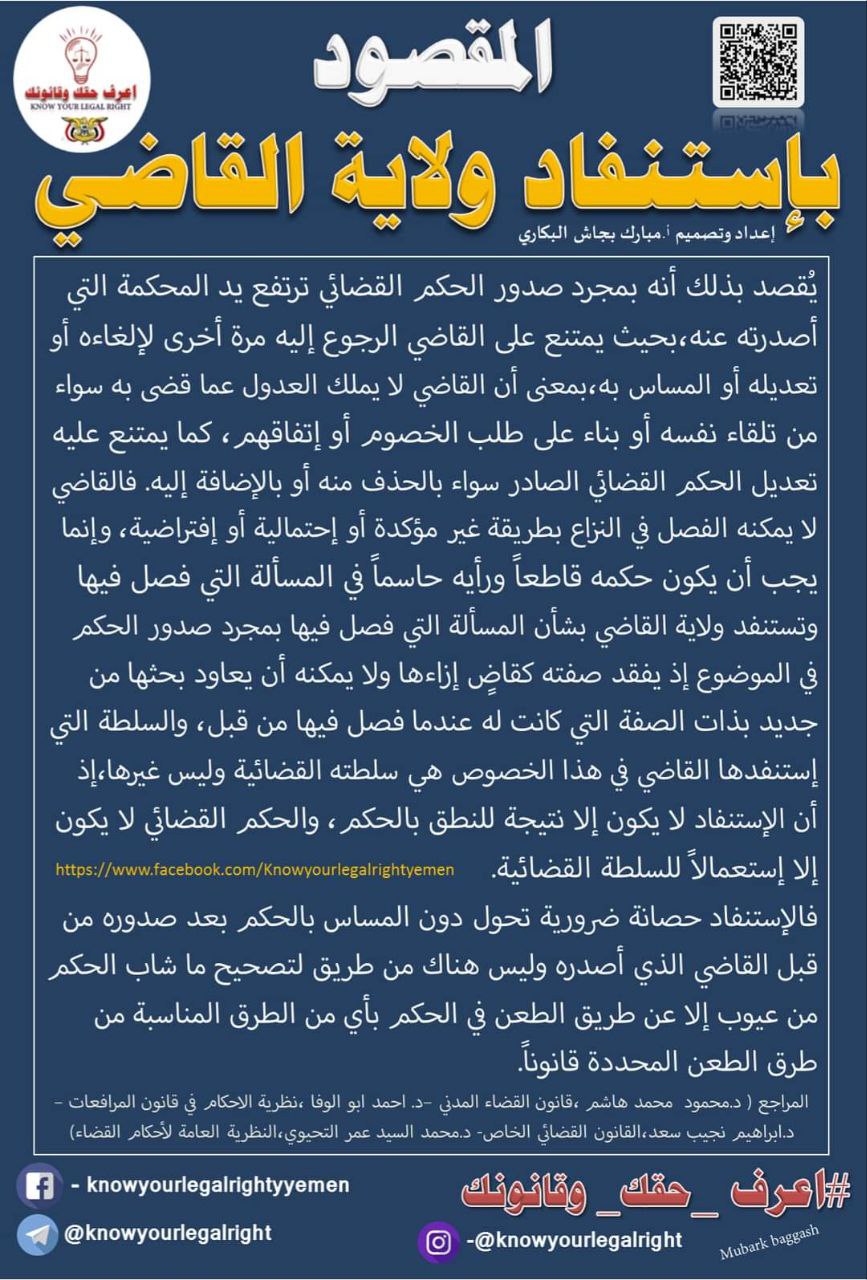
What is an electronic signature and what is its validity in proof?
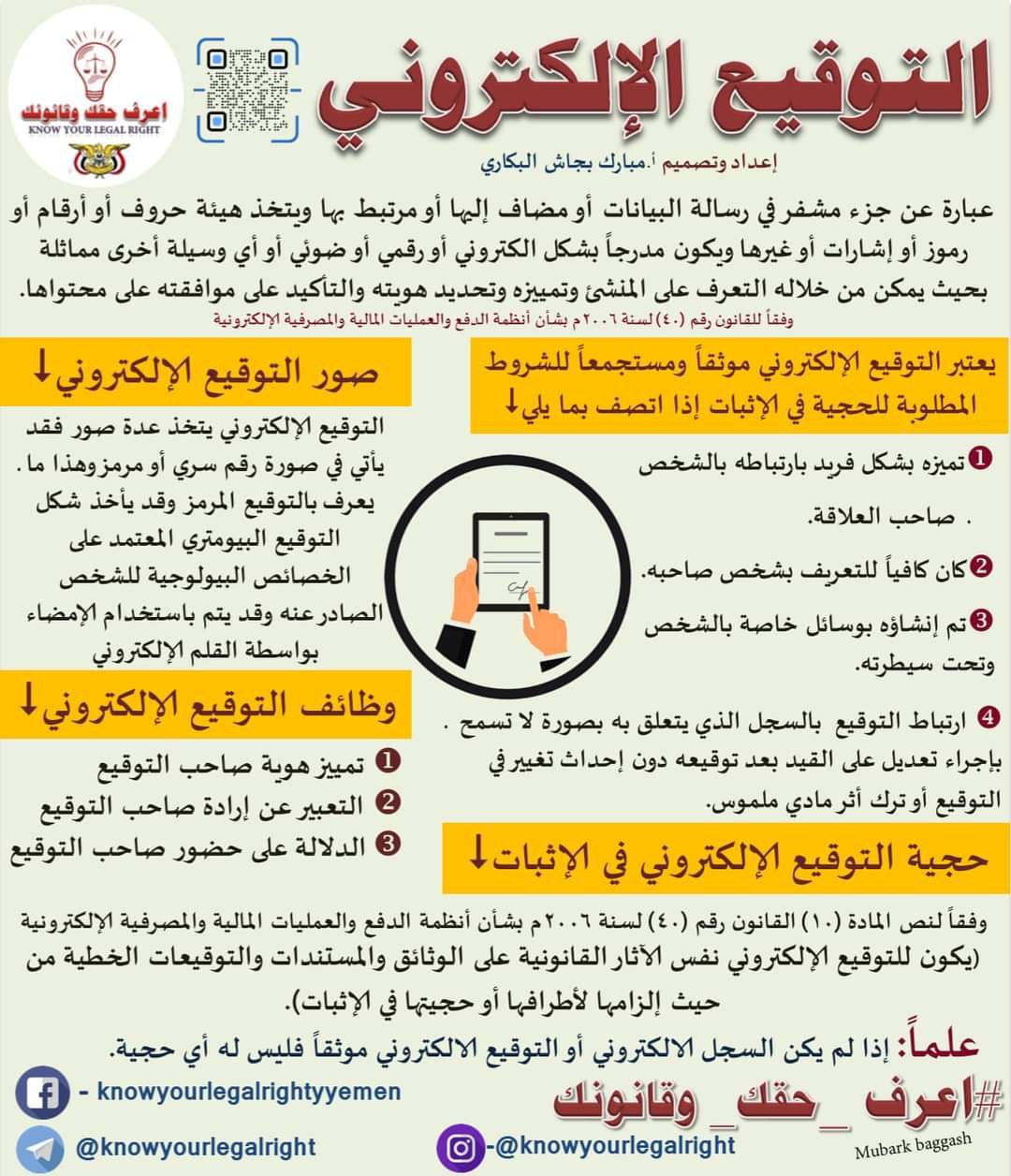
What is the difference between war crimes, crimes against humanity and genocide?
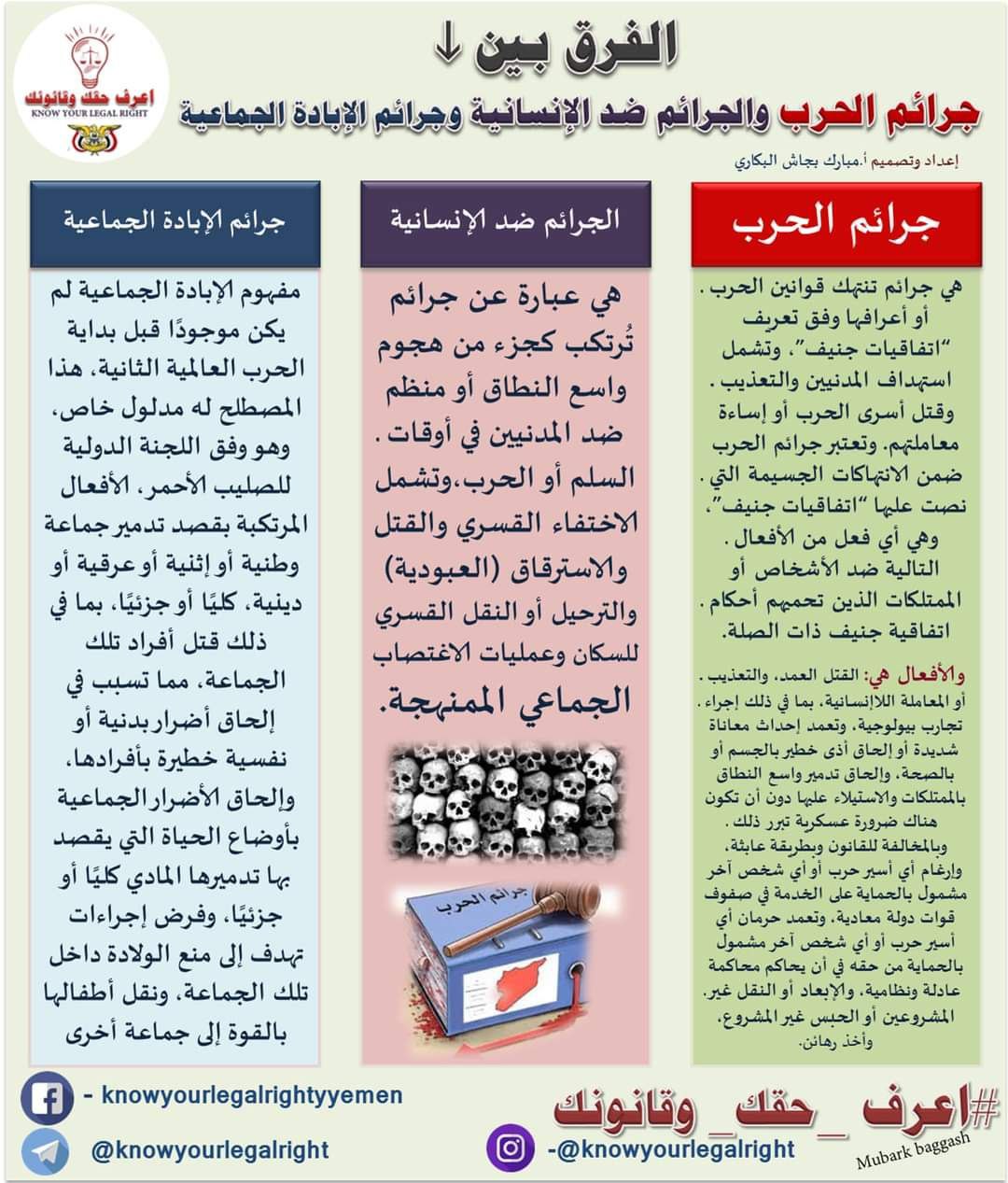
What is the concept of deception, dishonesty, fraud, ignorance, deception, and deception?
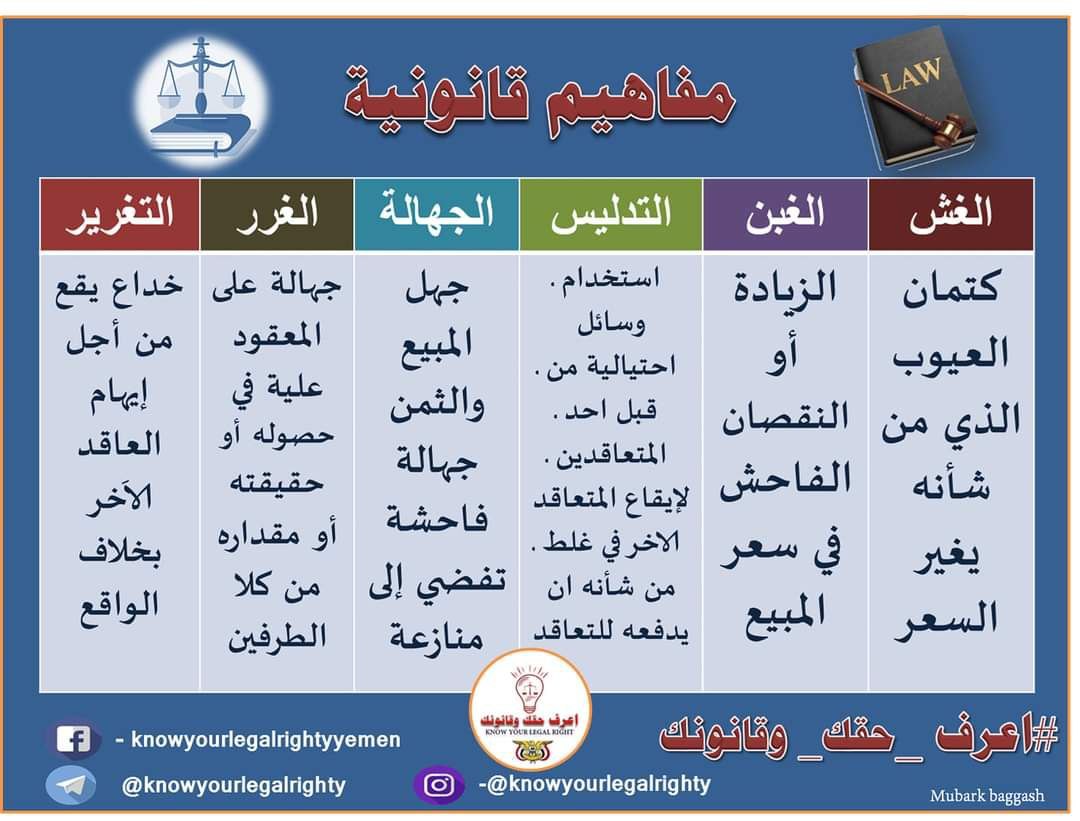
What is the definition of receivership and its conditions?
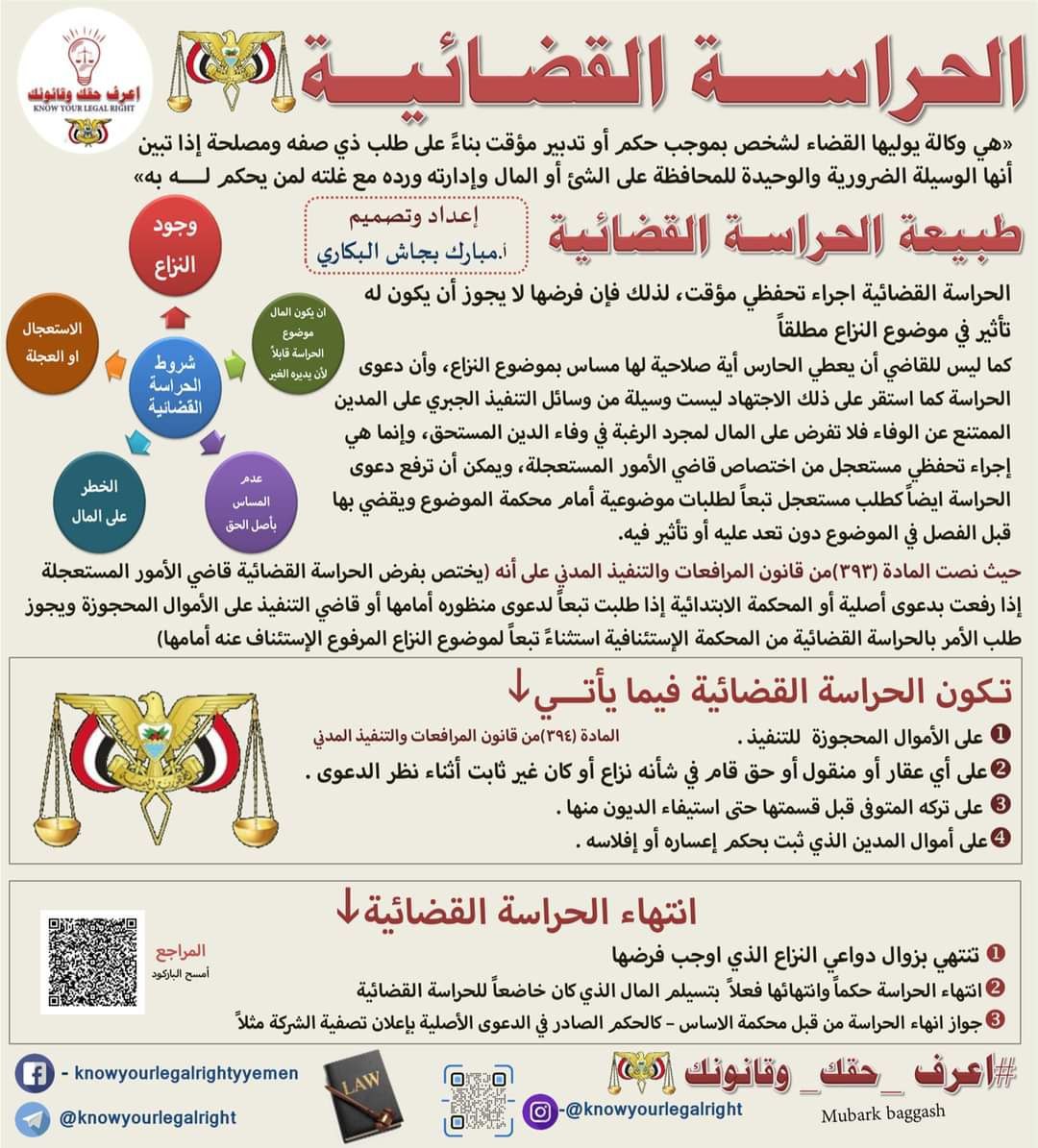
What is the crime of extortion?
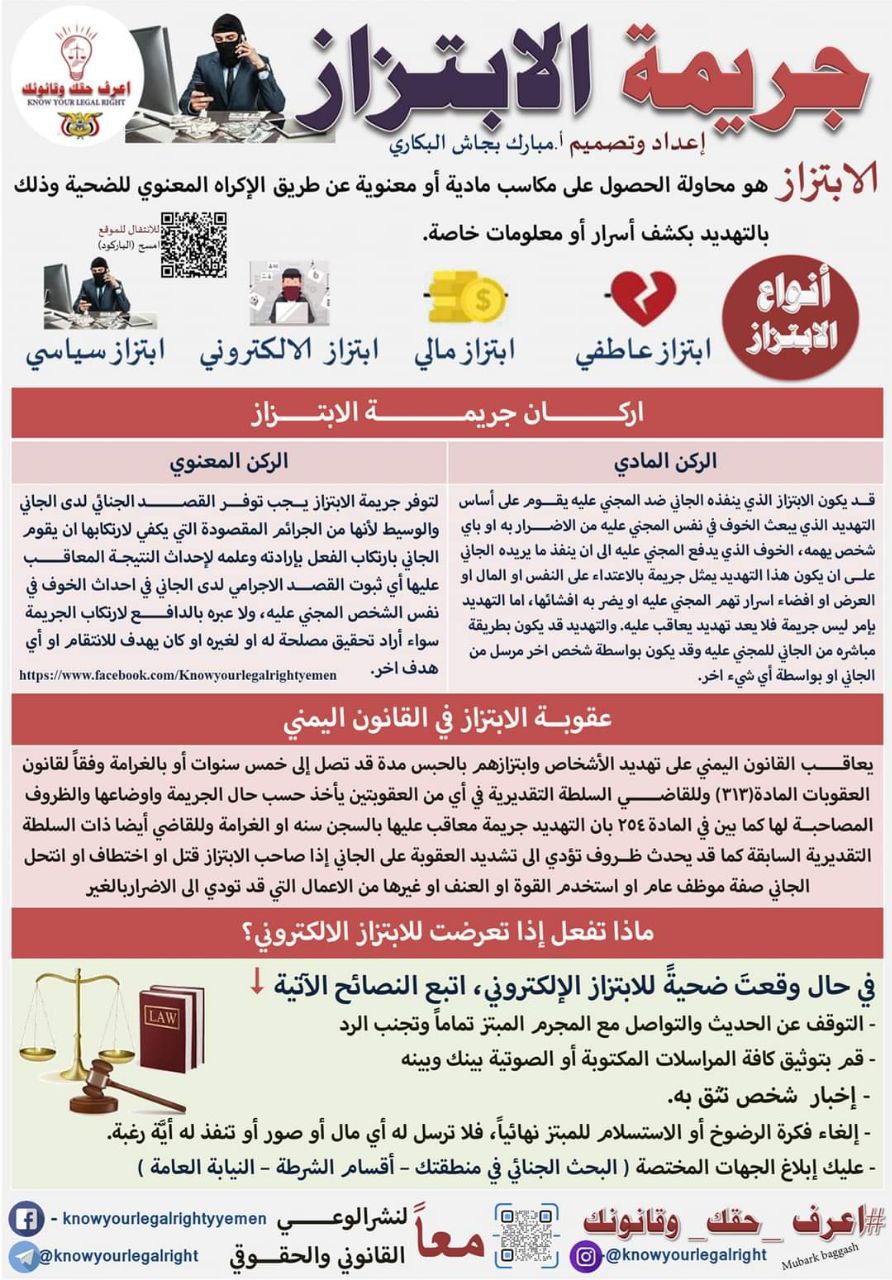
How to protect yourself from electronic blackmail?
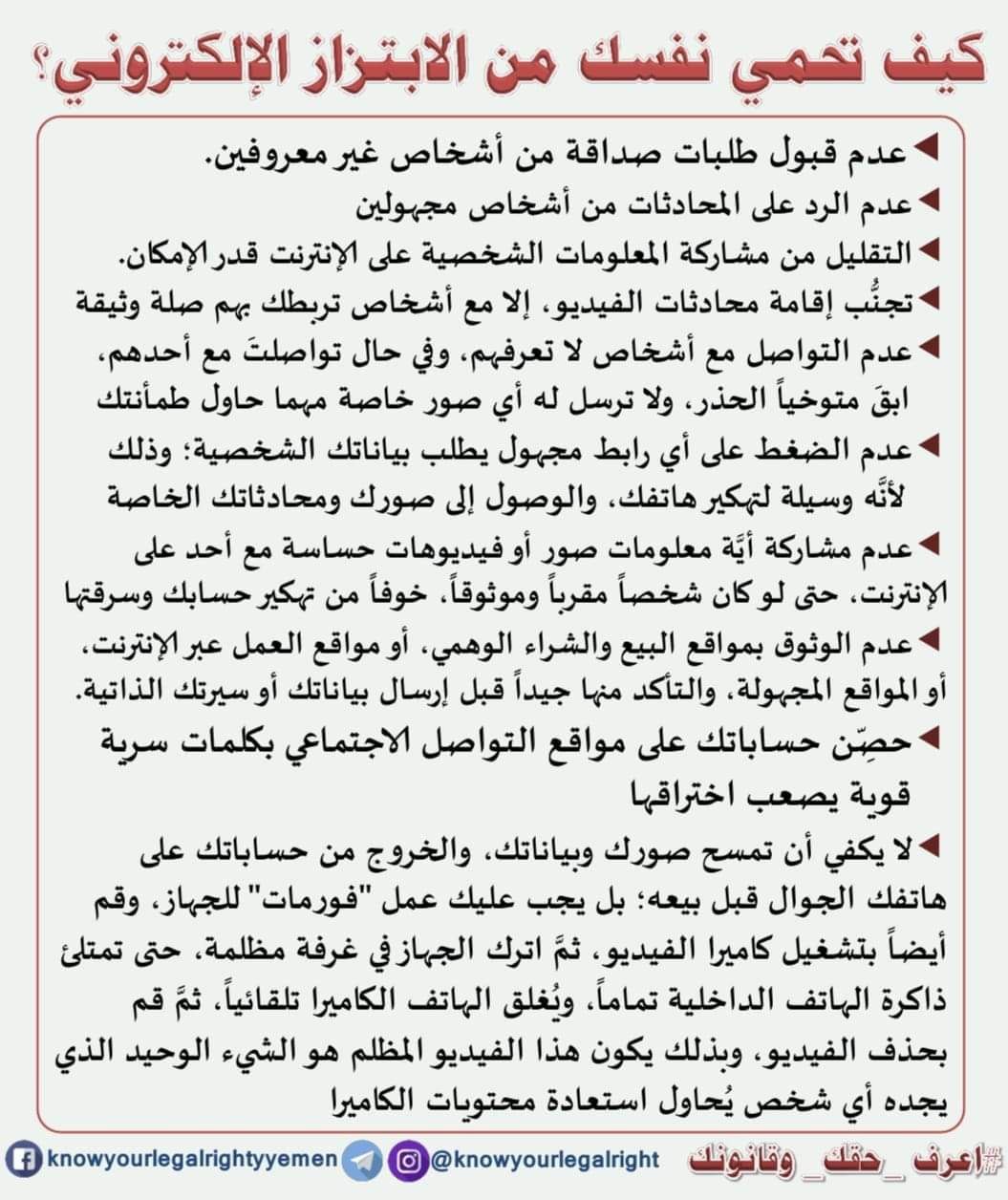
What should be taken into account when concluding a contract?
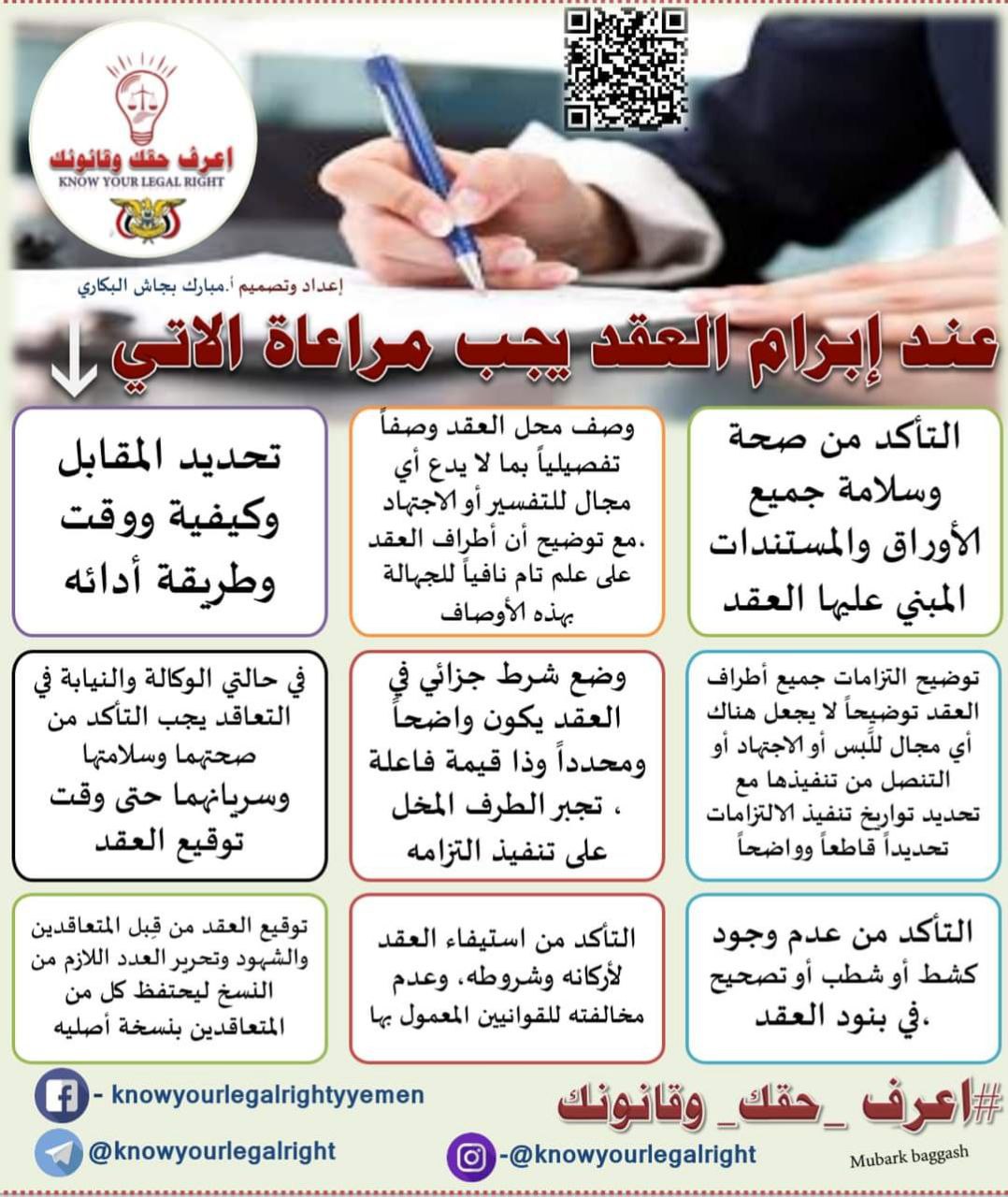
What is the difference between condition and term?
Tips before and when filing a lawsuit
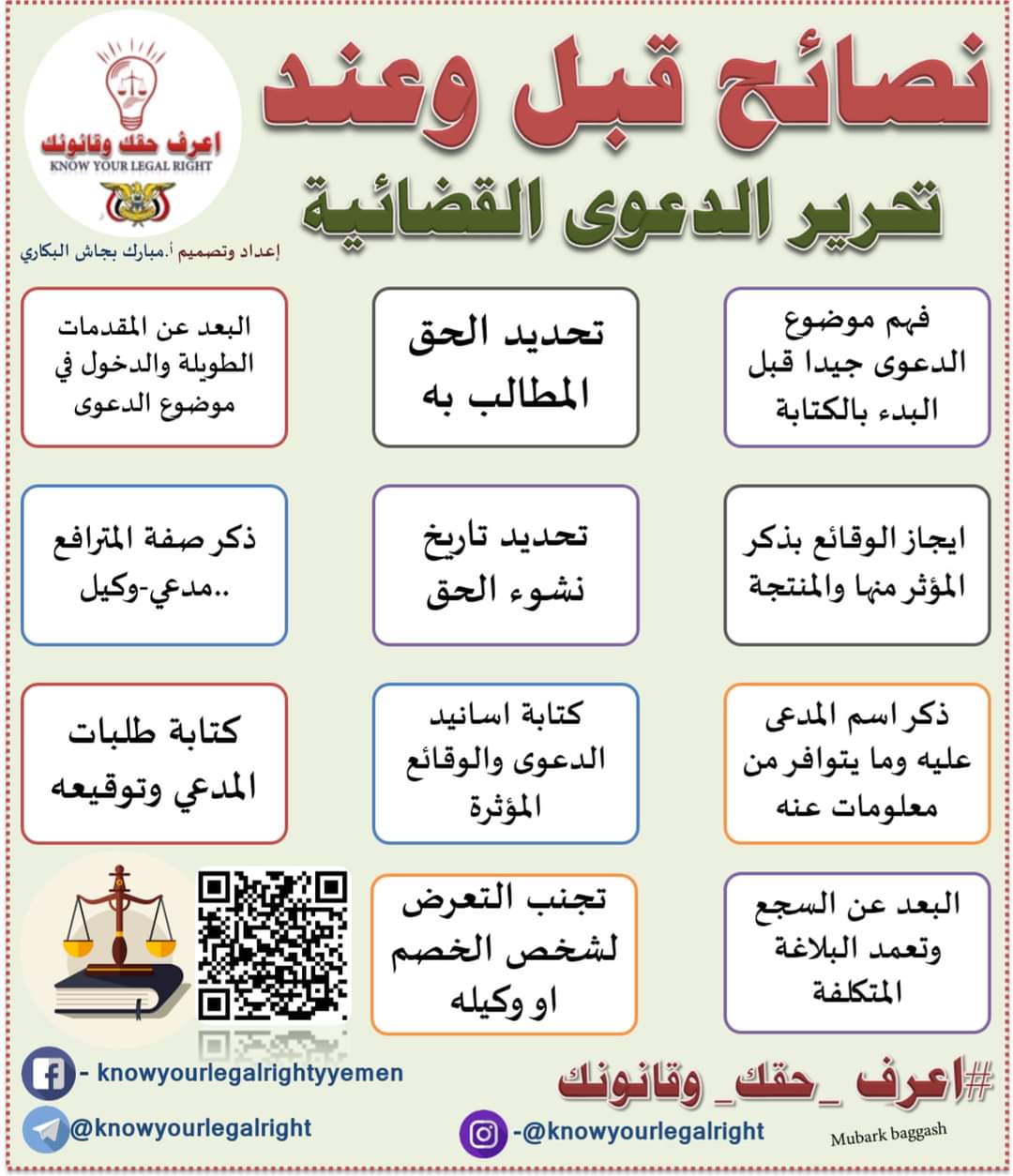
What is the concept of possession and what are its conditions?
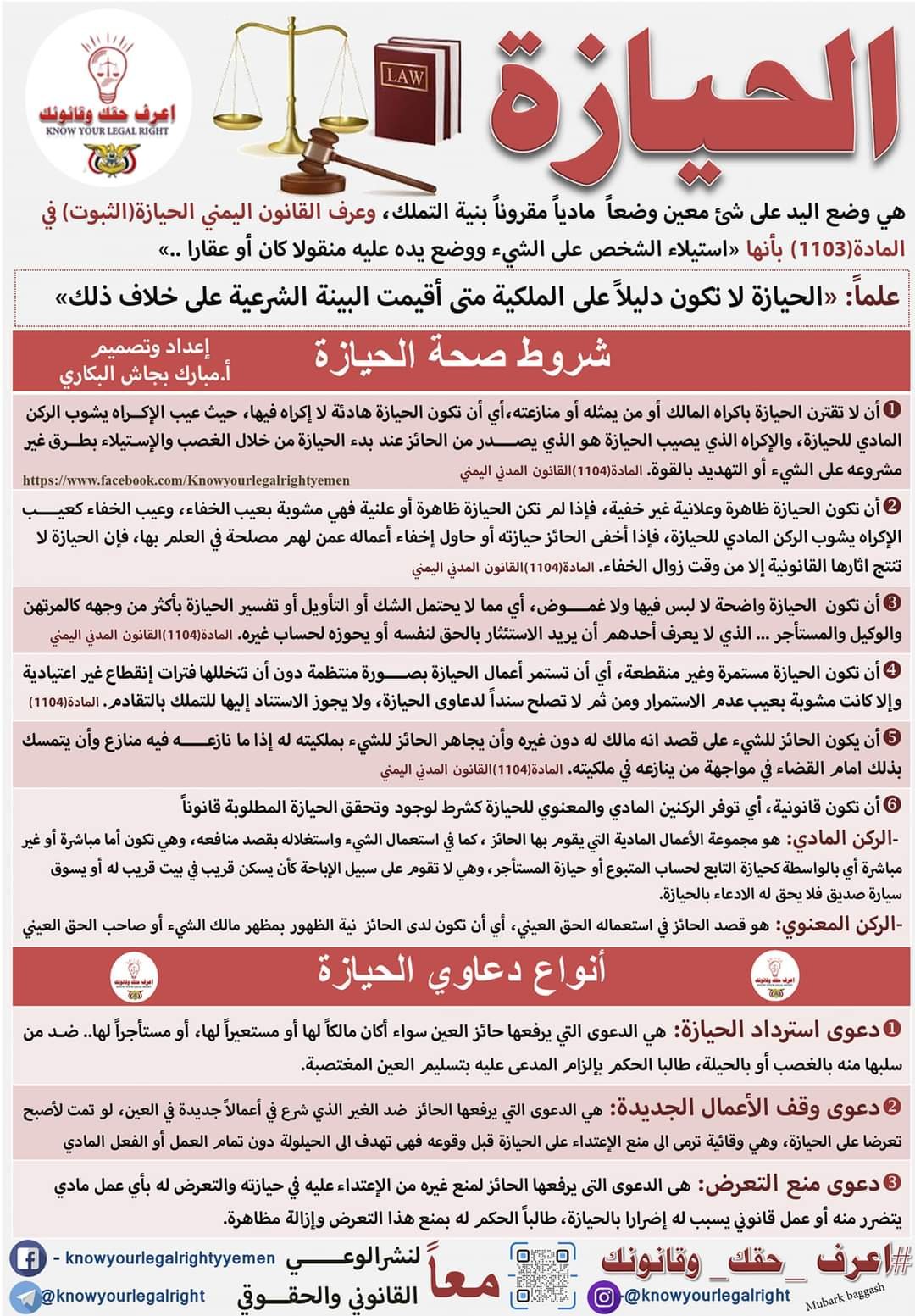
The most important and famous “jurisprudential and legal rules”
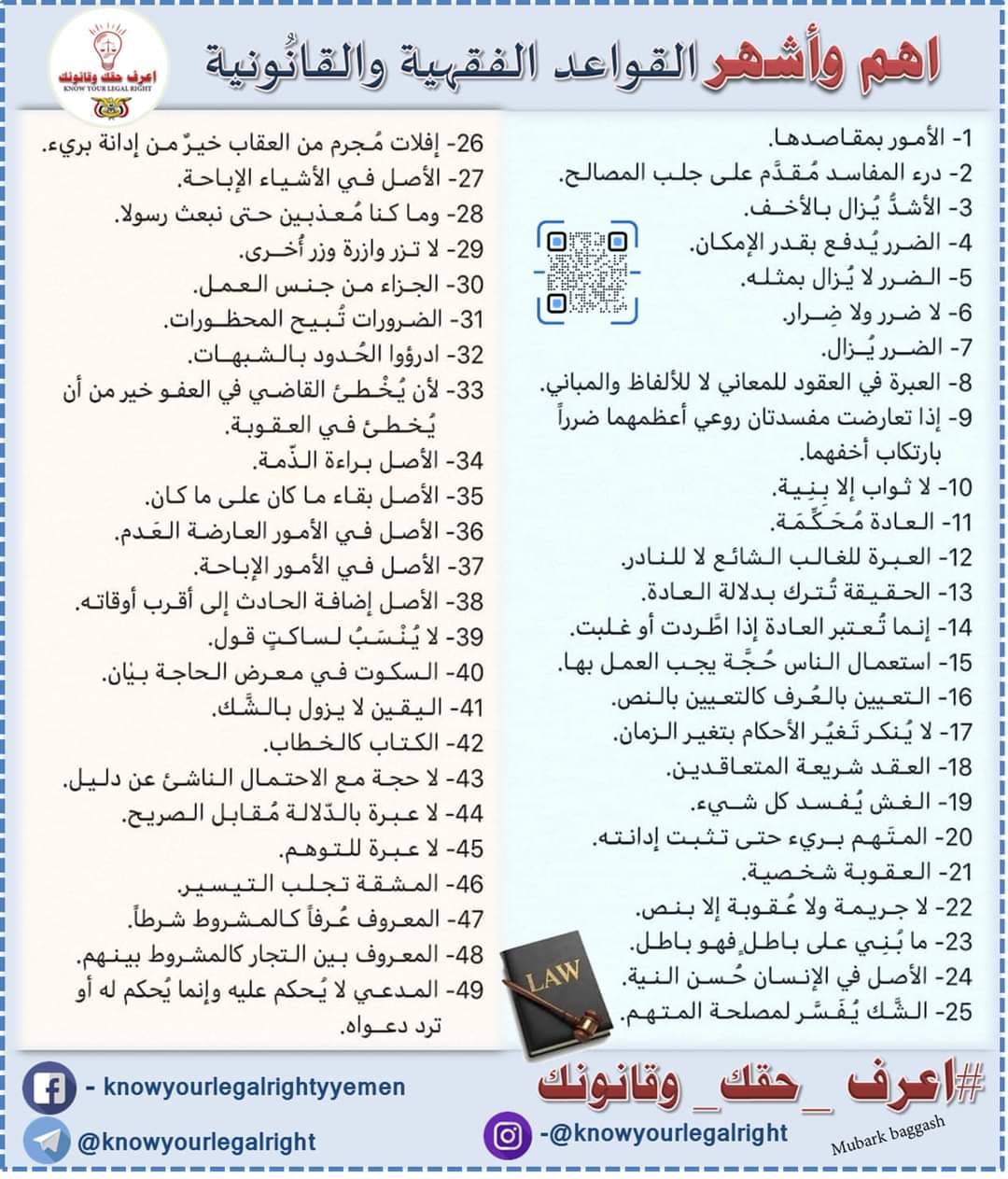
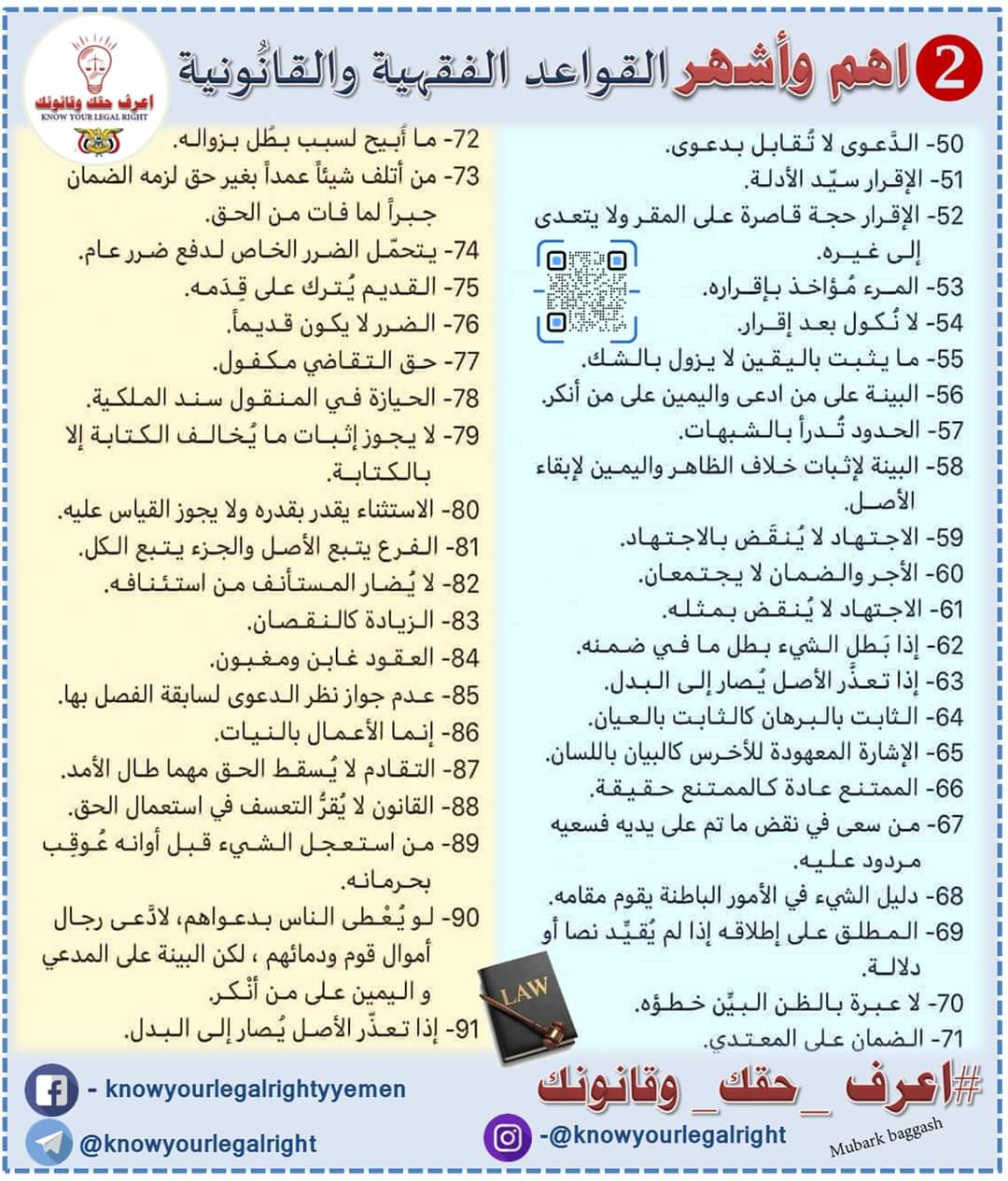
What is the explanation for the rule “what is known by convention is the same as what is conditioned by condition”?
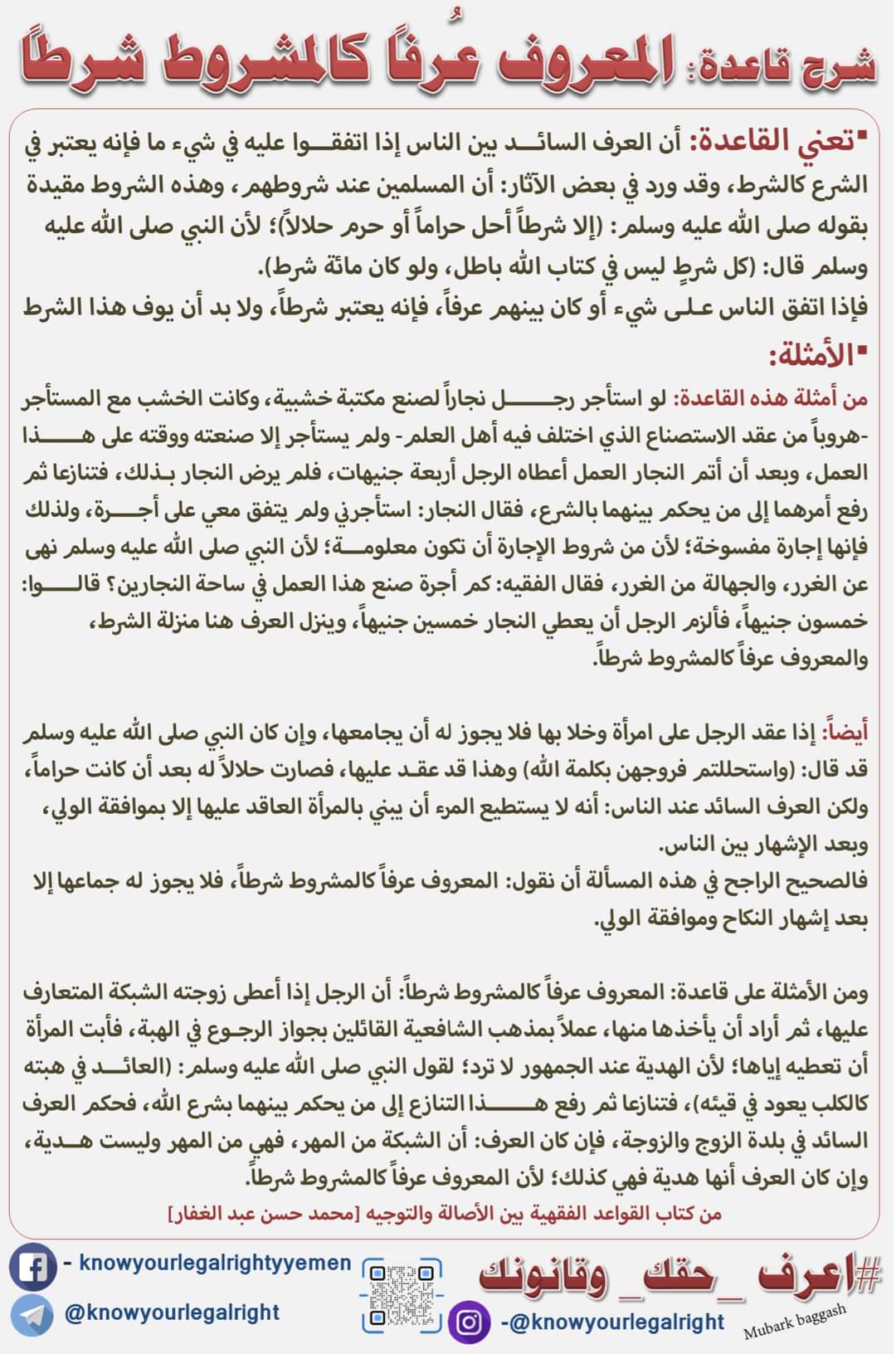
What is the explanation for the rule “the principle is that what was was remains as it was”?
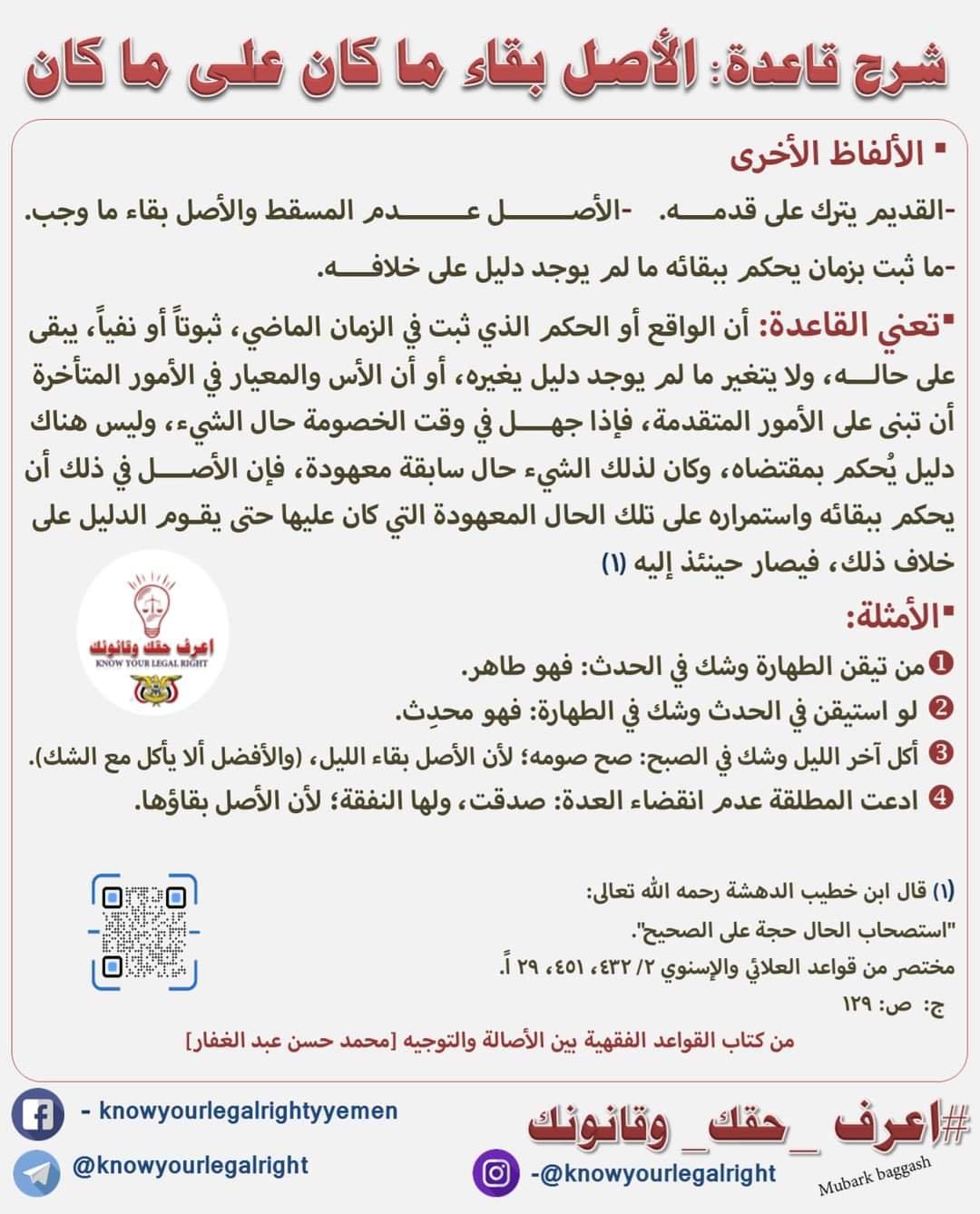
What is the mechanism for forming a legal opinion?
What is the definition of judicial litigation, its conditions and symptoms?
What are the principles that govern the criminal justice function?
Is it valid or permissible for a father to sell some of his property to one of his children under Yemeni law?
حيث نصت المادة(464) من القانون المدني على أنه "يصح بيع الوالد ماله لولده المشمول بولايته وبيعه مال احد الولدين للاخر بشرط القبول من منصوب القاضي الذي يقبل البيع عن الصغير ثم يسلمه بعد ذلك لوالده ليحفظه لولده، ويشترط ان لا يكون البيع منطويا على حيلة وحكم الوصي المختار حكم من اختاره.
وحتى لا ينطوي بيع الوالد لولده على حيلة وحتى تنتفي مظنة الحيلة ويتم التأكد من انتفاء الحيلة فأنه يجب على الولد المشتري ان يثبت صحة البيع الصادر له من والده،وان يثبت انه قد دفع بالفعل إلى ابيه ثمن المبيع وإن الثمن المدفوع من كسب وسعي الولد المشتري.
What is the spatial jurisdiction of the courts in Yemen?
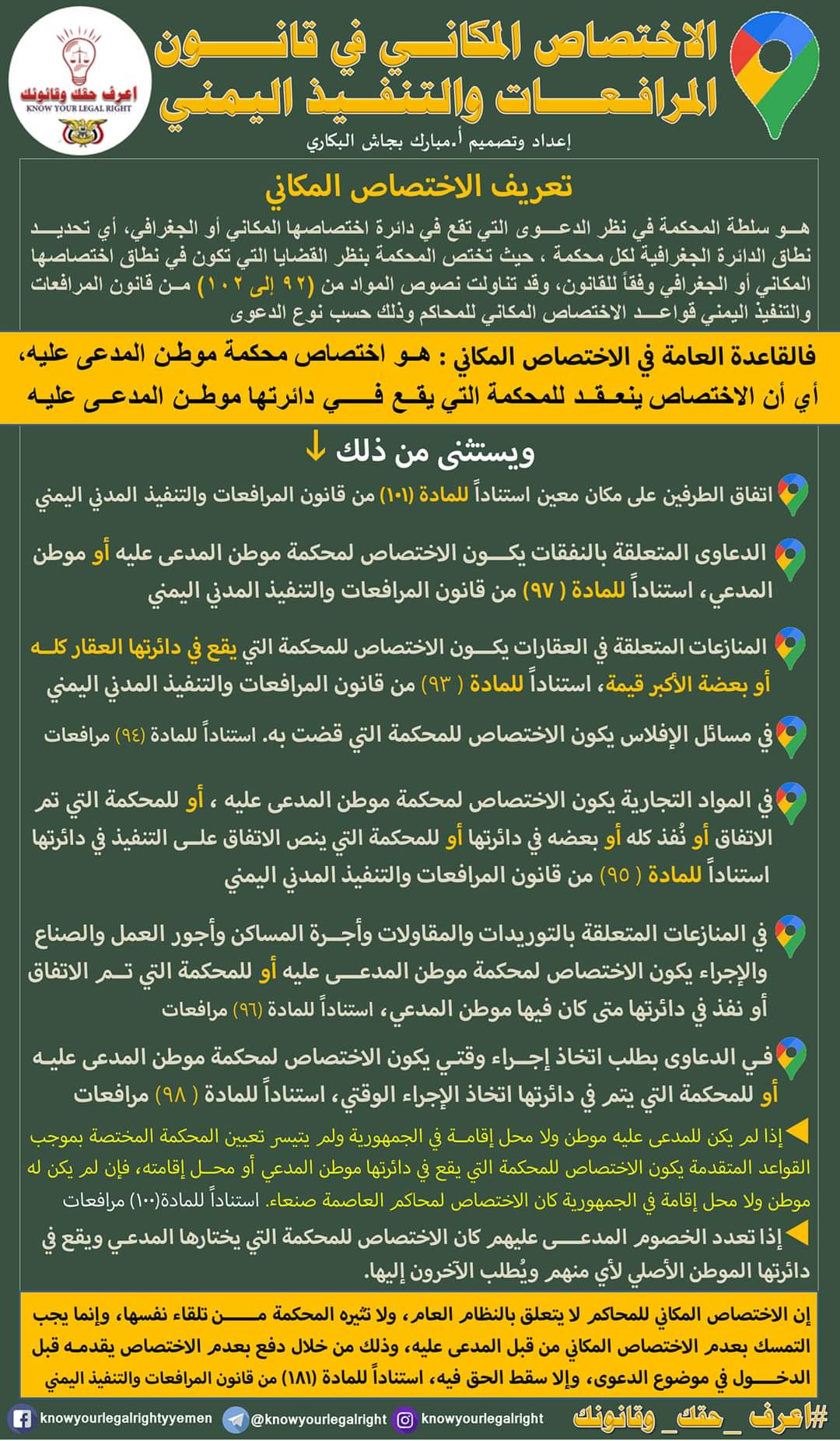
My father died after leaving work for more than a year, and the period of his contributions to the Social Insurance Institution was (15) years. Are we entitled to a pension?
What is the concept of interruption of time?
Article (2) Yemeni Criminal Procedure Code
What is meant by preparatory decisions?
Article (2) Yemeni Criminal Procedure Code
If the court orders the plaintiff to complete the incomplete statement or correct the invalid procedure in his claim, within the time specified by the law for it to be carried out, and he is unable to do so, what is the penalty resulting from that?
It stipulates that: The court shall decide not to accept the lawsuit in its form if the opposing party is unable to complete what is incomplete or correct the invalid procedure within the time specified by the law for its implementation.
Is it permissible to make an optional (consensual) division in which a minor, absent person, or insane person is involved?
استناداً للمادة(1211) من القانون المدني اليمني
What is meant by the right of stream?
If this right is established for anyone, the owners of the land through which the water flows have no right to prevent it
What is meant by implementation introductions?
It consists of notifying the person against whom execution is being executed of the execution document required to be executed and assigning him to execute it voluntarily within the period specified by law.
Article (315) of the Yemeni Civil Procedure and Enforcement Law
What is the meaning of fuzuli in law?
What is the ruling if one of the litigants dies, loses his legal capacity to litigate, or loses his capacity to conduct litigation procedures before closing the door to pleading in the dispute?
Based on Article (207) of the Yemeni Code of Procedure and Implementation
What does accelerated implementation mean?
مادة(334) من قانون المرافعات والتنفيذ المدني
What is the meaning of the right response?
مادة(130)قانون الإثبات اليمني
What does it mean to turn the right?
Article (131) of the Yemeni Evidence Law
Is it permissible to postpone the session more than once based on the request of one of the parties to bring witnesses or evidence without doing so?
على ألا تتجاوز مدة التأجيل ثلاثة أسابيع.
استناداً للمادة(163) من قانون المرافعات والتنفيذ المدني اليمني
What is the court competent to enforce arbitration awards?
What are the sections and branches of law?

What is international criminal law?
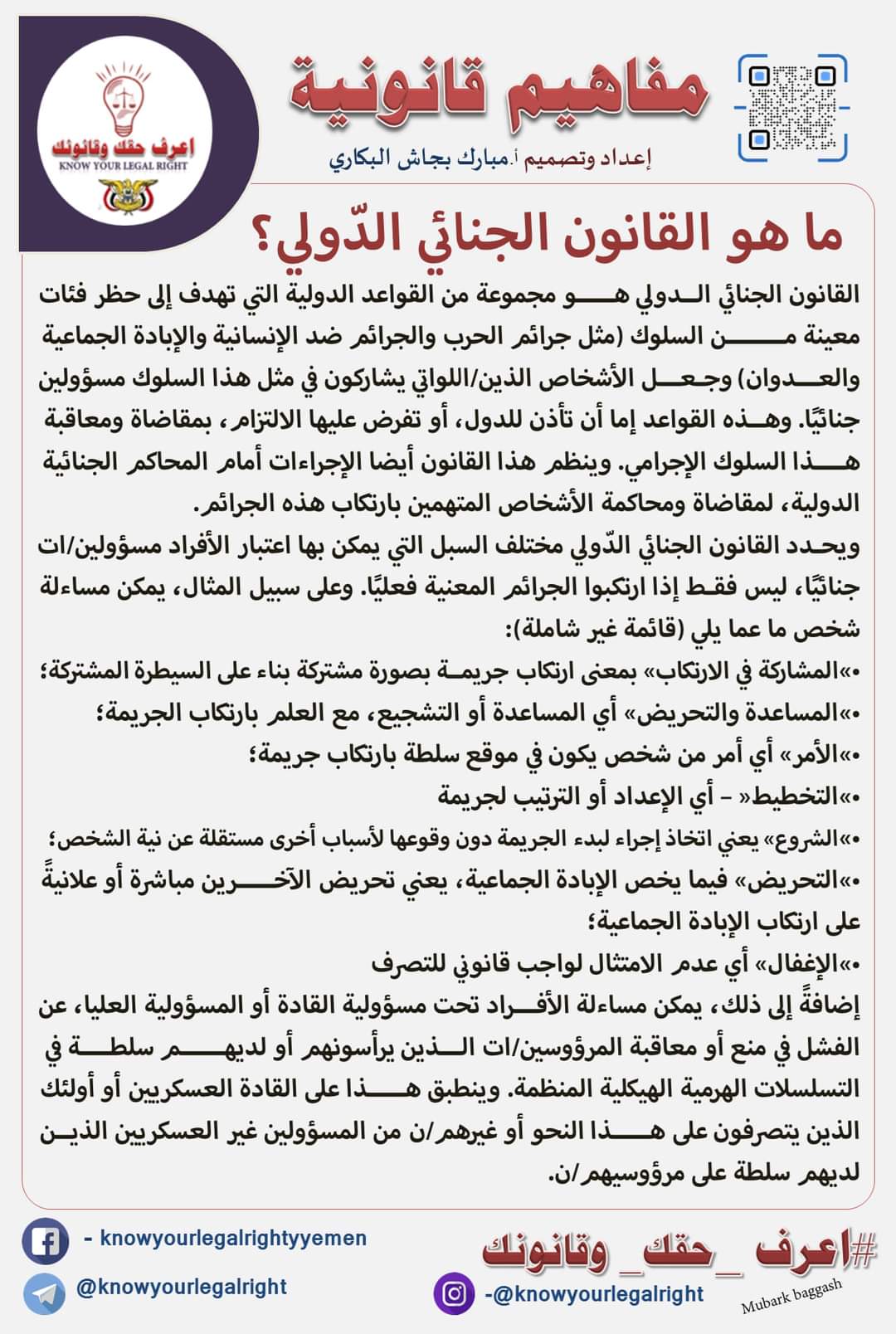
What is international human rights law?
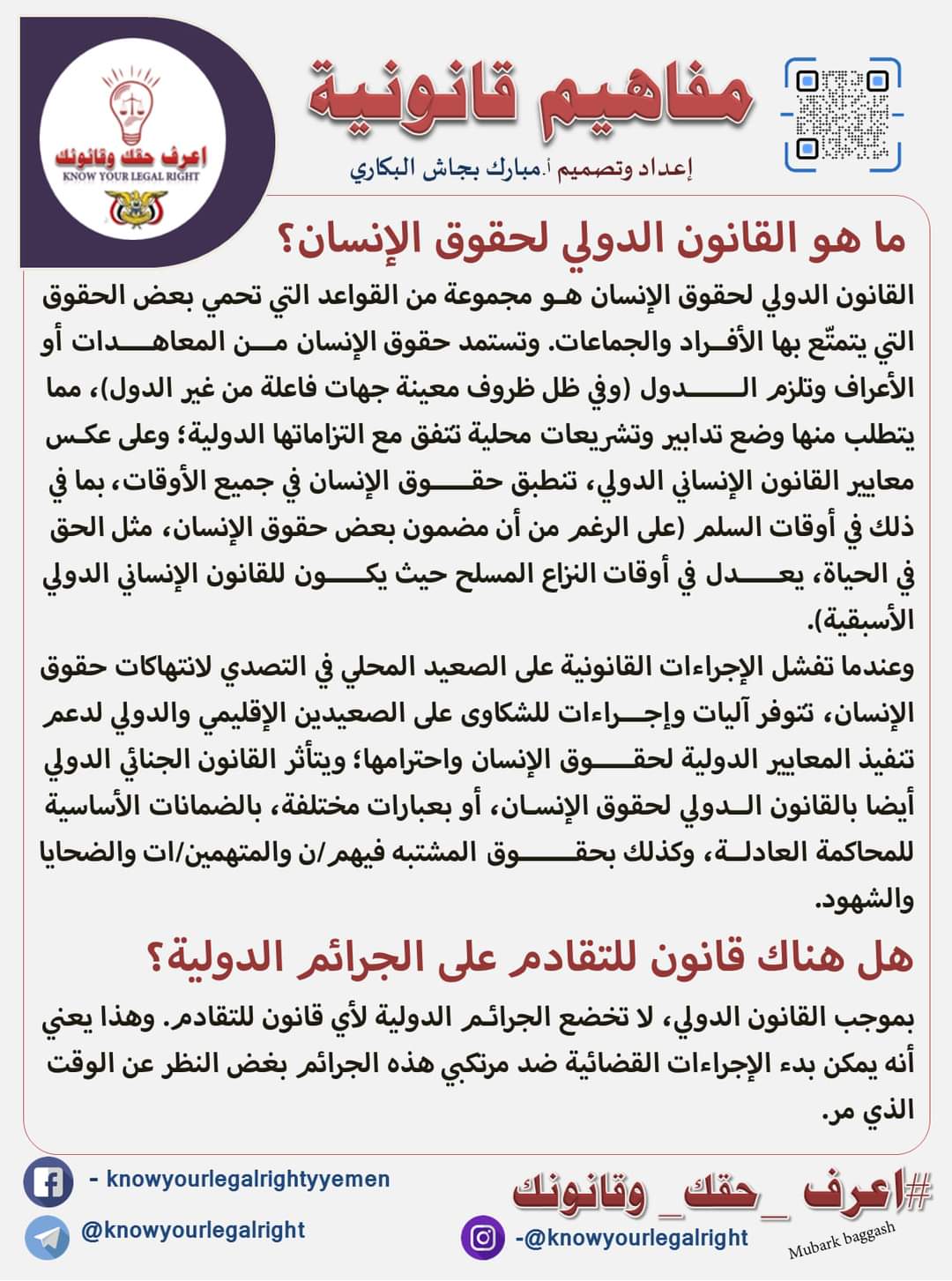
What is international humanitarian law?
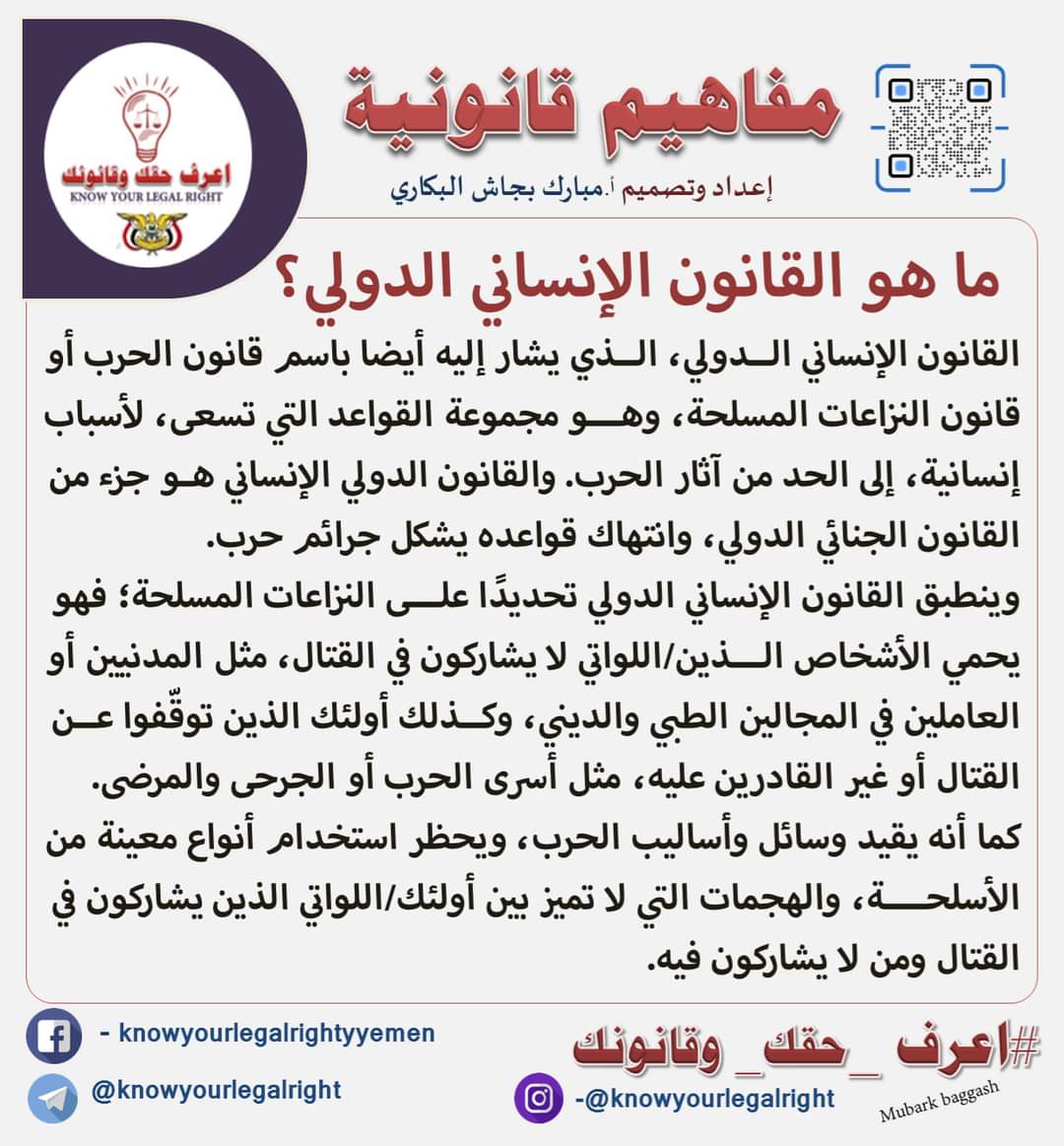
What is the difference between public international law and private international law?
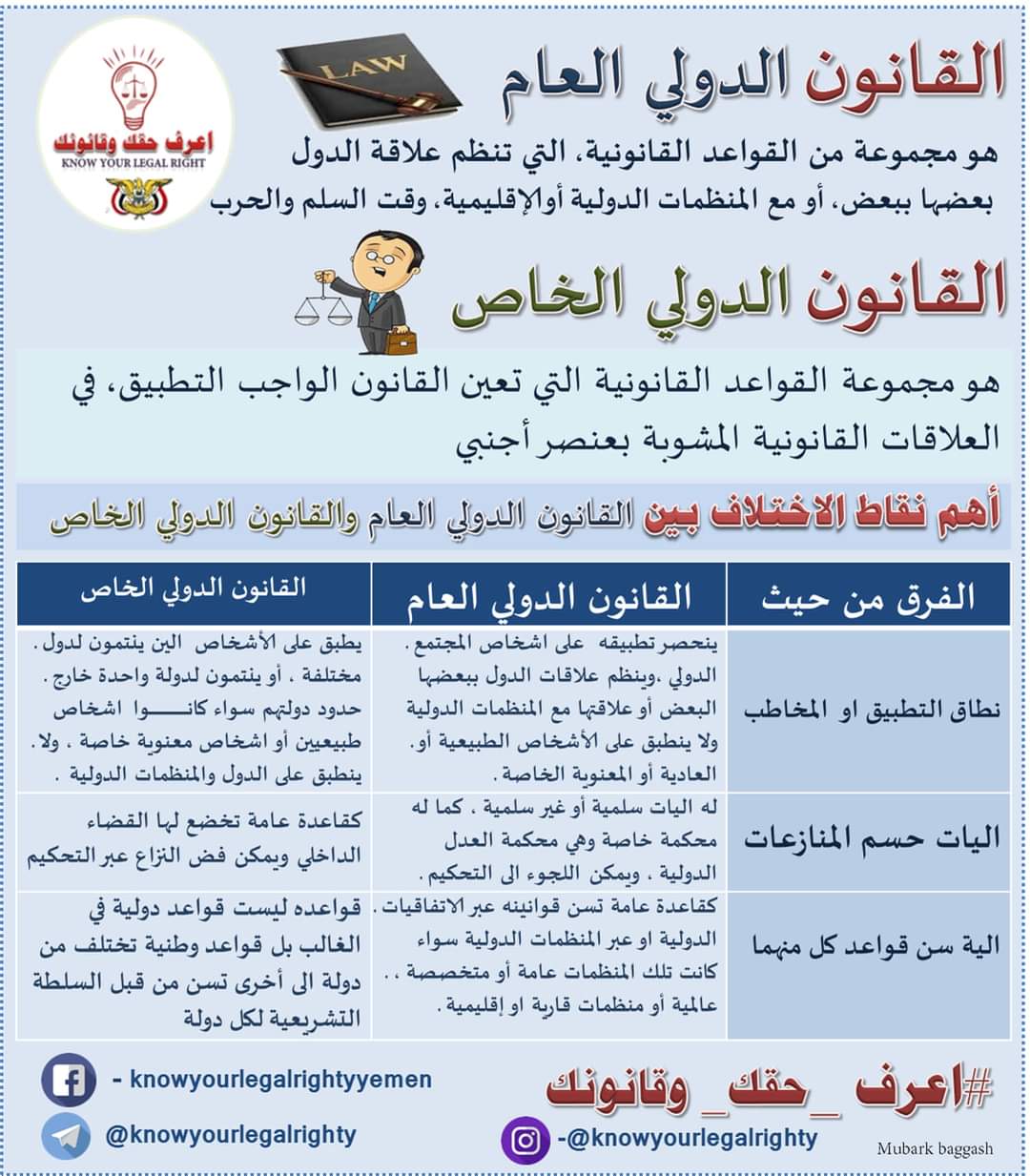
What is the concept of an urgent lawsuit, its characteristics, conditions, and procedures for filing it?
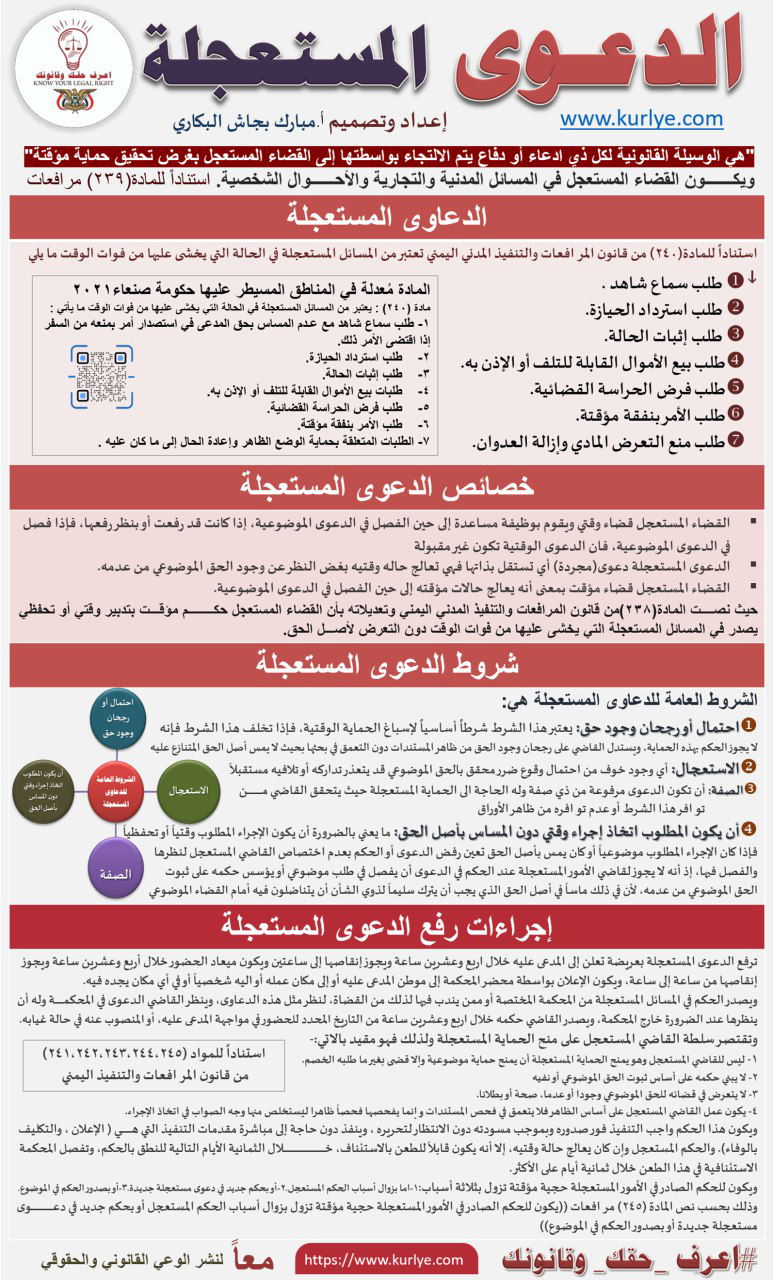
What is the difference between ordinary judiciary and urgent judiciary?
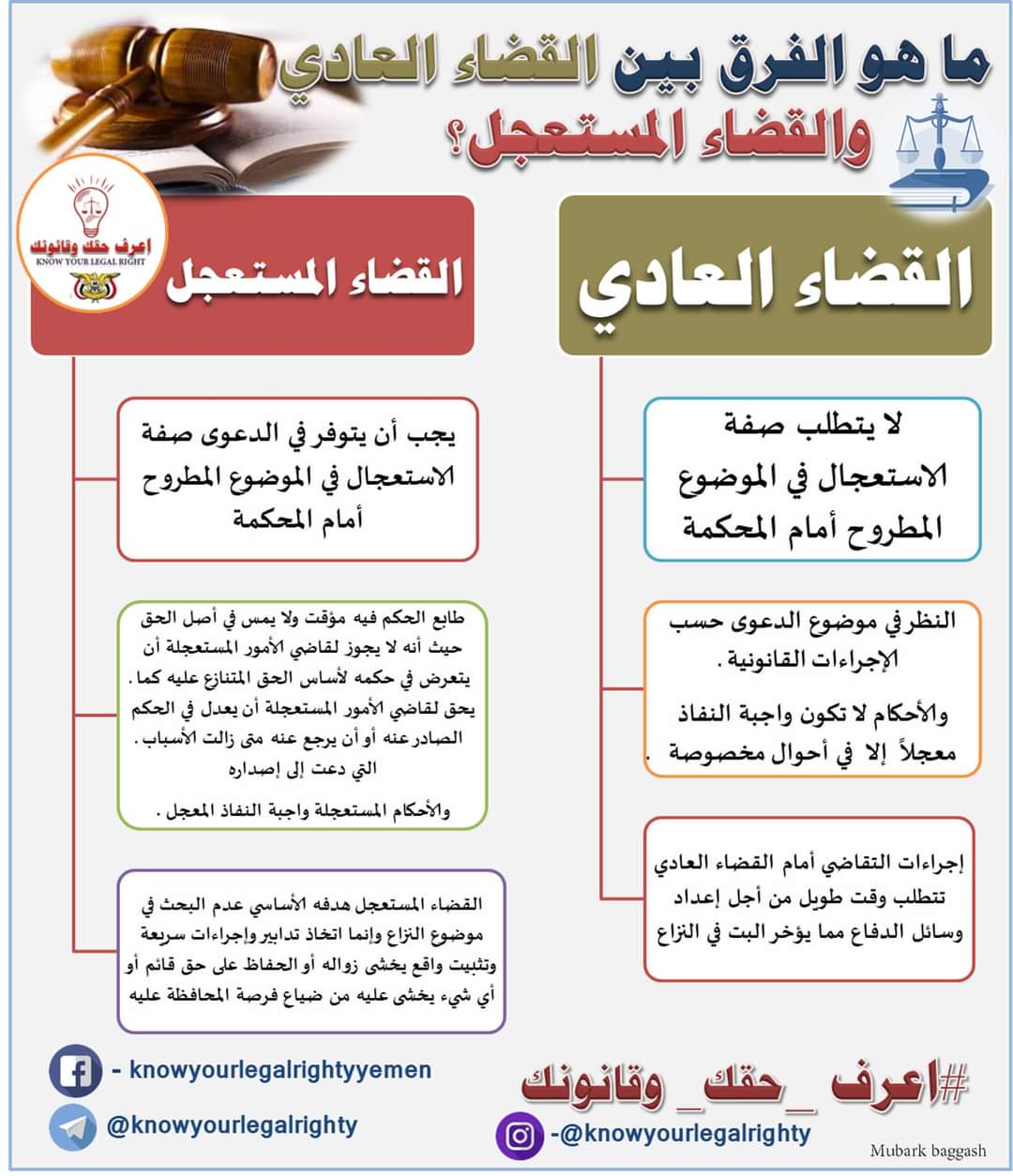
ما معنى الهبة وماهي اركانها وما هي شروط الواهب والموهوب؟
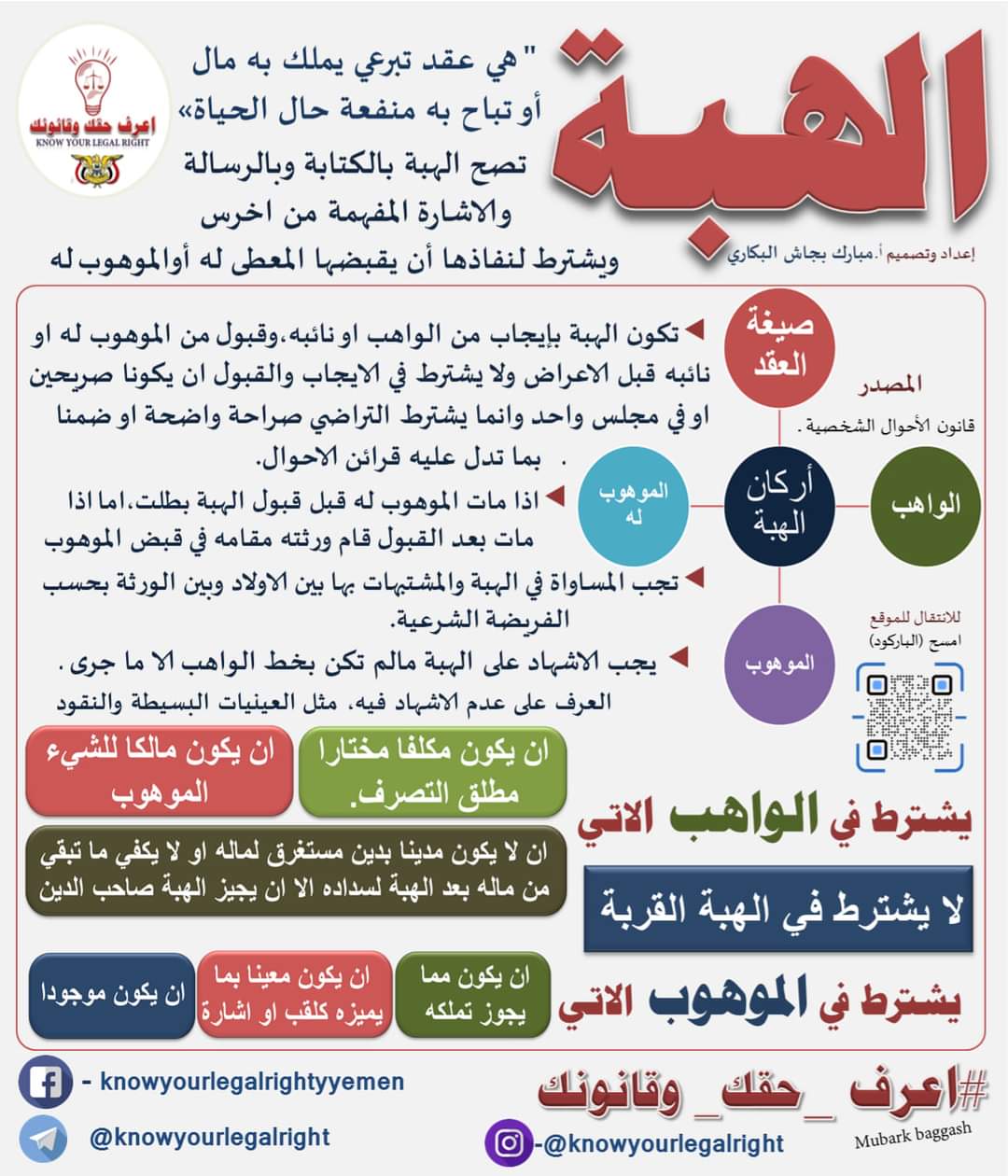
What is a declarative judgment, and what are the effects of a declarative judgment?
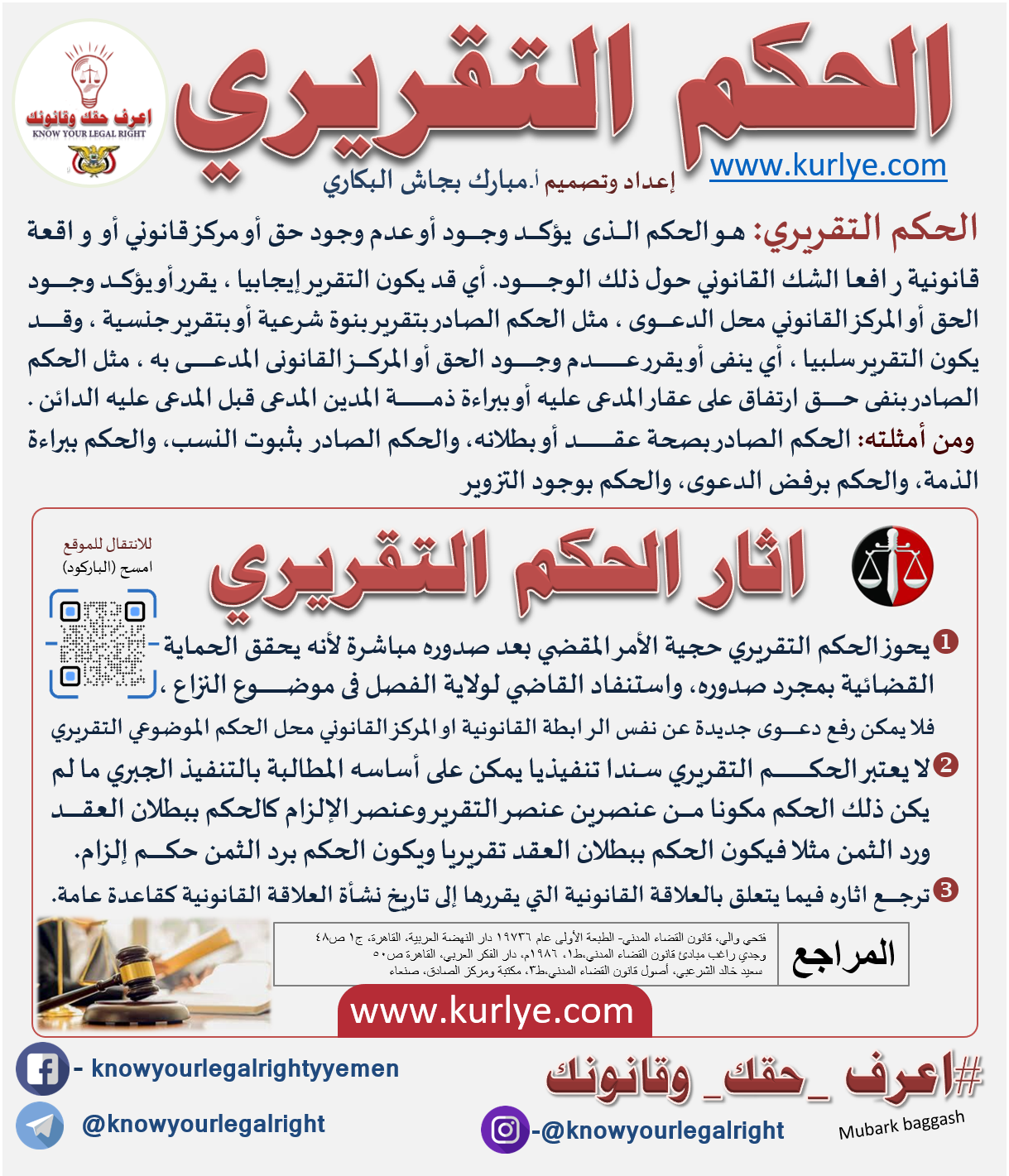
What is the concept of an urgent lawsuit, and what are its characteristics, conditions, and procedures for filing?
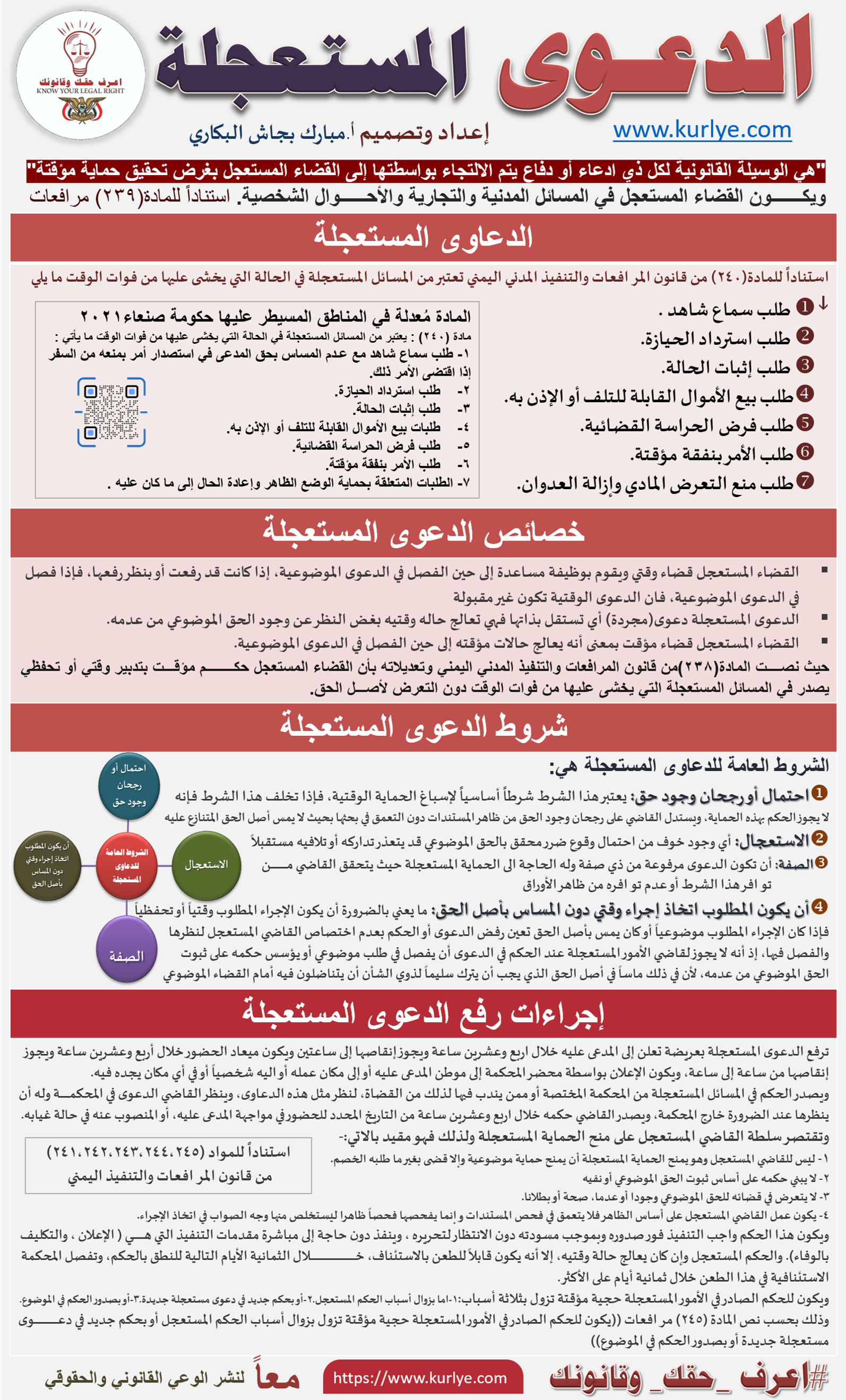
What are interlocutory requests, and how is an interlocutory request submitted?
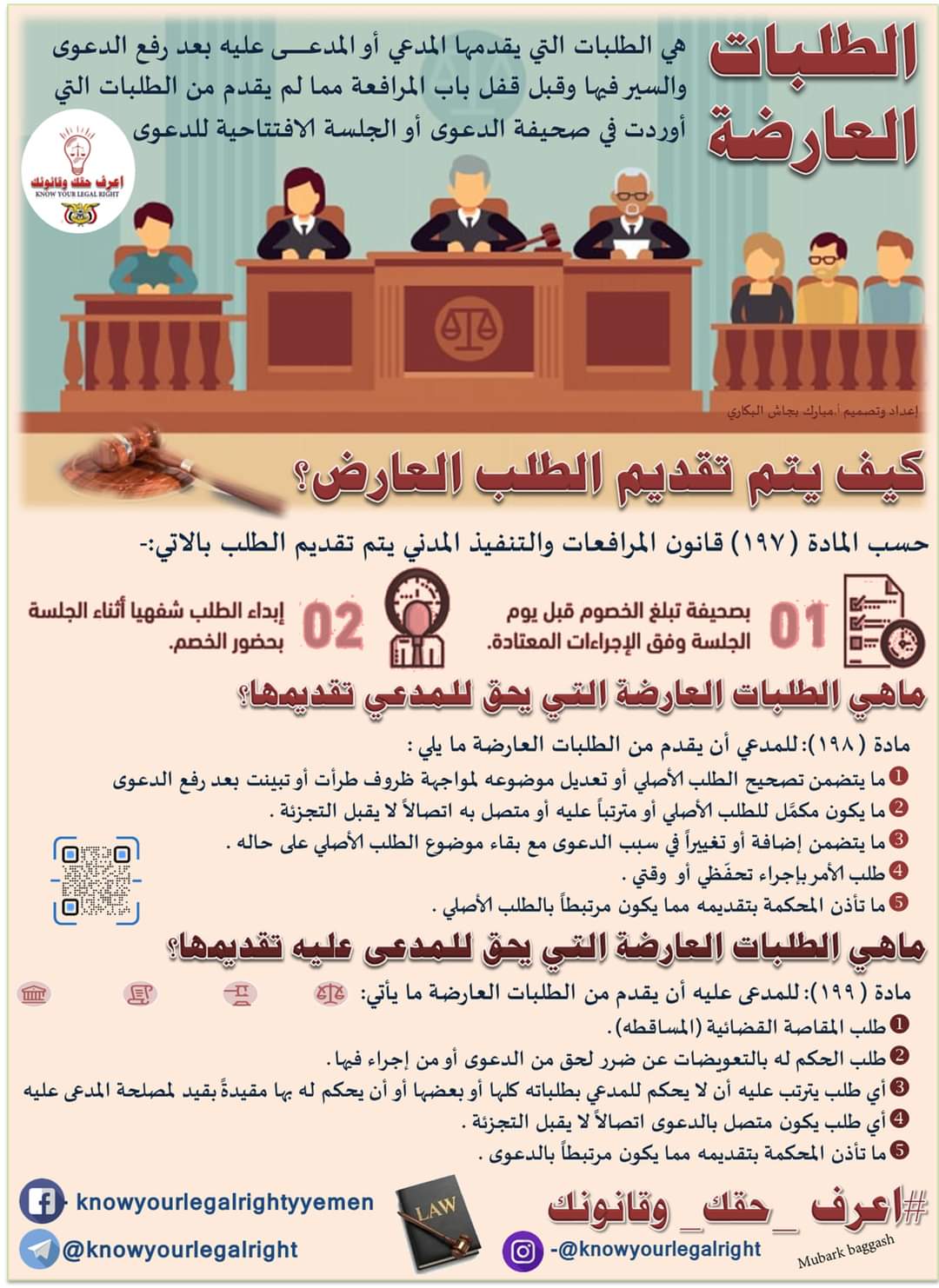
What is the binding ruling, and what are the effects of the binding ruling?
ما هي الآثار القانونية للتدخل الانضمامي؟
What is the difference between entry and interference in a dispute?

When does the right to submit procedural defenses lapse?
Is it permissible to rent commons to others?
What are the conditions for the lease to be concluded and valid?
1- The eligibility of the contractors.
2- The lessor being the owner of what he leases or having guardianship or agent for either of them.
3- Contractors’ satisfaction.
4- Determine what is rented.
5- Determine the benefit.
6- Statement of the duration or distance of use.
7- Determine the rent according to quantity or description.
Article (685) of the Yemeni Civil Code
Who are legal persons?
- الدولة والمحافظات والمدن والمديريات بالشروط التي يحددها القانون والوزارات والمصالح وغيرها من المنشآت العامة التي يمنحها القانون الشخصية الاعتبارية.
- الهيئات التي تعترف لها الدولة بالشخصية الاعتبارية.
- الأوقـــــاف.
- الشركات التجارية والمدنية
- الجمعيات والمؤسسات المنشأة وفقاً لأحكام الجمعيات والمؤسسات المبينة في هذا القانون.
- كل مجموعة من الأشخاص أو الأموال التي تثبت لها الشخصية الاعتبارية بمقتضى القانون. مادة (87) من القانون المدني اليمني
What does a legal person enjoy?
1- ذمة مالية مستقلة.
2- أهلية في الحدود التي يعينها سند إنشائه أو التي يقرها القانون.
3- حق التقاضي.
4- موطن مستقل طبقاً لما هو مبين في قانون المرافعات.
5- نائب يعبر عن إرادته ويمثله في التقاضي وغيره.
مادة (88) من القانون المدني اليمني
What are the elements of the contract?
- التراضـــي.
- طرفا العقــد.
- المعقود عليه (محل العقد). مادة (146) من القانون المدني اليمني
What are the conditions for the subject of the contract (contracted)?
1- أن يكون قابلاً لأحكام العقد شرعاً.
2- أن يكون محقق الوجود عند إنشاء العقد إلا المسلم فيه أو ما في الذمة.
3- أن يكون معلوماً.
4- أن يكون مقدوراً على تسليمه أو القيام به. مادة (185) من القانون المدني اليمني
Our Releases
first edition
Question and answer in the evidence gathering stage, the preliminary investigation stage and the trial stage (interactive version)
second edition
"Worker's rights in Yemeni law"
Third edition
About electronic crimes
Fourth edition
Duties and obligations of the worker in Yemeni law.
Fifth edition
292 Questions and answers about the Yemeni Personal Status Law
6th Edition
Question and Answer on Yemeni Arbitration Law
Administrative investigation and its procedures.
Prepared by: Mr. Mubarak Bajash Al-Bakari
Judicial dispute
Its definition, conditions, and symptoms of its course. Prepared by: A. Mubarak Bagash Al-Bakari. Number of pages: 7
pre-emption
Its definition, the wisdom behind it, the evidence of its legitimacy, its pillars, its conditions, its conditions, its reason, its disqualifications, the provisions for requesting it, what obligates the pre-emptor after requesting it, the time of requesting it, the date of filing the lawsuit in it, the provisions for resolving conflict between pre-emptors, its effects, and the provisions for disagreement in pre-emption. Prepared by: A. Mubarak Bajash Al-Bakari.
The most important models of arbitration in Yemen
الدستور اليمني
Laws
Code of Criminal Procedure
Procedural law
Military penal code
Civil Code and its amendments
Personal Status Law
Yemeni and its amendments
The Evidence Law and its amendments
The Arbitration Law and its amendments
Crimes law
And military sanctions.
Crimes law
Penalties and its amendments.
Procedures Act
Civil enforcement and its amendments
Literacy eradication law
Yemeni adult education and its amendments
Laws Interactive Versions
Commercial law and its amendments
(Interactive version)
Civil Code and its amendments
(Interactive version)
Personal Status Law
Yemeni and its amendments (interactive version)
The Evidence Law and its amendments
(Interactive version)
Code of Criminal Procedure
(Interactive version)
Yemeni Arbitration Law
and its amendments (interactive version)
Crimes and Penalties Law
and its amendments (interactive version)
Labor Law and its amendments
(Interactive version)
Civil Procedure and Enforcement Law
and its amendments (interactive version)
Law Regulating the Legal Profession
(Interactive version)
Regulations
Executive Regulations
According to the Authentication Law of 2008.
Executive Regulations
According to the Authentication Law of 2018.
Executive Regulations
Violations Law 2010 AD
Executive Regulations
Tenders Law No. (23) of 2007
Executive Regulations
To the Supreme Court
Executive Regulations
Anti-Money Laundering Law
Executive Regulations
For mines and quarries
Executive Regulations
Law on Associations and Private Institutions No. 1 of 2001
Executive Regulations
Law No. 22 of 1977 regarding commercial companies and its amendments
Executive Regulations
Law No. 46 of 2008 regarding consumer protection
Agreements
Charter of the United Nations
Universal Declaration of Human Rights
Anti-agreement
Torture. Opens with Drive
Crime prevention agreement
Genocide. The file opens in Drive
Non-agreement
Statute of limitations for war crimes. The file opens in Drive
Double taxation avoidance agreements
First Geneva Convention
To improve the condition of the wounded and sick in the armed forces in the field
Second Geneva Convention
For the improvement of the condition of the wounded, sick and shipwrecked of the armed forces at sea, dated 12 August
Third Geneva Convention
On the treatment of prisoners of war at the Diplomatic Conference held at Geneva from 21 April to 12 August 1949
Fourth Geneva Convention
on the Protection of Civilian Persons in Time of War of 12 August 1949
circulars
Circular decision
The Attorney General grants the heads of prosecution the powers of the Attorney General.
Book of circulars issued
From the Judicial Inspection Authority in Sanaa
Circulars of the Attorney General from 1990 AD
Until 2016 AD
Circulars and periodicals
From 1990-2016 AD with the first general attorney only
Circulars of the Ministry of Justice
From 2009 AD to 2018 AD
Circular based on the circular of the Minister of Justice
No. 4 of 1443 AH regarding...any person other than an employee appointed by the Ministry from practicing any business.
Judicial Inspection Circular No. 28
Generalization of judicial inspection
About the controls and procedures for settling urgent matters
Circulating judicial inspection for judges
Quickly pay off debts
The Attorney General circulated quickly
Dealing with prisoner cases
قواعد وأحكام قانونية وقضائية
Judicial rules(1)
(General) Supreme Court of Yemen
Judicial rules (general) ②
Supreme Court of Yemen
Higher penal rules 2.
Supreme Court of Yemen
Higher penal rules 3.
Supreme Court of Yemen
Higher penal rules 4.
Supreme Court of Yemen
Judicial rules (penal) ⑤
Supreme Court of Yemen
Judicial rules (civil) ⑥
Supreme Court of Yemen
Judicial Rules Commercial Issue 7
Supreme Court of Yemen
Civil Judicial Rules No. 8
Supreme Court of Yemen
Criminal Judicial Rules No. 9
Supreme Court of Yemen
Legal dates and times
Legal deadlines in the law of evidence
Commitment and duration
In the Code of Civil Procedure and Implementation
Commitment and duration
In the Code of Criminal Procedure
Legal dates in law
Expropriation for public benefit
Legal deadlines in the trade names law
Legal dates in law
Financial disclosure
Legal deadlines in arbitration law
Legal deadlines in industrial designs law
Legal dates in the notarial law
Legal deadlines in customs law
Various legal formulas and models
Under construction
Preparing, stay tuned
Legal research pdf
Legitimate defense from the perspective of Yemeni law and Islamic law
Lawyer / Nismah Abdel Haq Al-Najjar
Authenticity of electronic signature
In Yemeni law
Reversing the decision to refer the criminal case
Doctor: Omar Yahya Kazaba
Distinctive legal research
Concerning the order that there is no basis for filing a criminal case.pdf Dr. Adel Amer
Certificate conditions
In Islamic jurisprudence and Yemeni law, Judge/ Khaled Omar
Search for civil compensation
How is it estimated in Yemeni law?
Research on digital drugs
And the formality of criminalizing it legally
Legal evidence and its impact
In civil proof, a study in Yemeni law
The validity of proof by evidence
Judicial (analytical study).
The role of the police officer
Judicial process in preparation for the criminal case.
Legal books
Book of Circulars
Issued by the Judicial Inspection Authority
Periodic Book No. 1
Concerning the general rules of inspection and inspection
Periodic Book No. 7
Concerning the powers of the Public Prosecution under the Commercial Law and its jurisdiction to investigate and file criminal cases
Yemeni tax legislation book
Provisions of Income Tax Law No. 17 of 2010 AD, first edition 2014, by Dr. Muhammad Ali Awad Al-Harazi, Assistant Professor of Public Finance and Tax Legislation at the Police College - Police Academy.
A book on issuing and drafting judicial rulings
Dr. Abdul Malik Al-Jandari (1).
Judicial administration book
By Judge Ahmed Yahya Muhammad Al-Kahlani
Book on the theory of defenses in Yemeni law.
Lawyer: Amin Hefazallah Al-Rubaie
The brief summary of the Book of Obligations
The complete book of Yemeni pleadings
Judicial Administration Ahmed Al-Kahlani
training courses
Connection
Download the app
You can download the “I Know Your Rights and Your Law” platform application on Google Play. Click here to download the application

